All new, noteworthy features of Java, from Java 1.7 to Java 22, with discussions and code examples. It includes all the following features, JEP, and JSR: Enums, JSR-292, Strings in switch, try With Resources, Diamond Operator <>, Vargs in Method Declaration, Binary Integer Literals, Underscores in Numeric Literals, Multiple Exception Types, JSR-166, JSR-203, Translucent and Shaped Windows, Network Protocols, Updates to XML and Unicode, default, static Interface Methods, JSR-335, JEP-126, JEP-174, JSR-308, JEP-104, Unsigned Integer Arithmetic, JEP-120, JSR-310, JEP-150, JEP-178, JEP-153, JEP-122, Private Interface Methods, Collection Factory Methods, JSR-376, JavaDB Removal, JEP-213, JEP-222, JEP-254, JEP-263, JEP-266, JEP-268, JEP-282, JEP-295, JEP-286, JEP-296, JEP-304, JEP-307, JEP-310, JEP-312, JEP-313, JEP-314, JEP-316, JEP-317, JEP-319, JEP-322, JEP-181, JEP-309, JEP-320, JEP-321, JEP-323, JEP-327, JEP-328, JEP-330, JEP-331, JEP-333, JEP-335, JEP-336, JEP-230, JEP-334, JEP-344, JEP-346, JEP-351, JEP-353, JEP-345, JEP-349, JEP-358, JEP-361, JEP-363, JEP-352, JEP-371, JEP-373, JEP-377, JEP-378, JEP-379, JEP-385, JEP-347, JEP-376, JEP-390, JEP-392, JEP-394, JEP-395, JEP-306, JEP-356, JEP-398, JEP-409, JEP-415, JEP-400, JEP-408, JEP-416, JEP-418, JEP-421, JEP-431, JEP-439, JEP-440, JEP-441, JEP-444, JEP-445, JEP-452, JEP-423, JEP-454, JEP-456, JEP-458, JEP-482, JEP-474, JEP-466, JEP-469, JEP-476, JEP-481, JEP-471, JEP-477, JEP-487, JEP-488, JEP-492, JEP-494, JEP-475, JEP-490, JEP-483, JEP-491, JEP-484, JEP-485, JEP-496, JEP-497, JEP-498, JEP-472, JEP-479, JEP-486, JEP-493.



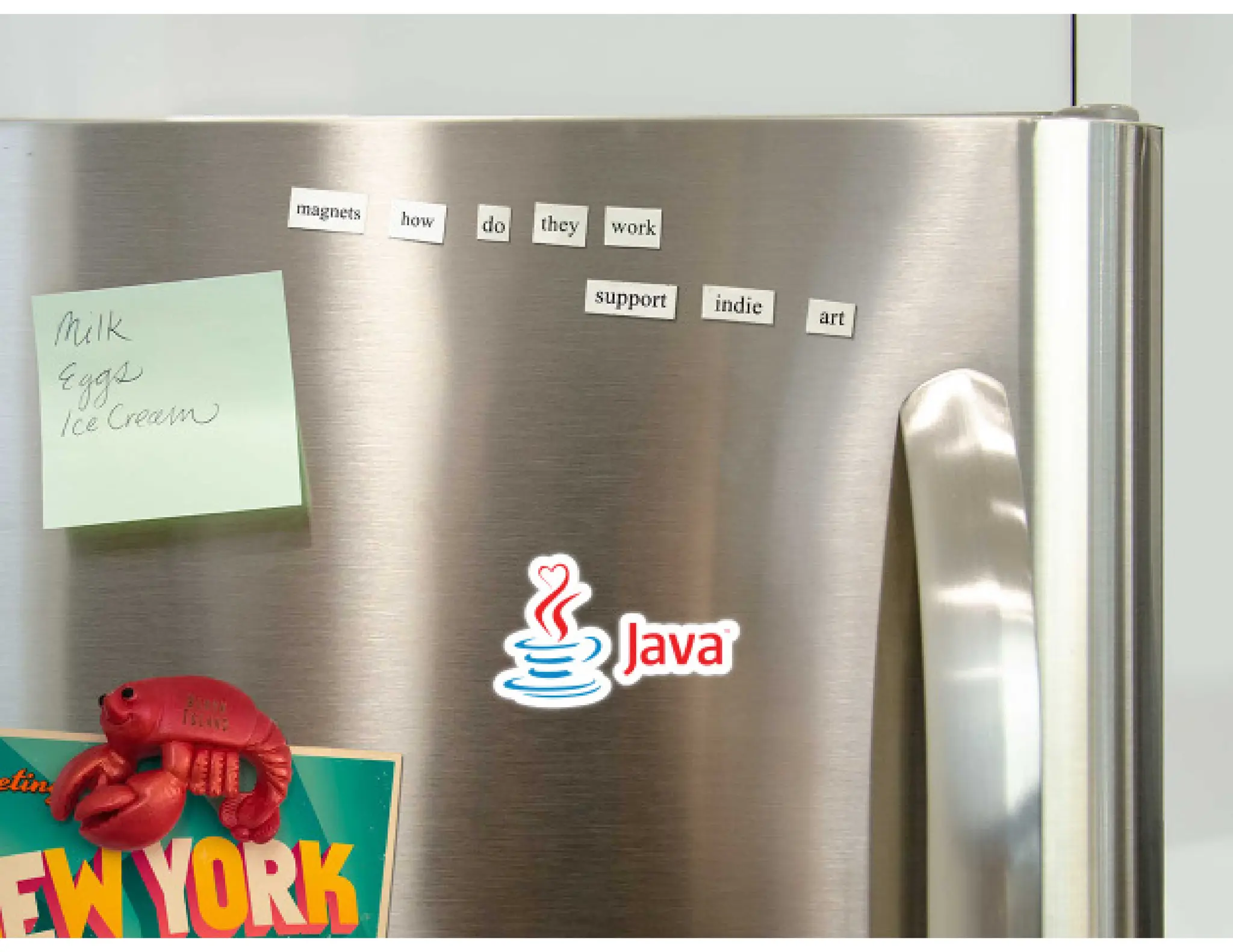
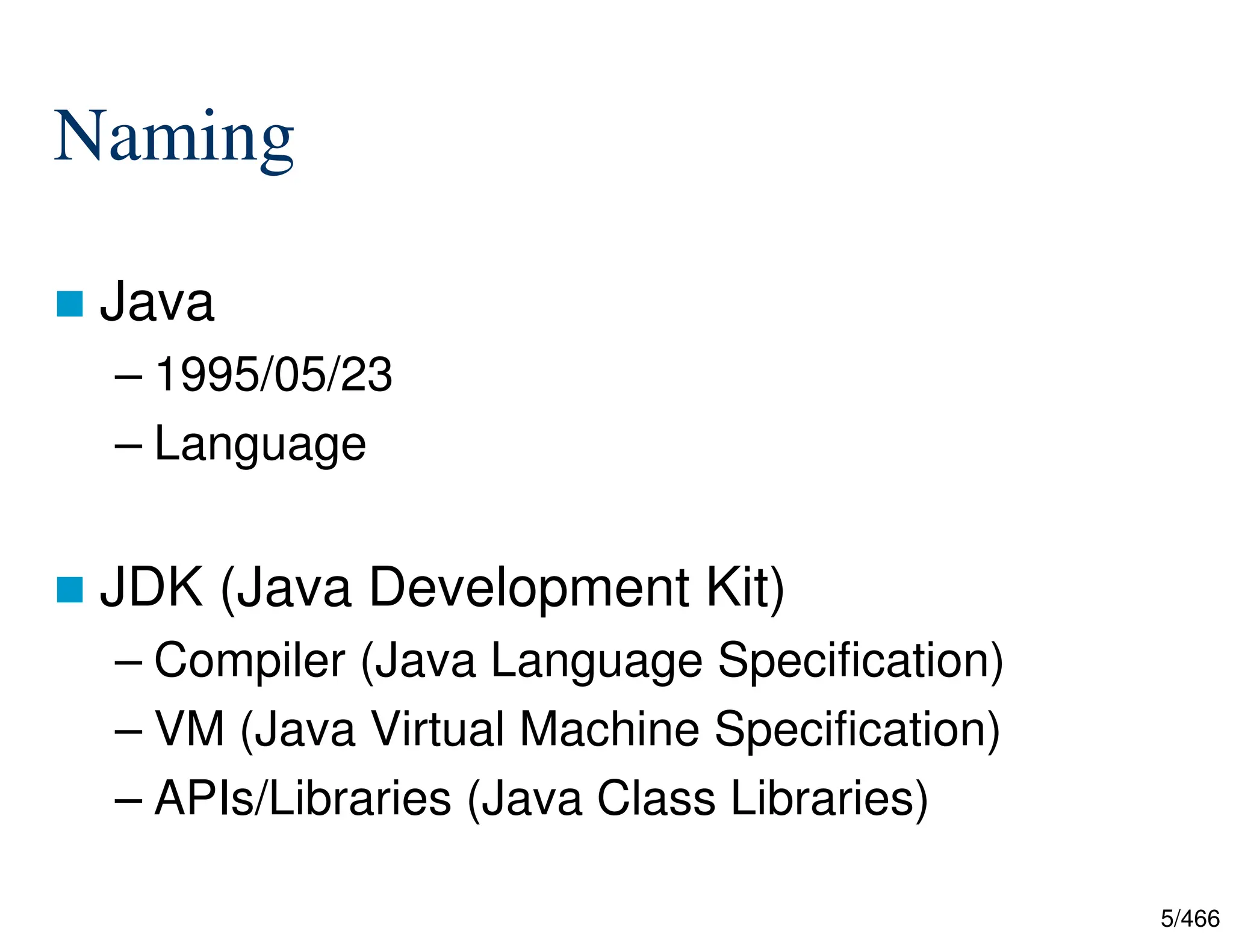
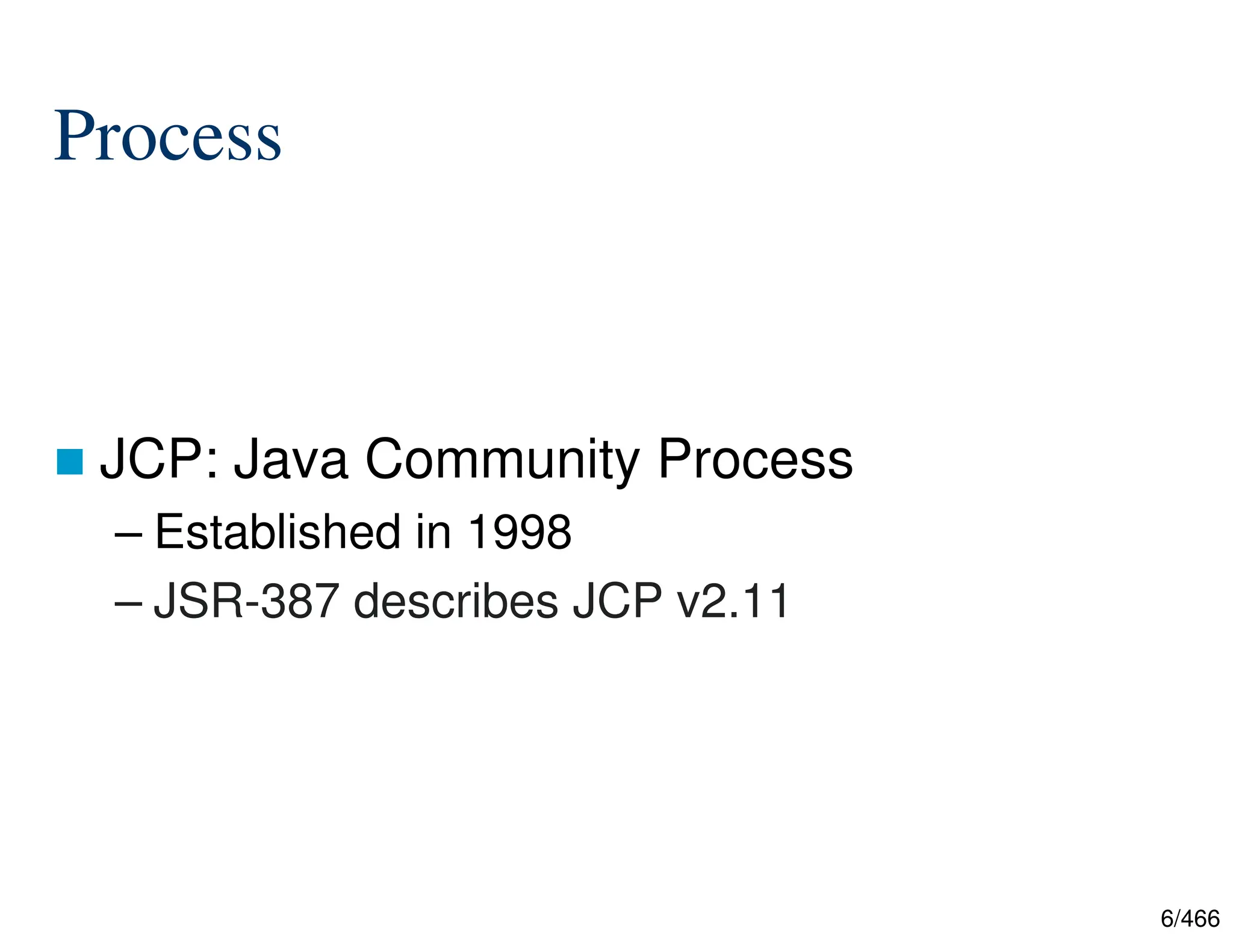
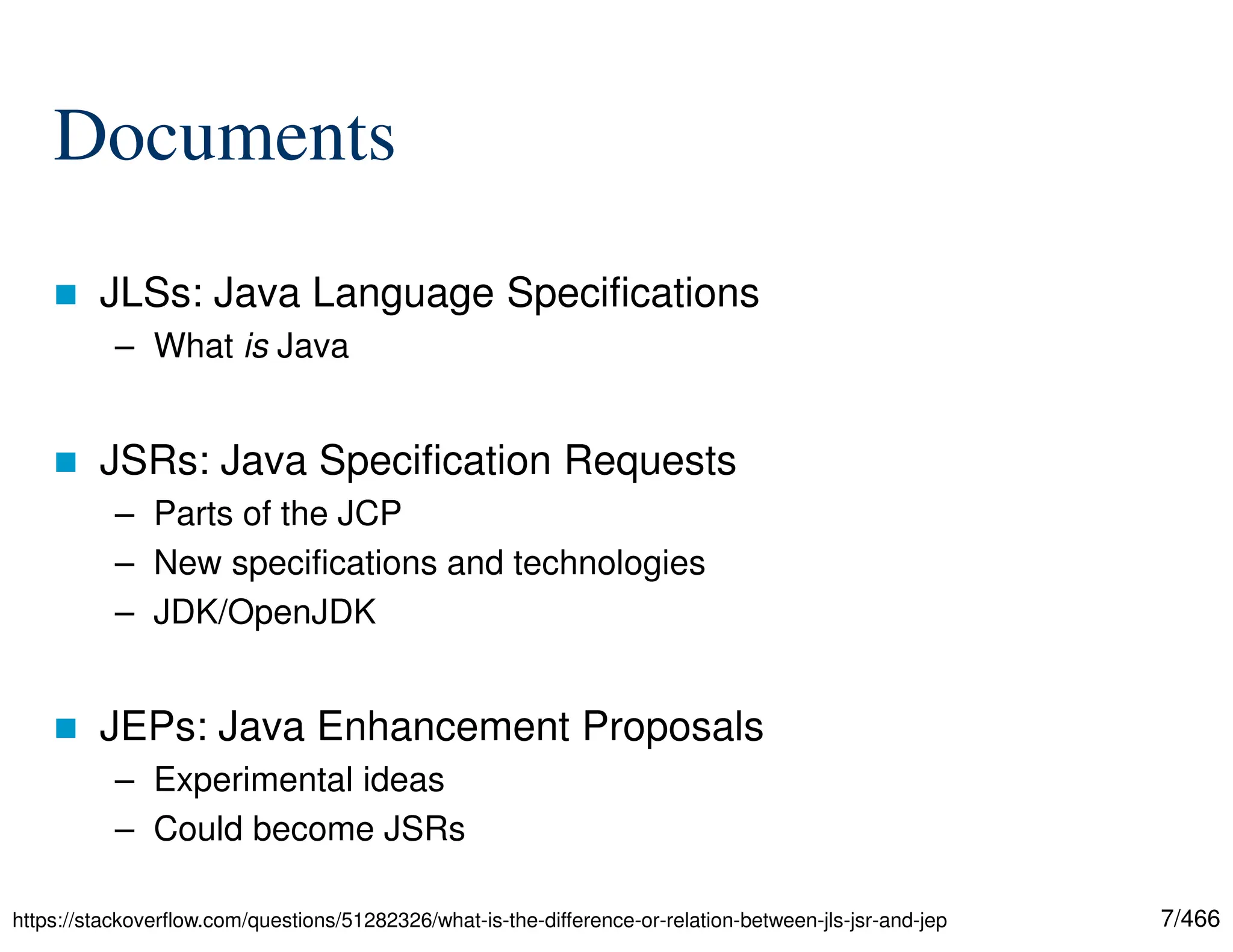
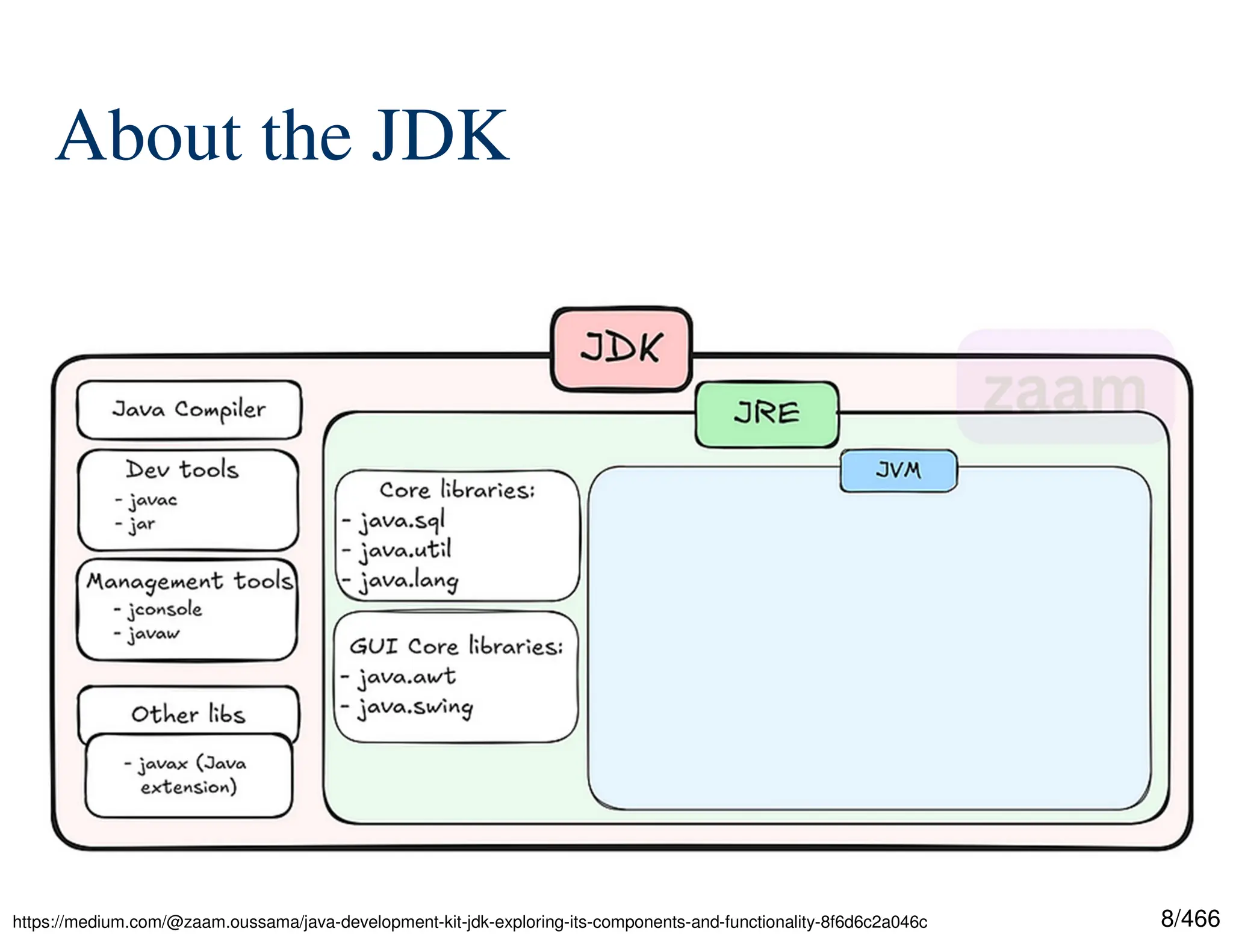
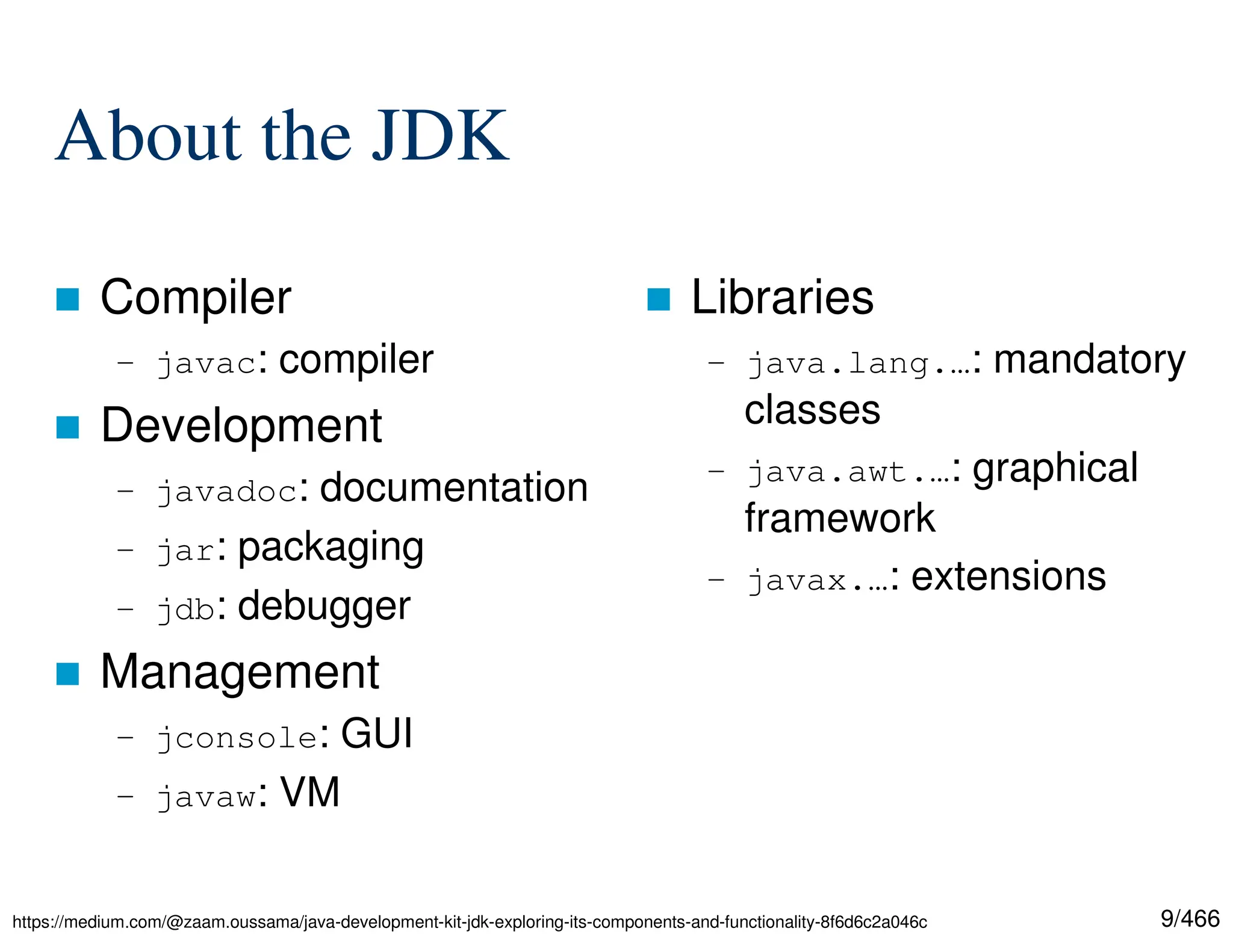
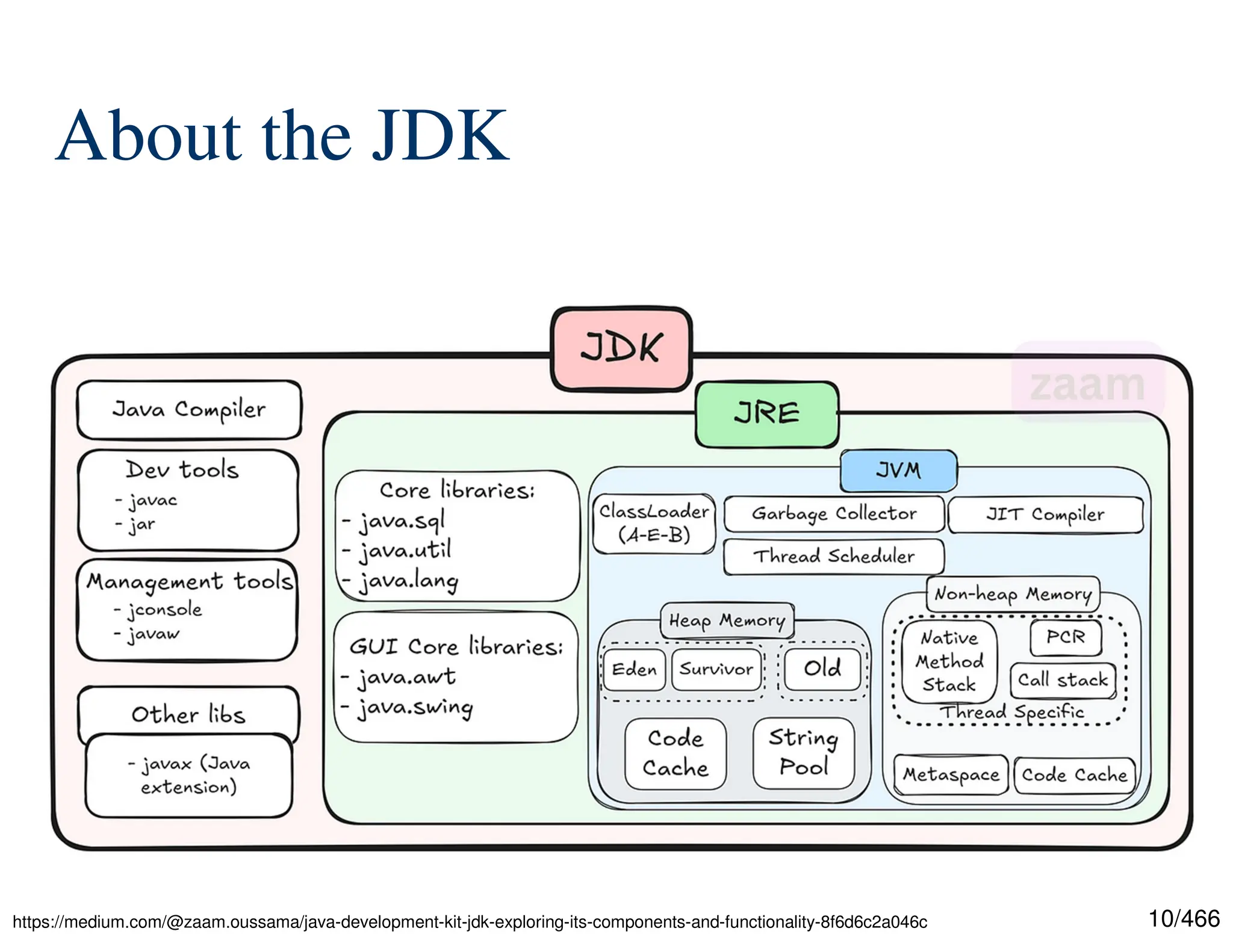
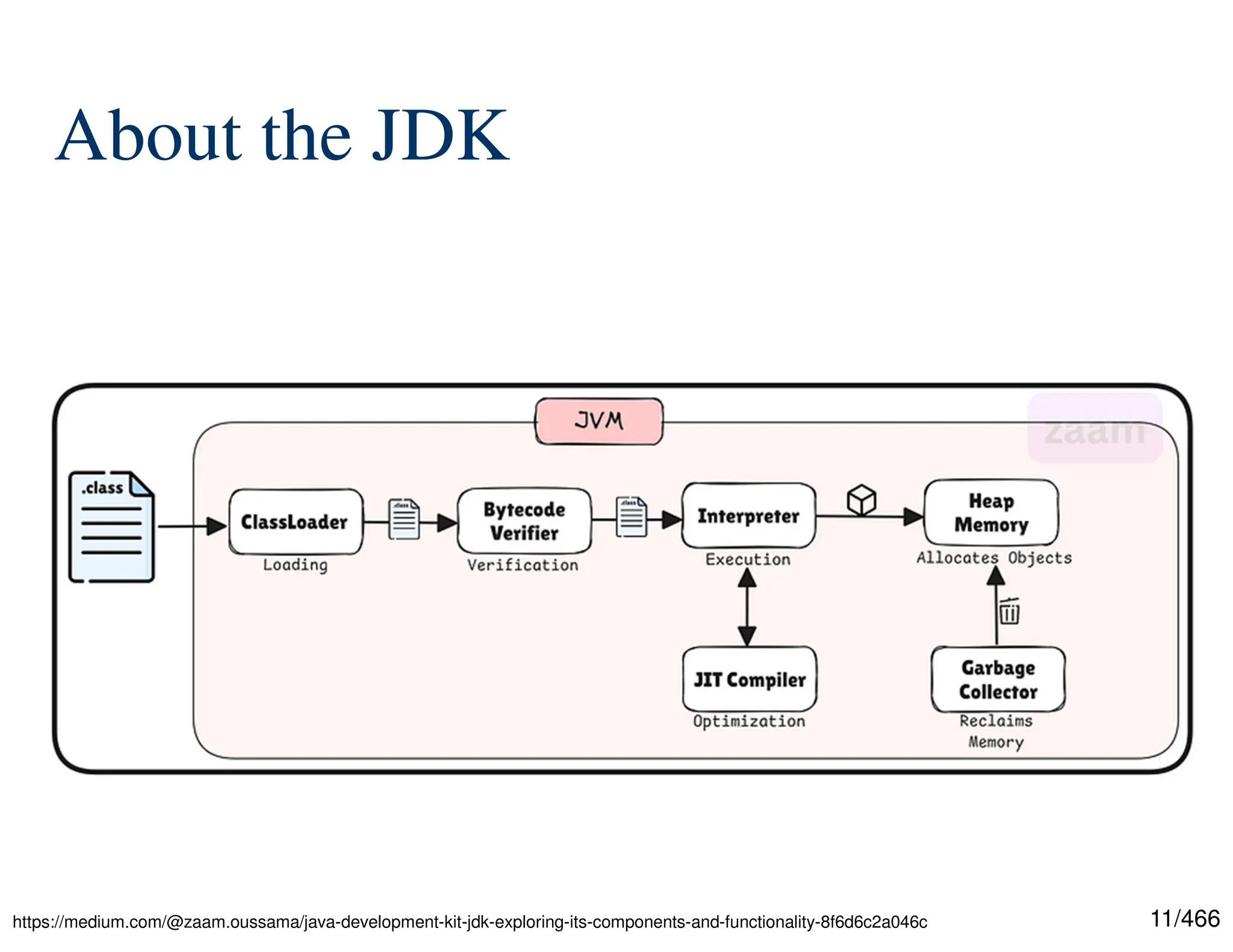
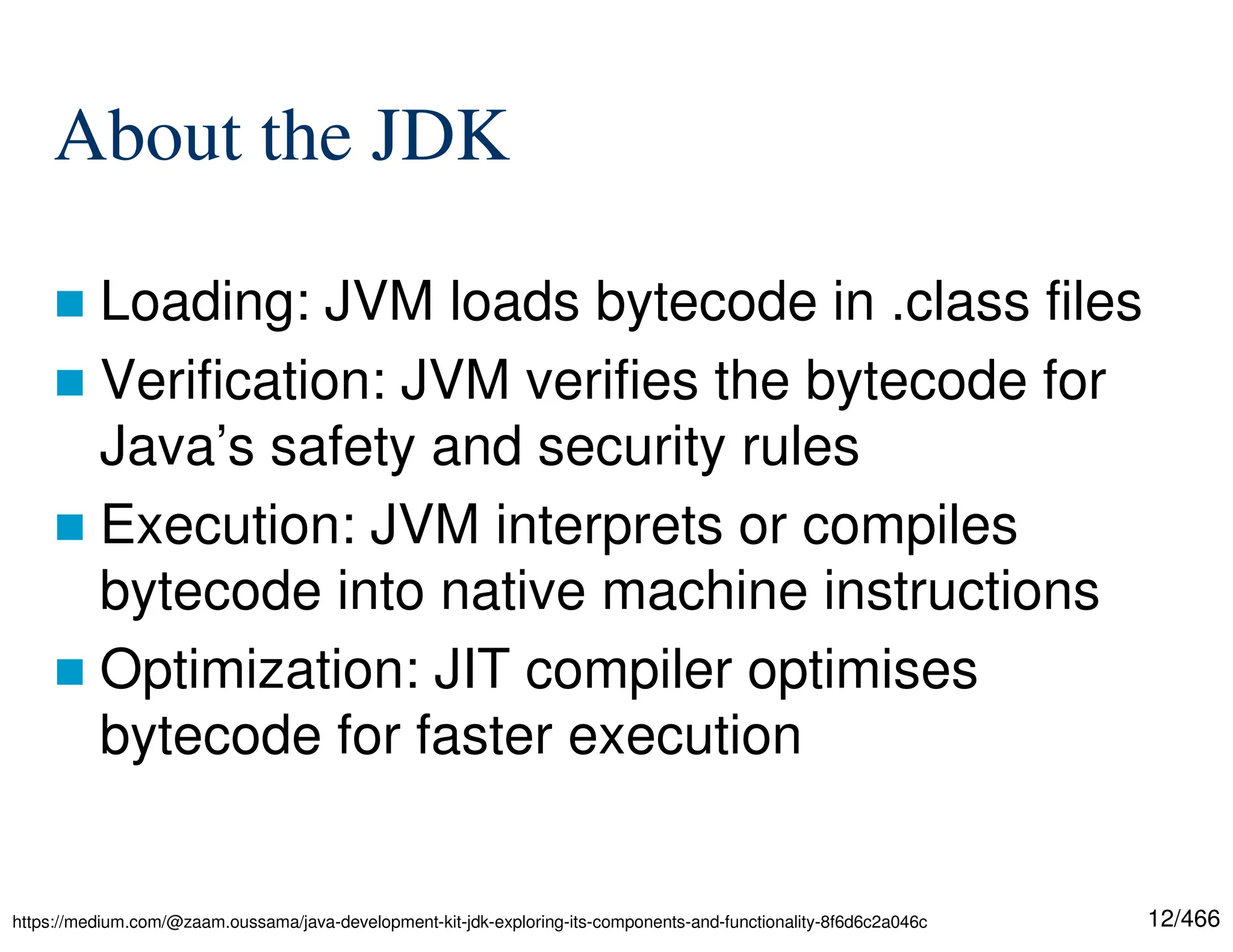
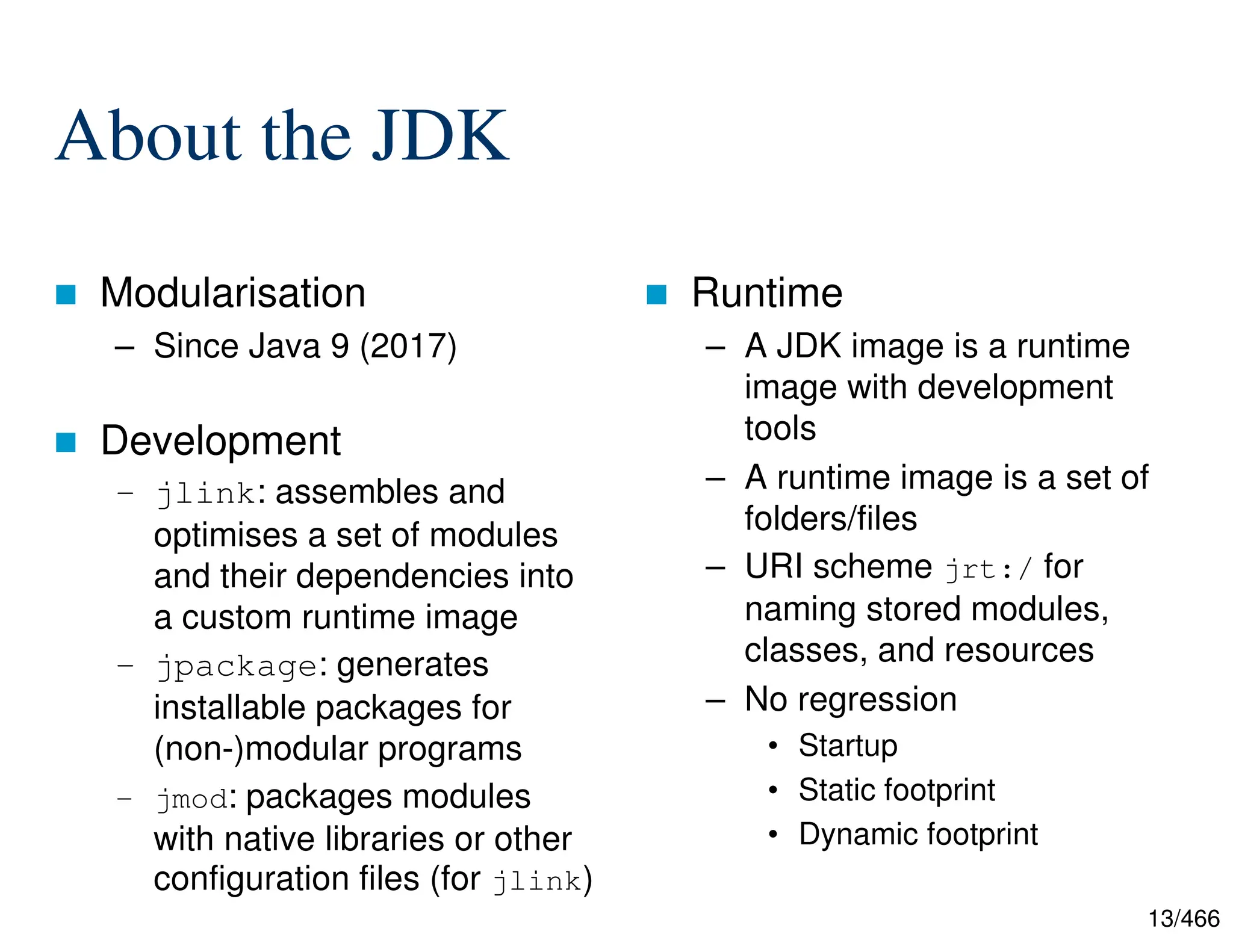
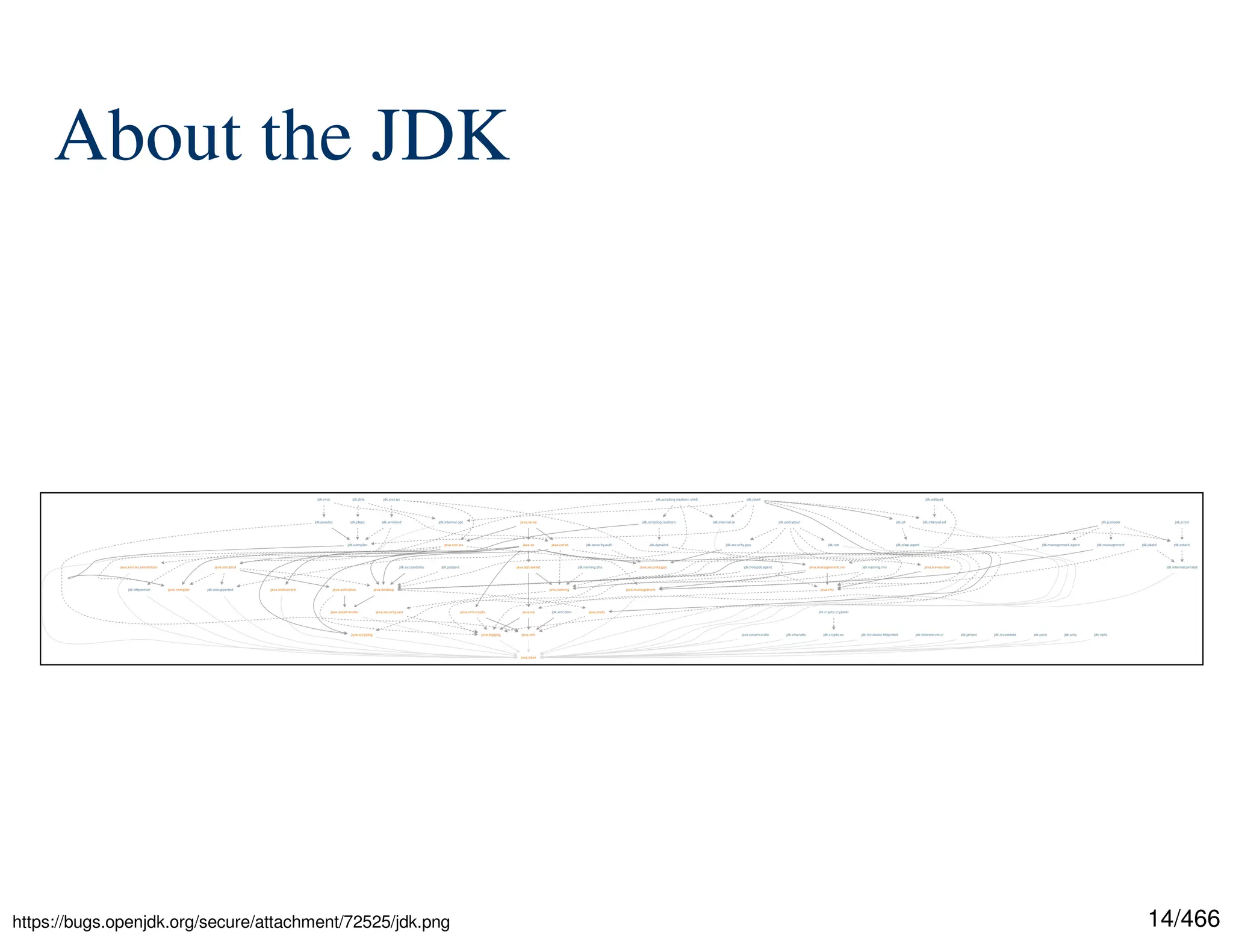

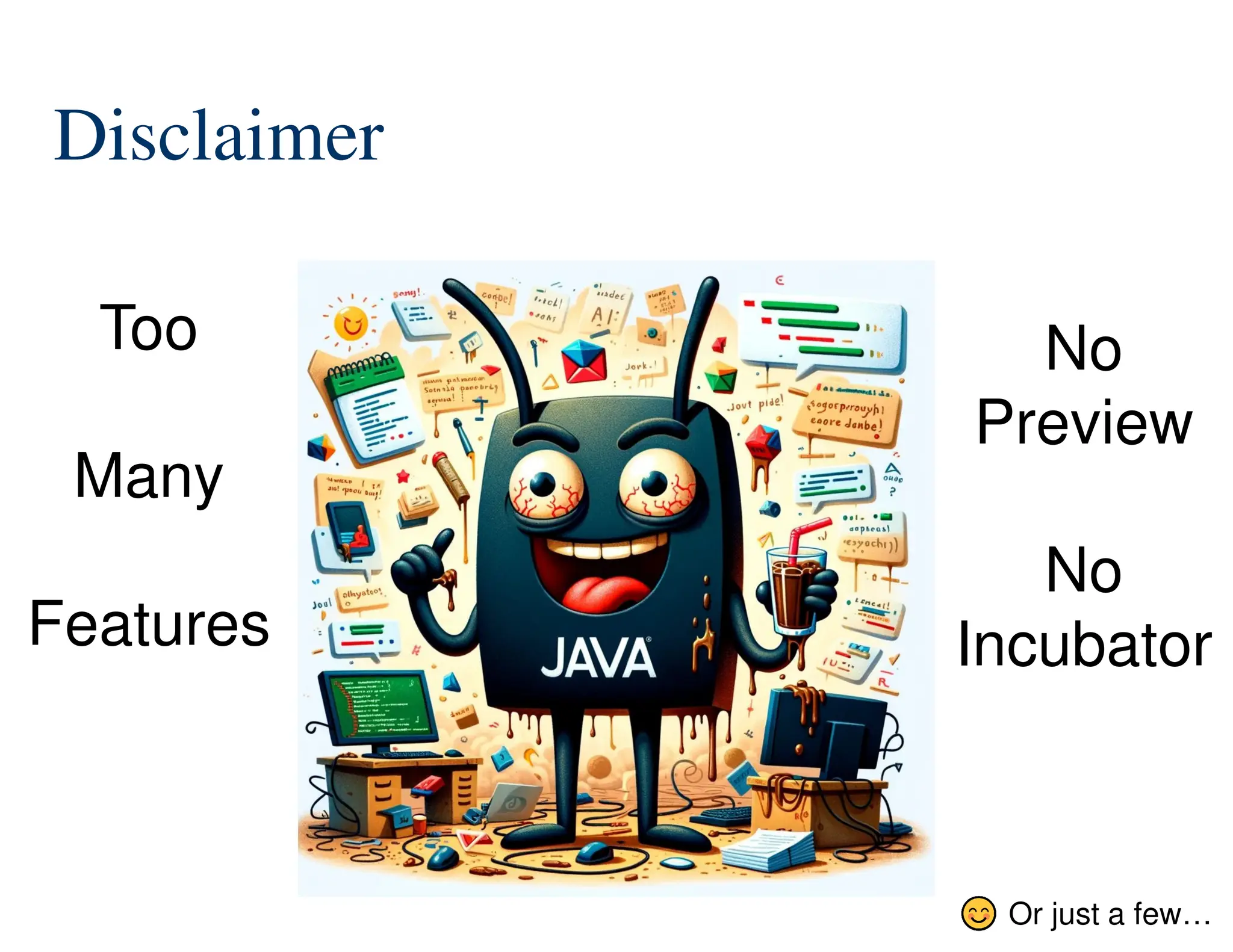
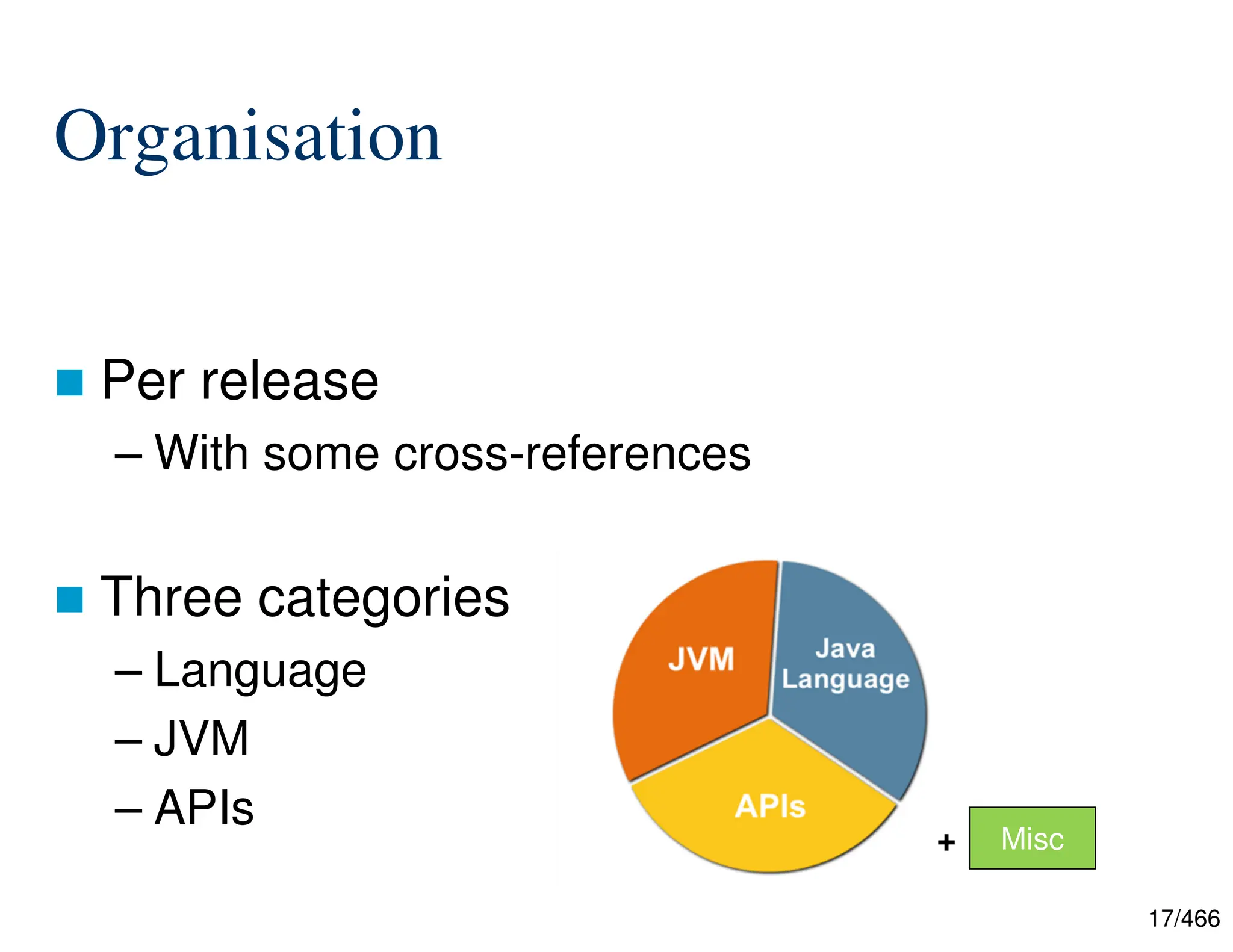
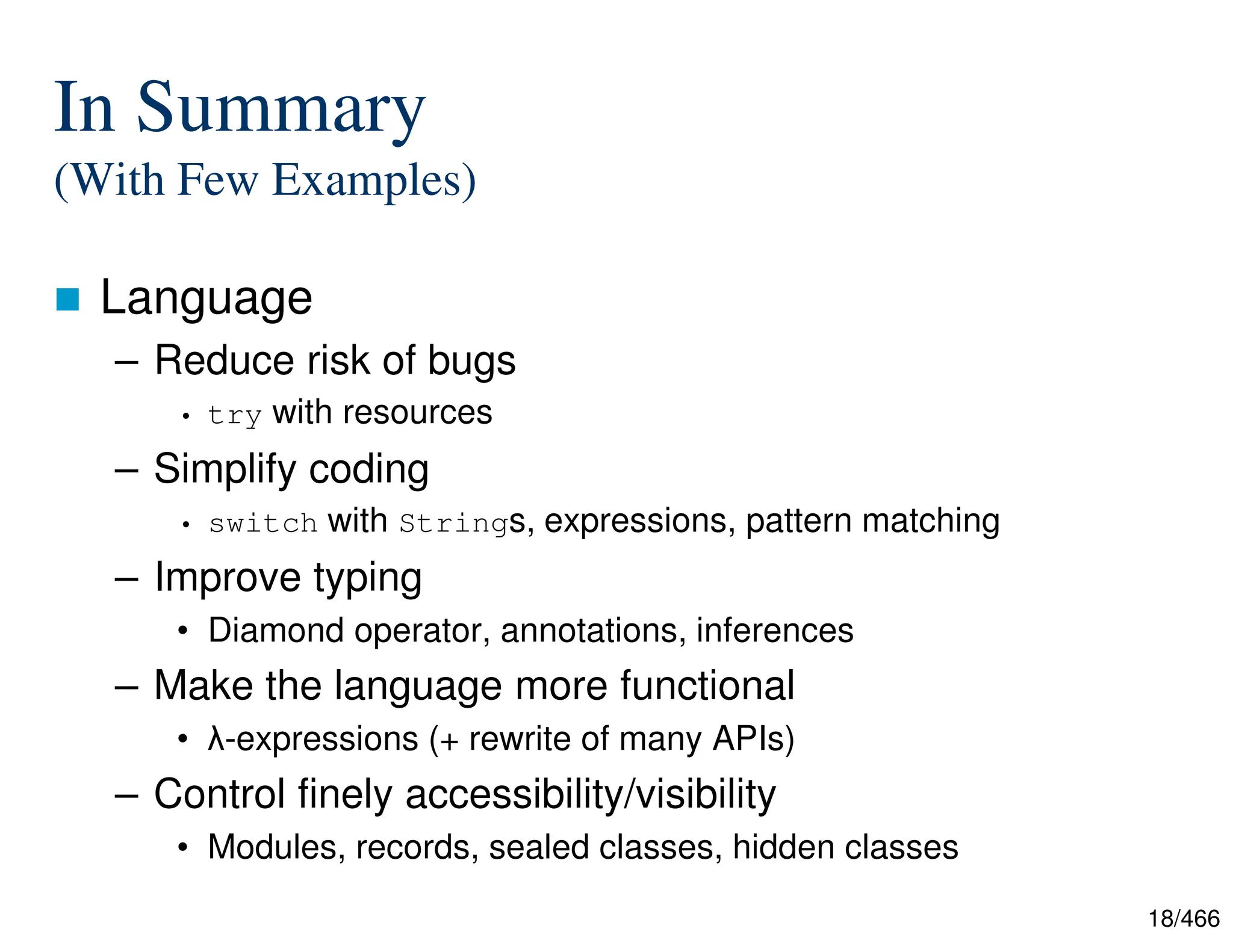
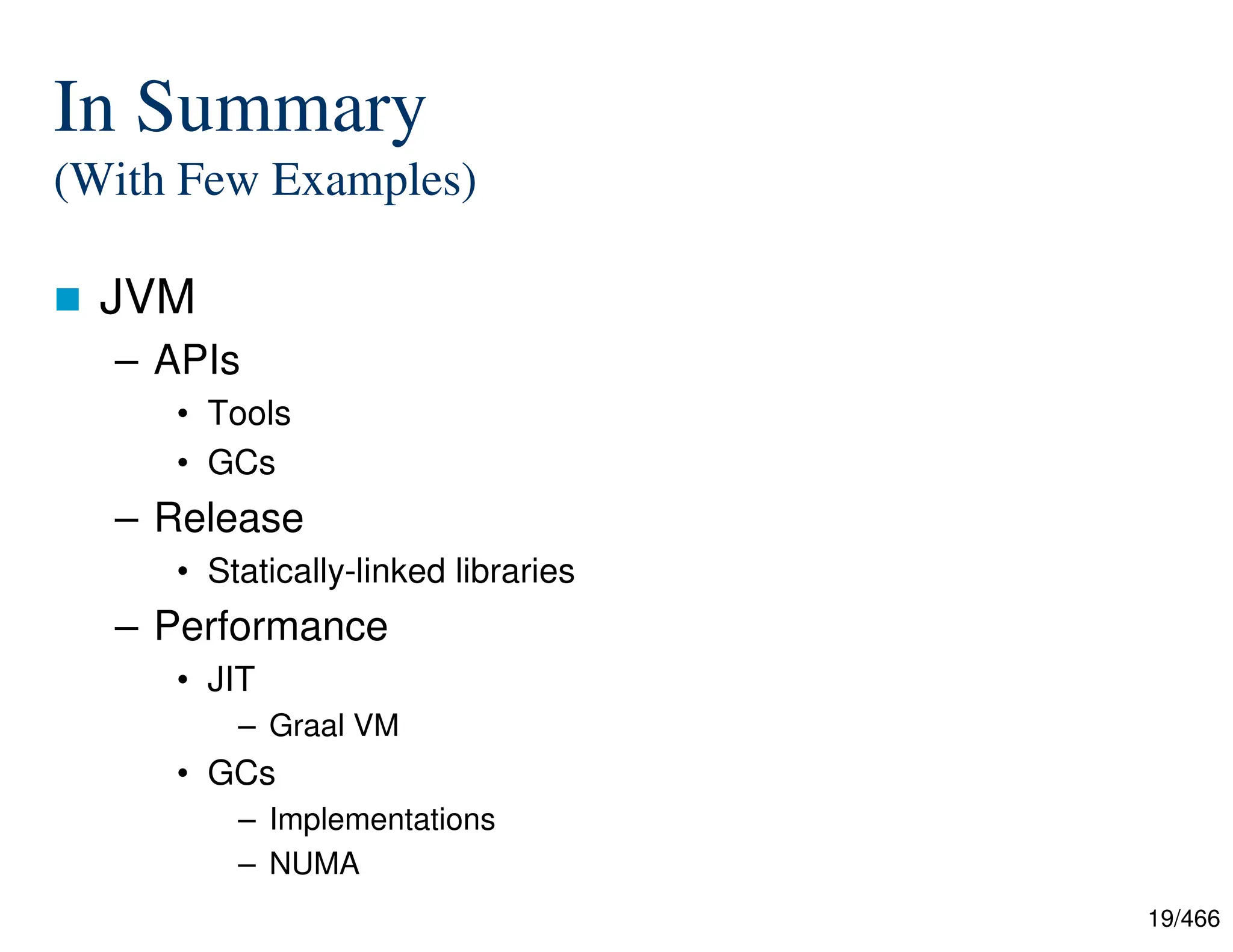
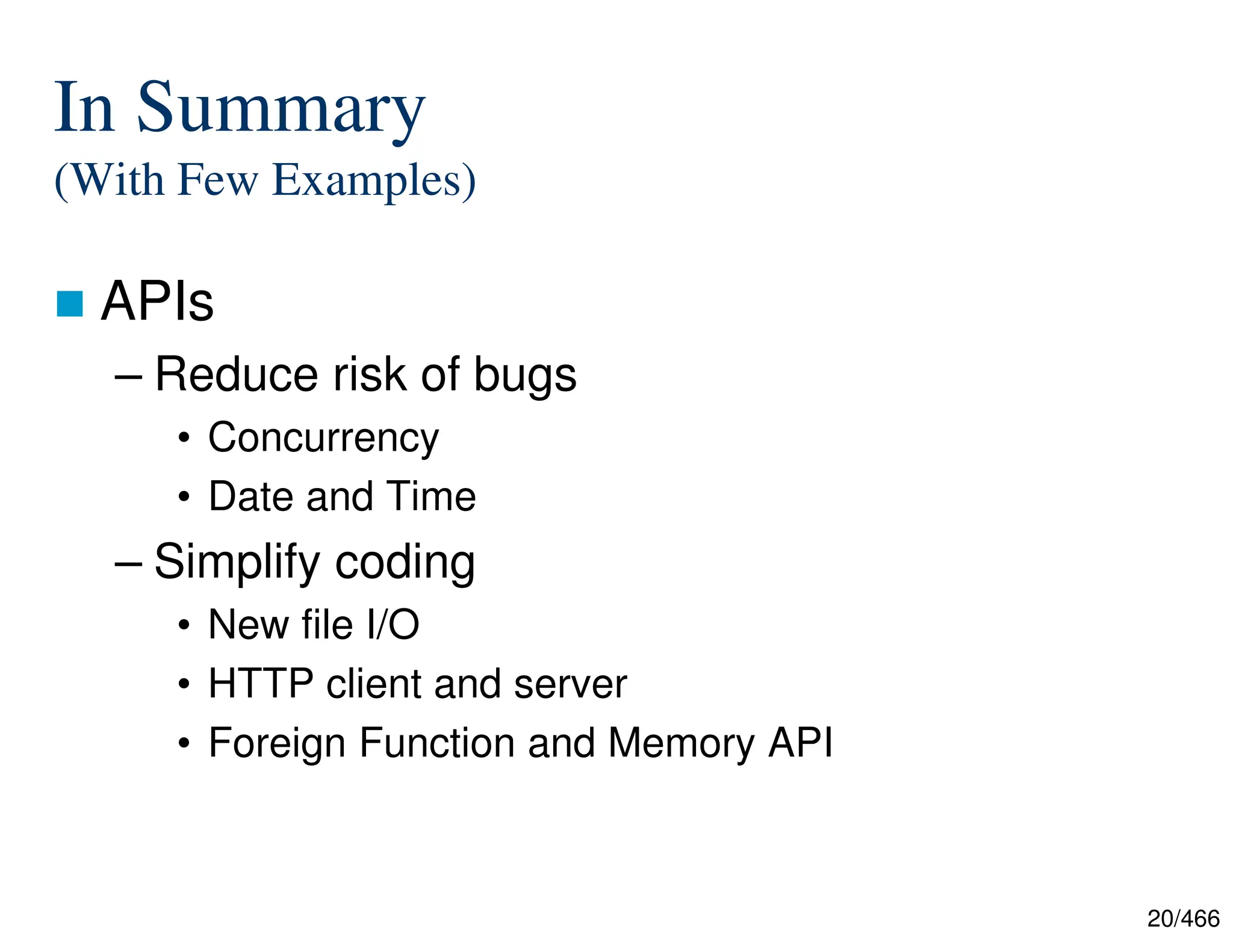
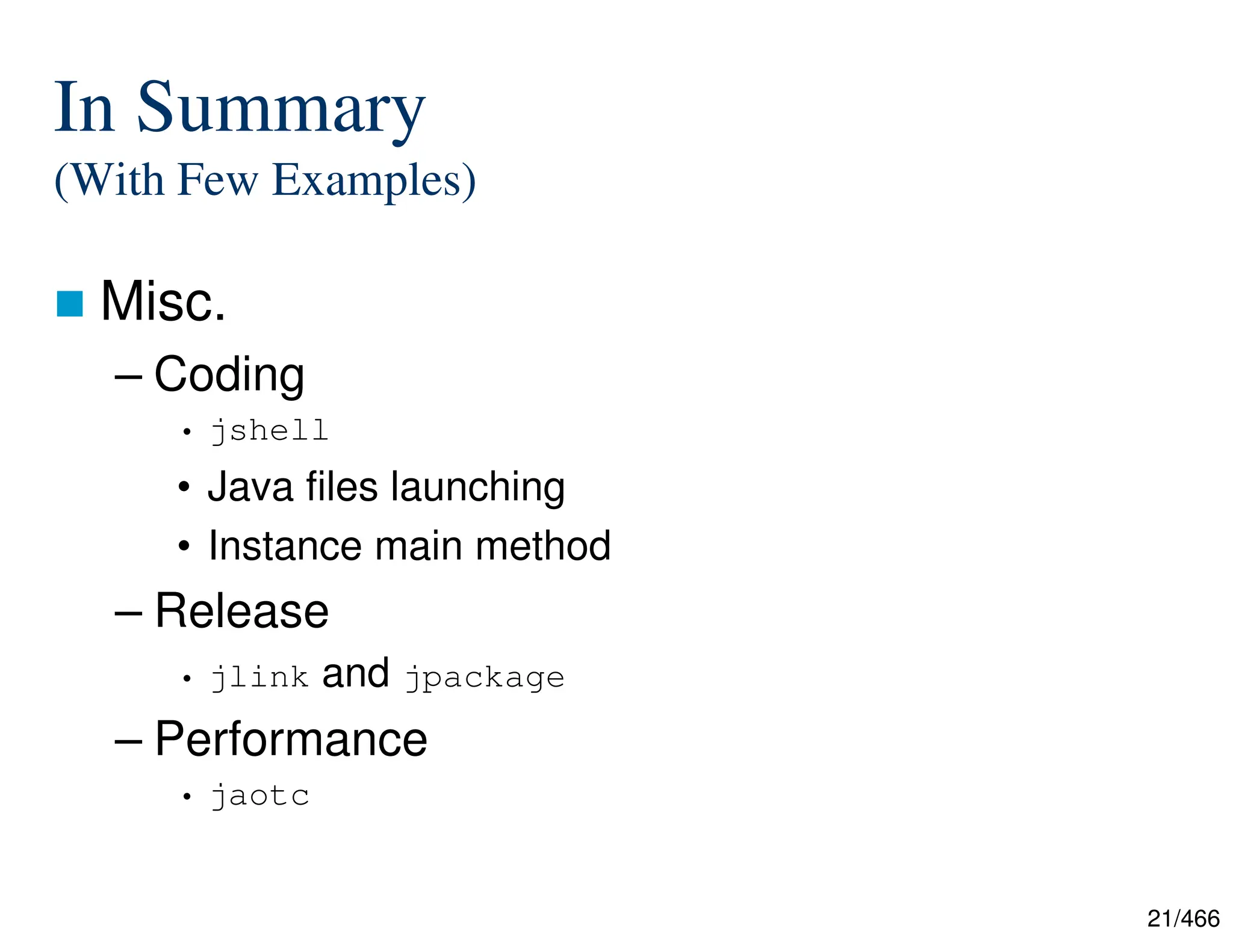
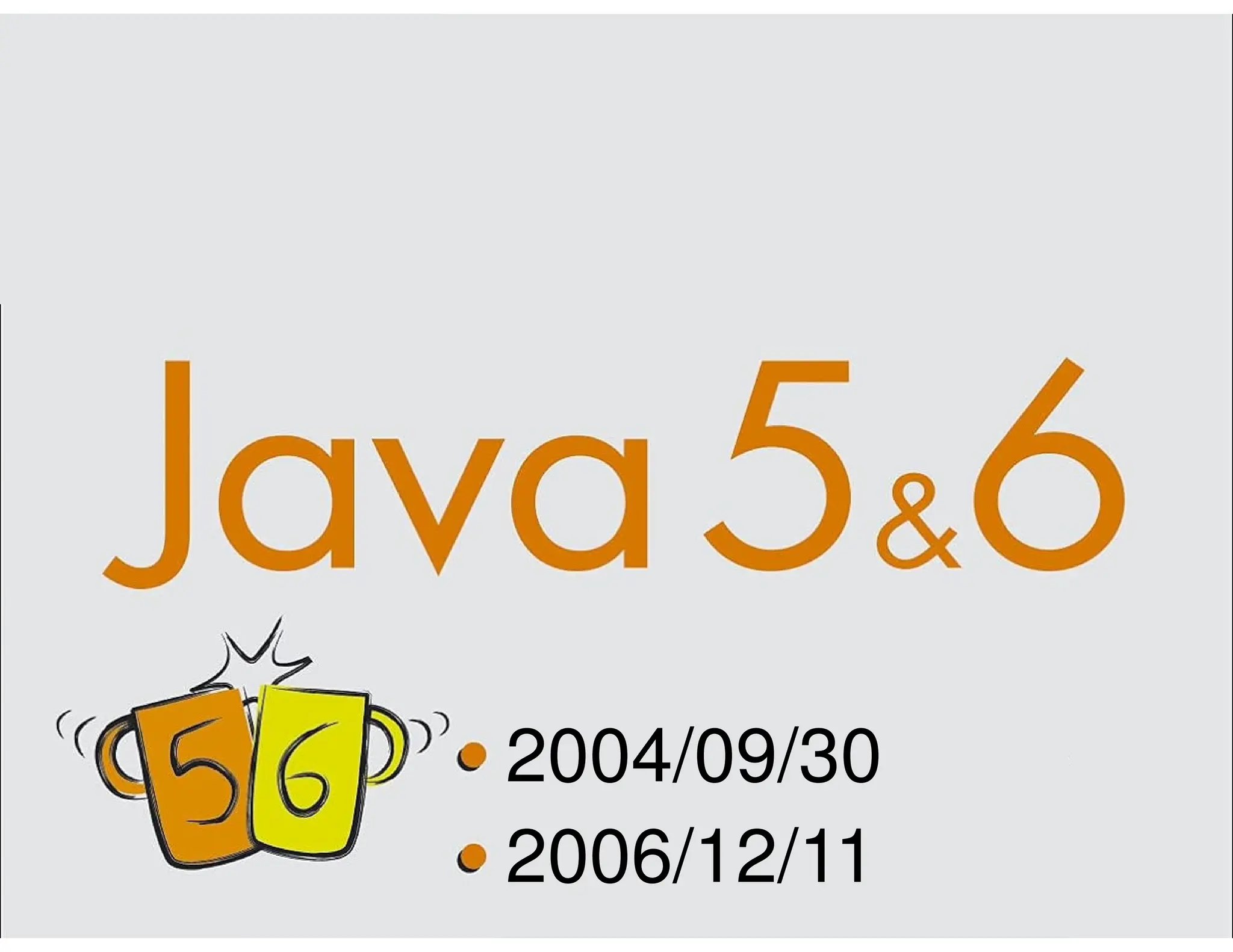

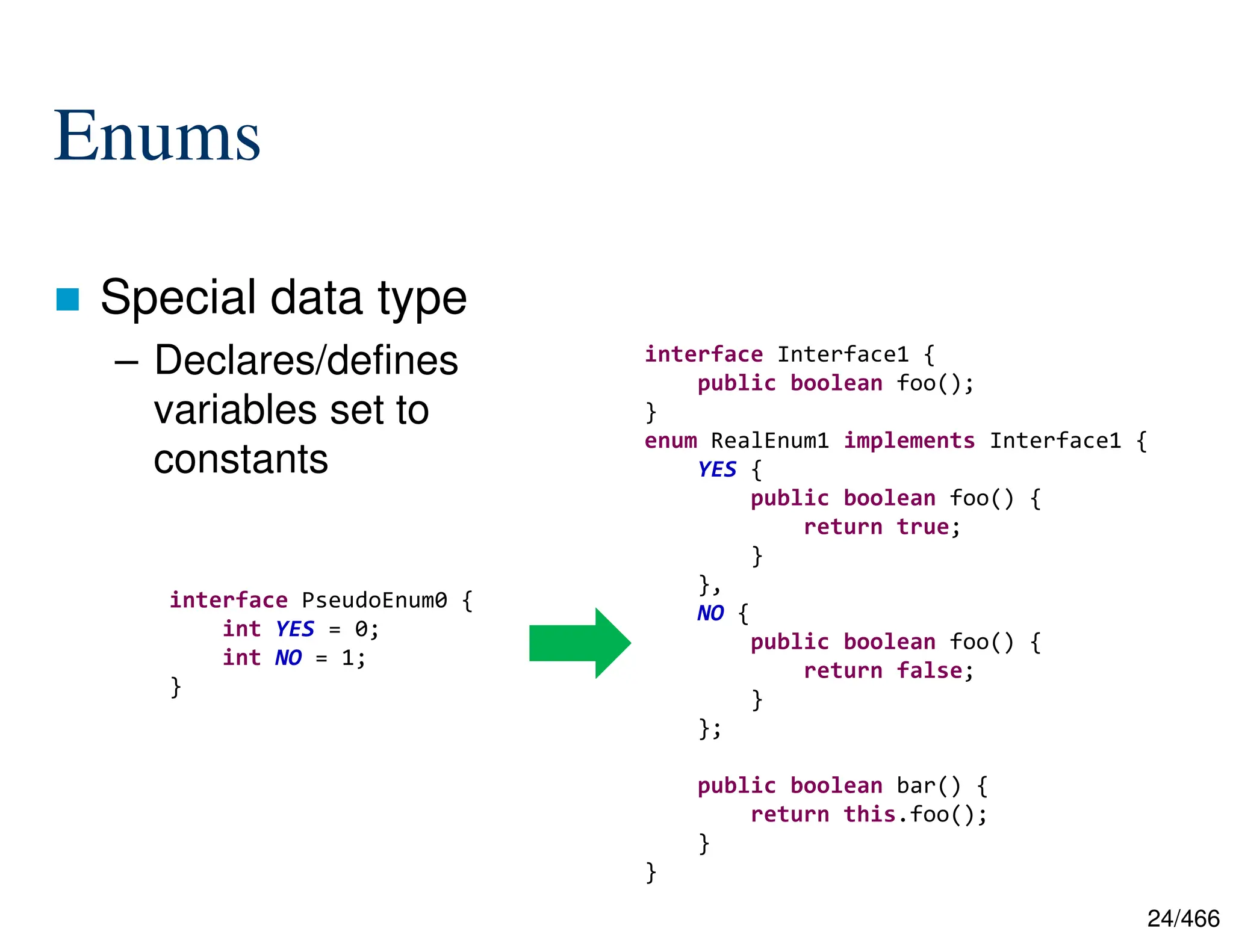
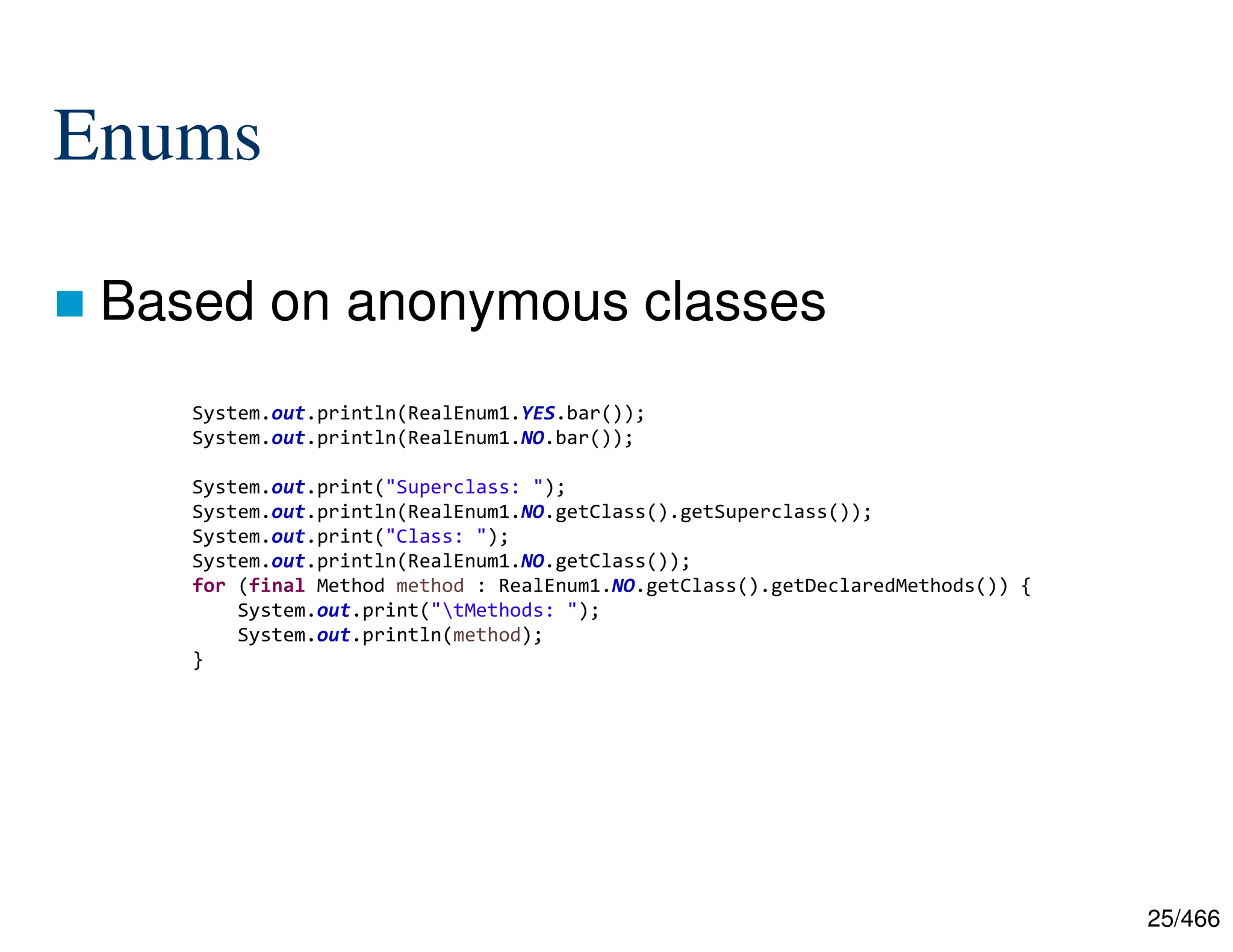
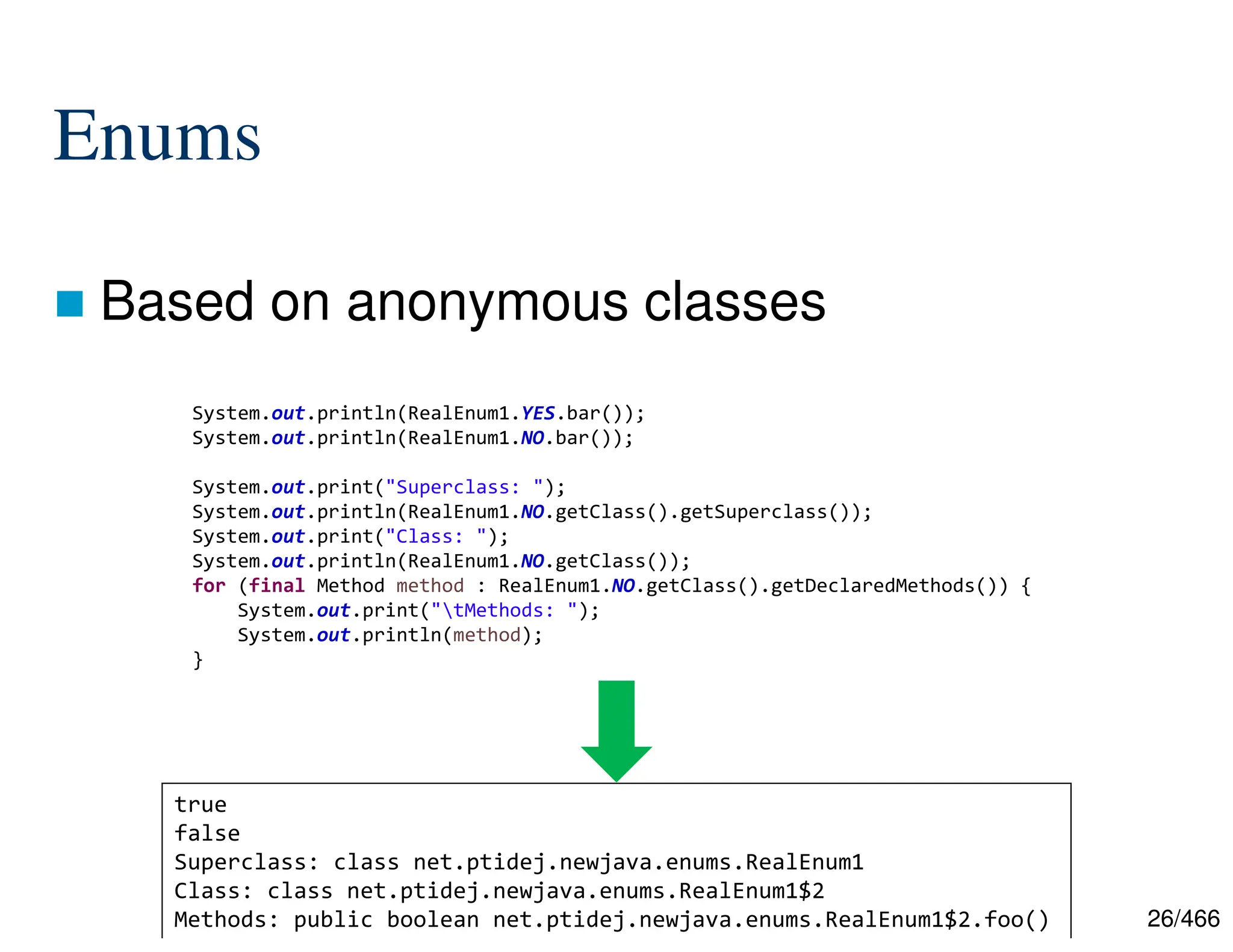
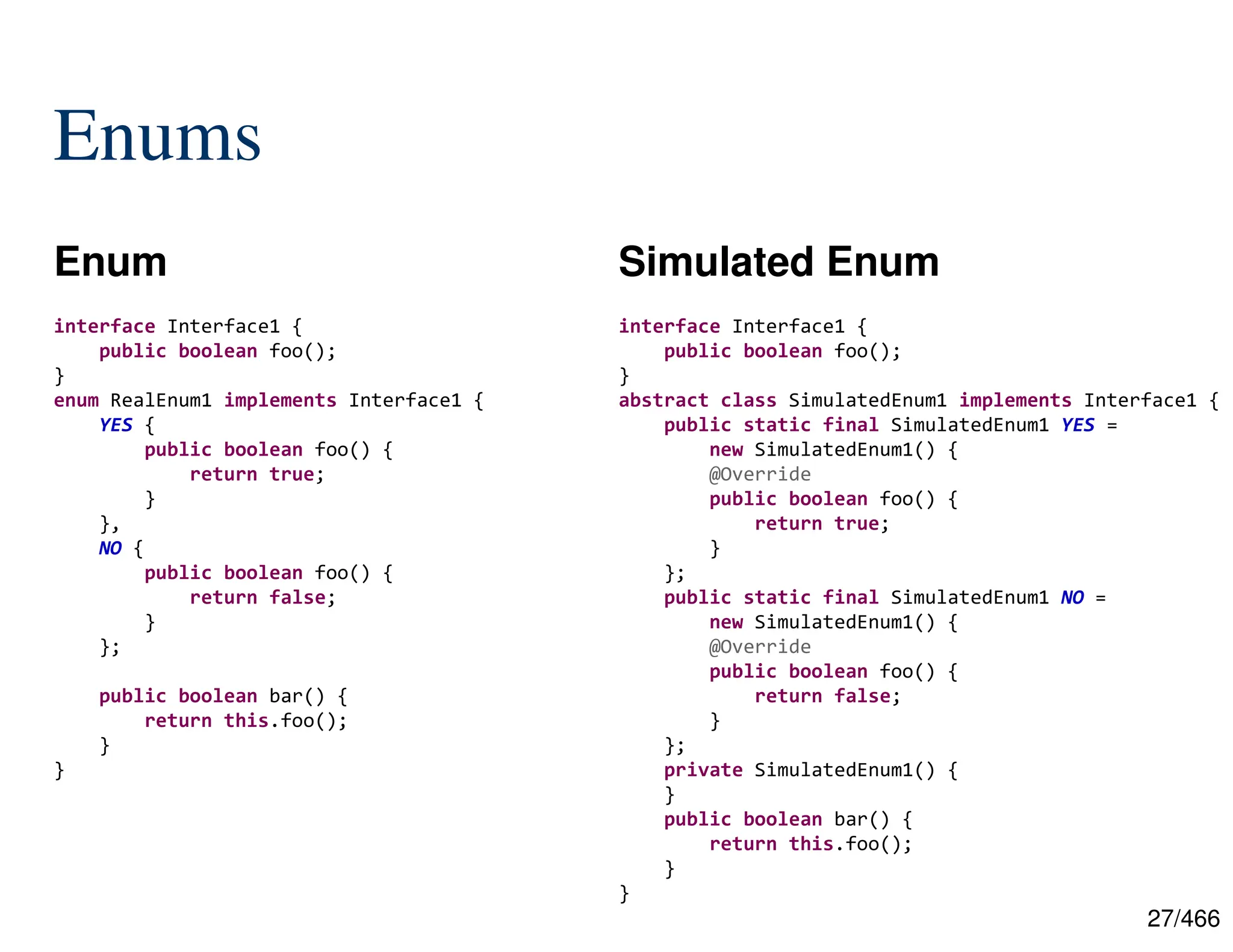
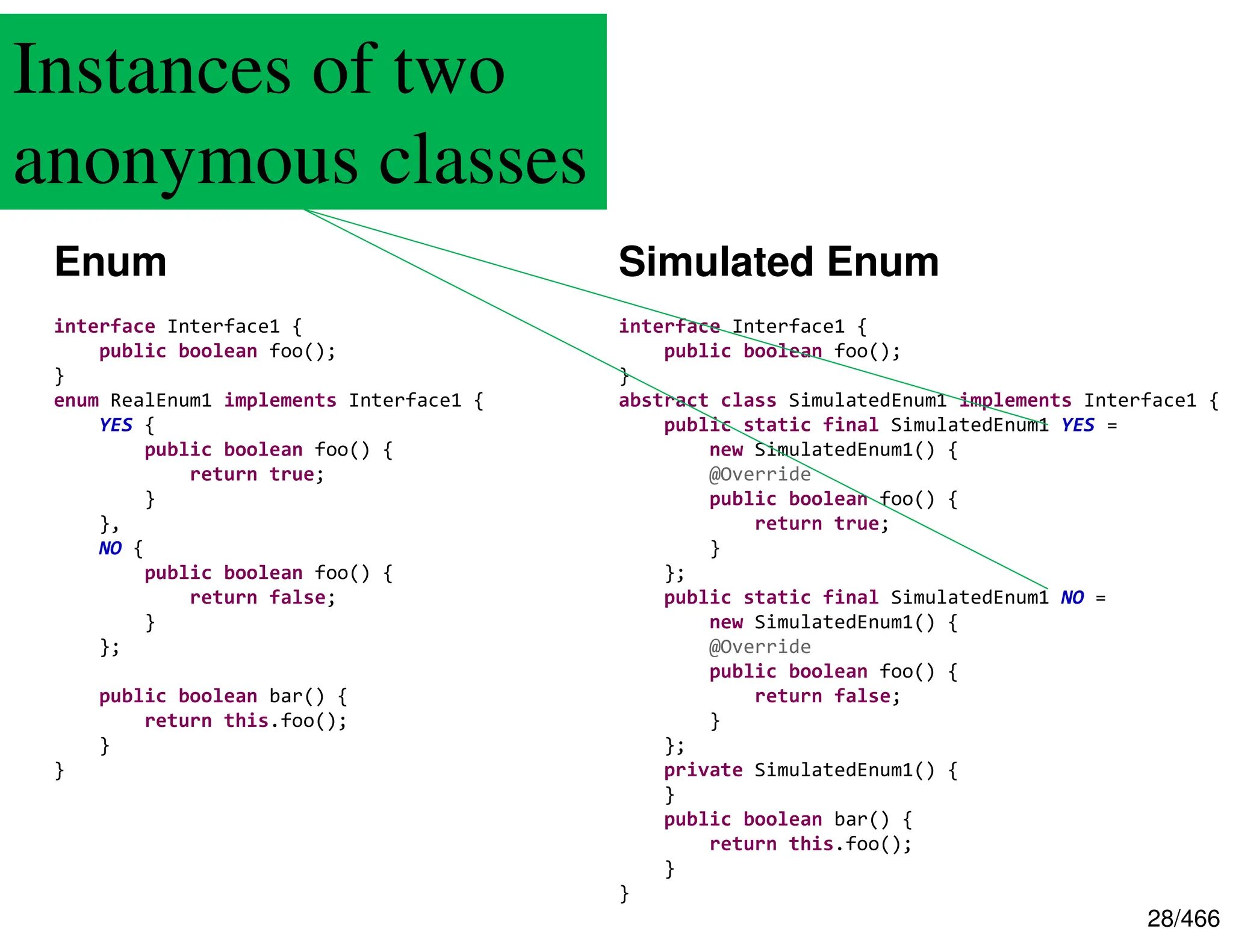
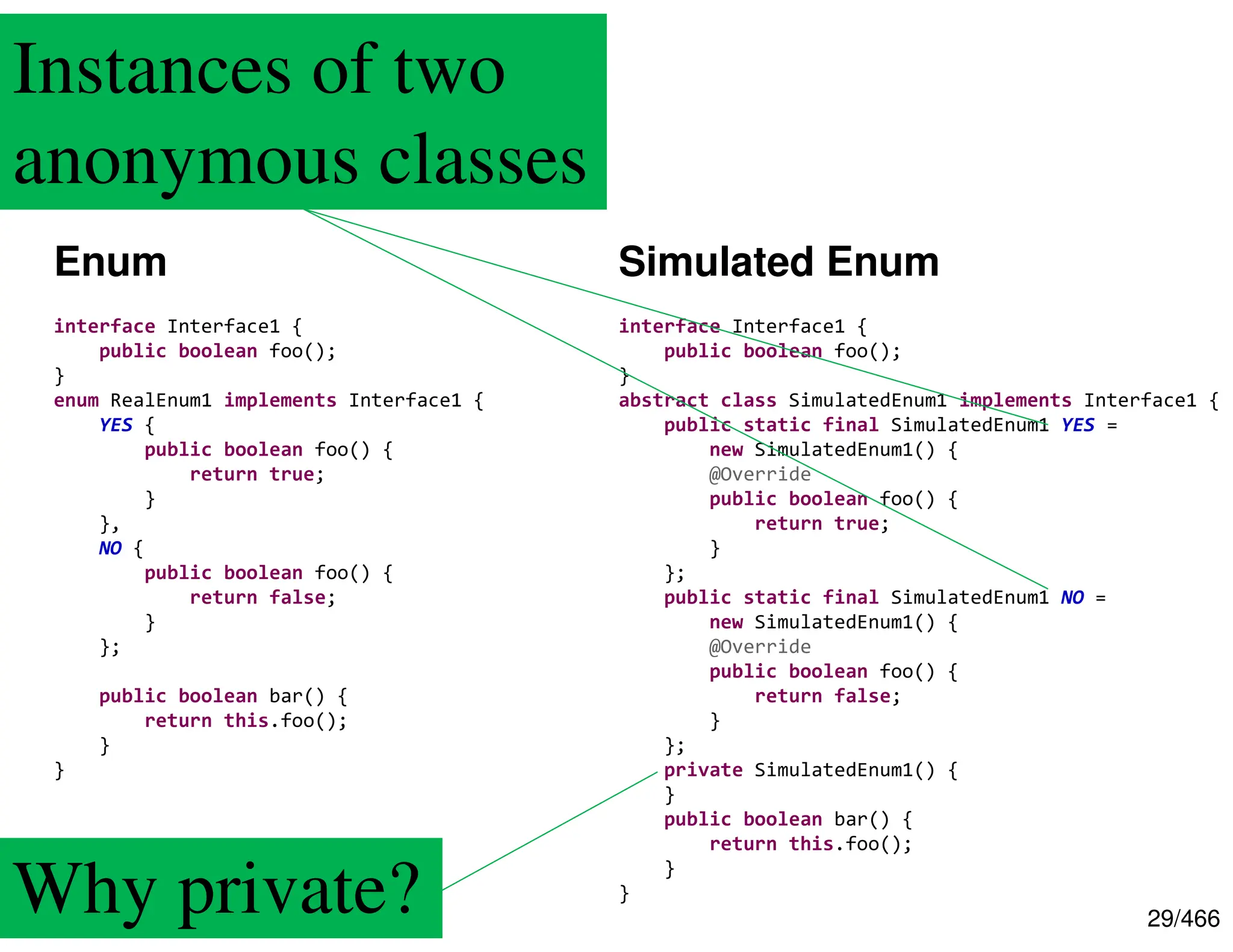
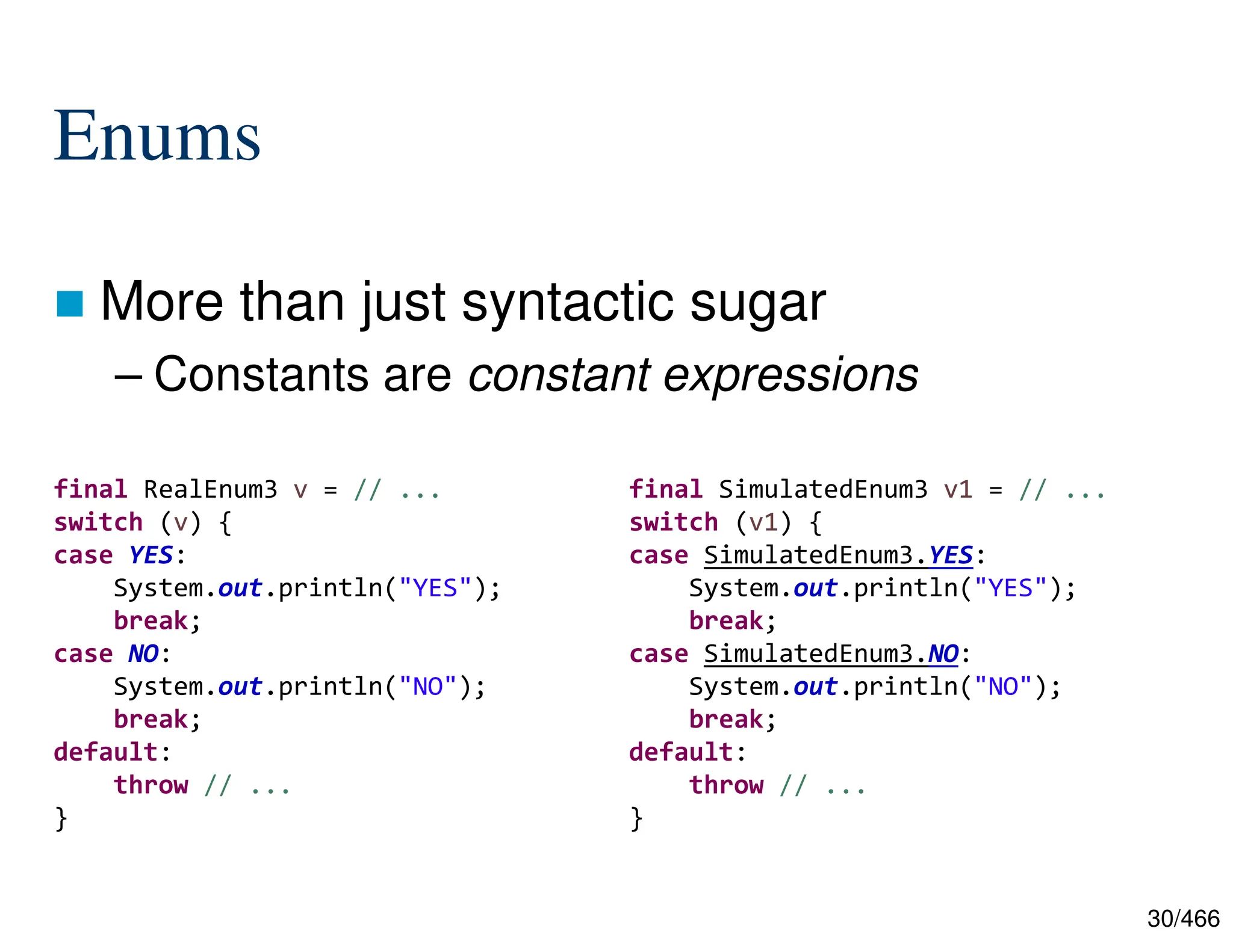
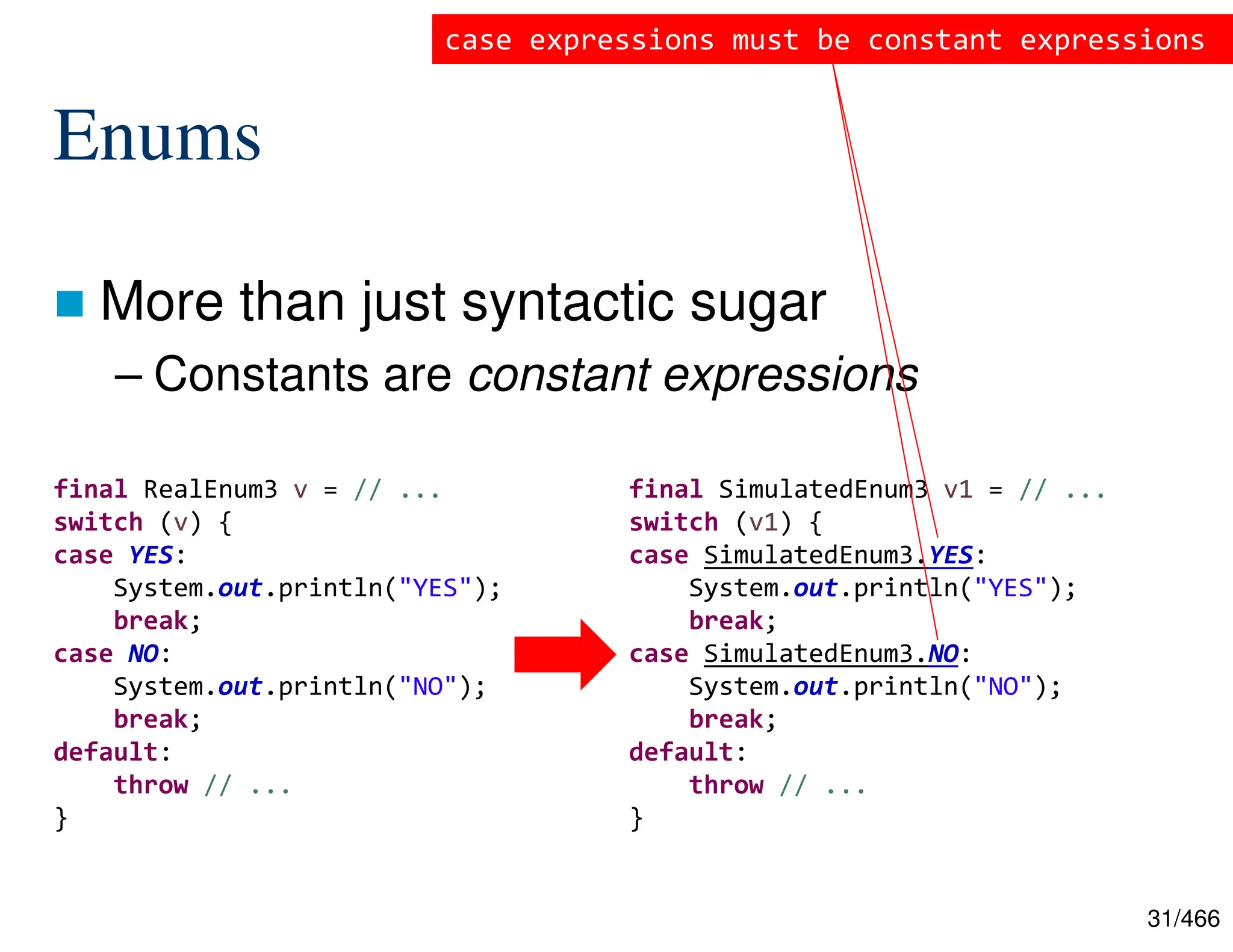
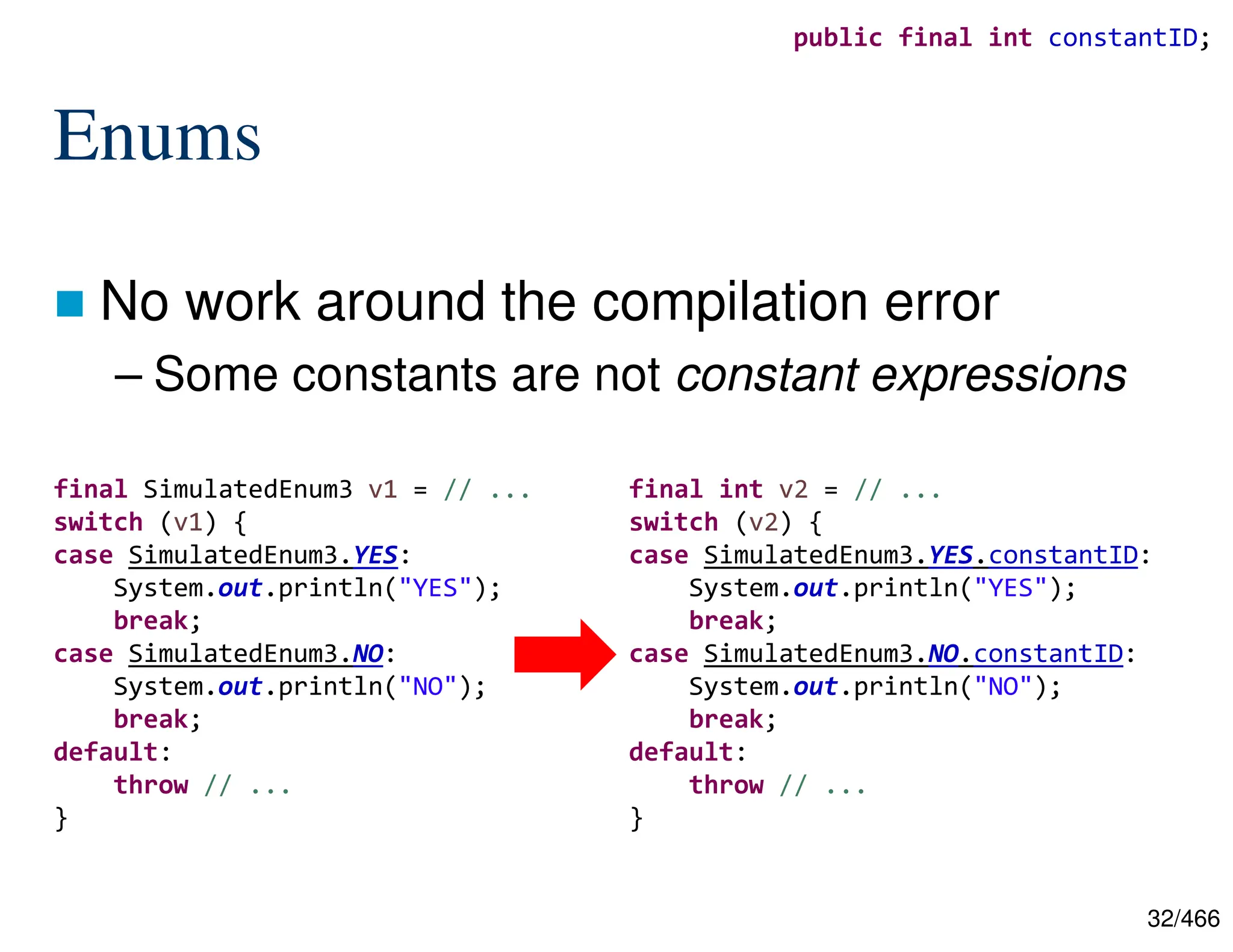
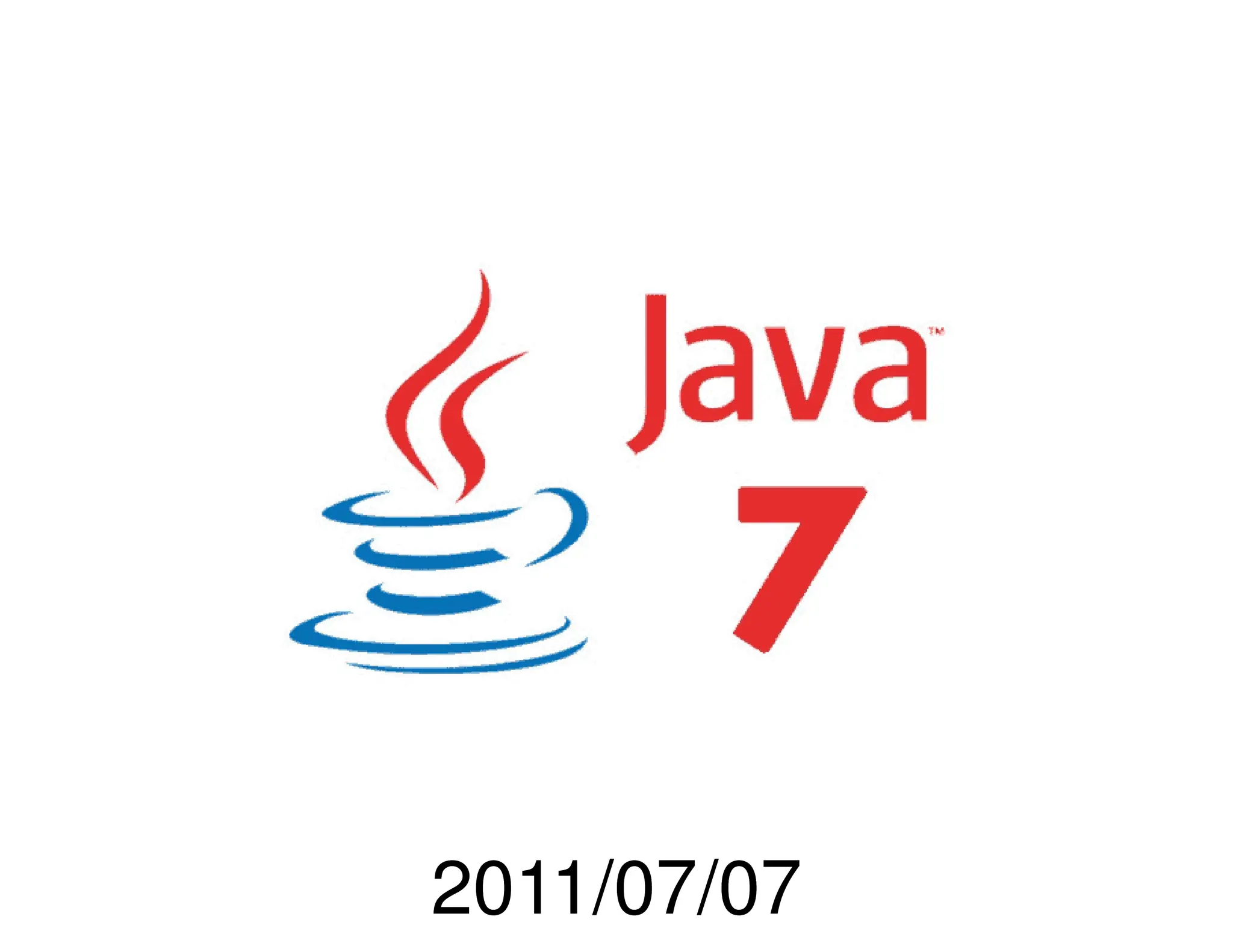

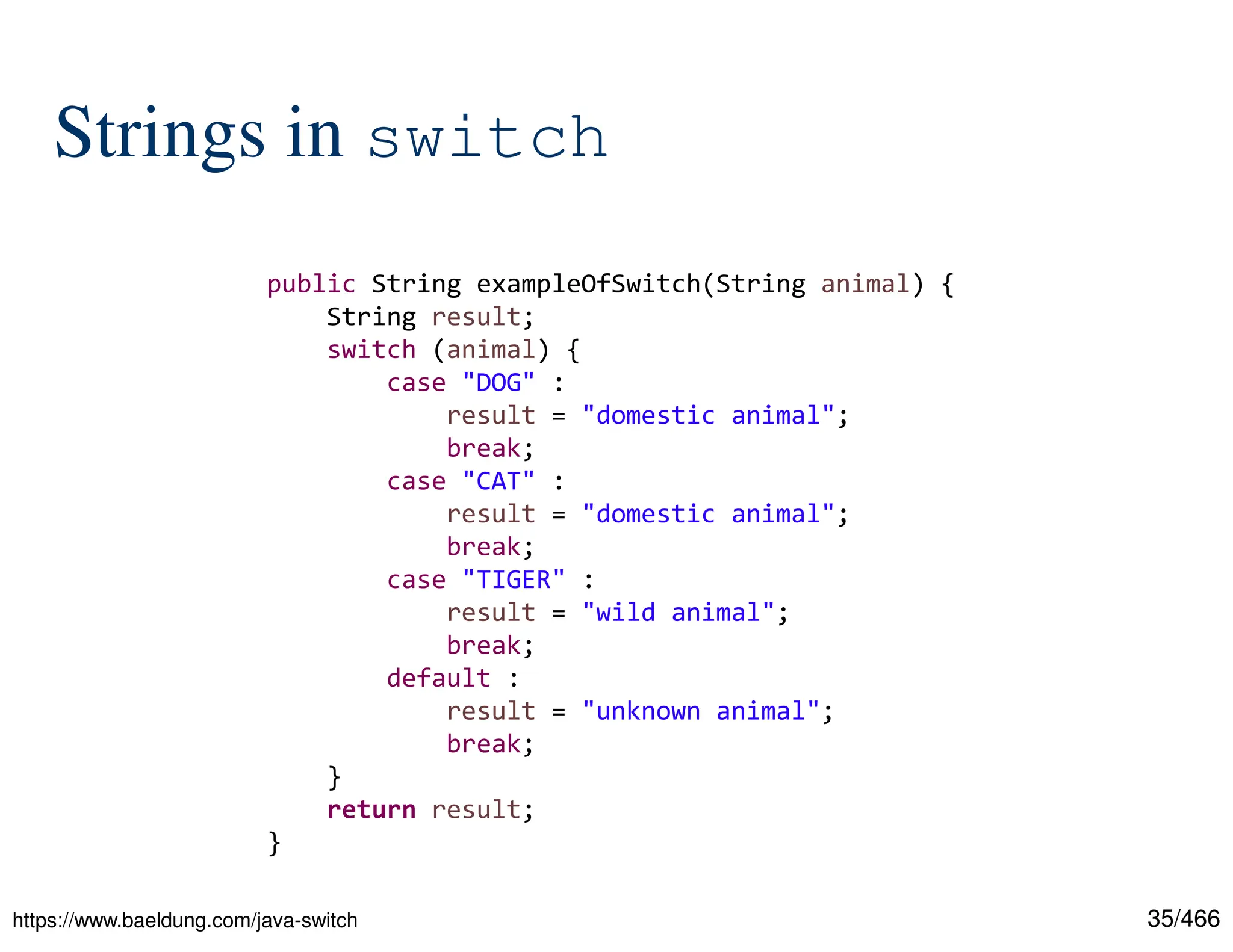
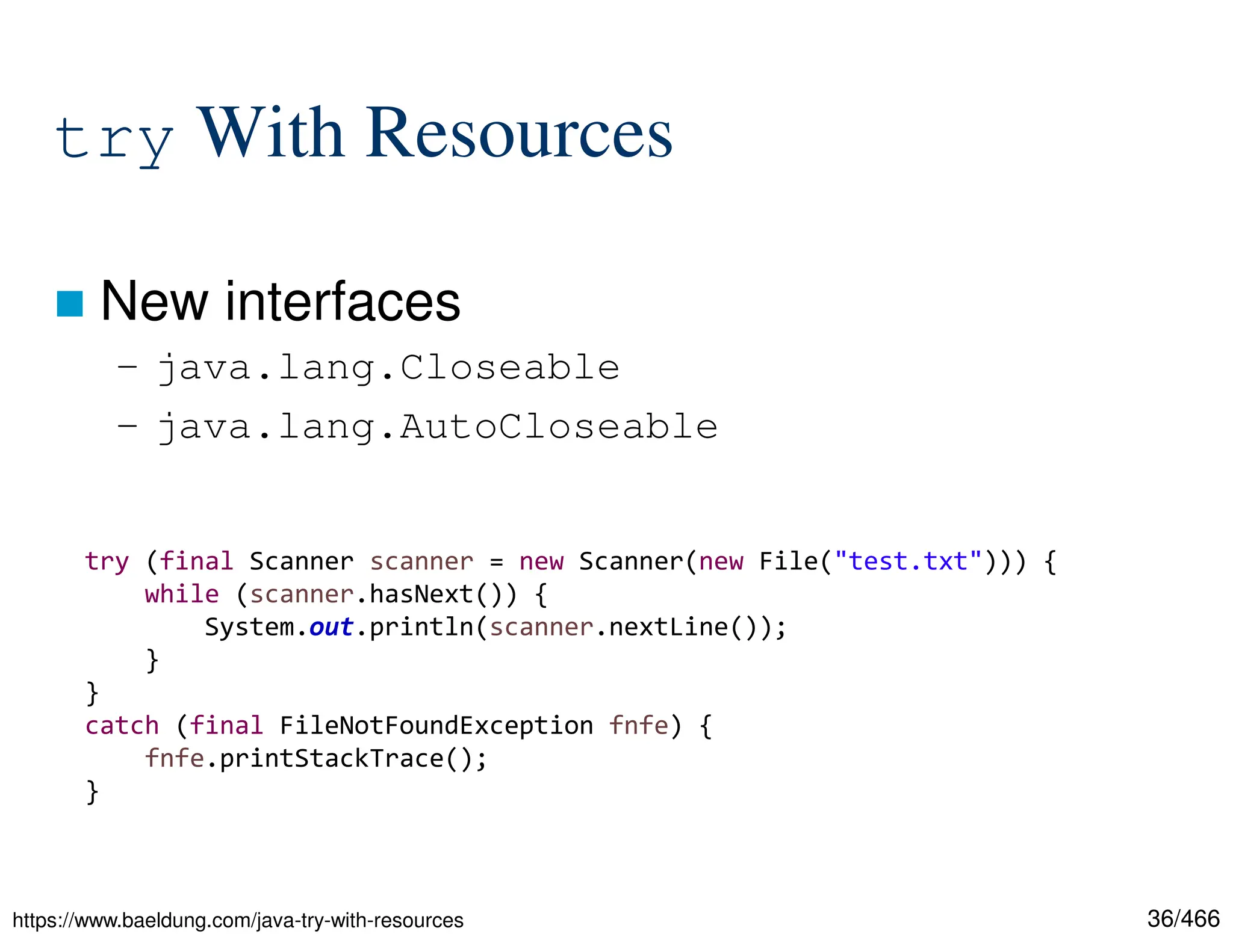
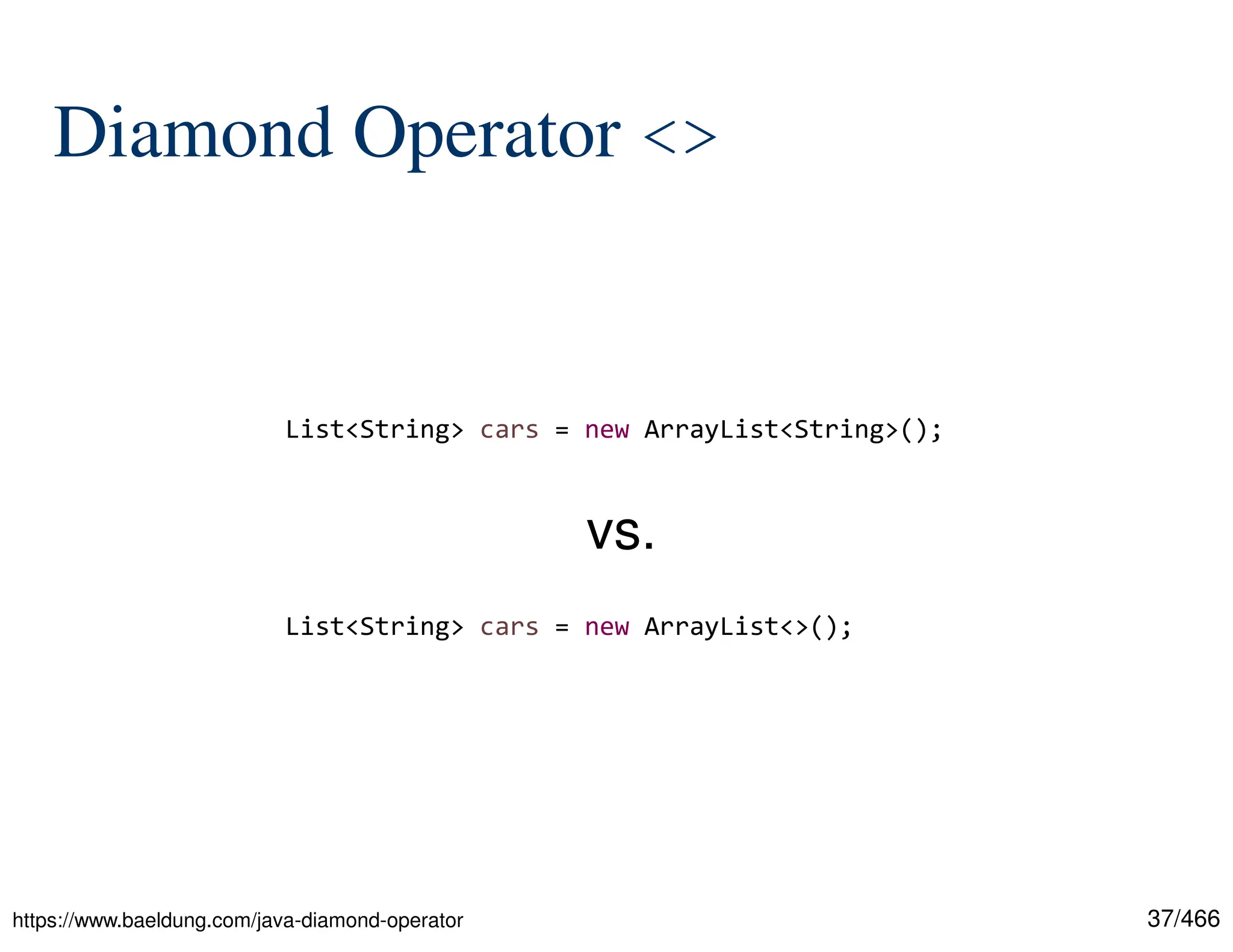
![38/466 Vargs in Method Declaration https://www.baeldung.com/java-varargs https://www.baeldung.com/java-varargs public String format() { // ... } public String format(String value) { //... } public String format(String val1, String val2) { // ... } public String formatWithVarArgs(String... values) { System.out.println(values[0]); System.out.println(values[1]); System.out.println(values[3]); // ... } vs.](https://image.slidesharecdn.com/newjavav0-250327235127-ec555181/75/Evolution-and-Examples-of-Java-Features-from-Java-1-7-to-Java-24-38-2048.jpg)
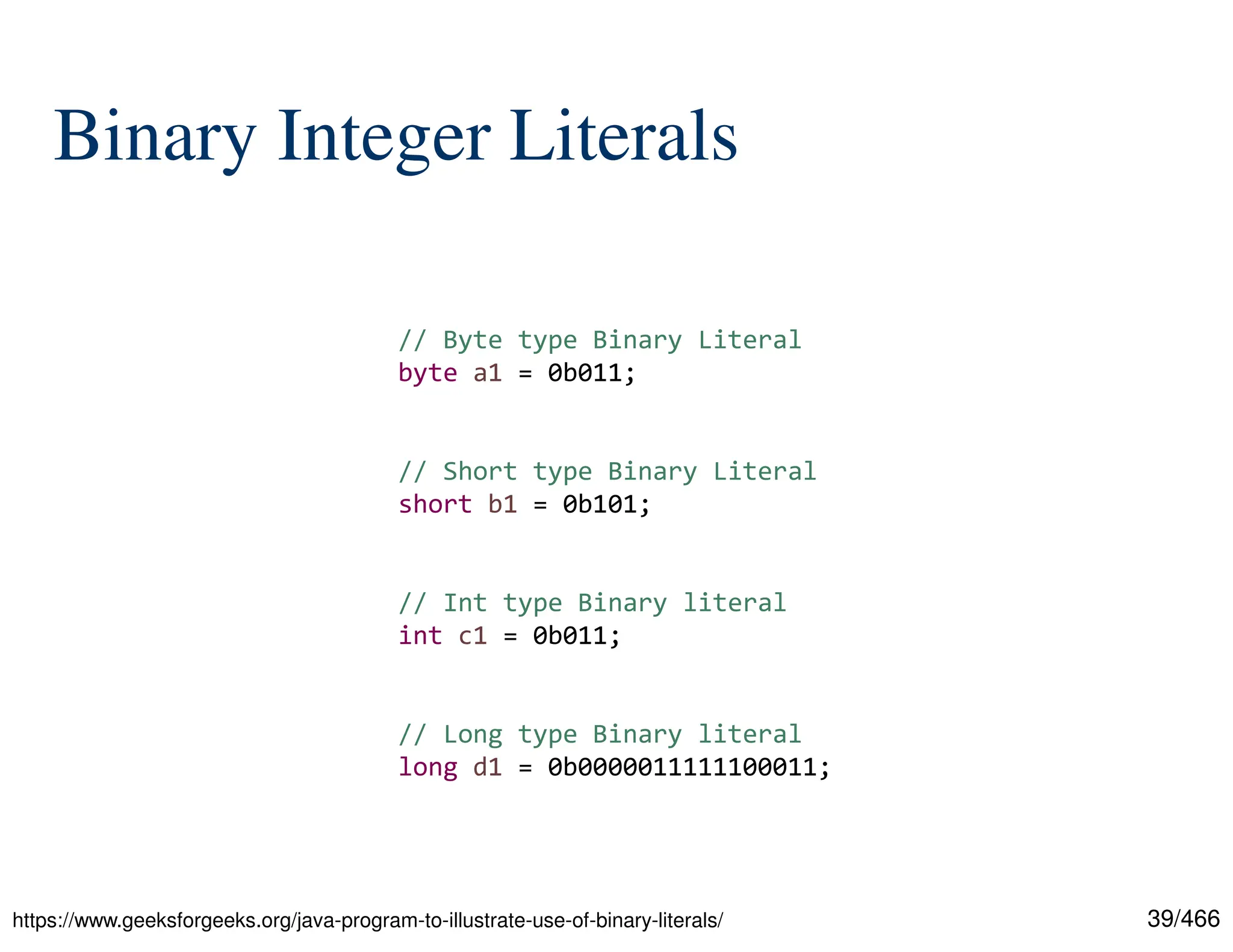
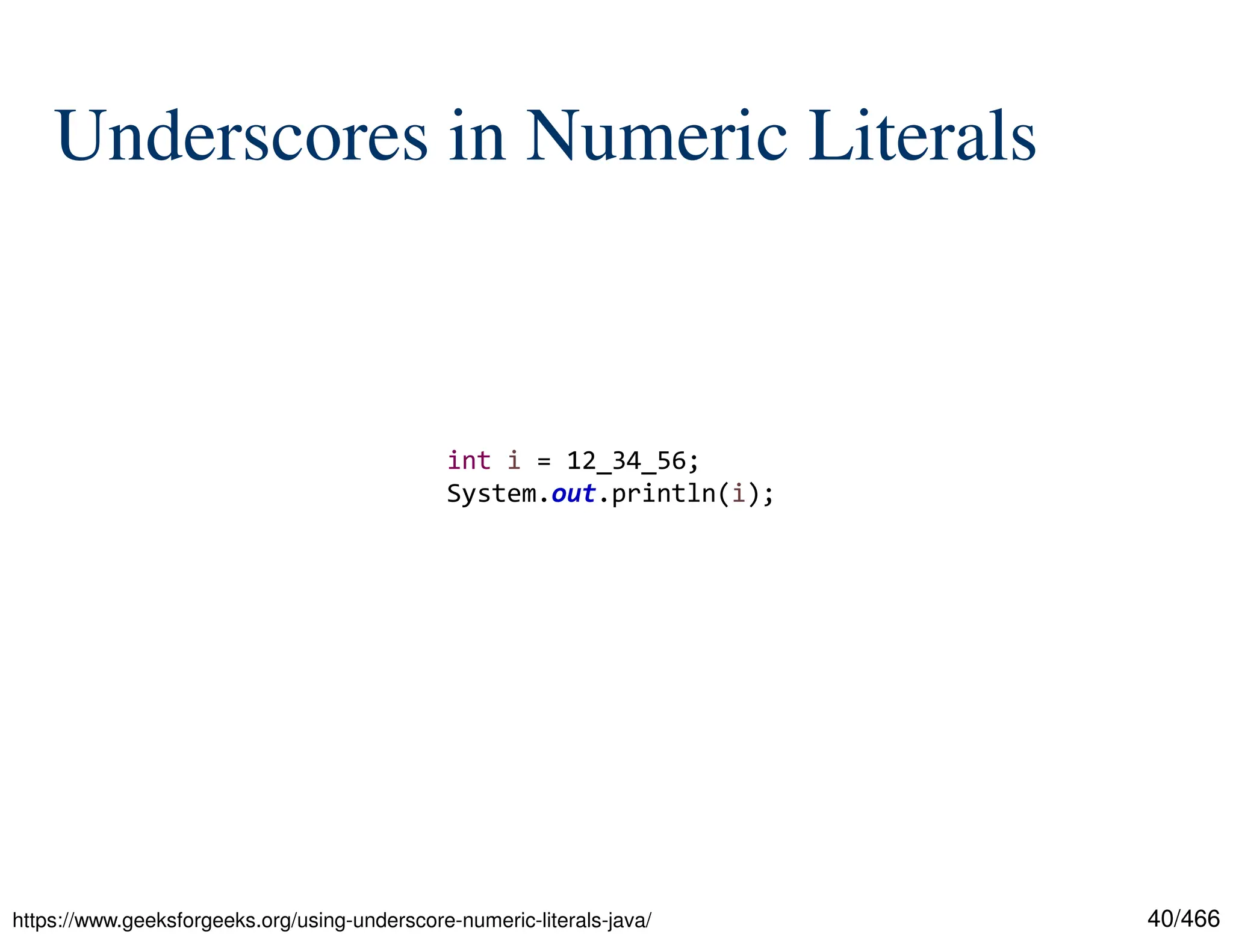
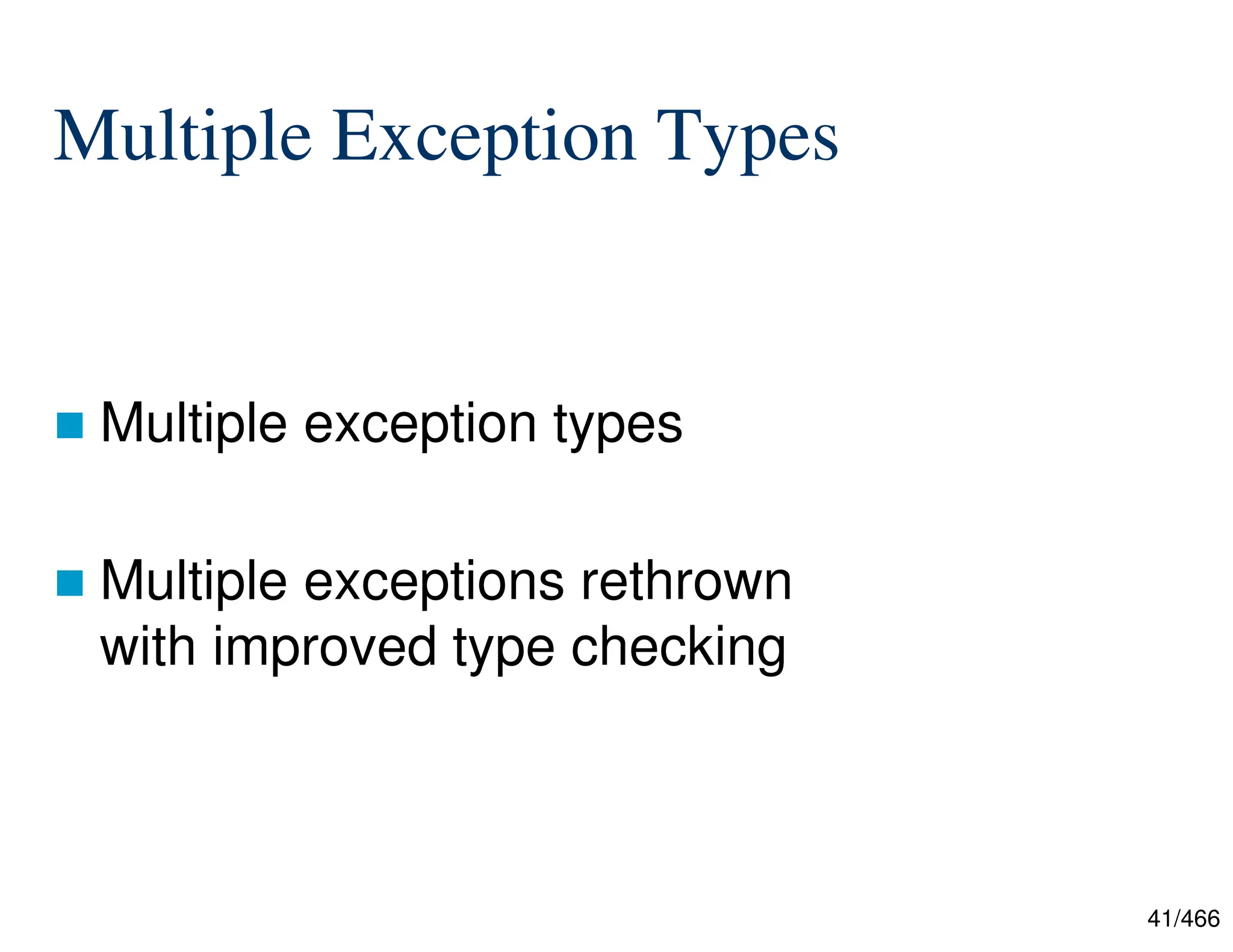
![42/466 Multiple Exception Types public static void main(final String[] args) { try { Example1.rethrow("abc"); } catch (final FirstException | SecondException e) { // Below assignment would throw a compile-time exception, e is implicitly final // e = new Exception(); System.out.println(e.getMessage()); } } private static void rethrow(final String s) throws FirstException, SecondException { try { if (s.equals("First")) throw new FirstException("First"); else throw new SecondException("Second"); } catch (final Exception e) { // Below assignment would disable improved rethrow exception type checking // e = new ThirdException(); throw e; } } private static class FirstException extends Exception { public FirstException(String msg) { super(msg); } } // ...](https://image.slidesharecdn.com/newjavav0-250327235127-ec555181/75/Evolution-and-Examples-of-Java-Features-from-Java-1-7-to-Java-24-42-2048.jpg)

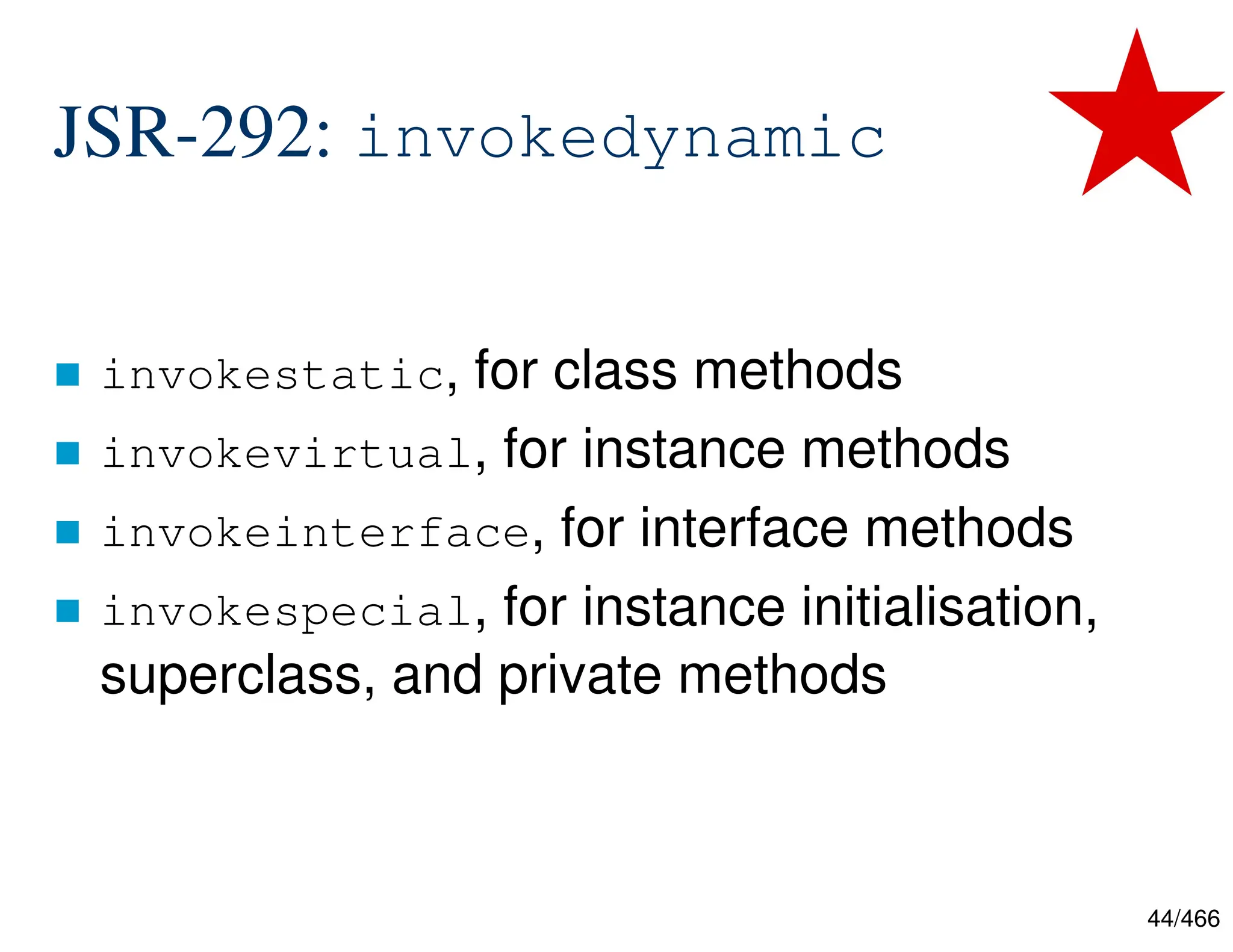
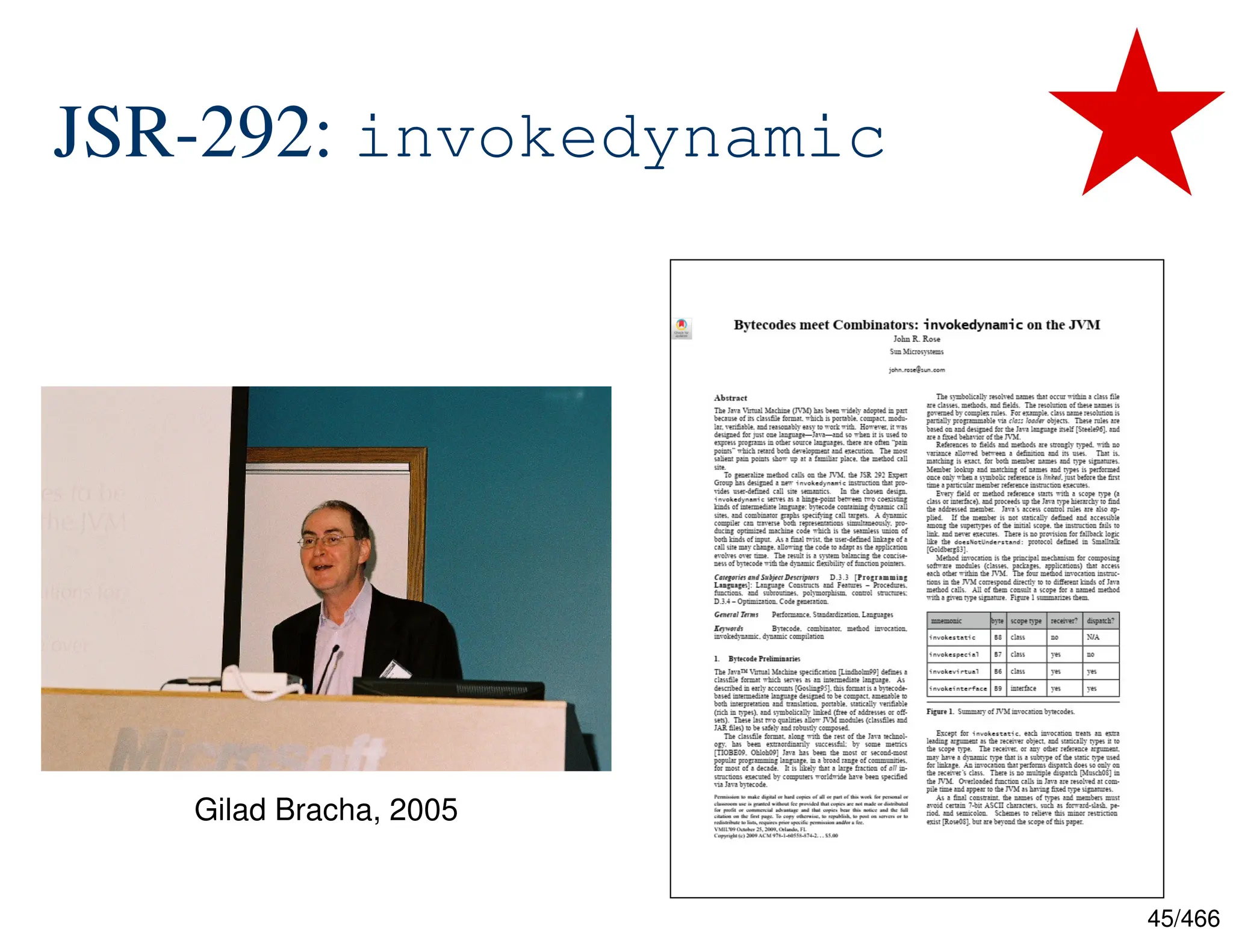
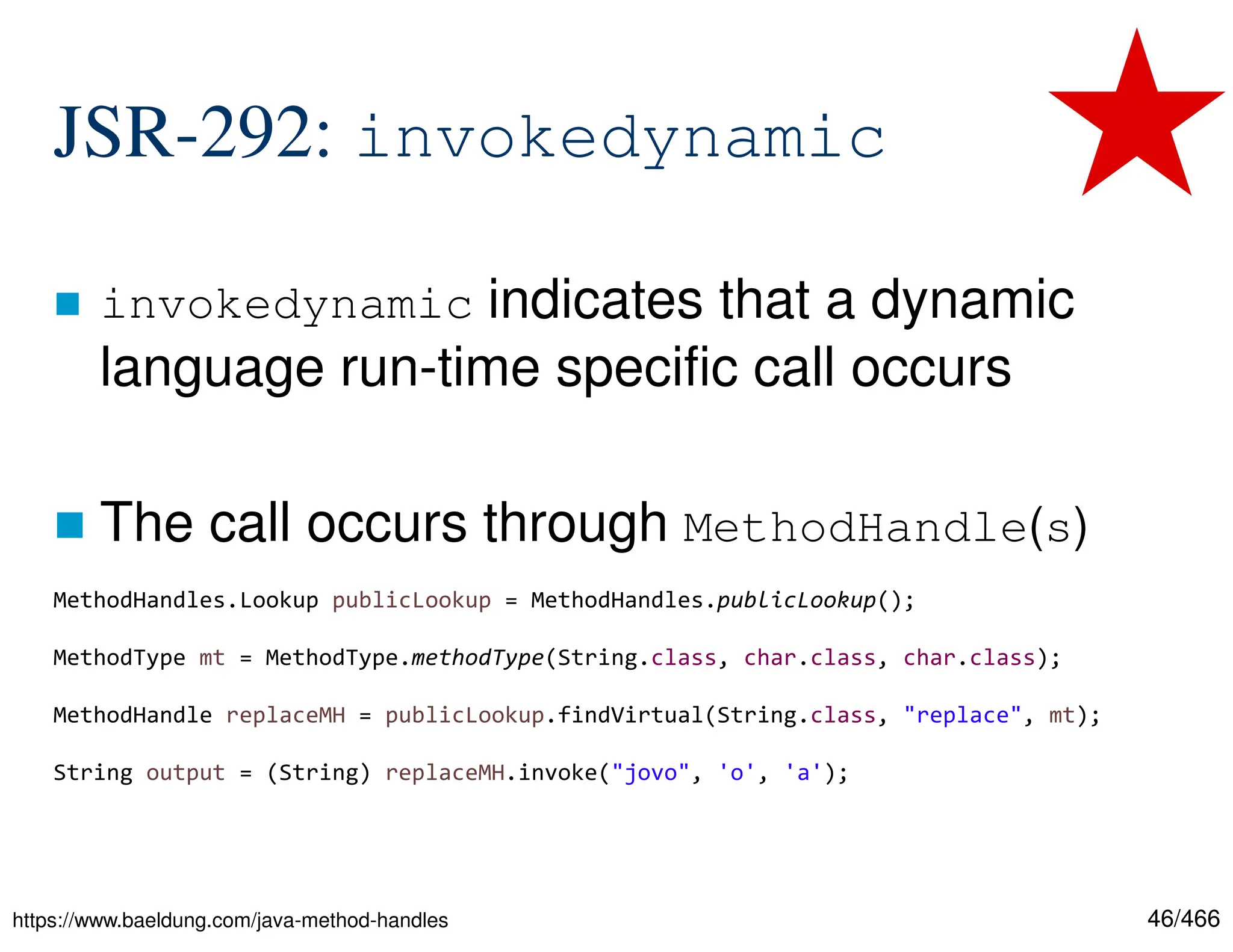

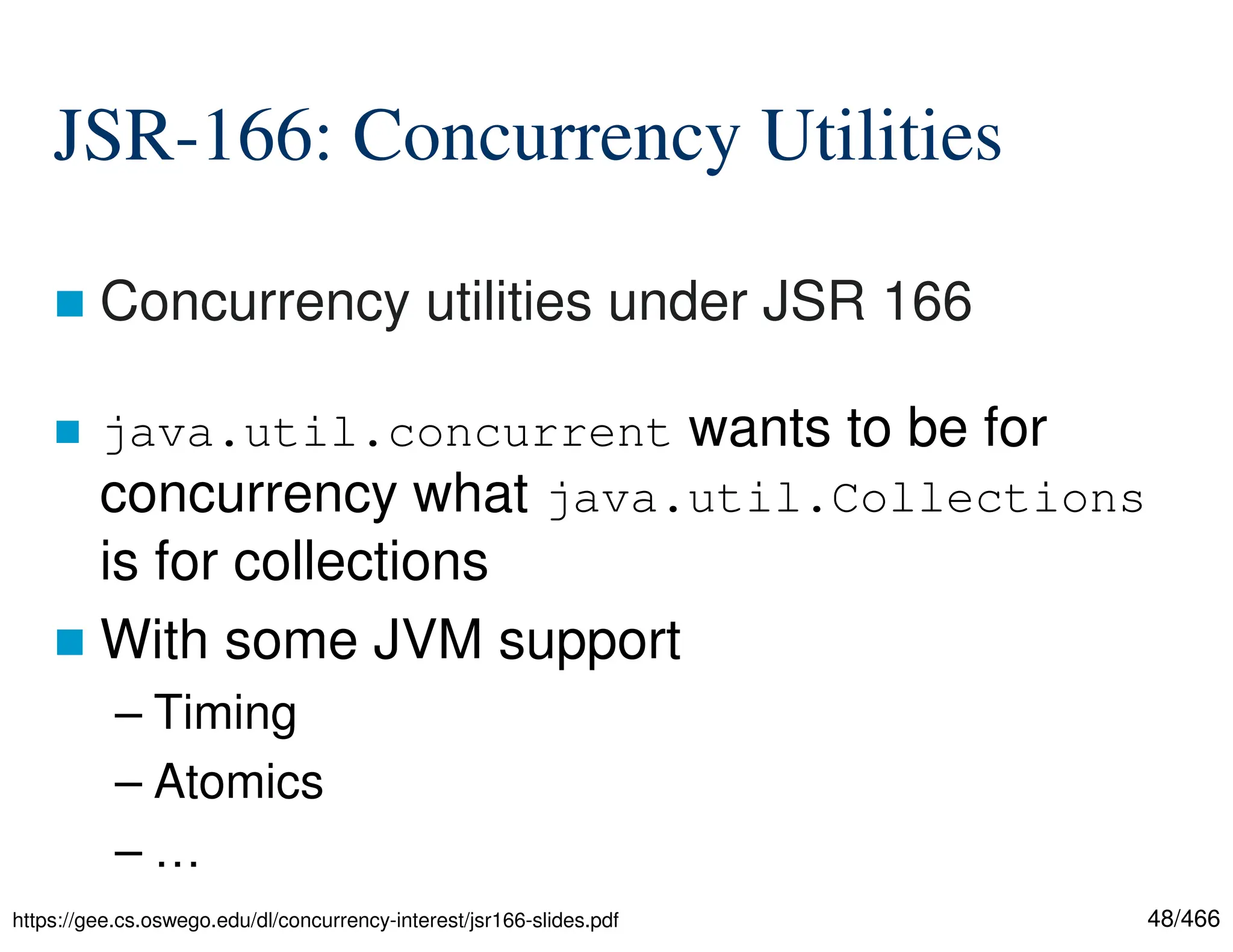
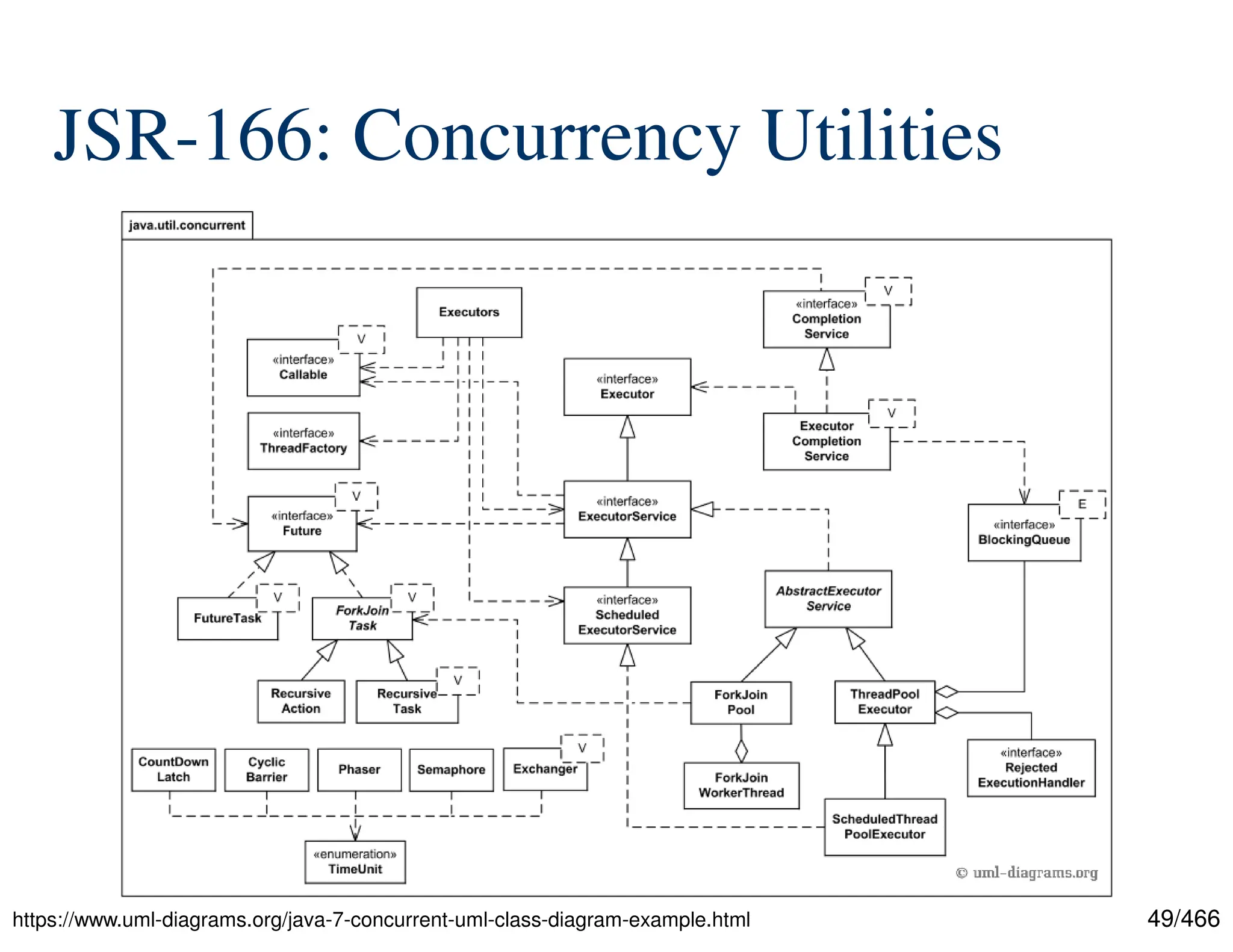
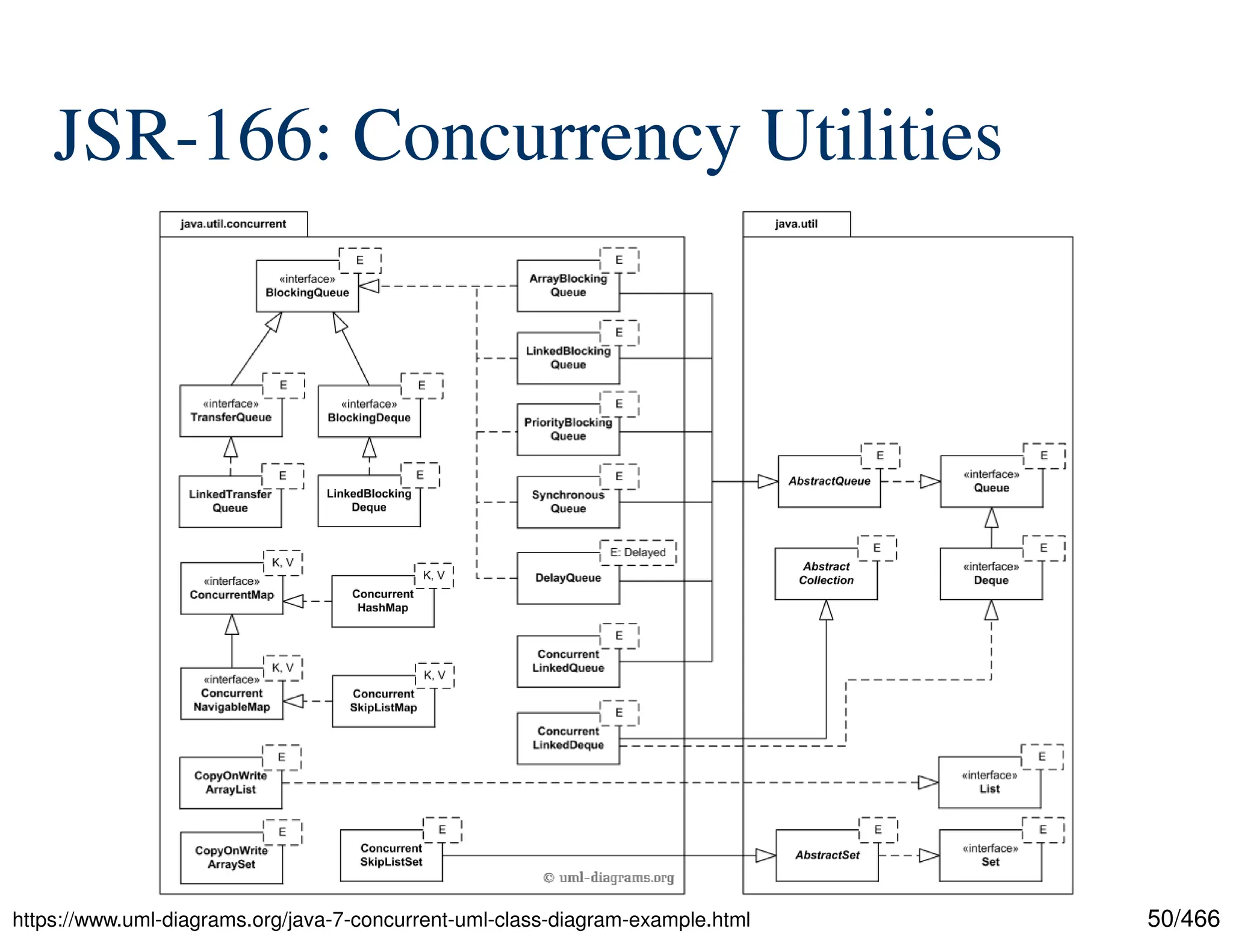
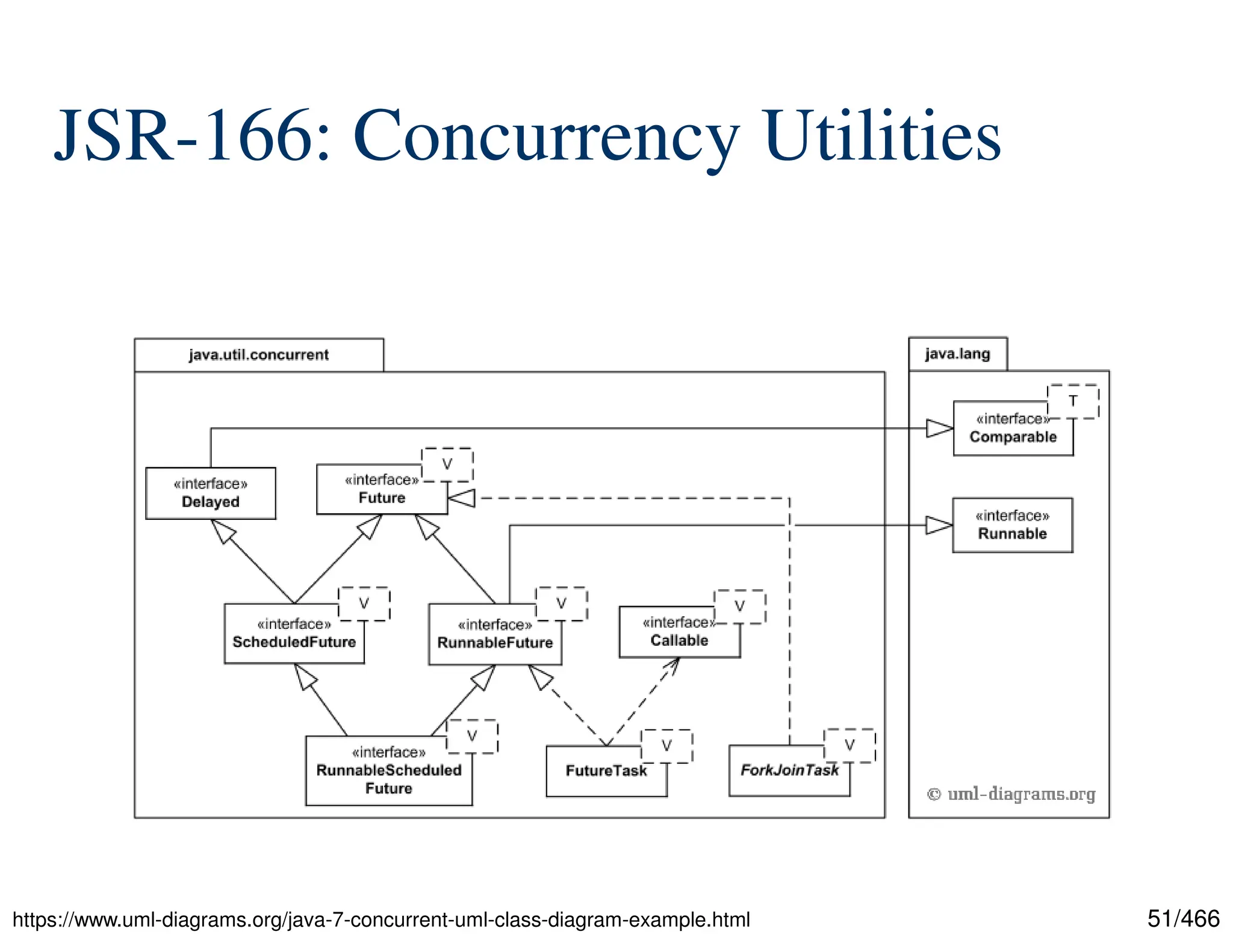
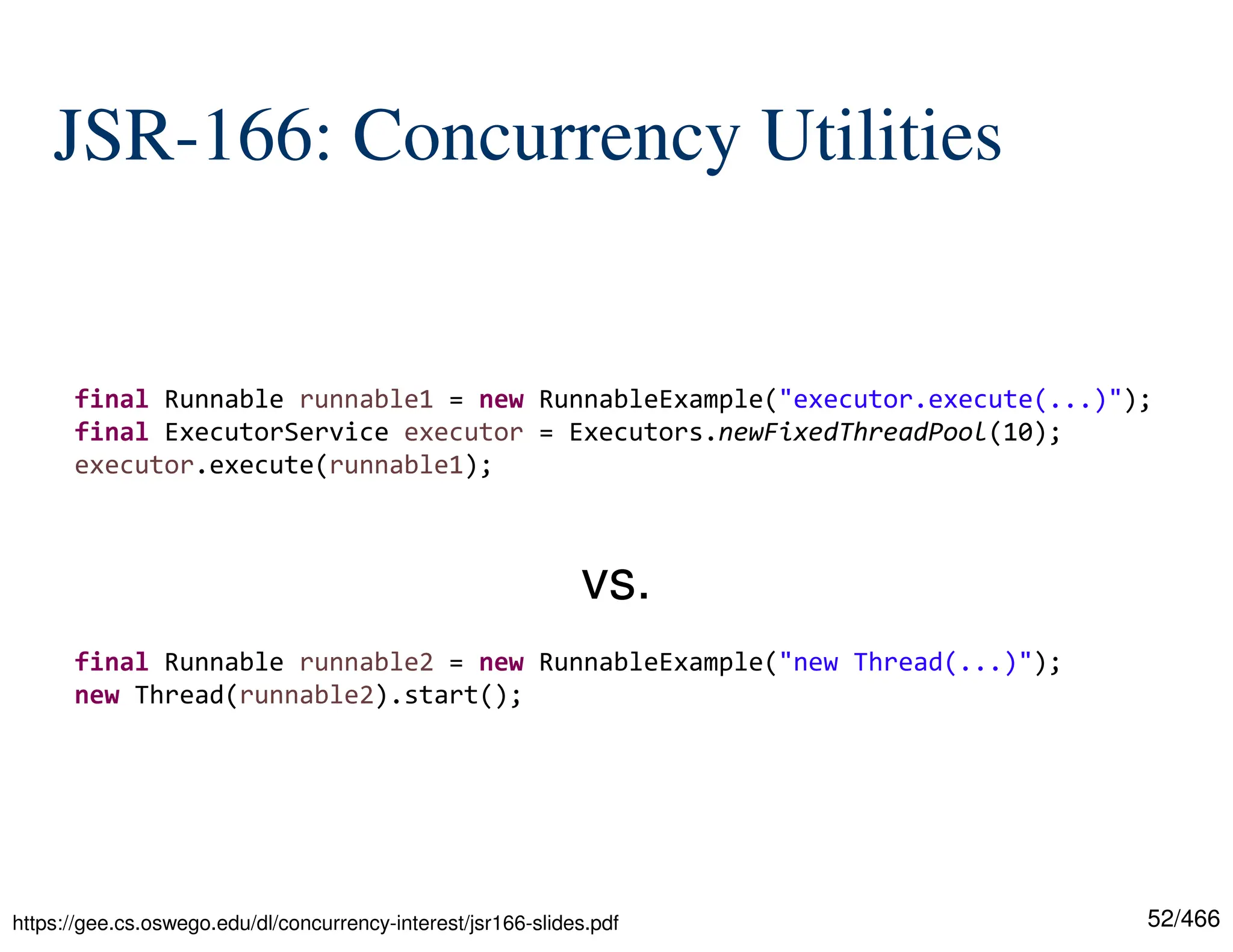
![53/466 JSR-166: Concurrency Utilities class ImageRenderer { Image render(final byte[] raw) { return // ... } } public class Example2 { public void display(final byte[] raw) throws InterruptedException, ExecutionException { final ExecutorService executor = Executors.newFixedThreadPool(10); final ImageRenderer renderer = new ImageRenderer(); final Future<Image> image = executor.submit(new Callable<Image>() { public Image call() { return renderer.render(raw); } }); drawBorders(); // do other things ... drawCaption(); // ... while executing drawImage(image.get()); // use Future } // ... https://gee.cs.oswego.edu/dl/concurrency-interest/jsr166-slides.pdf](https://image.slidesharecdn.com/newjavav0-250327235127-ec555181/75/Evolution-and-Examples-of-Java-Features-from-Java-1-7-to-Java-24-53-2048.jpg)
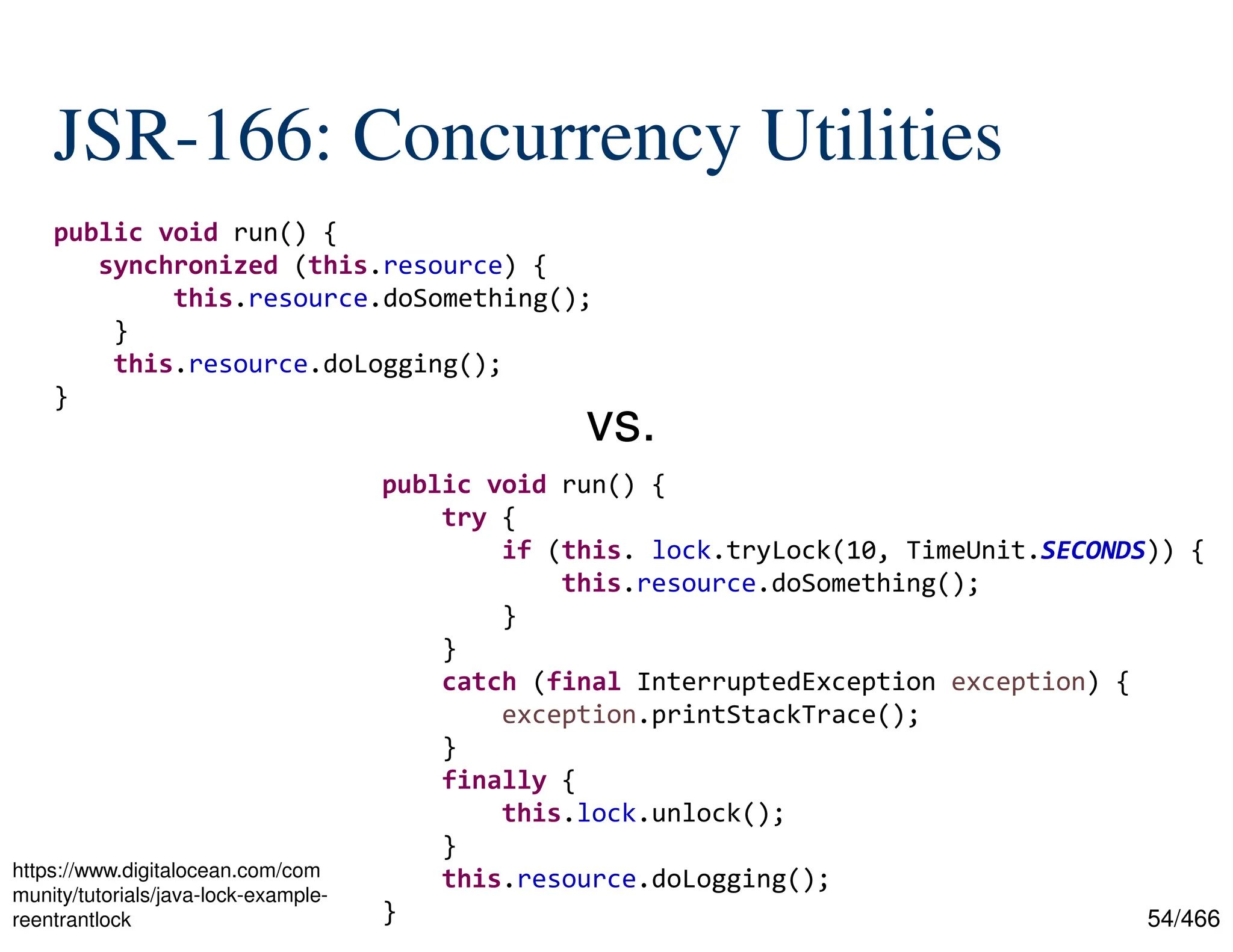
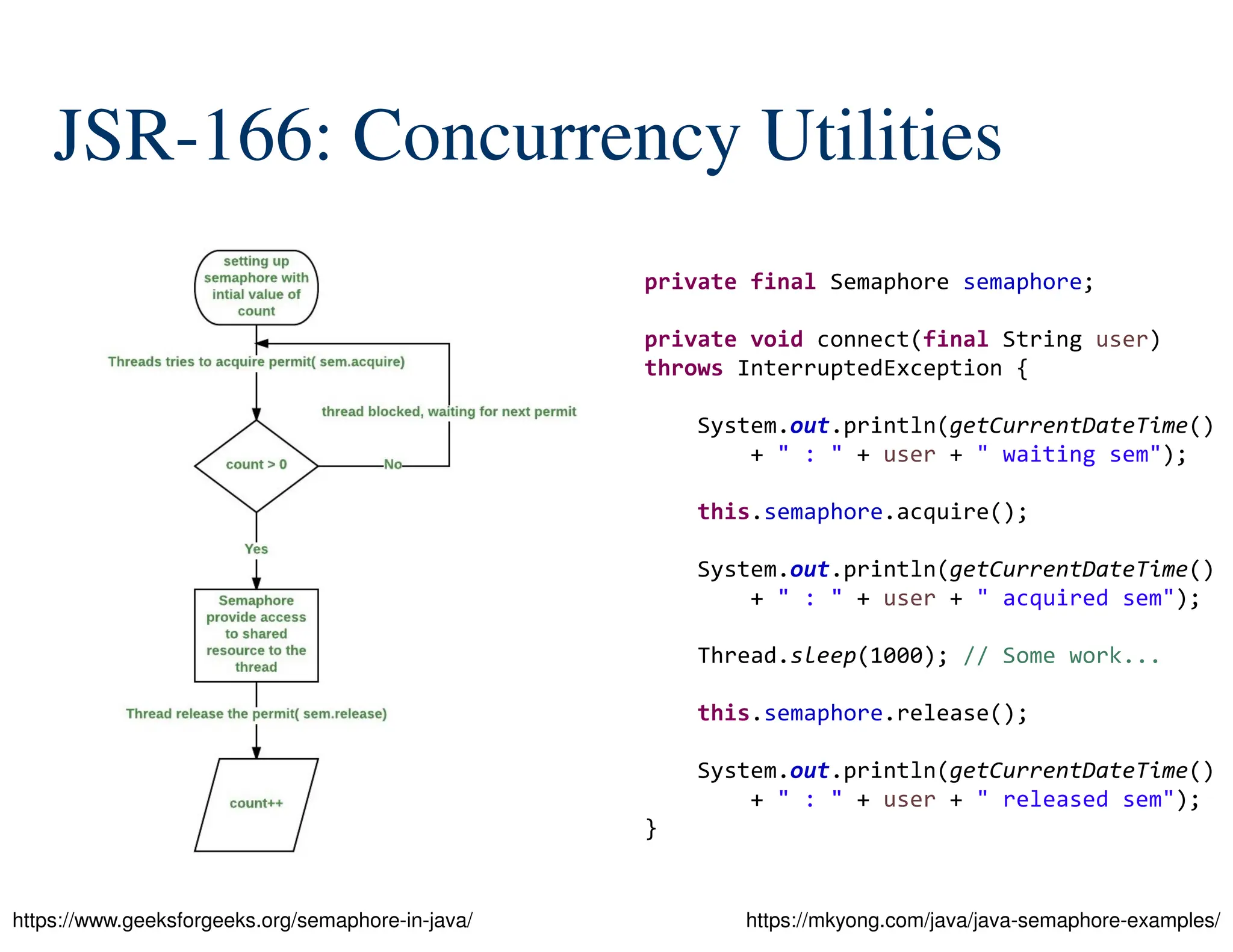
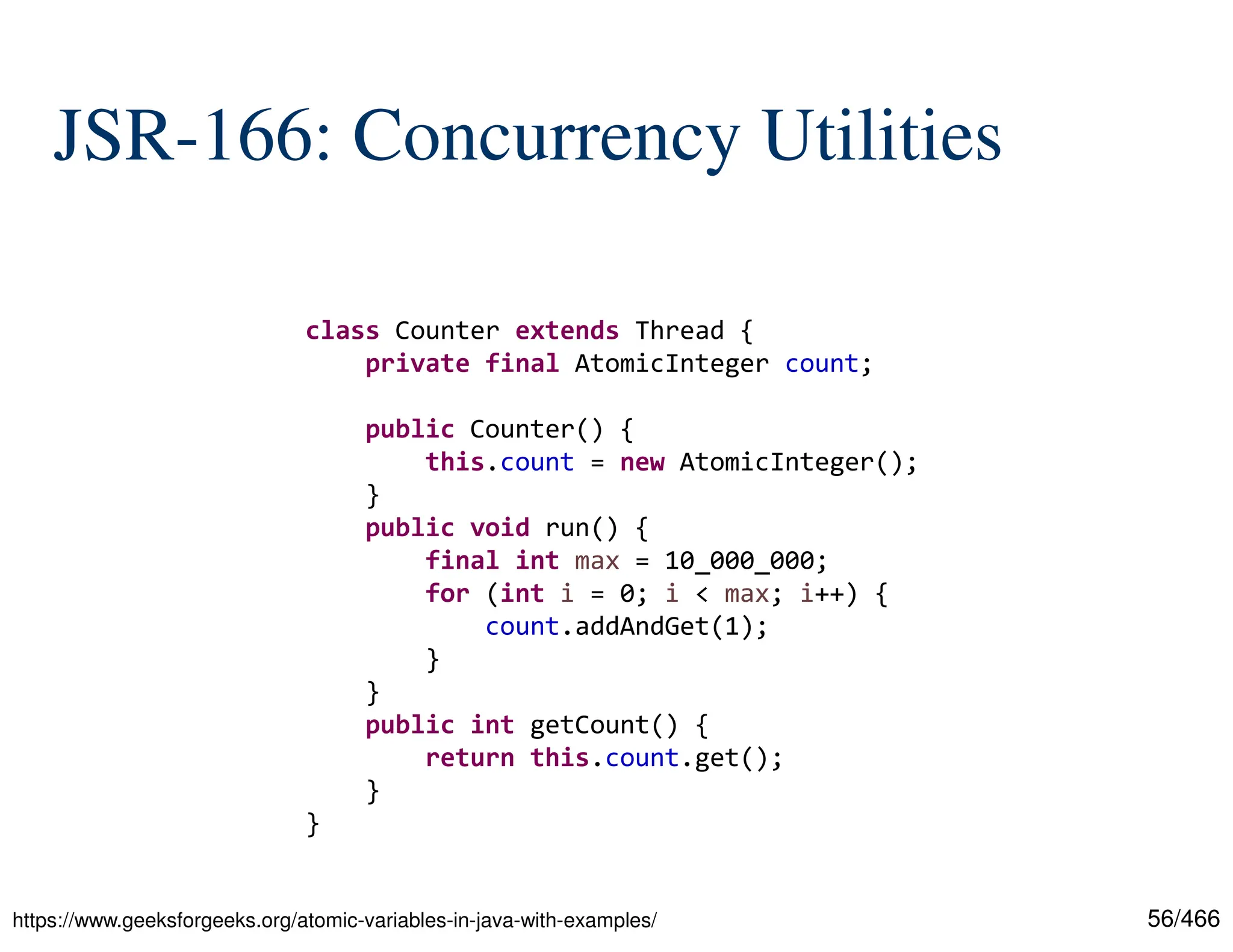
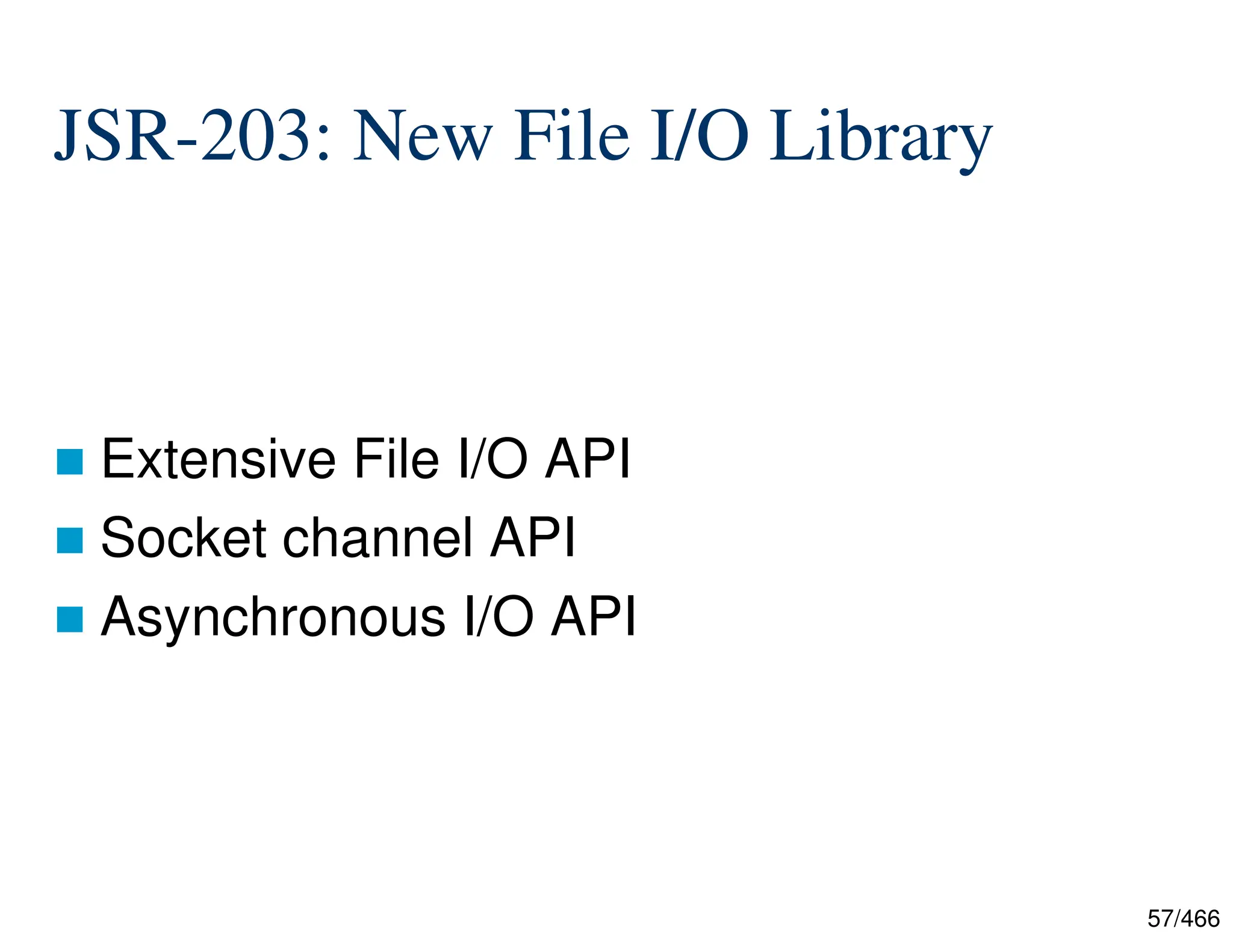
![58/466 JSR-203: New File I/O Library Extensive File I/O API https://www.baeldung.com/java-nio2-file-visitor https://www.baeldung.com/java-nio2-file-visitor public class Example1FileVisitor { public static void main(final String[] args) throws IOException { final Path startPath = Paths.get("D:DocumentsTutorials220926 - New Java"); final String fileName = "Example1FileVisitor.java"; final FileVisitorImpl visitor = new FileVisitorImpl(fileName, startPath); Files.walkFileTree(startPath, visitor); } }](https://image.slidesharecdn.com/newjavav0-250327235127-ec555181/75/Evolution-and-Examples-of-Java-Features-from-Java-1-7-to-Java-24-58-2048.jpg)
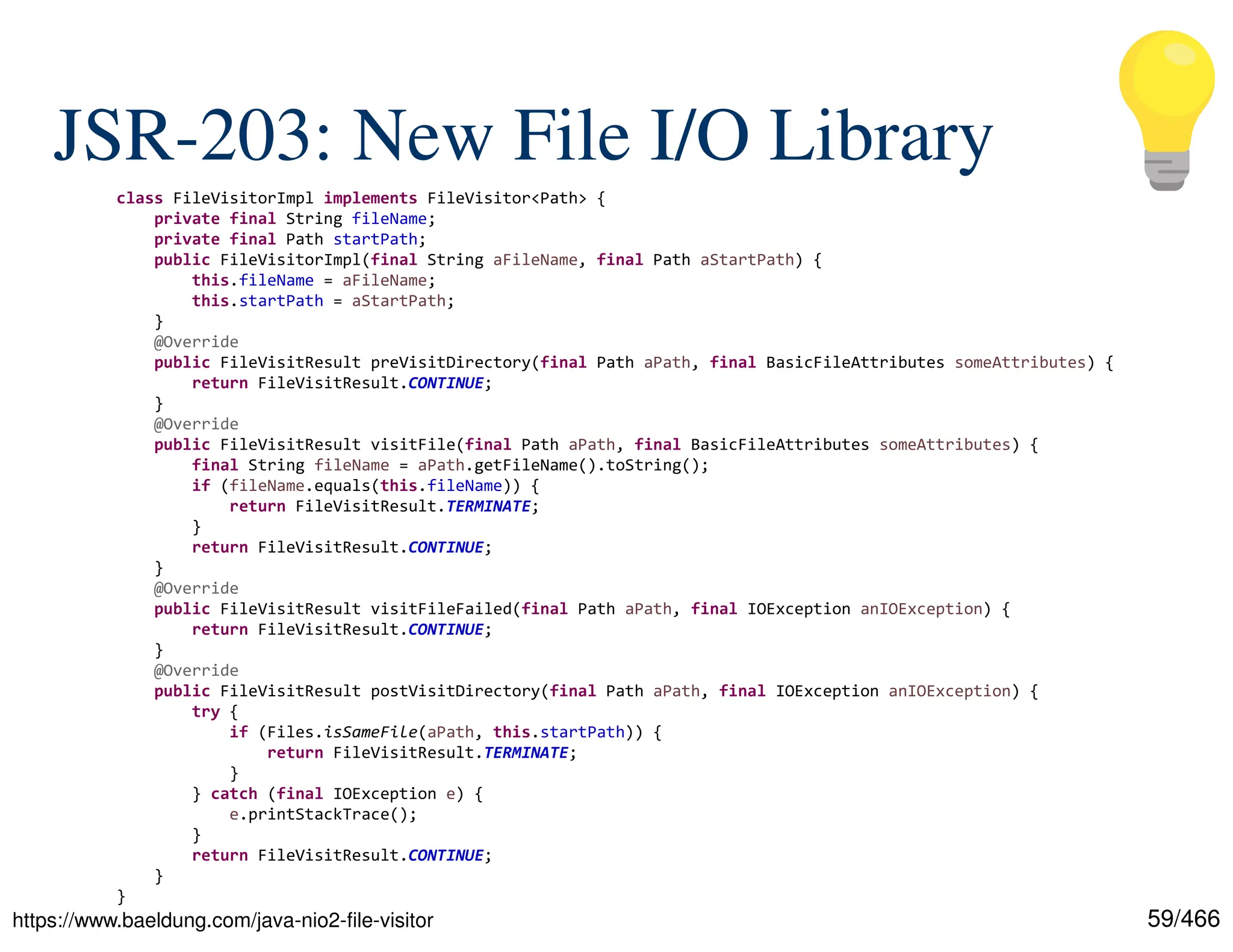
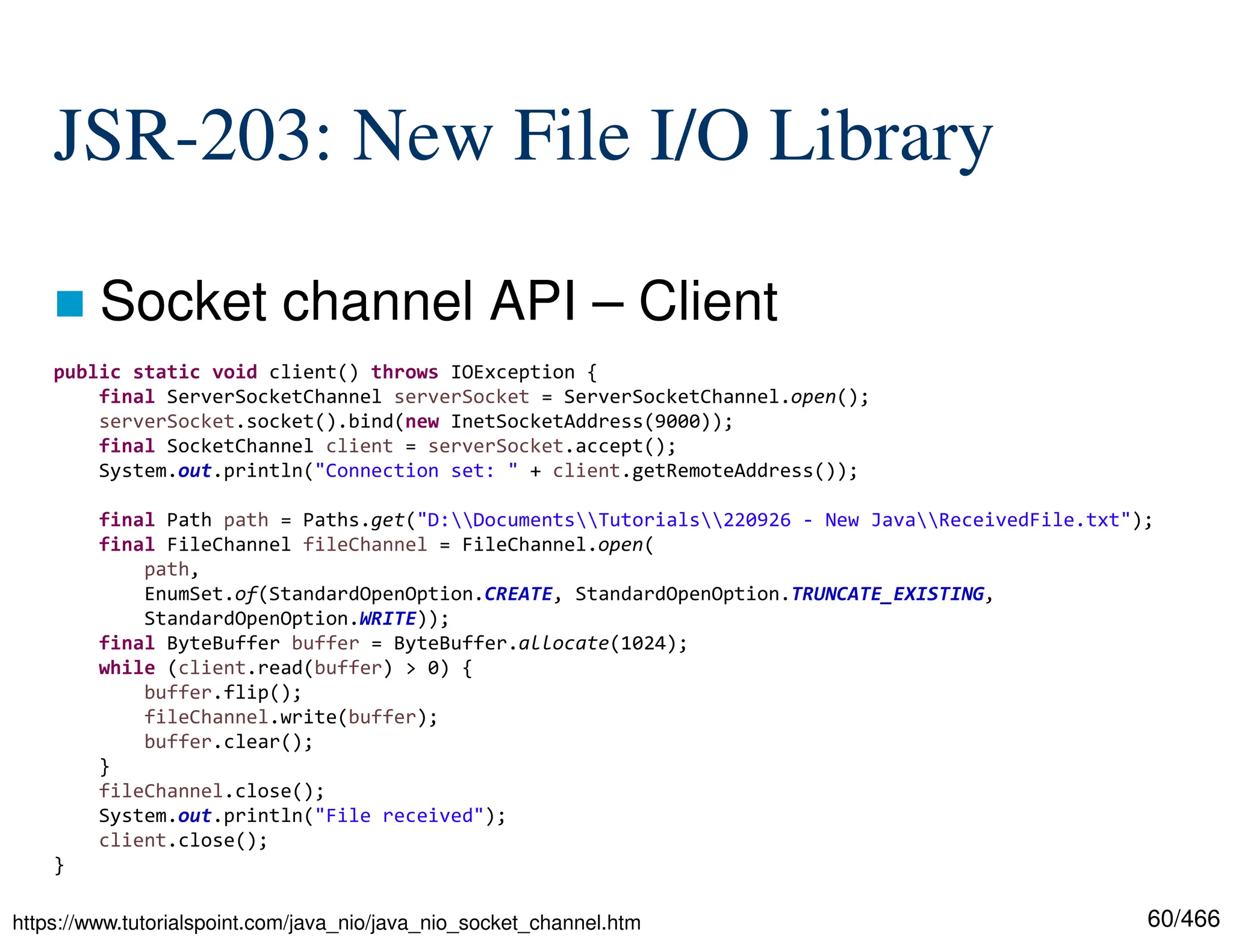
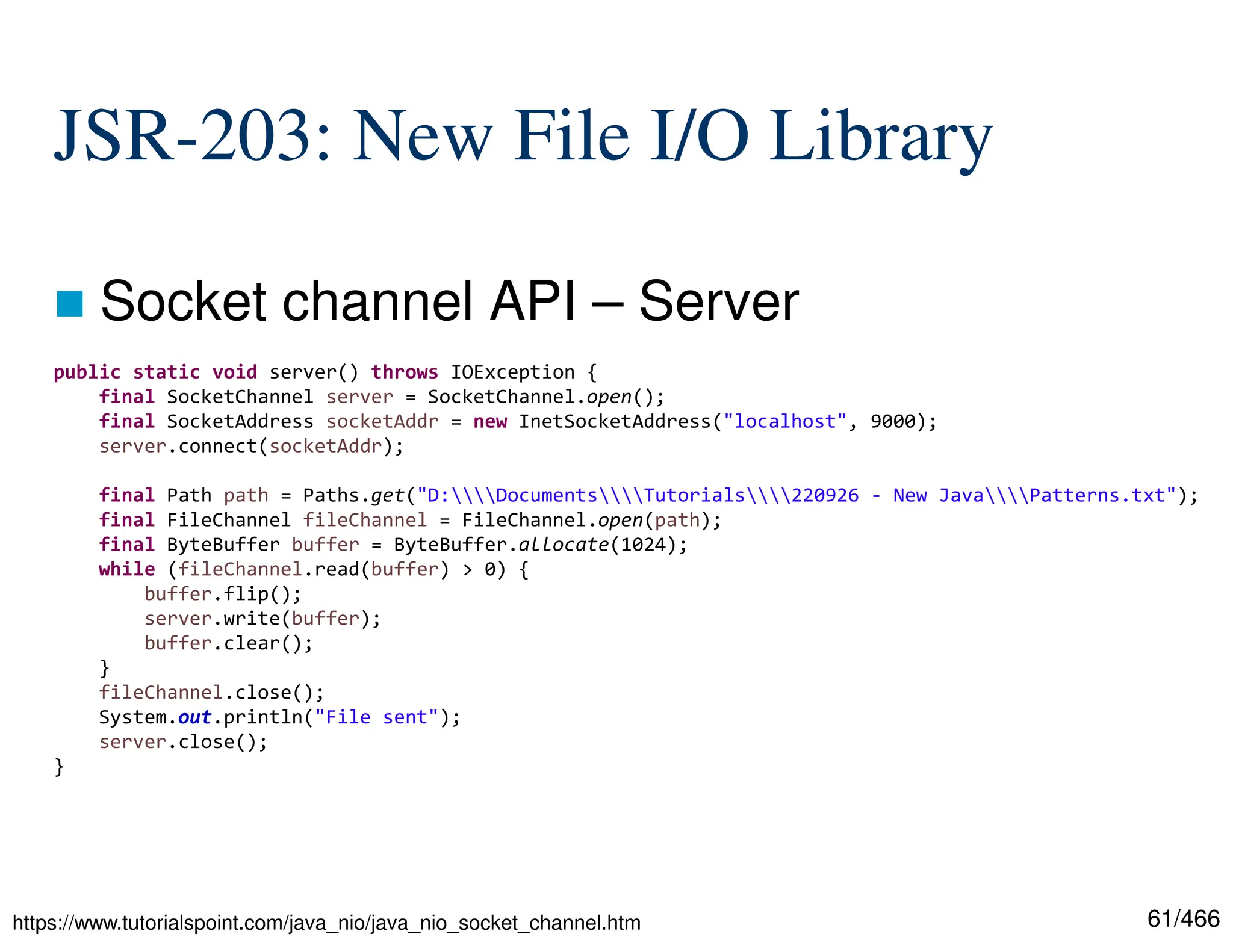
![62/466 JSR-203: New File I/O Library Socket channel API – Main public static void main(final String[] args) { final Runnable runnableClient = new Runnable() { public void run() { try { Example2SocketChannel.client(); } catch (final IOException e) { } } }; final Runnable runnableServer = new Runnable() { public void run() { try { Example2SocketChannel.server(); } catch (final IOException e) { } } }; final ExecutorService executor = Executors.newFixedThreadPool(2); executor.execute(runnableClient); executor.execute(runnableServer); } https://www.tutorialspoint.com/java_nio/java_nio_socket_channel.htm](https://image.slidesharecdn.com/newjavav0-250327235127-ec555181/75/Evolution-and-Examples-of-Java-Features-from-Java-1-7-to-Java-24-62-2048.jpg)
![63/466 JSR-203: New File I/O Library Asynchronous I/O API “The asynchronous channel APIs were introduced into the existing java.nio.channels package […] by prefixing […] with Asynchronous”](https://image.slidesharecdn.com/newjavav0-250327235127-ec555181/75/Evolution-and-Examples-of-Java-Features-from-Java-1-7-to-Java-24-63-2048.jpg)
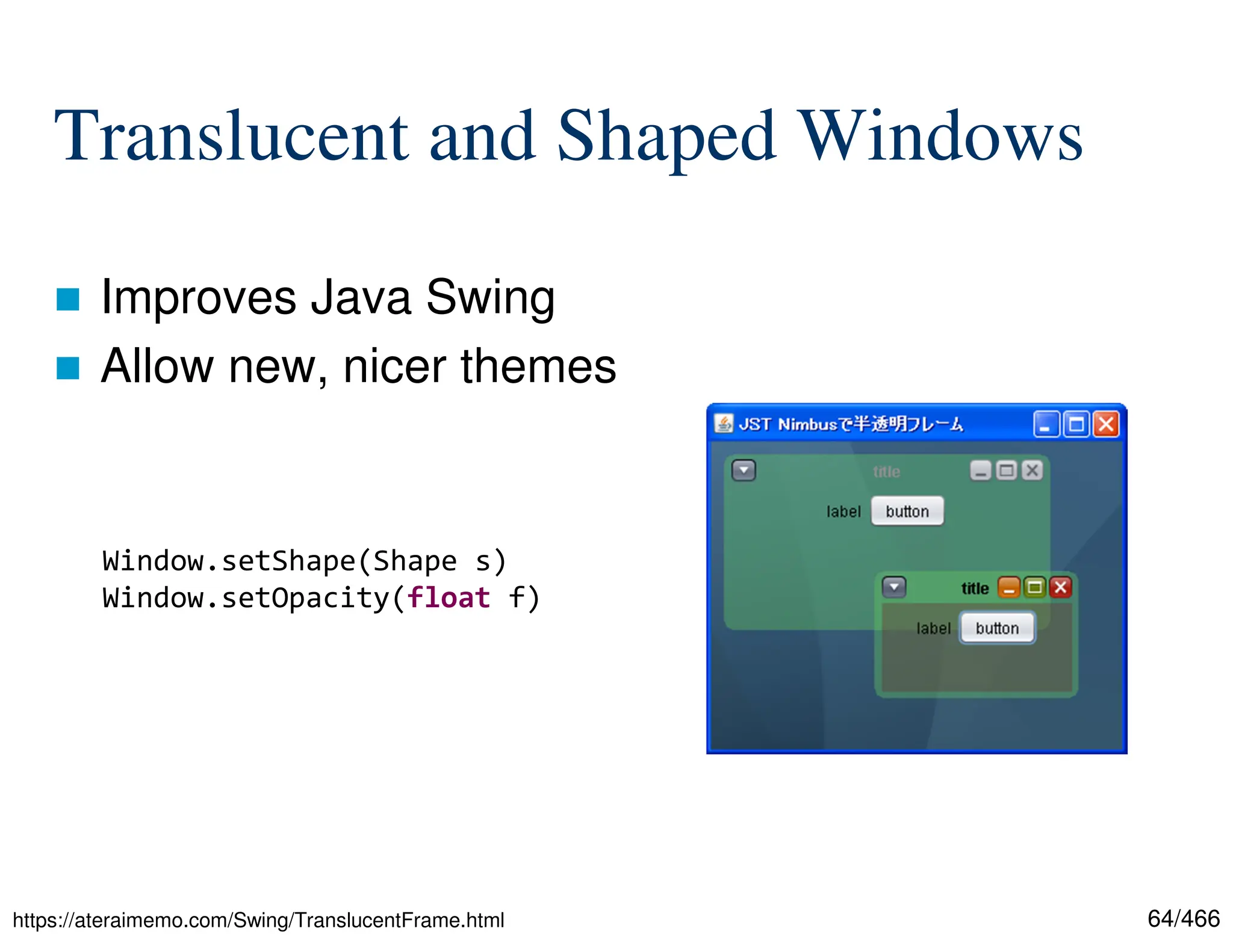
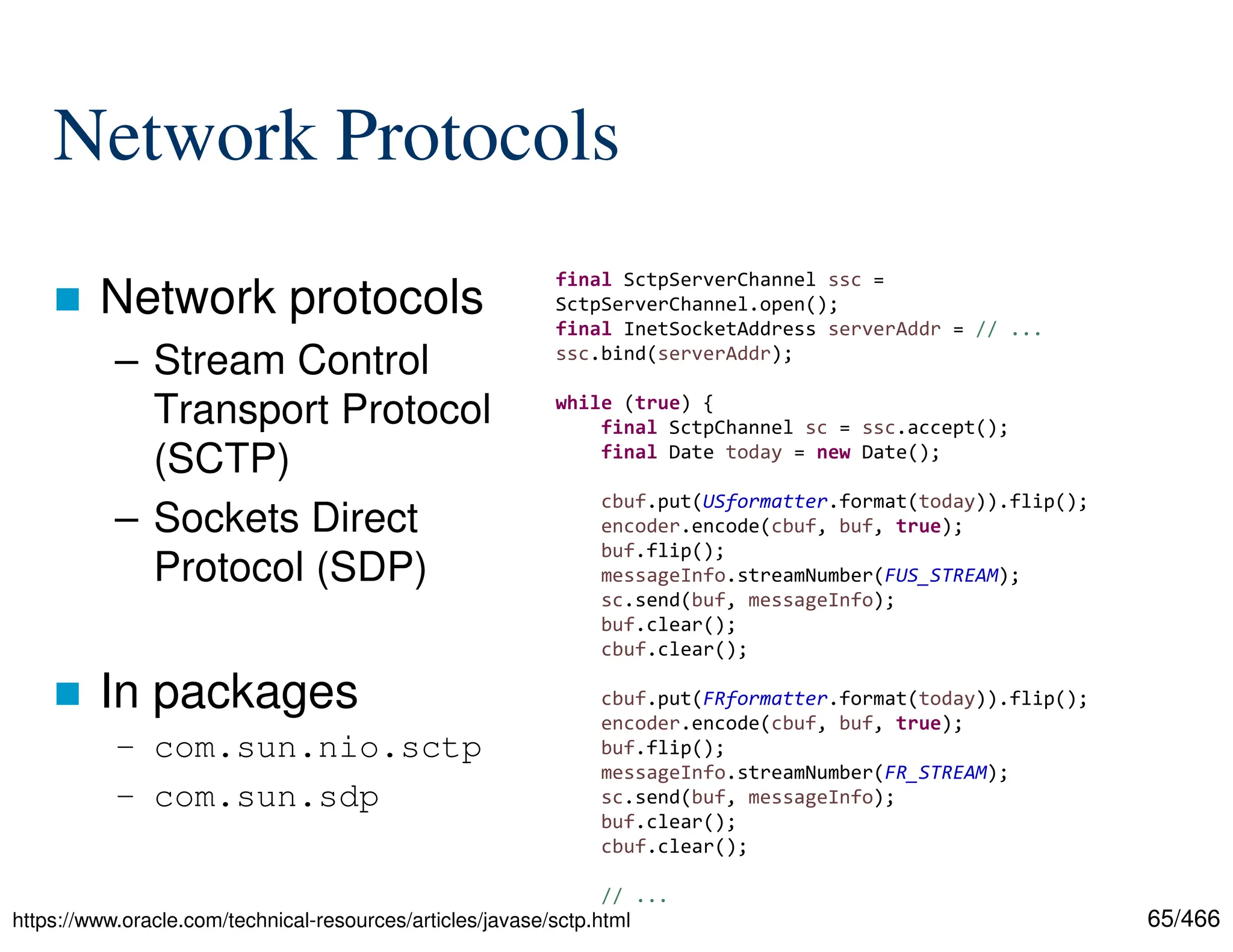
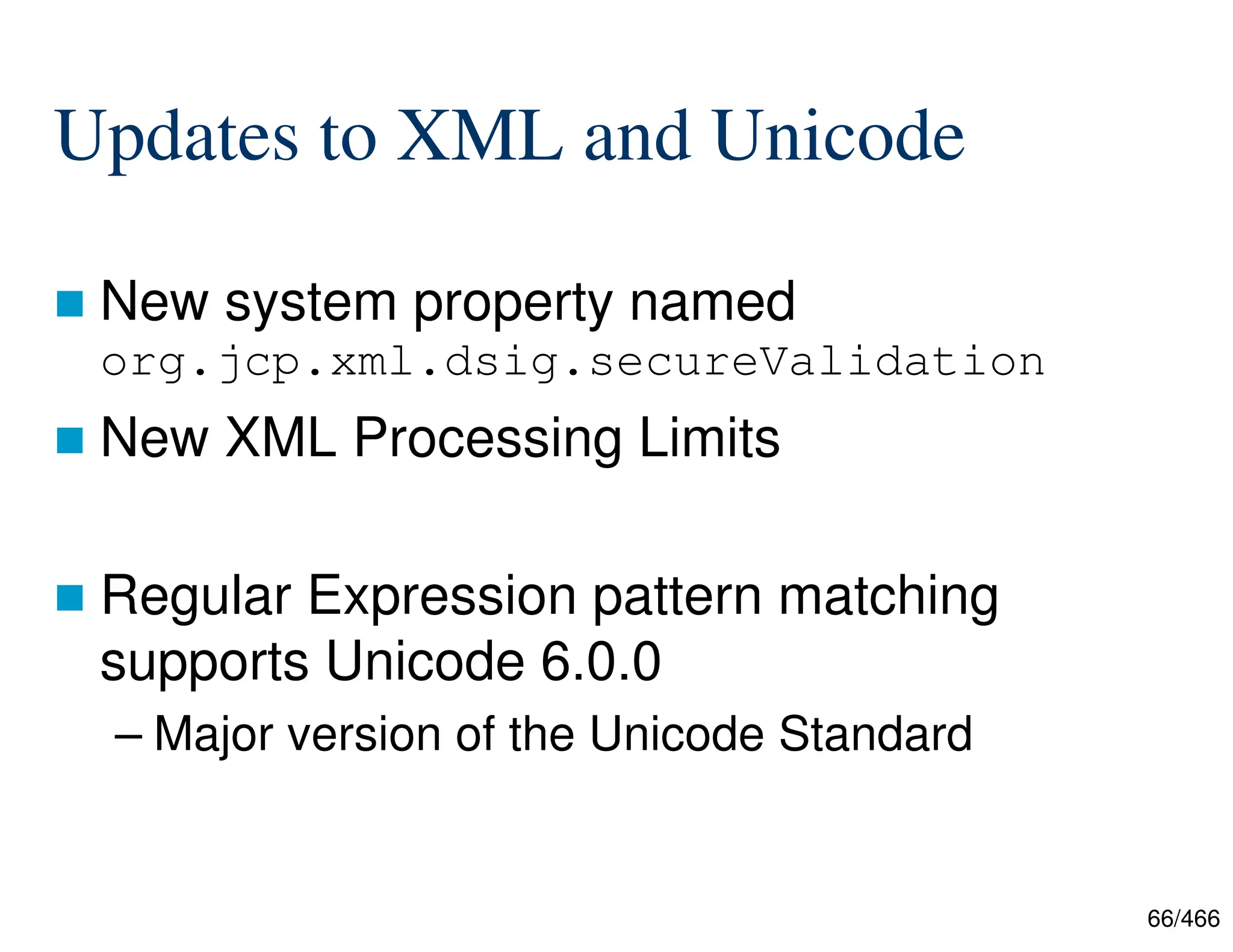


![69/466 default, static Interface Methods public interface IA { int foo(); default int bar() { return 42; } } public static void main(final String[] args) { final IA anIA = new IA() { public int foo() { return 0; } }; System.out.println(anIA.foo()); System.out.println(anIA.bar()); final IA anotherIA = new IA() { public int foo() { return IA.super.bar(); } public int bar() { return 0; } }; System.out.println(anotherIA.foo()); System.out.println(anotherIA.bar()); }](https://image.slidesharecdn.com/newjavav0-250327235127-ec555181/75/Evolution-and-Examples-of-Java-Features-from-Java-1-7-to-Java-24-69-2048.jpg)
![70/466 default, static Interface Methods public interface IA { int foo(); default int bar() { return 42; } } public static void main(final String[] args) { final IA anIA = new IA() { public int foo() { return 0; } }; System.out.println(anIA.foo()); System.out.println(anIA.bar()); final IA anotherIA = new IA() { public int foo() { return IA.super.bar(); } public int bar() { return 0; } }; System.out.println(anotherIA.foo()); System.out.println(anotherIA.bar()); } 0 42 42 0](https://image.slidesharecdn.com/newjavav0-250327235127-ec555181/75/Evolution-and-Examples-of-Java-Features-from-Java-1-7-to-Java-24-70-2048.jpg)
![71/466 default, static Interface Methods https://stackoverflow.c om/questions/512877/ why-cant-i-define-a- static-method-in-a- java-interface public interface IA { int foo(); static int bar() { return 42; } } public class A { int foo() { return 0; } static int bar() { return 42; } } public static void main(final String[] args) { final IA anIA = new IA() { public int foo() { return 0; } }; System.out.println(anIA.foo()); System.out.println(anIA.bar()); final A anA = new A(); System.out.println(anA.foo()); System.out.println(anA.bar()); }](https://image.slidesharecdn.com/newjavav0-250327235127-ec555181/75/Evolution-and-Examples-of-Java-Features-from-Java-1-7-to-Java-24-71-2048.jpg)
![72/466 default, static Interface Methods https://stackoverflow.c om/questions/512877/ why-cant-i-define-a- static-method-in-a- java-interface public interface IA { int foo(); static int bar() { return 42; } } public class A { int foo() { return 0; } static int bar() { return 42; } } public static void main(final String[] args) { final IA anIA = new IA() { public int foo() { return 0; } }; System.out.println(anIA.foo()); System.out.println(anIA.bar()); final A anA = new A(); System.out.println(anA.foo()); System.out.println(anA.bar()); }](https://image.slidesharecdn.com/newjavav0-250327235127-ec555181/75/Evolution-and-Examples-of-Java-Features-from-Java-1-7-to-Java-24-72-2048.jpg)
![73/466 default, static Interface Methods https://stackoverflow.c om/questions/512877/ why-cant-i-define-a- static-method-in-a- java-interface public interface IA { int foo(); static int bar() { return 42; } } public class A { int foo() { return 0; } static int bar() { return 42; } } public static void main(final String[] args) { final IA anIA = new IA() { public int foo() { return 0; } }; System.out.println(anIA.foo()); System.out.println(anIA.bar()); final A anA = new A(); System.out.println(anA.foo()); System.out.println(anA.bar()); } System.out.println(IA.bar());](https://image.slidesharecdn.com/newjavav0-250327235127-ec555181/75/Evolution-and-Examples-of-Java-Features-from-Java-1-7-to-Java-24-73-2048.jpg)
![74/466 JSR-335, JEP-126: λ Expressions λ Expressions interface Applicable<T, R> { public R apply(final T aParameter); } public static void main(final String[] args) { final Applicable<String, Integer> strlen = new Applicable<>() { @Override public Integer apply(final String aParameter) { return aParameter.length(); } }; System.out.println(strlen.apply("Hello, World!")); } https://jenkov.com/tutorials/java-functional-programming/functional-interfaces.html](https://image.slidesharecdn.com/newjavav0-250327235127-ec555181/75/Evolution-and-Examples-of-Java-Features-from-Java-1-7-to-Java-24-74-2048.jpg)
![75/466 JSR-335, JEP-126: λ Expressions interface Applicable<T, R> { public R apply(final T aParameter); } public static void main(final String[] args) { final Applicable<String, Integer> strlen = new Applicable<>() { @Override public Integer apply(final String aParameter) { return aParameter.length(); } }; System.out.println(strlen.apply("Hello, World!")); }](https://image.slidesharecdn.com/newjavav0-250327235127-ec555181/75/Evolution-and-Examples-of-Java-Features-from-Java-1-7-to-Java-24-75-2048.jpg)
![76/466 JSR-335, JEP-126: λ Expressions Lots of boilerplate code Difficult to understand Not common in the libraries interface Applicable<T, R> { public R apply(final T aParameter); } public static void main(final String[] args) { final Applicable<String, Integer> strlen = new Applicable<>() { @Override public Integer apply(final String aParameter) { return aParameter.length(); } }; System.out.println(strlen.apply("Hello, World!")); }](https://image.slidesharecdn.com/newjavav0-250327235127-ec555181/75/Evolution-and-Examples-of-Java-Features-from-Java-1-7-to-Java-24-76-2048.jpg)
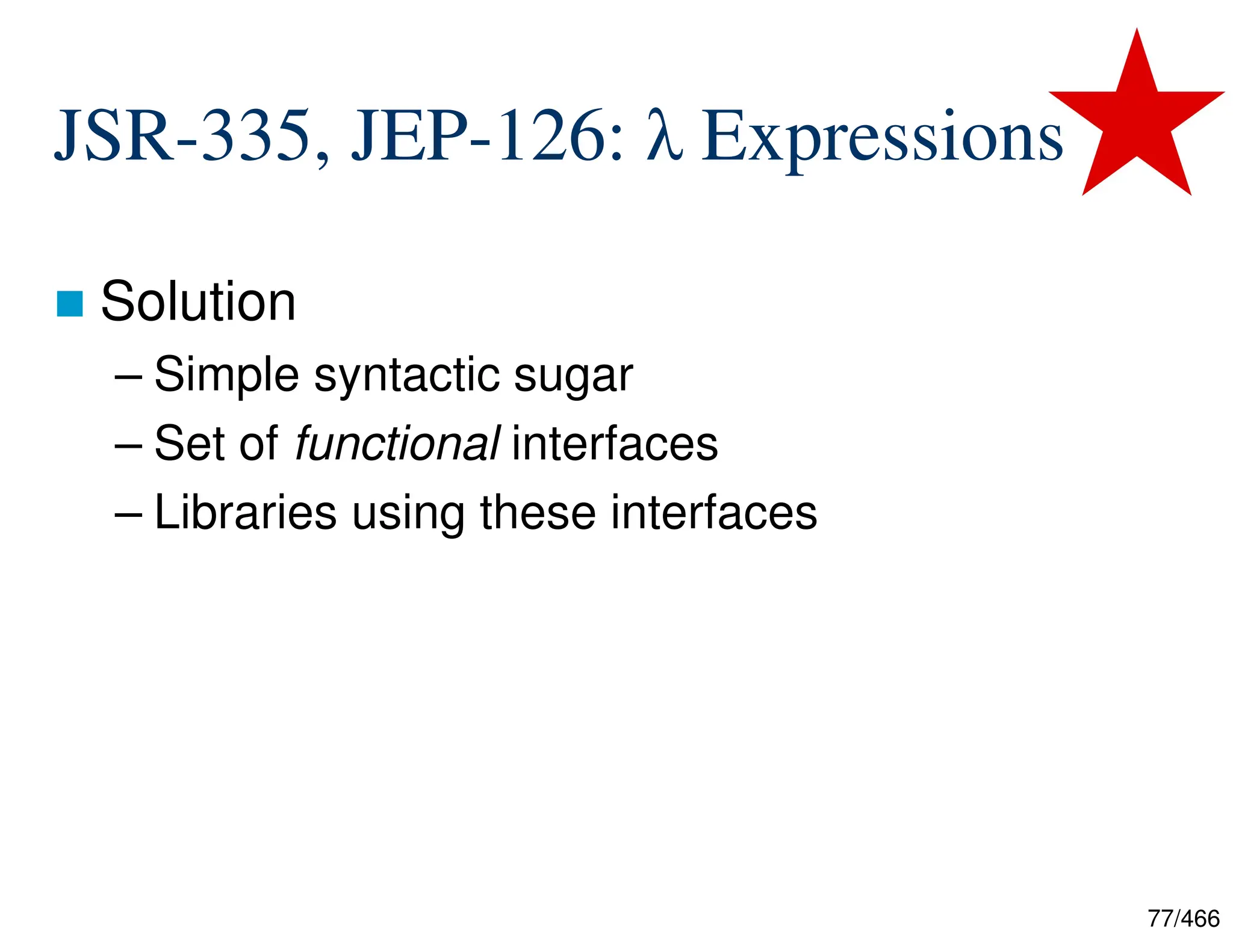
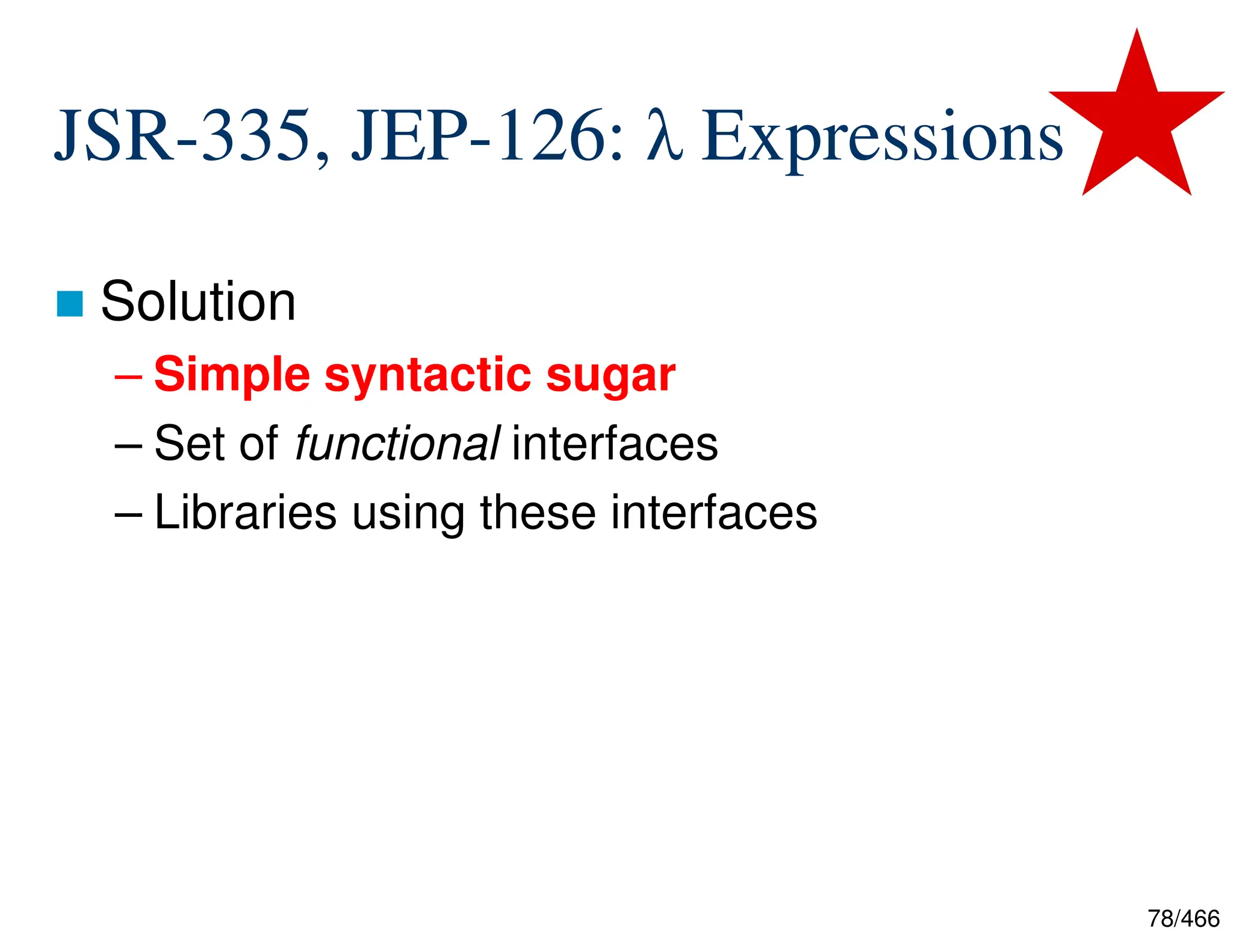
![79/466 JSR-335, JEP-126: λ Expressions Solution – Simple syntactic sugar – Set of functional interfaces – Libraries using these interfaces interface Applicable<T, R> { public R apply(final T aParameter); } public static void main(final String[] args) { final Applicable<String, Integer> strlen = (paramter) -> paramter.length(); System.out.println(strlen.apply("Hello, World!")); }](https://image.slidesharecdn.com/newjavav0-250327235127-ec555181/75/Evolution-and-Examples-of-Java-Features-from-Java-1-7-to-Java-24-79-2048.jpg)
![80/466 JSR-335, JEP-126: λ Expressions Solution – Simple syntactic sugar – Set of functional interfaces – Libraries using these interfaces interface Applicable<T, R> { public R apply(final T aParameter); } public static void main(final String[] args) { final Applicable<String, Integer> strlen = (paramter) -> paramter.length(); System.out.println(strlen.apply("Hello, World!")); } public static void main(final String[] args) { final Applicable<String, Integer> strlen = String::length; System.out.println(strlen.apply("Hello, World!")); }](https://image.slidesharecdn.com/newjavav0-250327235127-ec555181/75/Evolution-and-Examples-of-Java-Features-from-Java-1-7-to-Java-24-80-2048.jpg)
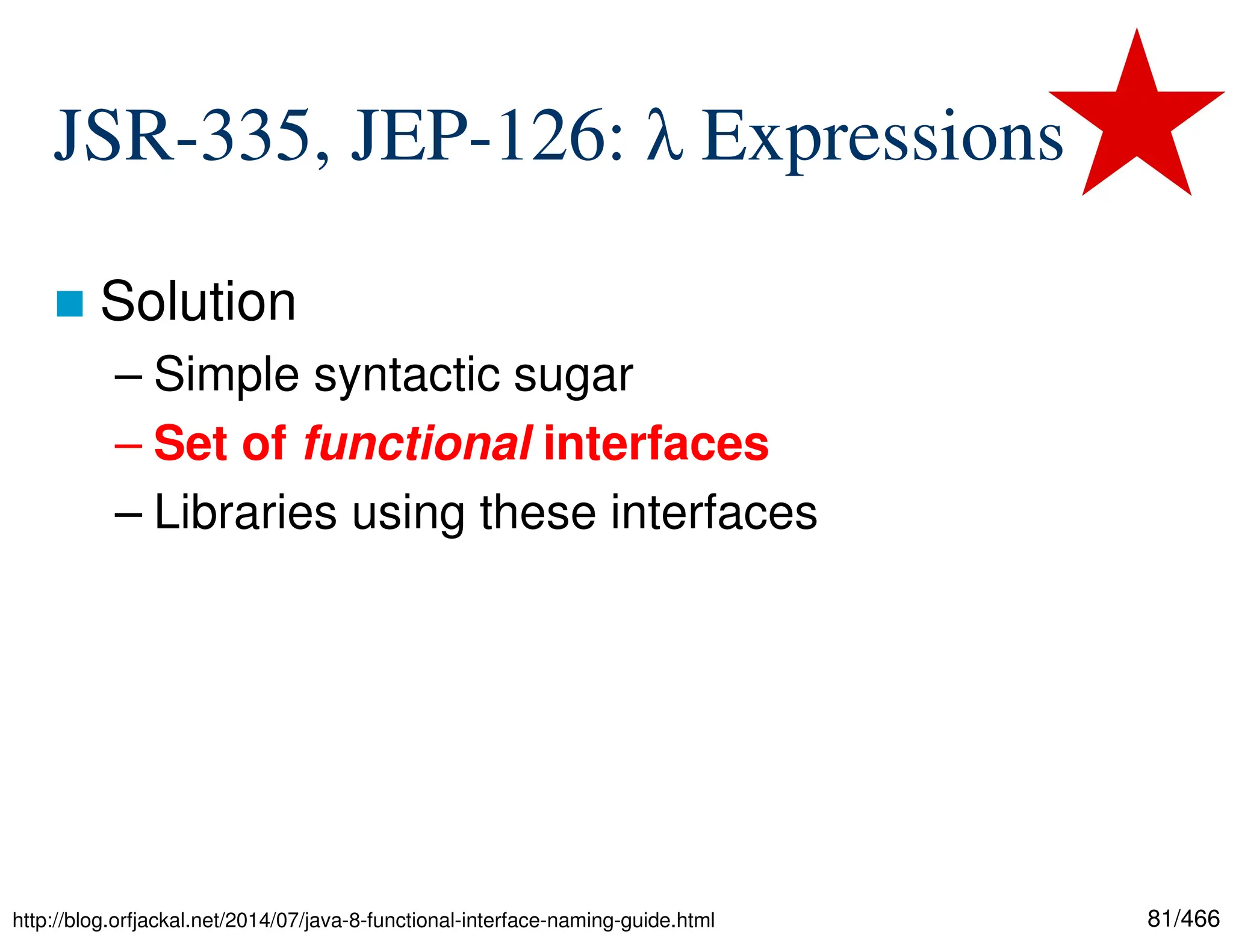
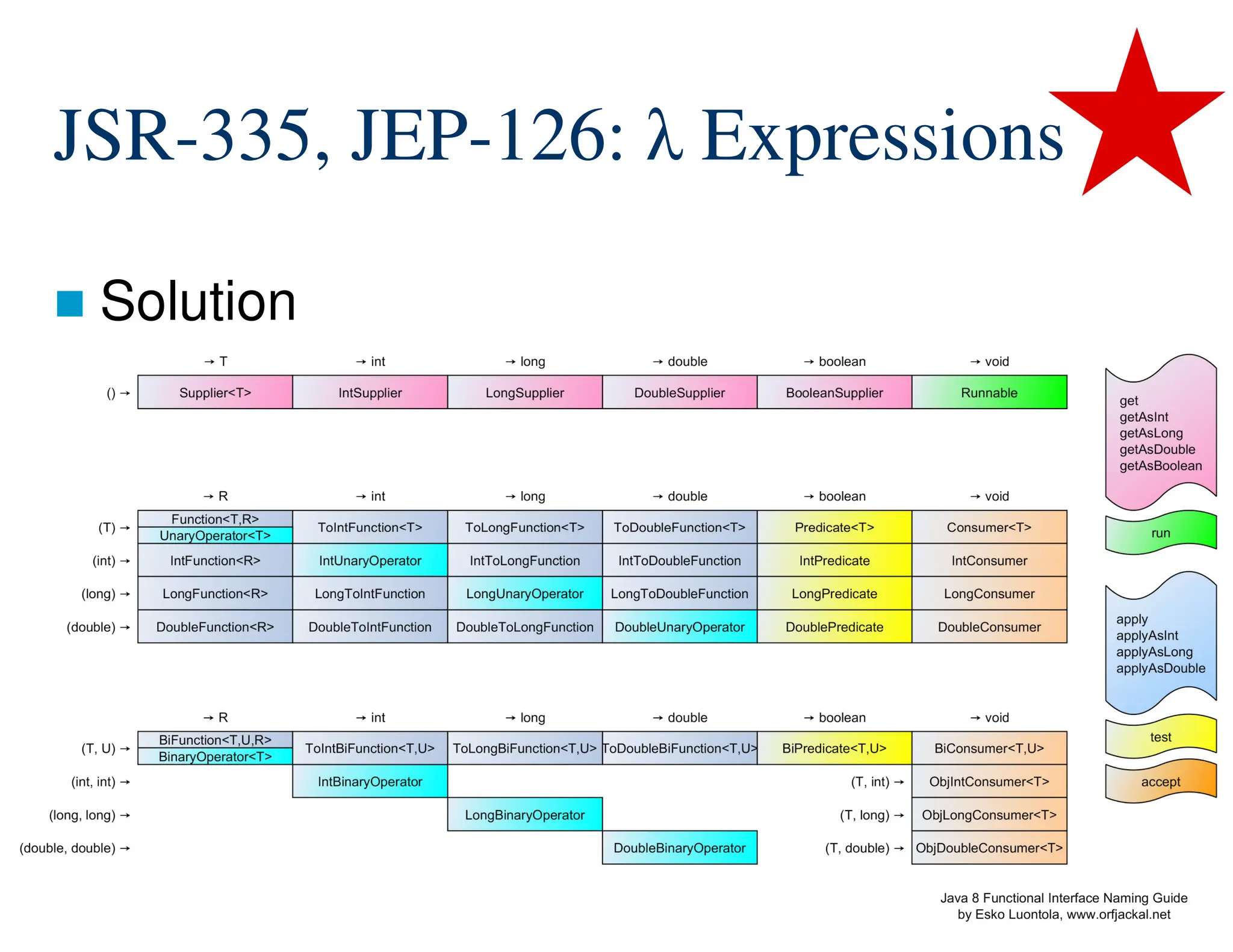
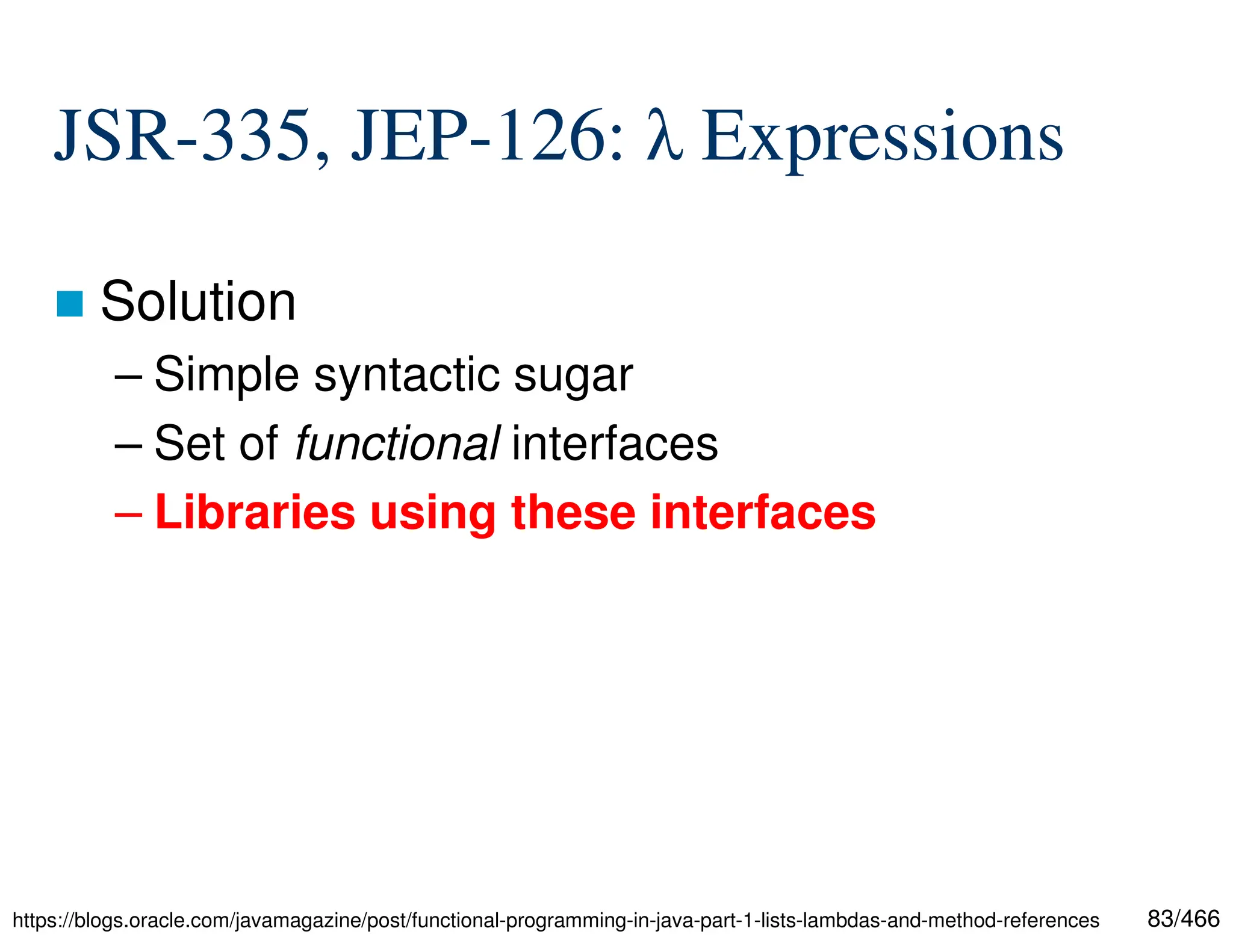
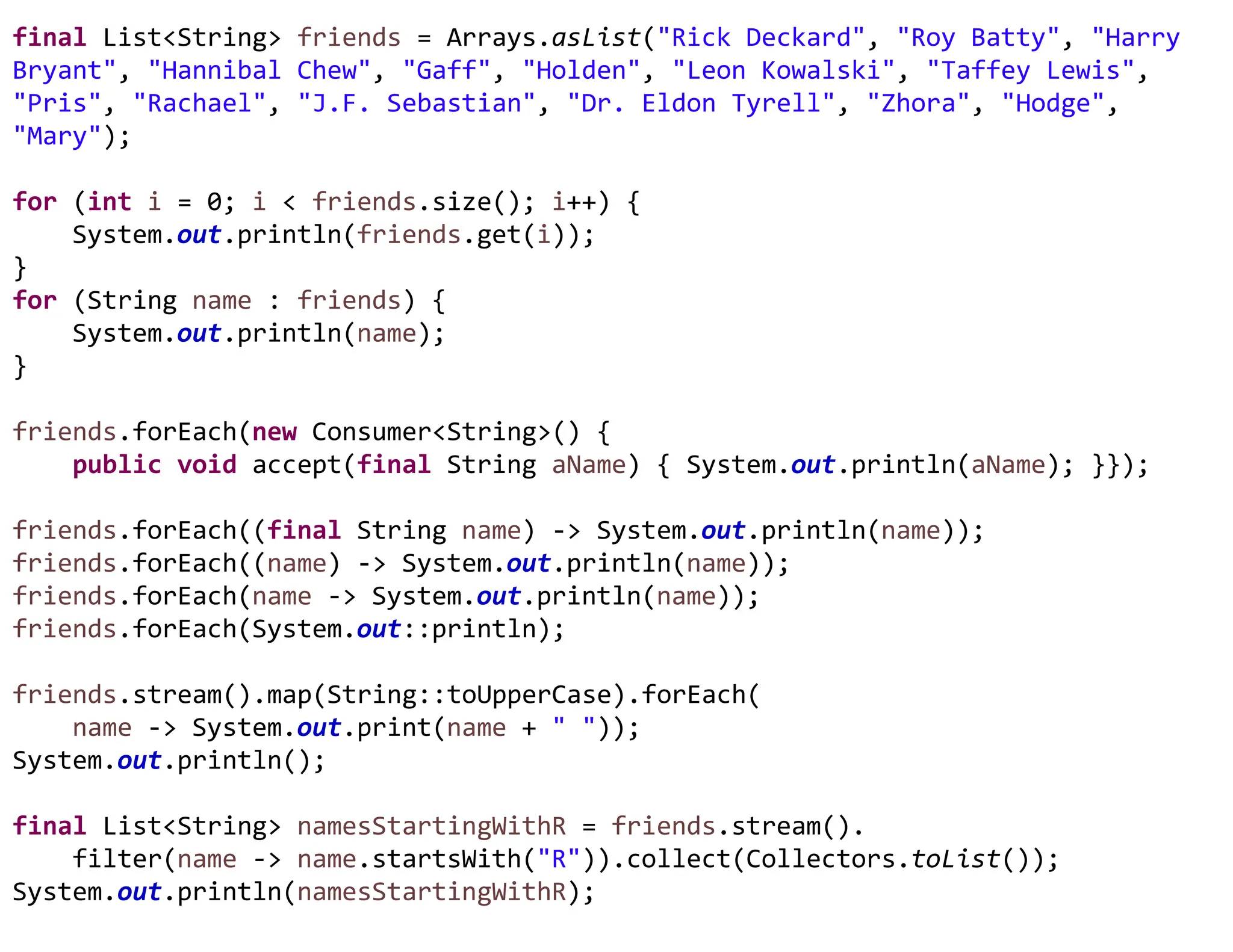
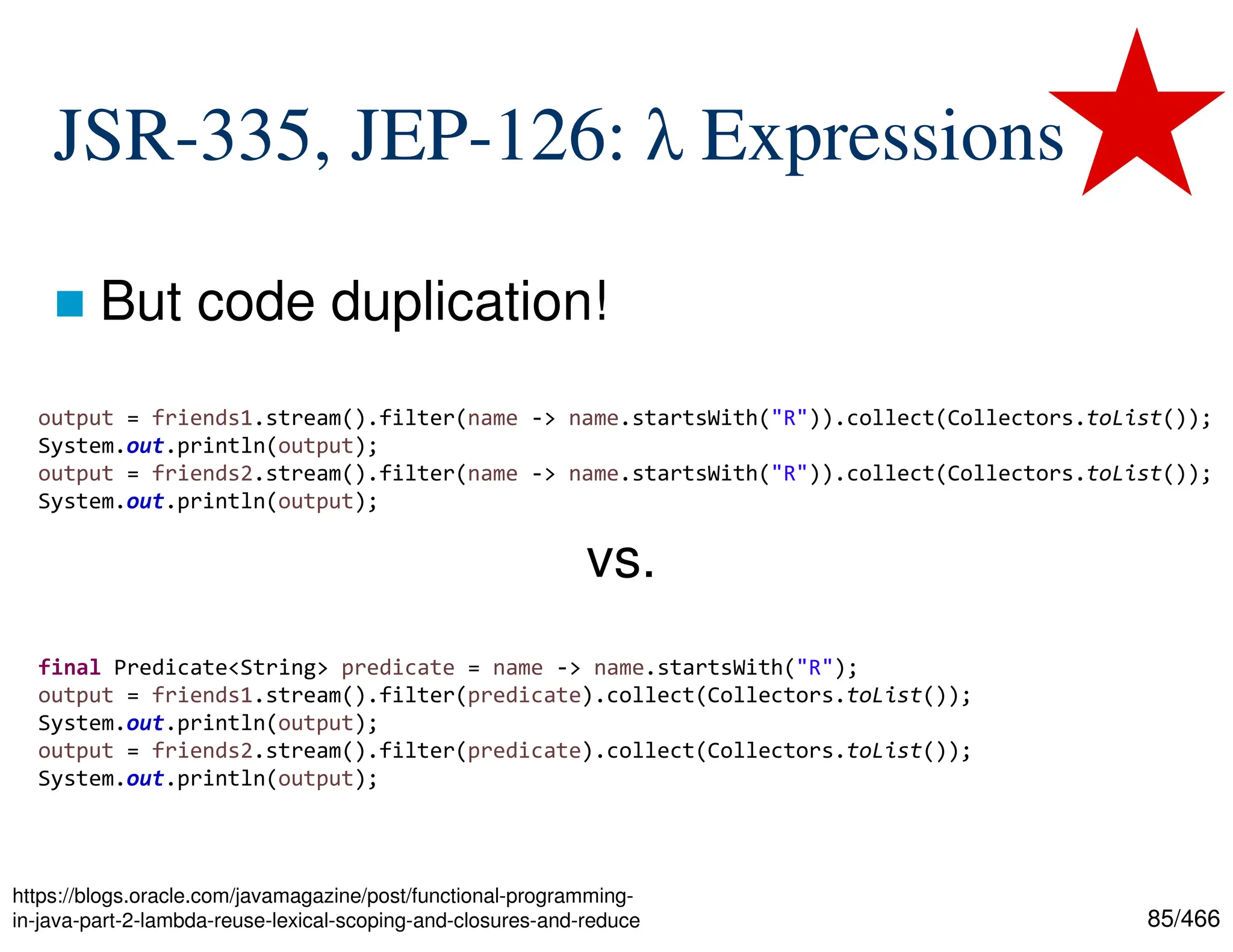
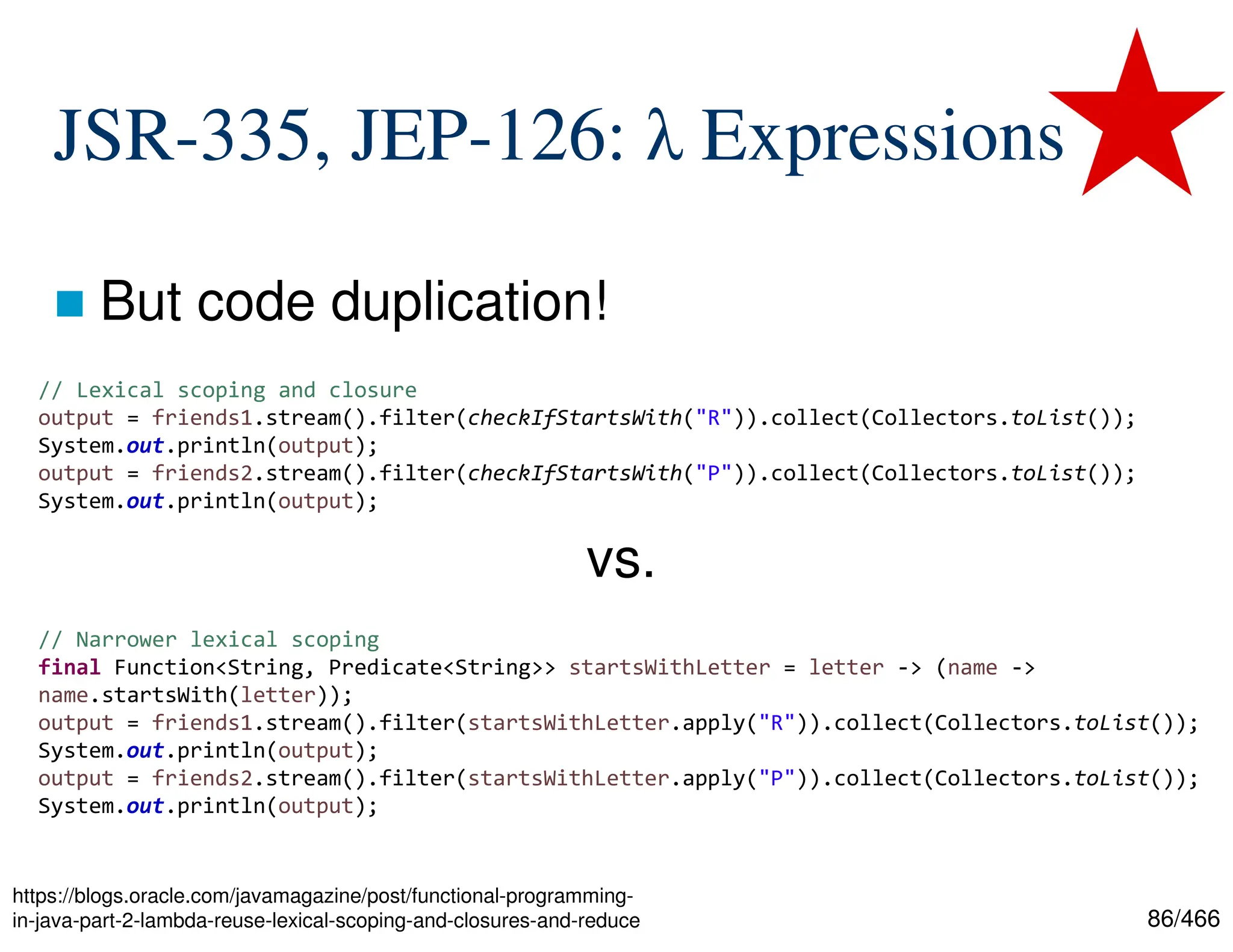
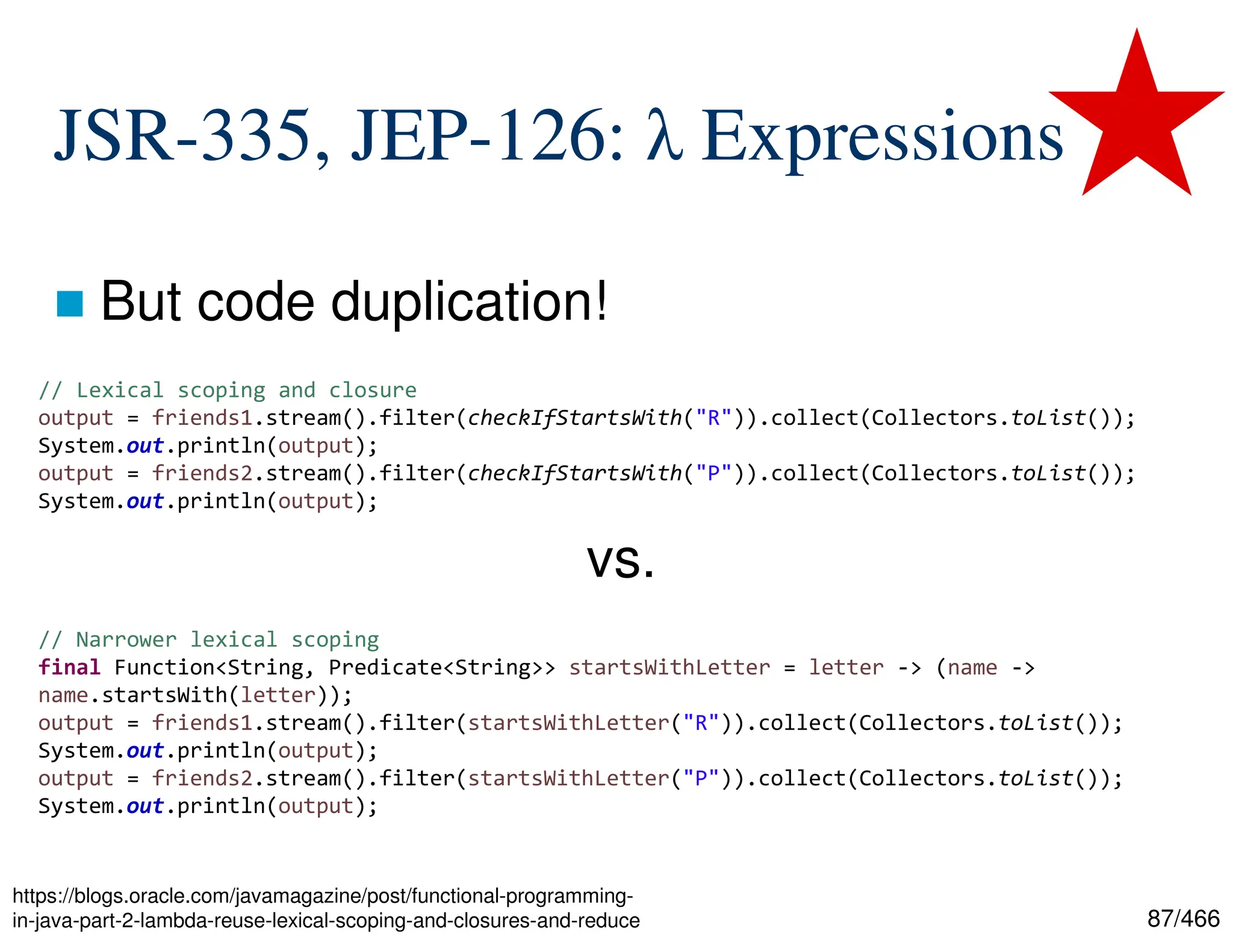
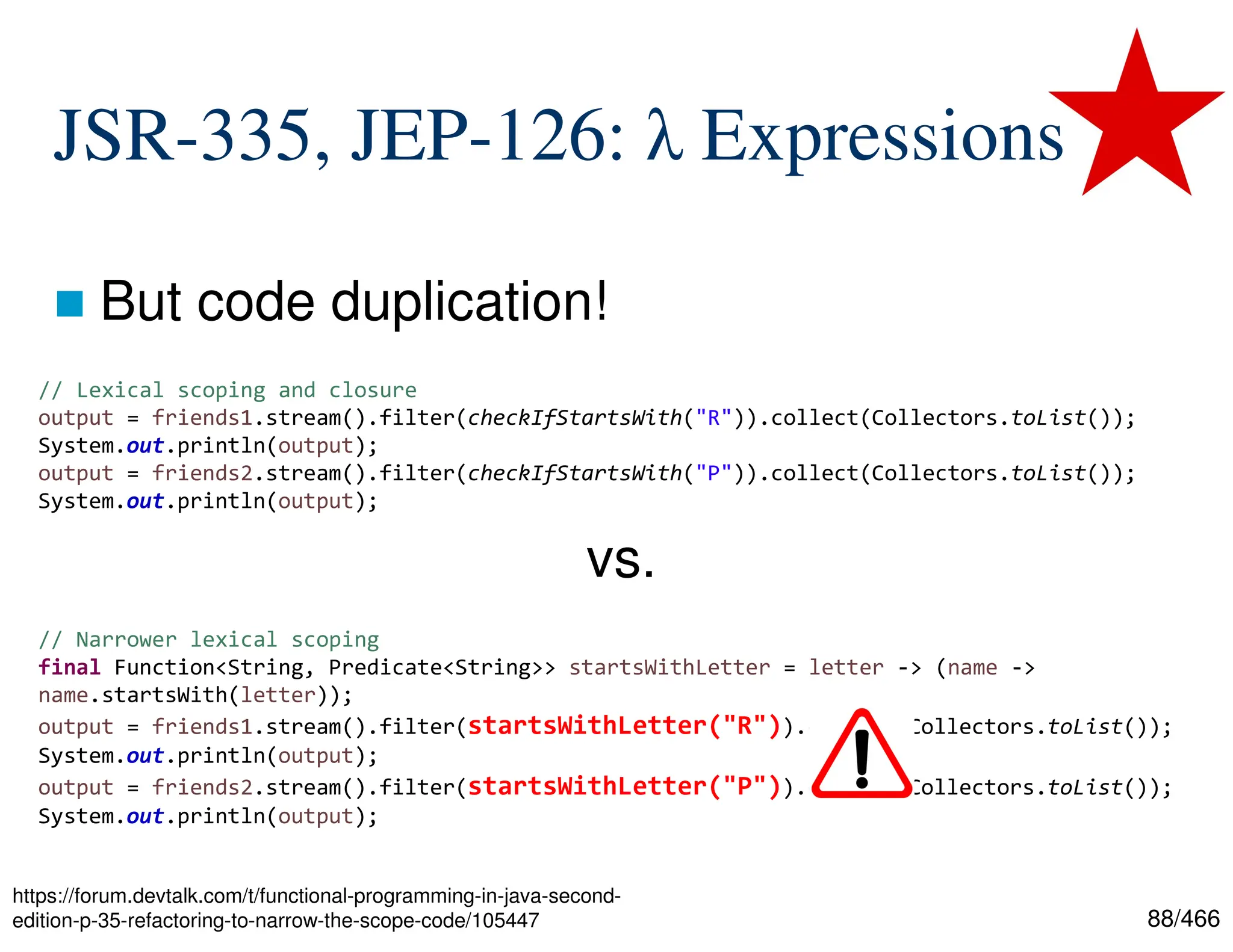
![89/466 JSR-308, JEP-104: Type Annotations Allow pluggable type systems Help enforce stronger typing public class Example1 { public static void main(final String[] args) { final String aString = null; final String anotherString = aString; System.out.println(anotherString); } }](https://image.slidesharecdn.com/newjavav0-250327235127-ec555181/75/Evolution-and-Examples-of-Java-Features-from-Java-1-7-to-Java-24-89-2048.jpg)
![90/466 JSR-308, JEP-104: Type Annotations Allow pluggable type systems Help enforce stronger typing public class Example1 { public static void main(final String[] args) { final String aString = null; final String anotherString = aString; System.out.println(anotherString); } } public class Example1 { public static void main(final String[] args) { final String aString = null; final @NonNull String anotherString = aString; System.out.println(anotherString); } }](https://image.slidesharecdn.com/newjavav0-250327235127-ec555181/75/Evolution-and-Examples-of-Java-Features-from-Java-1-7-to-Java-24-90-2048.jpg)
![91/466 JSR-308, JEP-104: Type Annotations Allow pluggable type systems Help enforce stronger typing public class Example1 { public static void main(final String[] args) { final String aString = null; final String anotherString = aString; System.out.println(anotherString); } } public class Example1 { public static void main(final String[] args) { final String aString = null; final @NonNull String anotherString = aString; System.out.println(anotherString); } } Null type mismatch: required '@NonNull String' but the provided value is null](https://image.slidesharecdn.com/newjavav0-250327235127-ec555181/75/Evolution-and-Examples-of-Java-Features-from-Java-1-7-to-Java-24-91-2048.jpg)
![92/466 JSR-308, JEP-104: Type Annotations Allow pluggable type systems Help enforce stronger typing public class Example1 { public static void main(final String[] args) { final String aString = null; final String anotherString = aString; System.out.println(anotherString); } } public class Example1 { public static void main(final String[] args) { final String aString = null; final @NonNull String anotherString = aString; System.out.println(anotherString); } } public class Example1 { public static void main(final String[] args) { final String aString = ""; final @NonNull String anotherString = aString; System.out.println(anotherString); } } Null type mismatch: required '@NonNull String' but the provided value is null](https://image.slidesharecdn.com/newjavav0-250327235127-ec555181/75/Evolution-and-Examples-of-Java-Features-from-Java-1-7-to-Java-24-92-2048.jpg)
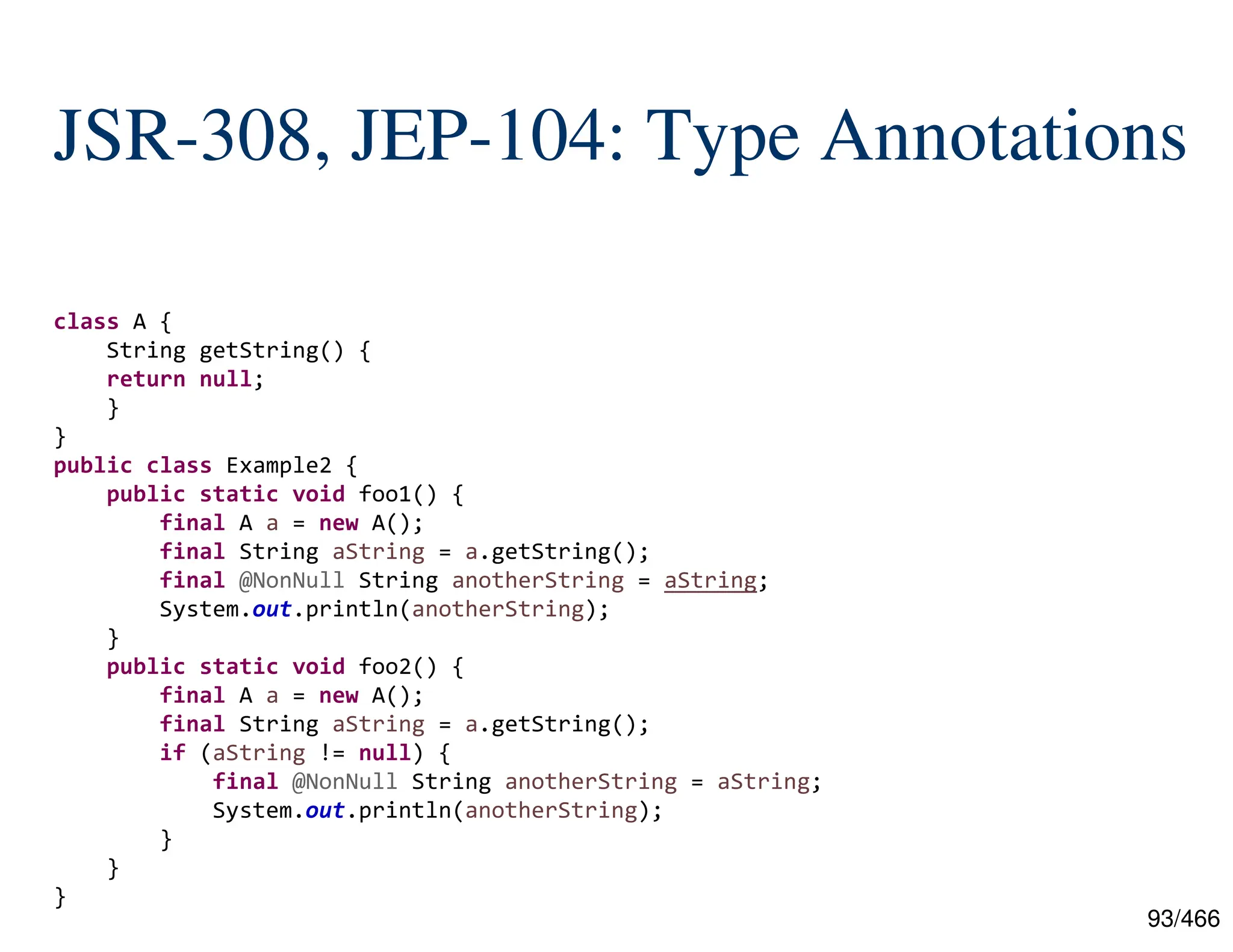
![94/466 JSR-308, JEP-104: Type Annotations class A { String getString() { return null; } } public class Example2 { public static void foo1() { final A a = new A(); final String aString = a.getString(); final @NonNull String anotherString = aString; System.out.println(anotherString); } public static void foo2() { final A a = new A(); final String aString = a.getString(); if (aString != null) { final @NonNull String anotherString = aString; System.out.println(anotherString); } } } Null type safety […] needs unchecked conversion to conform to '@NonNull String'](https://image.slidesharecdn.com/newjavav0-250327235127-ec555181/75/Evolution-and-Examples-of-Java-Features-from-Java-1-7-to-Java-24-94-2048.jpg)
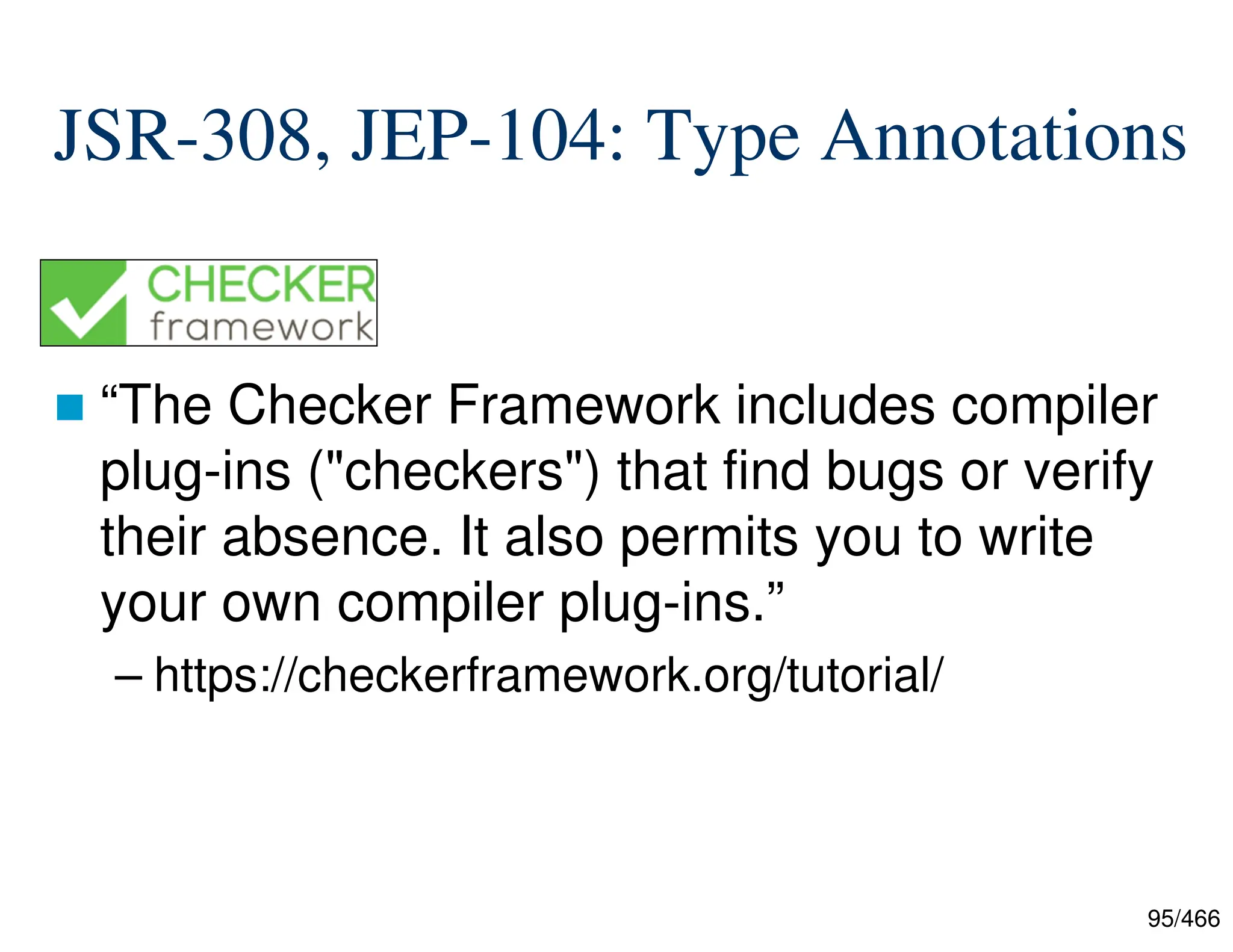
![96/466 Unsigned Integer Arithmetic Comparison Division/Modulo Parsing Formatting https://www.baeldung.com/java-unsigned-arithmetic public class Example1 { public static void main(String[] args) { final int positive = Integer.MAX_VALUE; final int negative = Integer.MIN_VALUE; final int signedComparison = Integer.compare(positive, negative); if (signedComparison > 0) { System.out.println("Positive > negative (signed comparison)"); } final int unsignedComparison = Integer.compareUnsigned(positive, negative); if (unsignedComparison < 0) { System.out.println("Positive NOT > negative (unsigned comparison)"); } } }](https://image.slidesharecdn.com/newjavav0-250327235127-ec555181/75/Evolution-and-Examples-of-Java-Features-from-Java-1-7-to-Java-24-96-2048.jpg)
![97/466 JEP-120: Repeating Annotations “Annotations, a form of metadata, provide data about a program that is not part of the program [and] have no direct effect on the operation of the code they annotate.” https://docs.oracle.com/javase/tutorial/java/annotations/](https://image.slidesharecdn.com/newjavav0-250327235127-ec555181/75/Evolution-and-Examples-of-Java-Features-from-Java-1-7-to-Java-24-97-2048.jpg)
![98/466 JEP-120: Repeating Annotations “Annotations, a form of metadata, provide data about a program that is not part of the program [and] have no direct effect on the operation of the code they annotate.” https://docs.oracle.com/javase/tutorial/java/annotations/](https://image.slidesharecdn.com/newjavav0-250327235127-ec555181/75/Evolution-and-Examples-of-Java-Features-from-Java-1-7-to-Java-24-98-2048.jpg)
![99/466 JEP-120: Repeating Annotations https://rolyhewage.medium.com/type-annotations-repeating-annotations-in-java-722073df9f99 @Retention(RetentionPolicy.RUNTIME) @interface ScheduleNonRepeatable1 { String dayOfMonth() default "First"; String dayOfWeek() default "Mon"; int hour() default 12; } @ScheduleNonRepeatable1(dayOfWeek = "Fri", hour = 23) public class Example1 { public static void main(final String[] args) { final Example1 example1 = new Example1(); final Annotation annotation = example1.getClass(). getAnnotation(ScheduleNonRepeatable1.class); System.out.println(annotation); } }](https://image.slidesharecdn.com/newjavav0-250327235127-ec555181/75/Evolution-and-Examples-of-Java-Features-from-Java-1-7-to-Java-24-99-2048.jpg)
![100/466 JEP-120: Repeating Annotations https://rolyhewage.medium.com/type-annotations-repeating-annotations-in-java-722073df9f99 @Retention(RetentionPolicy.RUNTIME) @interface ScheduleNonRepeatable1 { String dayOfMonth() default "First"; String dayOfWeek() default "Mon"; int hour() default 12; } @ScheduleNonRepeatable1(dayOfWeek = "Fri", hour = 23) public class Example1 { public static void main(final String[] args) { final Example1 example1 = new Example1(); final Annotation annotation = example1.getClass(). getAnnotation(ScheduleNonRepeatable1.class); System.out.println(annotation); } } @ScheduleNonRepeatable1(hour=23, dayOfMonth="First", dayOfWeek="Fri")](https://image.slidesharecdn.com/newjavav0-250327235127-ec555181/75/Evolution-and-Examples-of-Java-Features-from-Java-1-7-to-Java-24-100-2048.jpg)
![101/466 JEP-120: Repeating Annotations https://rolyhewage.medium.com/type-annotations-repeating-annotations-in-java-722073df9f99 @Retention(RetentionPolicy.RUNTIME) @interface ScheduleNonRepeatable2 { String dayOfMonth() default "First"; String dayOfWeek() default "Mon"; int hour() default 12; } @ScheduleNonRepeatable2(dayOfMonth = "last") @ScheduleNonRepeatable2(dayOfWeek = "Fri", hour = 23) public class Example2 { public static void main(final String[] args) { final Example2 example2 = new Example2(); final Annotation annotation = example2.getClass(). getAnnotation(ScheduleNonRepeatable2.class); System.out.println(annotation); } }](https://image.slidesharecdn.com/newjavav0-250327235127-ec555181/75/Evolution-and-Examples-of-Java-Features-from-Java-1-7-to-Java-24-101-2048.jpg)
![102/466 JEP-120: Repeating Annotations https://rolyhewage.medium.com/type-annotations-repeating-annotations-in-java-722073df9f99 @Retention(RetentionPolicy.RUNTIME) @interface ScheduleNonRepeatable2 { String dayOfMonth() default "First"; String dayOfWeek() default "Mon"; int hour() default 12; } @ScheduleNonRepeatable2(dayOfMonth = "last") @ScheduleNonRepeatable2(dayOfWeek = "Fri", hour = 23) public class Example2 { public static void main(final String[] args) { final Example2 example2 = new Example2(); final Annotation annotation = example2.getClass(). getAnnotation(ScheduleNonRepeatable2.class); System.out.println(annotation); } } Duplicate annotation of non-repeatable type @ScheduleNonRepeatable2](https://image.slidesharecdn.com/newjavav0-250327235127-ec555181/75/Evolution-and-Examples-of-Java-Features-from-Java-1-7-to-Java-24-102-2048.jpg)
![103/466 JEP-120: Repeating Annotations https://rolyhewage.medium.com/type-annotations-repeating-annotations-in-java-722073df9f99 @Retention(RetentionPolicy.RUNTIME) @interface Schedules { ScheduleRepeatable[] value(); } @Retention(RetentionPolicy.RUNTIME) @Repeatable(Schedules.class) @interface ScheduleRepeatable { String dayOfMonth() default "First"; String dayOfWeek() default "Mon"; int hour() default 12; } @ScheduleRepeatable(dayOfMonth = "last") @ScheduleRepeatable(dayOfWeek = "Fri", hour = 23) public class Example3 { public static void main(final String[] args) { final Example3 example3 = new Example3(); final Annotation annotation = example3.getClass(). getAnnotation(Schedules.class); System.out.println(annotation); } }](https://image.slidesharecdn.com/newjavav0-250327235127-ec555181/75/Evolution-and-Examples-of-Java-Features-from-Java-1-7-to-Java-24-103-2048.jpg)
![104/466 JEP-120: Repeating Annotations https://rolyhewage.medium.com/type-annotations-repeating-annotations-in-java-722073df9f99 @Retention(RetentionPolicy.RUNTIME) @interface Schedules { ScheduleRepeatable[] value(); } @Retention(RetentionPolicy.RUNTIME) @Repeatable(Schedules.class) @interface ScheduleRepeatable { String dayOfMonth() default "First"; String dayOfWeek() default "Mon"; int hour() default 12; } @ScheduleRepeatable(dayOfMonth = "last") @ScheduleRepeatable(dayOfWeek = "Fri", hour = 23) public class Example3 { public static void main(final String[] args) { final Example3 example3 = new Example3(); final Annotation annotation = example3.getClass(). getAnnotation(Schedules.class); System.out.println(annotation); } } @Schedules({@ScheduleRepeatable(hour=12, dayOfMonth="last", dayOfWeek="Mon"), @ScheduleRepeatable(hour=23, dayOfMonth="First", dayOfWeek="Fri")})](https://image.slidesharecdn.com/newjavav0-250327235127-ec555181/75/Evolution-and-Examples-of-Java-Features-from-Java-1-7-to-Java-24-104-2048.jpg)

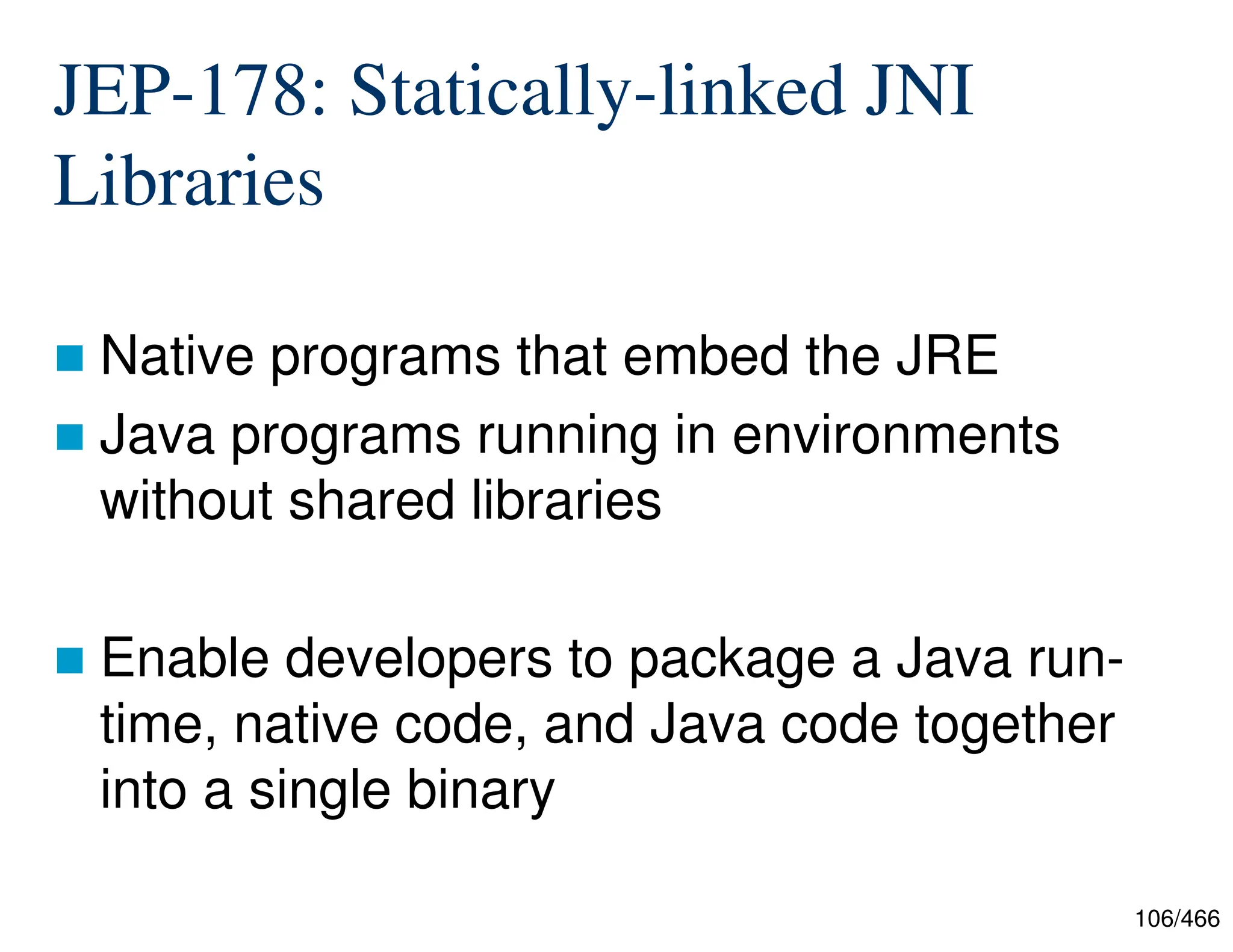
![107/466 JEP-122: Permanent Generation Removal “Automatic garbage collection is [..] identifying which objects are in use and […] deleting the unused objects.” Remove Permanent Generation – No more size tuning https://openjdk.org/jeps/122](https://image.slidesharecdn.com/newjavav0-250327235127-ec555181/75/Evolution-and-Examples-of-Java-Features-from-Java-1-7-to-Java-24-107-2048.jpg)

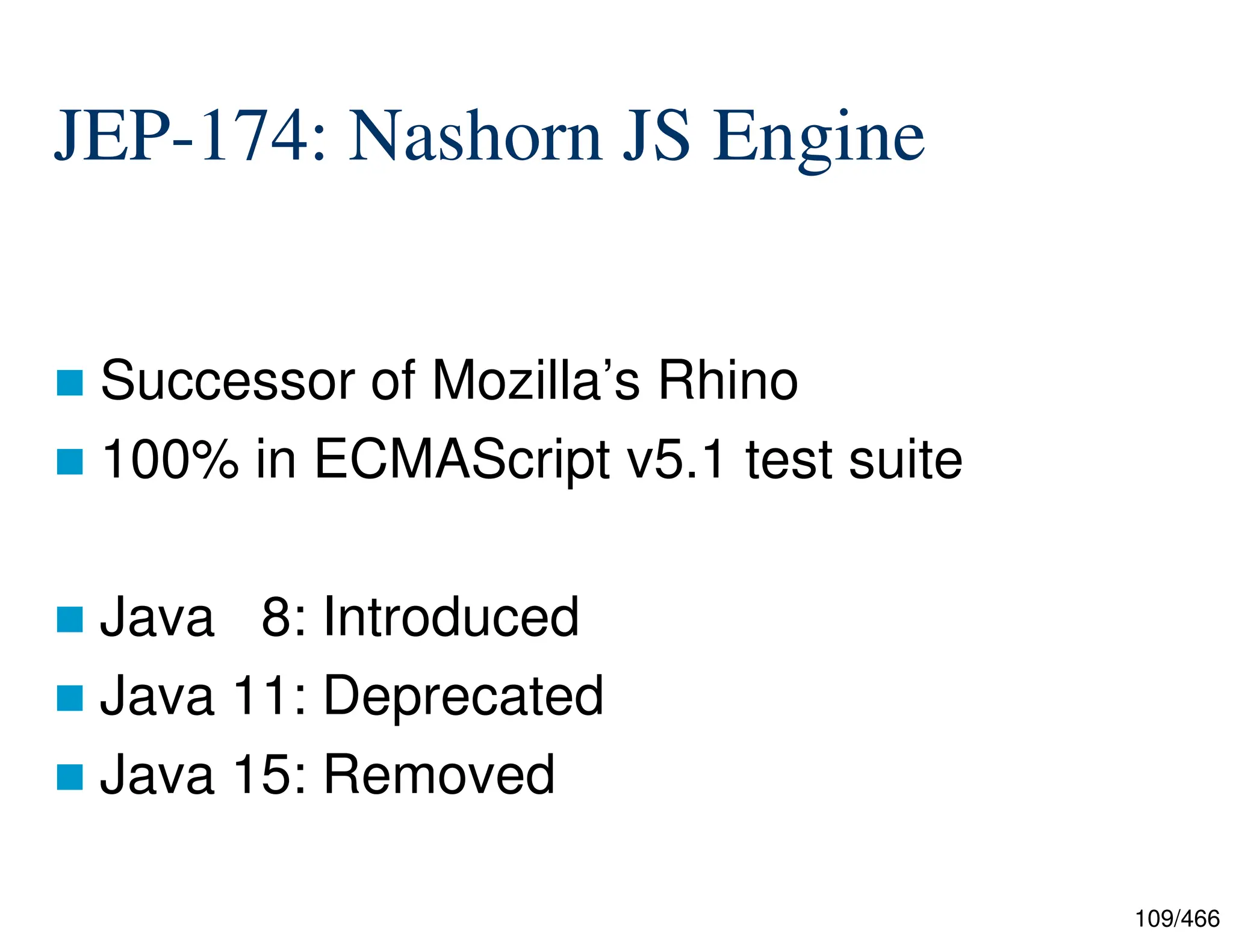
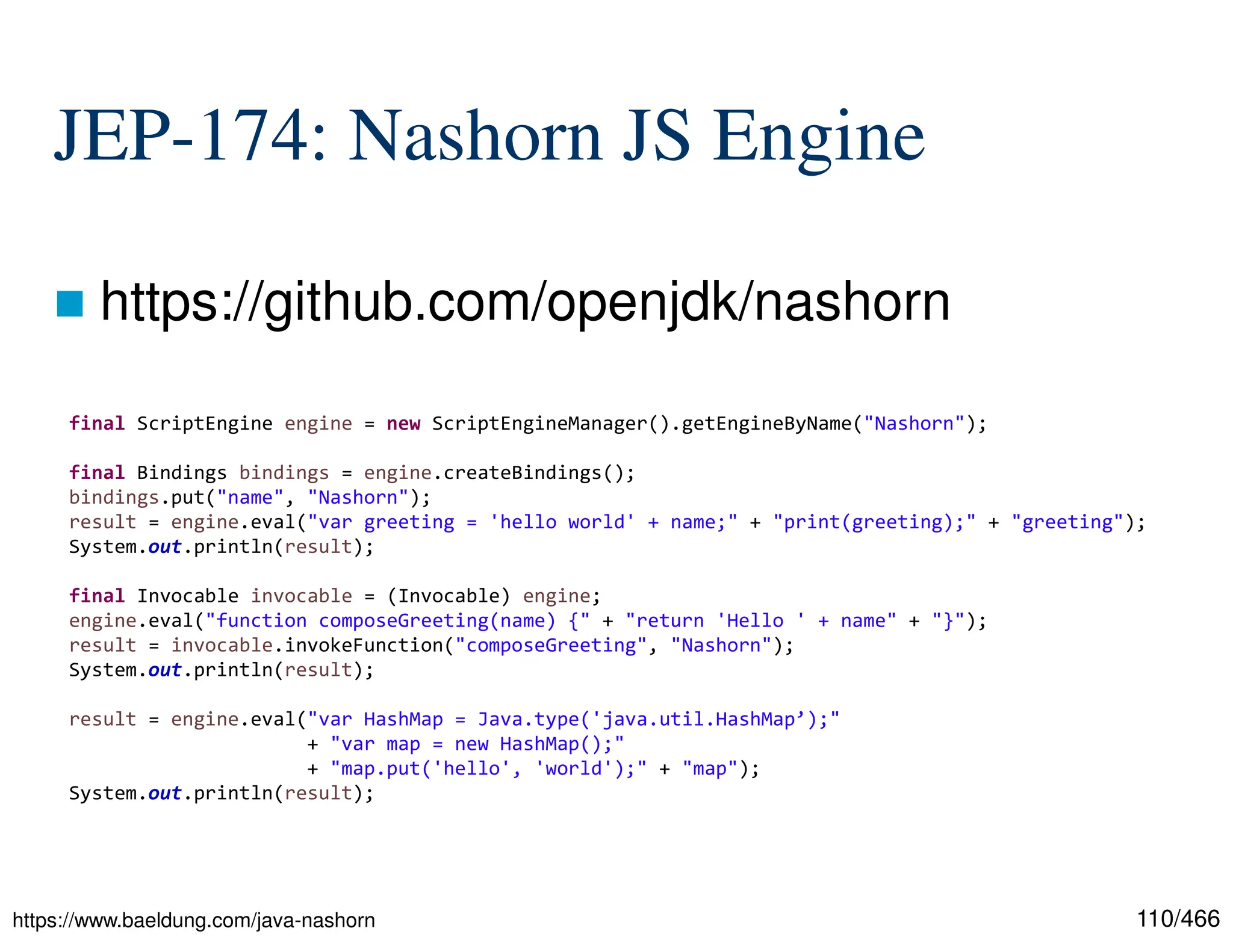
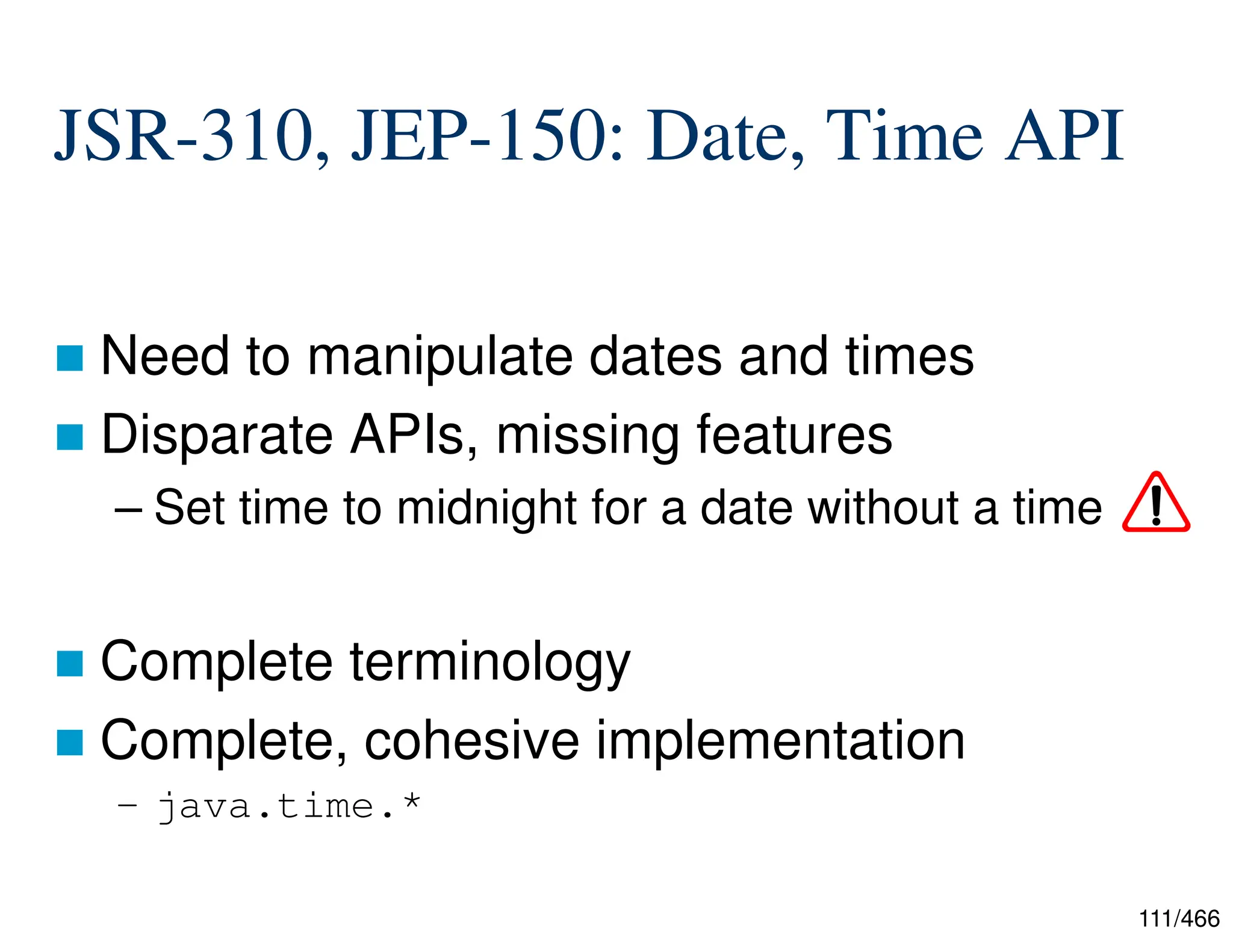

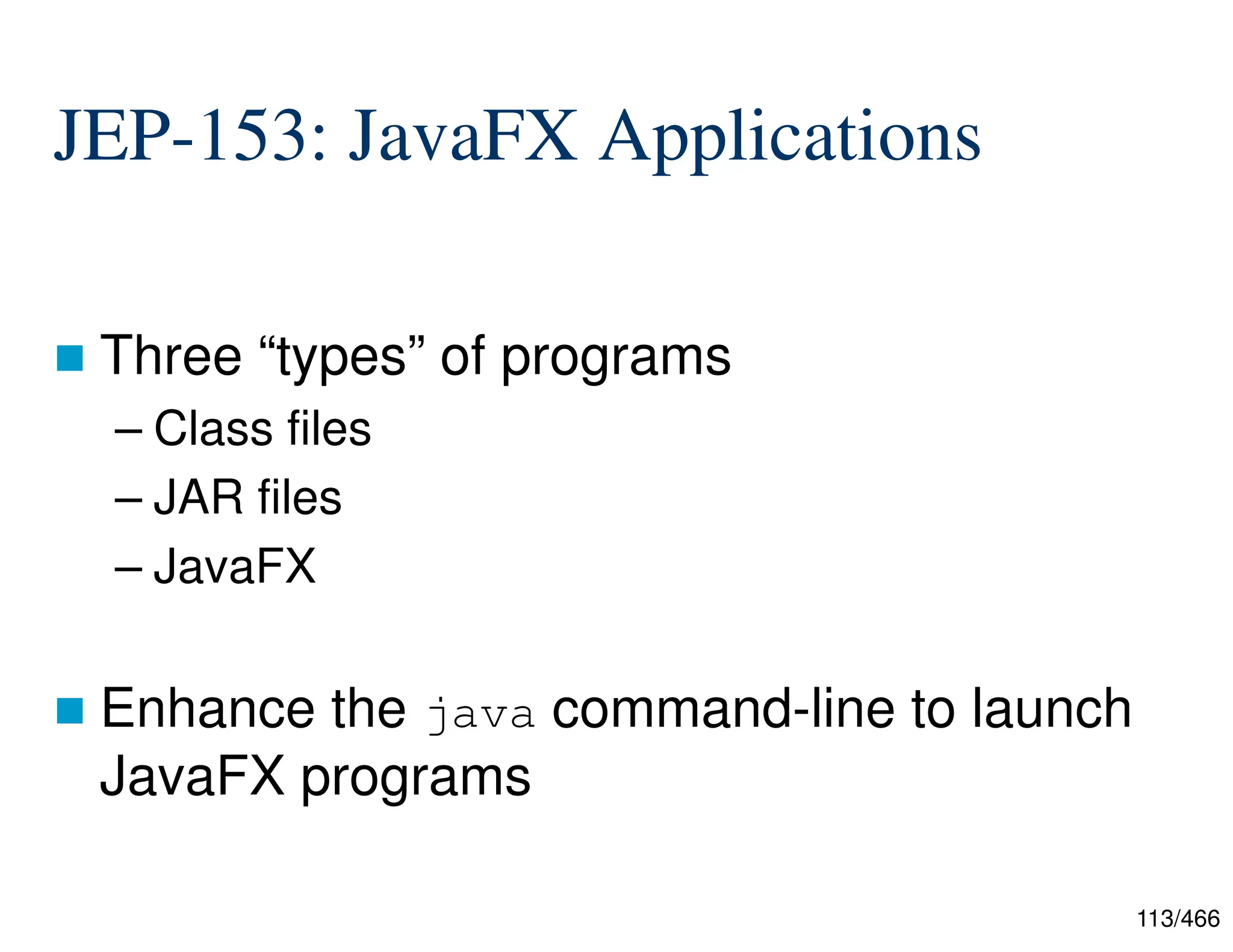
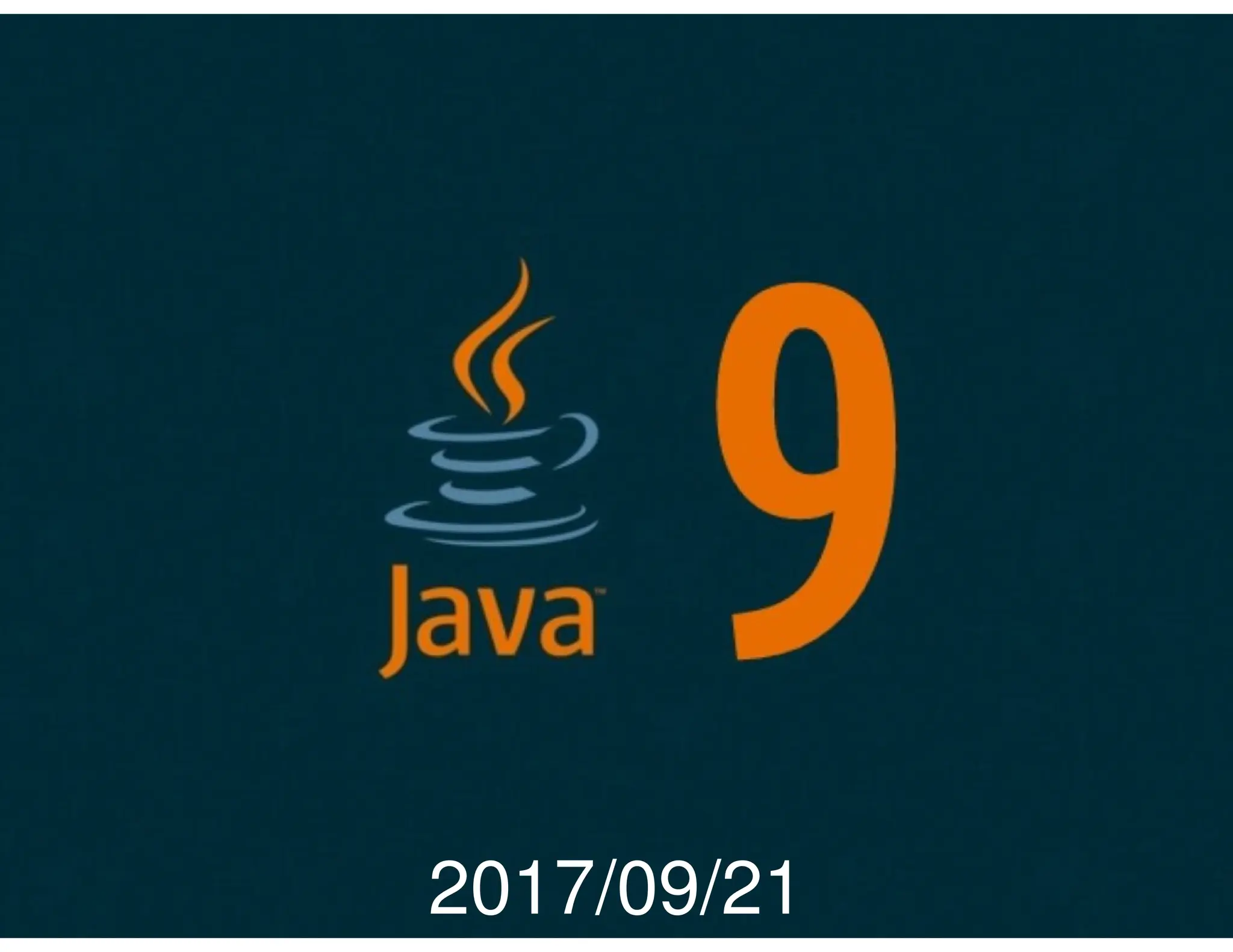

![116/466 Private Interface Methods public interface IA { int foo(); default int bar() { return this.bar1(); } private int bar1() { return 42; } } public static void main(final String[] args) { final IA anIA = new IA() { public int foo() { return 0; } }; System.out.println(anIA.foo()); System.out.println(anIA.bar()); final IA anotherIA = new IA() { public int foo() { return IA.super.bar1(); } public int bar() { return 0; } }; System.out.println(anotherIA.foo()); System.out.println(anotherIA.bar()); }](https://image.slidesharecdn.com/newjavav0-250327235127-ec555181/75/Evolution-and-Examples-of-Java-Features-from-Java-1-7-to-Java-24-116-2048.jpg)
![117/466 Private Interface Methods public interface IA { int foo(); default int bar() { return this.bar1(); } private int bar1() { return 42; } } public static void main(final String[] args) { final IA anIA = new IA() { public int foo() { return 0; } }; System.out.println(anIA.foo()); System.out.println(anIA.bar()); final IA anotherIA = new IA() { public int foo() { return IA.super.bar1(); } public int bar() { return 0; } }; System.out.println(anotherIA.foo()); System.out.println(anotherIA.bar()); } 0 42 42 0](https://image.slidesharecdn.com/newjavav0-250327235127-ec555181/75/Evolution-and-Examples-of-Java-Features-from-Java-1-7-to-Java-24-117-2048.jpg)
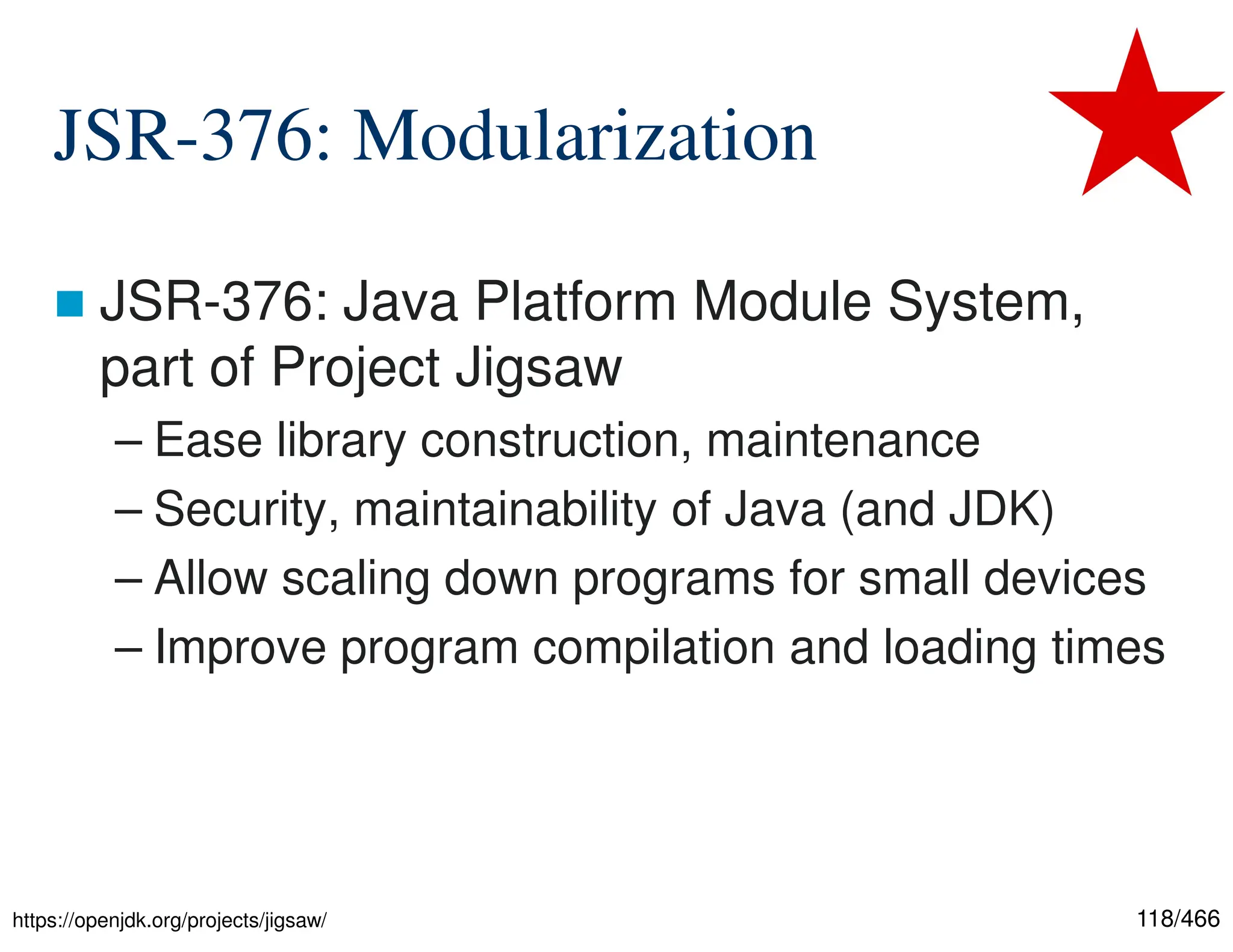
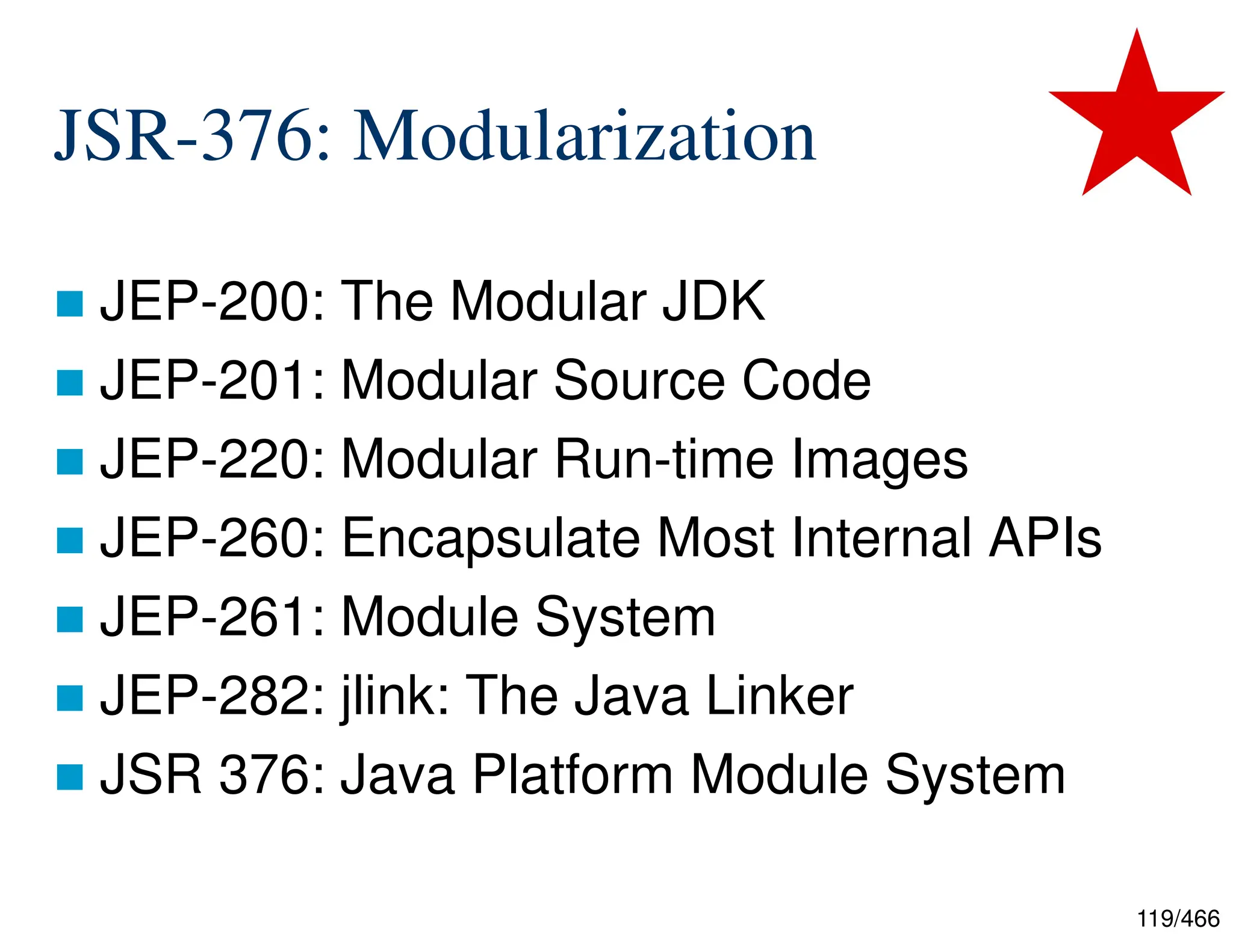
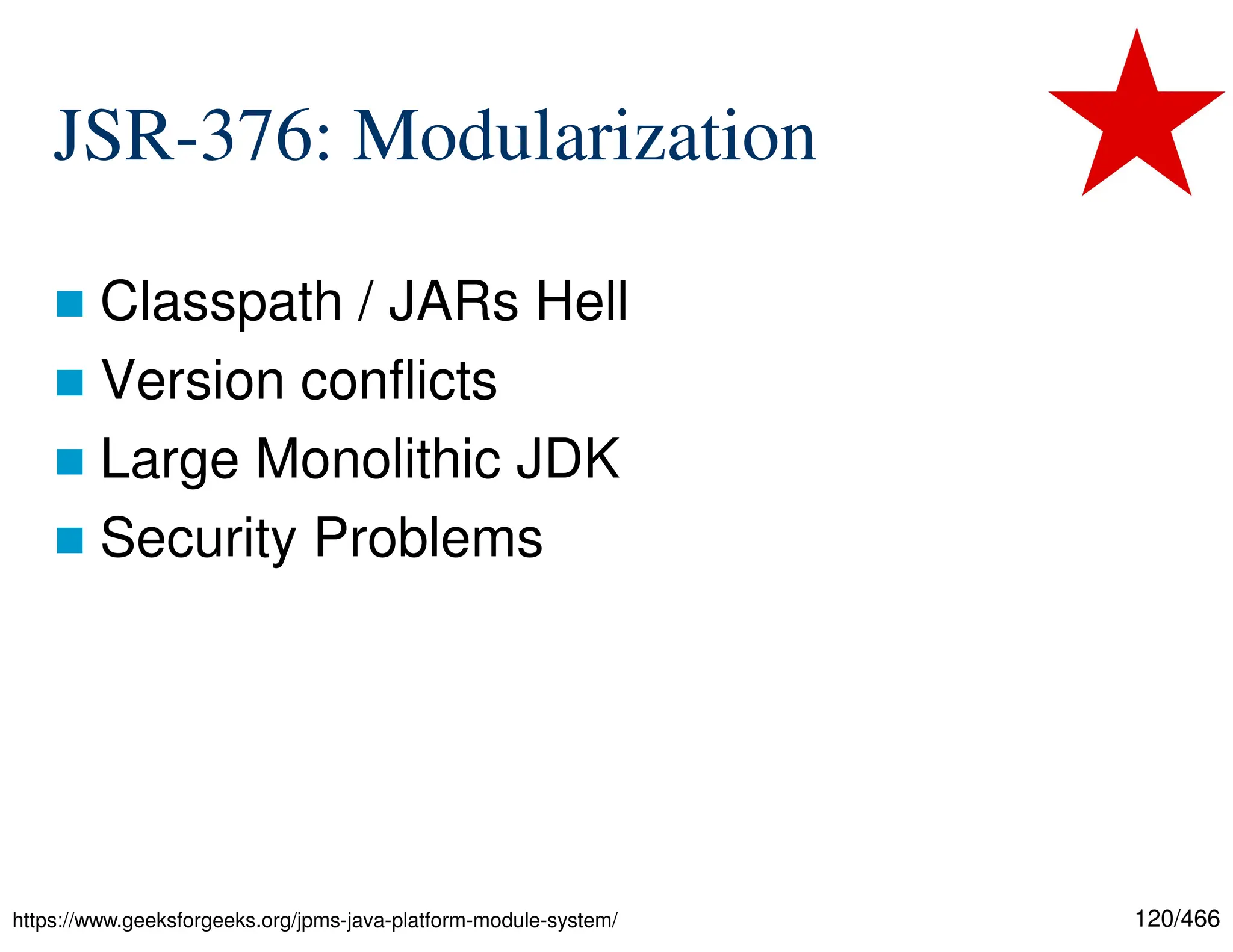
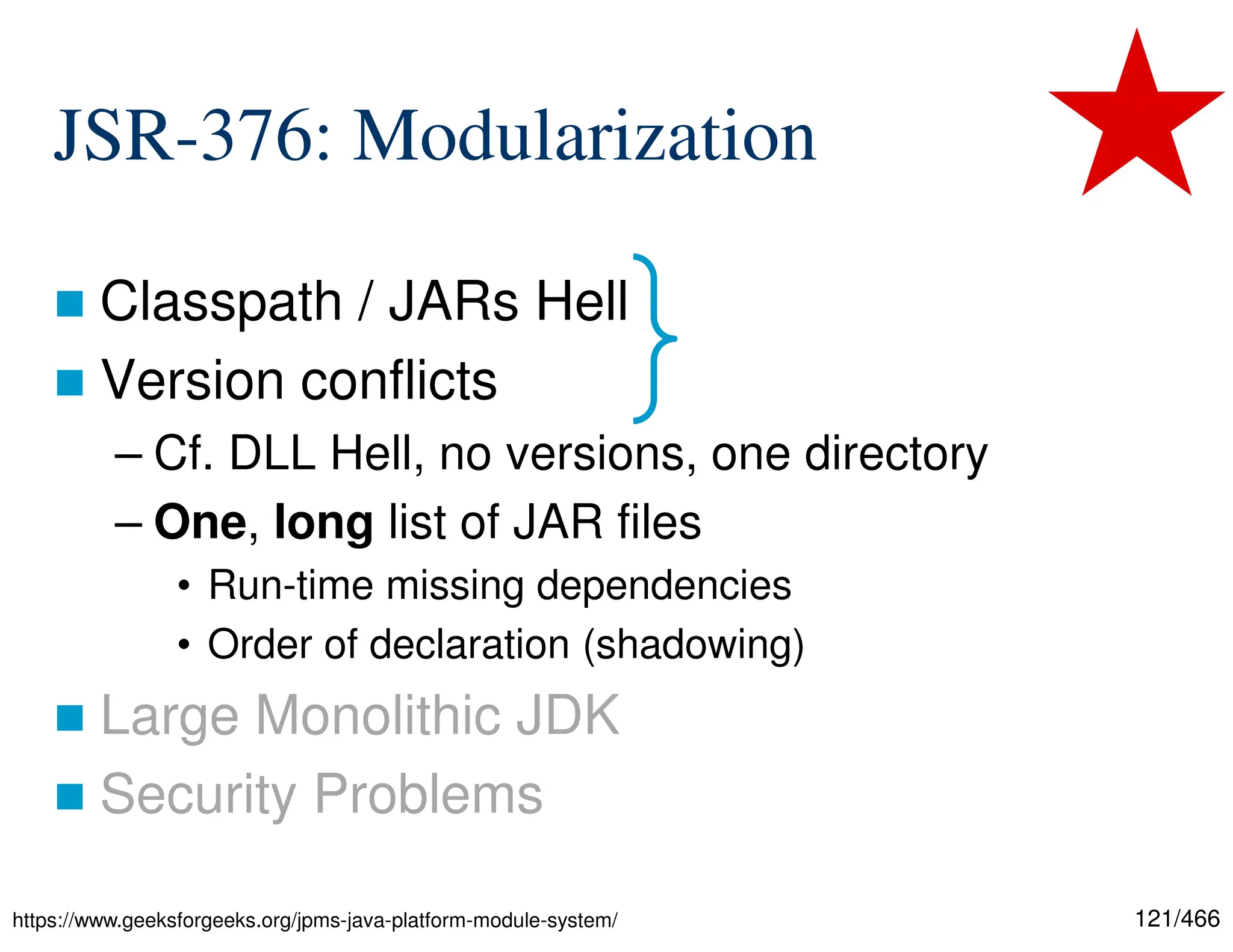
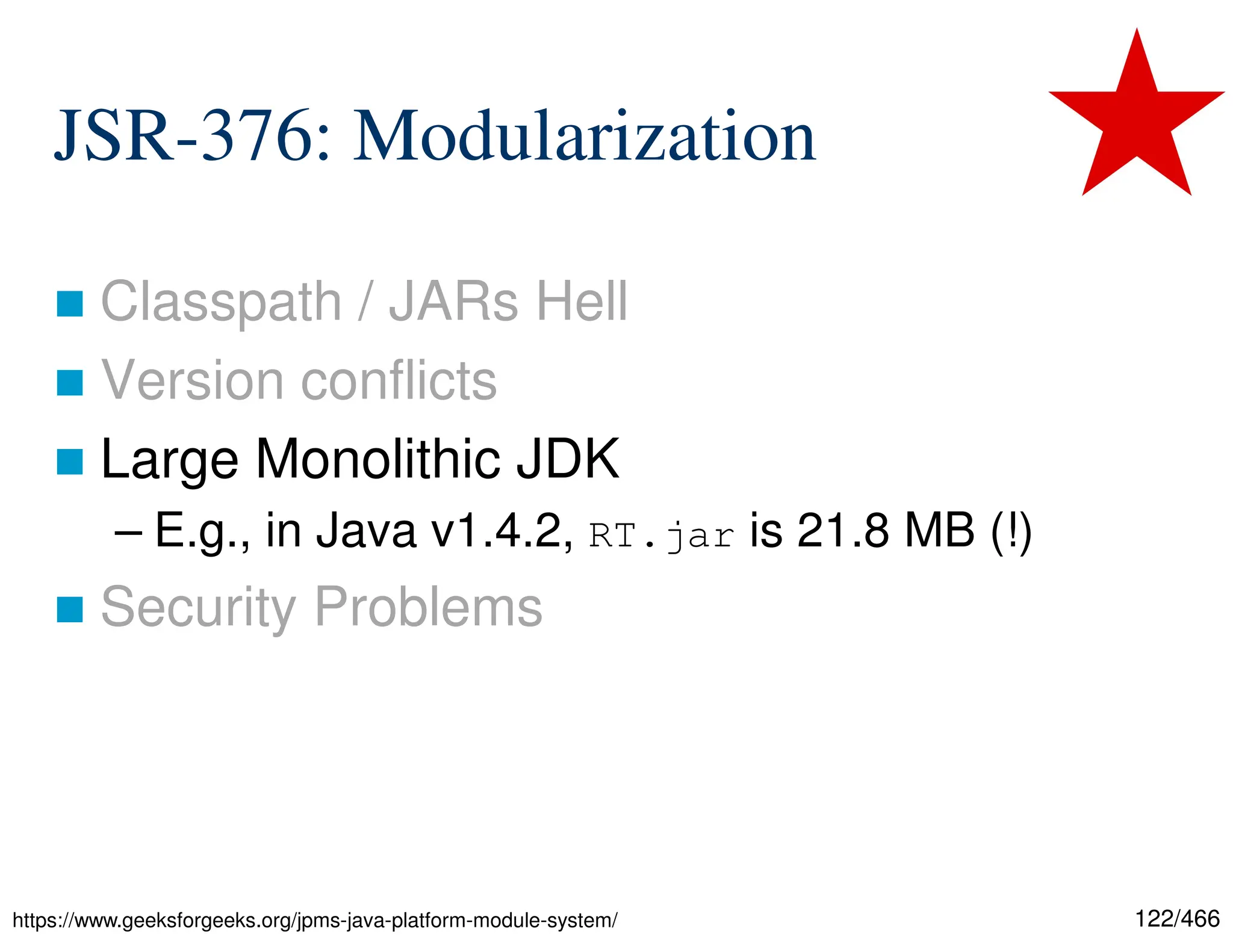
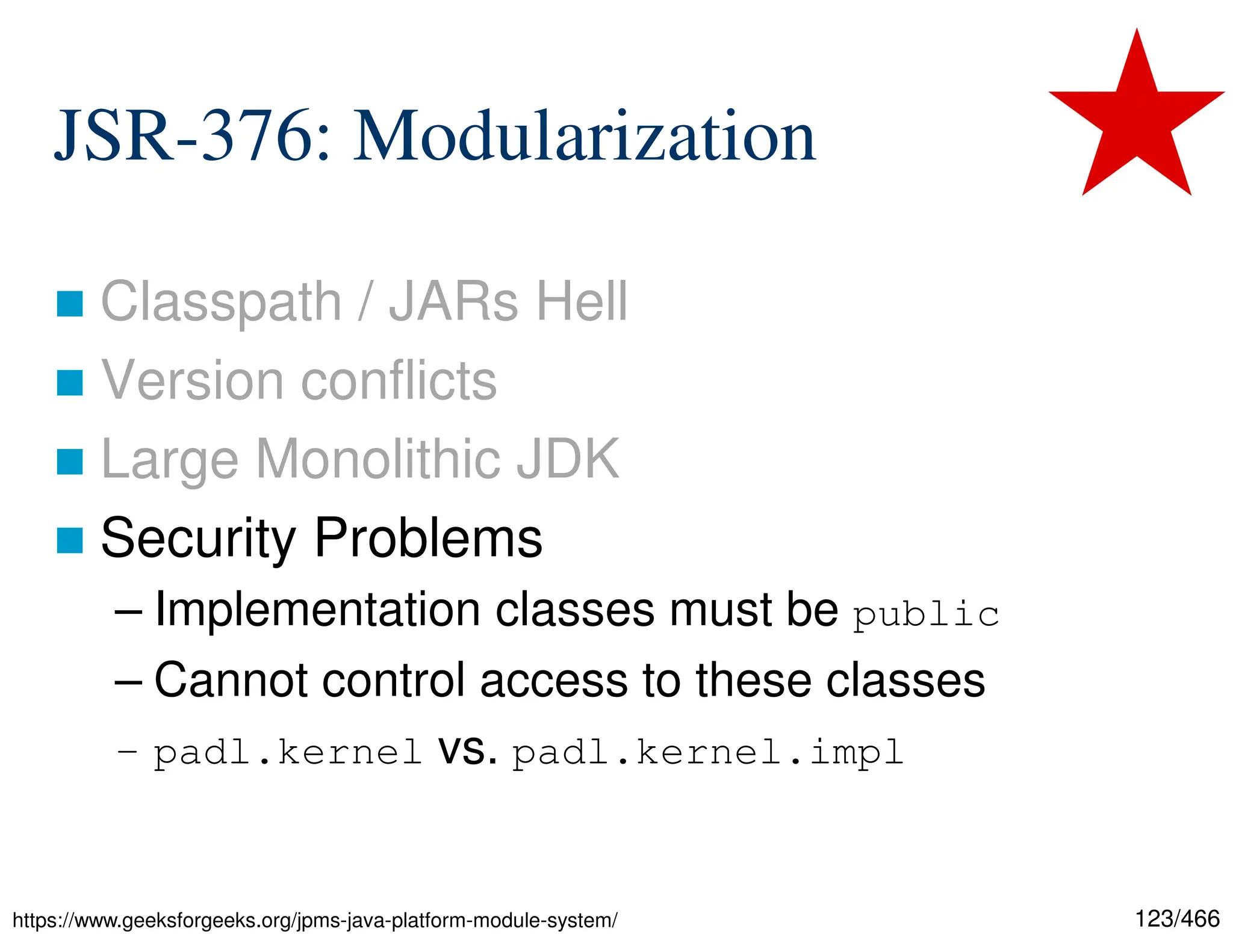
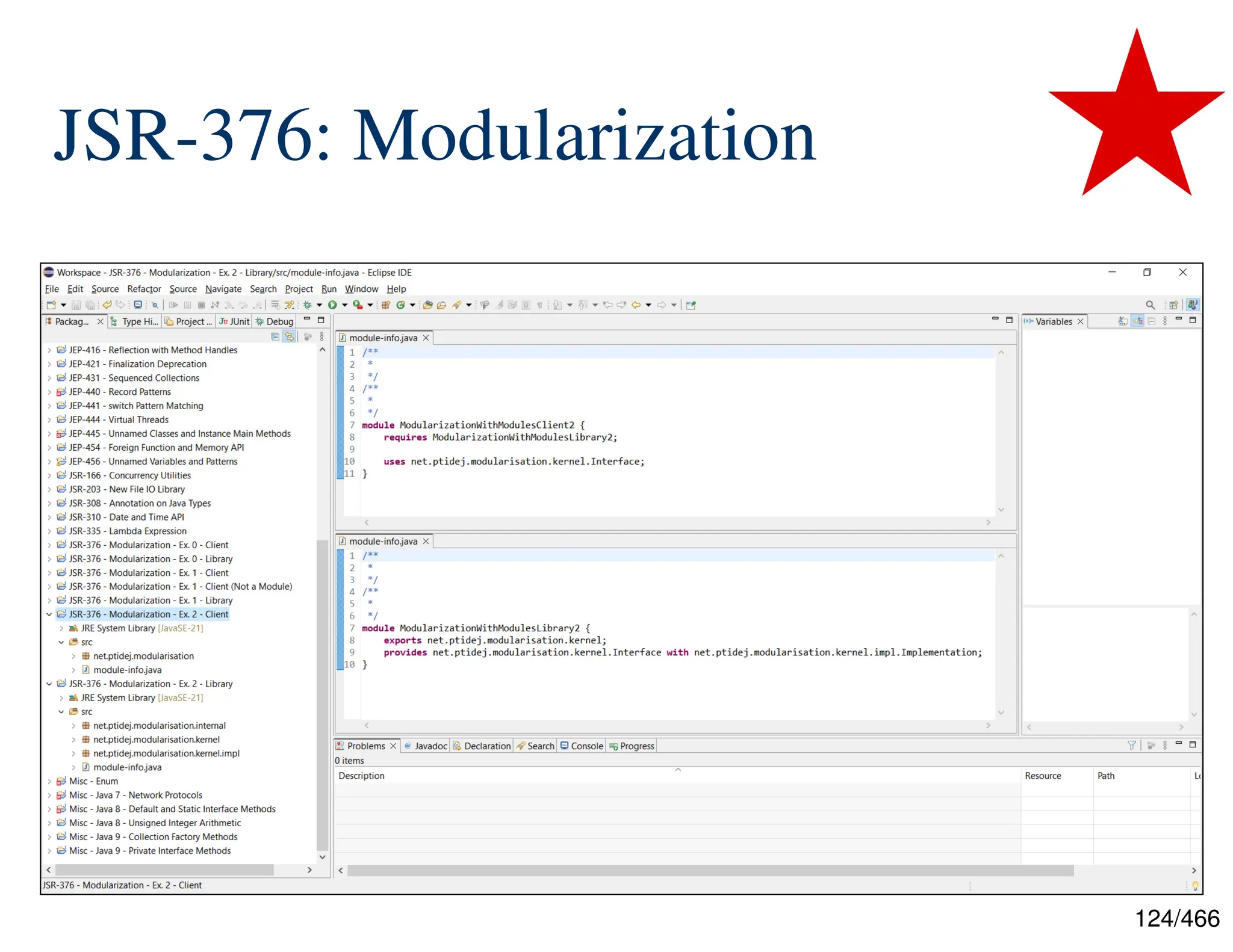
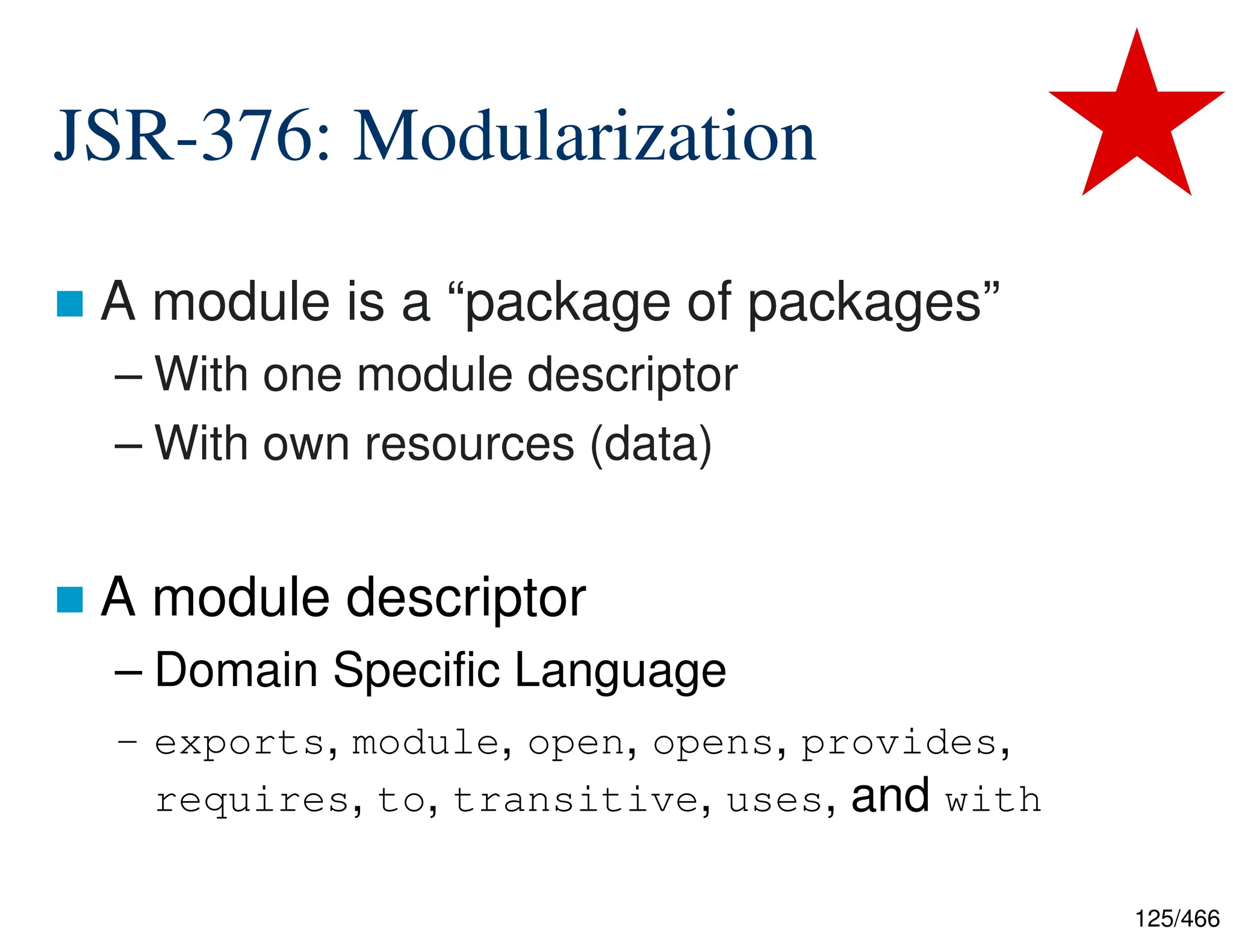
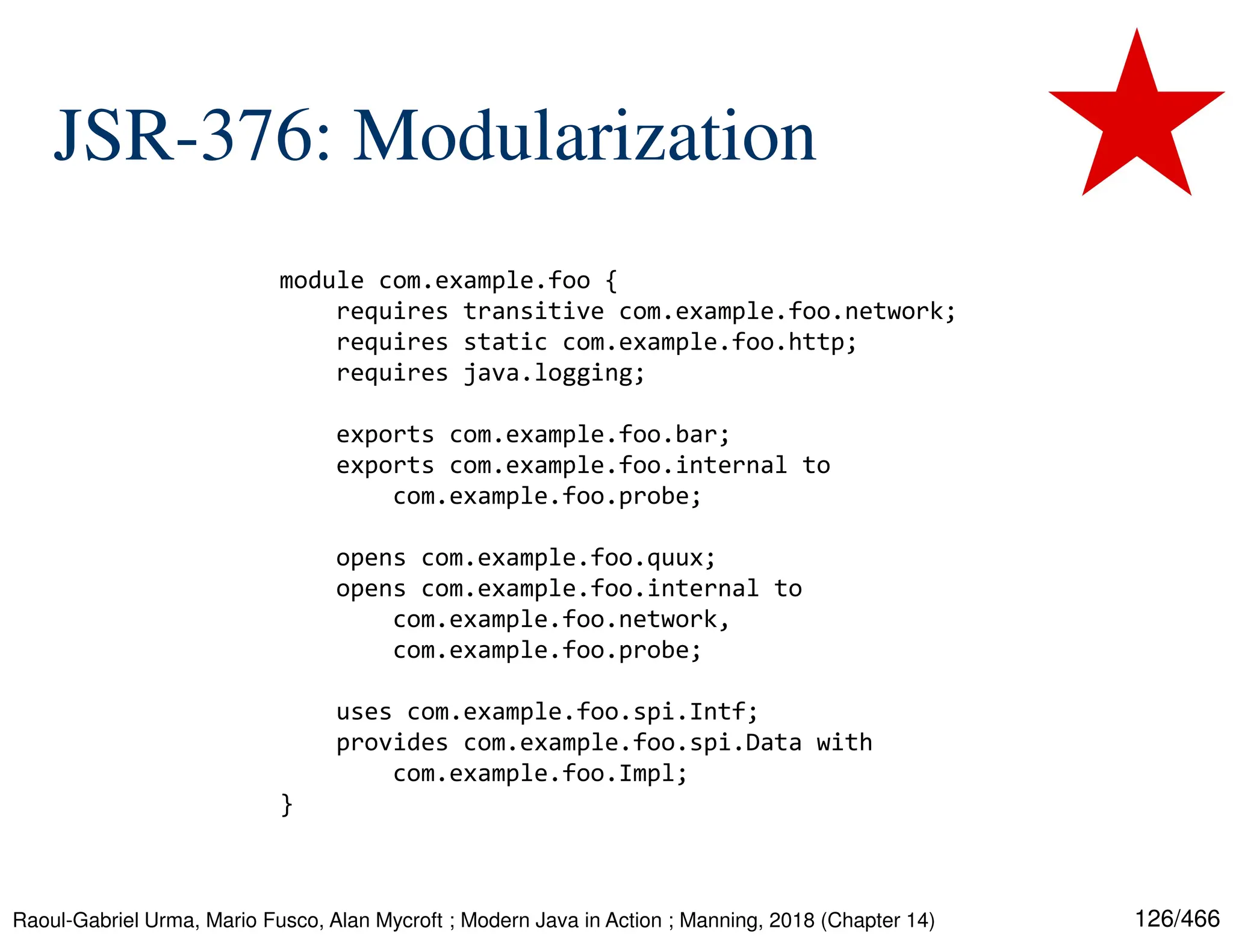
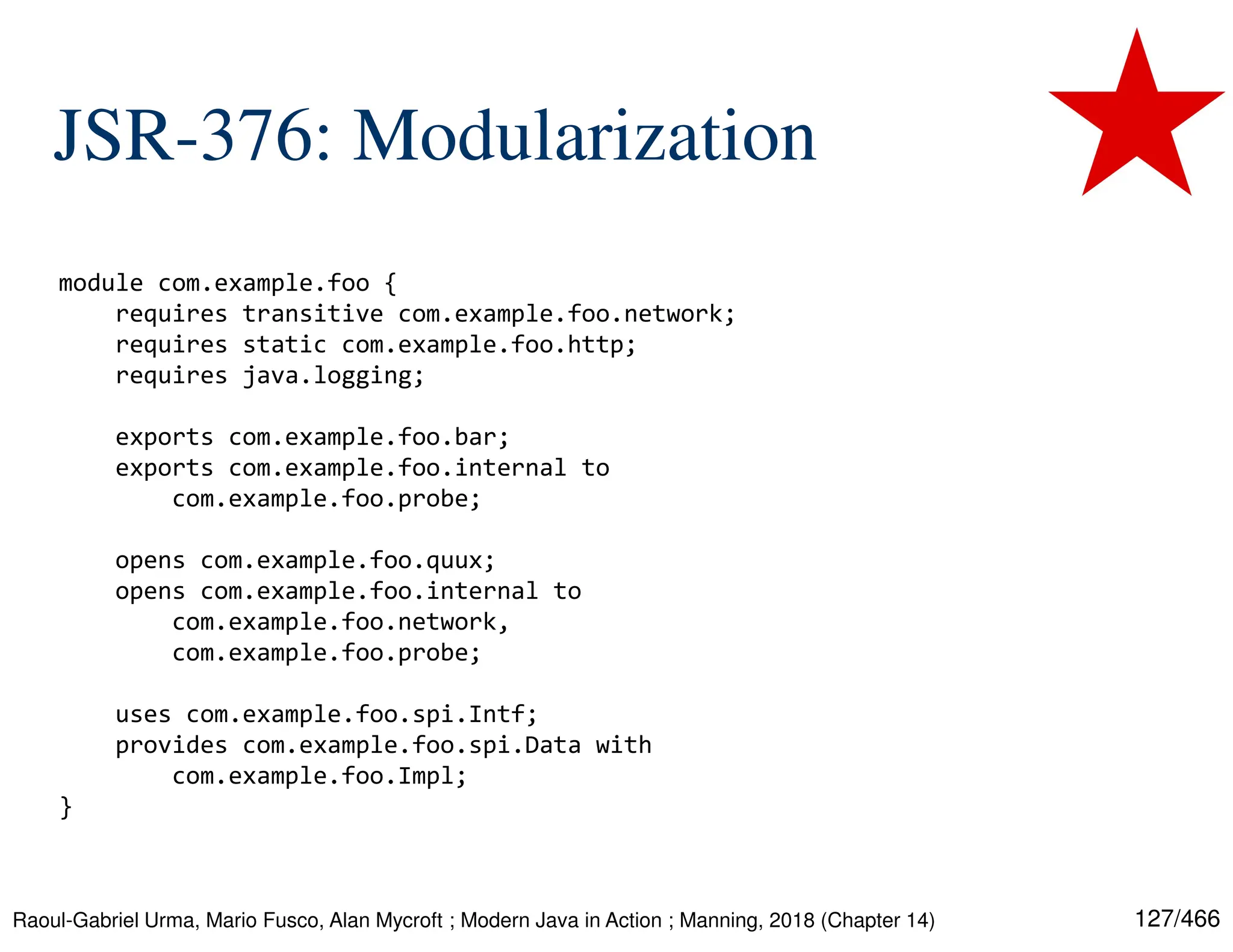
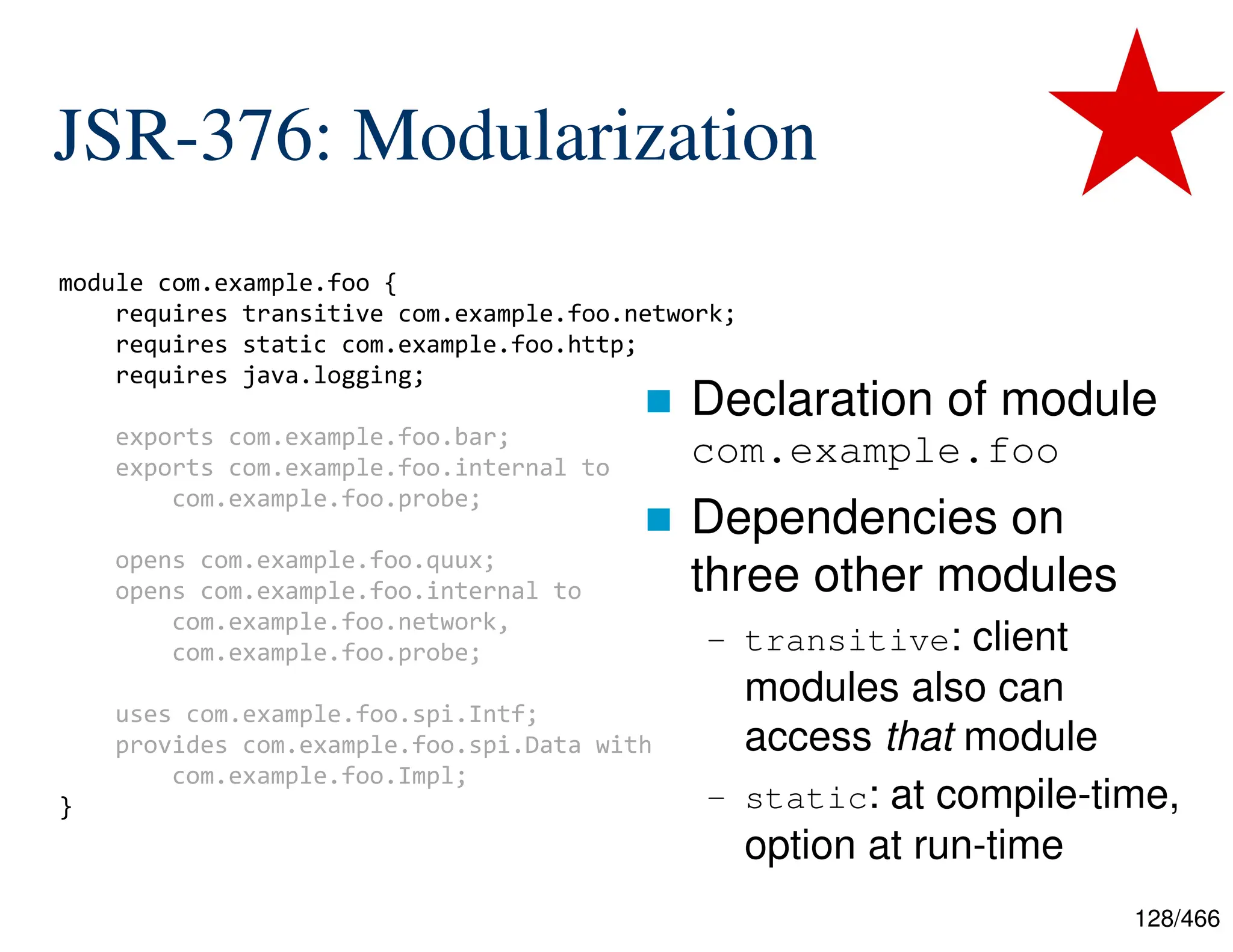
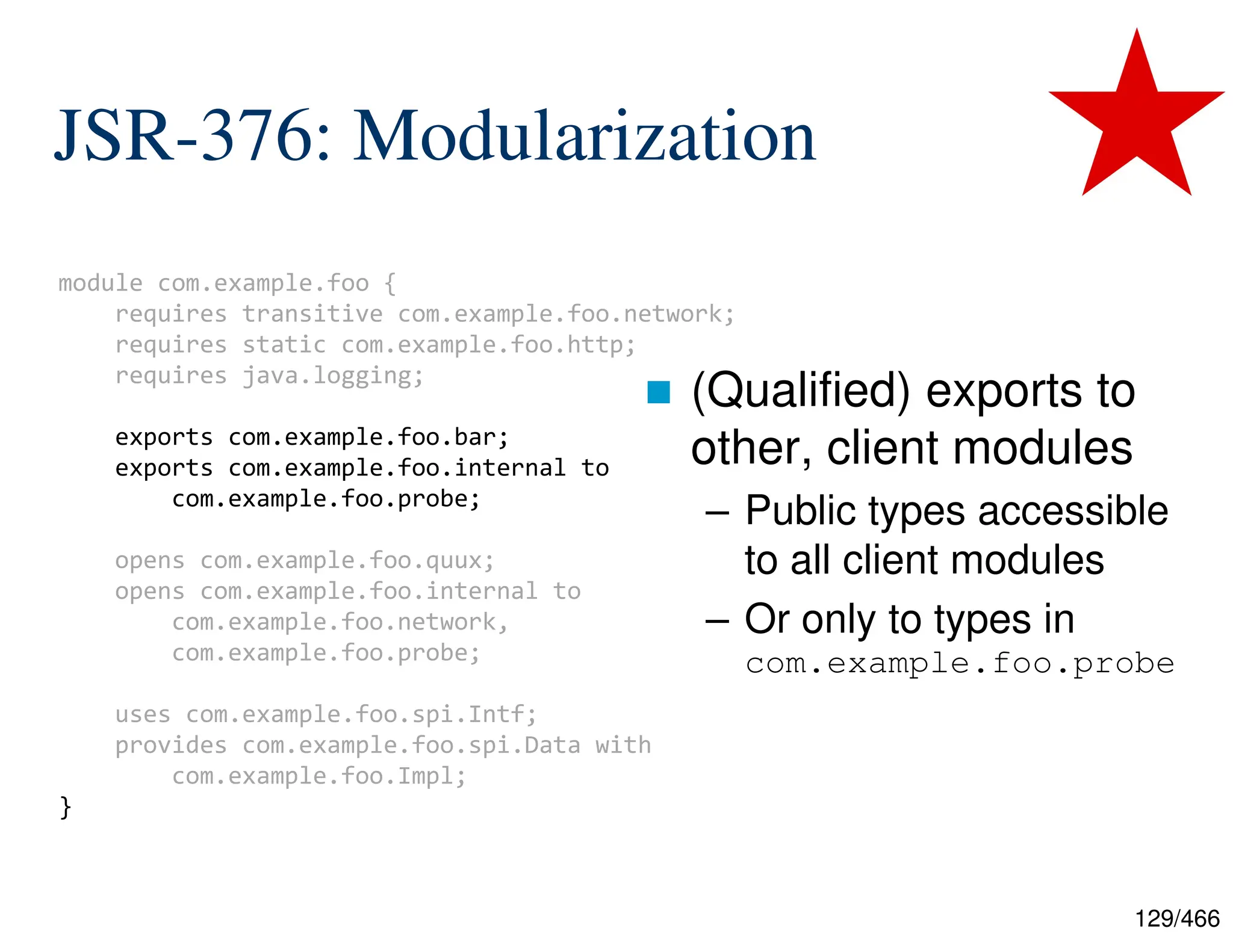
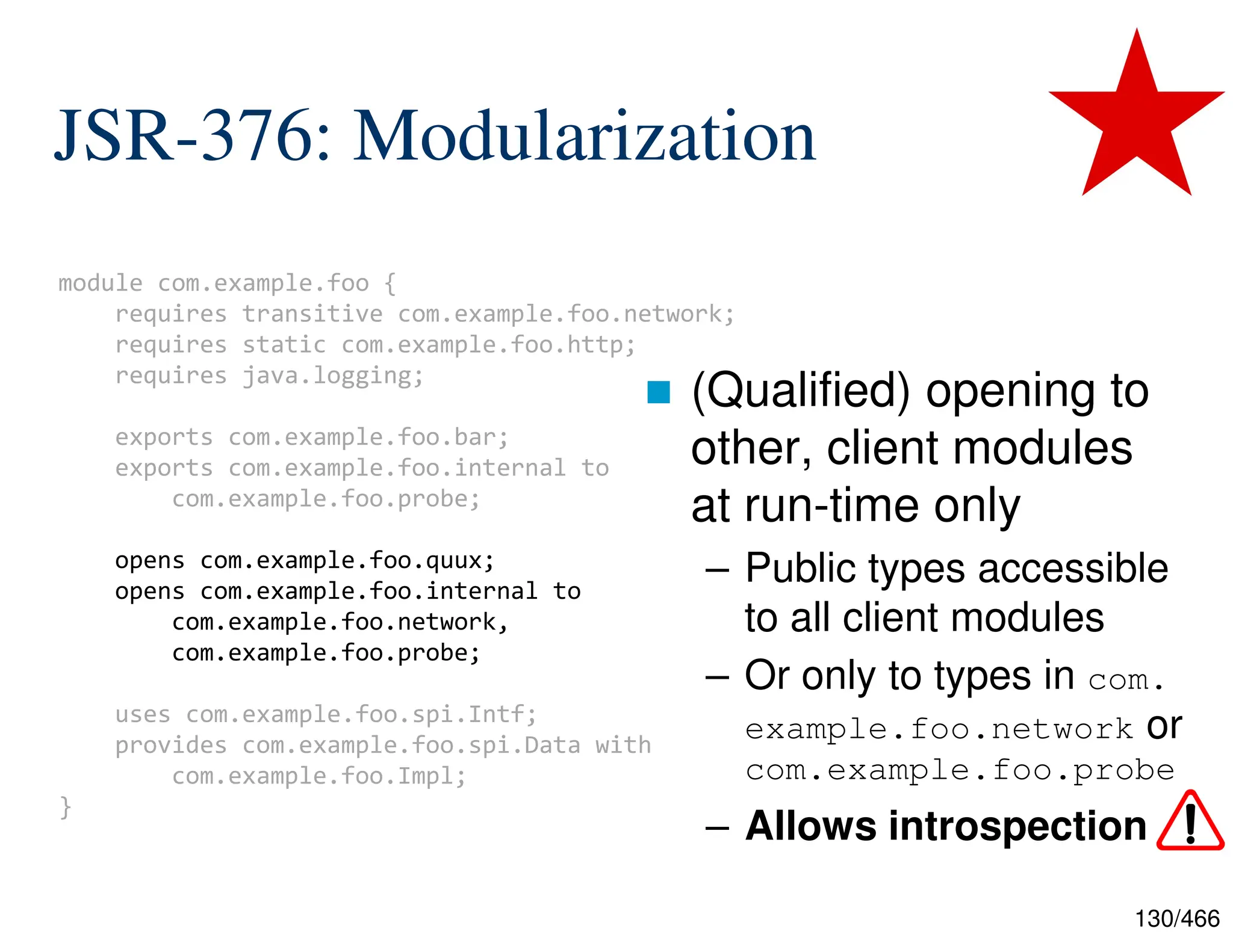
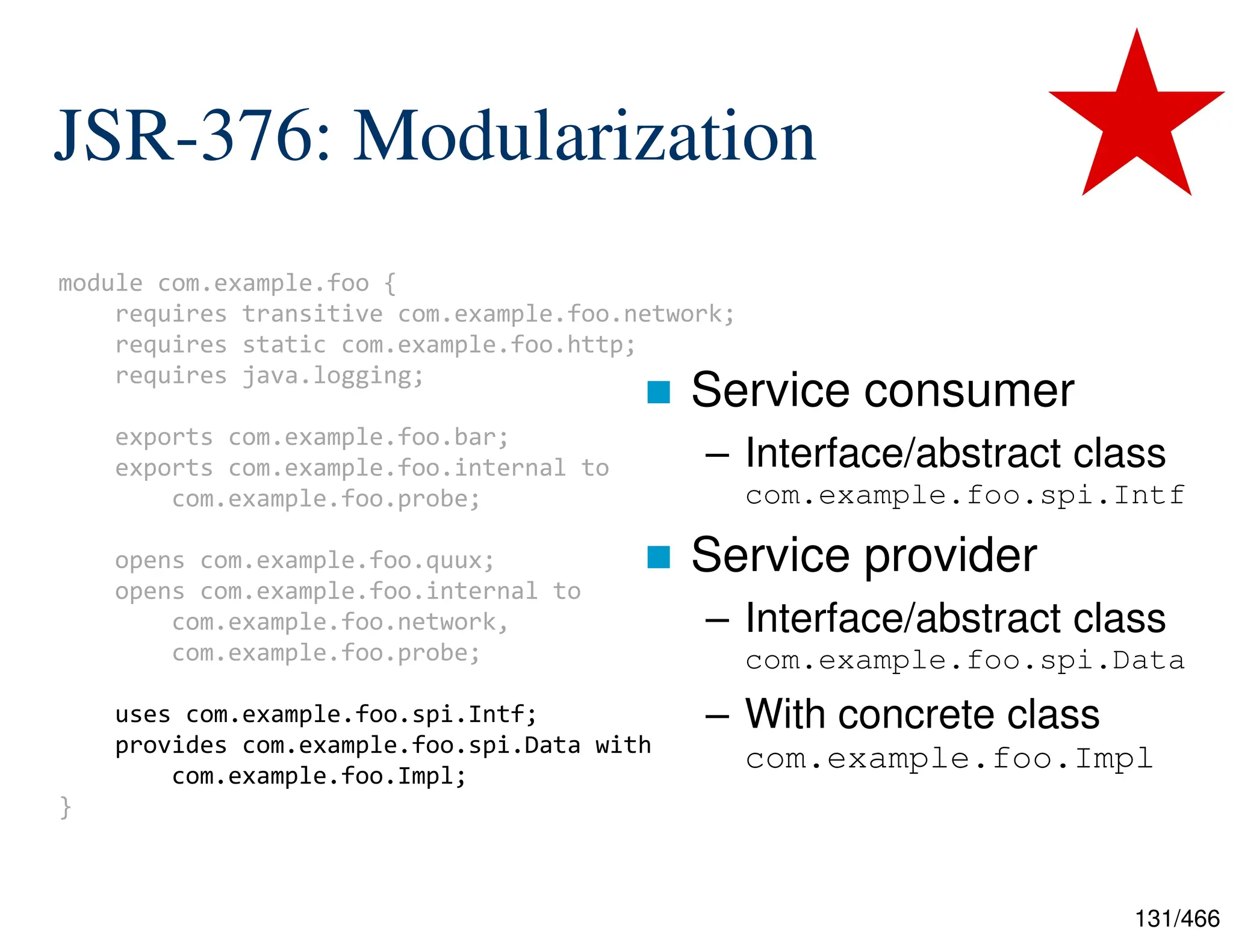
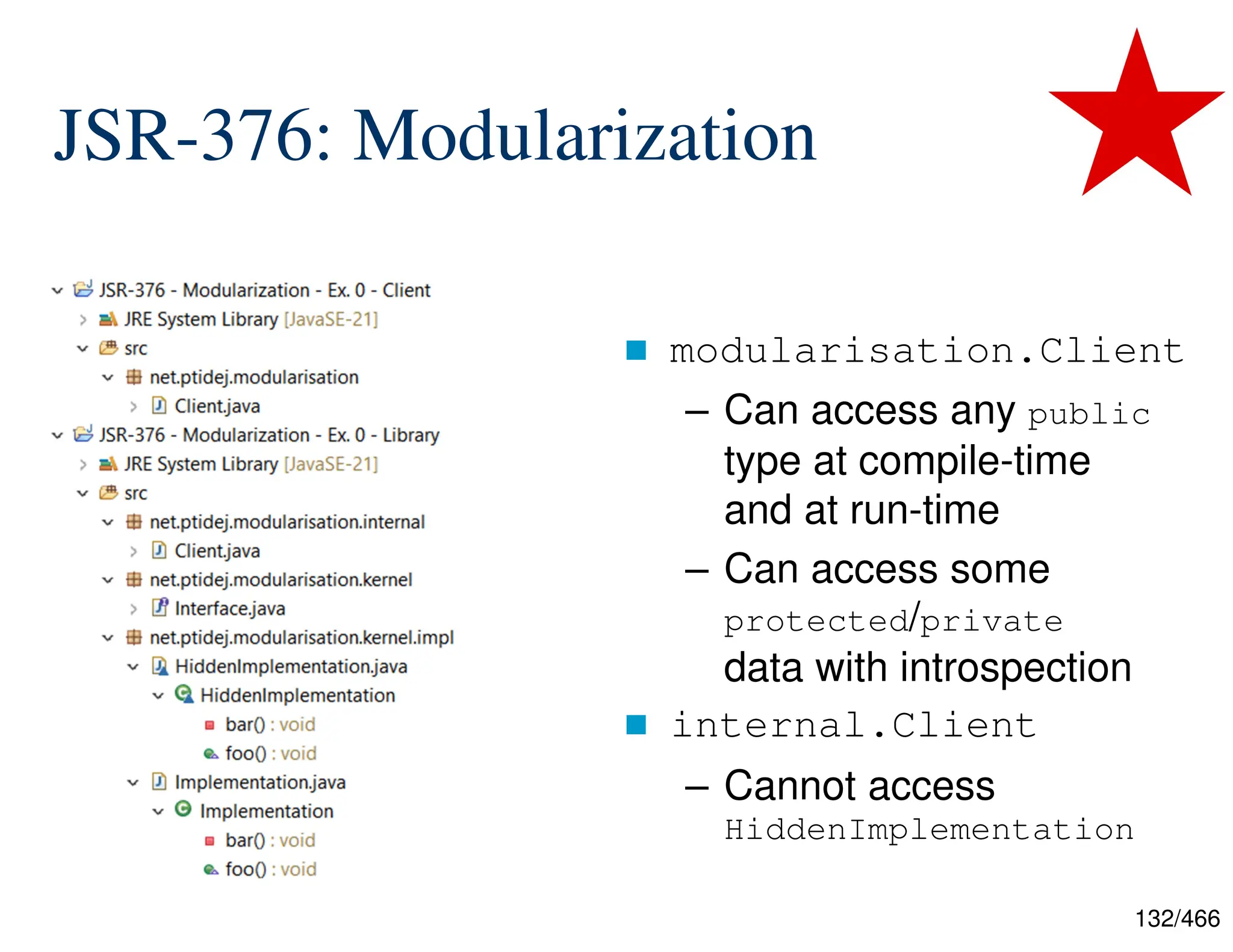
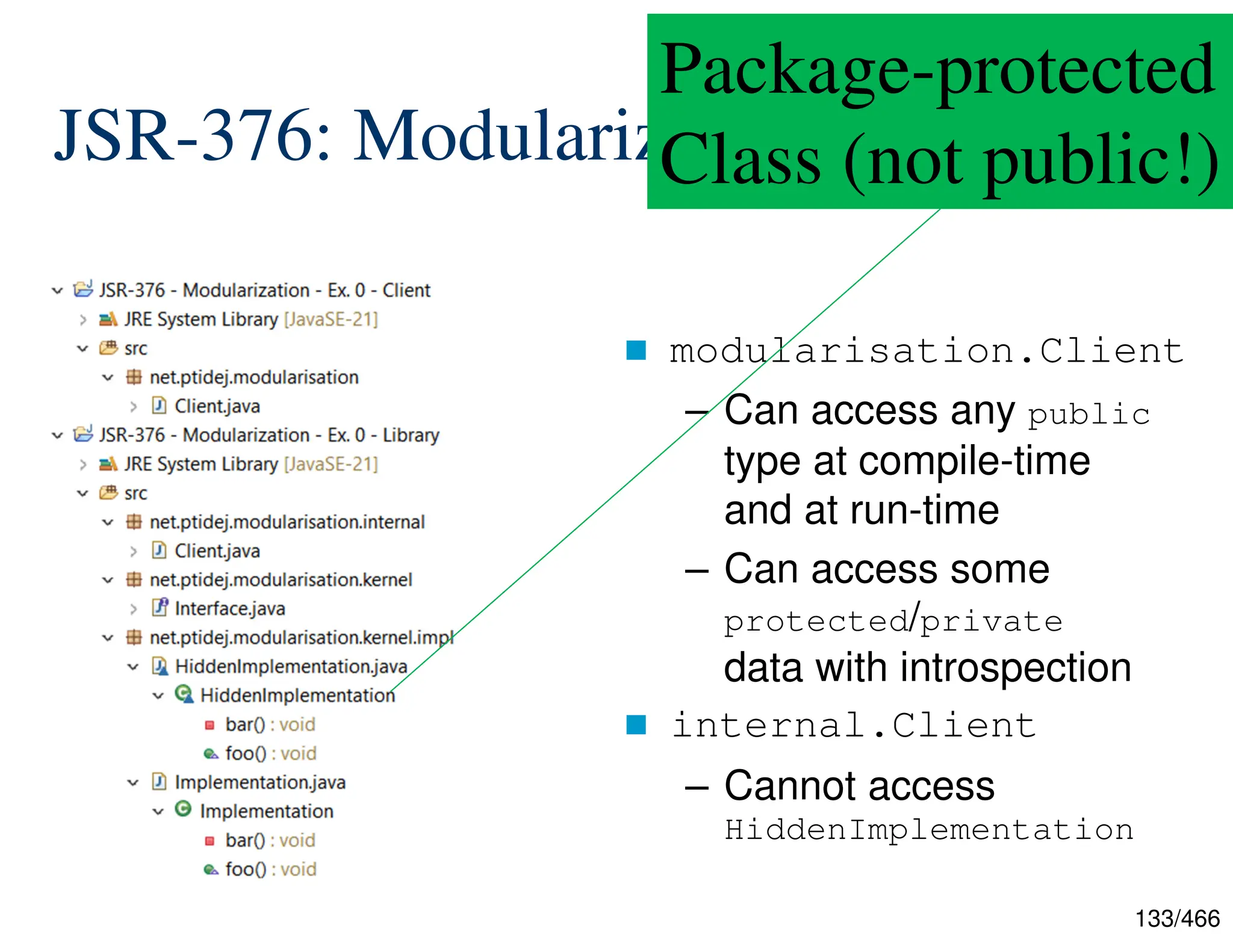
![134/466 JSR-376: Modularization final Interface aki = new Implementation(); aki.foo(); System.out.println("Call on public implementation: "); final Class<? extends Interface> implementation1 = Class .forName(“....impl.Implementation").asSubclass(Interface.class); final Interface aki1 = implementation1.getDeclaredConstructor().newInstance(); final Method[] methods1 = implementation1.getDeclaredMethods(); for (final Method method : methods1) { try { method.setAccessible(true); method.invoke(aki1, new Object[0]); } catch (final RuntimeException e) { System.out.println(e.getMessage()); } } final Class<? extends Interface> implementation2 = Class .forName(“....impl.HiddenImplementation").asSubclass(Interface.class); final Interface aki2 = implementation2.getDeclaredConstructor().newInstance(); final Method[] methods2 = implementation2.getDeclaredMethods(); for (final Method method : methods2) { // Same code](https://image.slidesharecdn.com/newjavav0-250327235127-ec555181/75/Evolution-and-Examples-of-Java-Features-from-Java-1-7-to-Java-24-134-2048.jpg)
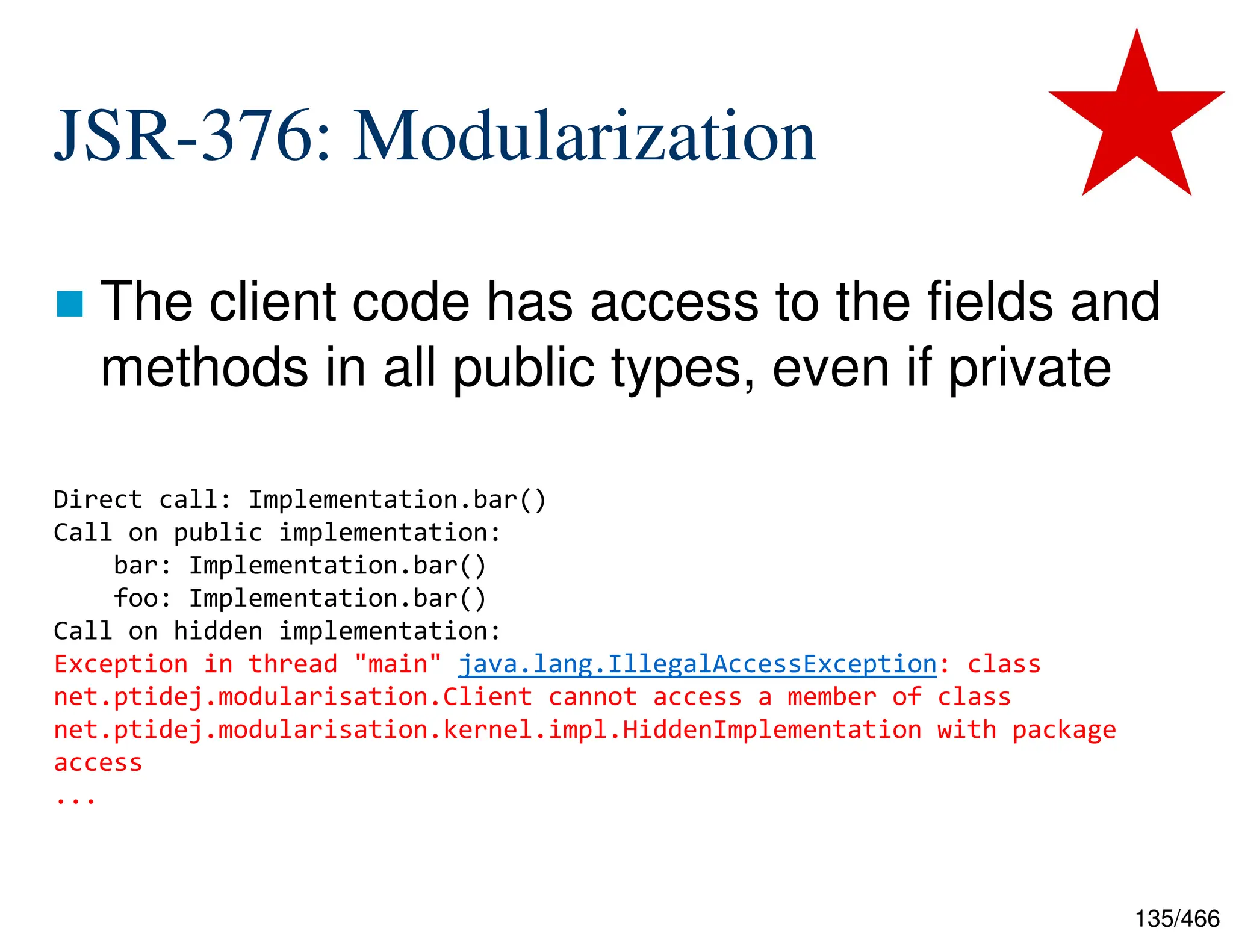
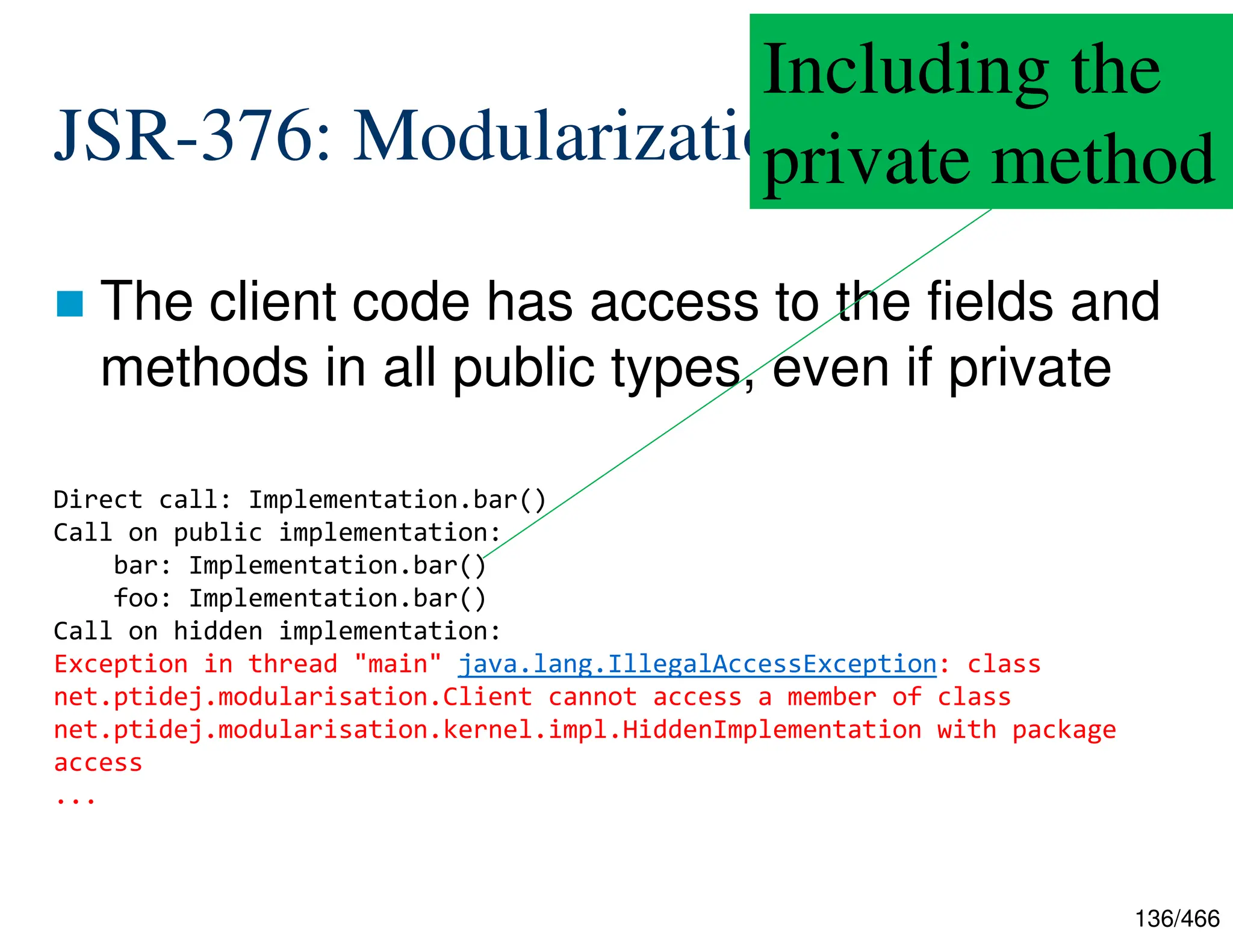
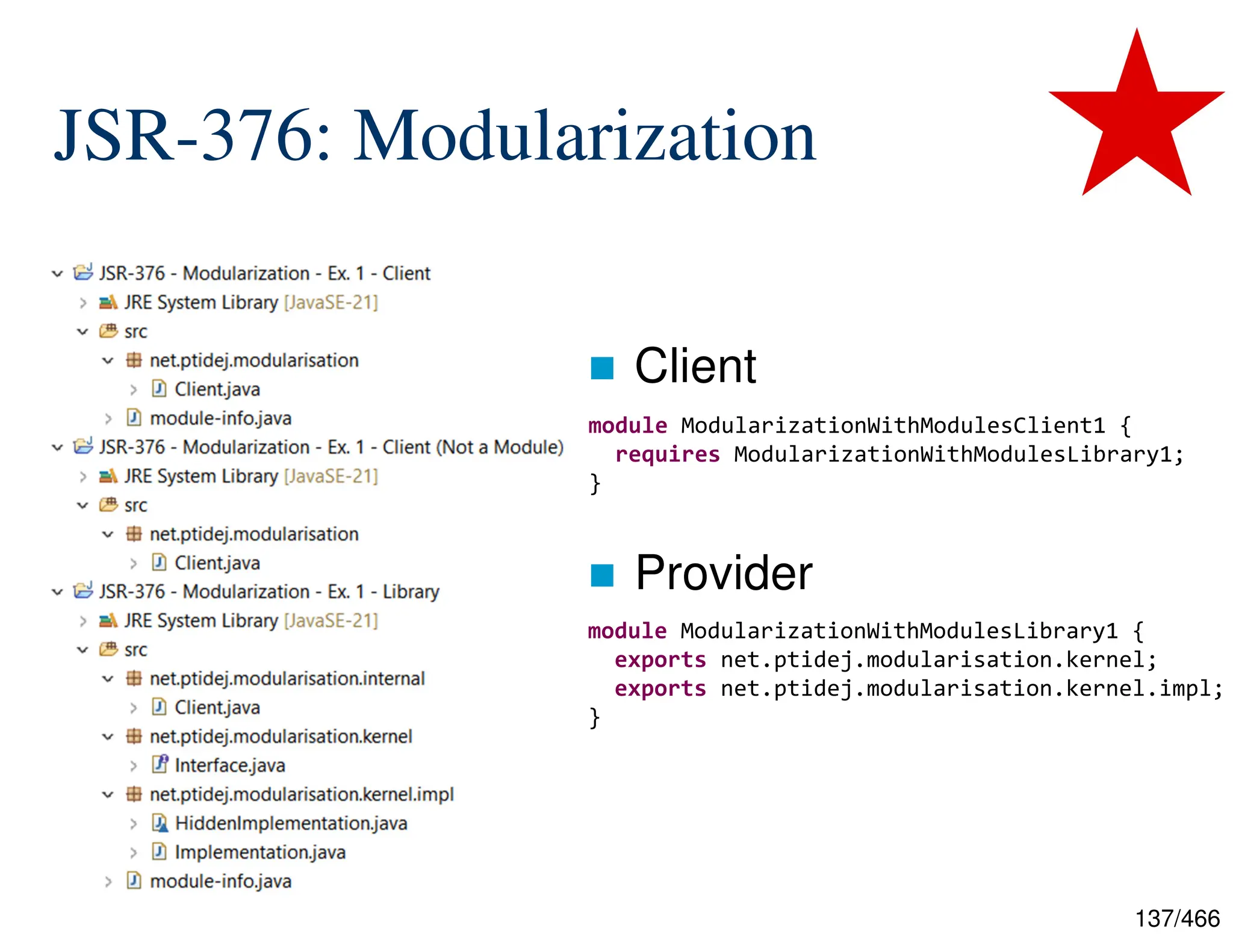
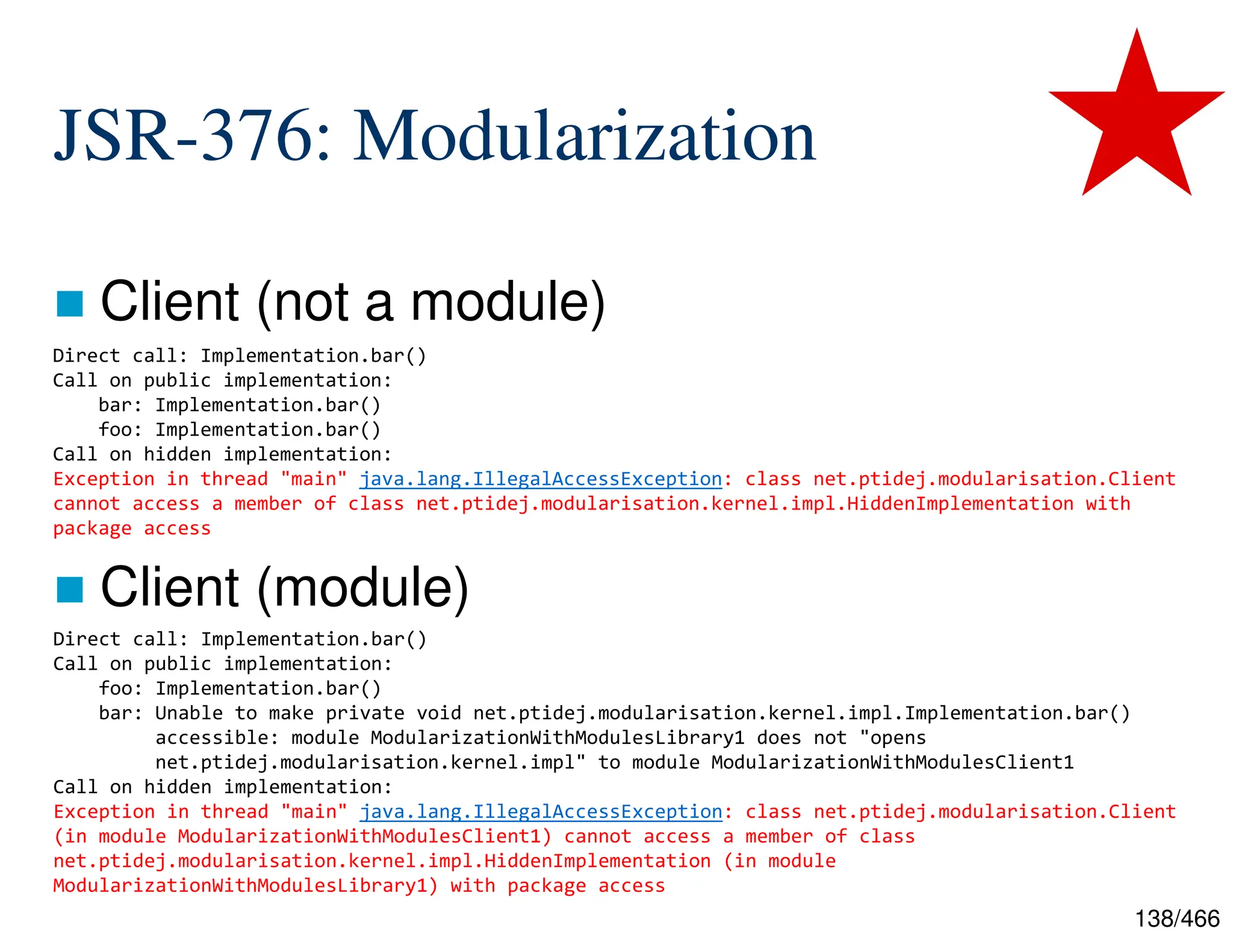
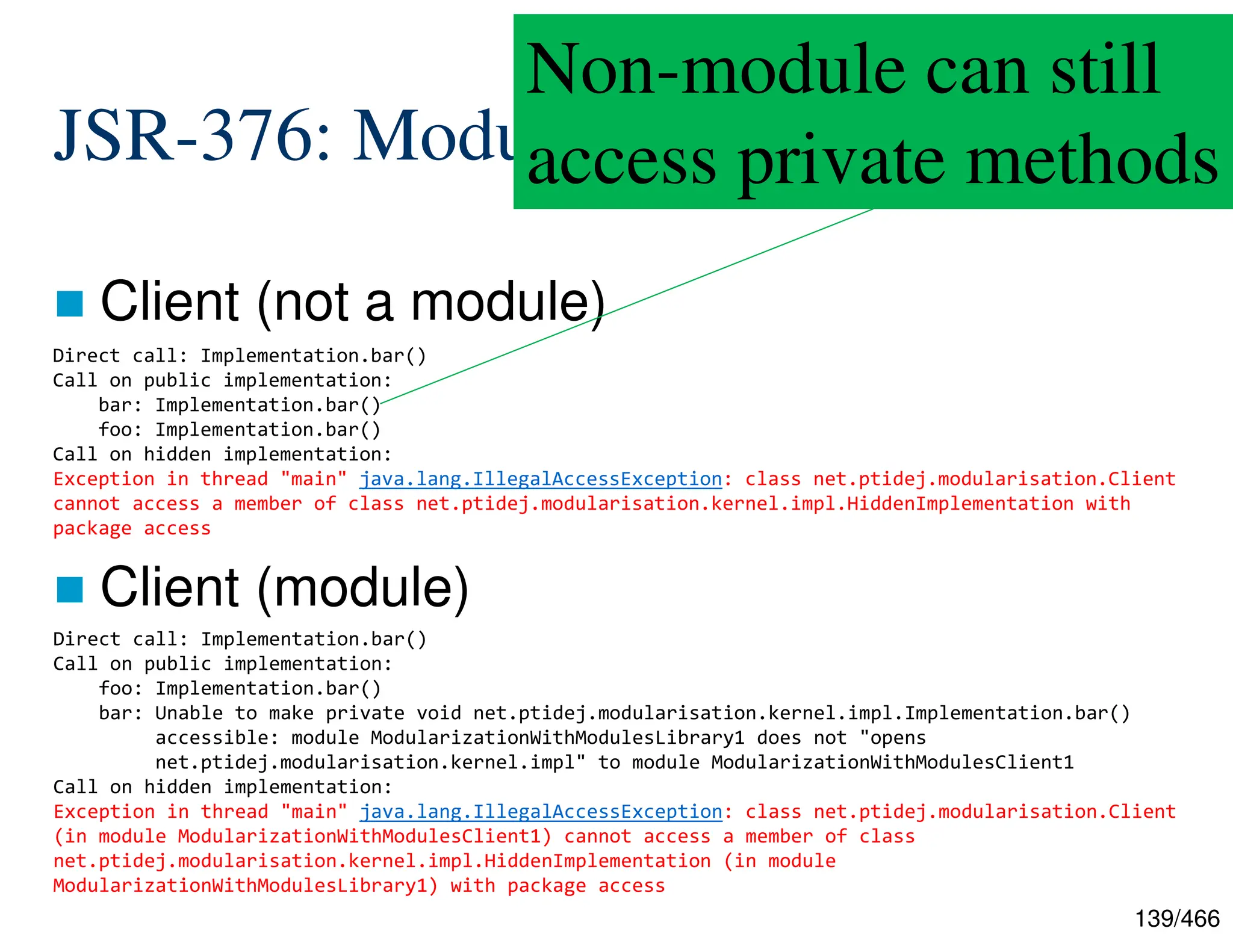
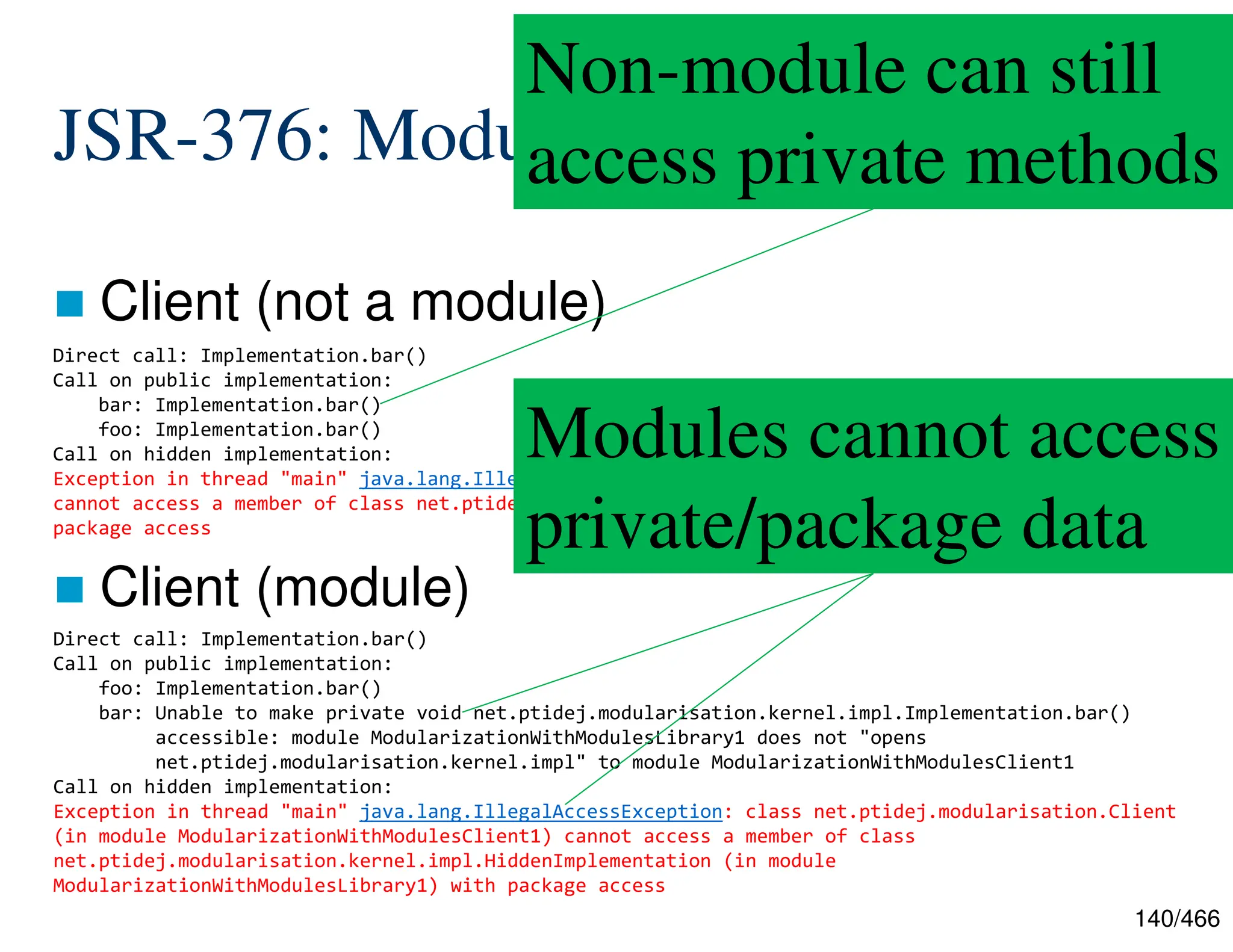
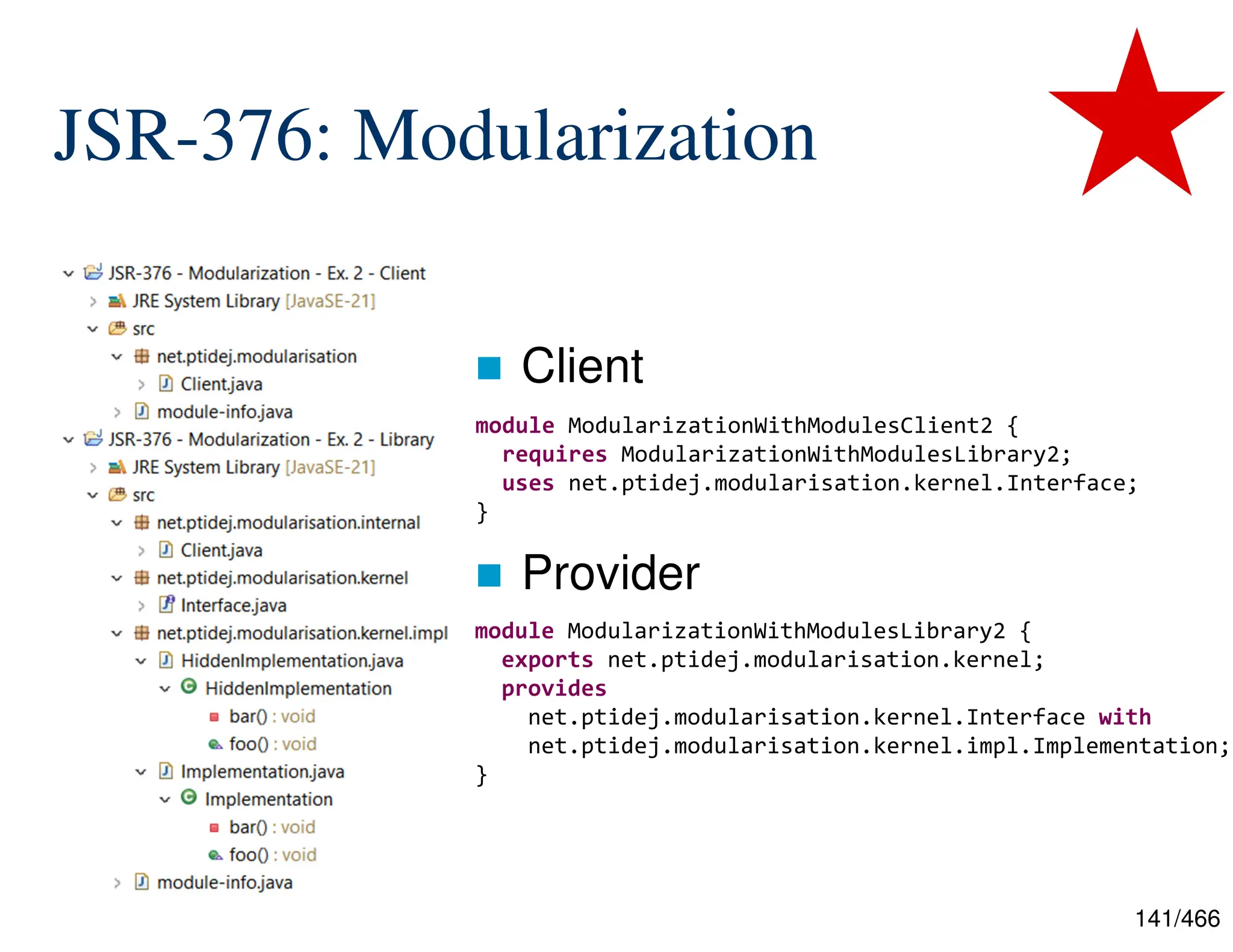
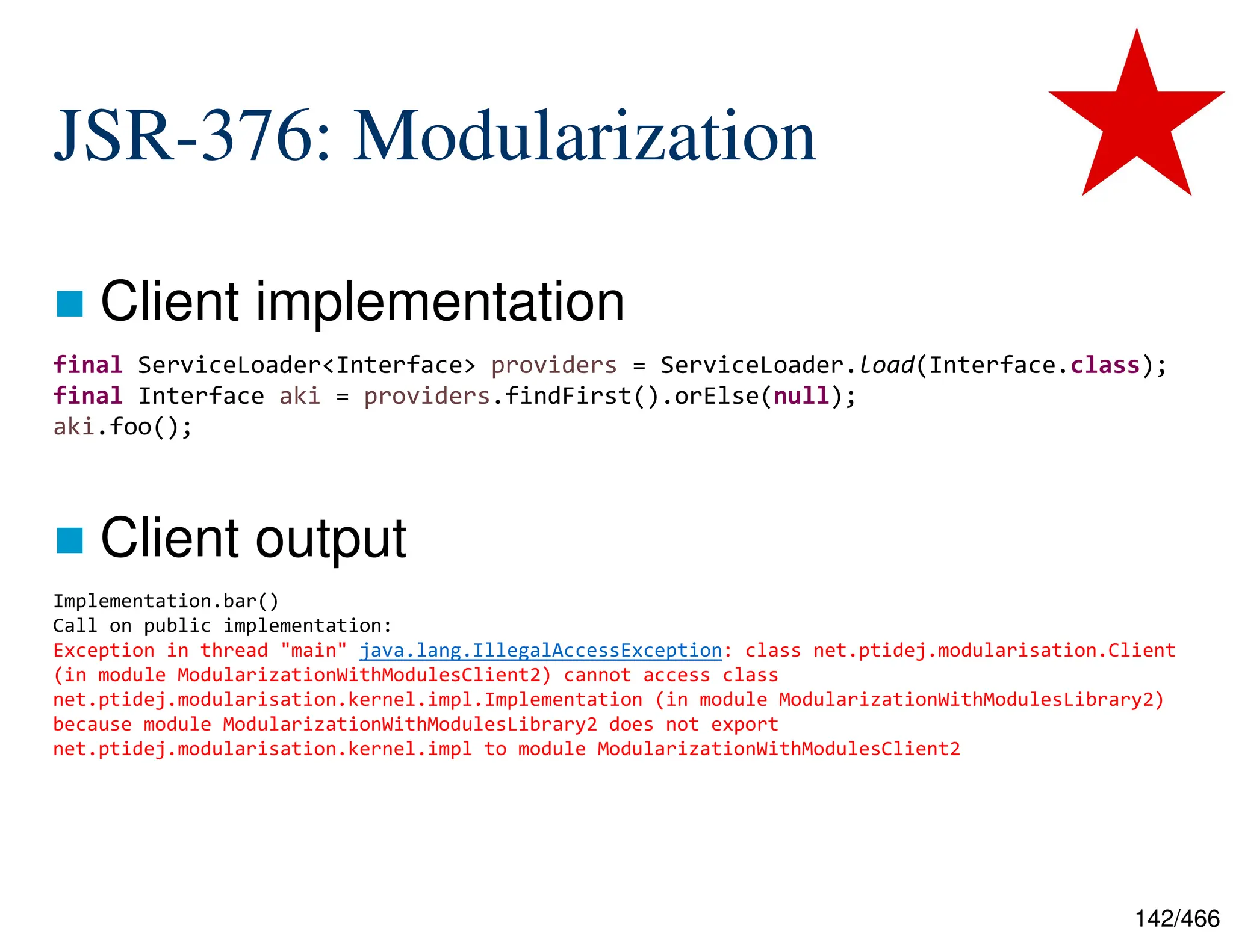
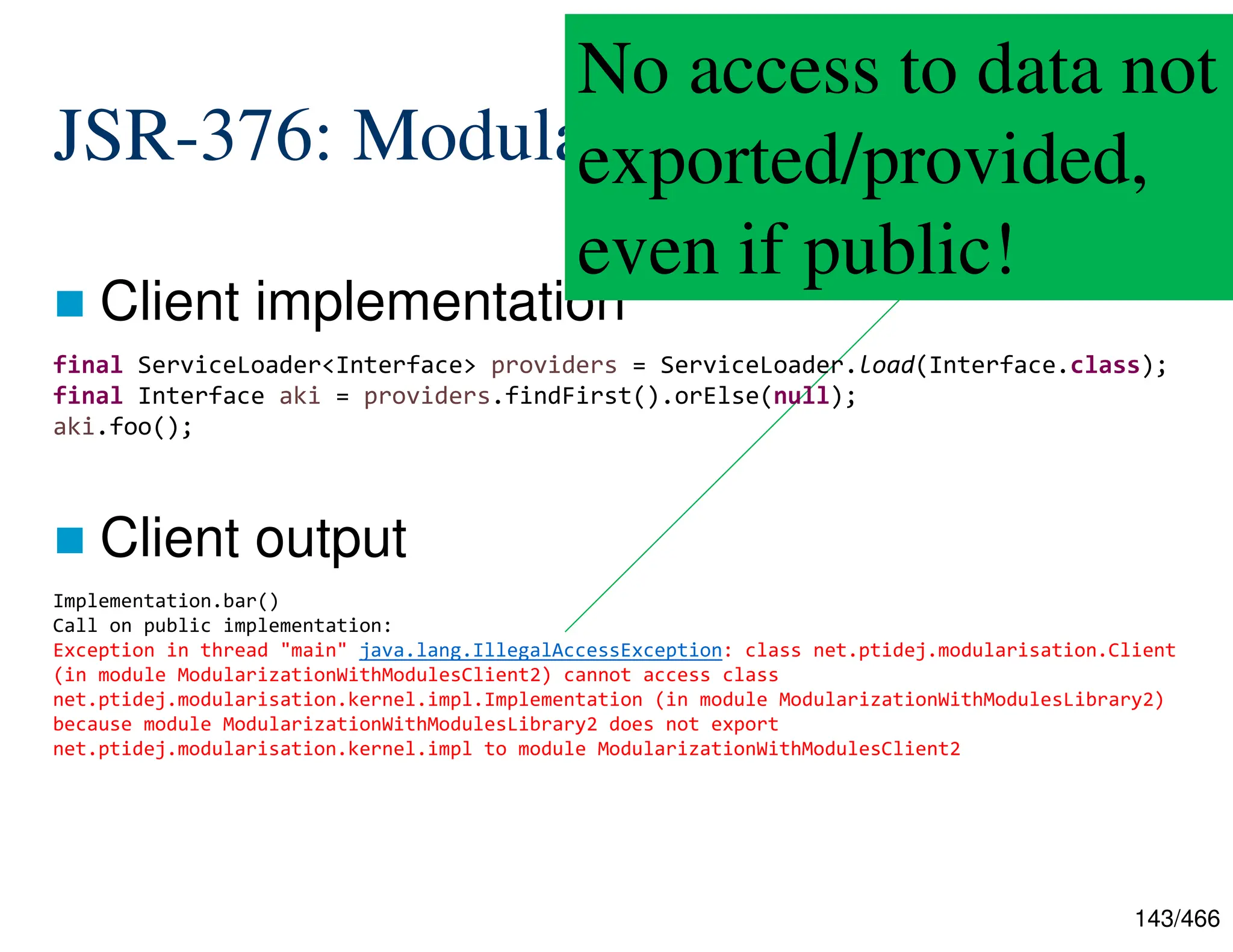
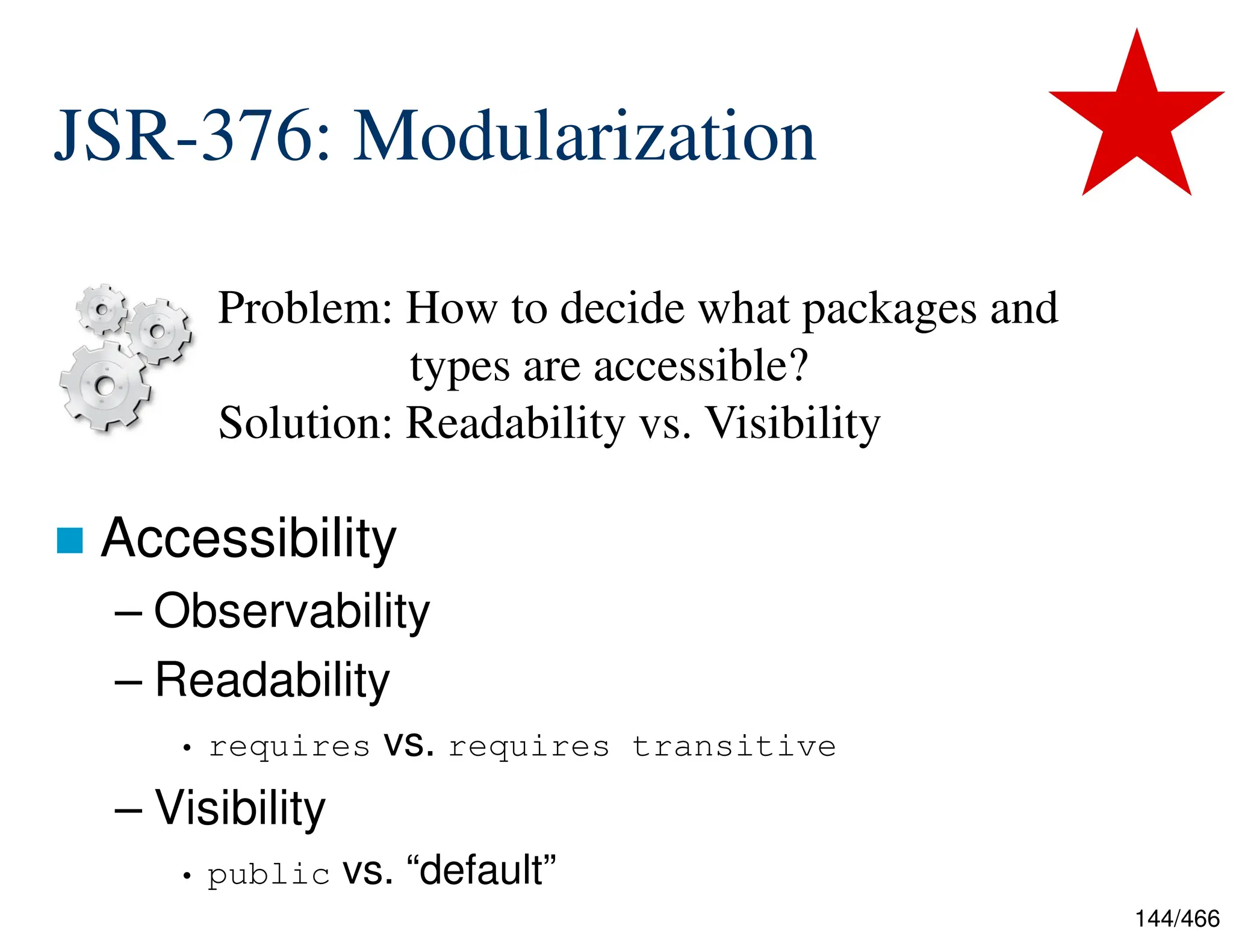
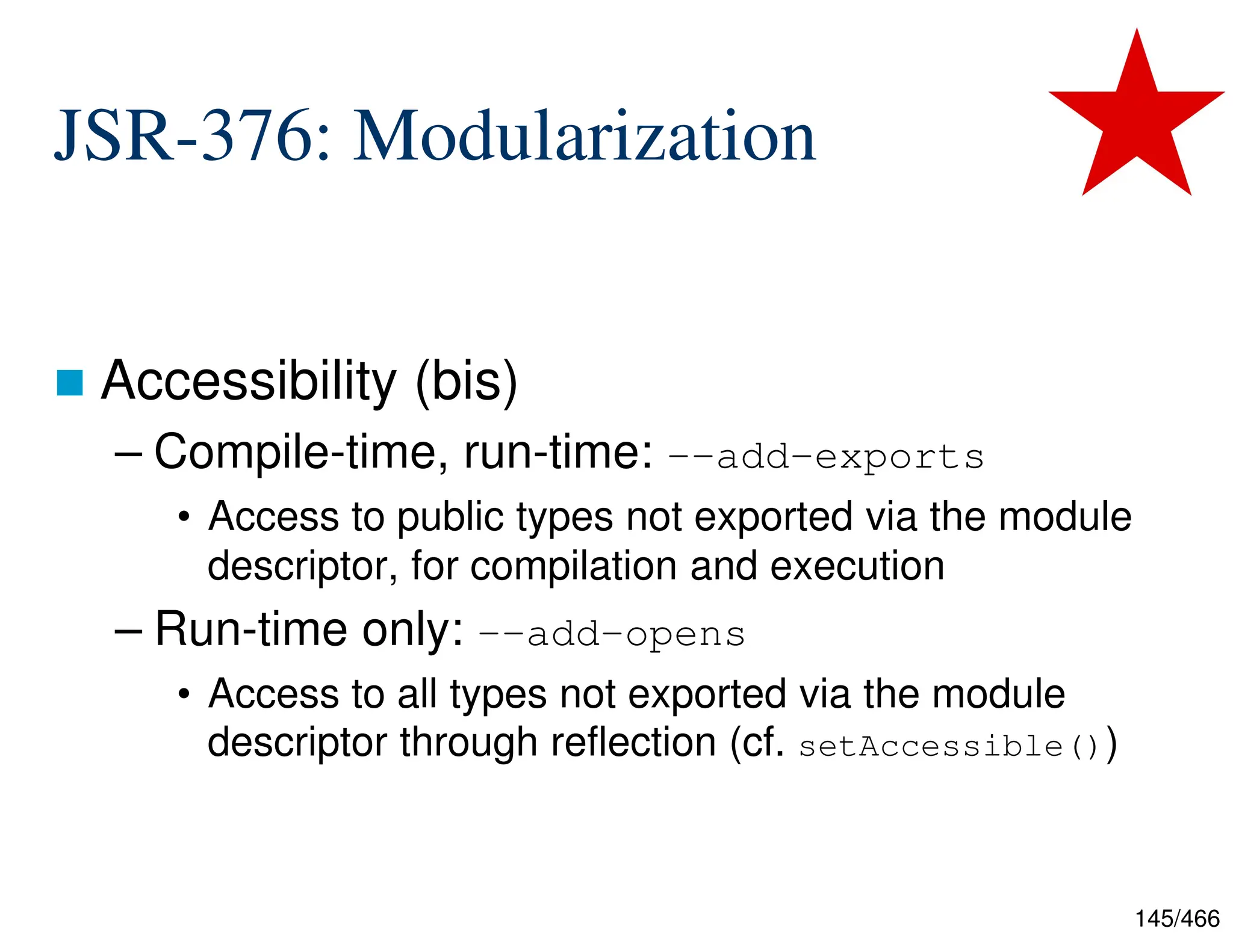
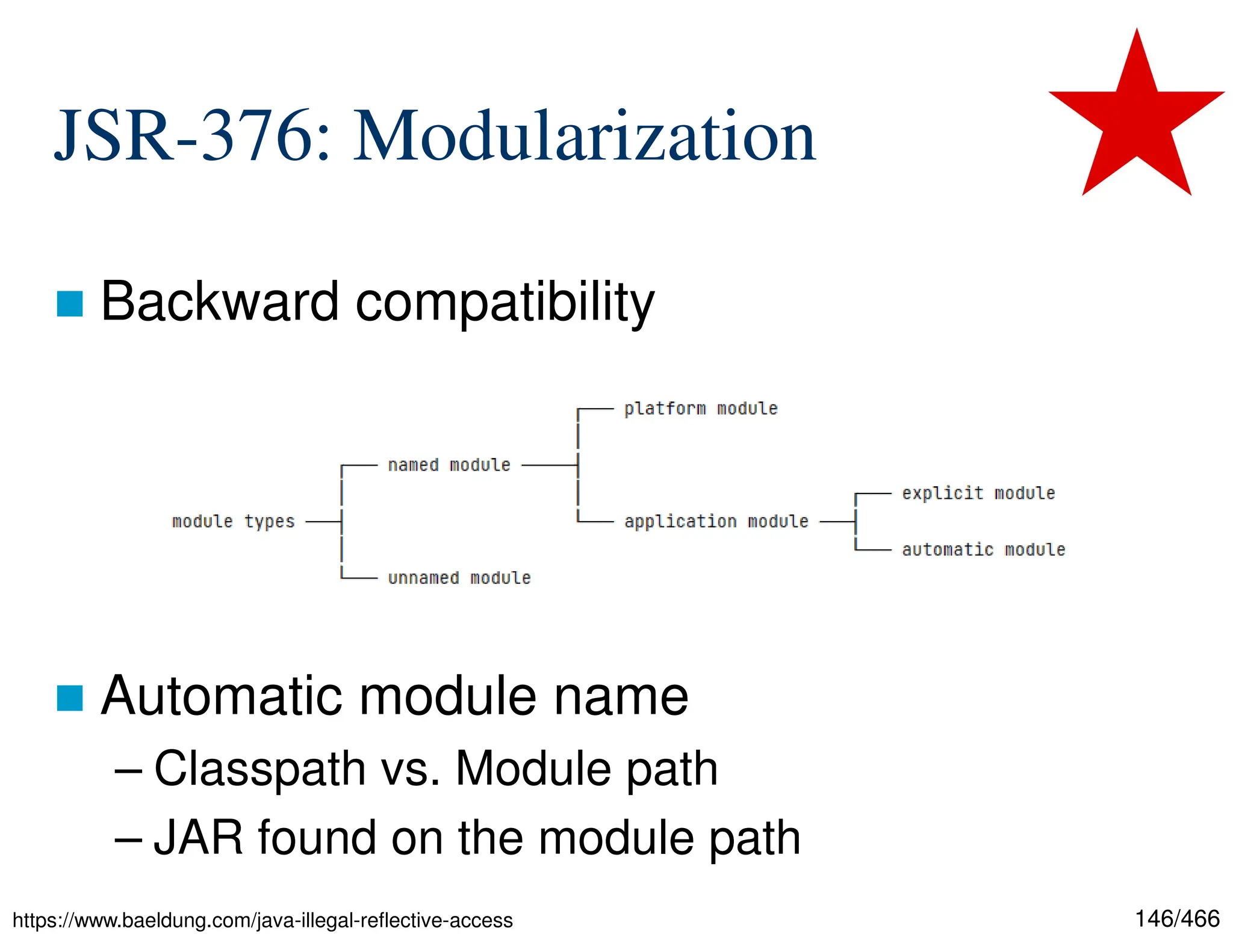
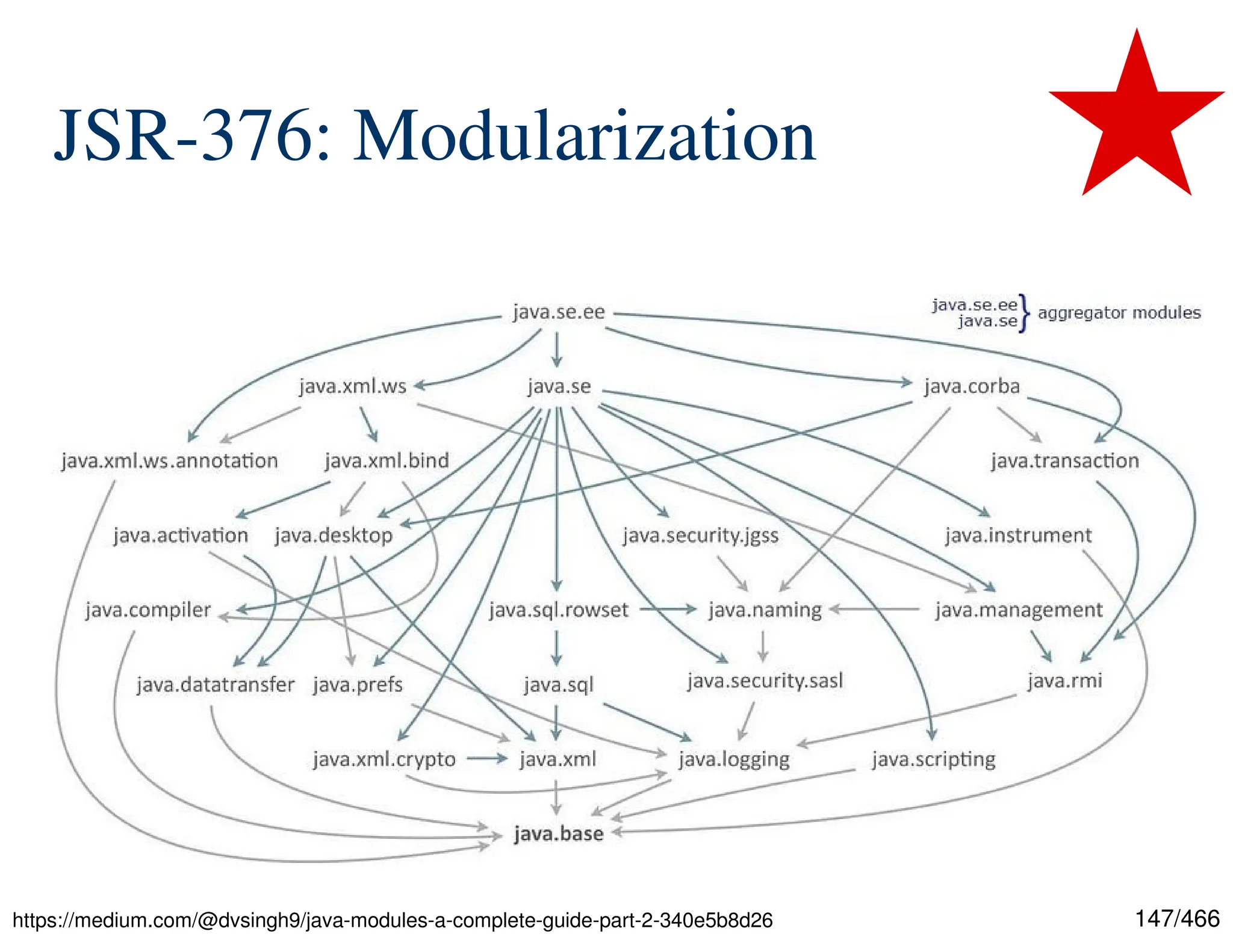
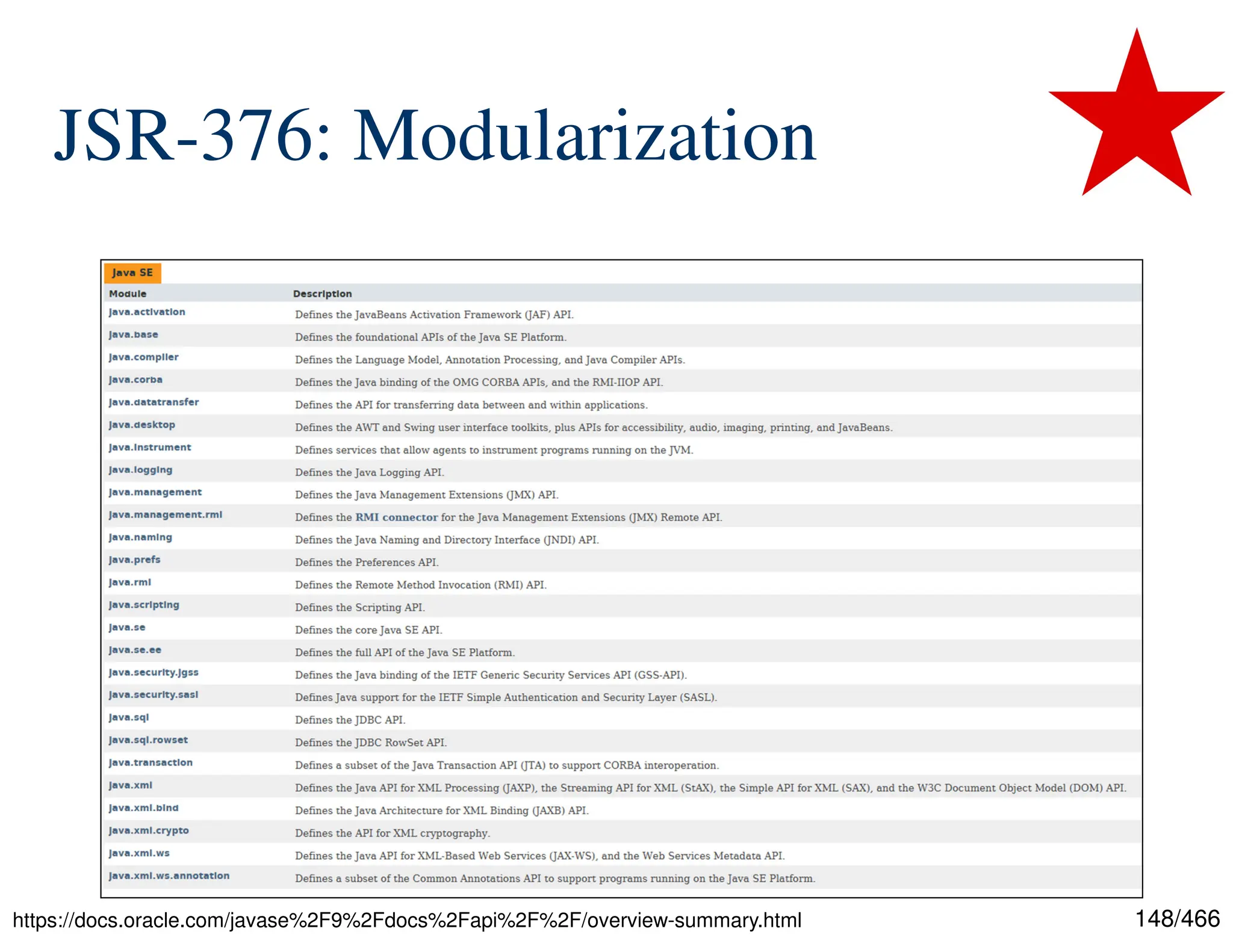
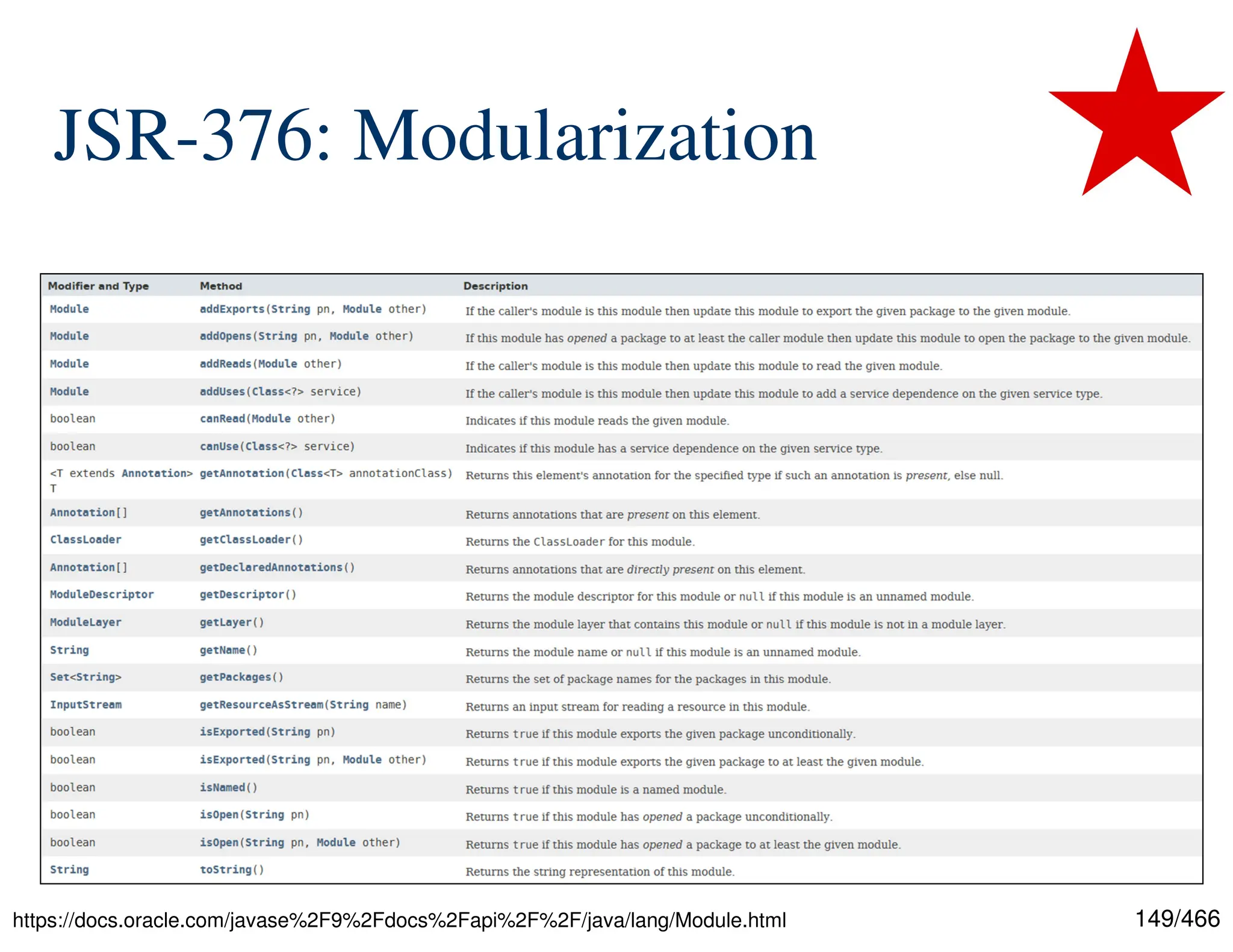
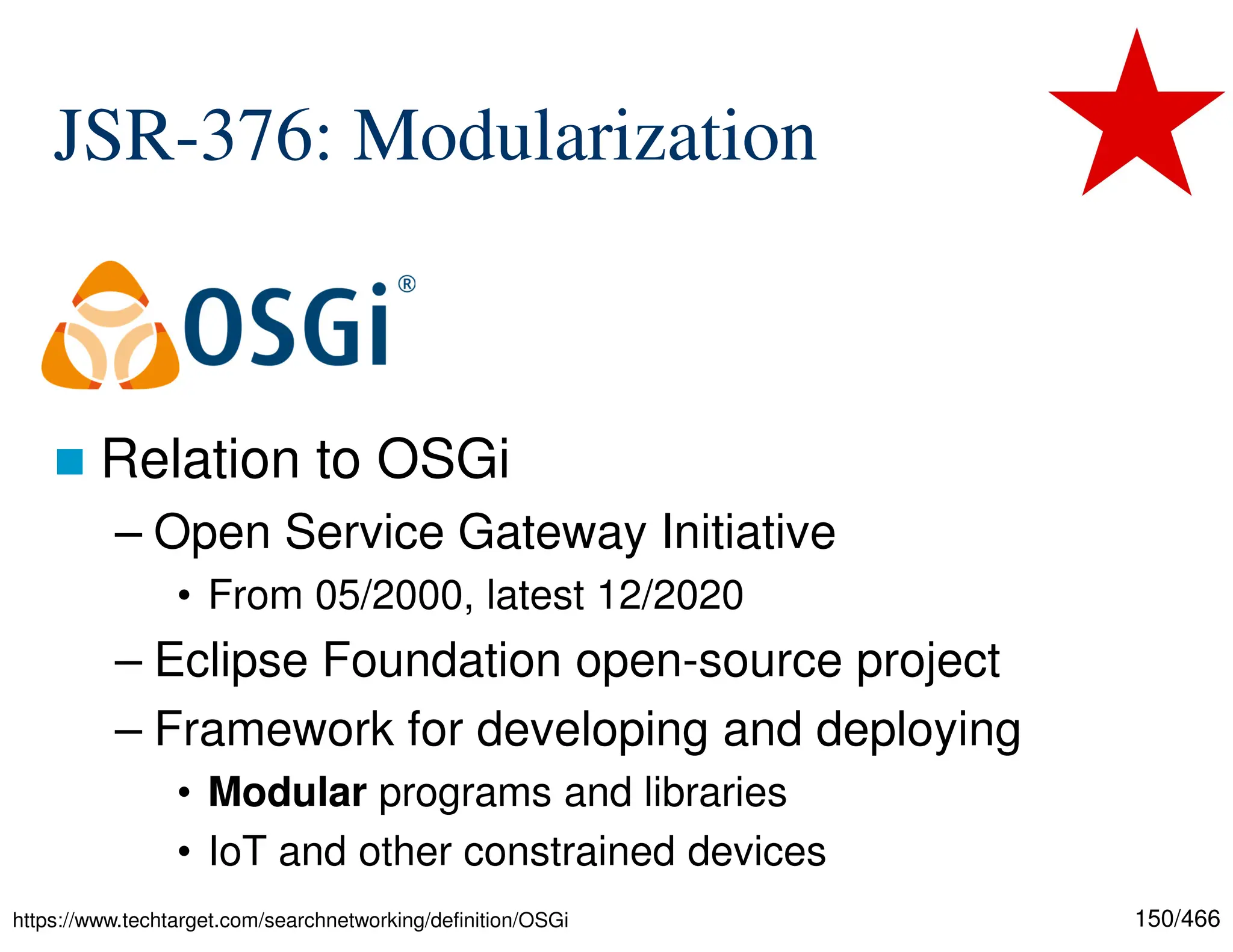
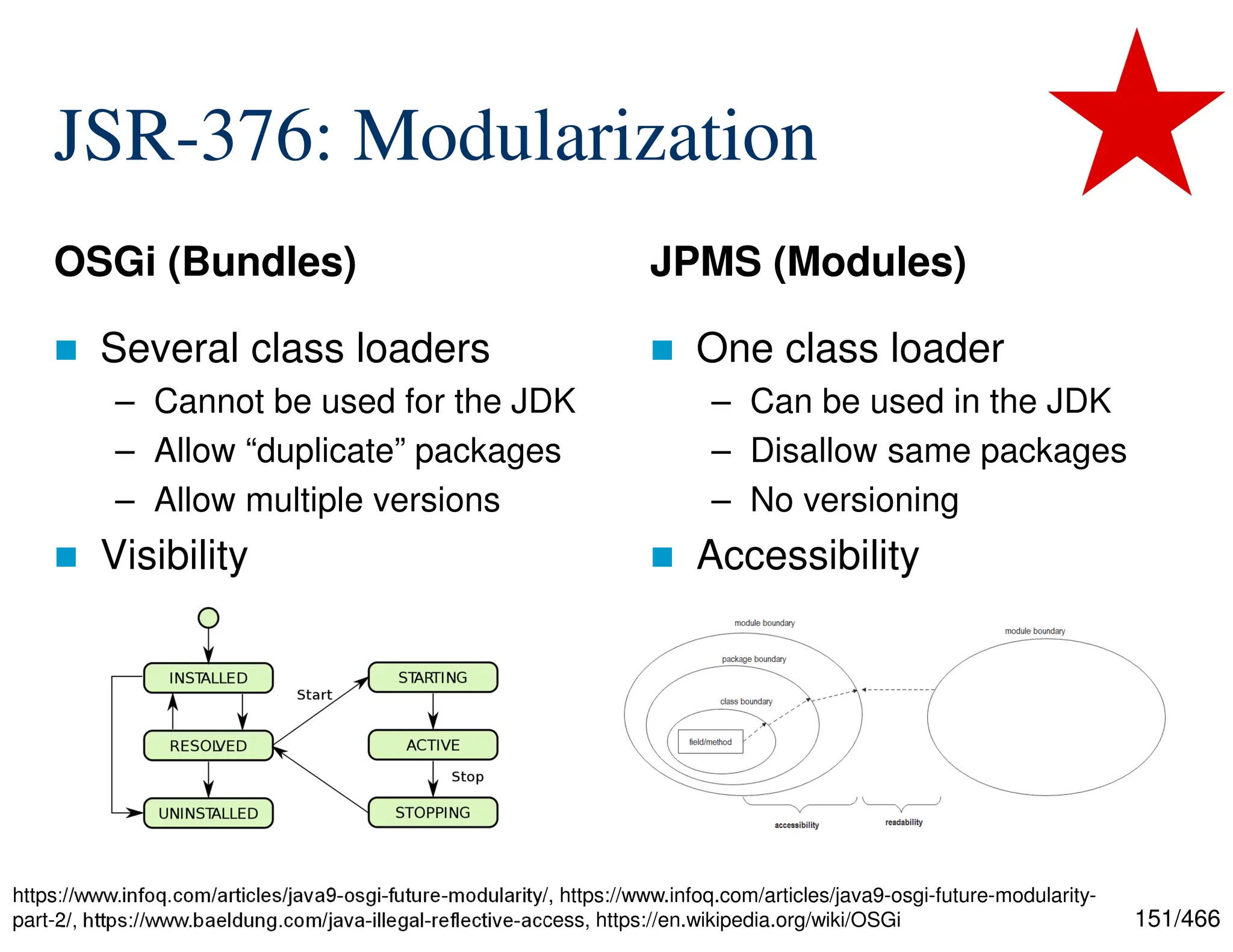
![152/466 JSR-376: Modularization OSGi (Bundles) “[B]uild dependencies and runtime dependencies can and often do differ” JPMS (Modules) “[T]he module system should […] work [same] at compile time, run time…” Export-Package: org.example.foo; version=1.0.1, org.example.bar; version=2.1.0 Import-Package: org.example.foo; version='[1,2)', org.example.bar; version='[2.0,2.1)' module A { exports org.example.foo; exports org.example.bar; } module B { require A; } https://www.infoq.com/articles/java9-osgi-future-modularity/, https://www.infoq.com/articles/java9-osgi-future-modularity- part-2/, https://www.baeldung.com/java-illegal-reflective-access, https://en.wikipedia.org/wiki/OSGi](https://image.slidesharecdn.com/newjavav0-250327235127-ec555181/75/Evolution-and-Examples-of-Java-Features-from-Java-1-7-to-Java-24-152-2048.jpg)
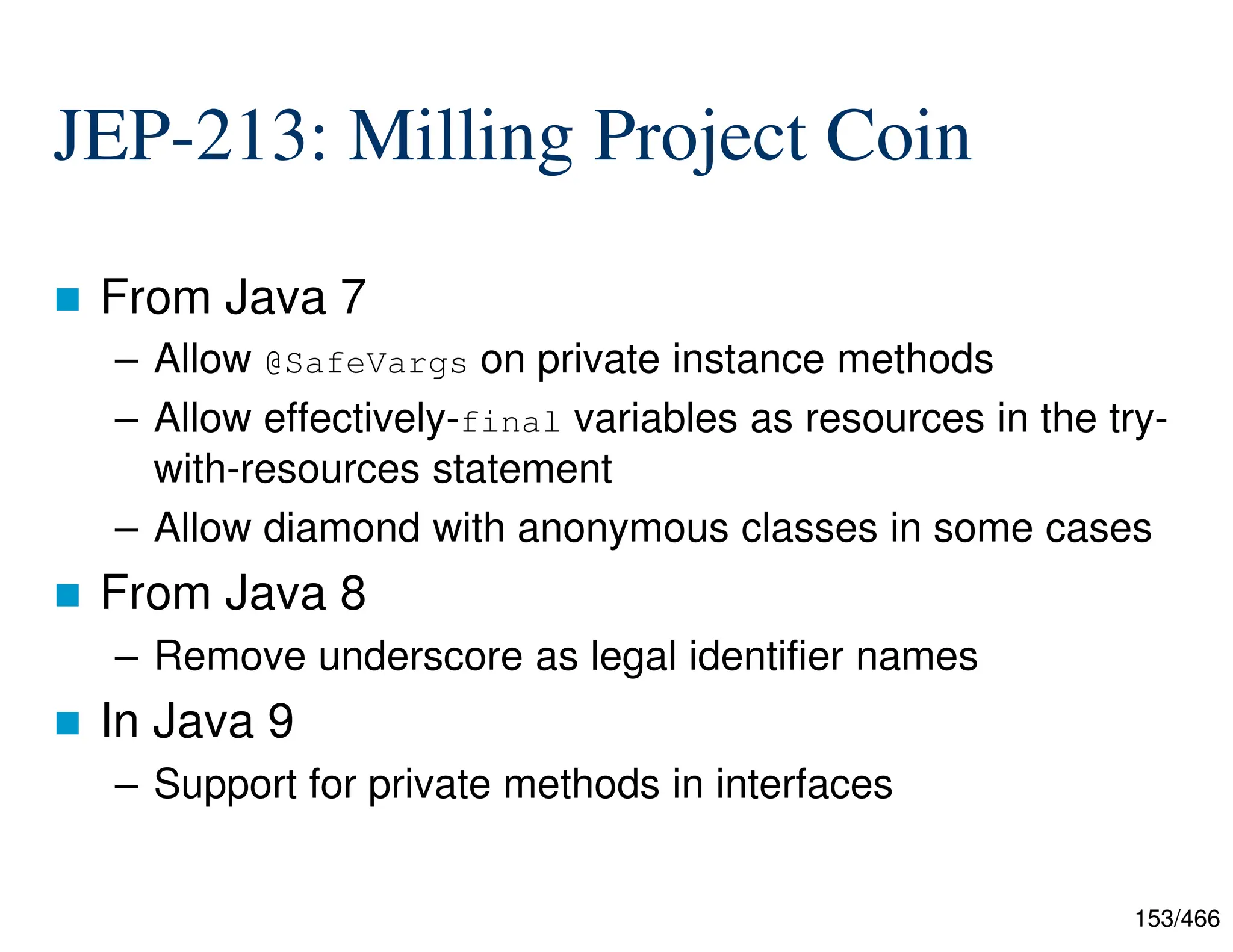

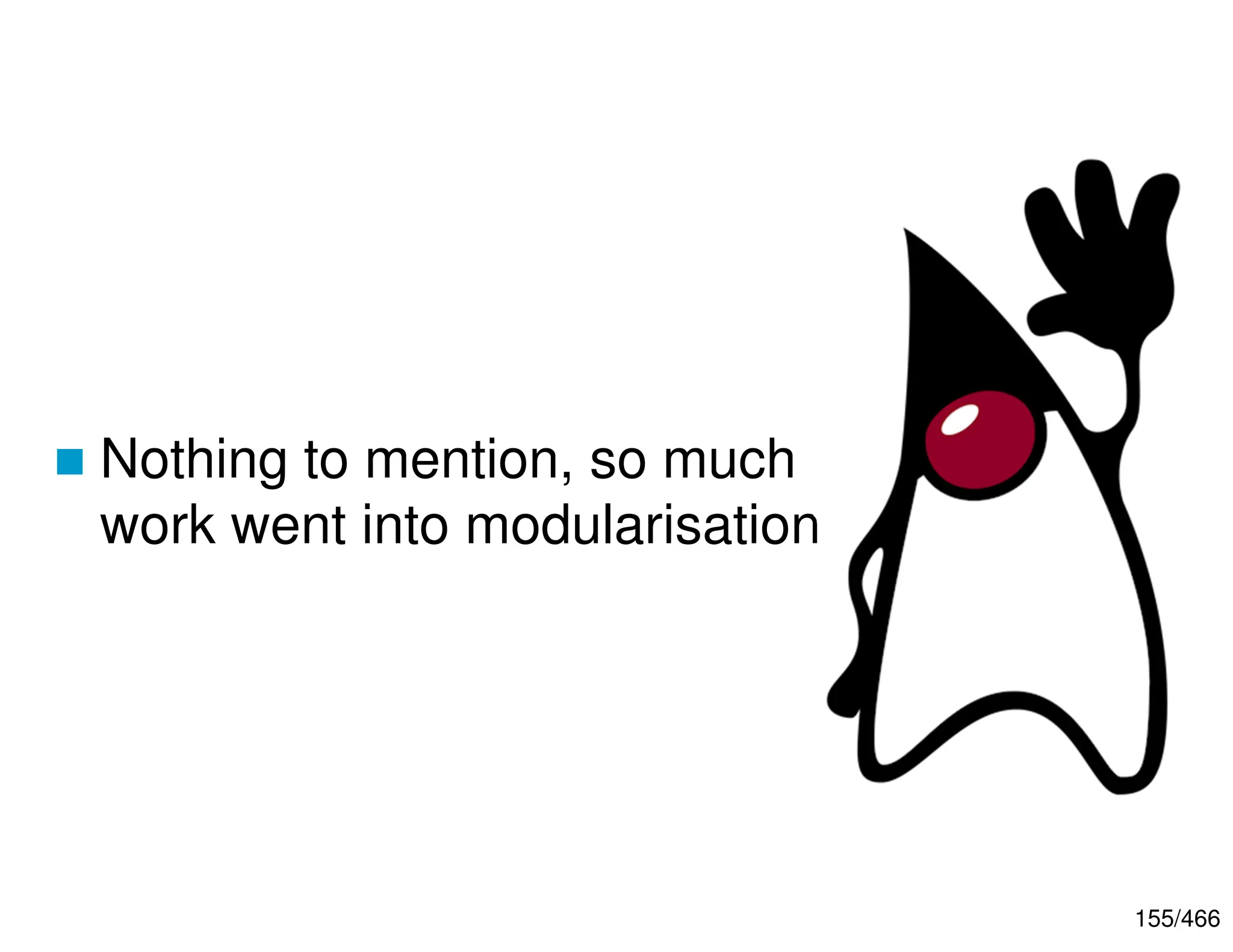

![157/466 Collection Factory Methods No null values No modification – Run-time exception public class Example1 { public static void main(final String[] args) { final List<String> list = List.of("Rick Deckard", "Roy Batty", "Harry Bryant", "Hannibal Chew", "Gaff", "Holden", "Leon Kowalski", "Taffey Lewis", "Pris", "Rachael", "J.F. Sebastian", "Dr. Eldon Tyrell", "Zhora", "Hodge", "Mary"); System.out.println(list); list.add("Paul Atreides"); } }](https://image.slidesharecdn.com/newjavav0-250327235127-ec555181/75/Evolution-and-Examples-of-Java-Features-from-Java-1-7-to-Java-24-157-2048.jpg)
![158/466 Collection Factory Methods No null values No modification – Run-time exception public class Example1 { public static void main(final String[] args) { final List<String> list = List.of("Rick Deckard", "Roy Batty", "Harry Bryant", "Hannibal Chew", "Gaff", "Holden", "Leon Kowalski", "Taffey Lewis", "Pris", "Rachael", "J.F. Sebastian", "Dr. Eldon Tyrell", "Zhora", "Hodge", "Mary"); System.out.println(list); list.add("Paul Atreides"); } } [Rick Deckard, Roy Batty, Harry Bryant, [...] Tyrell, Zhora, Hodge, Mary] Exception in thread "main" java.lang.UnsupportedOperationException at java.base/java.util.ImmutableCollections.uoe(ImmutableCollections.java:142) at [...] at net.ptidej.newjava.collectionfactories.Example1.main(Example1.java:11)](https://image.slidesharecdn.com/newjavav0-250327235127-ec555181/75/Evolution-and-Examples-of-Java-Features-from-Java-1-7-to-Java-24-158-2048.jpg)
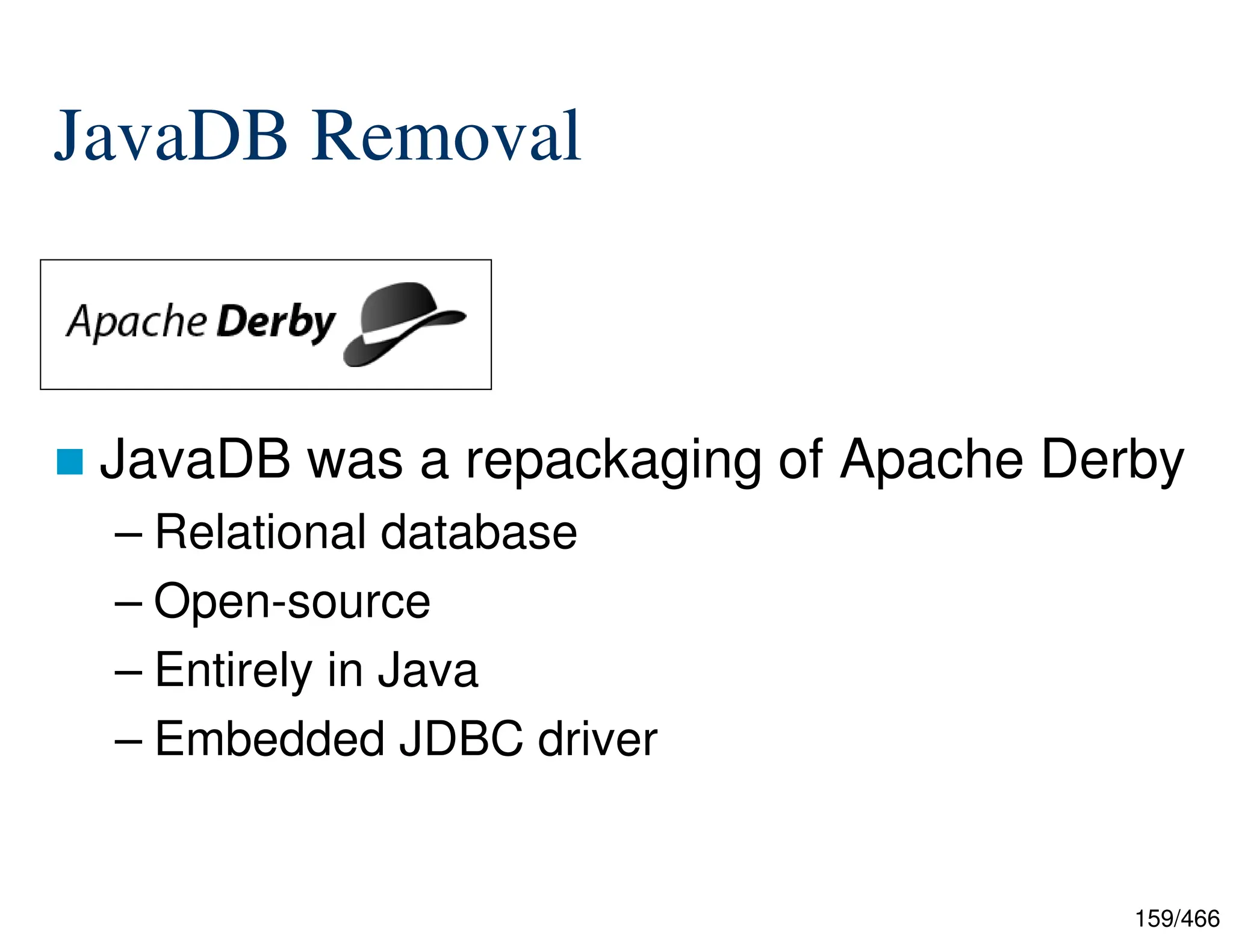
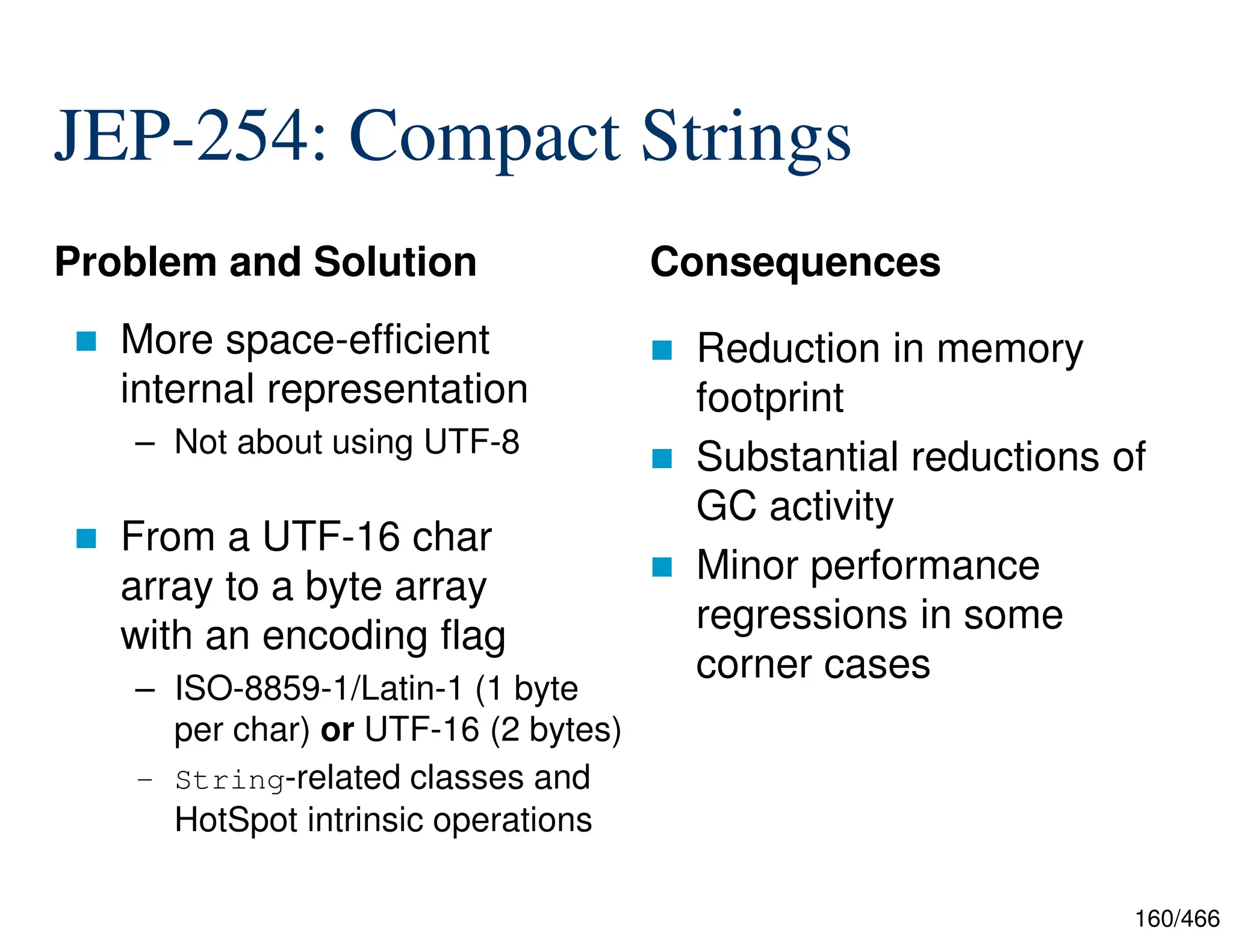
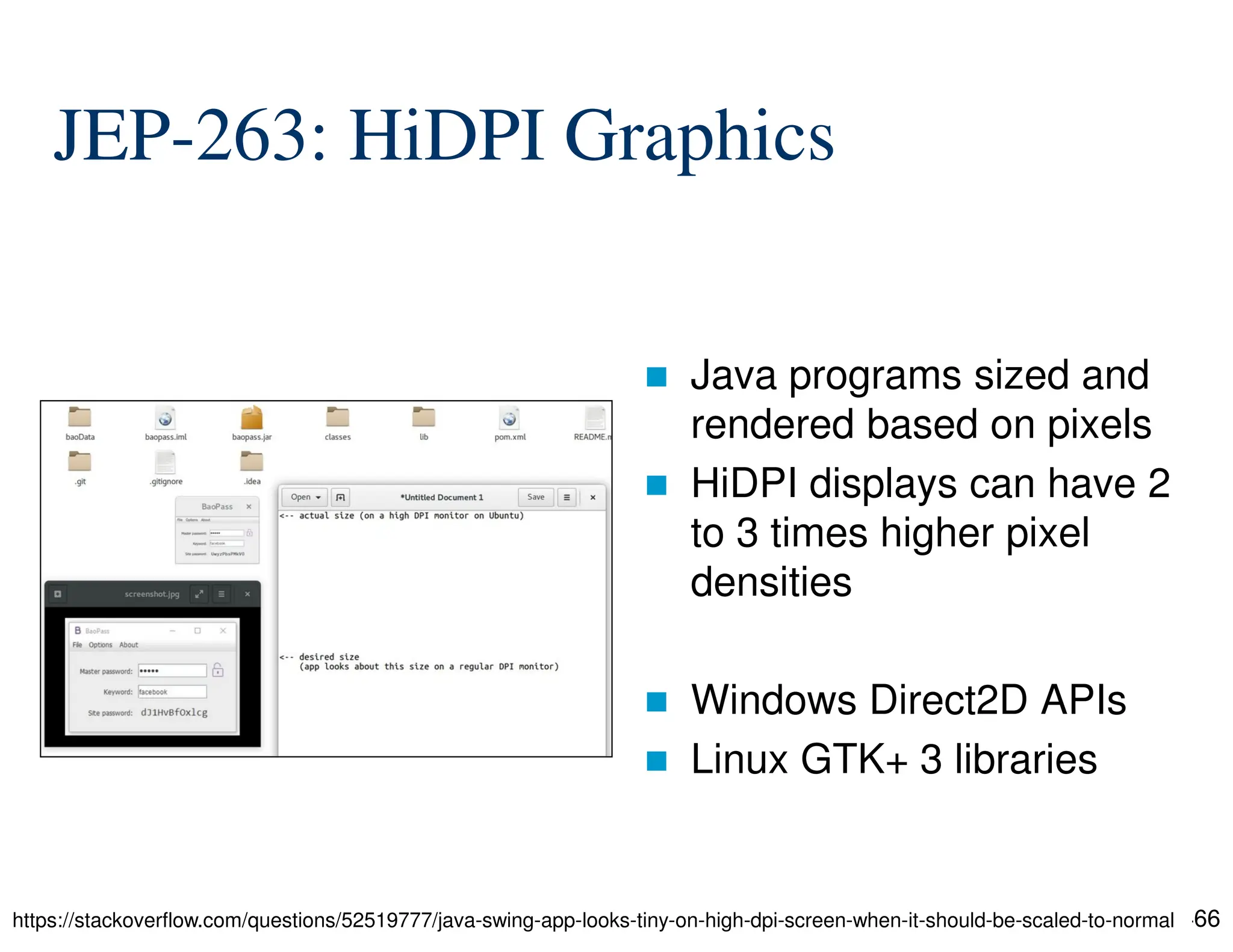
![162/466 JEP-266: More on Concurrency “[A]synchronous stream processing with non-blocking back pressure” – https://www.reactive-streams.org/ https://www.baeldung.com/java-9-reactive-streams // Given final SubmissionPublisher<String> publisher = new SubmissionPublisher<>(); final EndSubscriber<String> subscriber = new EndSubscriber<>(); final List<String> items = List.of("1", "x", "2", "x", "3", "x"); // When publisher.subscribe(subscriber); items.forEach(publisher::submit); publisher.close(); // Then Awaitility.await().atMost(1000, TimeUnit.MILLISECONDS) .until(() -> subscriber.consumedElements.containsAll(items));](https://image.slidesharecdn.com/newjavav0-250327235127-ec555181/75/Evolution-and-Examples-of-Java-Features-from-Java-1-7-to-Java-24-162-2048.jpg)
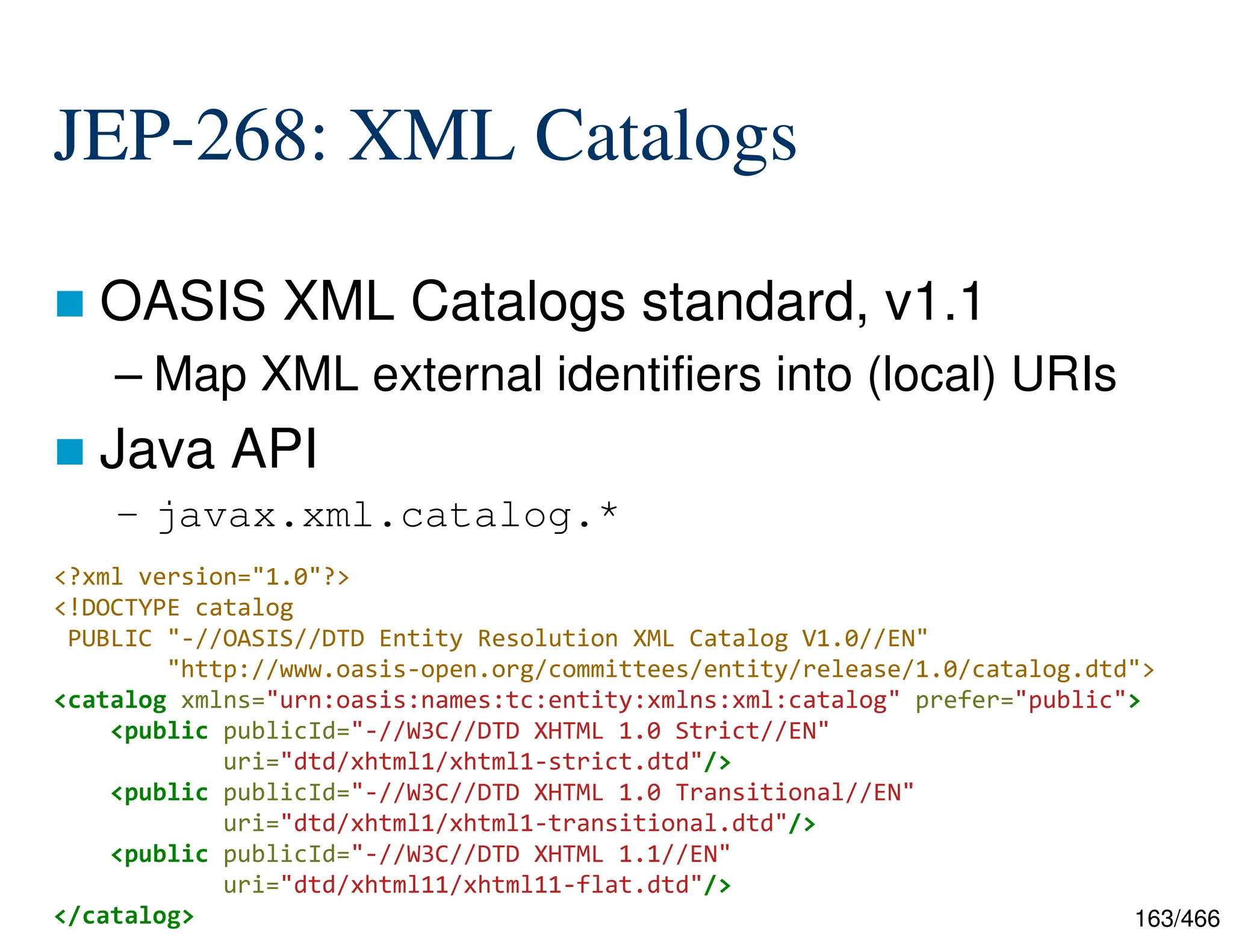

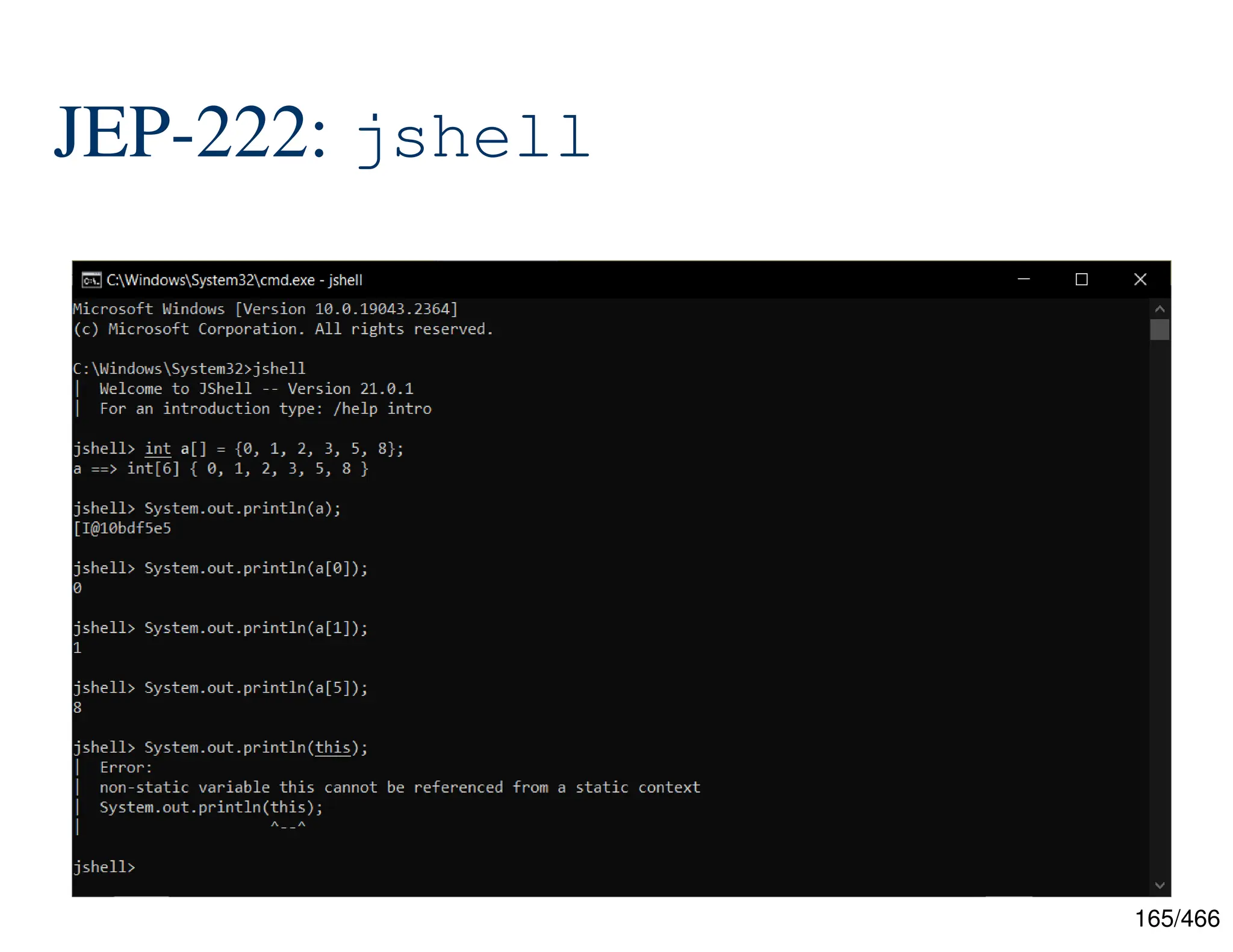
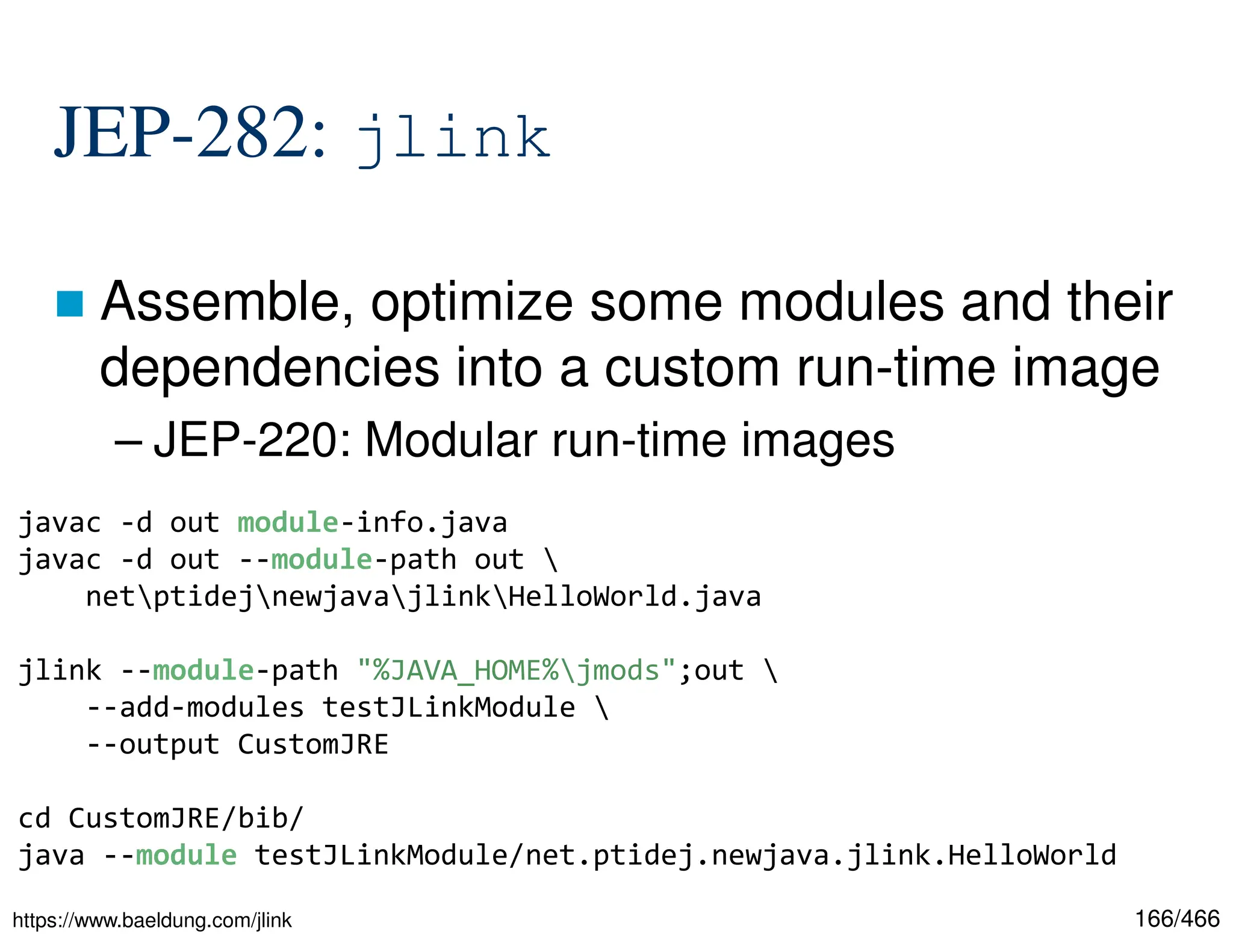
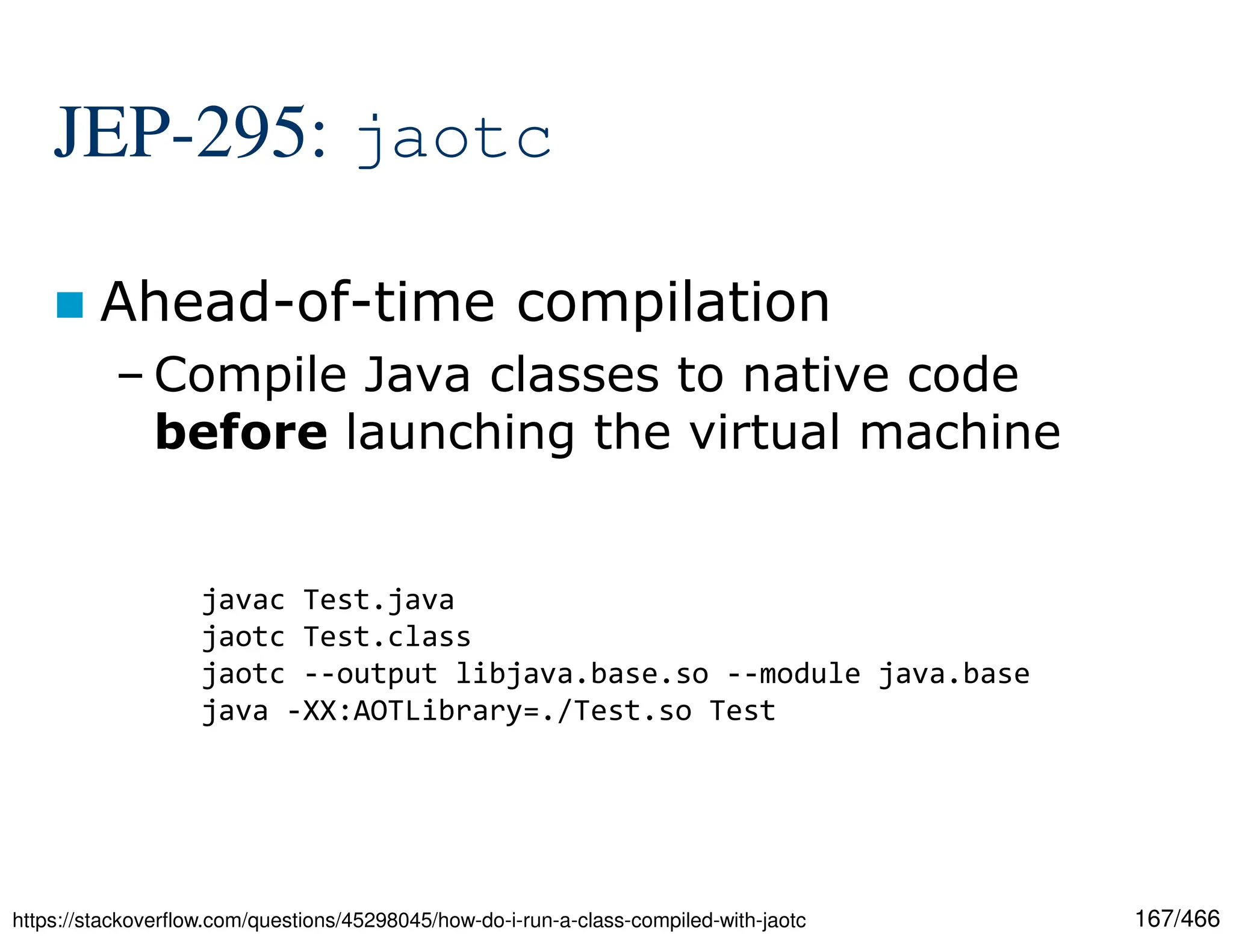
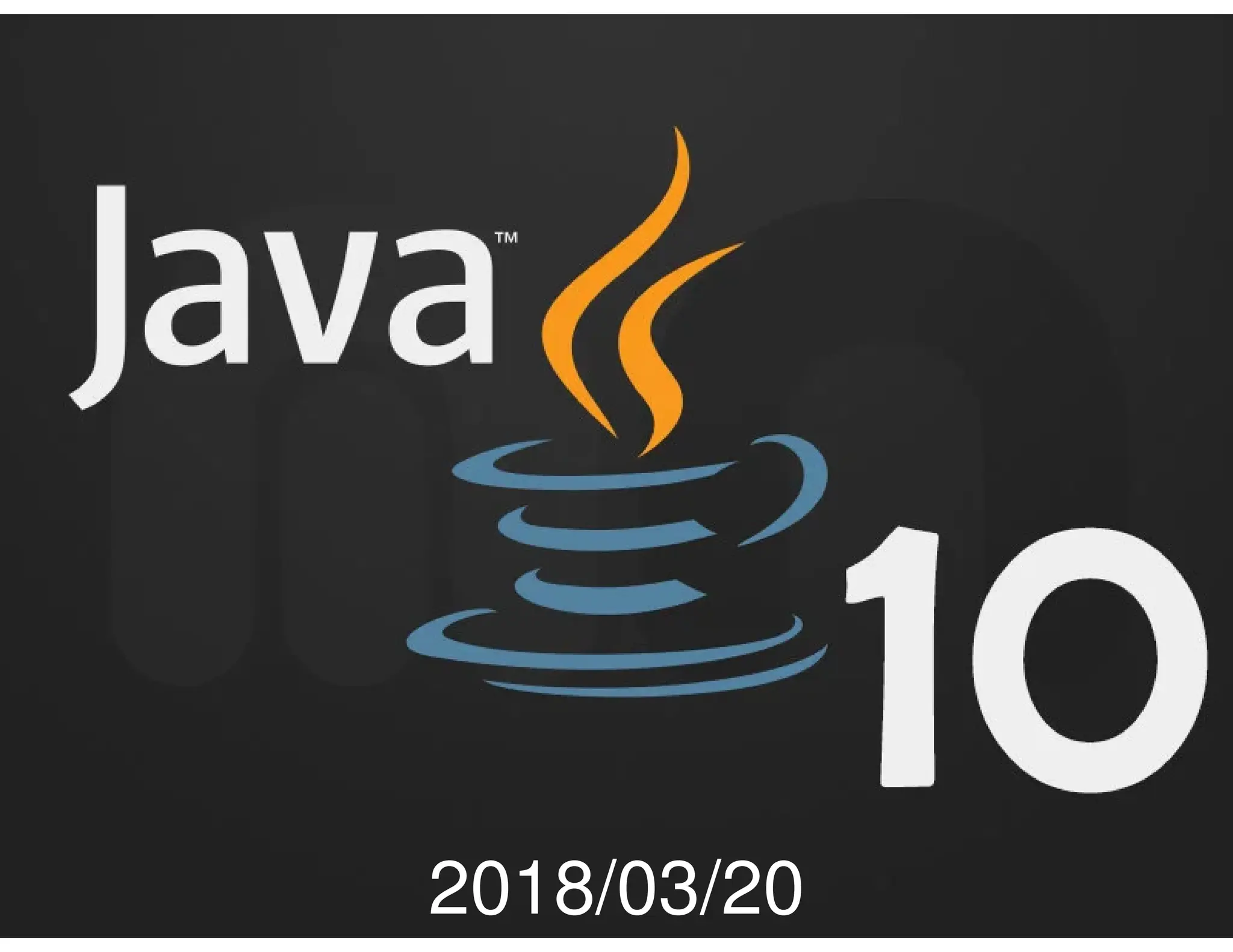

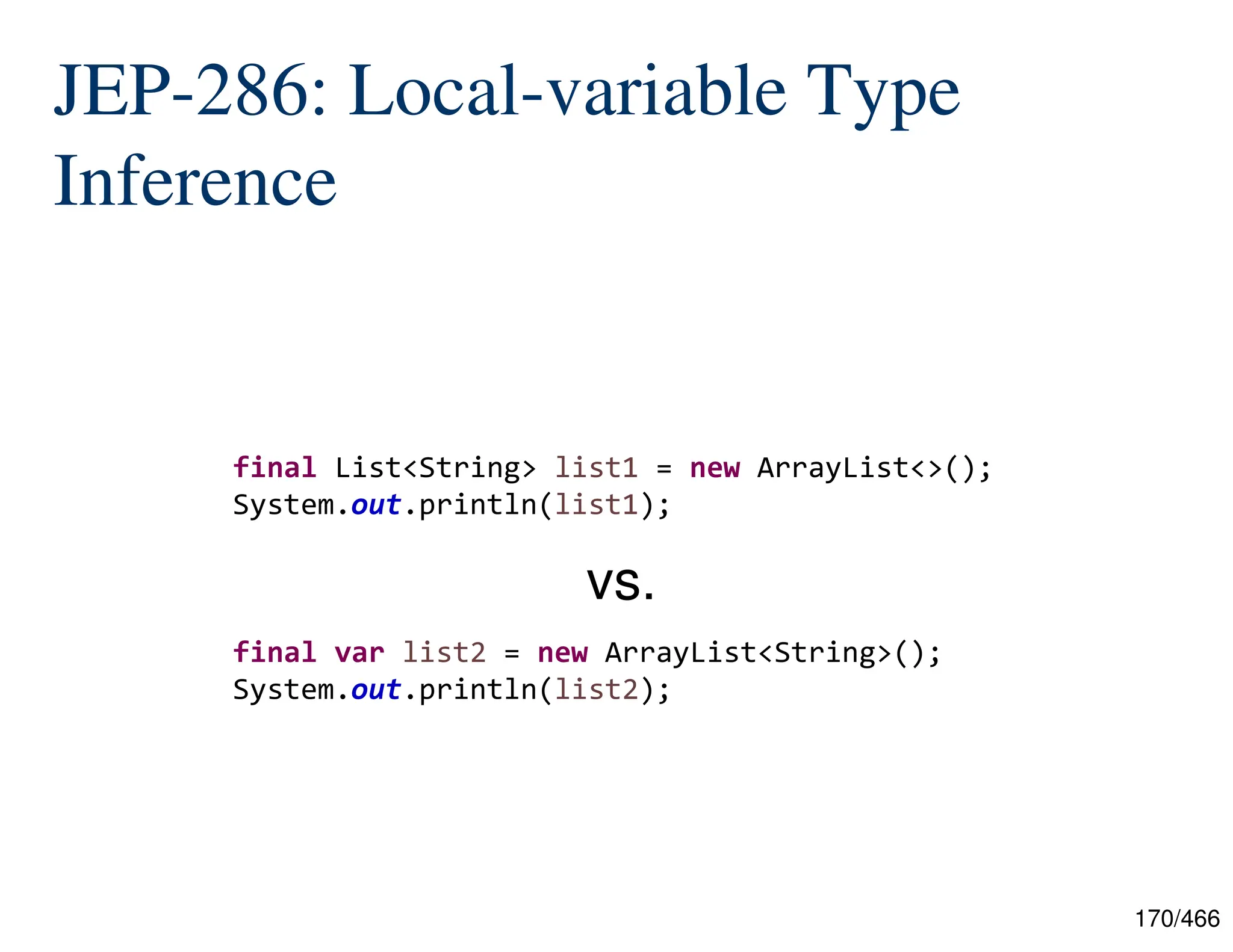

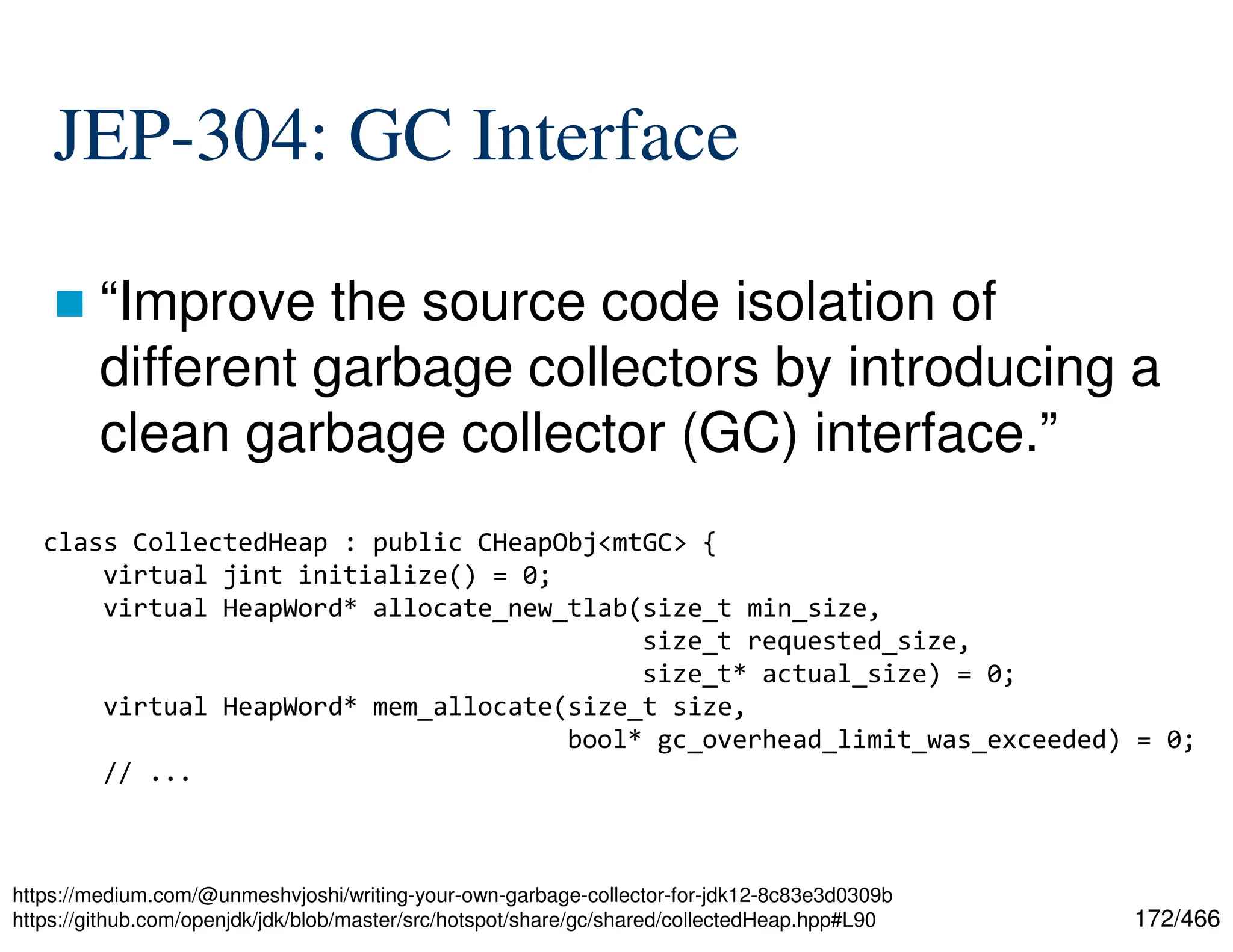
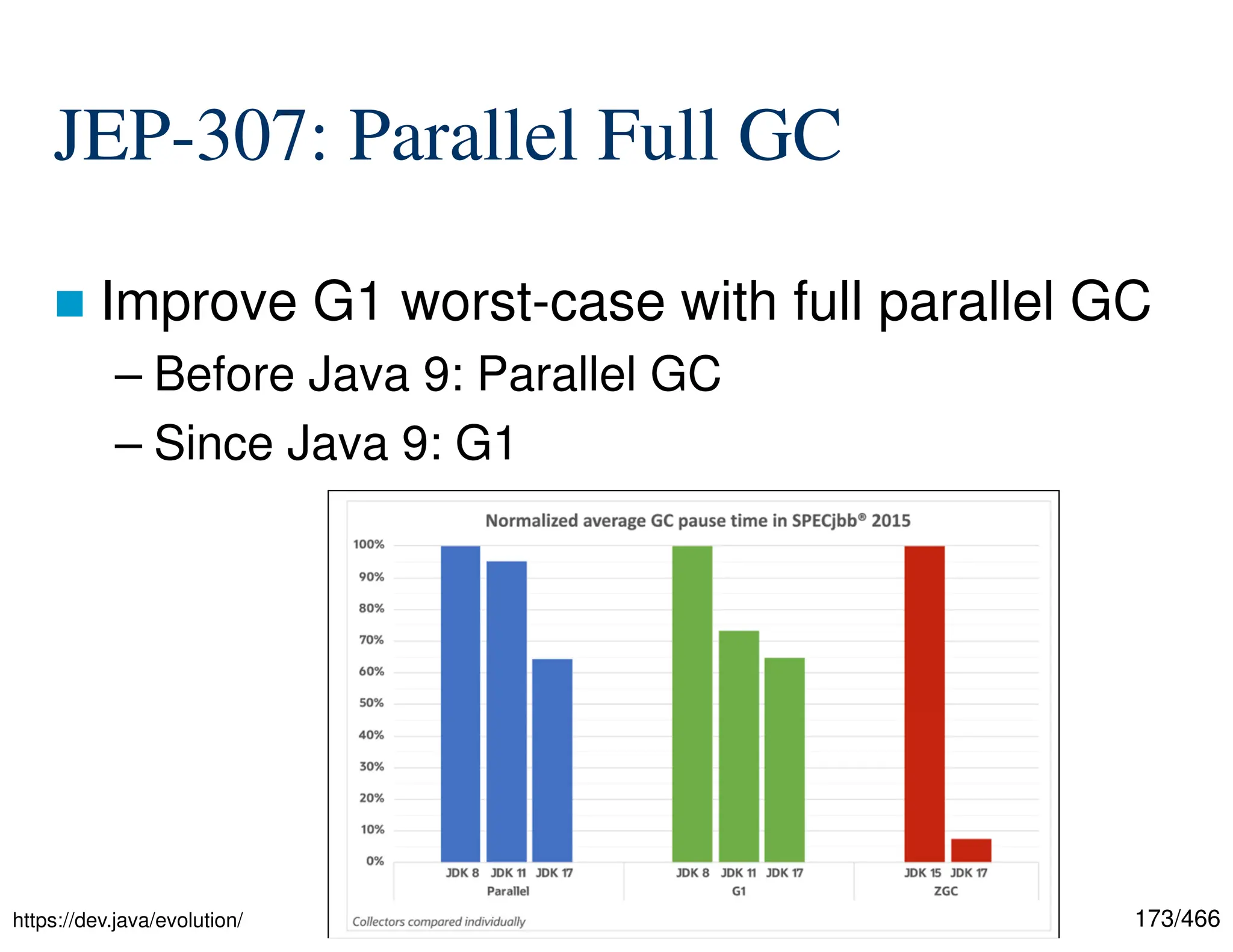
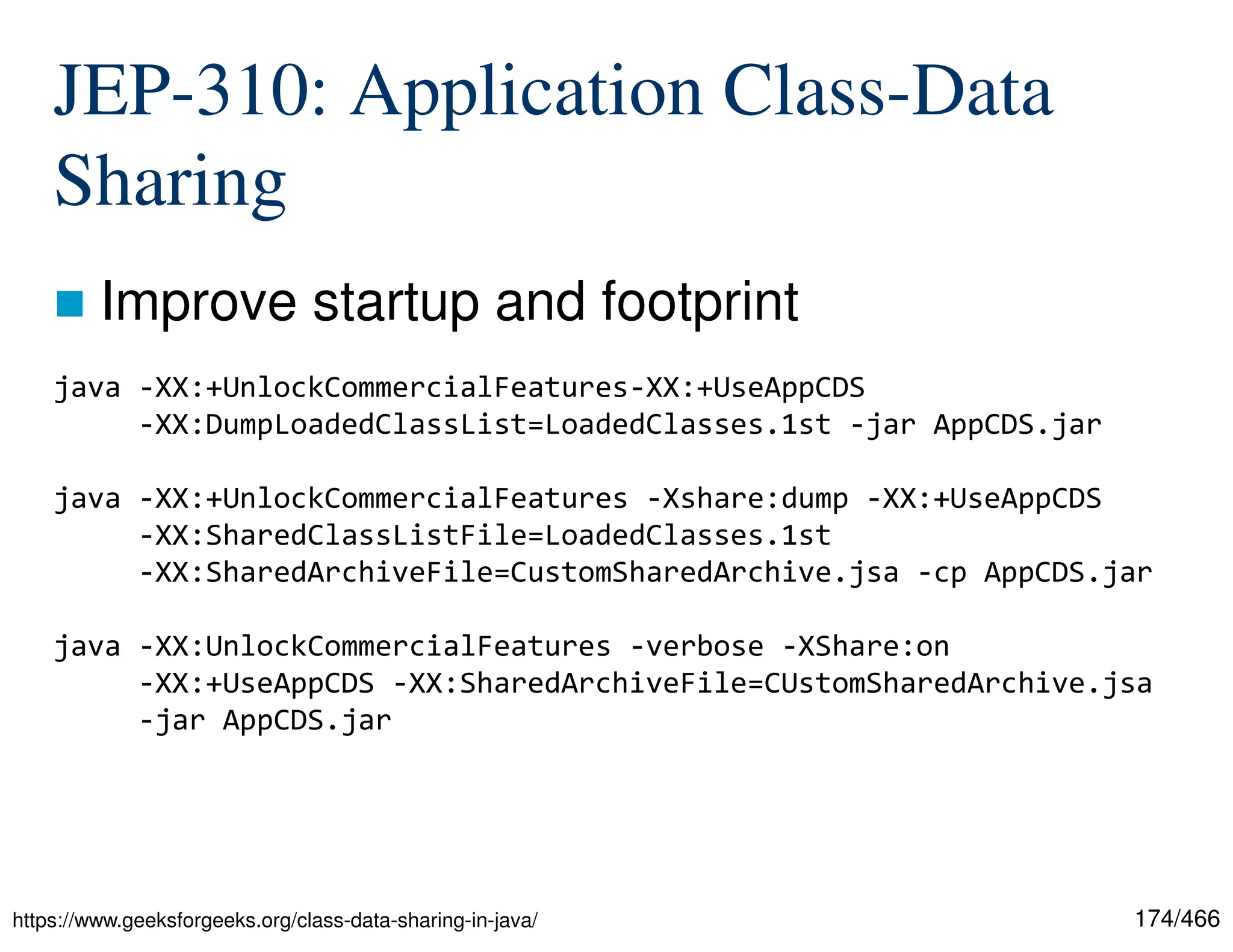
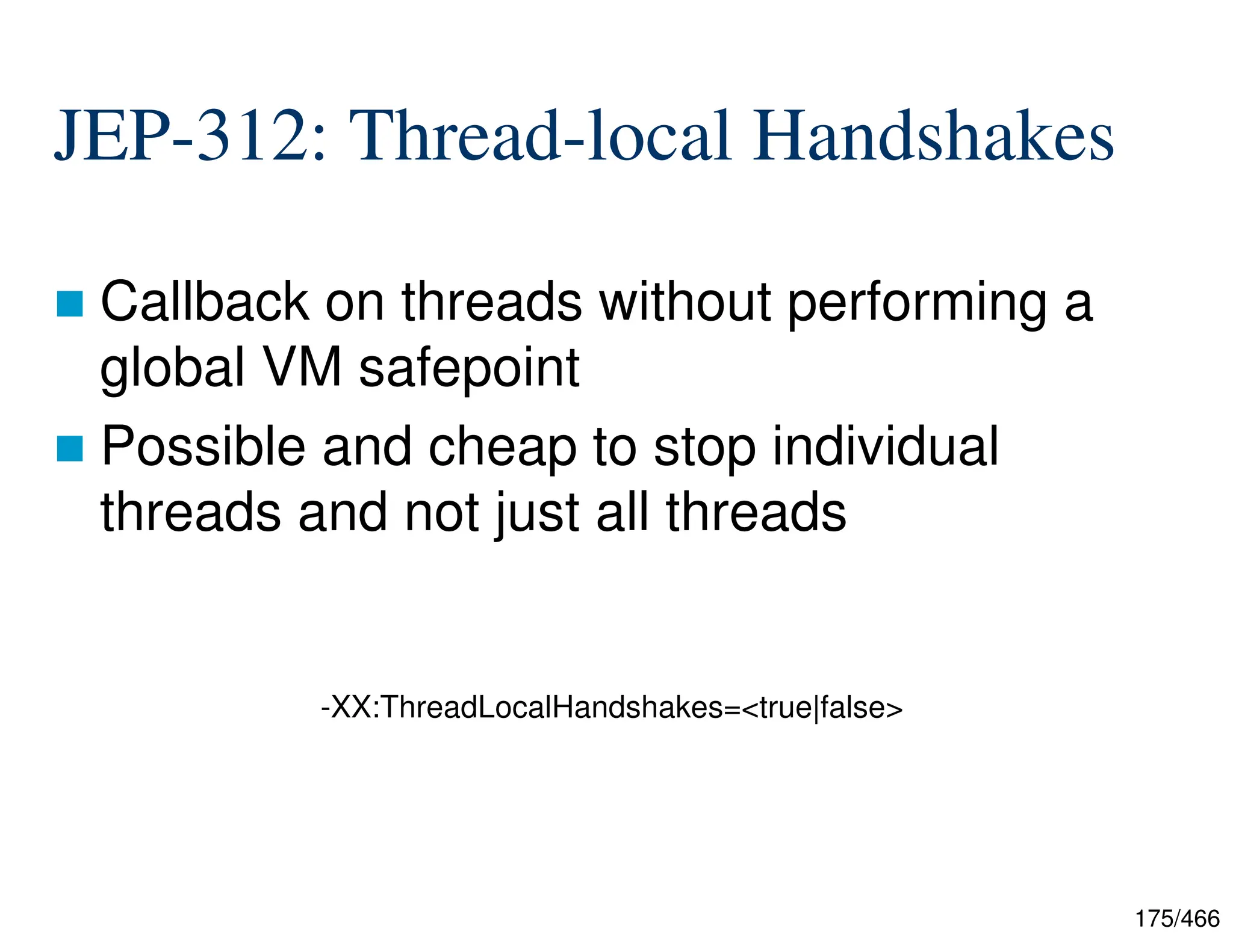

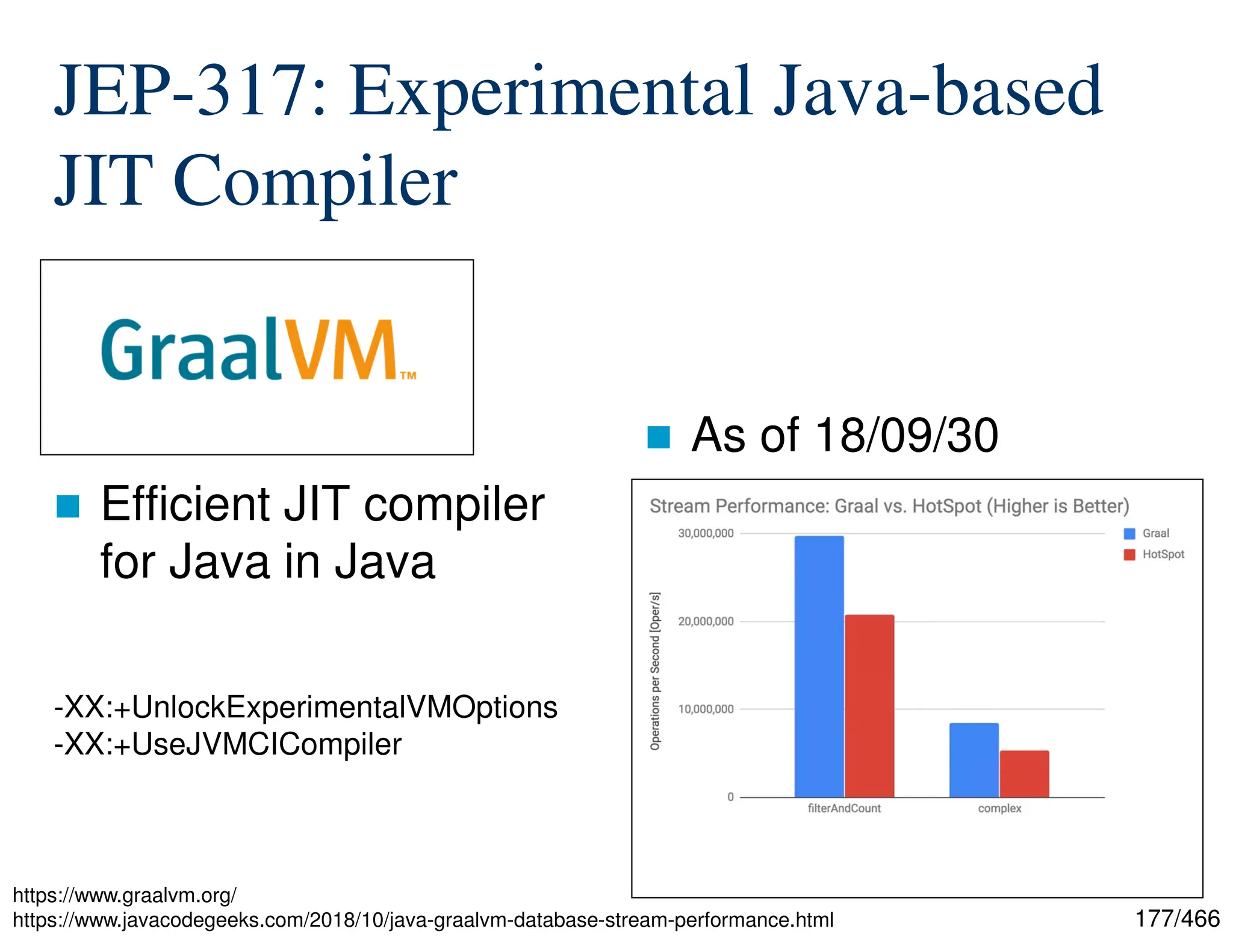

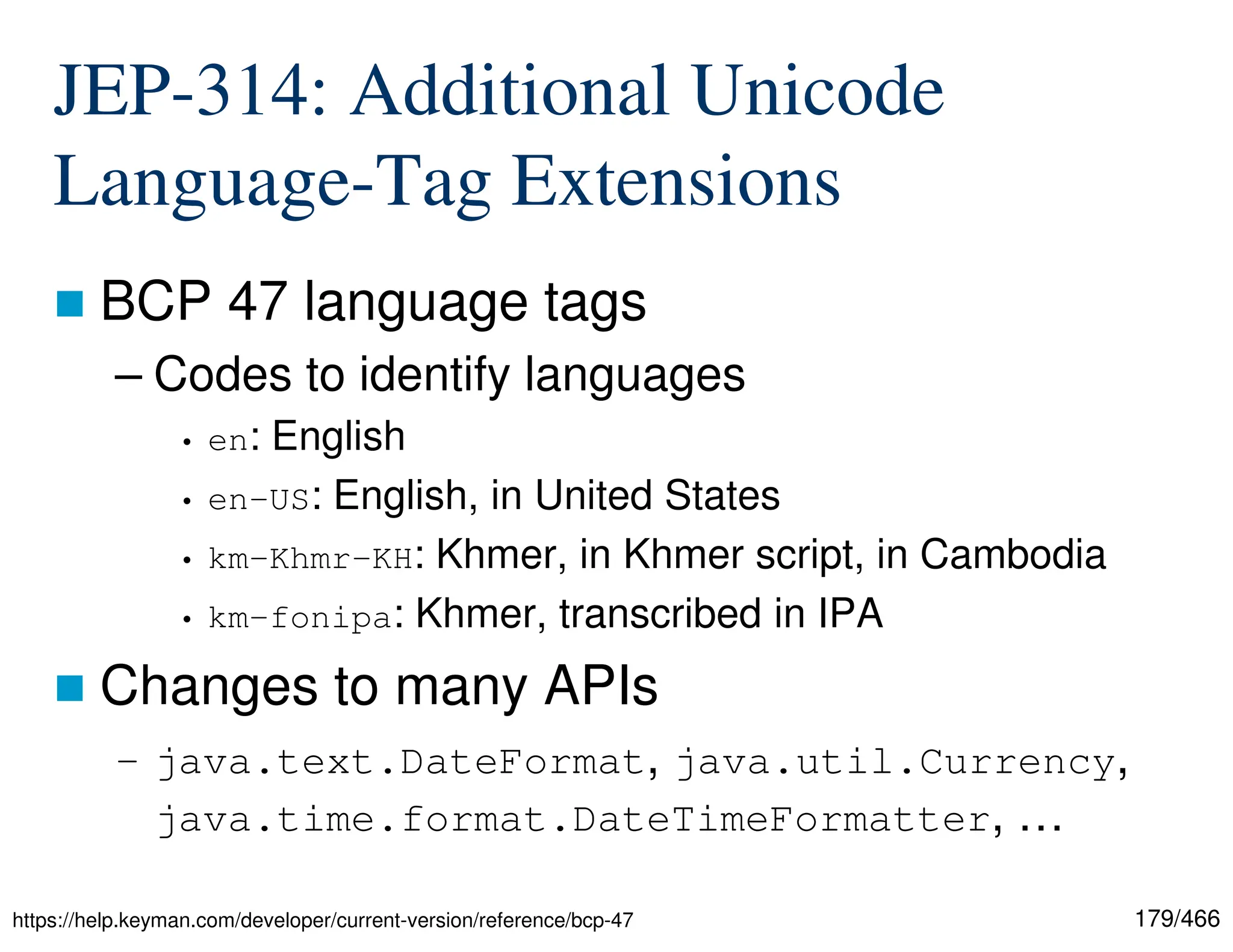

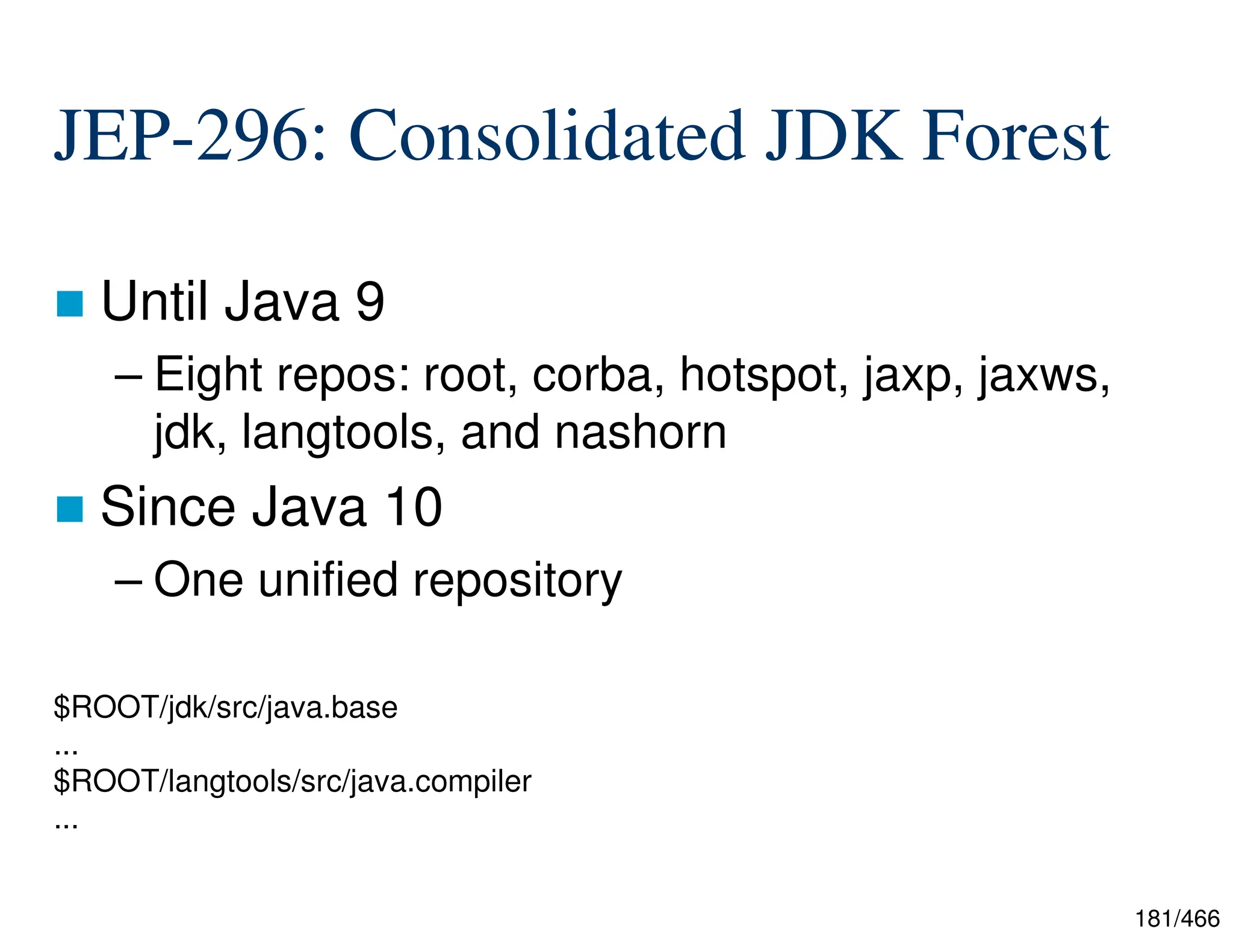
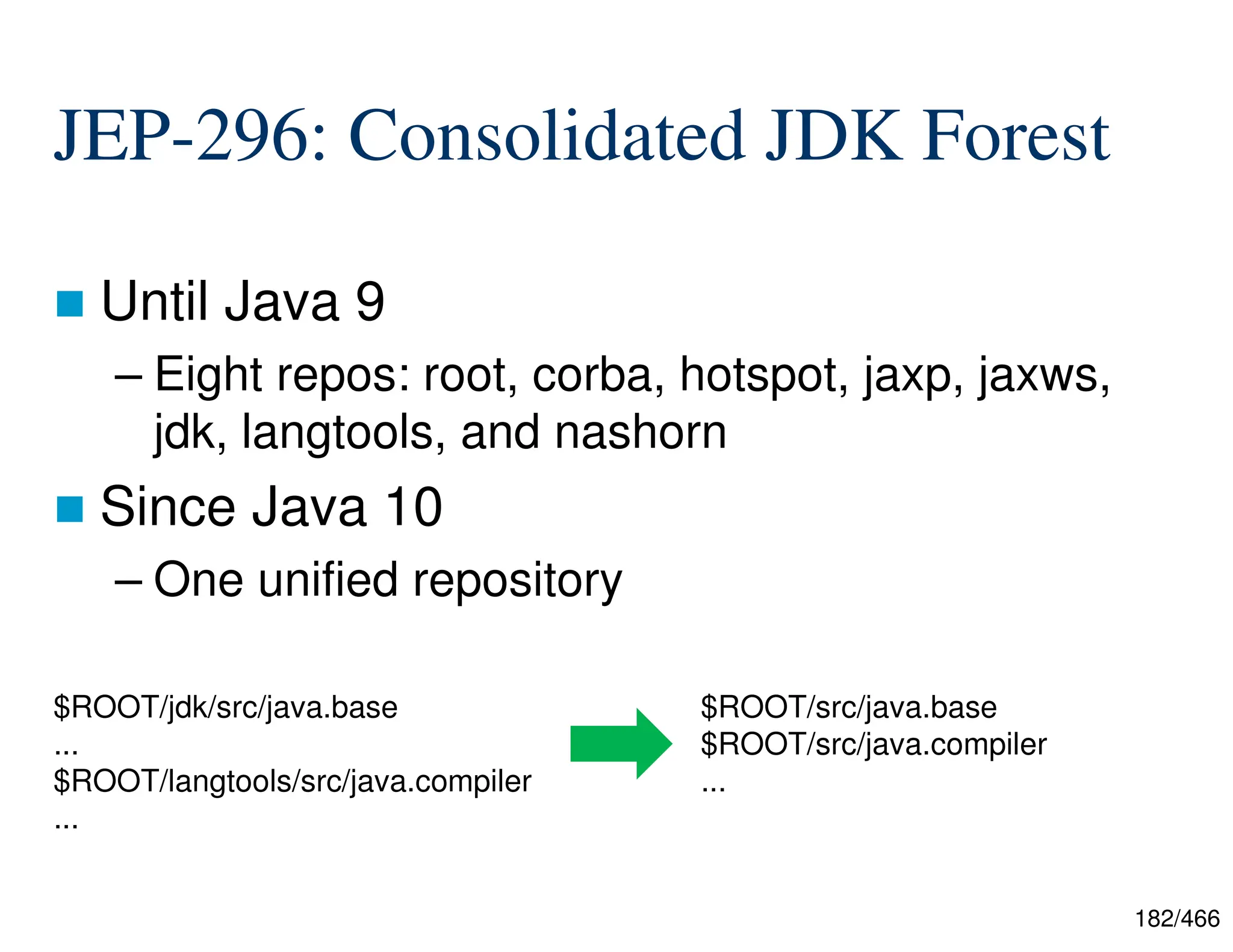
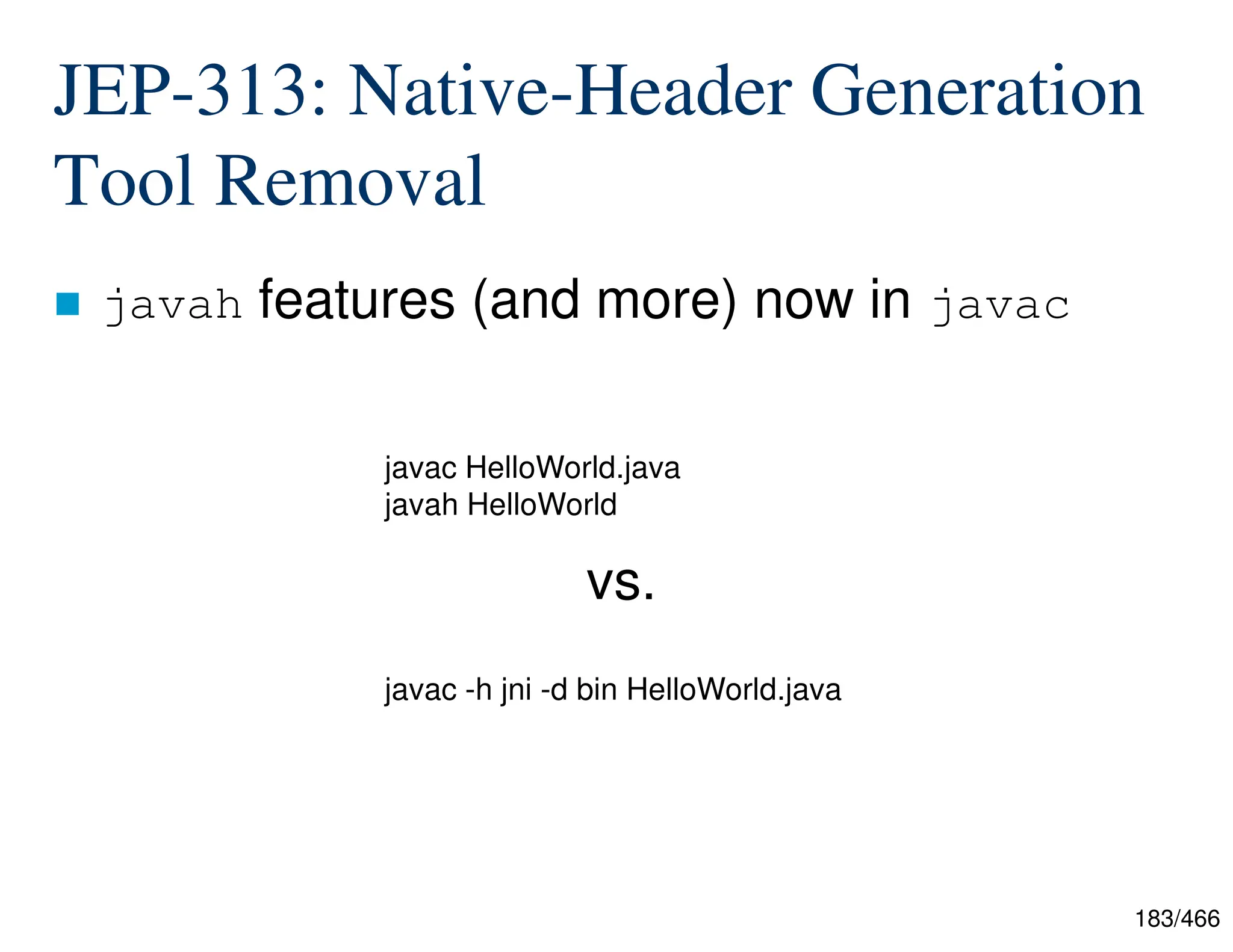
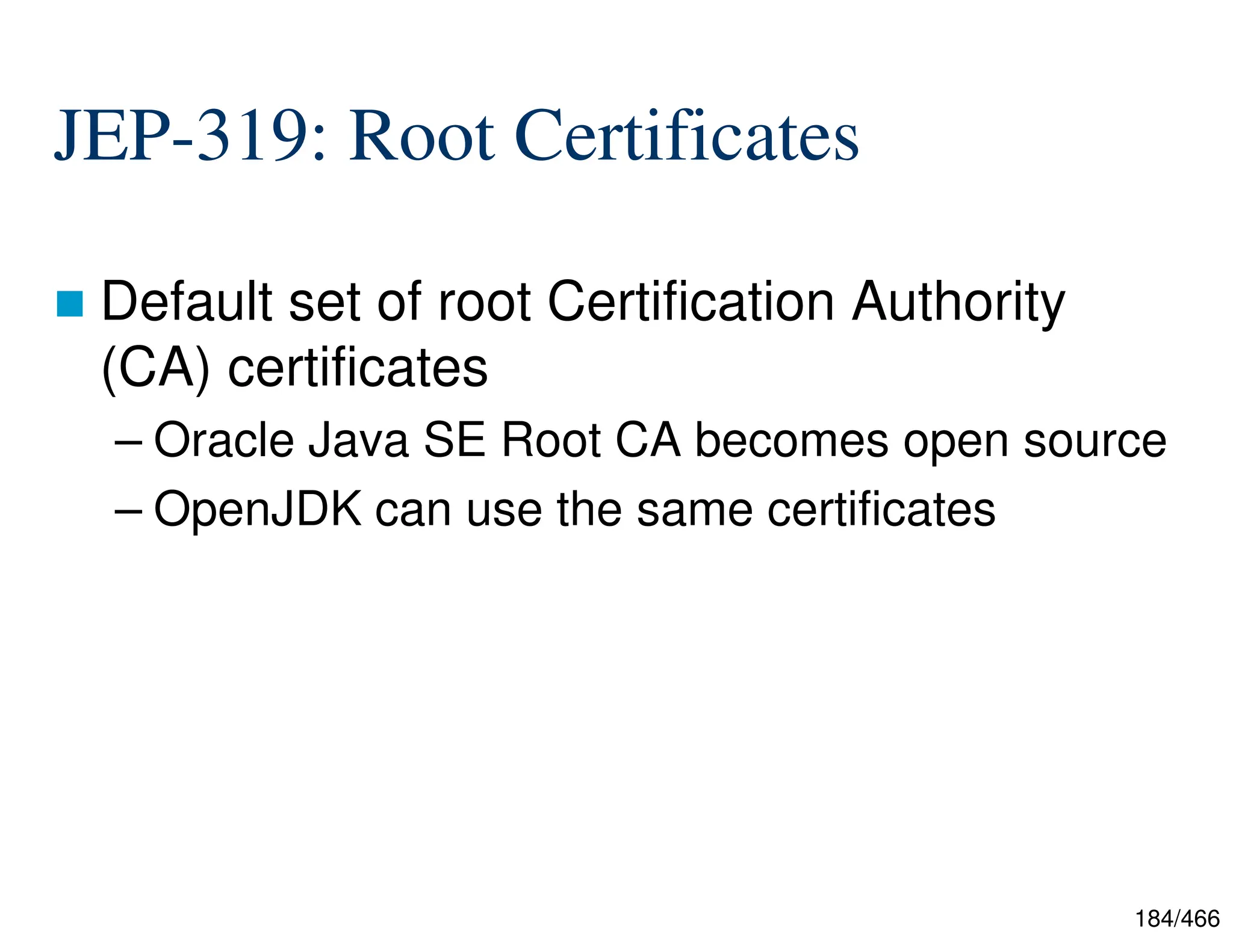
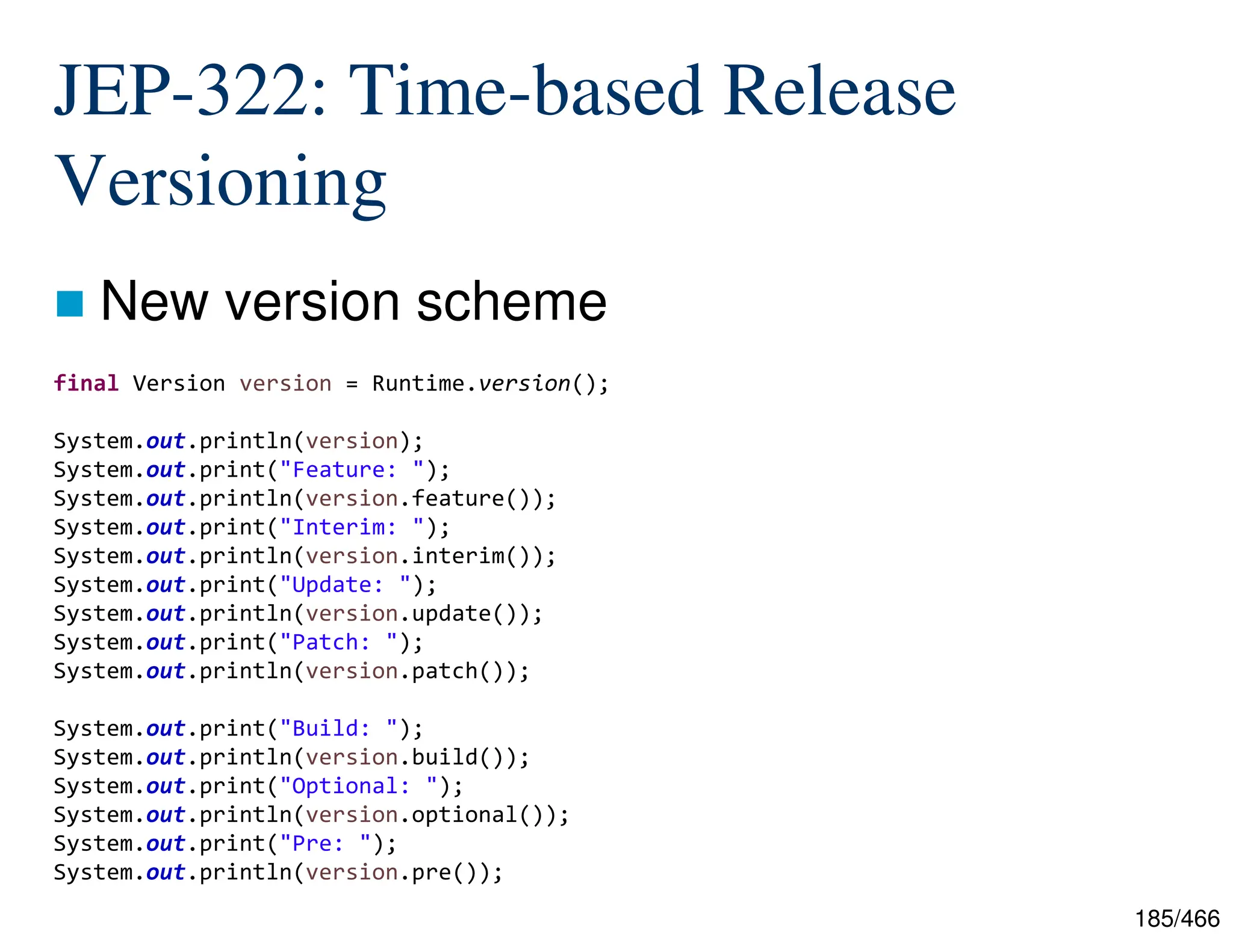
![186/466 JEP-322: Time-based Release Versioning New version scheme final Version version = Runtime.version(); System.out.println(version); System.out.print("Feature: "); System.out.println(version.feature()); System.out.print("Interim: "); System.out.println(version.interim()); System.out.print("Update: "); System.out.println(version.update()); System.out.print("Patch: "); System.out.println(version.patch()); System.out.print("Build: "); System.out.println(version.build()); System.out.print("Optional: "); System.out.println(version.optional()); System.out.print("Pre: "); System.out.println(version.pre()); 21.0.1+12-LTS-29 Feature: 21 Interim: 0 Update: 1 Patch: 0 Build: Optional[12] Optional: Optional[LTS-29] Pre: Optional.empty](https://image.slidesharecdn.com/newjavav0-250327235127-ec555181/75/Evolution-and-Examples-of-Java-Features-from-Java-1-7-to-Java-24-186-2048.jpg)
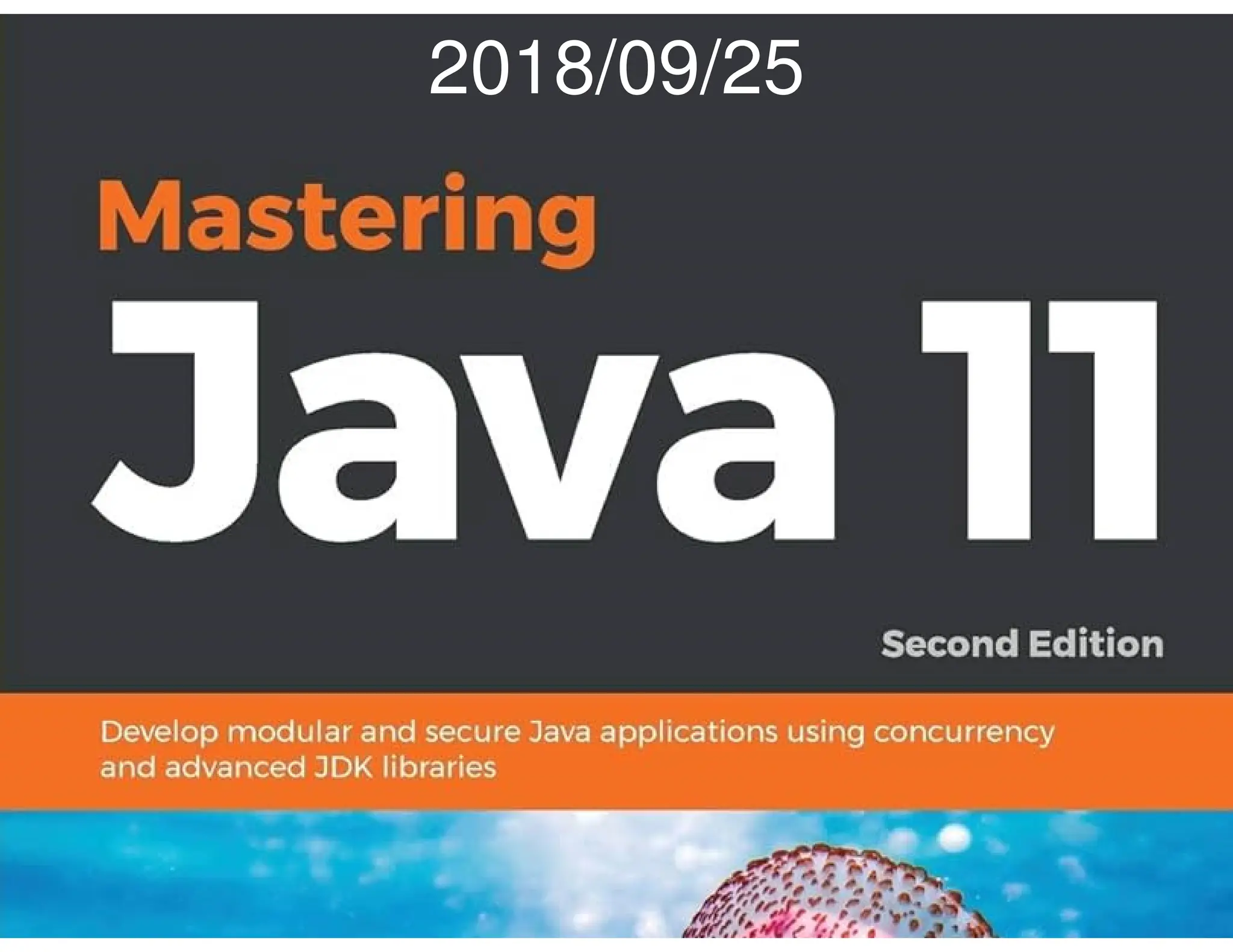

![189/466 JEP-181: Nest-based Access Control Before Java 11 – Bridge method, e.g., access$000(Example1) Since Java 11 – Direct access – Access to nest mates’ private members https://mkyong.com/java/java-11-nest-based-access-control/ public class Example1 { private String name = "I'm Example1!"; public class A { public void printName() { System.out.println(name); } } public class B { public void printName() { System.out.println(Example1.this.name); } public class B1 { public void printName() { System.out.println(Example1.this.name); } } } public static void main(final String[] args) { final Example1 e1 = new Example1(); final Example1.B b = e1.new B(); final Example1.B.B1 b1 = b.new B1(); b1.printName(); } }](https://image.slidesharecdn.com/newjavav0-250327235127-ec555181/75/Evolution-and-Examples-of-Java-Features-from-Java-1-7-to-Java-24-189-2048.jpg)
![190/466 JEP-181: Nest-based Access Control https://mkyong.com/java/java-11-nest-based-access-control/ public class Example2 { private String name = "I'm Example2!"; public class A { public void printName() { System.out.println(name); } } public class B { public void printName() { System.out.println(Example2.this.name); } public class B1 { public void printName() { System.out.println(Example2.this.name); } } } public static void main(final String[] args) { System.out.println(A.class.getNestHost()); System.out.println(A.class.isNestmateOf(B.class)); for (final Class<?> clazz : Example2.B.class.getNestMembers()) { System.out.println(clazz); } } }](https://image.slidesharecdn.com/newjavav0-250327235127-ec555181/75/Evolution-and-Examples-of-Java-Features-from-Java-1-7-to-Java-24-190-2048.jpg)
![191/466 JEP-181: Nest-based Access Control https://mkyong.com/java/java-11-nest-based-access-control/ public class Example2 { private String name = "I'm Example2!"; public class A { public void printName() { System.out.println(name); } } public class B { public void printName() { System.out.println(Example2.this.name); } public class B1 { public void printName() { System.out.println(Example2.this.name); } } } public static void main(final String[] args) { System.out.println(A.class.getNestHost()); System.out.println(A.class.isNestmateOf(B.class)); for (final Class<?> clazz : Example2.B.class.getNestMembers()) { System.out.println(clazz); } } } class net.ptidej.newjava.nest.Example2 true class net.ptidej.newjava.nest.Example2 class net.ptidej.newjava.nest.Example2$A class net.ptidej.newjava.nest.Example2$B class net.ptidej.newjava.nest.Example2$B$B1](https://image.slidesharecdn.com/newjavav0-250327235127-ec555181/75/Evolution-and-Examples-of-Java-Features-from-Java-1-7-to-Java-24-191-2048.jpg)
![192/466 JEP-323: Local-variable Syntax for Lambda Parameters interface Comparator<T> { int compare(final T a, final T b); } public class Example1 { public static void main(final String[] args) { final Comparator<String> comparator1 = new Comparator<>() { @Override public int compare(final String a, final String b) { return a.compareTo(b); } }; System.out.println(comparator1.compare("Hello", "World")); final Comparator<String> comparator2 = (a, b) -> a.compareTo(b); System.out.println(comparator2.compare("Hello", "World")); final Comparator<String> comparator3 = (String a, String b) -> a.compareTo(b); System.out.println(comparator3.compare("Hello", "World")); final Comparator<String> comparator4 = (final var a, final var b) -> a.compareTo(b); System.out.println(comparator4.compare("Hello", "World")); final Comparator<String> comparator5 = (@NonNull var a, @NonNull var b) -> a.compareTo(b); System.out.println(comparator5.compare("Hello", "World")); } }](https://image.slidesharecdn.com/newjavav0-250327235127-ec555181/75/Evolution-and-Examples-of-Java-Features-from-Java-1-7-to-Java-24-192-2048.jpg)
![193/466 JEP-323: Local-variable Syntax for Lambda Parameters interface Comparator<T> { int compare(final T a, final T b); } public class Example1 { public static void main(final String[] args) { final Comparator<String> comparator1 = new Comparator<>() { @Override public int compare(final String a, final String b) { return a.compareTo(b); } }; System.out.println(comparator1.compare("Hello", "World")); final Comparator<String> comparator2 = (a, b) -> a.compareTo(b); System.out.println(comparator2.compare("Hello", "World")); final Comparator<String> comparator3 = (String a, String b) -> a.compareTo(b); System.out.println(comparator3.compare("Hello", "World")); final Comparator<String> comparator4 = (final var a, final var b) -> a.compareTo(b); System.out.println(comparator4.compare("Hello", "World")); final Comparator<String> comparator5 = (@NonNull var a, @NonNull var b) -> a.compareTo(b); System.out.println(comparator5.compare("Hello", "World")); } } Now posssible](https://image.slidesharecdn.com/newjavav0-250327235127-ec555181/75/Evolution-and-Examples-of-Java-Features-from-Java-1-7-to-Java-24-193-2048.jpg)

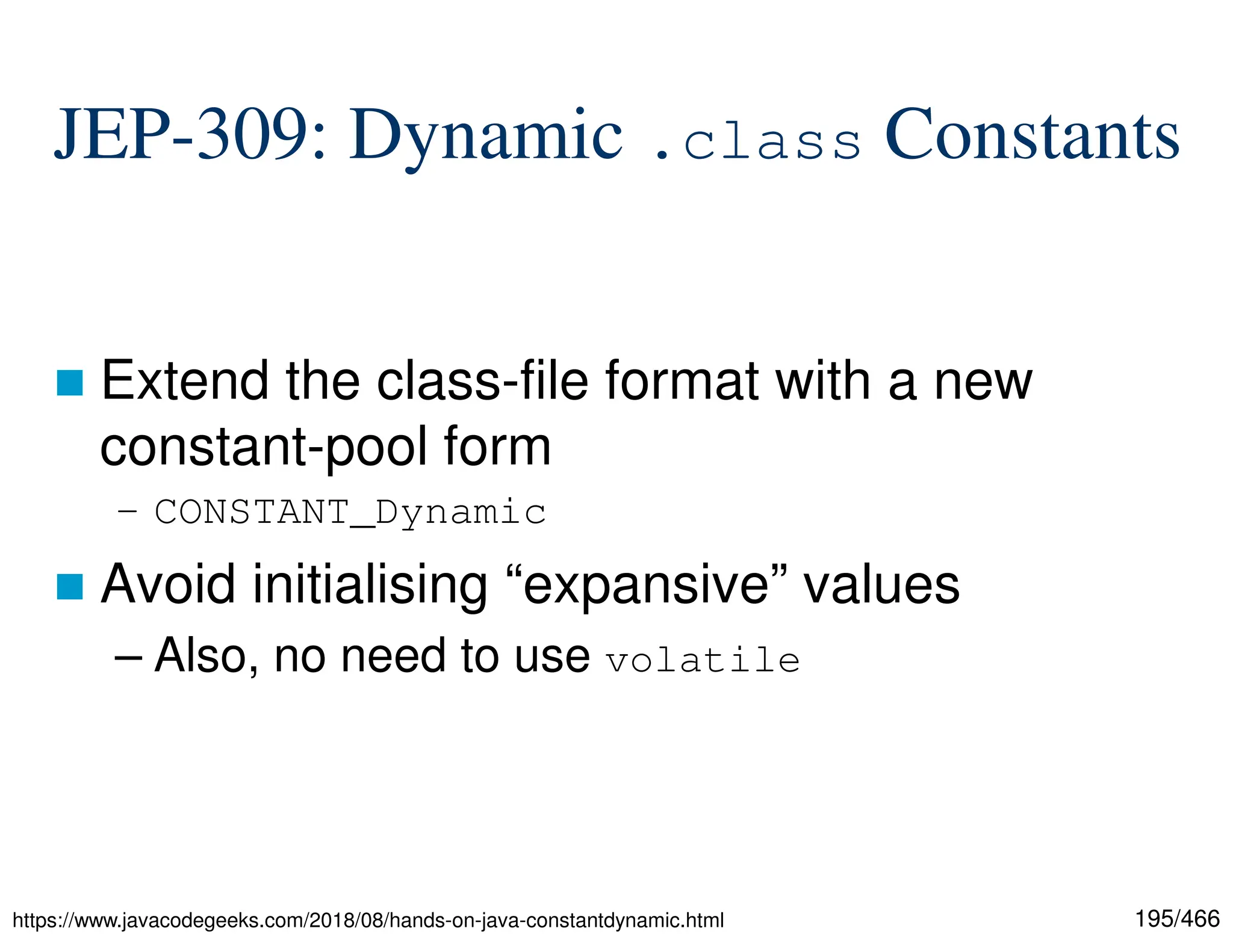
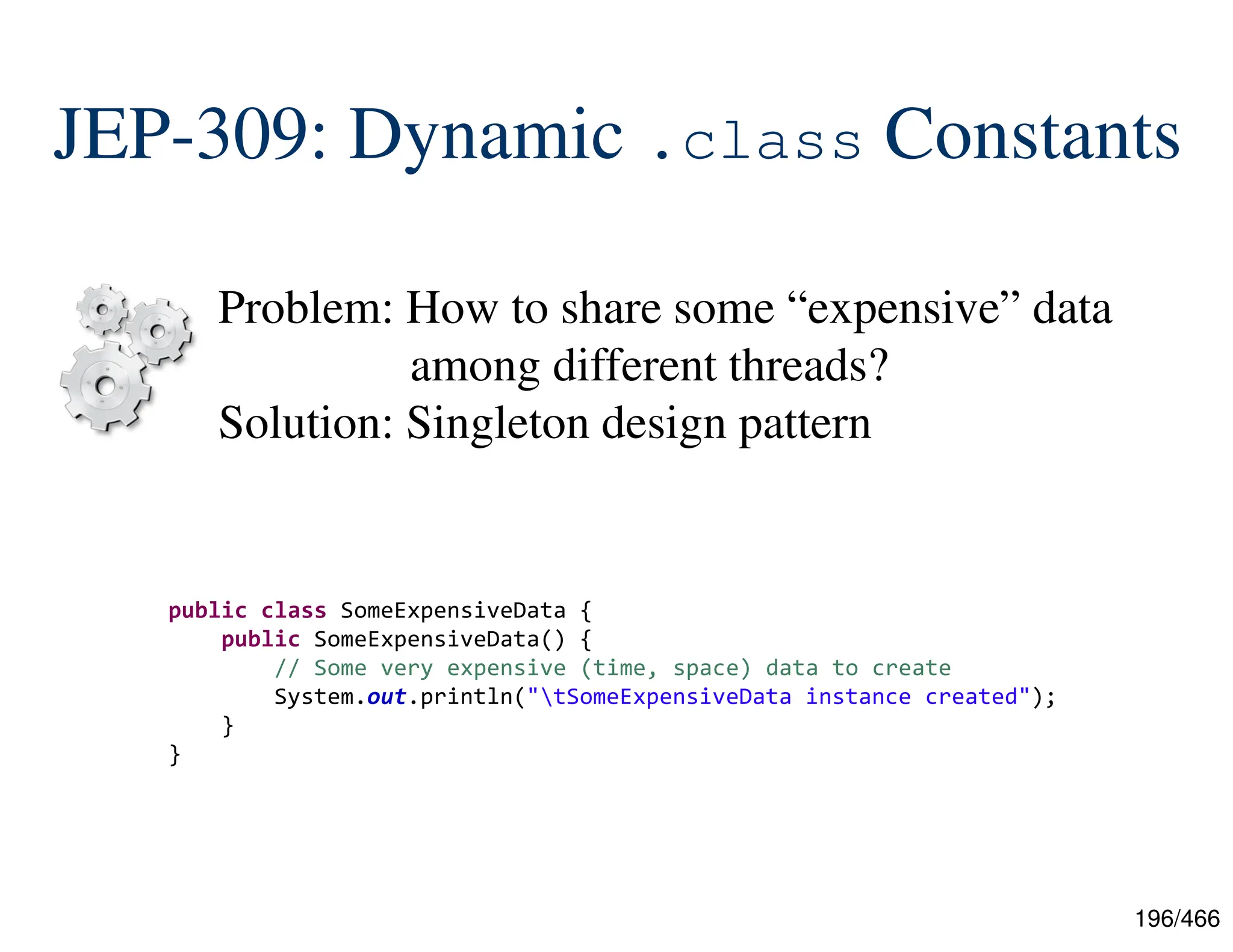
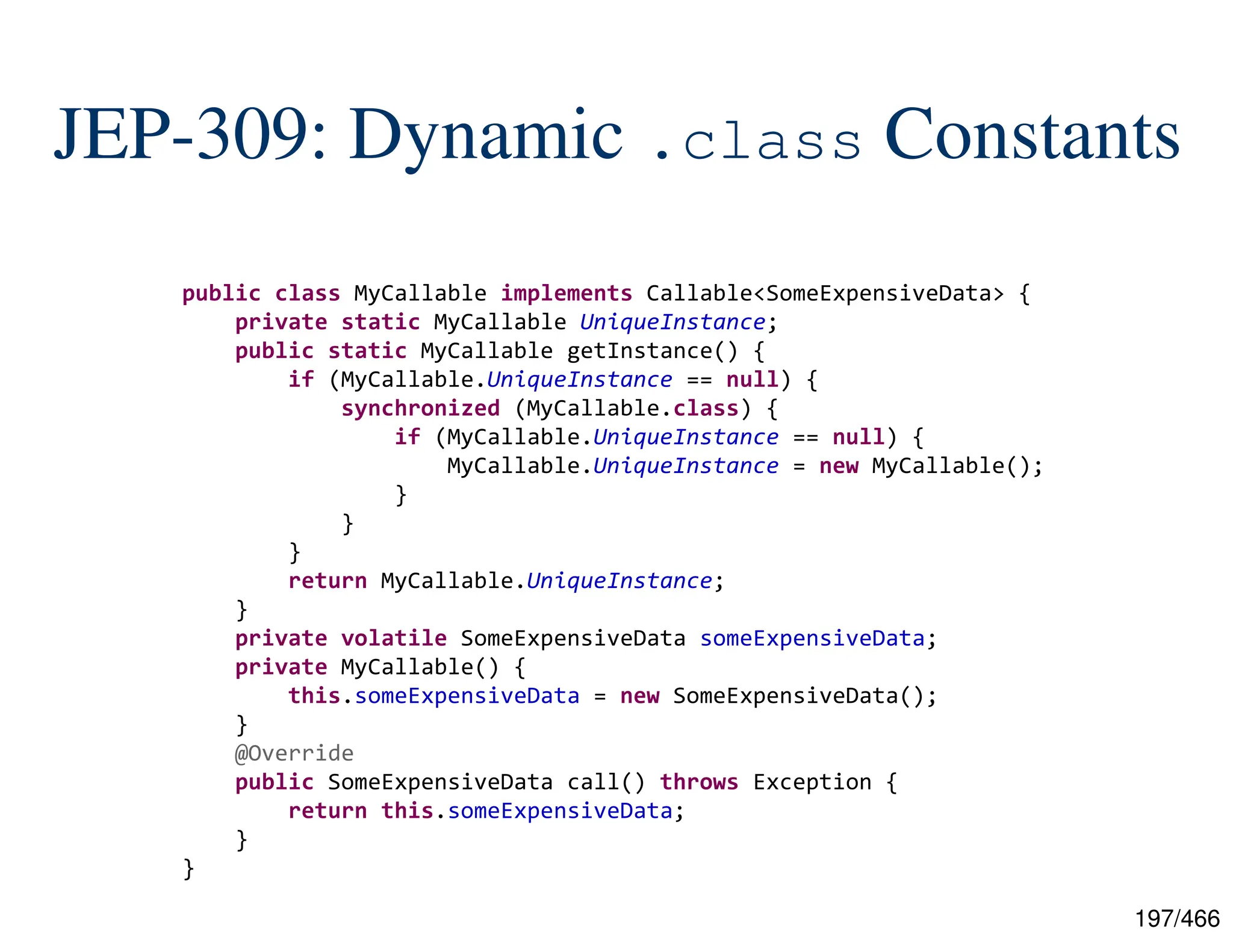
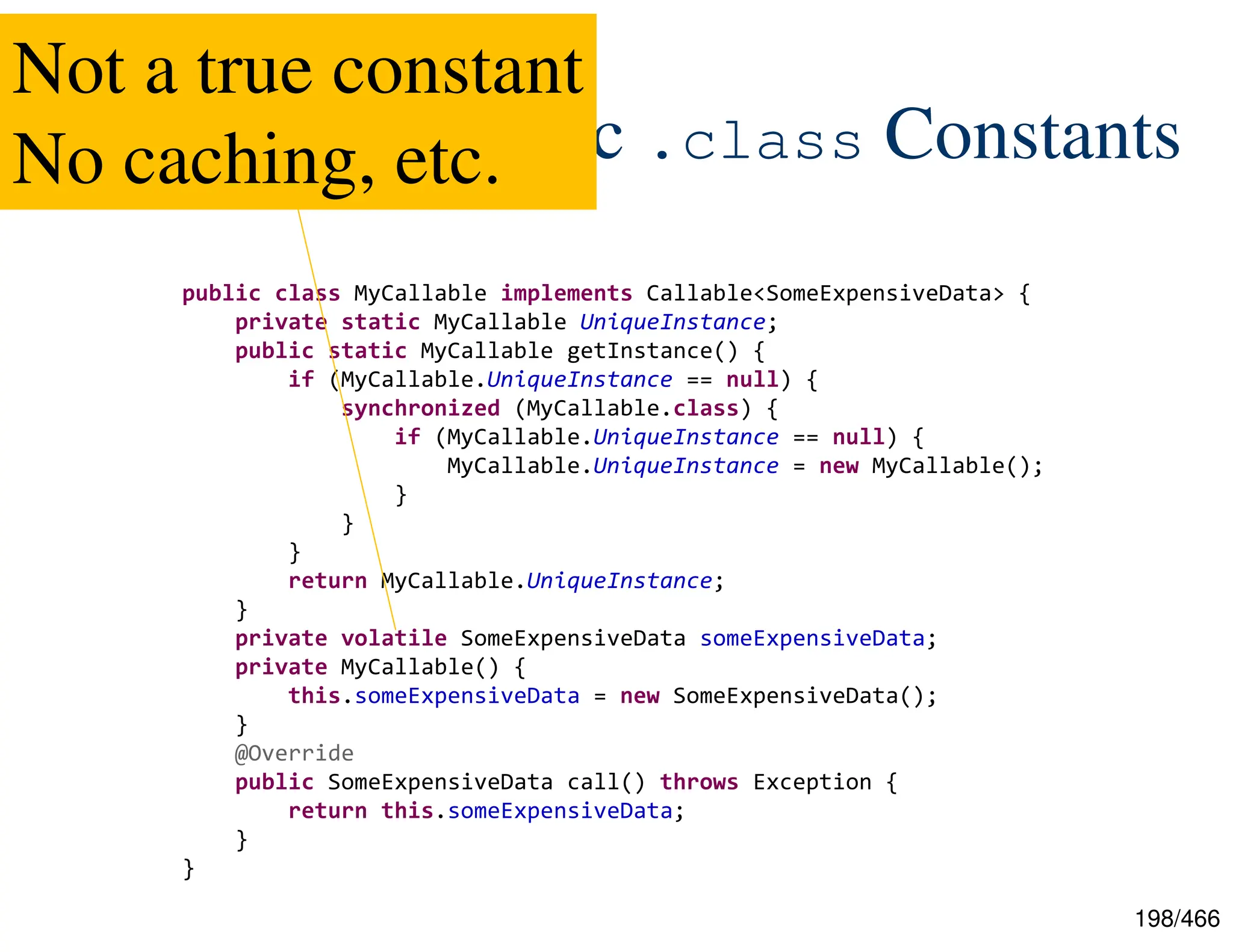
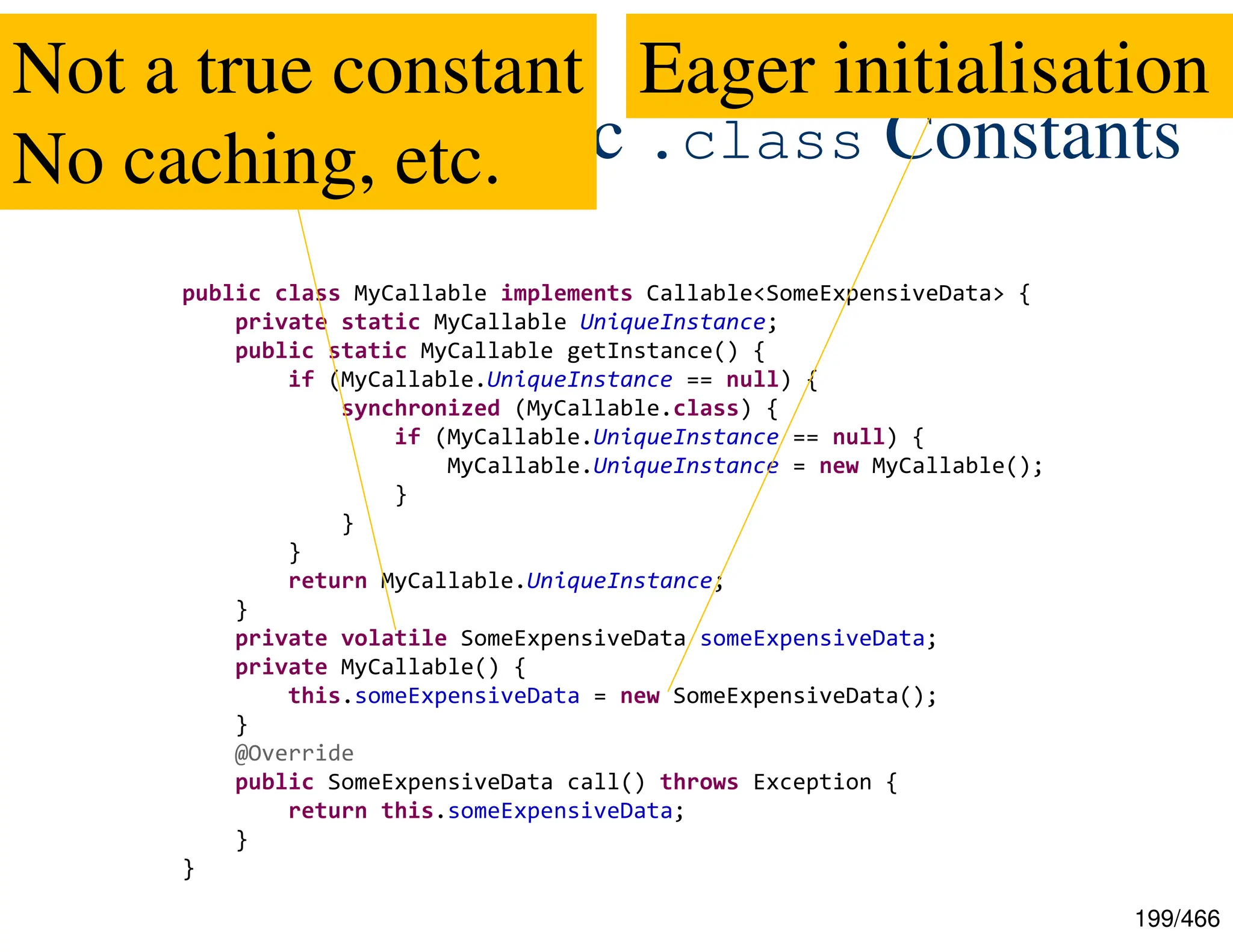
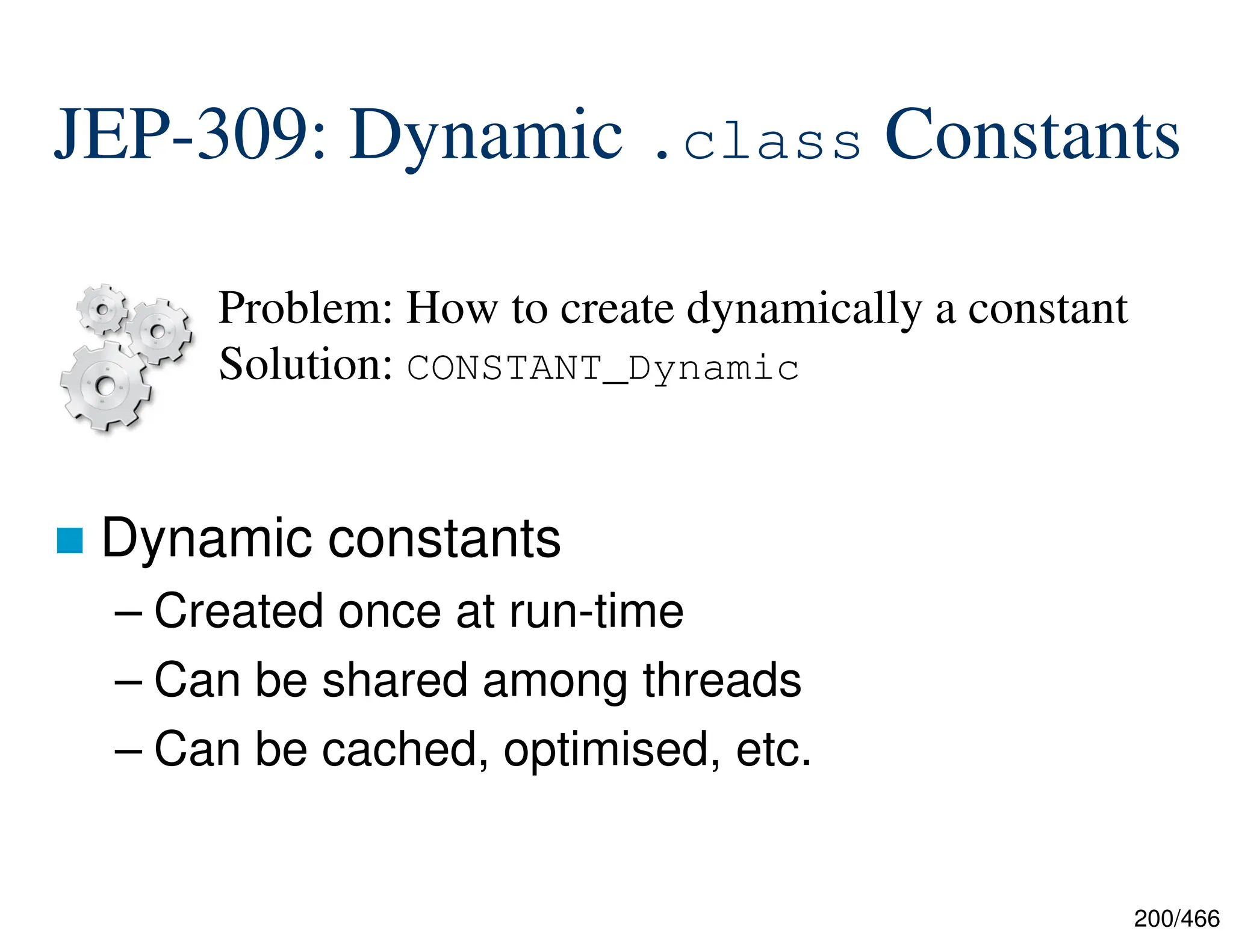
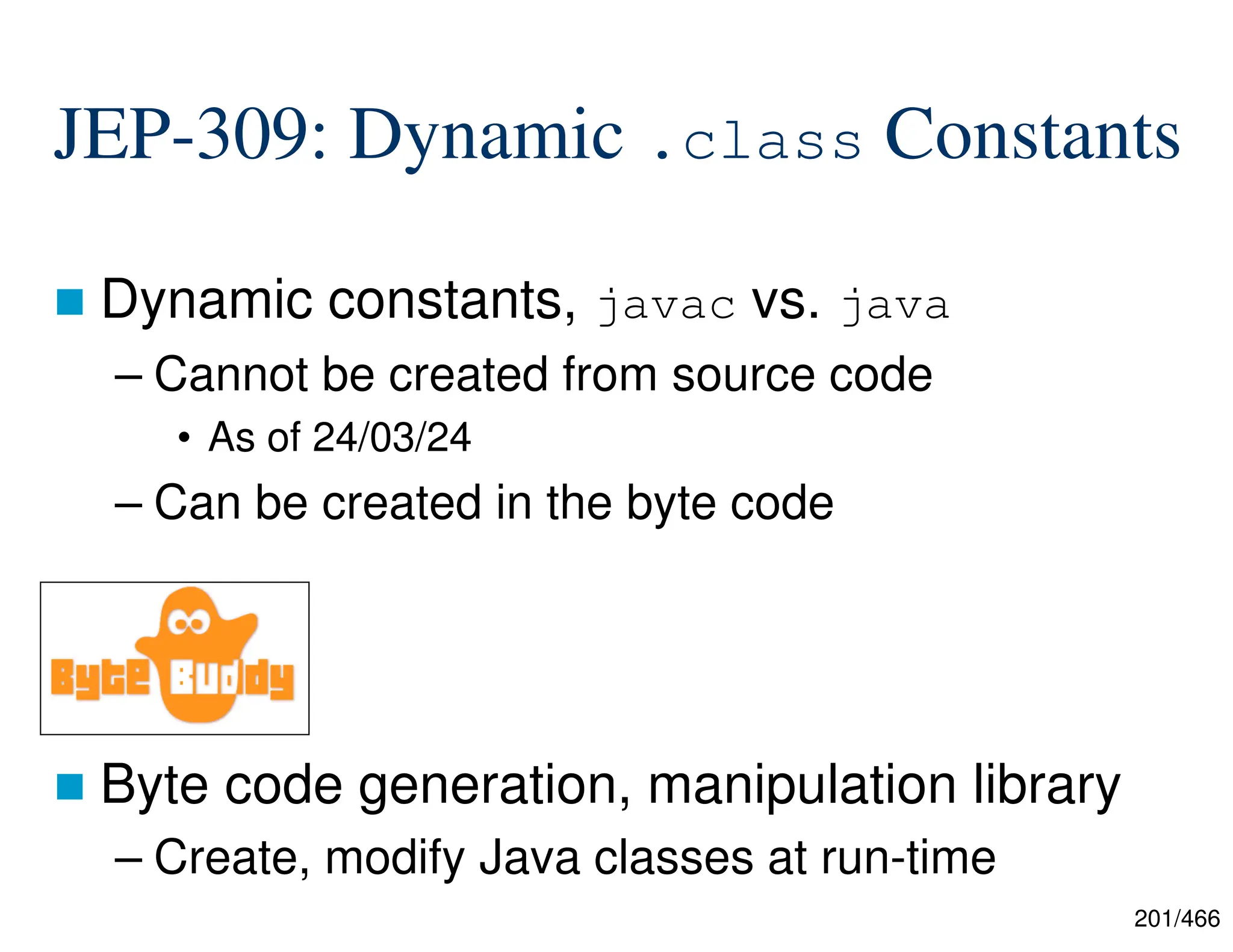
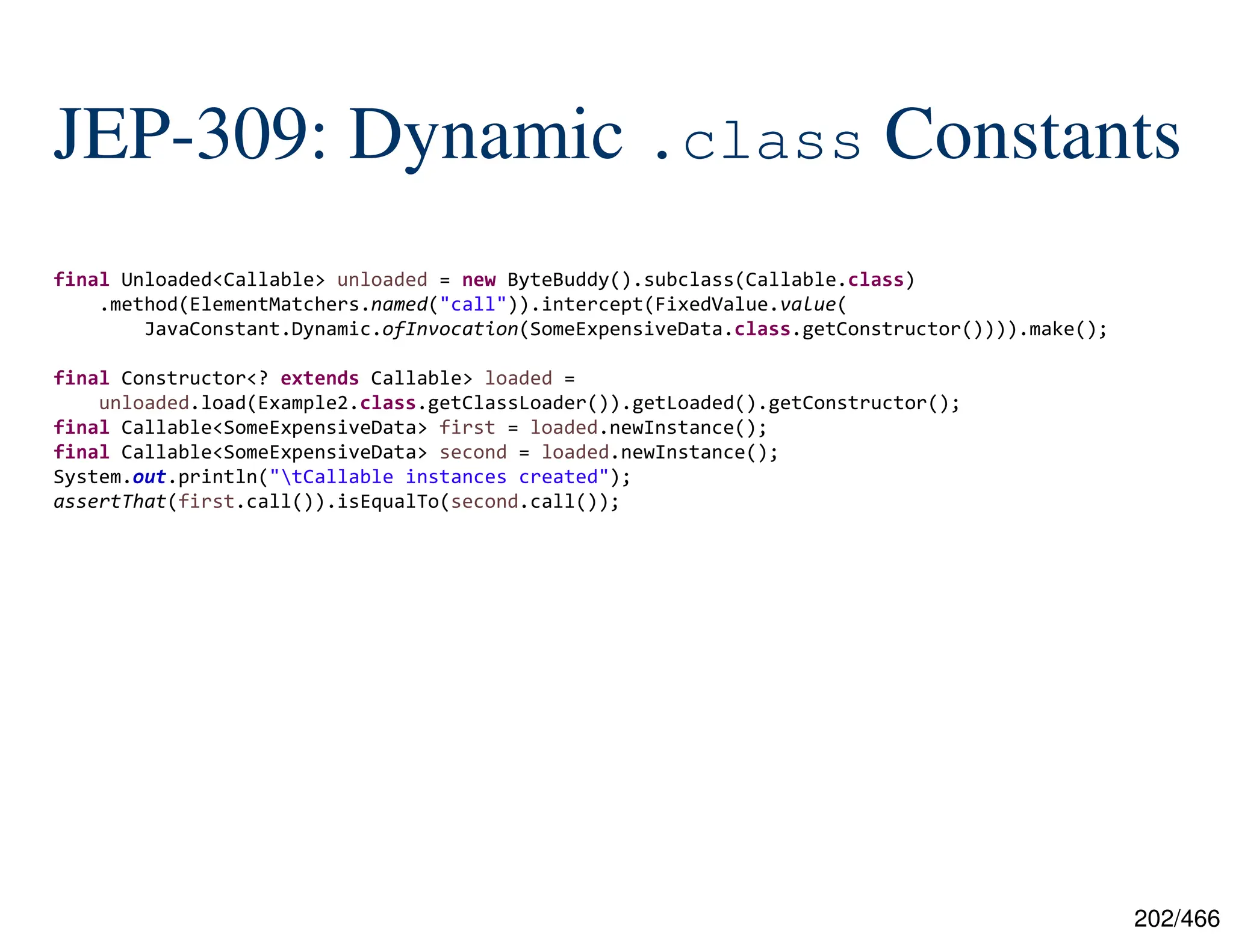
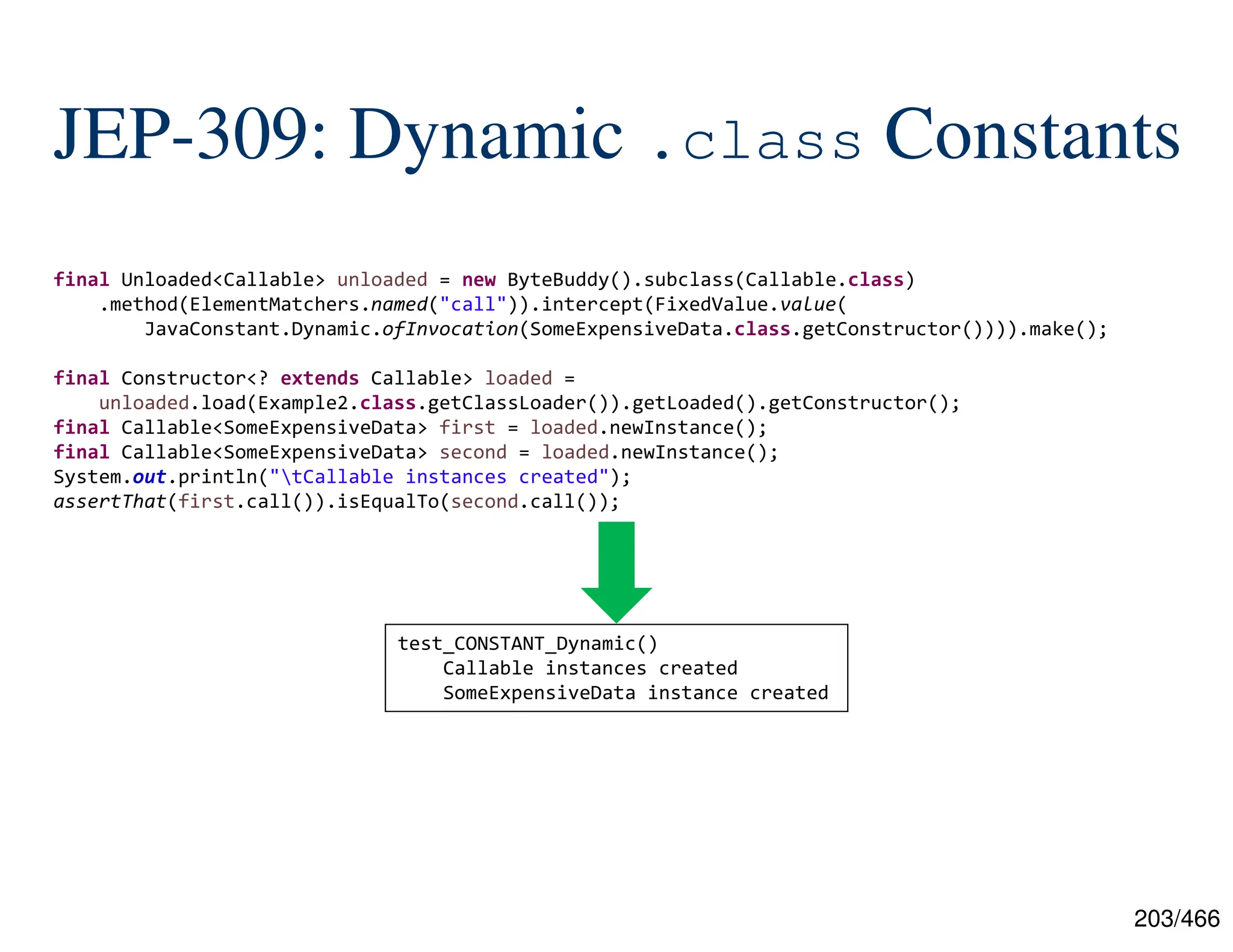
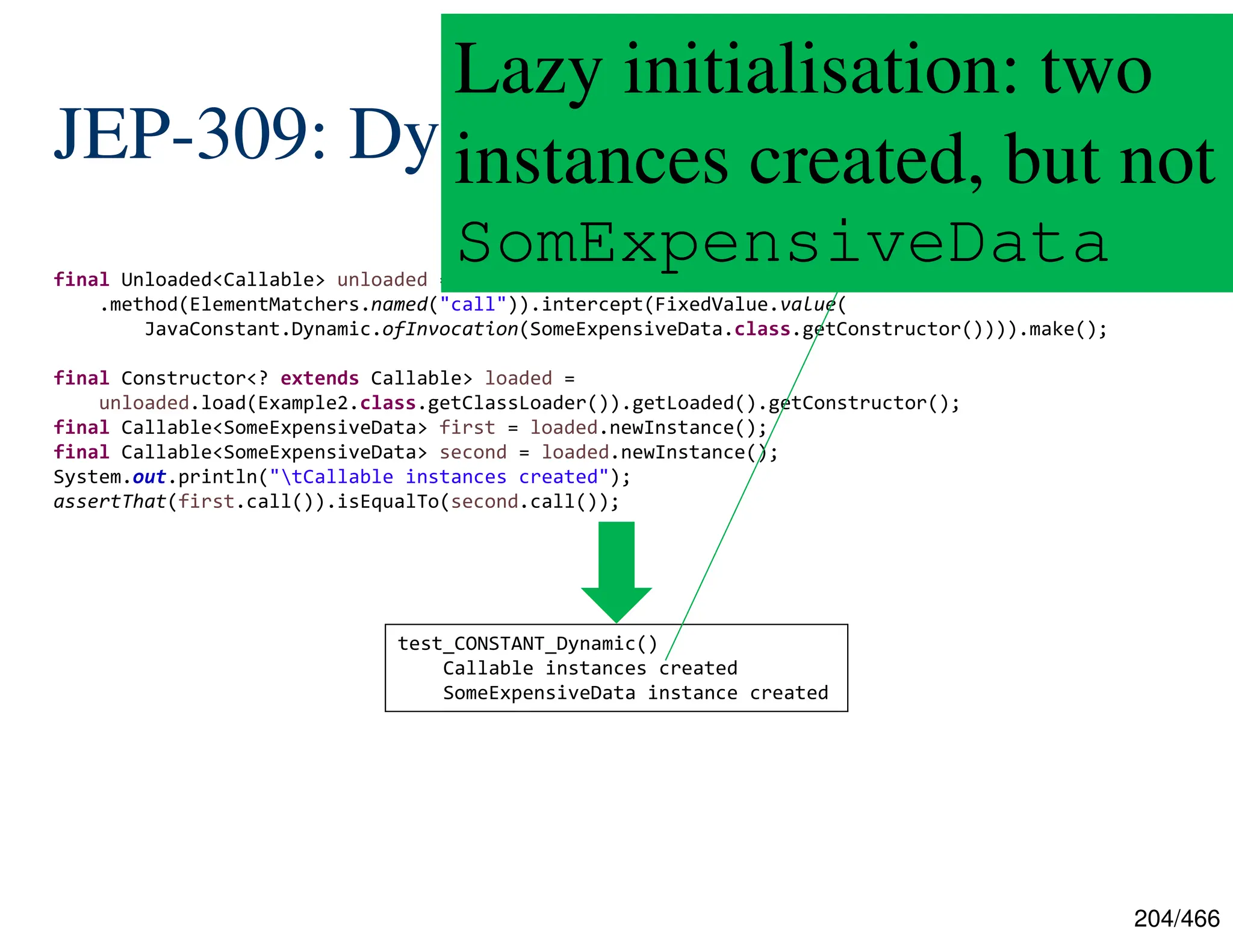
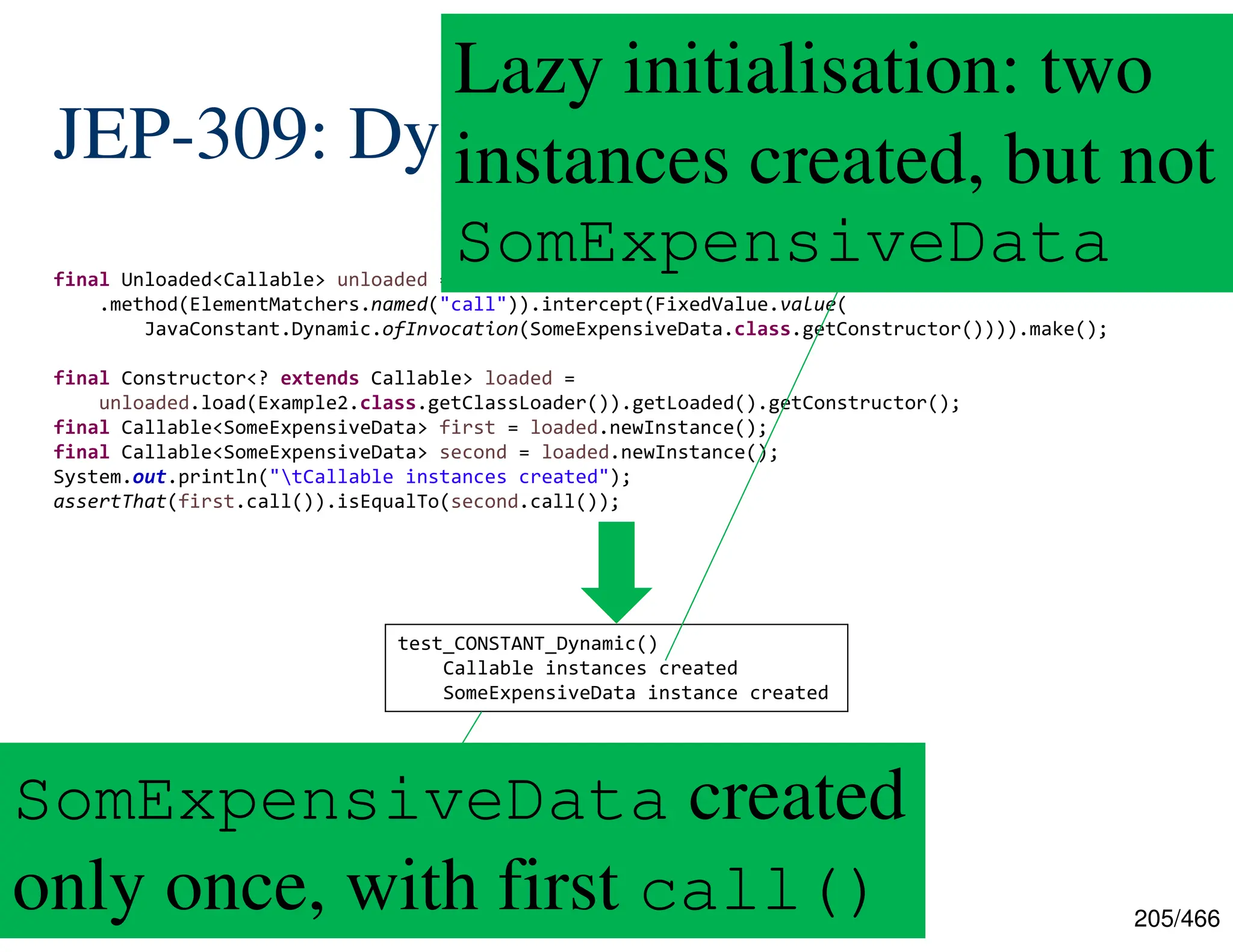
![206/466 JEP-309: Dynamic .class Constants final Unloaded<Callable> unloaded = new ByteBuddy().subclass(Callable.class) .method(ElementMatchers.named("call")).intercept(FixedValue.value( JavaConstant.Dynamic.ofInvocation(SomeExpensiveData.class.getConstructor()))).make(); final Constructor<? extends Callable> loaded = unloaded.load(Example2.class.getClassLoader()).getLoaded().getConstructor(); final Callable<SomeExpensiveData> first = loaded.newInstance(); final Callable<SomeExpensiveData> second = loaded.newInstance(); System.out.println("tCallable instances created"); assertThat(first.call()).isEqualTo(second.call()); // (version 17 : 61.0, super bit) public class net.bytebuddy.[...].Callable$ByteBuddy$7xbn1EIQ implements java.util.concurrent.Callable public java.lang.Object call() throws java.lang.Exception; 0 ldc <Dynamic> 0 _ net.ptidej.newjava.constantdynamic.SomeExpensiveData [28] 2 areturn public Callable$ByteBuddy$7xbn1EIQ(); 0 aload_0 [this] 1 invokespecial java.lang.Object() [29] 4 return Bootstrap methods: 0 : # 24 invokestatic java/lang/invoke/ConstantBootstraps.invoke:([...])Ljava/lang/Object; Method arguments: #17 net/ptidej/newjava/constantdynamic/SomeExpensiveData.<init>:()V](https://image.slidesharecdn.com/newjavav0-250327235127-ec555181/75/Evolution-and-Examples-of-Java-Features-from-Java-1-7-to-Java-24-206-2048.jpg)
![207/466 JEP-309: Dynamic .class Constants final Unloaded<Callable> unloaded = new ByteBuddy().subclass(Callable.class) .method(ElementMatchers.named("call")).intercept(FixedValue.value( JavaConstant.Dynamic.ofInvocation(SomeExpensiveData.class.getConstructor()))).make(); final Constructor<? extends Callable> loaded = unloaded.load(Example2.class.getClassLoader()).getLoaded().getConstructor(); final Callable<SomeExpensiveData> first = loaded.newInstance(); final Callable<SomeExpensiveData> second = loaded.newInstance(); System.out.println("tCallable instances created"); assertThat(first.call()).isEqualTo(second.call()); // (version 17 : 61.0, super bit) public class net.bytebuddy.[...].Callable$ByteBuddy$7xbn1EIQ implements java.util.concurrent.Callable public java.lang.Object call() throws java.lang.Exception; 0 ldc <Dynamic> 0 _ net.ptidej.newjava.constantdynamic.SomeExpensiveData [28] 2 areturn public Callable$ByteBuddy$7xbn1EIQ(); 0 aload_0 [this] 1 invokespecial java.lang.Object() [29] 4 return Bootstrap methods: 0 : # 24 invokestatic java/lang/invoke/ConstantBootstraps.invoke:([...])Ljava/lang/Object; Method arguments: #17 net/ptidej/newjava/constantdynamic/SomeExpensiveData.<init>:()V CONSTANT_Dynamic with bootstrap method](https://image.slidesharecdn.com/newjavav0-250327235127-ec555181/75/Evolution-and-Examples-of-Java-Features-from-Java-1-7-to-Java-24-207-2048.jpg)
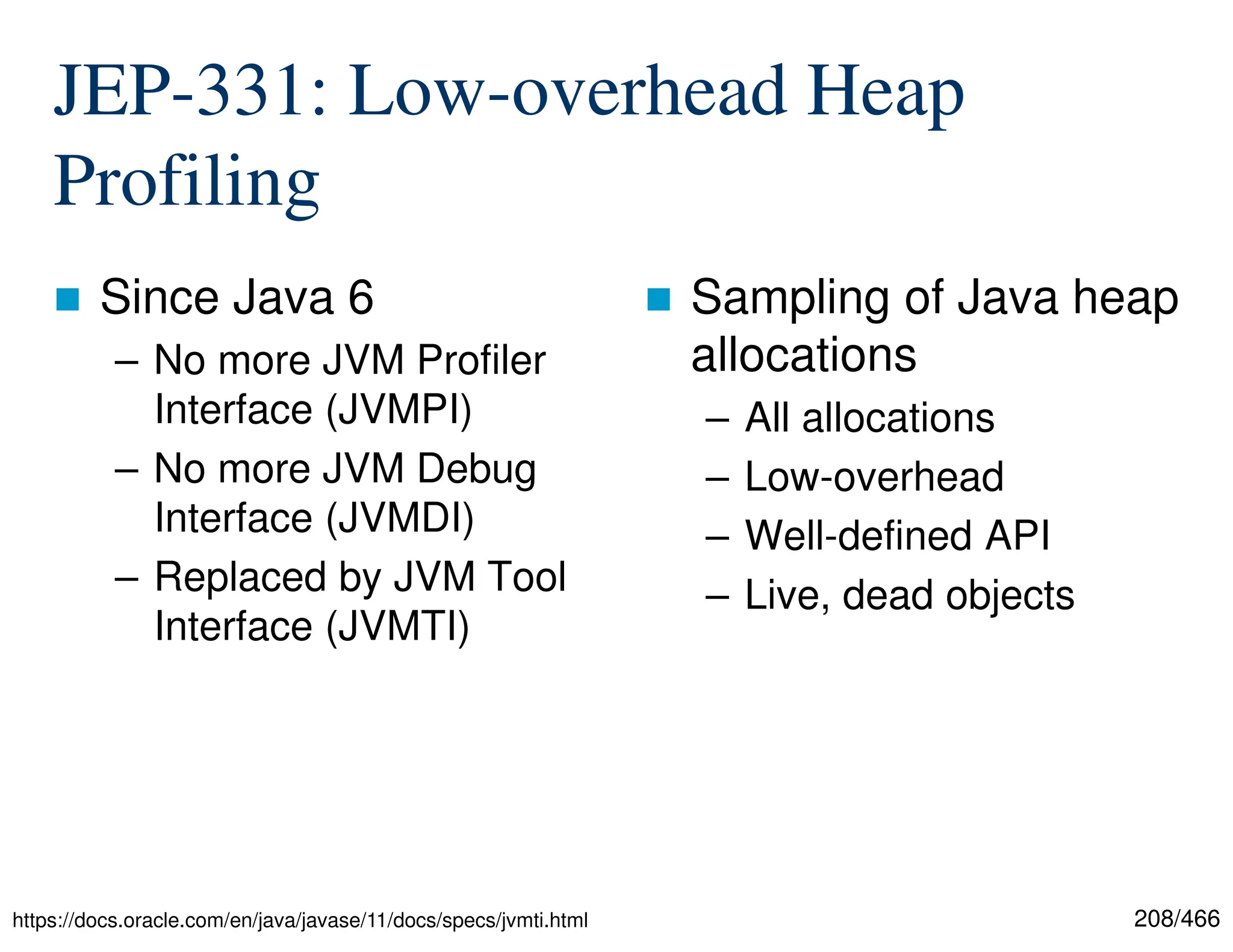
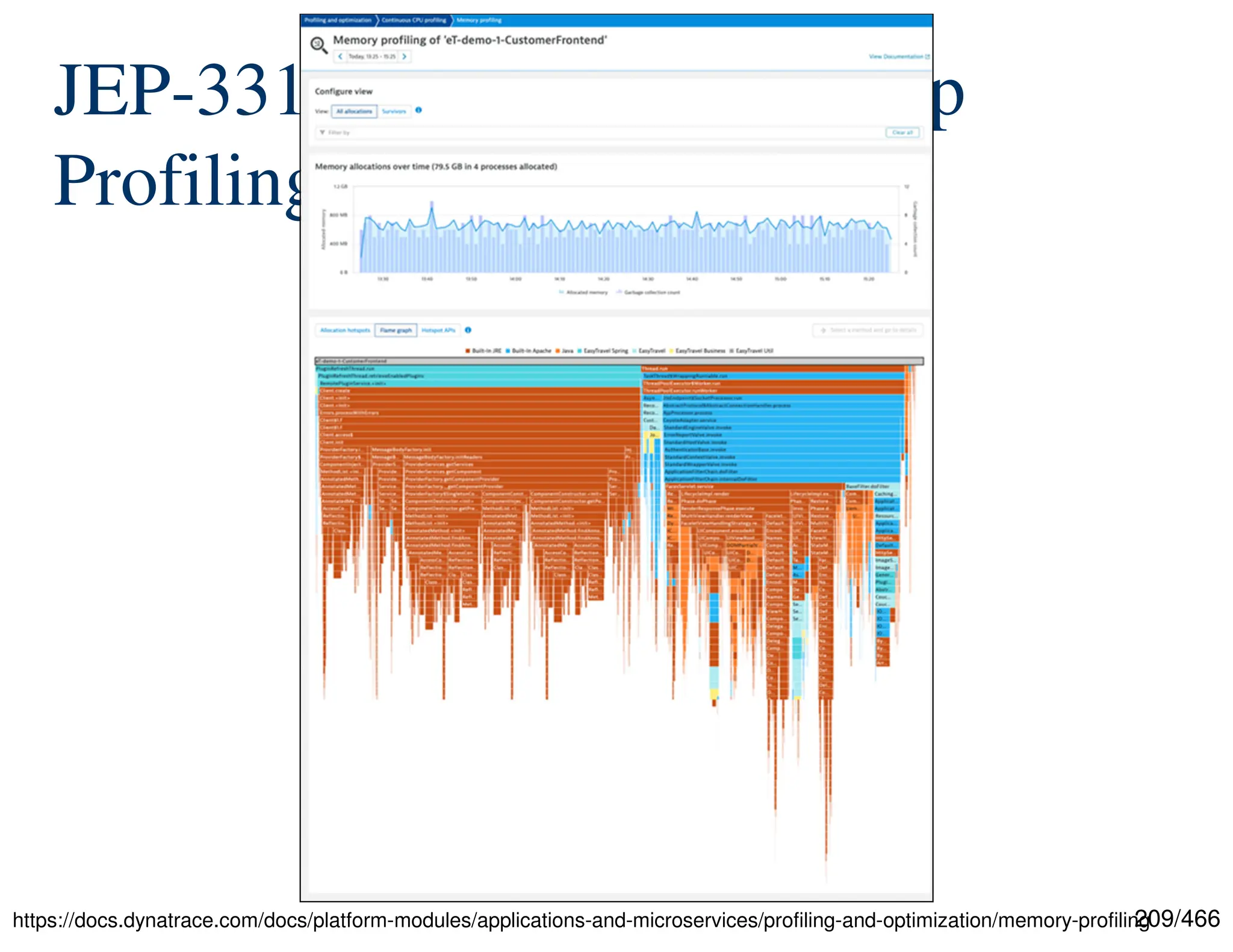
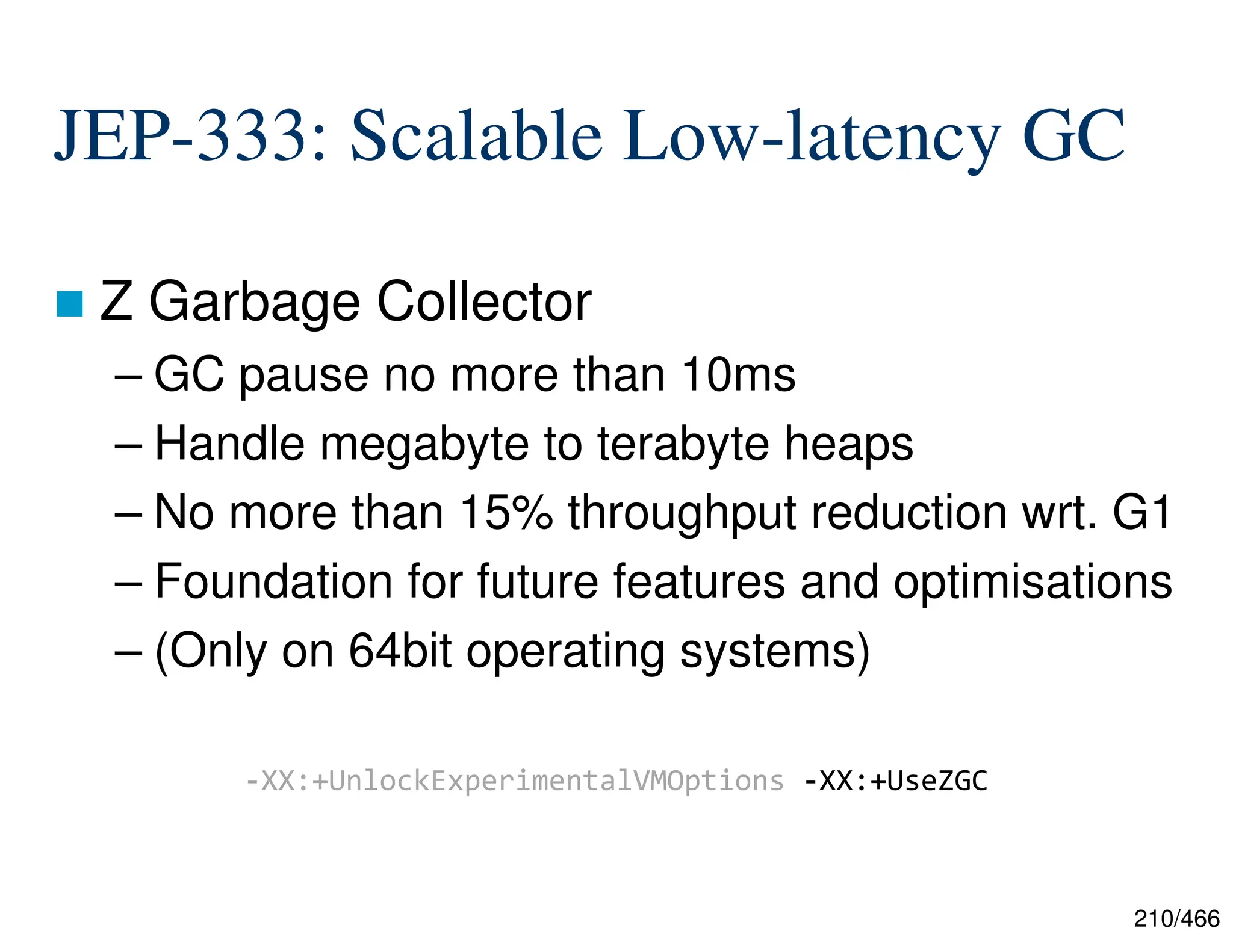

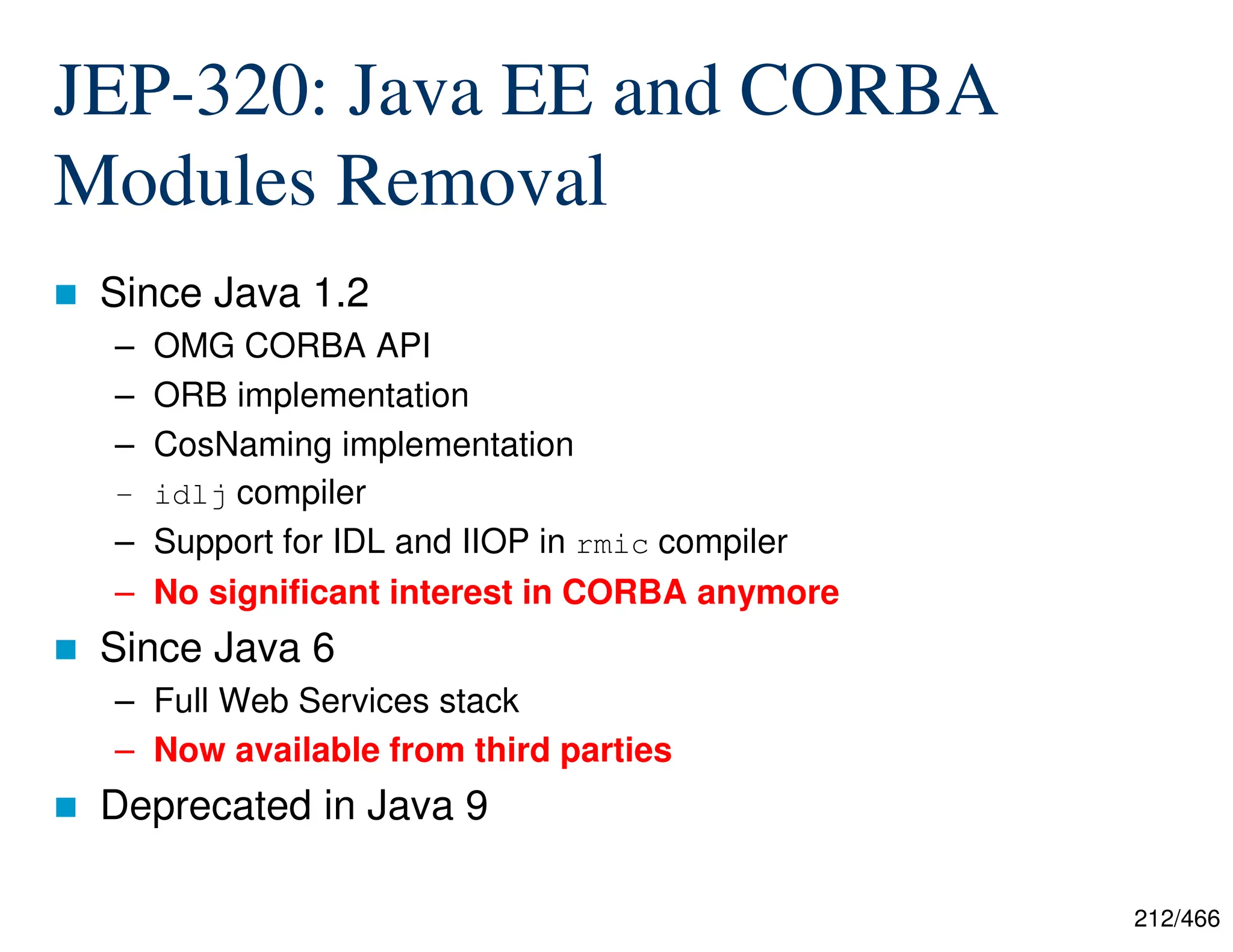
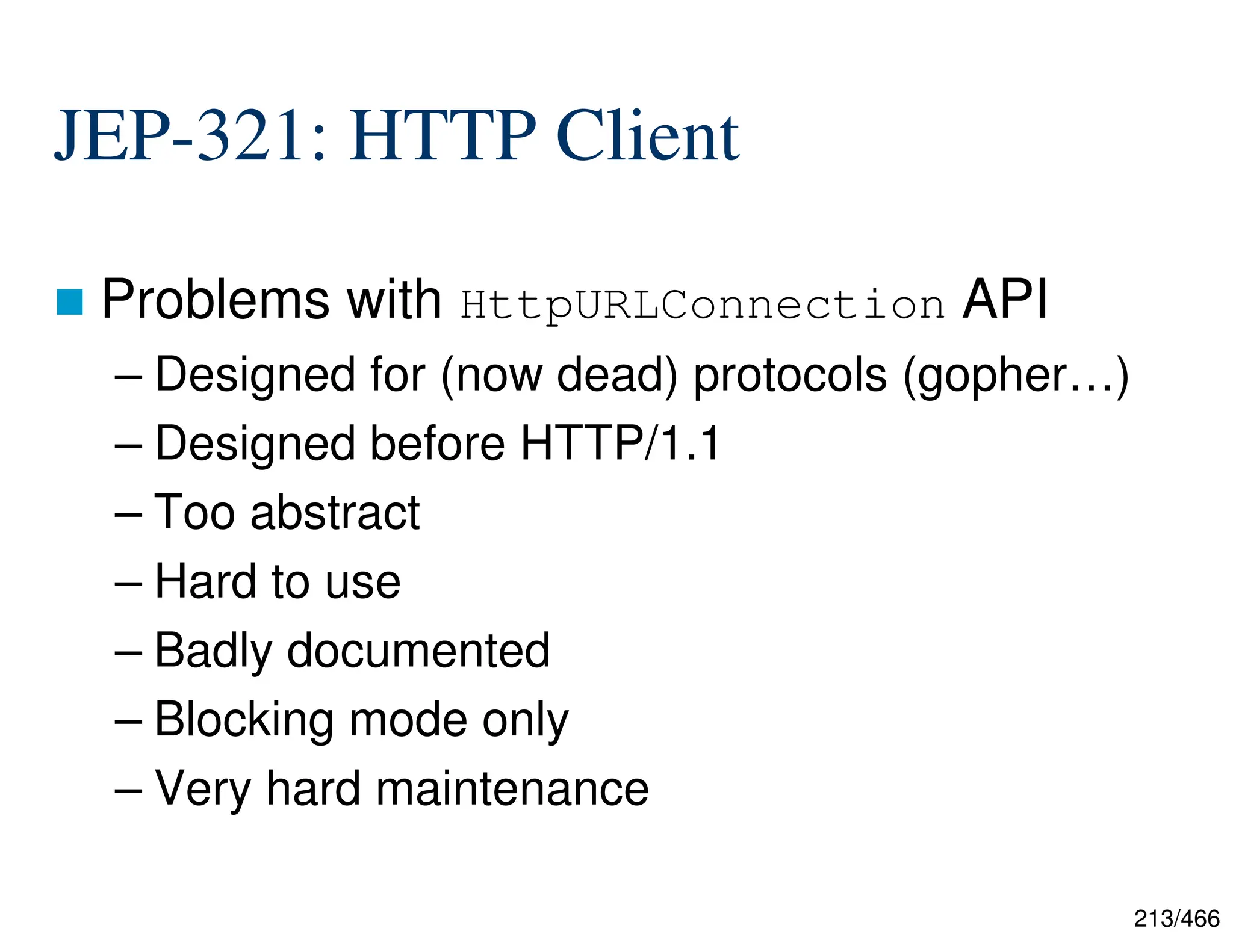
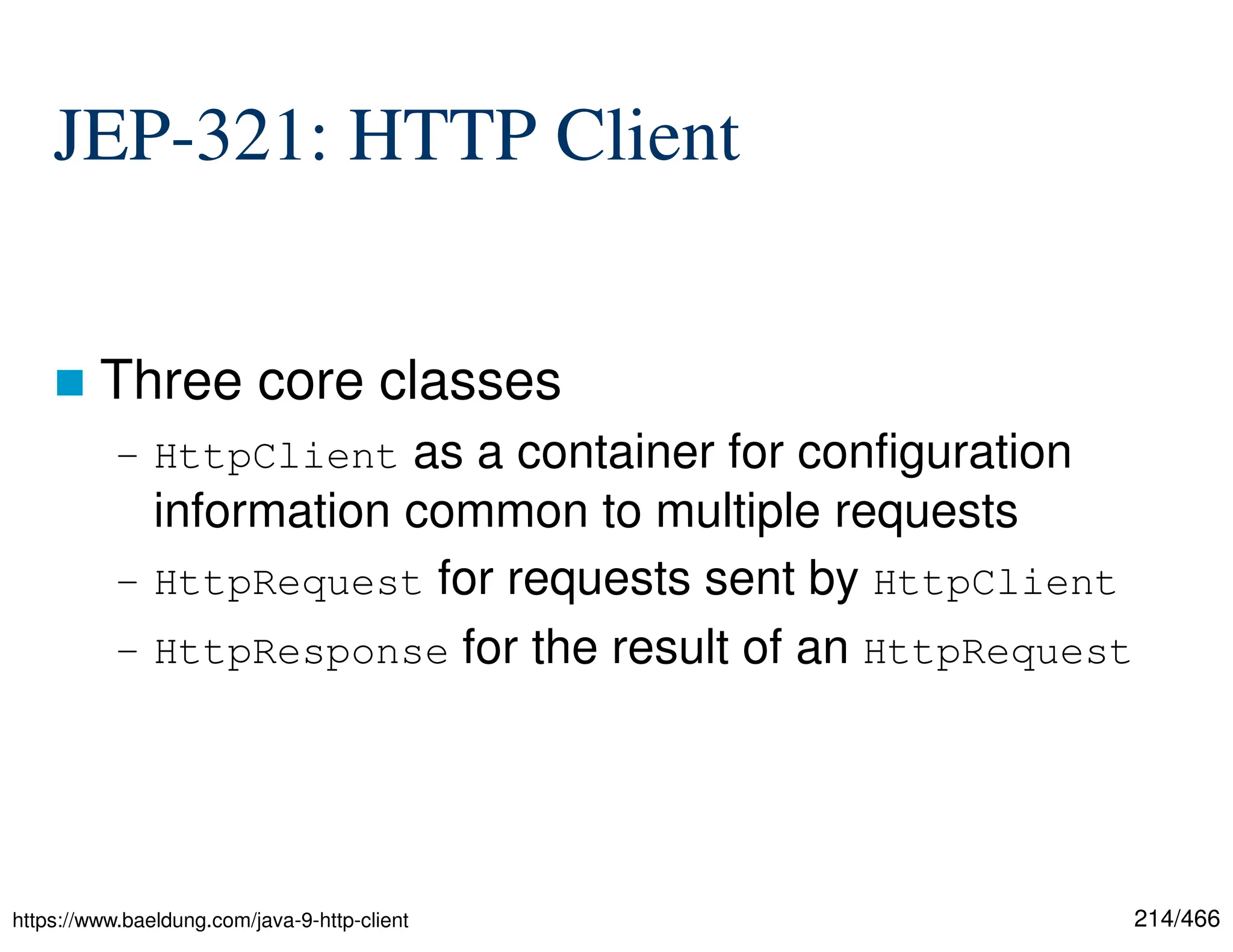
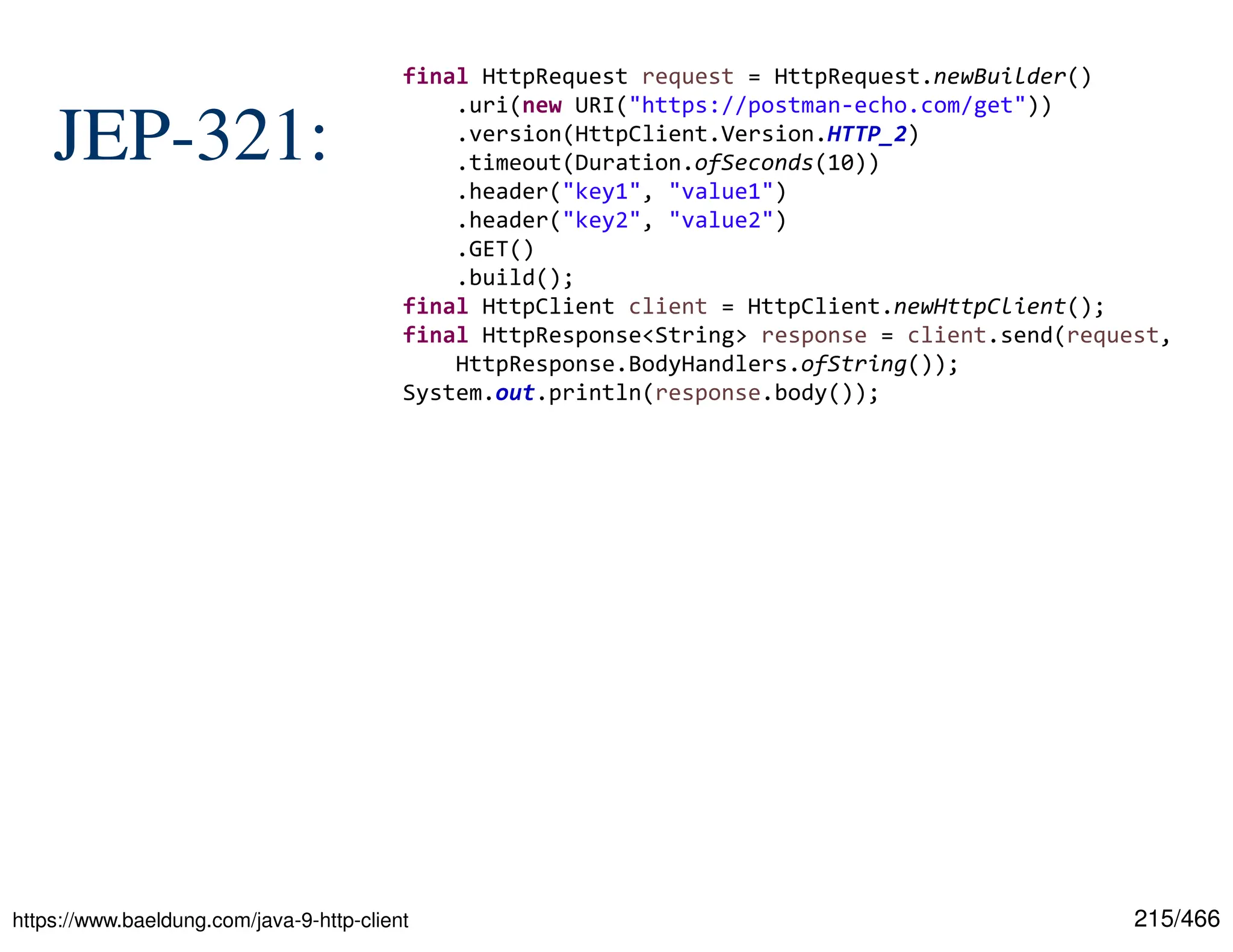
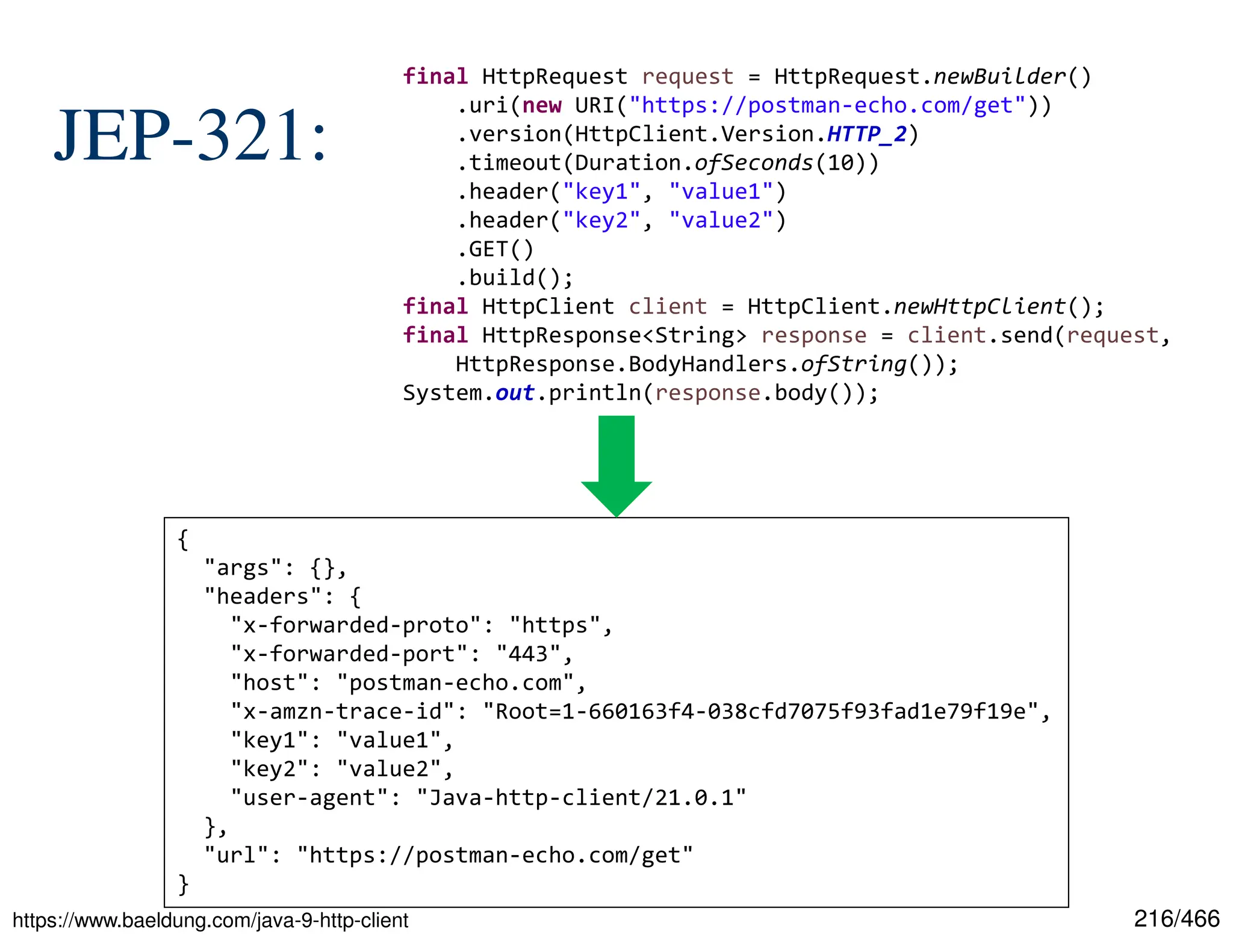
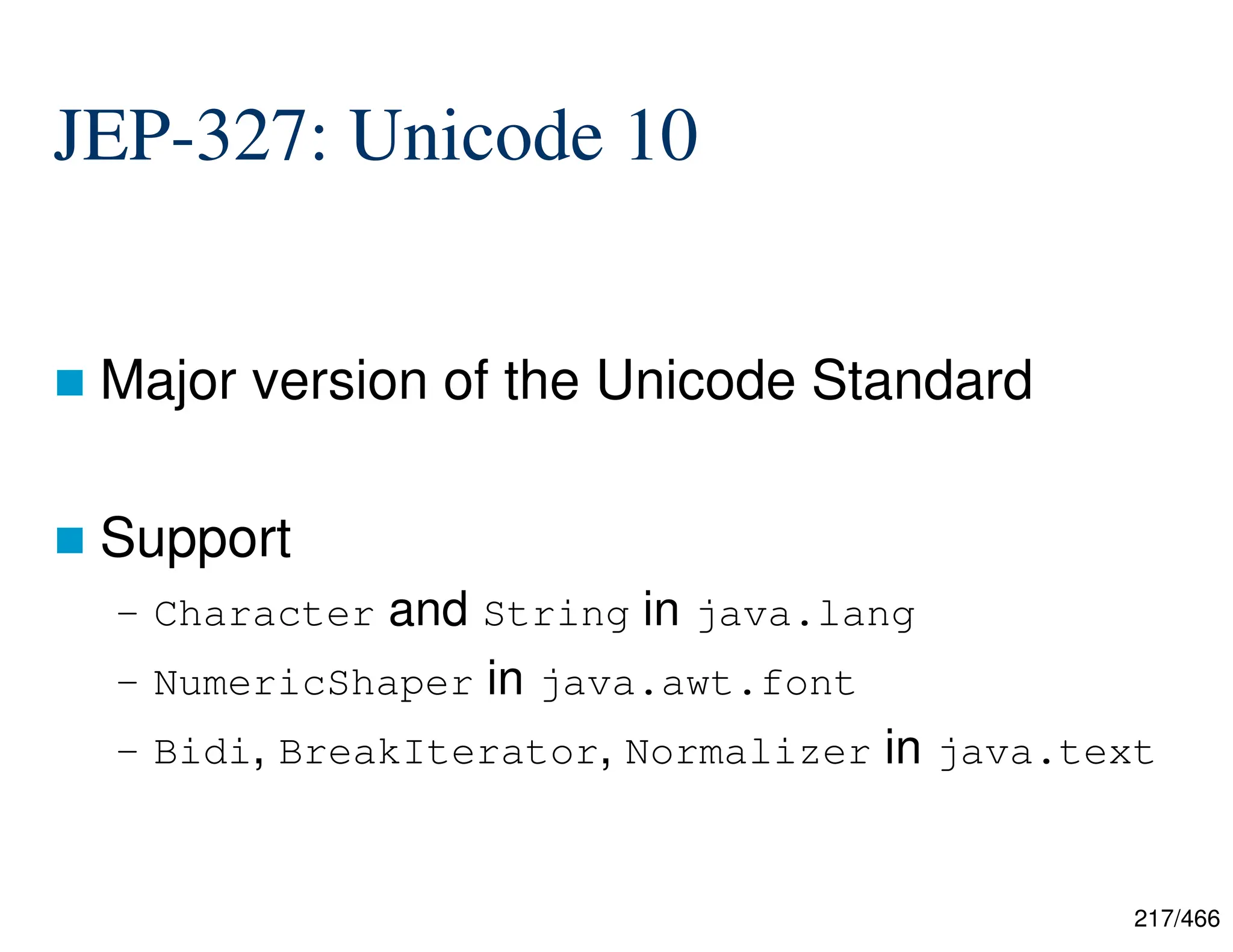
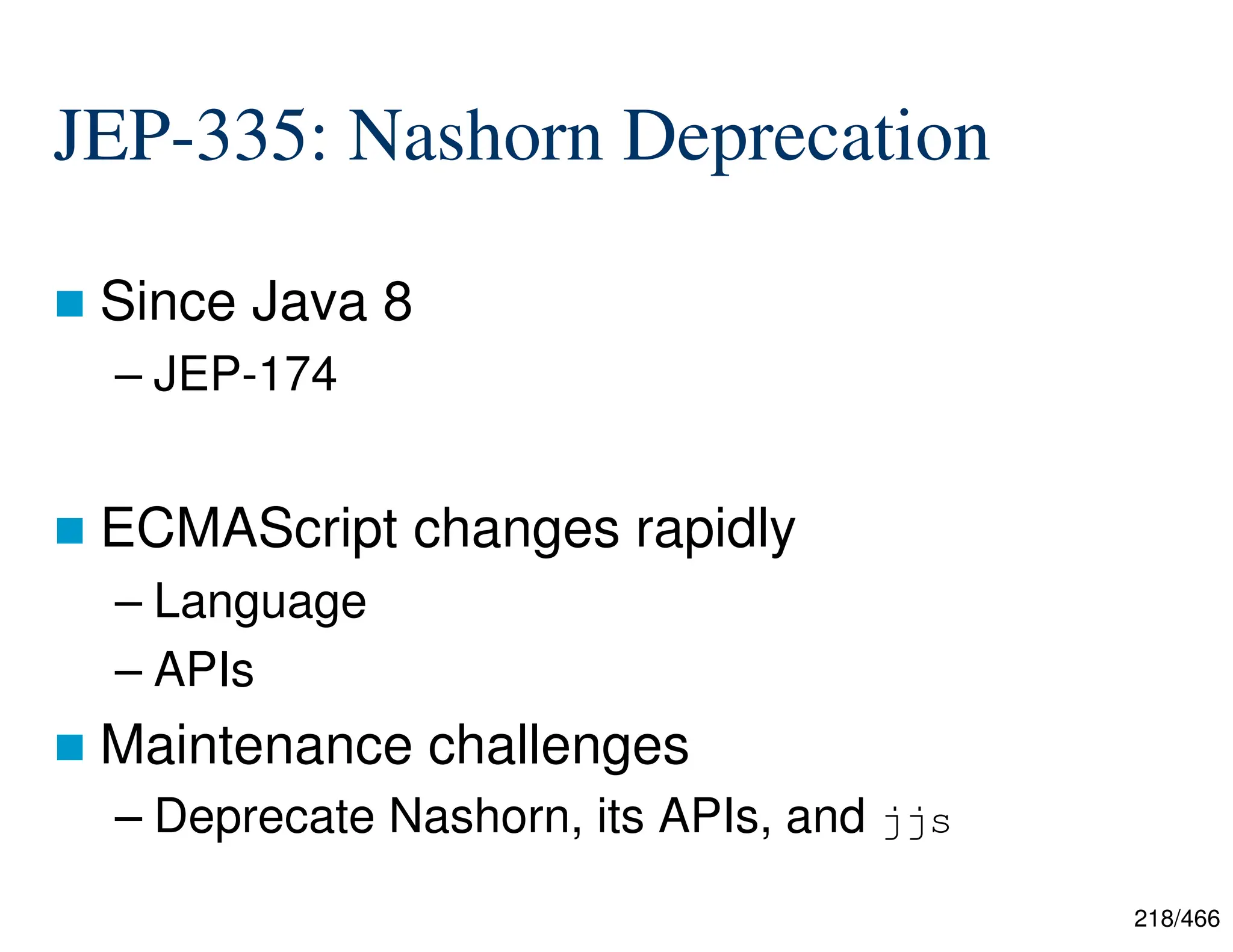

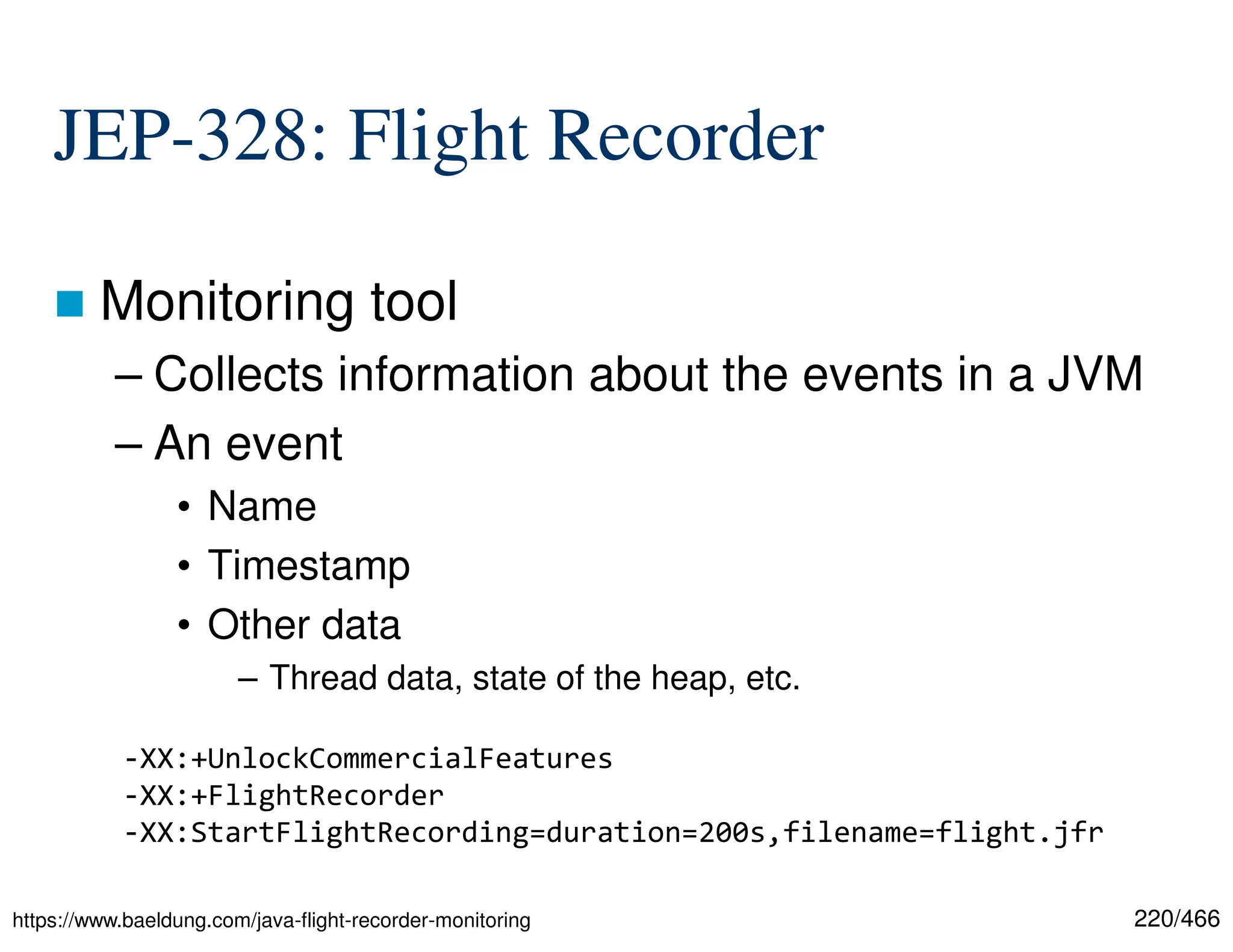
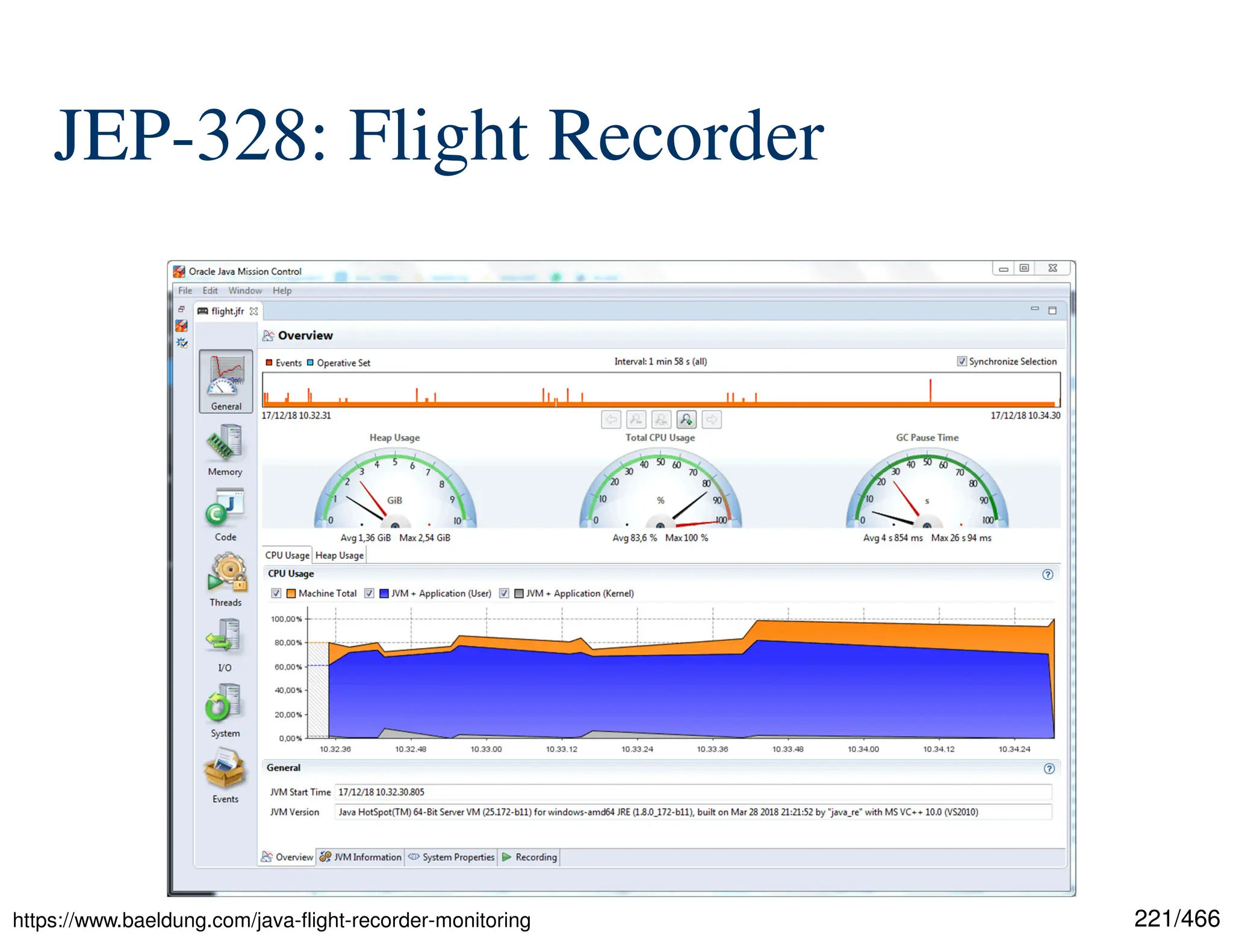
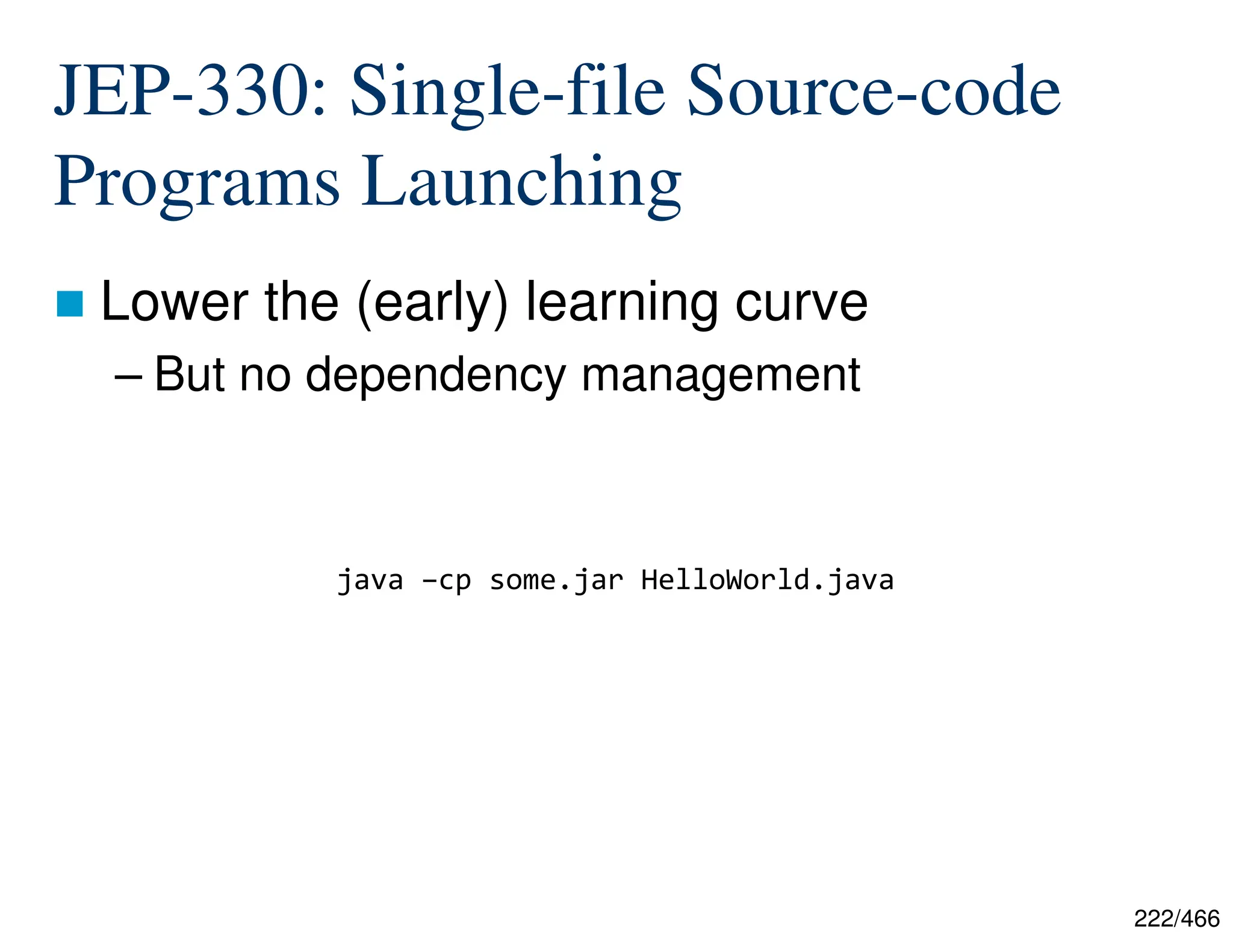
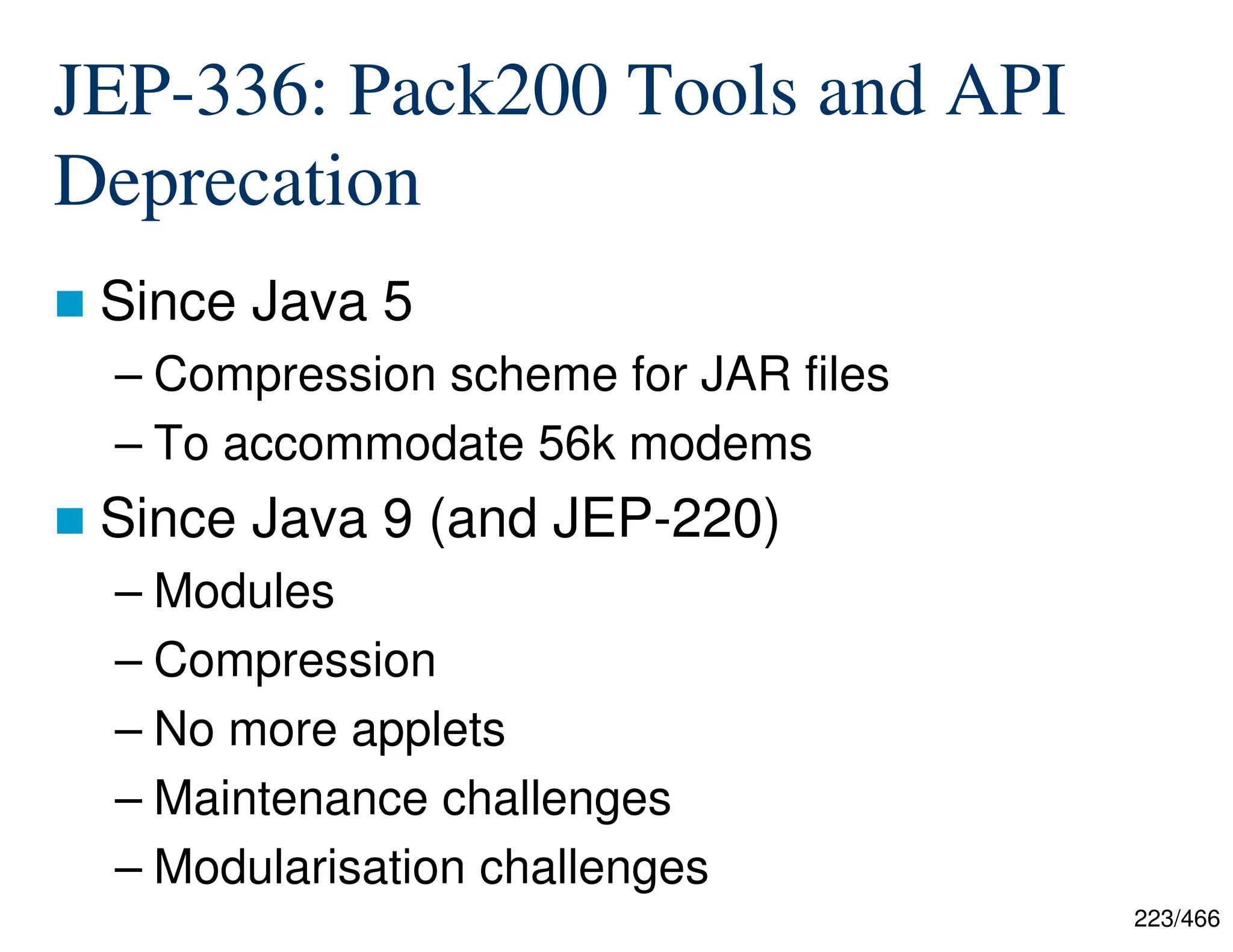
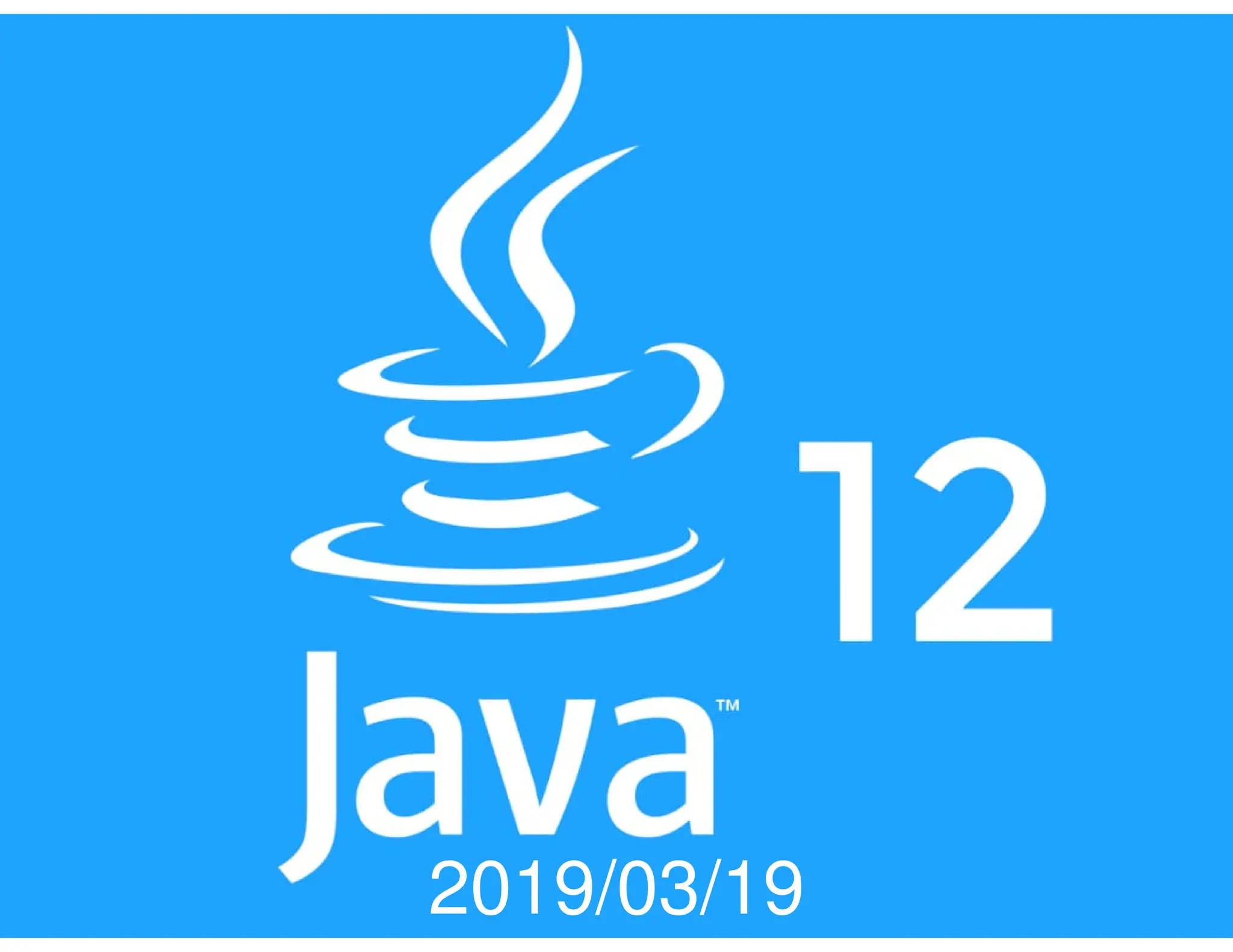



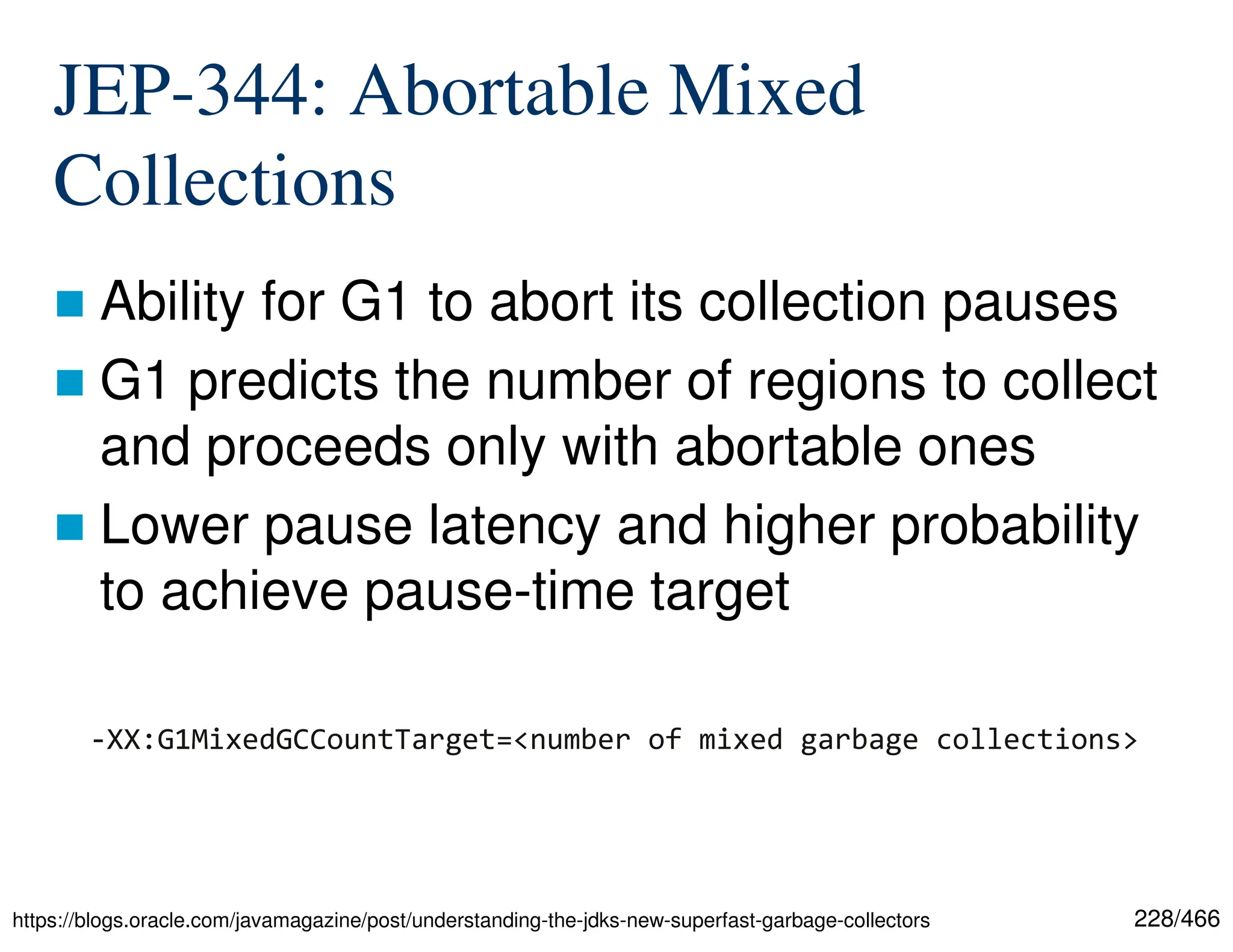
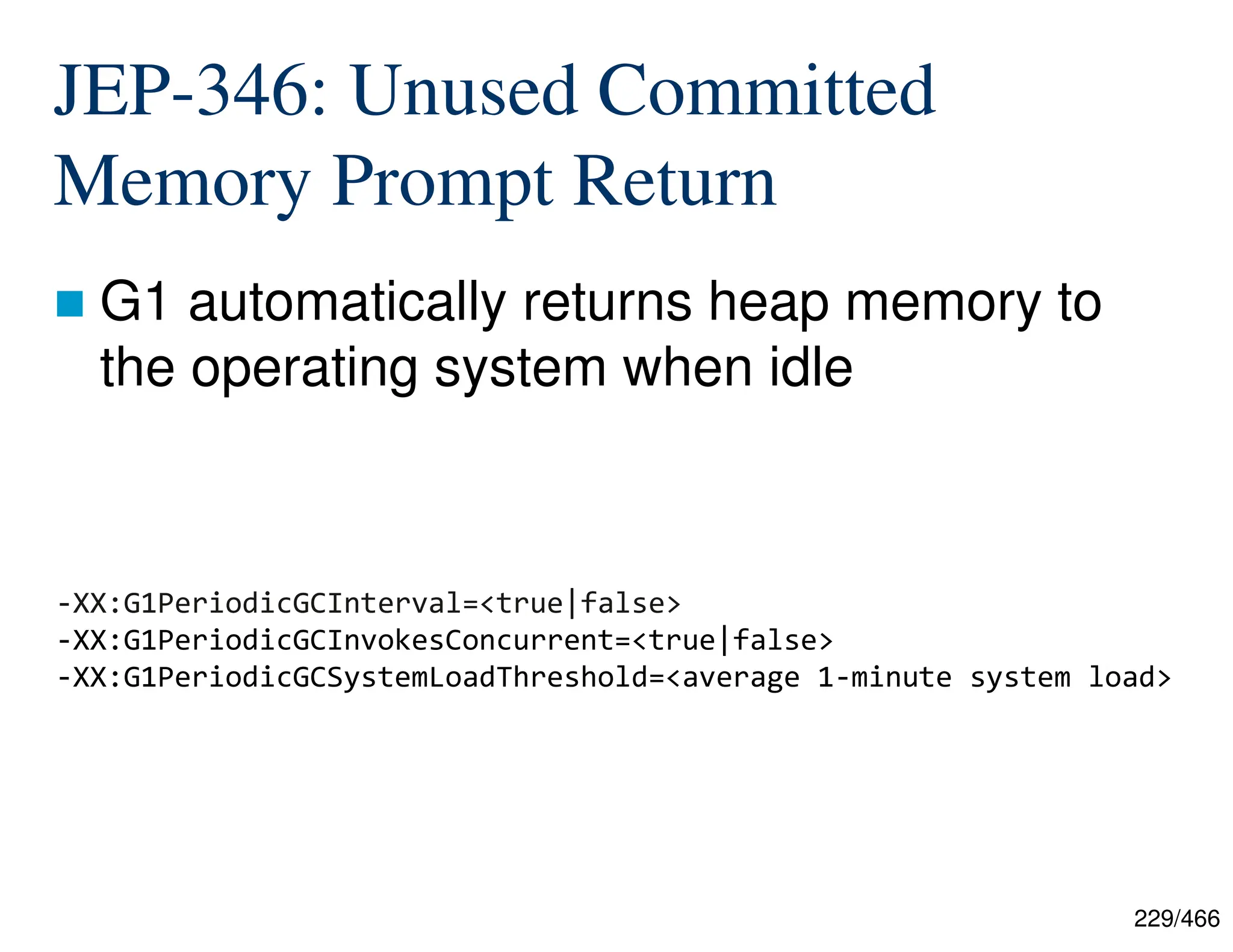

![231/466 JEP-334: JVM Constants API API to describes some class-file and run- time elements (e.g., constants) https://iampravo.medium.com/java-12-features-and-highlights-81938474cd31 public class Example1 { public static void main(final String[] args) { final ClassDesc example1ClassDesc = ClassDesc.of("[...].constantsapi", "Example1"); final MethodTypeDesc mainMethodTypeDesc = MethodTypeDesc.of(example1ClassDesc); final MethodHandleDesc mainMethodHandleDesc = MethodHandleDesc.ofMethod( DirectMethodHandleDesc.Kind.STATIC, example1ClassDesc, "main", mainMethodTypeDesc); System.out.println("Class descriptor: " + example1ClassDesc); System.out.println("Method type descriptor: " + mainMethodTypeDesc); System.out.println("Method handle descriptor: " + mainMethodHandleDesc); } }](https://image.slidesharecdn.com/newjavav0-250327235127-ec555181/75/Evolution-and-Examples-of-Java-Features-from-Java-1-7-to-Java-24-231-2048.jpg)
![232/466 JEP-334: JVM Constants API API to describes some class-file and run- time elements (e.g., constants) https://iampravo.medium.com/java-12-features-and-highlights-81938474cd31 public class Example1 { public static void main(final String[] args) { final ClassDesc example1ClassDesc = ClassDesc.of("[...].constantsapi", "Example1"); final MethodTypeDesc mainMethodTypeDesc = MethodTypeDesc.of(example1ClassDesc); final MethodHandleDesc mainMethodHandleDesc = MethodHandleDesc.ofMethod( DirectMethodHandleDesc.Kind.STATIC, example1ClassDesc, "main", mainMethodTypeDesc); System.out.println("Class descriptor: " + example1ClassDesc); System.out.println("Method type descriptor: " + mainMethodTypeDesc); System.out.println("Method handle descriptor: " + mainMethodHandleDesc); } } Class descriptor: ClassDesc[Example1] Method type descriptor: MethodTypeDesc[()Example1] Method handle descriptor: MethodHandleDesc[STATIC/Example1::main()Example1]](https://image.slidesharecdn.com/newjavav0-250327235127-ec555181/75/Evolution-and-Examples-of-Java-Features-from-Java-1-7-to-Java-24-232-2048.jpg)

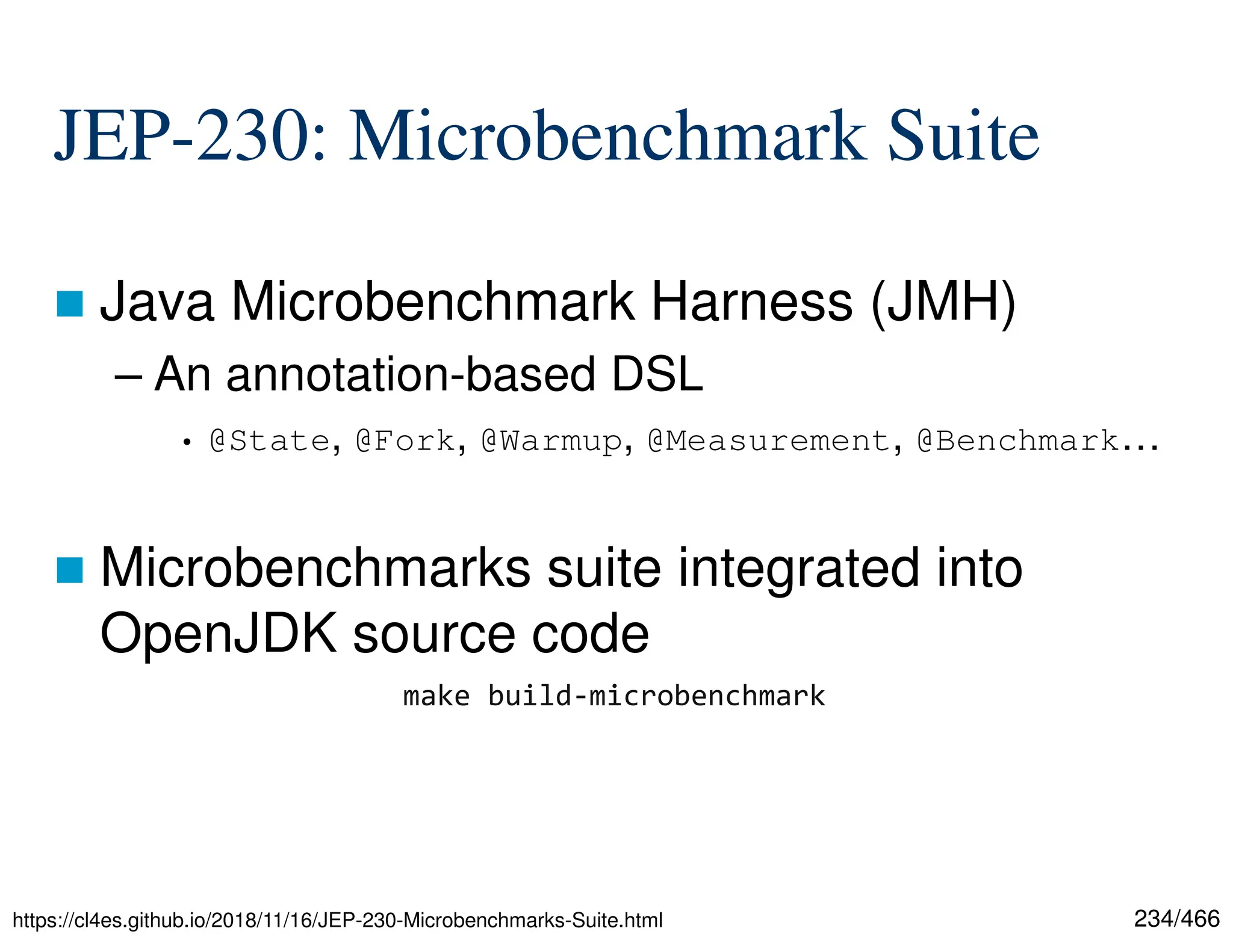
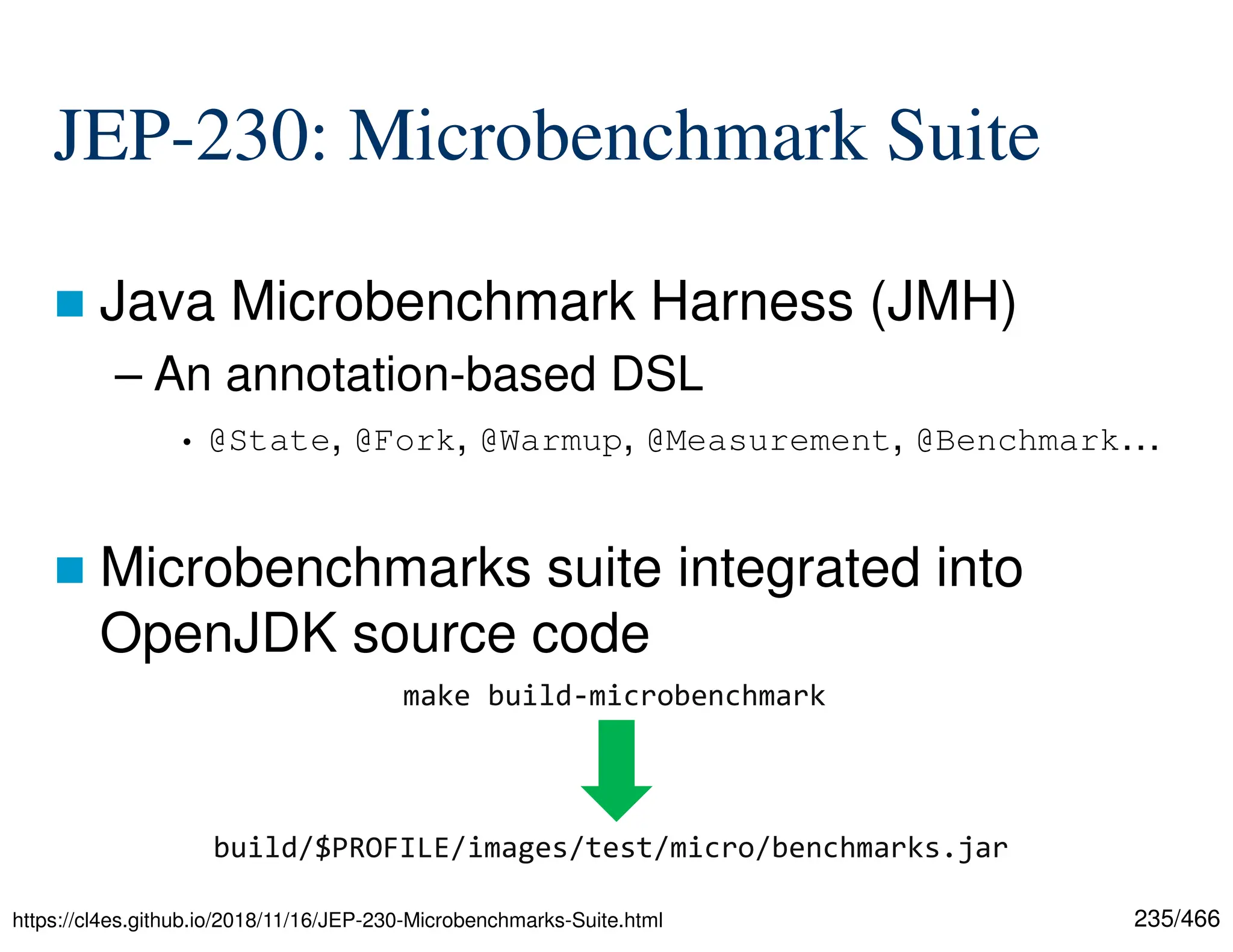
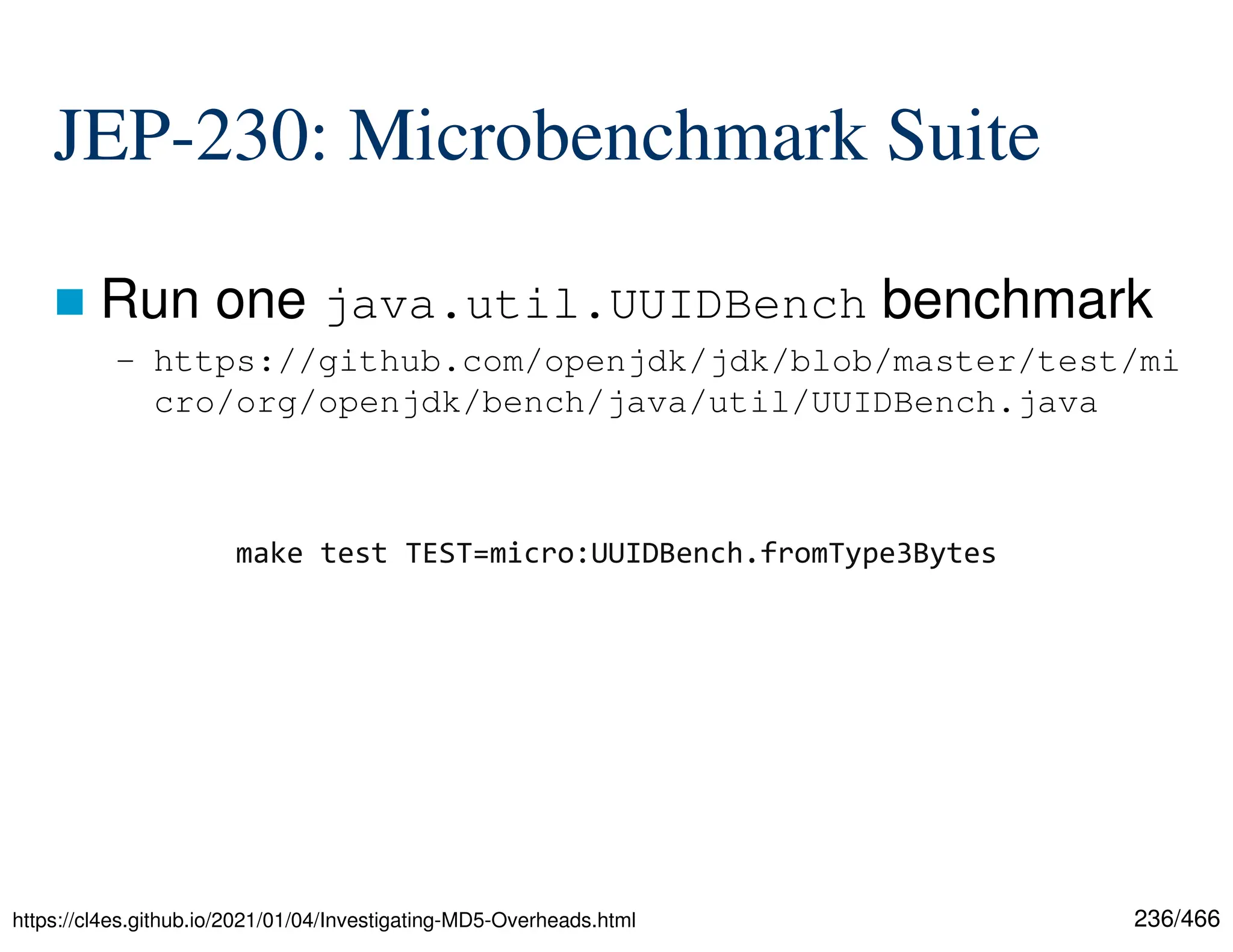
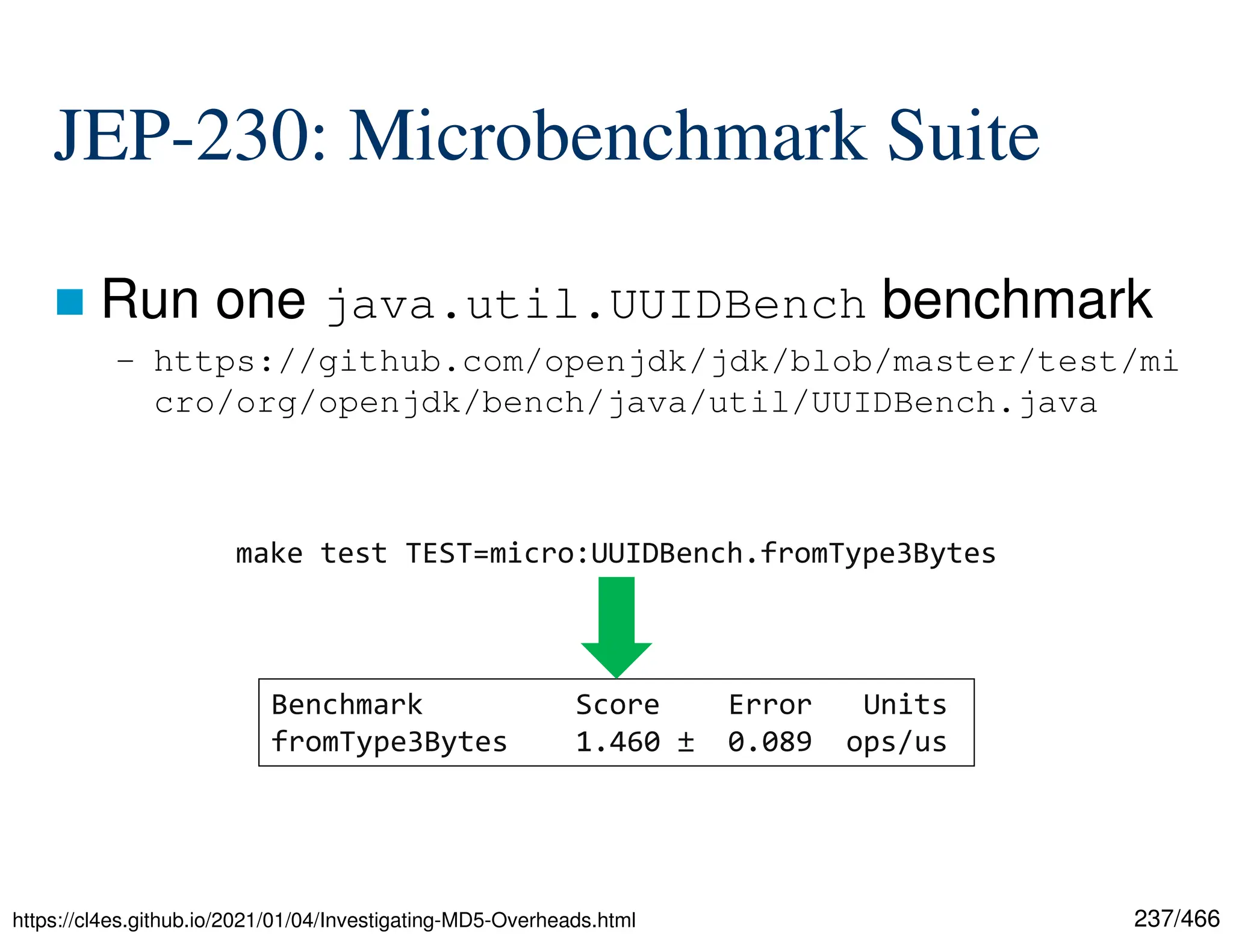
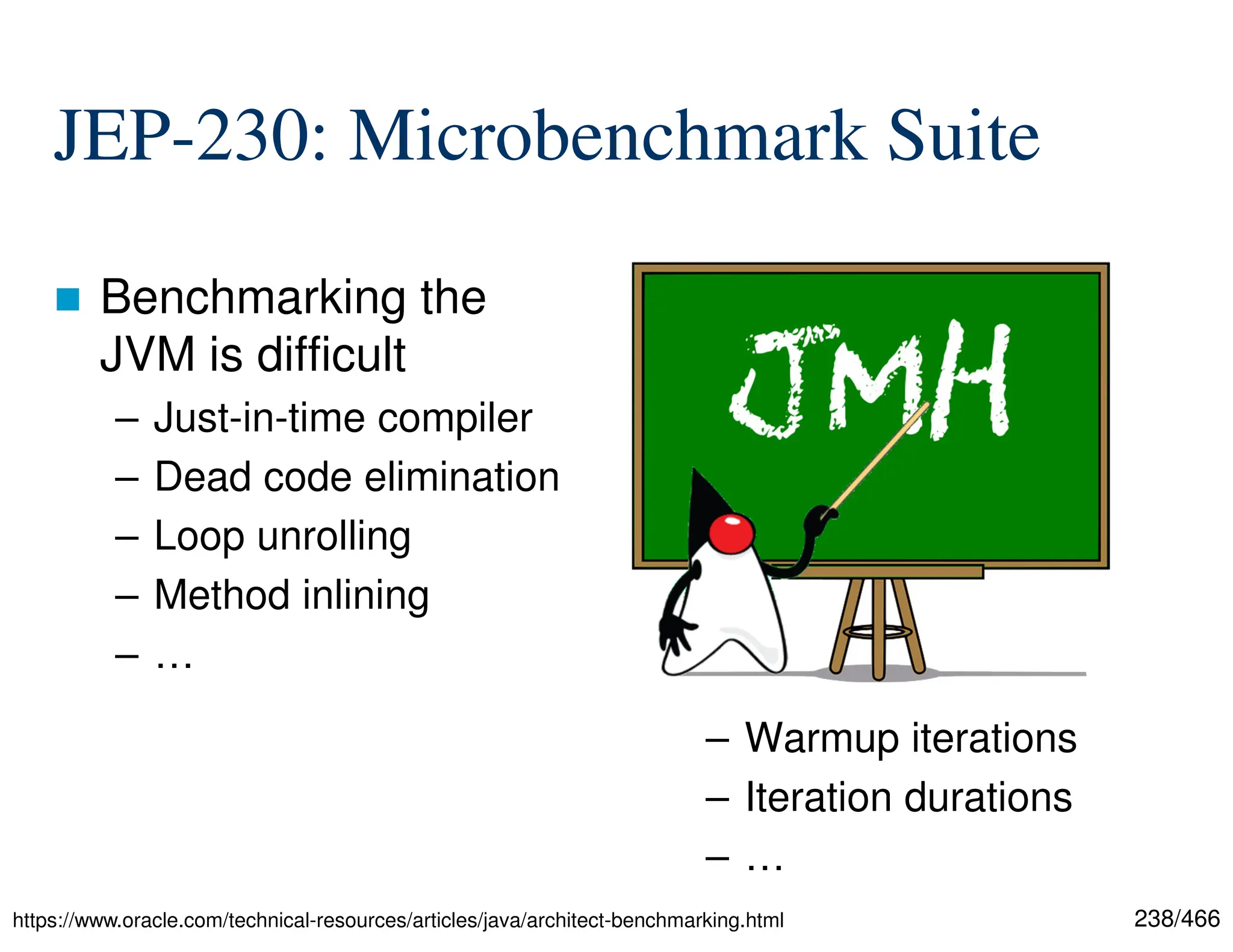
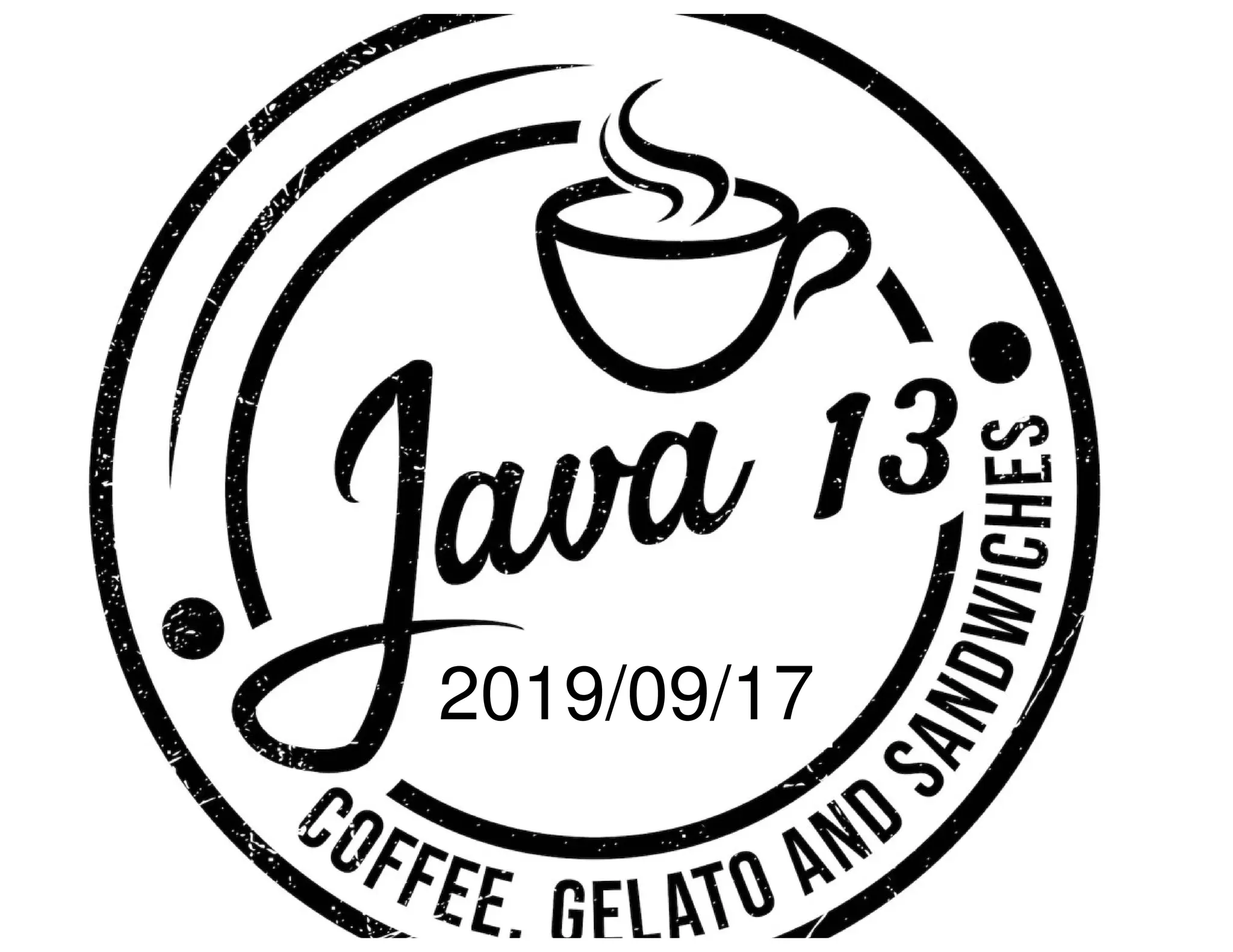



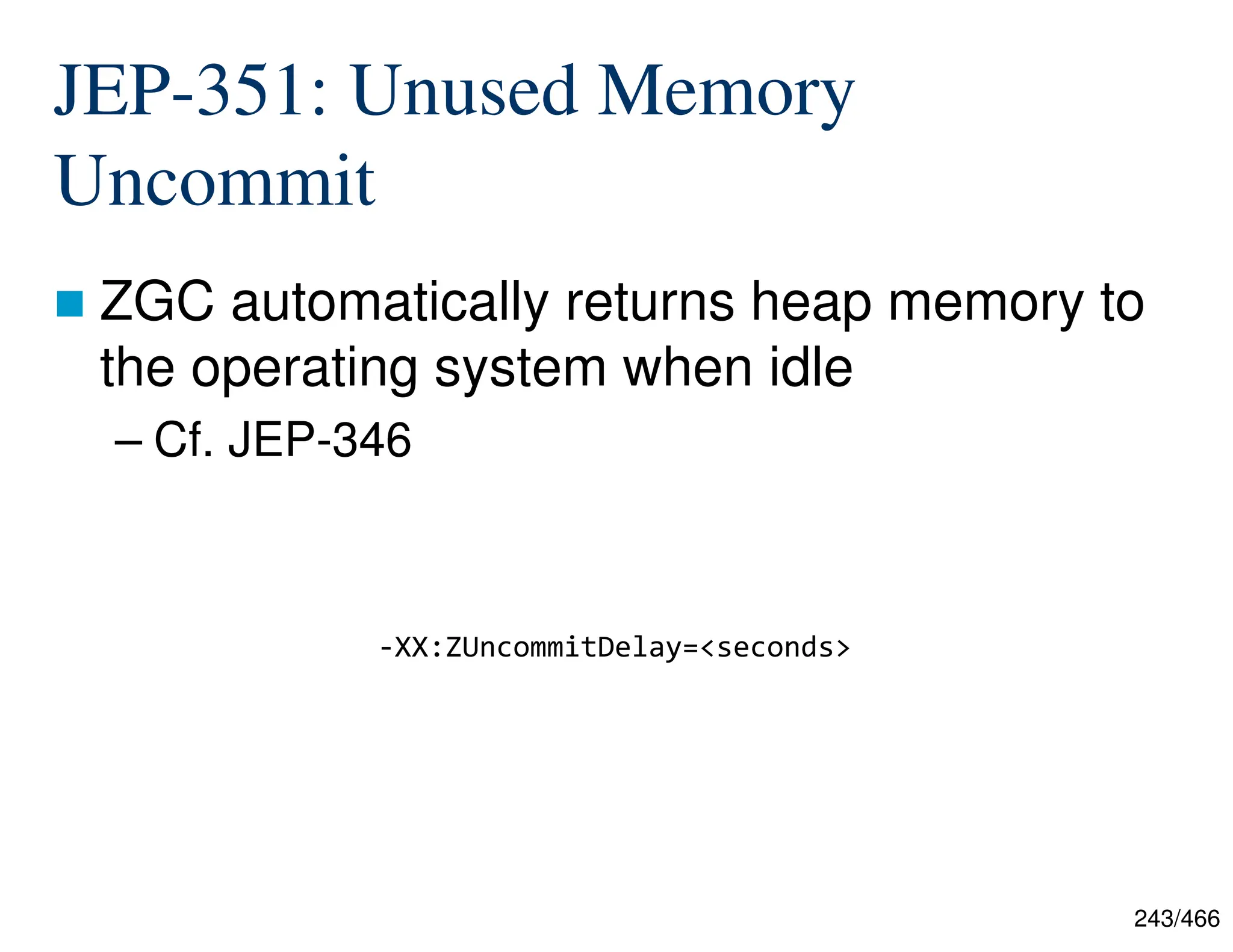

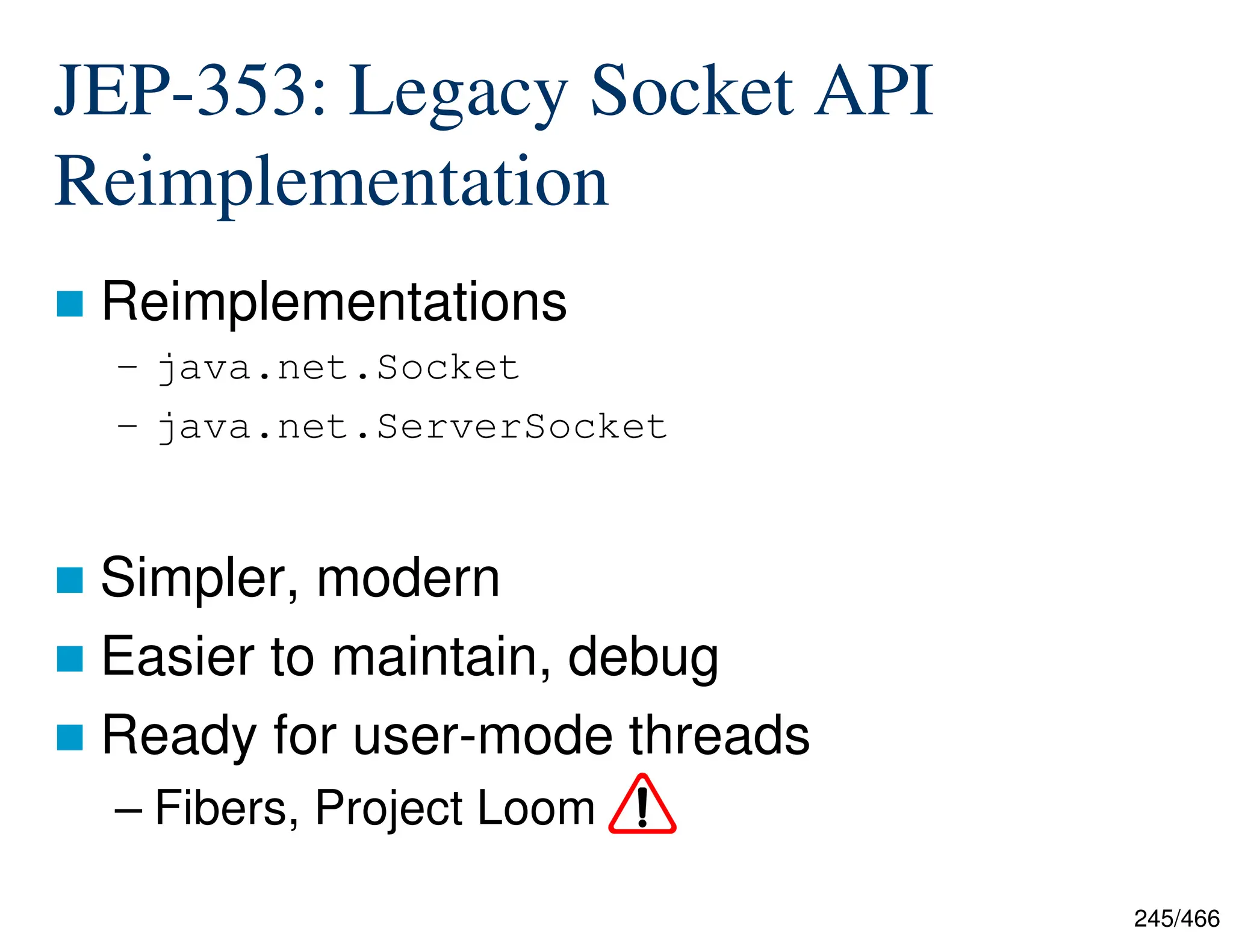


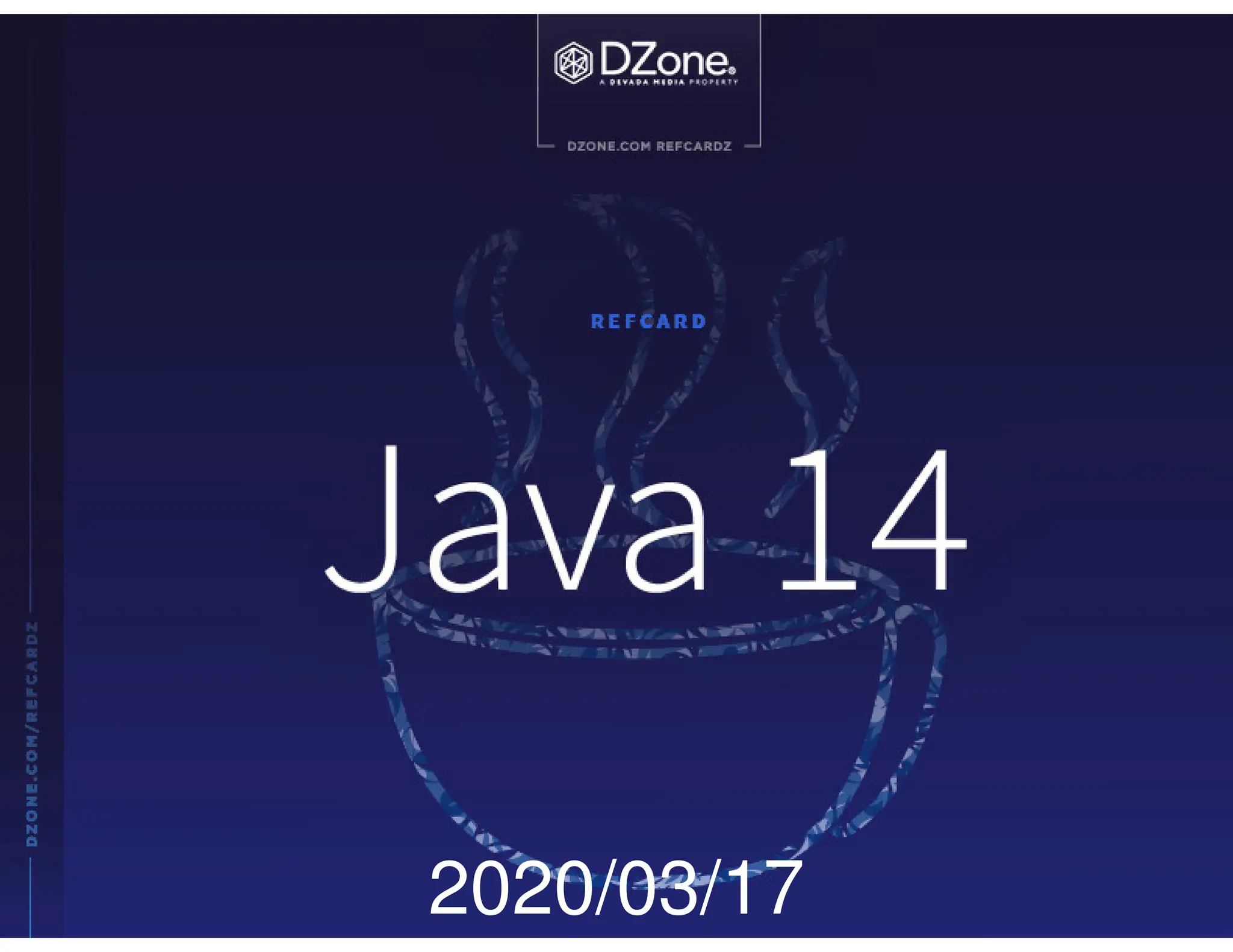

![250/466 -XX:+ShowCodeDetailsInExceptionMessages JEP-358: Helpful NullPointerExceptions Describe precisely which variable was null class Employee { String getName() { // return "Bob"; return null; } } public class Example1 { public static void main(final String[] args) { final Employee e = new Employee(); e.getName().toString(); } }](https://image.slidesharecdn.com/newjavav0-250327235127-ec555181/75/Evolution-and-Examples-of-Java-Features-from-Java-1-7-to-Java-24-250-2048.jpg)
![251/466 -XX:+ShowCodeDetailsInExceptionMessages JEP-358: Helpful NullPointerExceptions Describe precisely which variable was null class Employee { String getName() { // return "Bob"; return null; } } public class Example1 { public static void main(final String[] args) { final Employee e = new Employee(); e.getName().toString(); } } Exception in thread "main" java.lang.NullPointerException at net.ptidej.newjava.helpfulnullpointerexceptions.Example1.main(Example1.java:13)](https://image.slidesharecdn.com/newjavav0-250327235127-ec555181/75/Evolution-and-Examples-of-Java-Features-from-Java-1-7-to-Java-24-251-2048.jpg)
![252/466 -XX:+ShowCodeDetailsInExceptionMessages JEP-358: Helpful NullPointerExceptions Describe precisely which variable was null class Employee { String getName() { // return "Bob"; return null; } } public class Example1 { public static void main(final String[] args) { final Employee e = new Employee(); e.getName().toString(); } } Exception in thread "main" java.lang.NullPointerException at net.ptidej.newjava.helpfulnullpointerexceptions.Example1.main(Example1.java:13) Exception in thread "main" java.lang.NullPointerException: Cannot invoke "String.toString()" because the return value of "[...].Employee.getName()" is null at net.ptidej.newjava.helpfulnullpointerexceptions.Example1.main(Example1.java:13)](https://image.slidesharecdn.com/newjavav0-250327235127-ec555181/75/Evolution-and-Examples-of-Java-Features-from-Java-1-7-to-Java-24-252-2048.jpg)
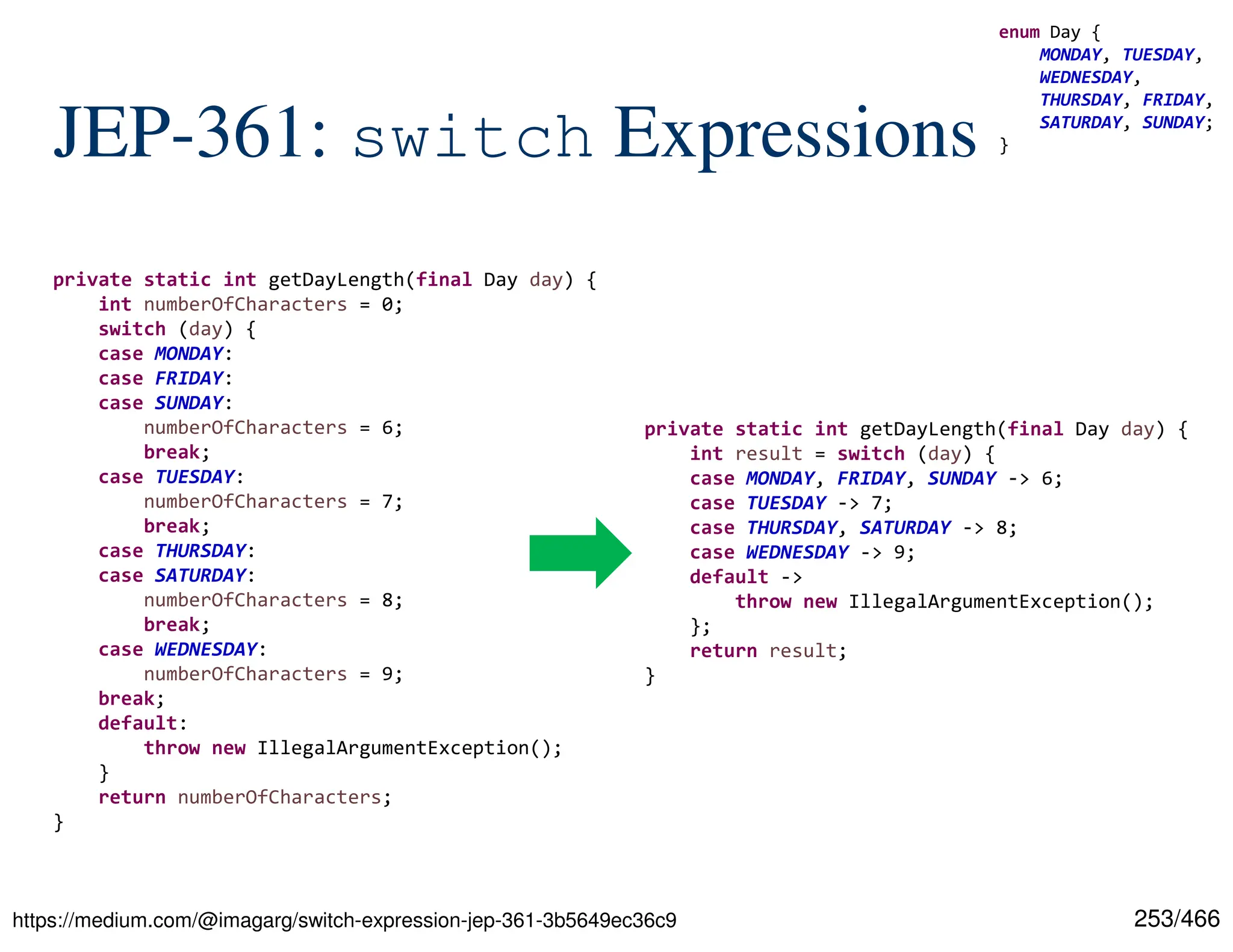

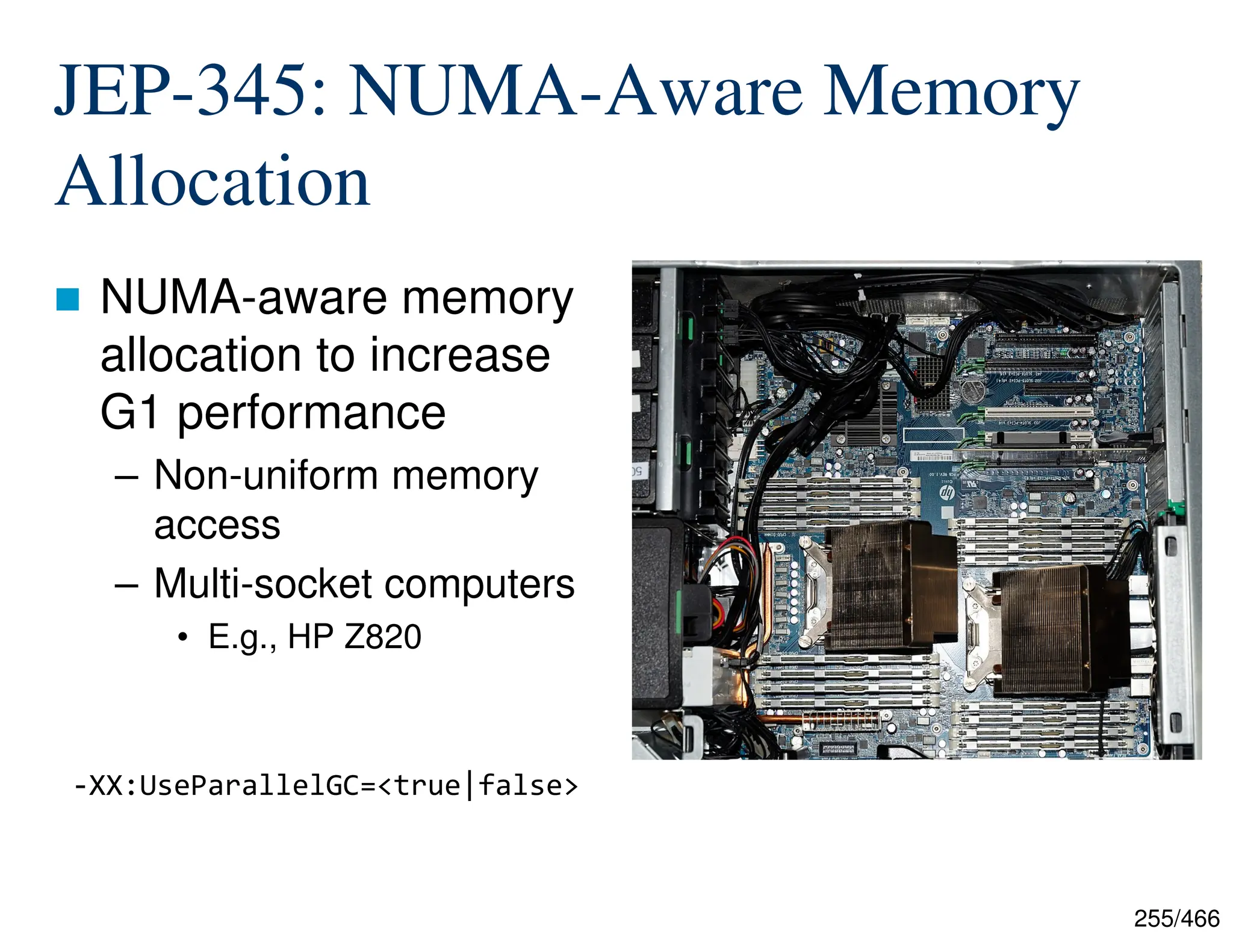
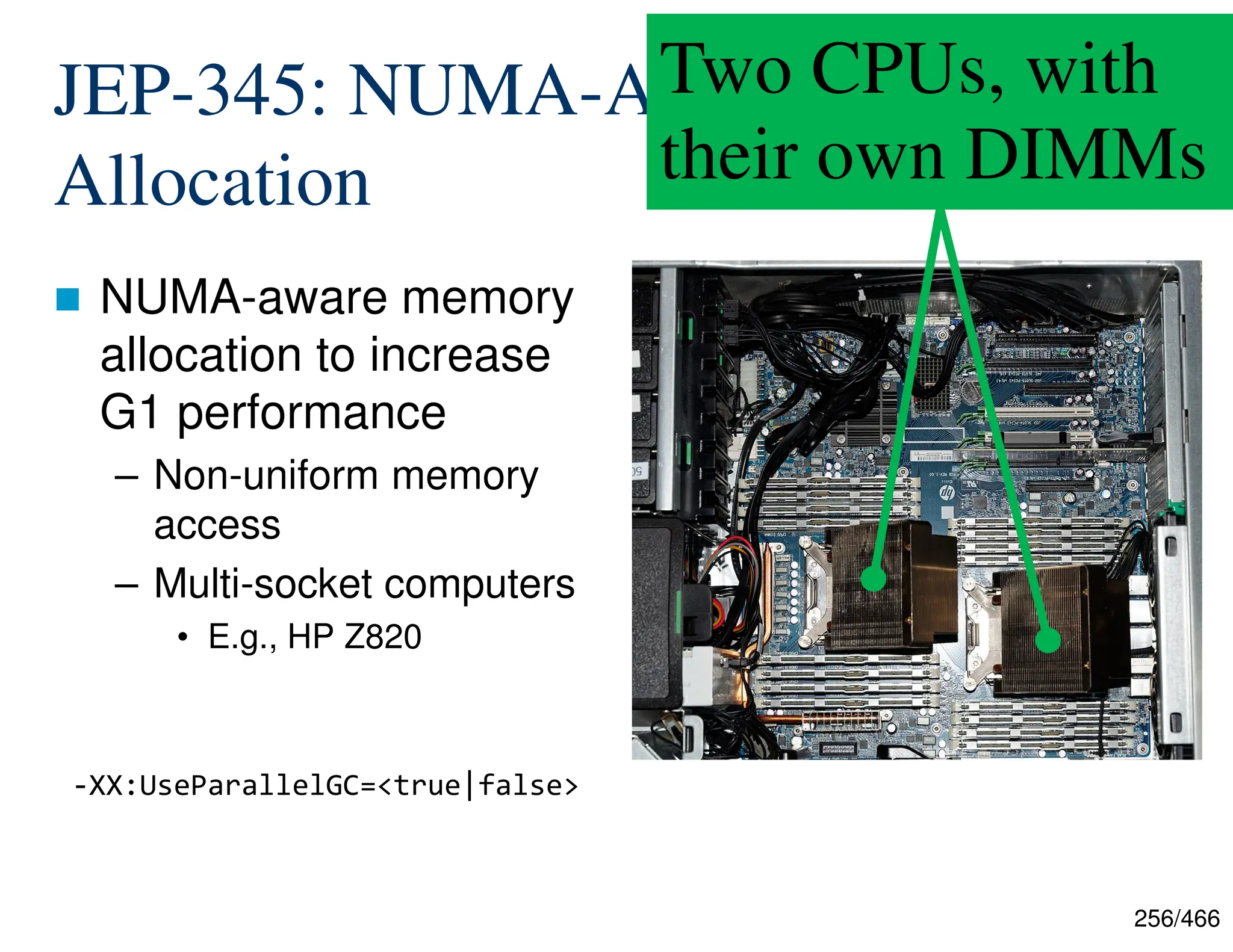
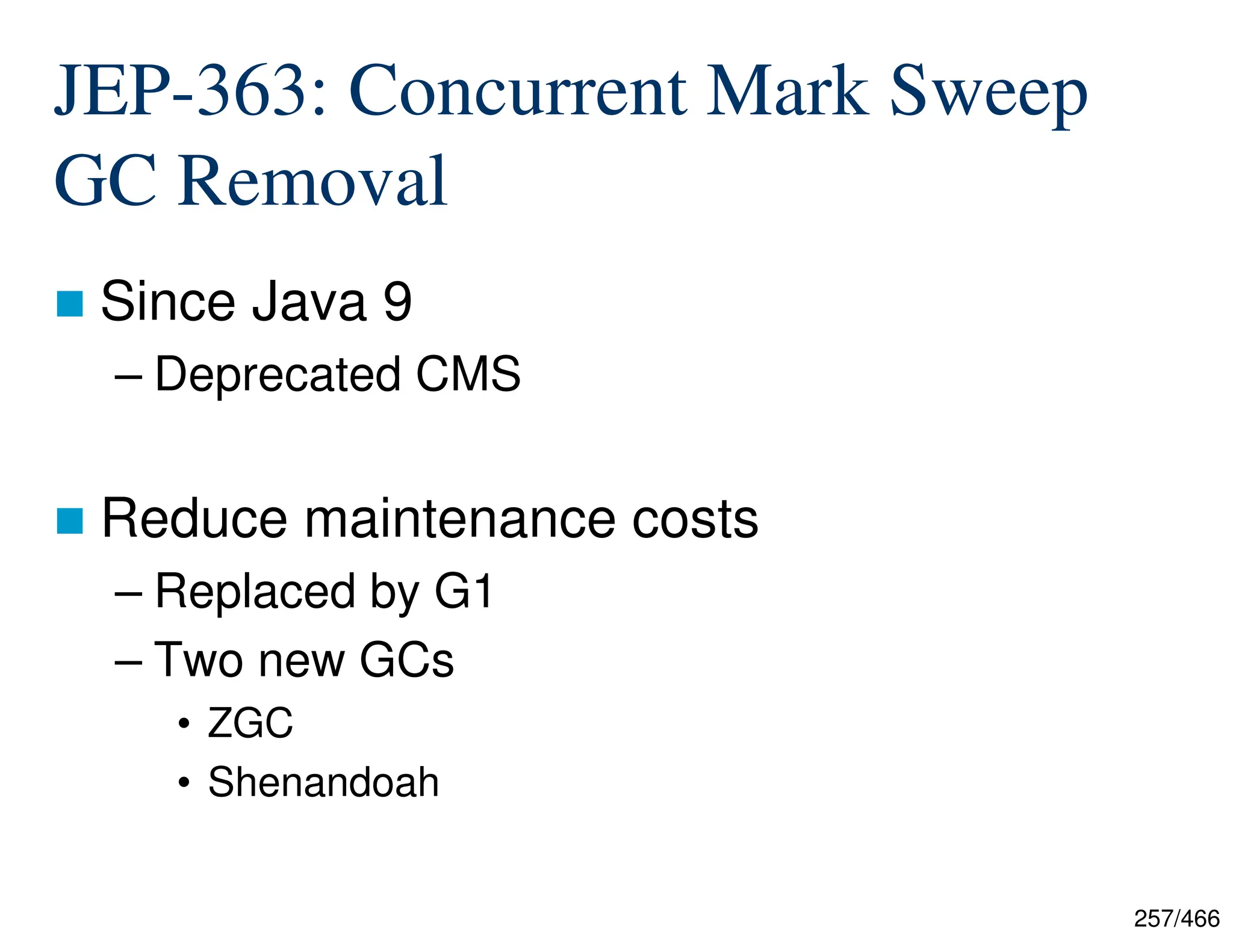

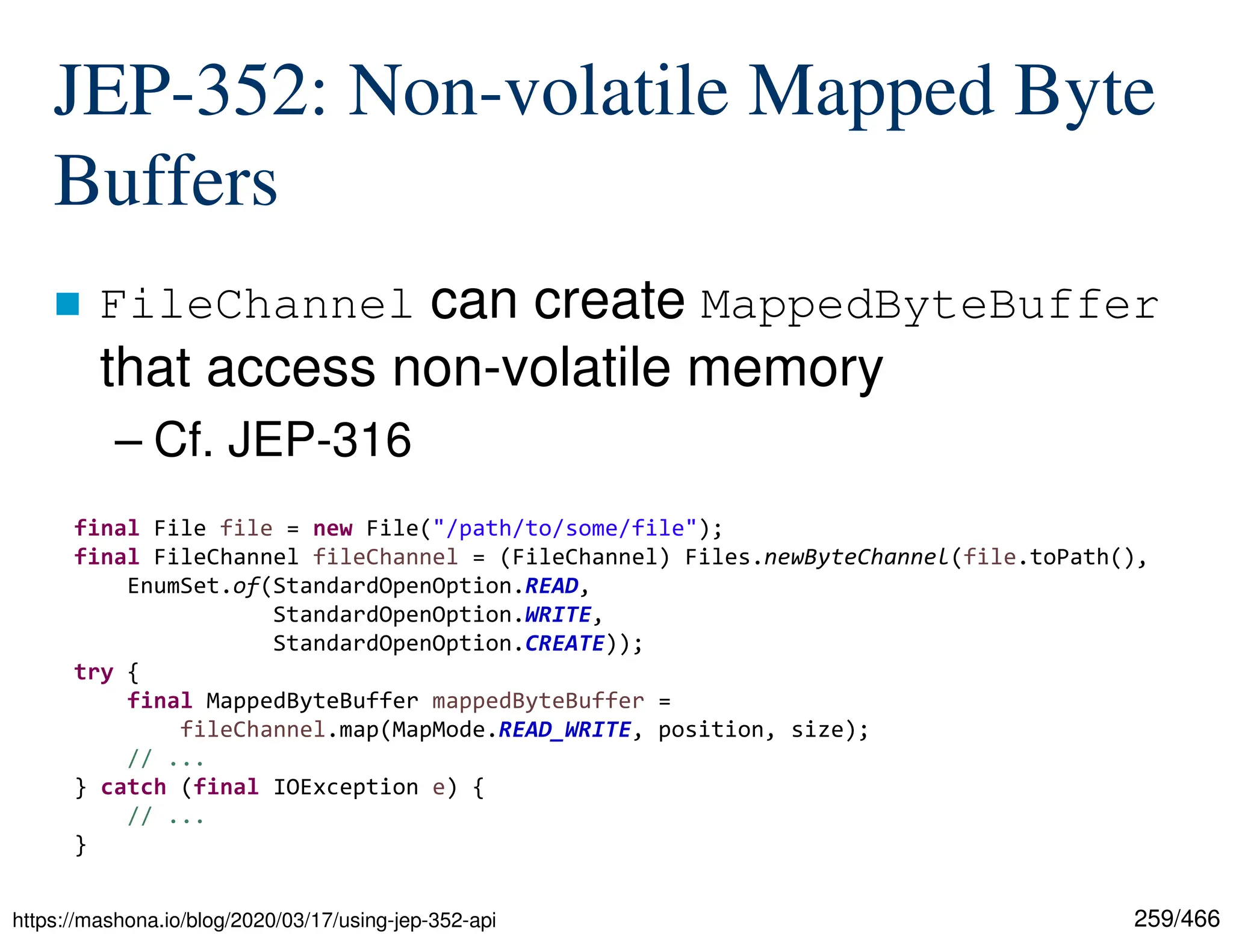

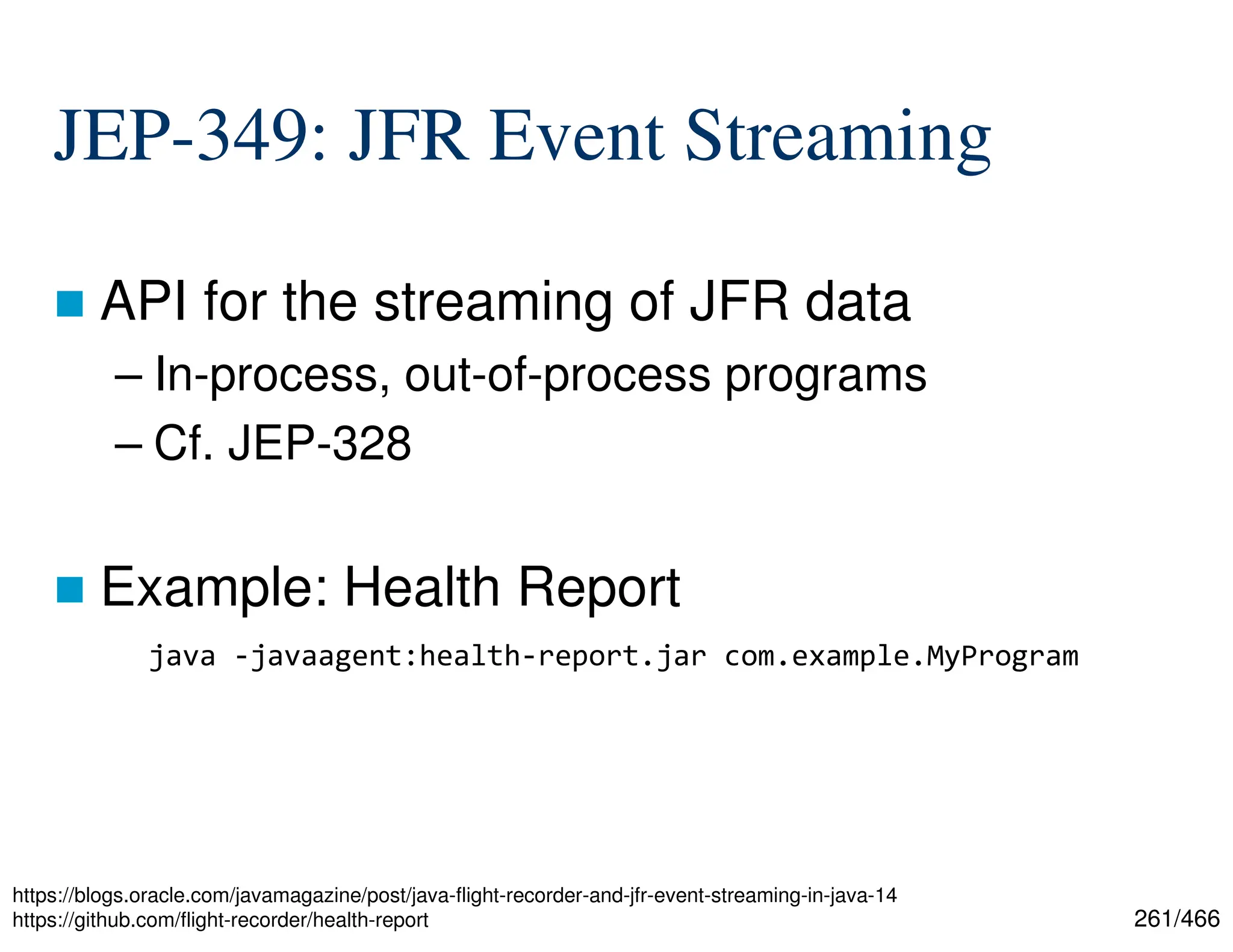
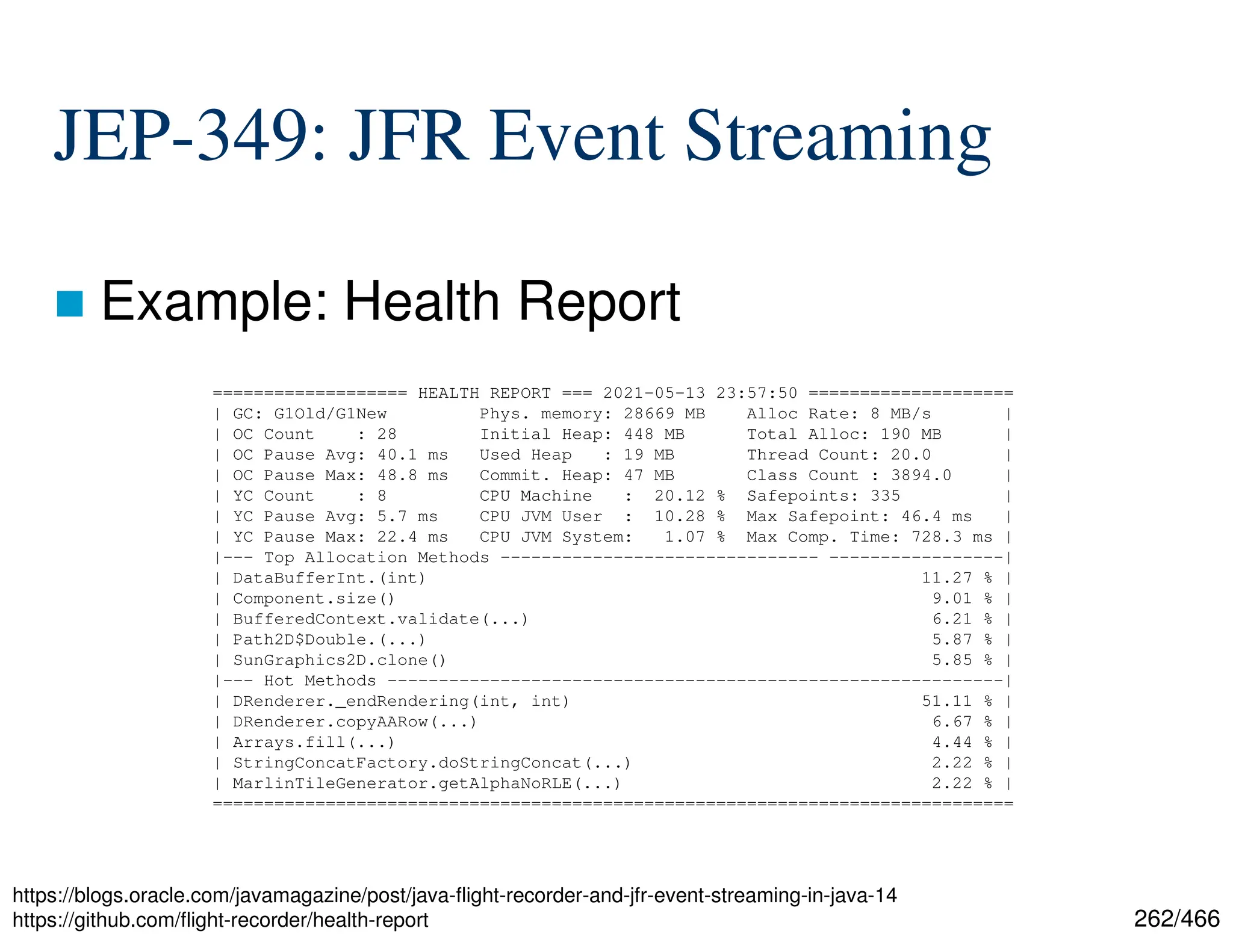
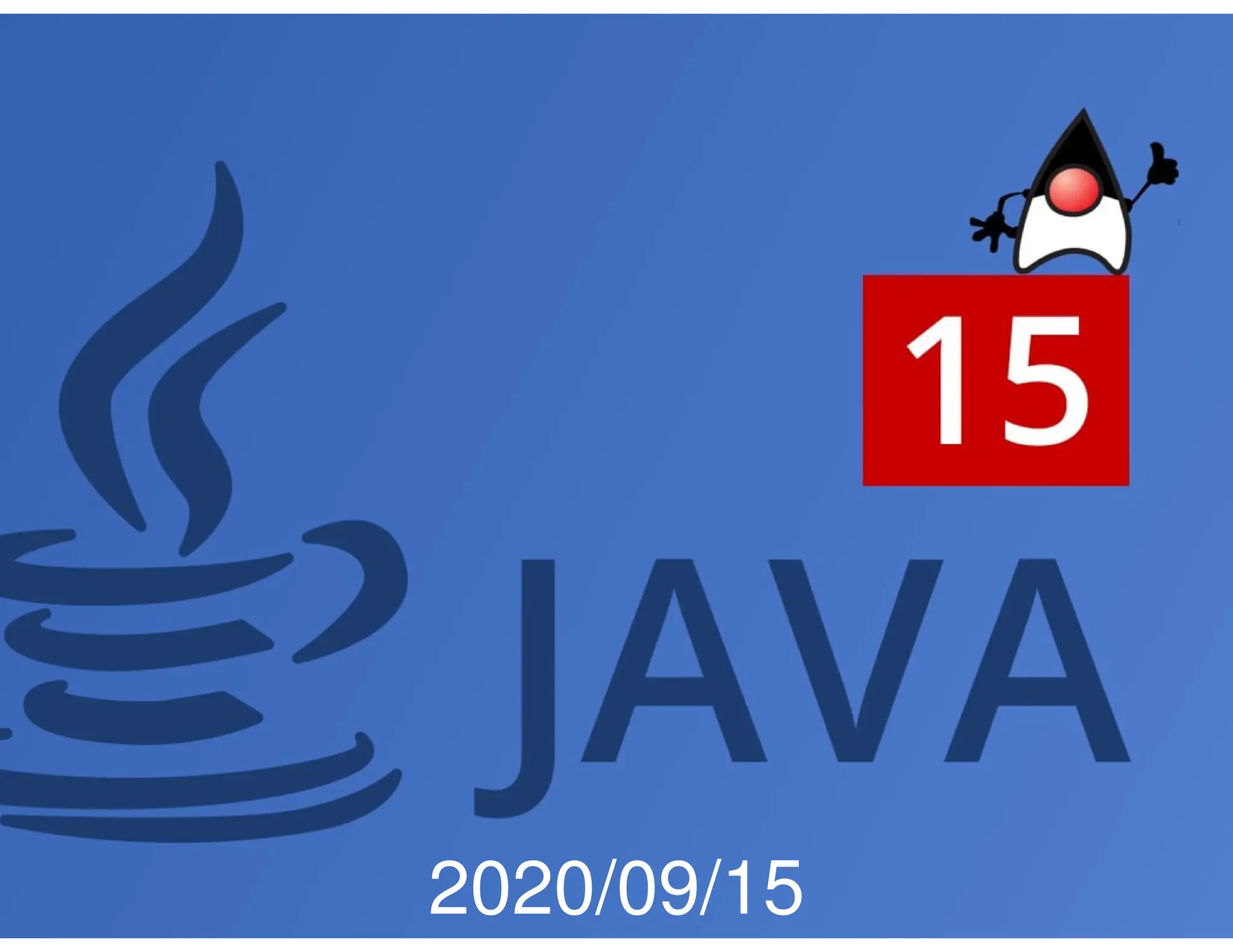

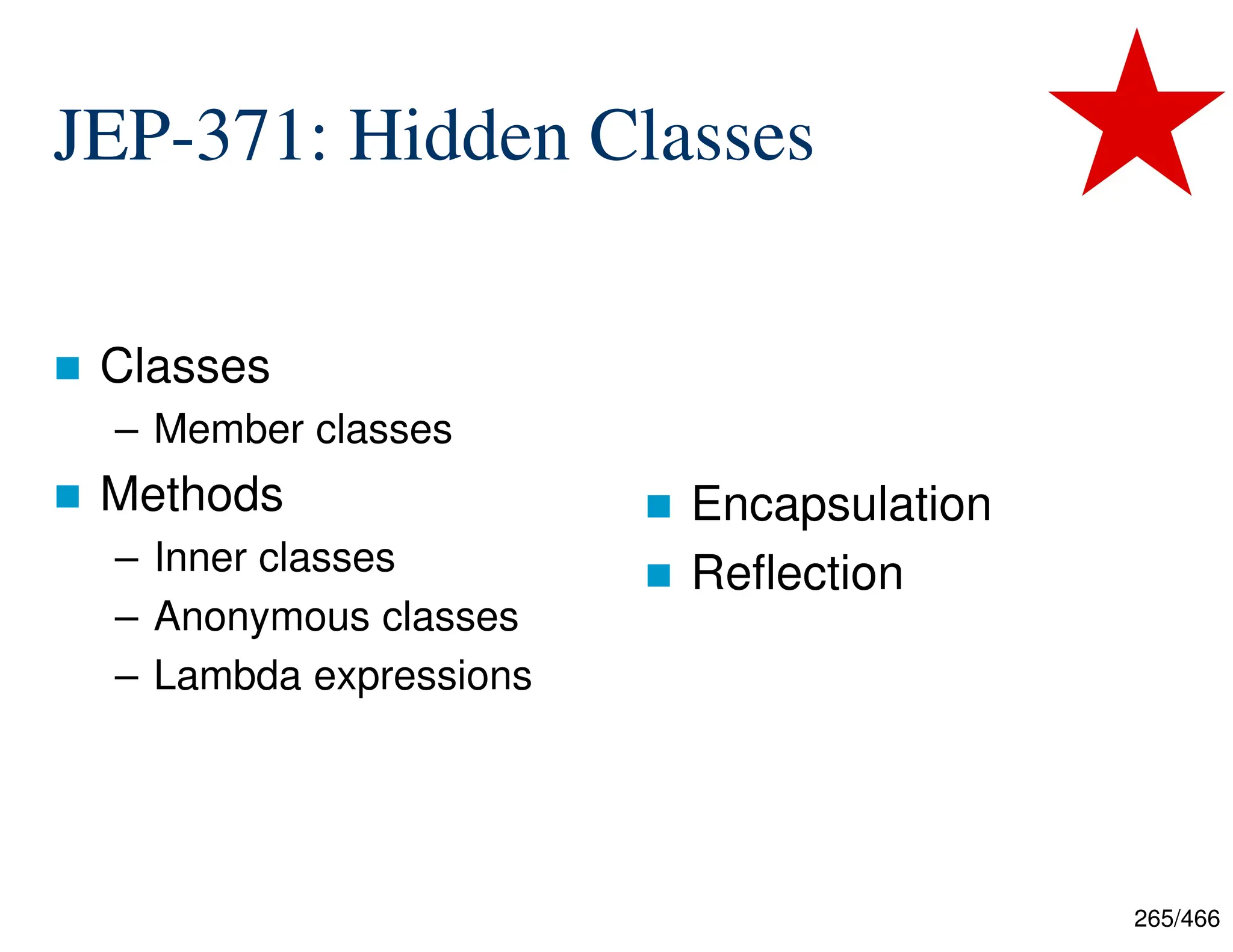
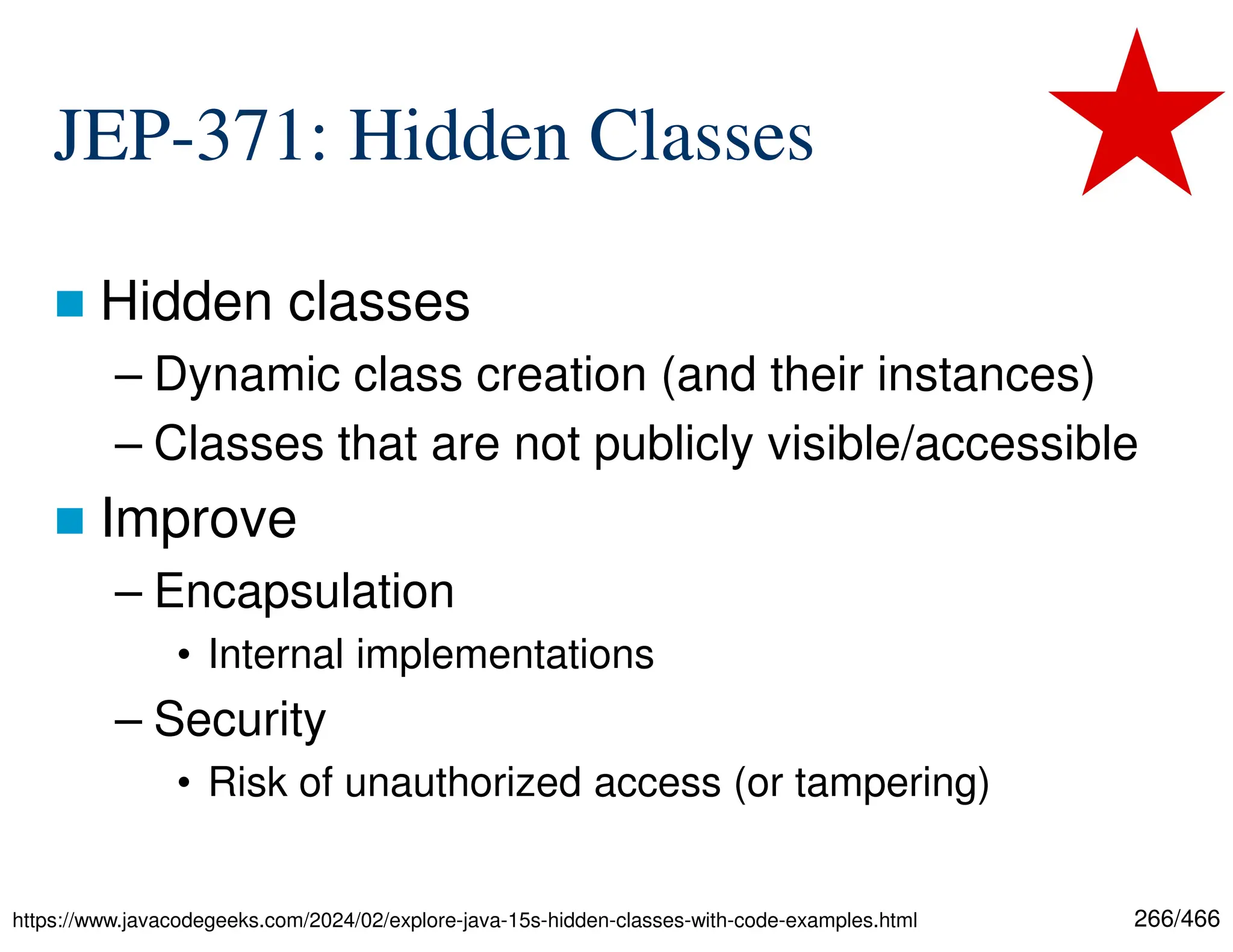
![267/466 JEP-371: Hidden Classes class TopLevelClass { public class MemberClass { } } public class Example1 { public static void main(final String[] args) throws ClassNotFoundException { class InnerClass { } final InnerClass innerClass = new InnerClass(); final Callable<String> anonynmousClass = new Callable<String>() { @Override public String call() throws Exception { return null; }}; final Callable<String> lambdaExpression = () -> null; final Class<?> classOfClazz = Class.forName("[...].TopLevelClass"); InfoPrinter.printInfo(classOfClazz); final Class<?> classOfMemberClass = Class.forName("[...].TopLevelClass$MemberClass"); InfoPrinter.printInfo(classOfMemberClass); final Class<?> classOfInnerClass = innerClass.getClass(); // final Class<?> classOfInnerClass = Class.forName("[...].Example1$1InnerClass"); InfoPrinter.printInfo(classOfInnerClass); final Class<?> classOfAnonymousClass = anonynmousClass.getClass(); // final Class<?> classOfAnonymousClass = Class.forName("[...].Example1$1"); InfoPrinter.printInfo(classOfAnonymousClass); final Class<?> classOfLambdaExpression = lambdaExpression.getClass(); // final Class<?> classOfLambdaExpression = Class.forName("[...].Example1$$Lambda/???"); InfoPrinter.printInfo(classOfLambdaExpression); } }](https://image.slidesharecdn.com/newjavav0-250327235127-ec555181/75/Evolution-and-Examples-of-Java-Features-from-Java-1-7-to-Java-24-267-2048.jpg)
![268/466 JEP-371: Hidden Classes class TopLevelClass { public class MemberClass { } } public class Example1 { public static void main(final String[] args) throws ClassNotFoundException { class InnerClass { } final InnerClass innerClass = new InnerClass(); final Callable<String> anonynmousClass = new Callable<String>() { @Override public String call() throws Exception { return null; }}; final Callable<String> lambdaExpression = () -> null; final Class<?> classOfClazz = Class.forName("[...].TopLevelClass"); InfoPrinter.printInfo(classOfClazz); final Class<?> classOfMemberClass = Class.forName("[...].TopLevelClass$MemberClass"); InfoPrinter.printInfo(classOfMemberClass); final Class<?> classOfInnerClass = innerClass.getClass(); // final Class<?> classOfInnerClass = Class.forName("[...].Example1$1InnerClass"); InfoPrinter.printInfo(classOfInnerClass); final Class<?> classOfAnonymousClass = anonynmousClass.getClass(); // final Class<?> classOfAnonymousClass = Class.forName("[...].Example1$1"); InfoPrinter.printInfo(classOfAnonymousClass); final Class<?> classOfLambdaExpression = lambdaExpression.getClass(); // final Class<?> classOfLambdaExpression = Class.forName("[...].Example1$$Lambda/???"); InfoPrinter.printInfo(classOfLambdaExpression); } } class net.ptidej.newjava.hiddenclasses.TopLevelClass Canonical name: net.ptidej.newjava.hiddenclasses.TopLevelClass Name: net.ptidej.newjava.hiddenclasses.TopLevelClass isHidden? false class net.ptidej.newjava.hiddenclasses.TopLevelClass$MemberClass Canonical name: net.ptidej.newjava.hiddenclasses.TopLevelClass.MemberClass Name: net.ptidej.newjava.hiddenclasses.TopLevelClass$MemberClass isHidden? false class net.ptidej.newjava.hiddenclasses.Example1$1InnerClass Canonical name: null Name: net.ptidej.newjava.hiddenclasses.Example1$1InnerClass isHidden? false class net.ptidej.newjava.hiddenclasses.Example1$1 Canonical name: null Name: net.ptidej.newjava.hiddenclasses.Example1$1 isHidden? false class net.ptidej.newjava.hiddenclasses.Example1$$Lambda/0x0000020a81000400 Canonical name: null Name: net.ptidej.newjava.hiddenclasses.Example1$$Lambda/0x0000020a81000400 isHidden? true](https://image.slidesharecdn.com/newjavav0-250327235127-ec555181/75/Evolution-and-Examples-of-Java-Features-from-Java-1-7-to-Java-24-268-2048.jpg)
![269/466 JEP-371: Hidden Classes class TopLevelClass { public class MemberClass { } } public class Example1 { public static void main(final String[] args) throws ClassNotFoundException { class InnerClass { } final InnerClass innerClass = new InnerClass(); final Callable<String> anonynmousClass = new Callable<String>() { @Override public String call() throws Exception { return null; }}; final Callable<String> lambdaExpression = () -> null; final Class<?> classOfClazz = Class.forName("[...].TopLevelClass"); InfoPrinter.printInfo(classOfClazz); final Class<?> classOfMemberClass = Class.forName("[...].TopLevelClass$MemberClass"); InfoPrinter.printInfo(classOfMemberClass); final Class<?> classOfInnerClass = innerClass.getClass(); // final Class<?> classOfInnerClass = Class.forName("[...].Example1$1InnerClass"); InfoPrinter.printInfo(classOfInnerClass); final Class<?> classOfAnonymousClass = anonynmousClass.getClass(); // final Class<?> classOfAnonymousClass = Class.forName("[...].Example1$1"); InfoPrinter.printInfo(classOfAnonymousClass); final Class<?> classOfLambdaExpression = lambdaExpression.getClass(); // final Class<?> classOfLambdaExpression = Class.forName("[...].Example1$$Lambda/???"); InfoPrinter.printInfo(classOfLambdaExpression); } } class net.ptidej.newjava.hiddenclasses.TopLevelClass Canonical name: net.ptidej.newjava.hiddenclasses.TopLevelClass Name: net.ptidej.newjava.hiddenclasses.TopLevelClass isHidden? false class net.ptidej.newjava.hiddenclasses.TopLevelClass$MemberClass Canonical name: net.ptidej.newjava.hiddenclasses.TopLevelClass.MemberClass Name: net.ptidej.newjava.hiddenclasses.TopLevelClass$MemberClass isHidden? false class net.ptidej.newjava.hiddenclasses.Example1$1InnerClass Canonical name: null Name: net.ptidej.newjava.hiddenclasses.Example1$1InnerClass isHidden? false class net.ptidej.newjava.hiddenclasses.Example1$1 Canonical name: null Name: net.ptidej.newjava.hiddenclasses.Example1$1 isHidden? false class net.ptidej.newjava.hiddenclasses.Example1$$Lambda/0x0000020a81000400 Canonical name: null Name: net.ptidej.newjava.hiddenclasses.Example1$$Lambda/0x0000020a81000400 isHidden? true Hidden class](https://image.slidesharecdn.com/newjavav0-250327235127-ec555181/75/Evolution-and-Examples-of-Java-Features-from-Java-1-7-to-Java-24-269-2048.jpg)
![270/466 JEP-371: Hidden Classes Use and features of hidden classes final InputStream stream = new FileInputStream(new File("rsc/HiddenClass.class")); final byte[] bytes = IOUtils.toByteArray(stream); final MethodHandles.Lookup lookup = MethodHandles.lookup(); final Class<?> hiddenClassClass1 = lookup.defineHiddenClass(bytes, true, STRONG).lookupClass(); InfoPrinter.printInfo(hiddenClassClass1); final Class<?> notHiddenClassClass1 = lookup.defineClass(bytes); InfoPrinter.printInfo(notHiddenClassClass1); final Class<?> notHiddenClassClass2 = myClassLoader.loadClass("[...].HiddenClass", bytes); InfoPrinter.printInfo(notHiddenClassClass2); final Class<?> hiddenClassClass2 = Class.forName(hiddenClassClass1.getName()); InfoPrinter.printInfo(hiddenClassClass2); final Class<?> hiddenClassClass3 = lookup.findClass(hiddenClassClass1.getName()); InfoPrinter.printInfo(hiddenClassClass3);](https://image.slidesharecdn.com/newjavav0-250327235127-ec555181/75/Evolution-and-Examples-of-Java-Features-from-Java-1-7-to-Java-24-270-2048.jpg)
![271/466 JEP-371: Hidden Classes Use and features of hidden classes final InputStream stream = new FileInputStream(new File("rsc/HiddenClass.class")); final byte[] bytes = IOUtils.toByteArray(stream); final MethodHandles.Lookup lookup = MethodHandles.lookup(); final Class<?> hiddenClassClass1 = lookup.defineHiddenClass(bytes, true, STRONG).lookupClass(); InfoPrinter.printInfo(hiddenClassClass1); final Class<?> notHiddenClassClass1 = lookup.defineClass(bytes); InfoPrinter.printInfo(notHiddenClassClass1); final Class<?> notHiddenClassClass2 = myClassLoader.loadClass("[...].HiddenClass", bytes); InfoPrinter.printInfo(notHiddenClassClass2); final Class<?> hiddenClassClass2 = Class.forName(hiddenClassClass1.getName()); InfoPrinter.printInfo(hiddenClassClass2); final Class<?> hiddenClassClass3 = lookup.findClass(hiddenClassClass1.getName()); InfoPrinter.printInfo(hiddenClassClass3); class net.ptidej.newjava.hiddenclasses.HiddenClass/0x000001e2900082b0 Canonical name: null Name: net.ptidej.newjava.hiddenclasses.HiddenClass/0x000001e2900082b0 isHidden? true class net.ptidej.newjava.hiddenclasses.HiddenClass Canonical name: net.ptidej.newjava.hiddenclasses.HiddenClass Name: net.ptidej.newjava.hiddenclasses.HiddenClass isHidden? false class net.ptidej.newjava.hiddenclasses.HiddenClass Canonical name: net.ptidej.newjava.hiddenclasses.HiddenClass Name: net.ptidej.newjava.hiddenclasses.HiddenClass isHidden? false As expected, the hidden class cannot be discovered! As expected, the hidden class cannot be discovered!](https://image.slidesharecdn.com/newjavav0-250327235127-ec555181/75/Evolution-and-Examples-of-Java-Features-from-Java-1-7-to-Java-24-271-2048.jpg)
![272/466 JEP-371: Hidden Classes Use and features of hidden classes final InputStream stream = new FileInputStream(new File("rsc/HiddenClass.class")); final byte[] bytes = IOUtils.toByteArray(stream); final MethodHandles.Lookup lookup = MethodHandles.lookup(); final Class<?> hiddenClassClass1 = lookup.defineHiddenClass(bytes, true, STRONG).lookupClass(); InfoPrinter.printInfo(hiddenClassClass1); final Class<?> notHiddenClassClass1 = lookup.defineClass(bytes); InfoPrinter.printInfo(notHiddenClassClass1); final Class<?> notHiddenClassClass2 = myClassLoader.loadClass("[...].HiddenClass", bytes); InfoPrinter.printInfo(notHiddenClassClass2); final Class<?> hiddenClassClass2 = Class.forName(hiddenClassClass1.getName()); InfoPrinter.printInfo(hiddenClassClass2); final Class<?> hiddenClassClass3 = lookup.findClass(hiddenClassClass1.getName()); InfoPrinter.printInfo(hiddenClassClass3); class net.ptidej.newjava.hiddenclasses.HiddenClass/0x000001e2900082b0 Canonical name: null Name: net.ptidej.newjava.hiddenclasses.HiddenClass/0x000001e2900082b0 isHidden? true class net.ptidej.newjava.hiddenclasses.HiddenClass Canonical name: net.ptidej.newjava.hiddenclasses.HiddenClass Name: net.ptidej.newjava.hiddenclasses.HiddenClass isHidden? false class net.ptidej.newjava.hiddenclasses.HiddenClass Canonical name: net.ptidej.newjava.hiddenclasses.HiddenClass Name: net.ptidej.newjava.hiddenclasses.HiddenClass isHidden? false As expected, the hidden class cannot be discovered! As expected, the hidden class cannot be discovered! Hidden classes are truly hidden](https://image.slidesharecdn.com/newjavav0-250327235127-ec555181/75/Evolution-and-Examples-of-Java-Features-from-Java-1-7-to-Java-24-272-2048.jpg)
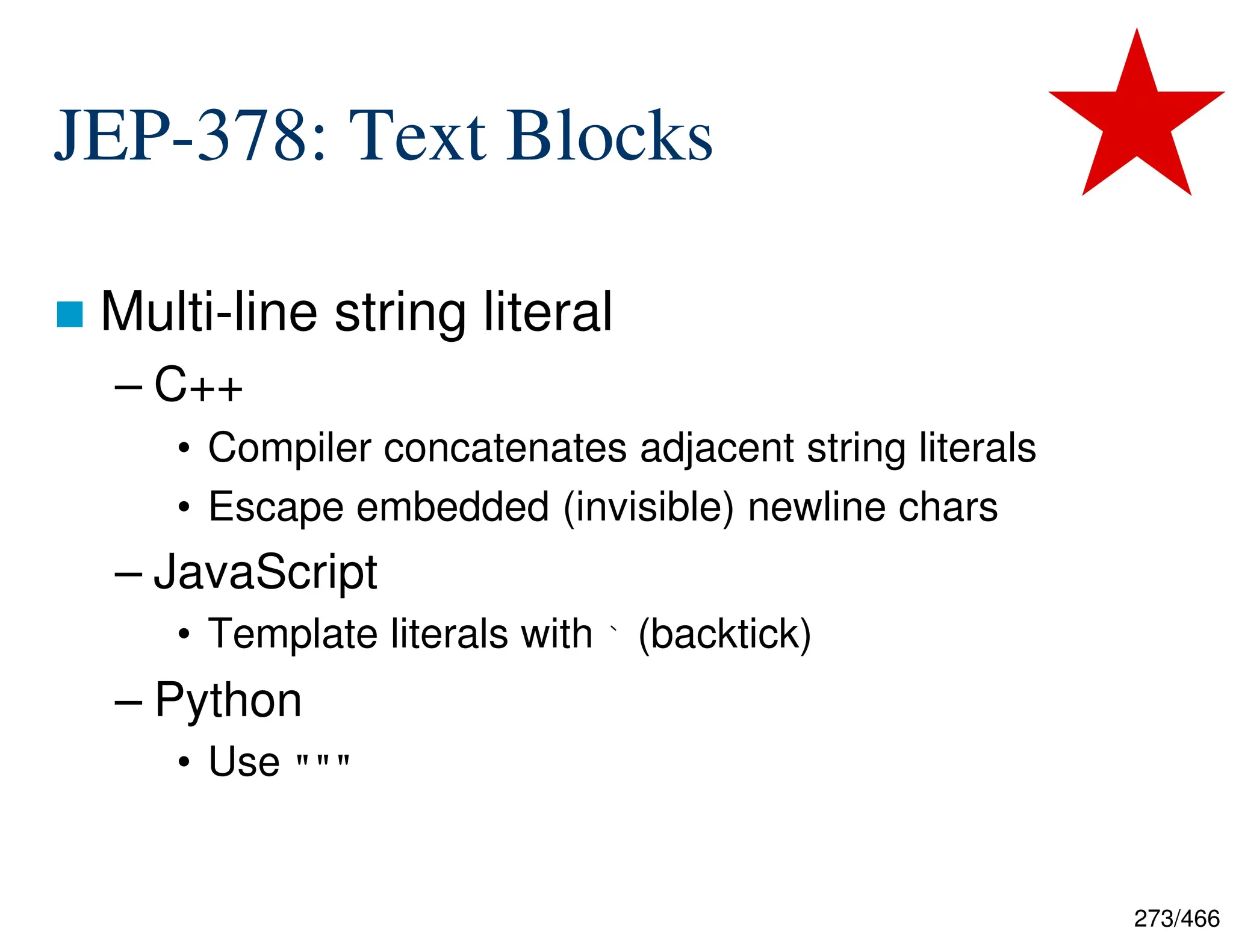
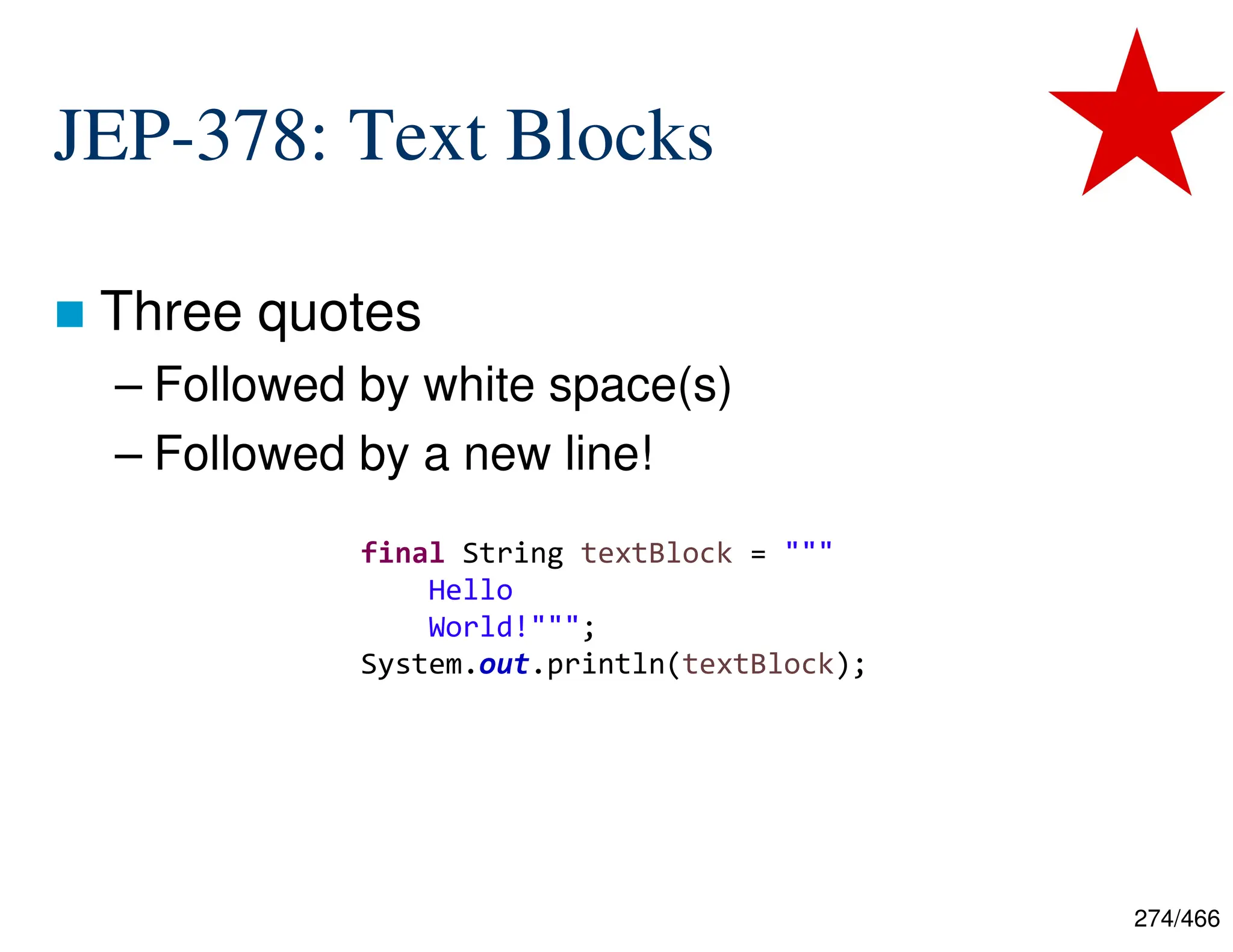
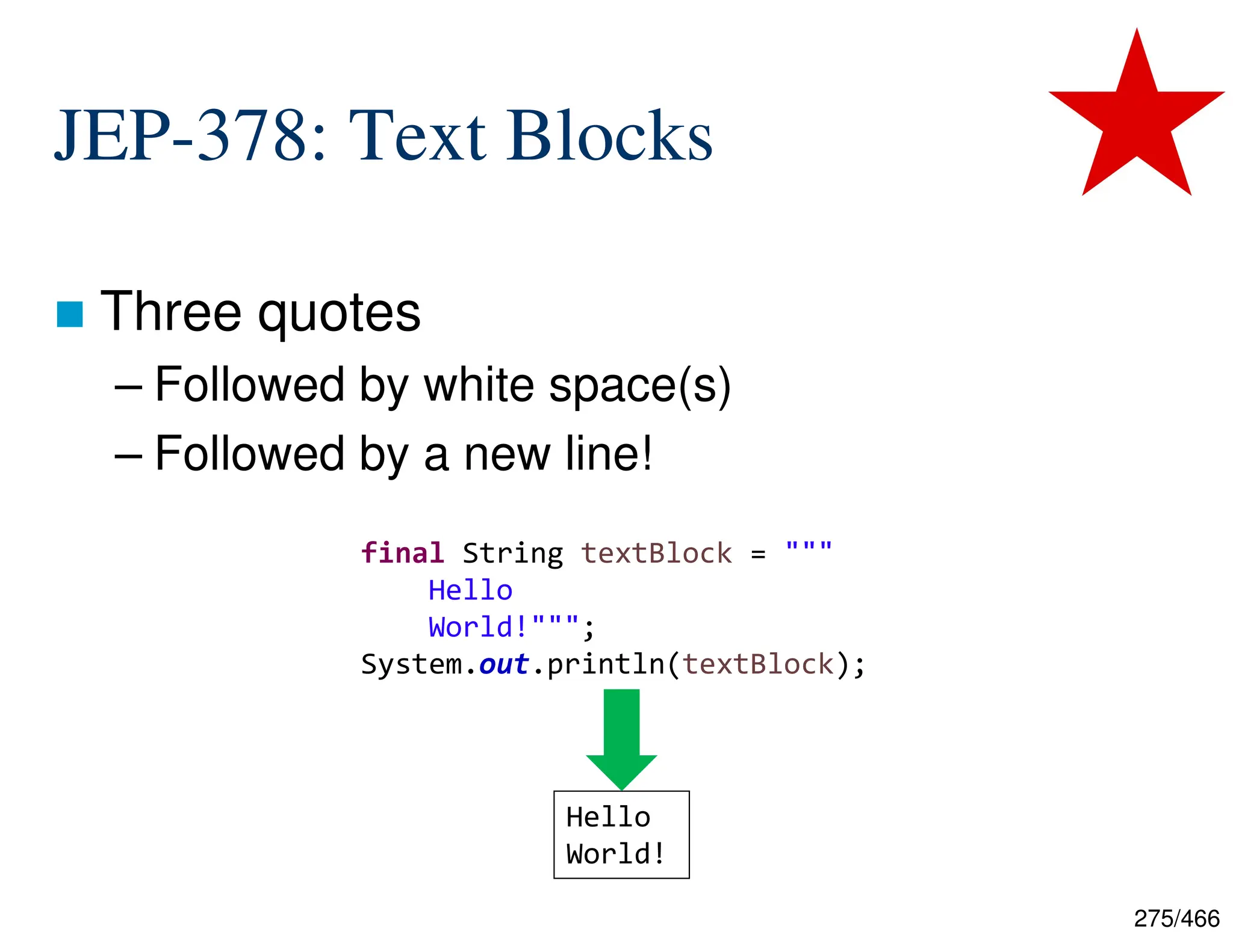

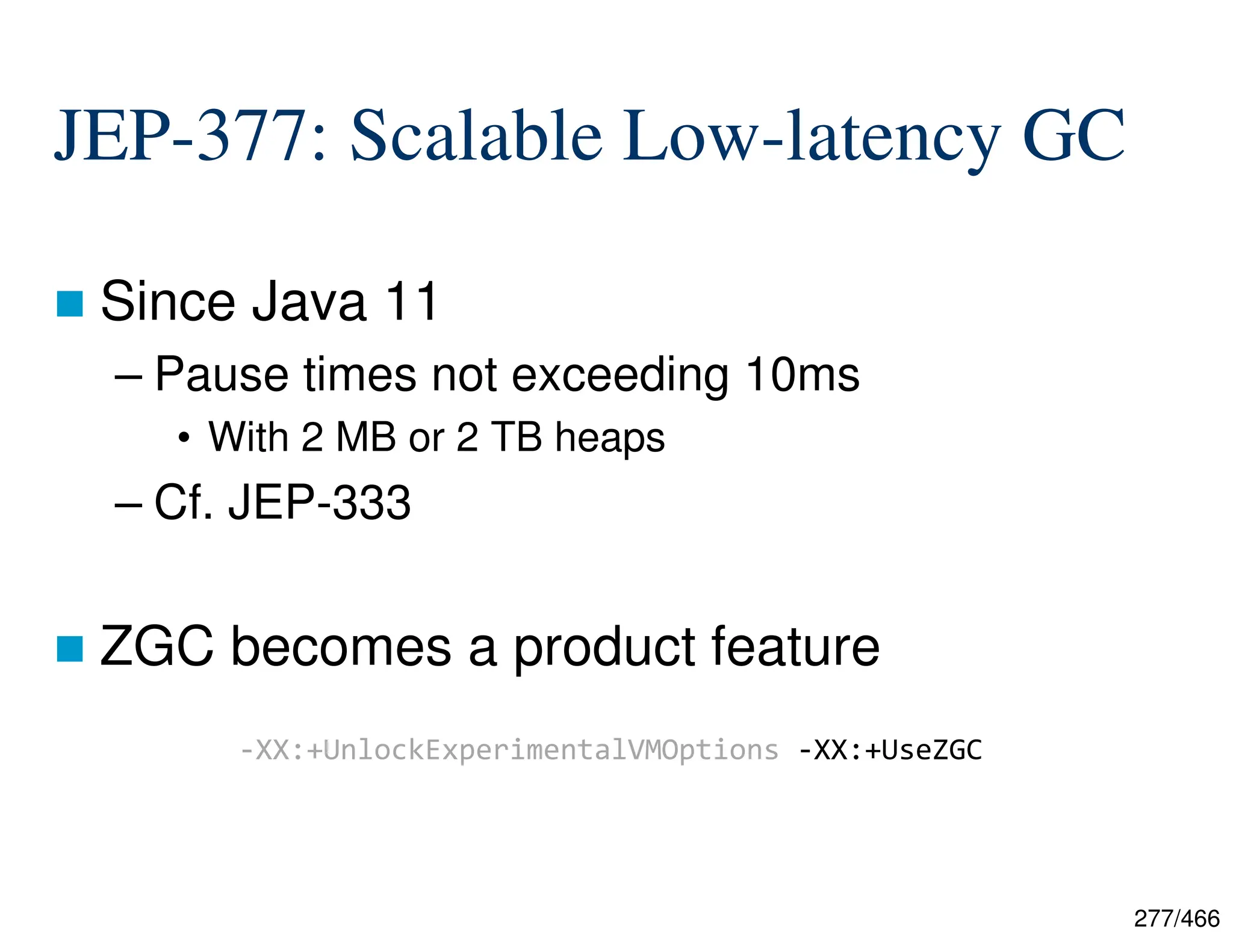
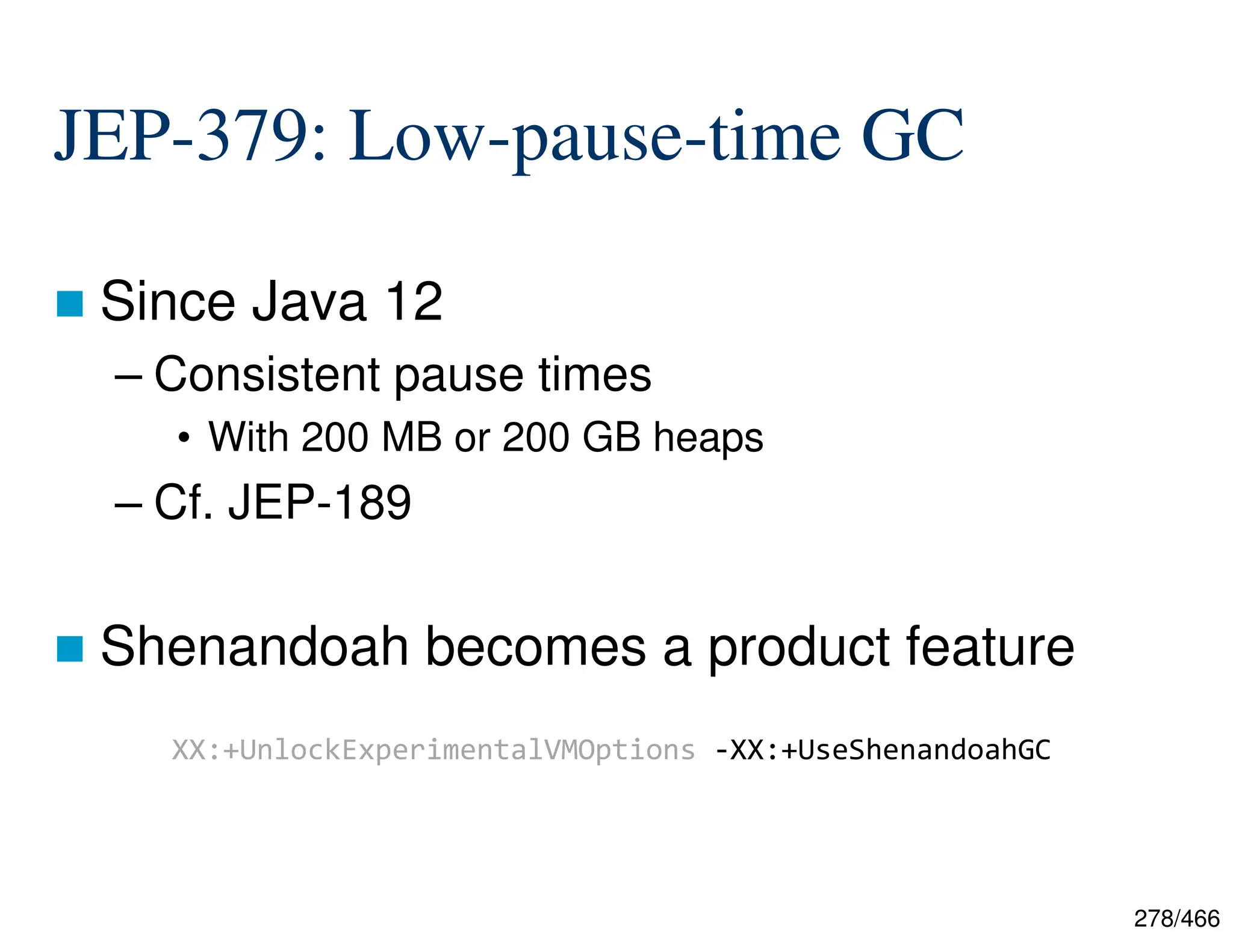

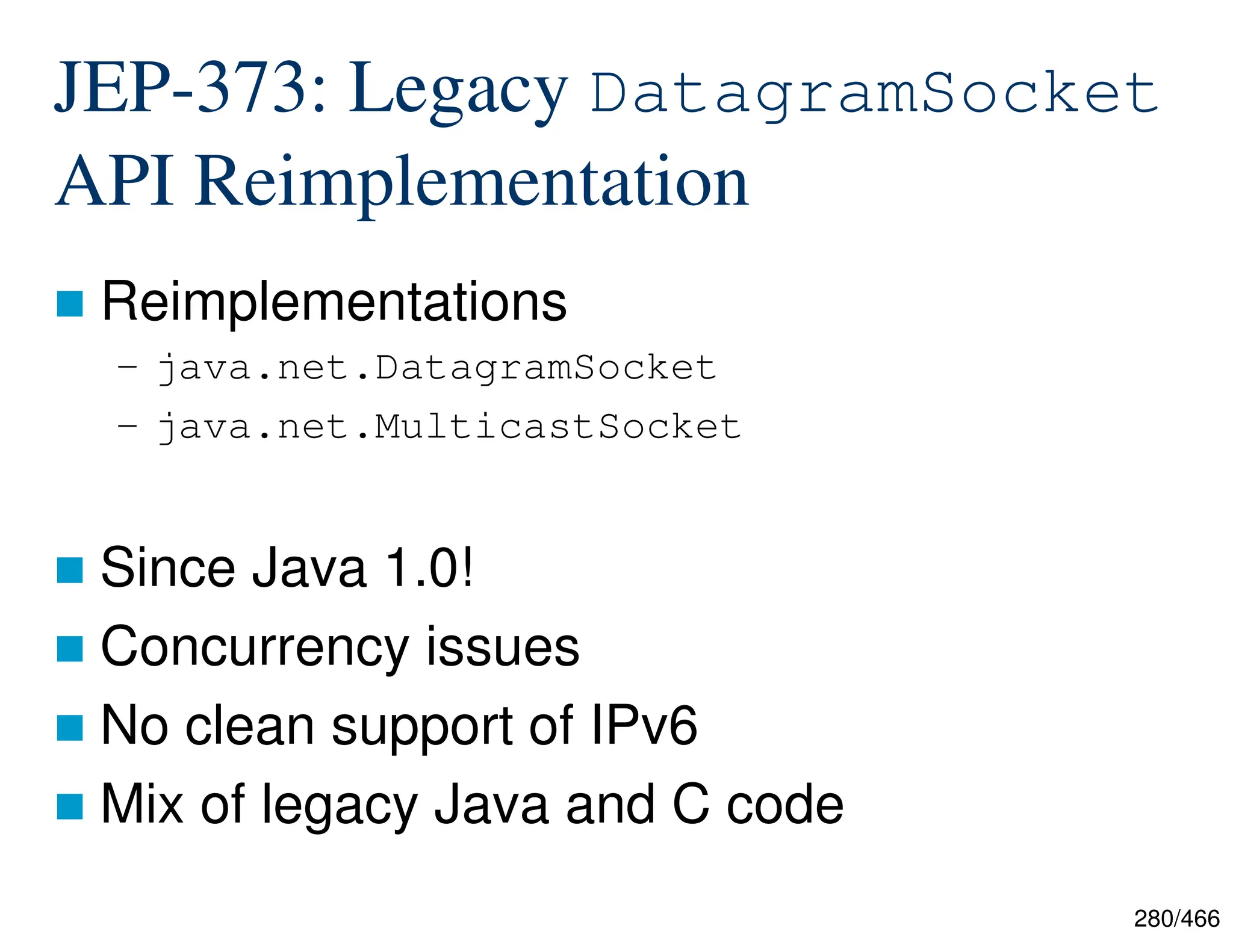
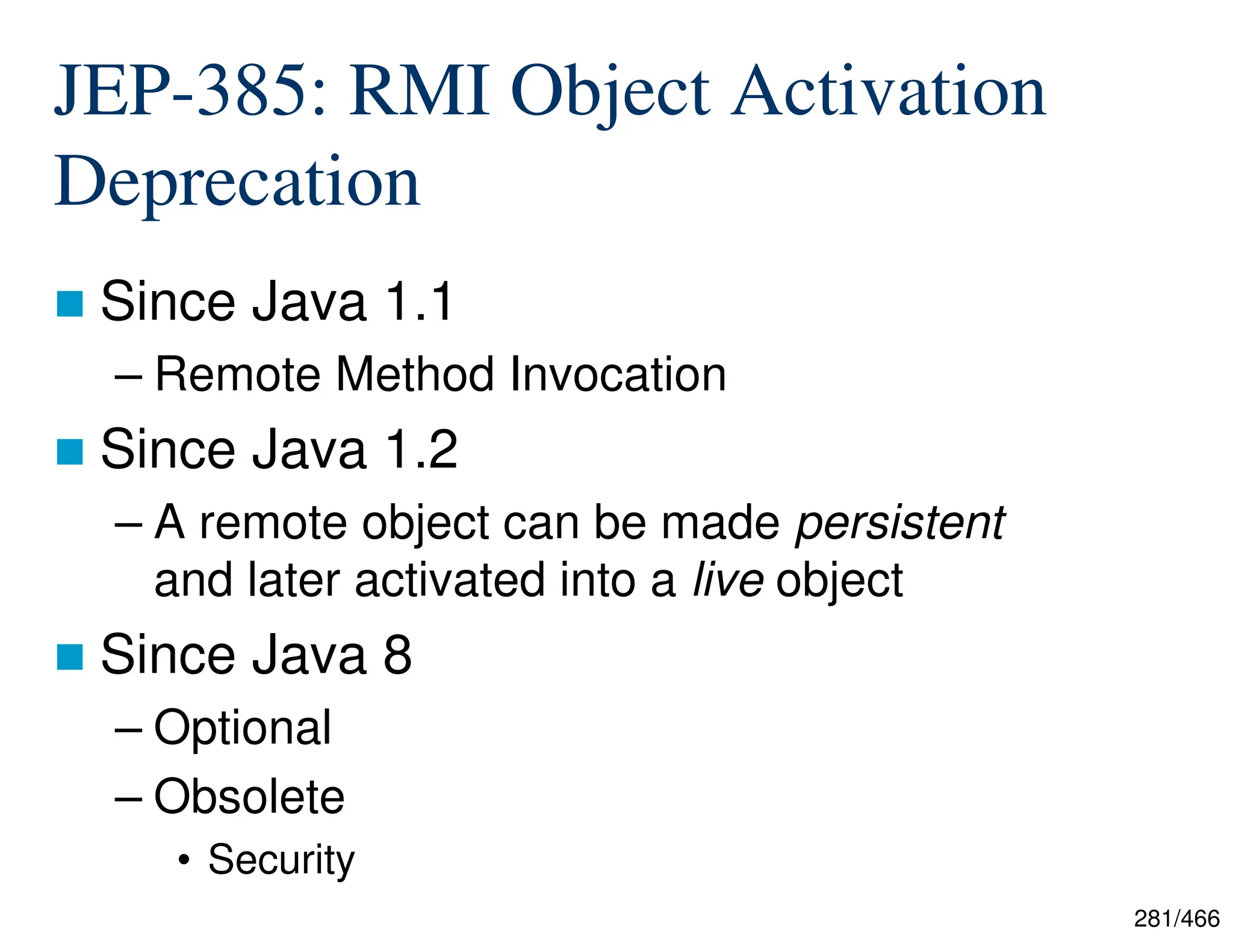




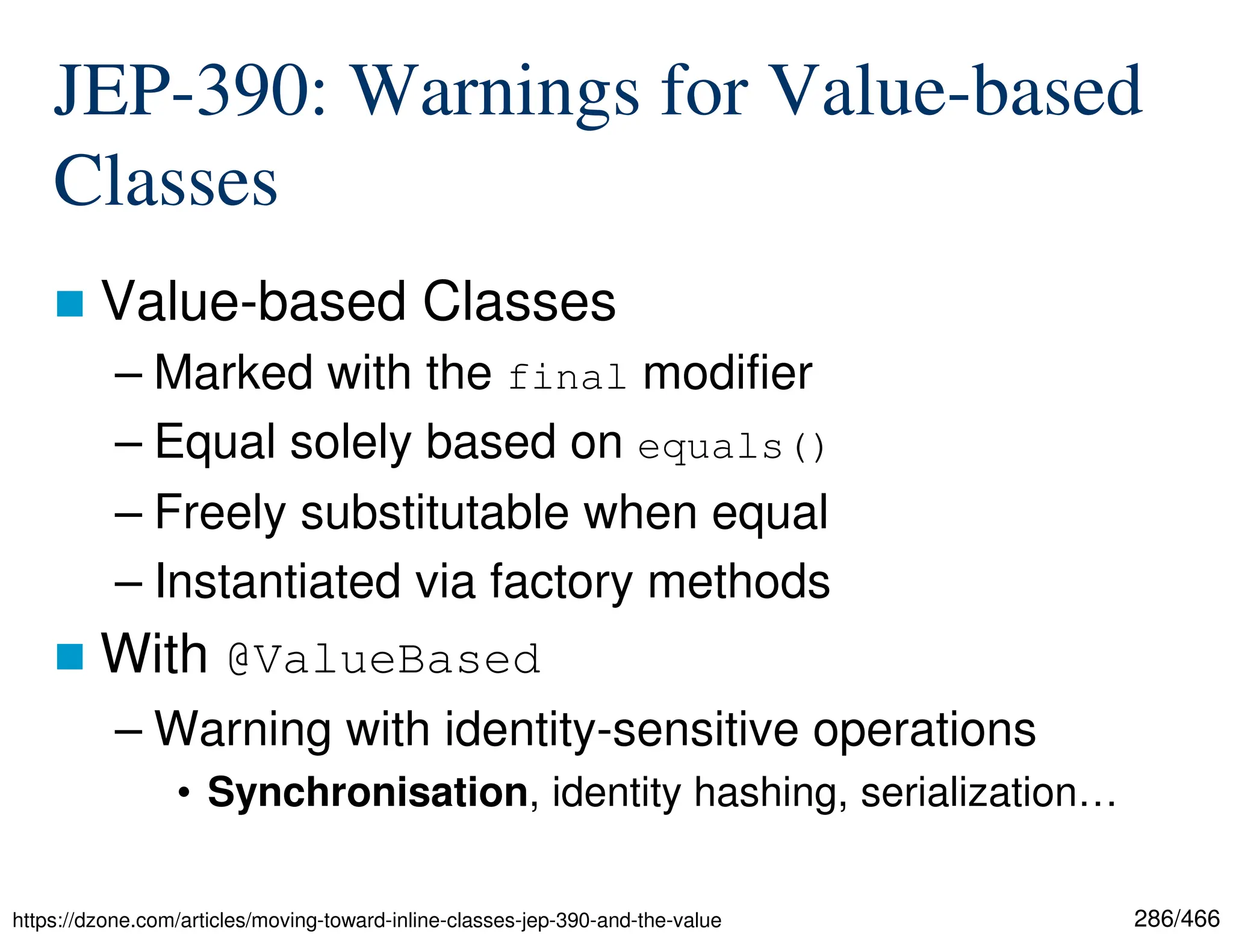
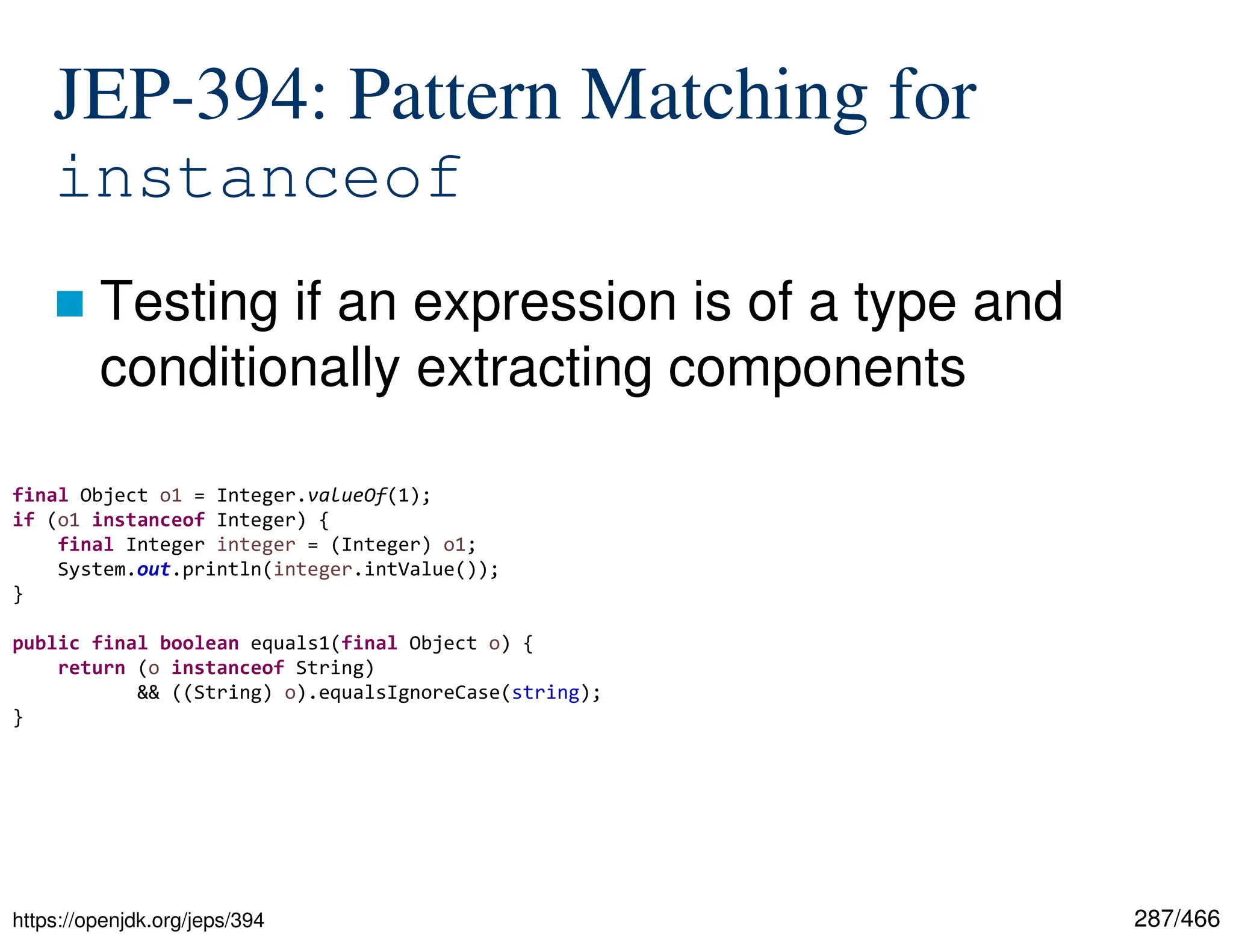
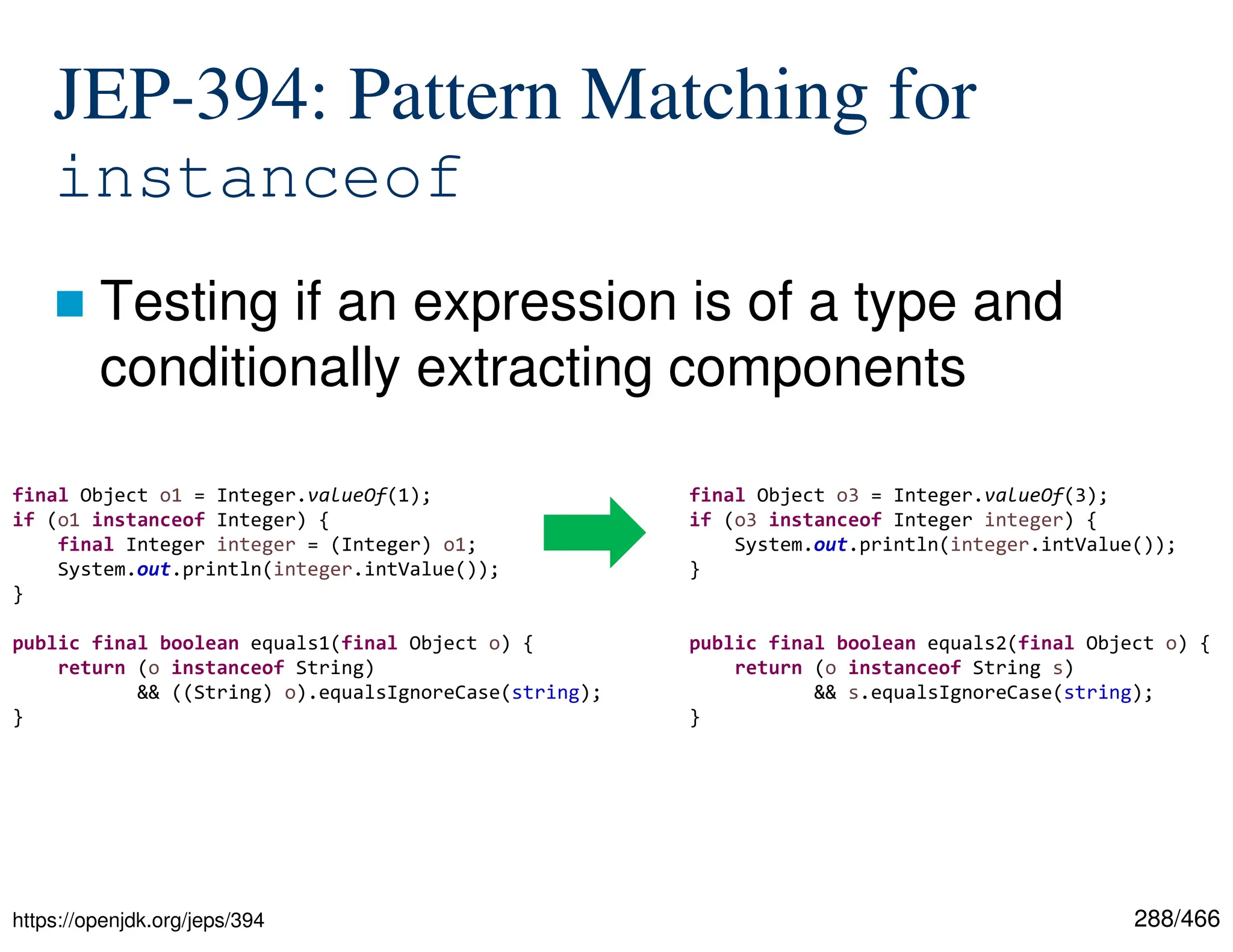
![289/466 JEP-395: Records Nominal tuples, with immutable data – private final – No setters https://www.baeldung.com/java-record-keyword record Person(String firstName, String lastName) { } // ... final Person person1 = new Person("Rick", "Deckard"); System.out.println(person1); final Person person2 = new Person("Rick", "Deckard"); System.out.println(person2); final Person person3 = new Person("Roy", "Batty"); System.out.println(person3); System.out.print(person1.firstName()); System.out.println(person1.equals(person2)); System.out.println(person1.equals(person3)); final Class<?> clazz = Class.forName("[...].Person"); final Field field = clazz.getDeclaredField("firstName"); field.set(person1, "Leon");](https://image.slidesharecdn.com/newjavav0-250327235127-ec555181/75/Evolution-and-Examples-of-Java-Features-from-Java-1-7-to-Java-24-289-2048.jpg)
![290/466 JEP-395: Records Nominal tuples, with immutable data – private final – No setters https://www.baeldung.com/java-record-keyword record Person(String firstName, String lastName) { } // ... final Person person1 = new Person("Rick", "Deckard"); System.out.println(person1); final Person person2 = new Person("Rick", "Deckard"); System.out.println(person2); final Person person3 = new Person("Roy", "Batty"); System.out.println(person3); System.out.print(person1.firstName()); System.out.println(person1.equals(person2)); System.out.println(person1.equals(person3)); final Class<?> clazz = Class.forName("[...].Person"); final Field field = clazz.getDeclaredField("firstName"); field.set(person1, "Leon"); IllegalAccessException](https://image.slidesharecdn.com/newjavav0-250327235127-ec555181/75/Evolution-and-Examples-of-Java-Features-from-Java-1-7-to-Java-24-290-2048.jpg)

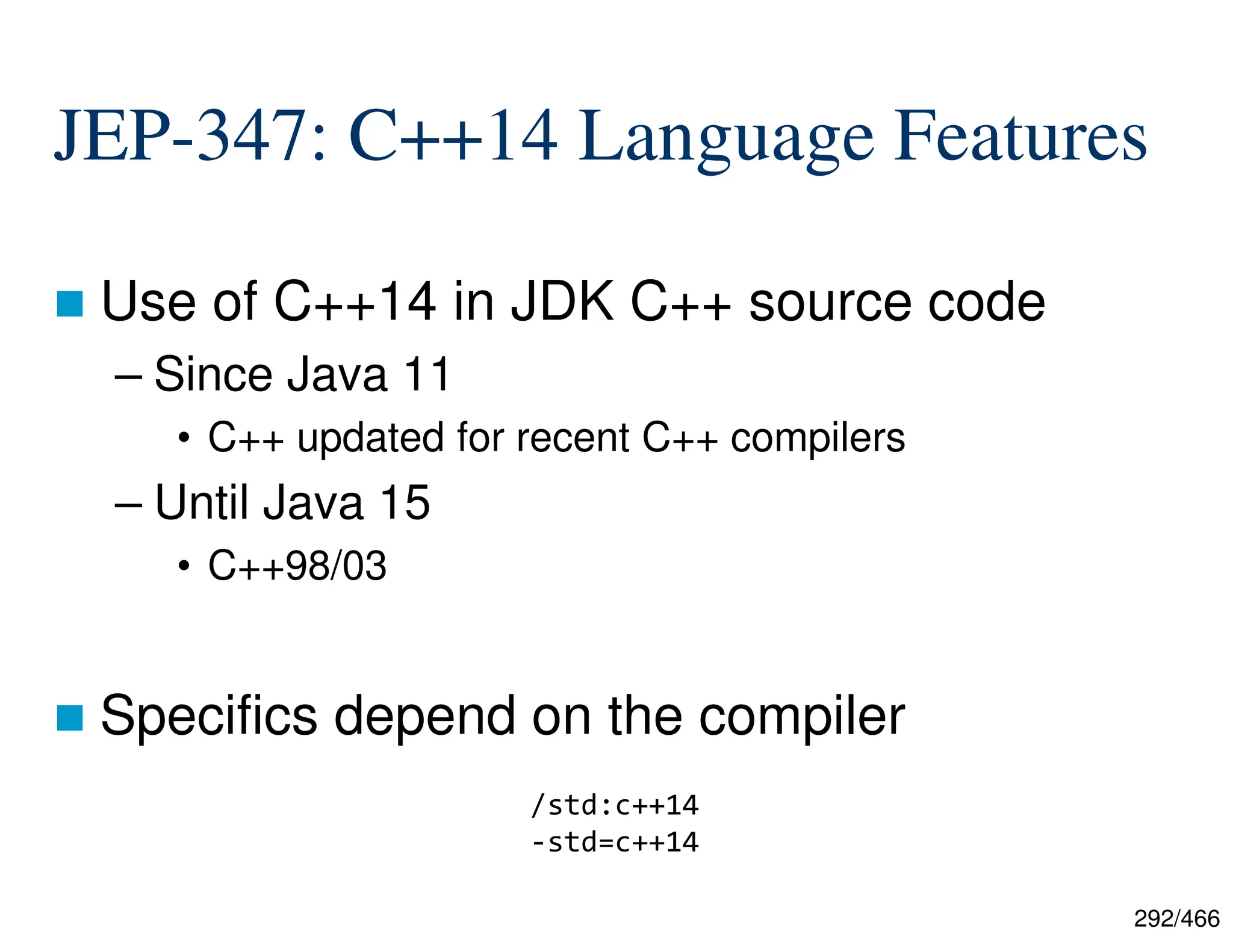
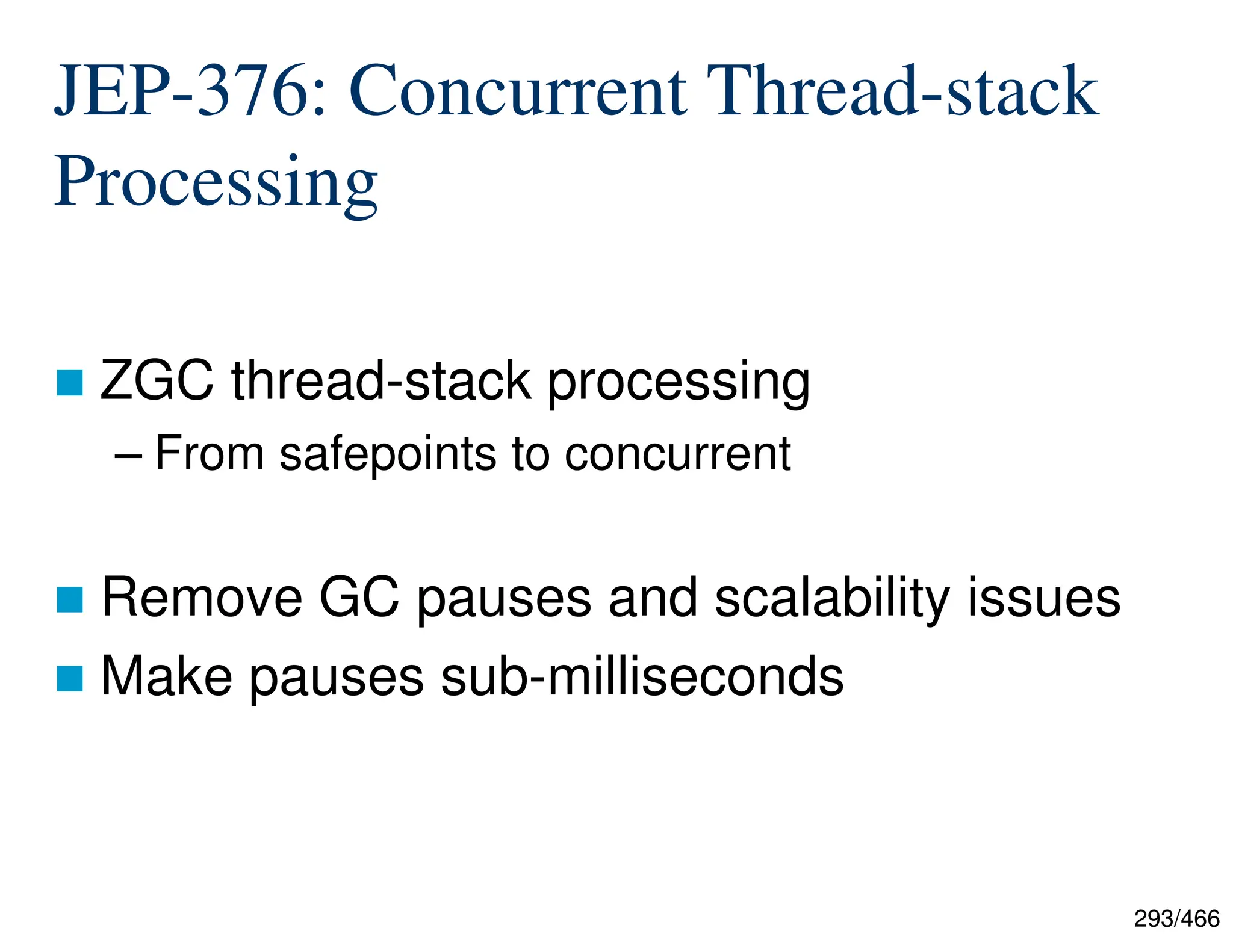



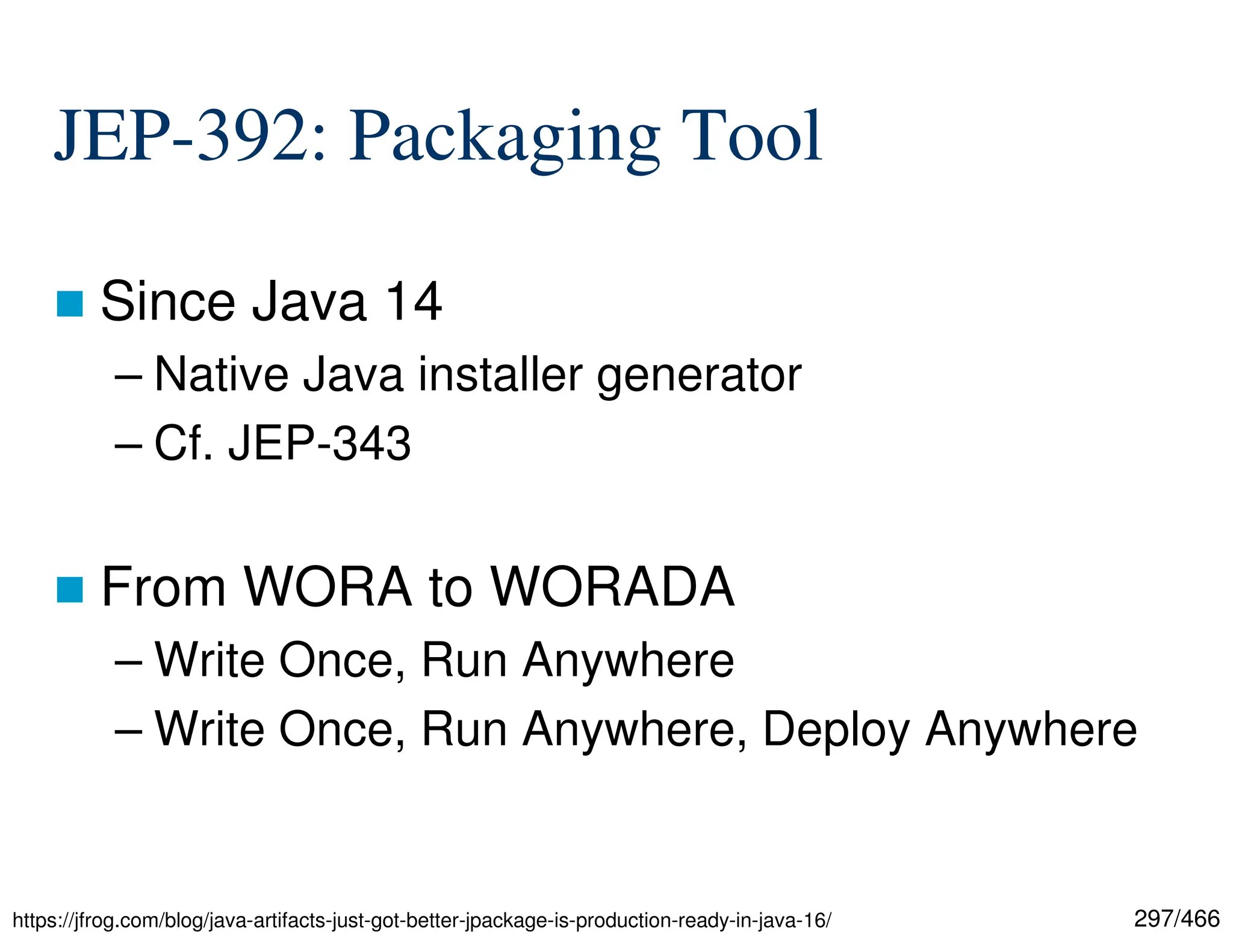
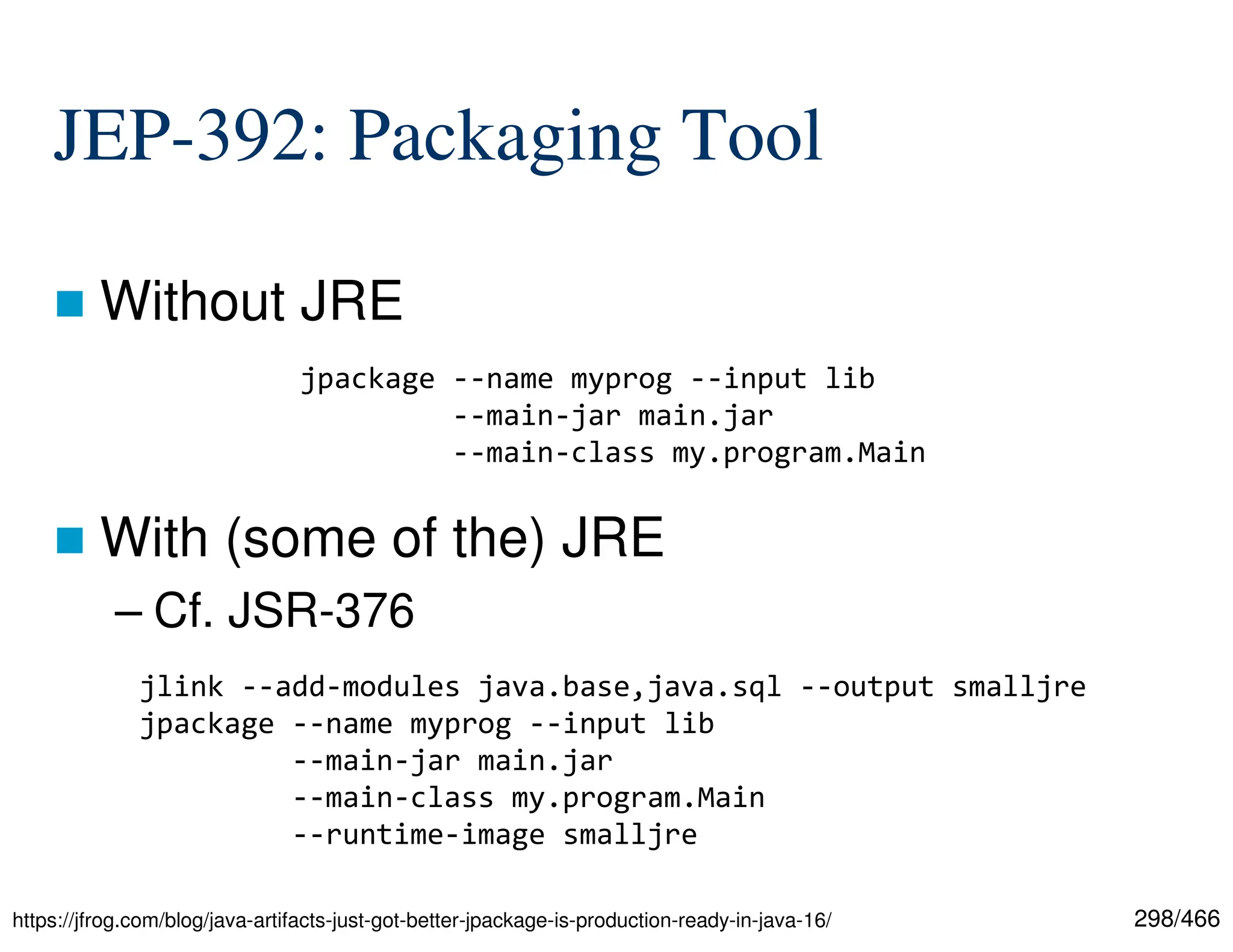
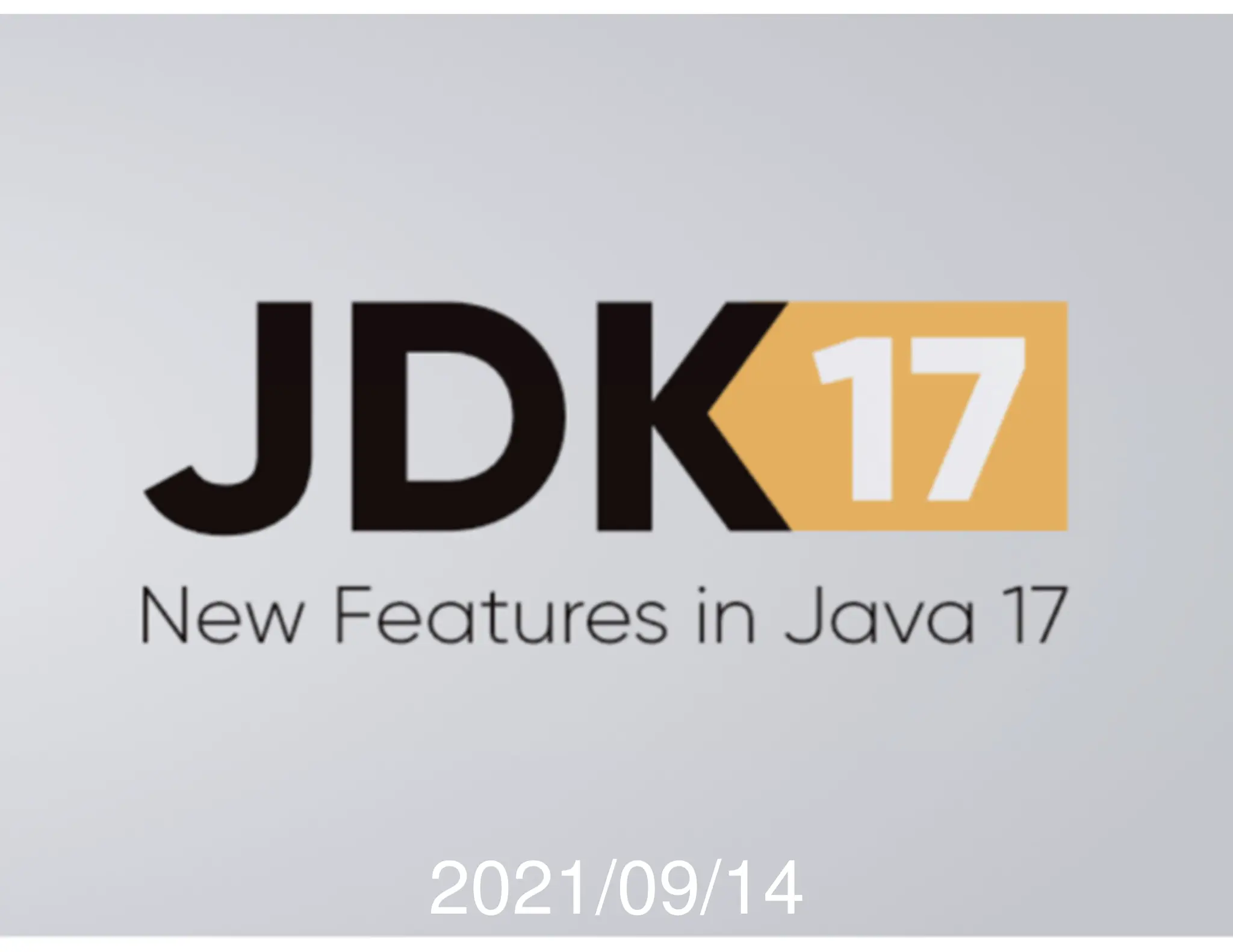

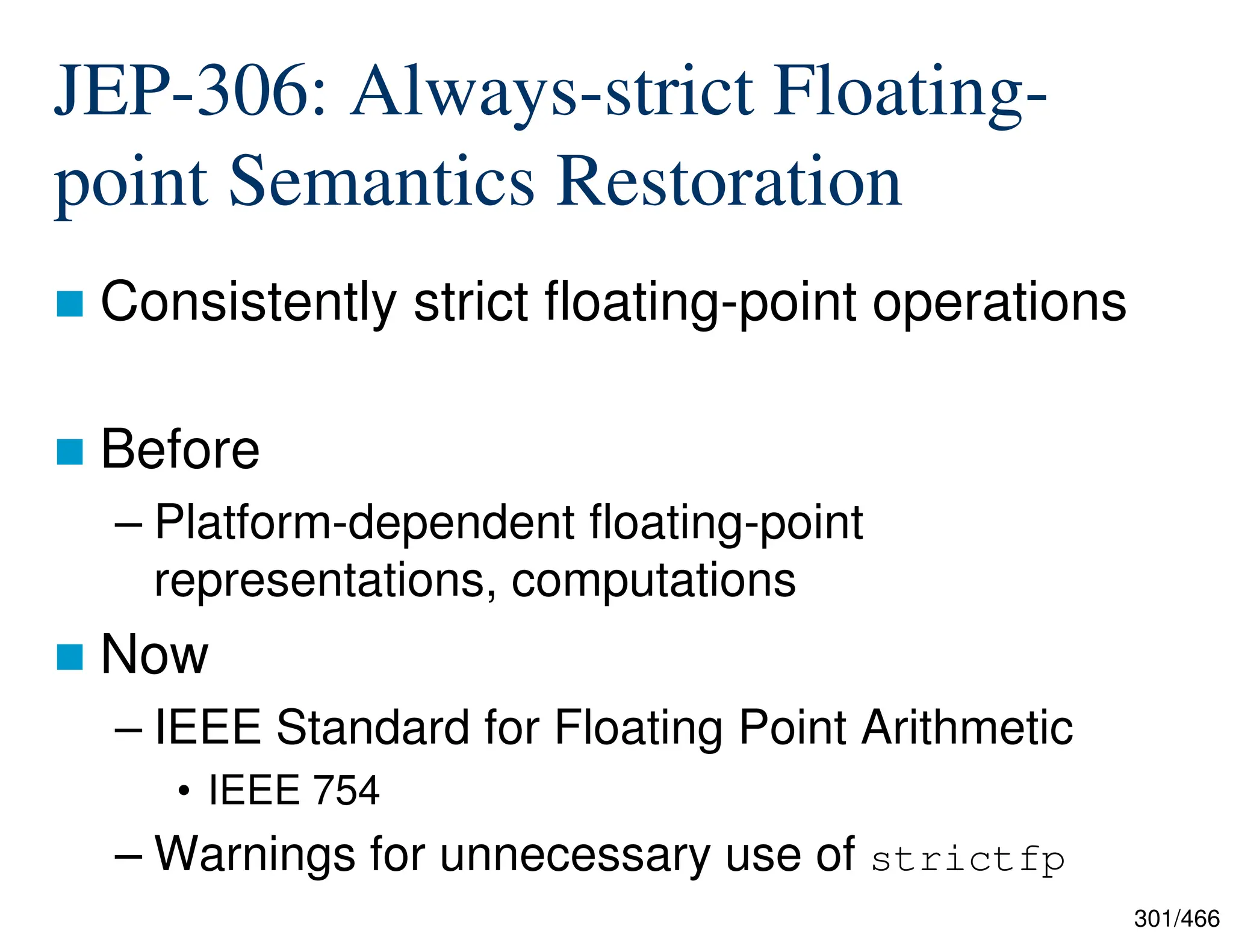
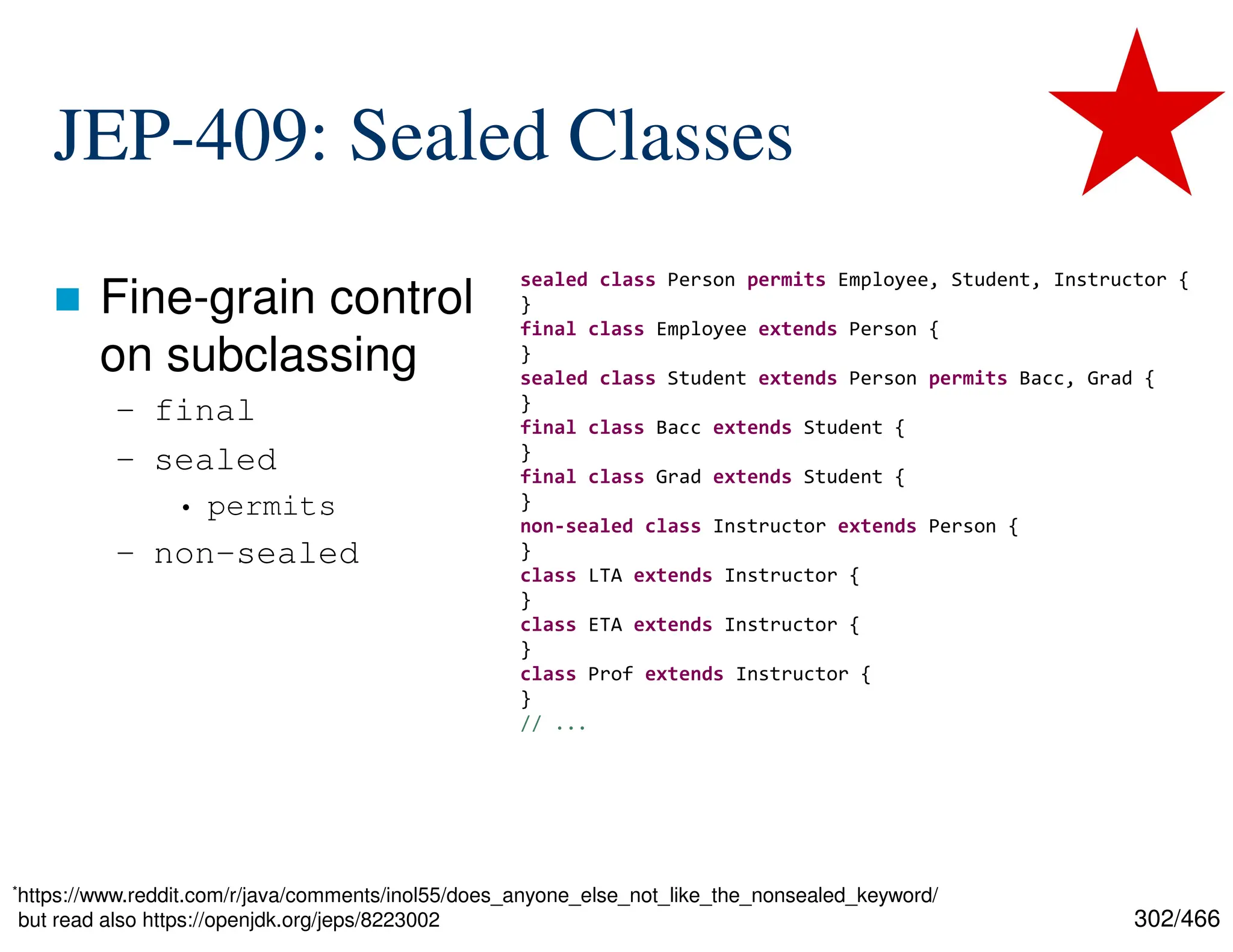
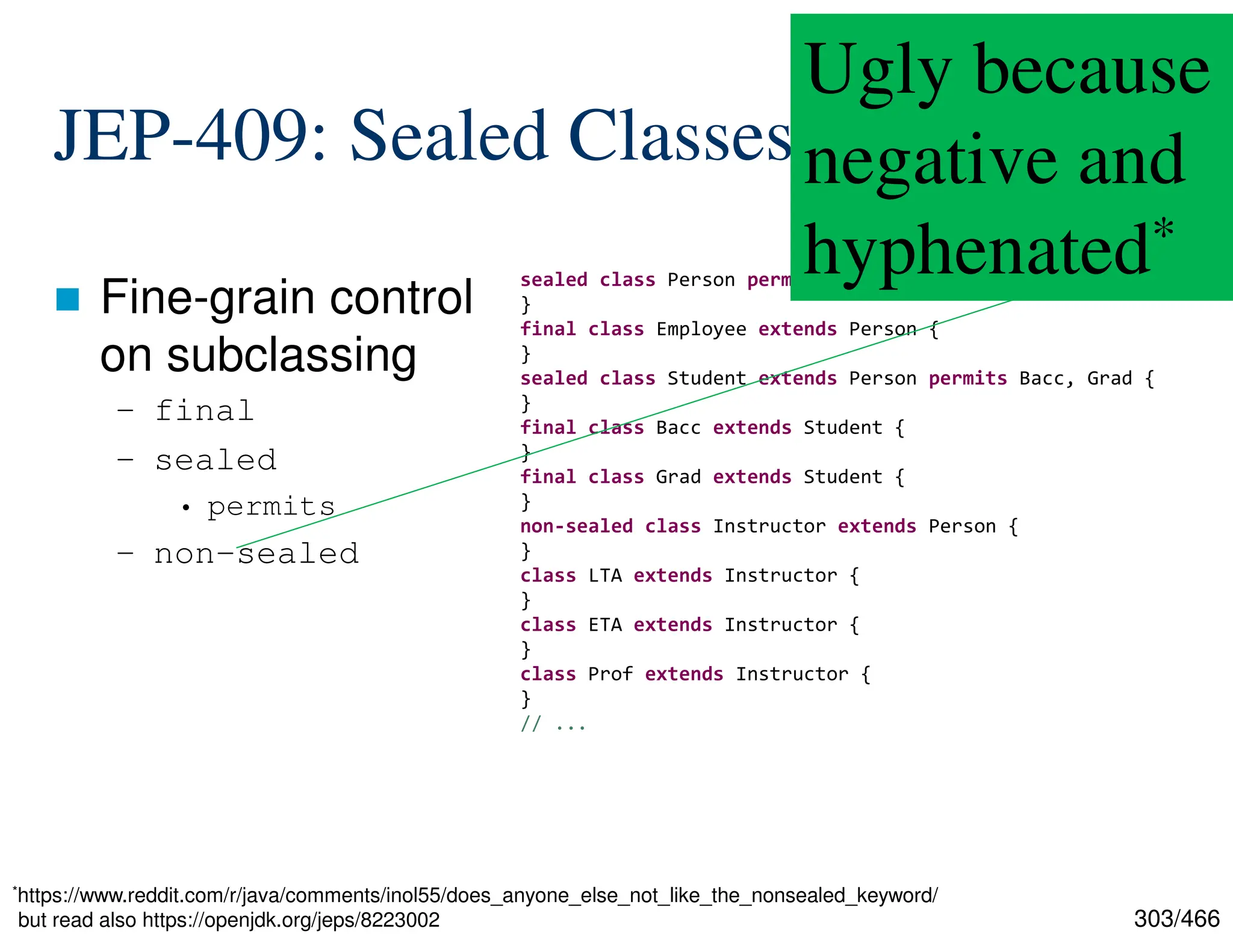



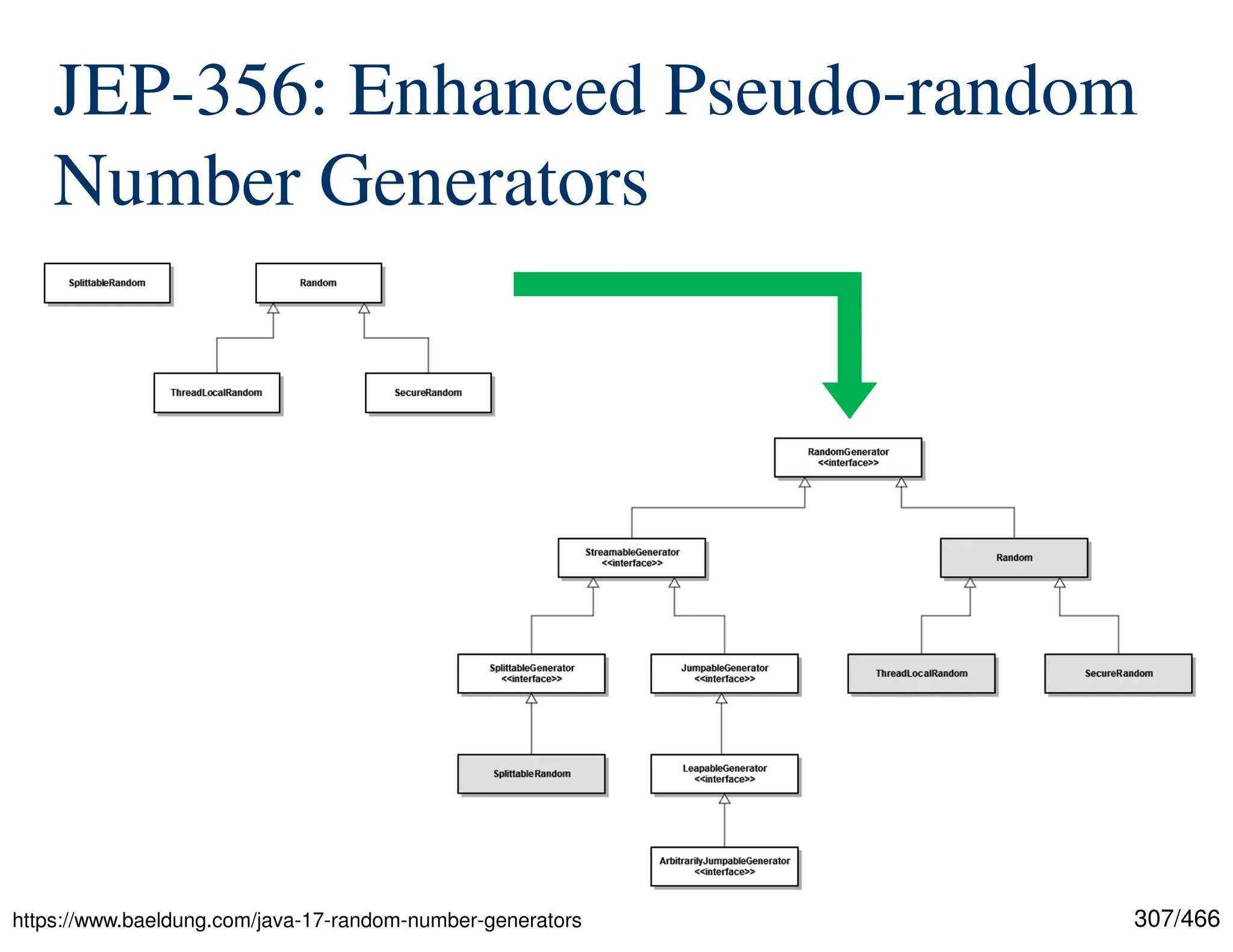
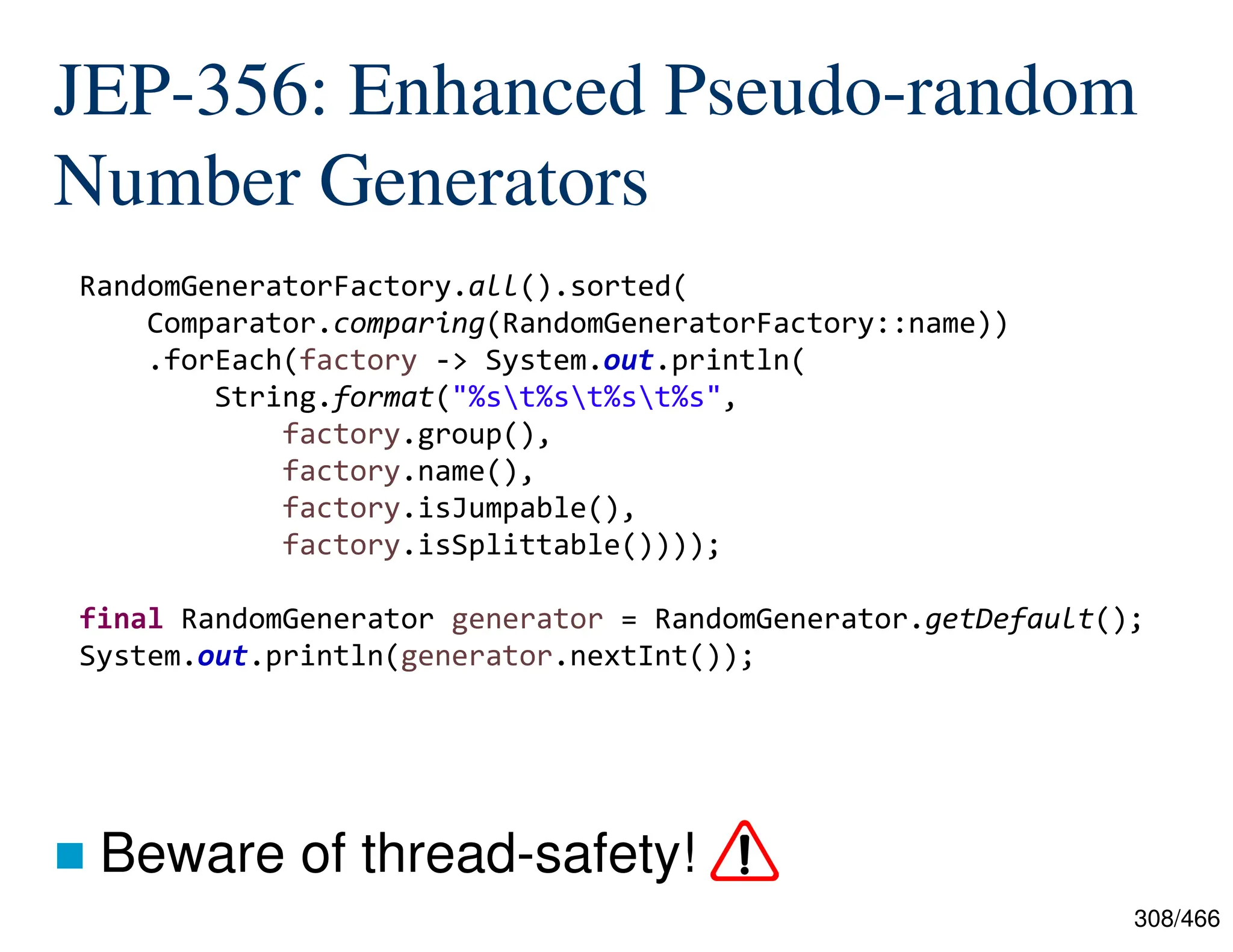
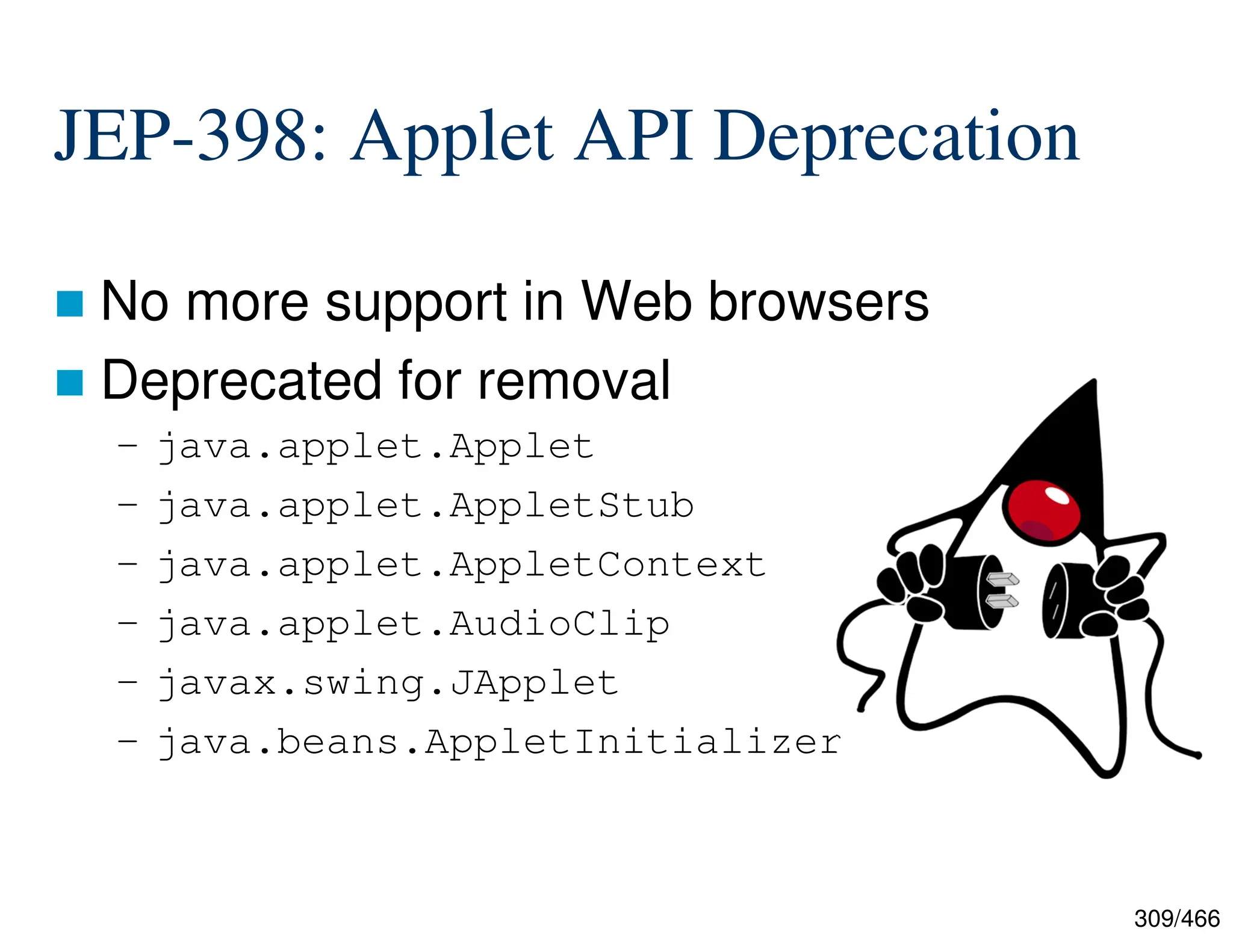
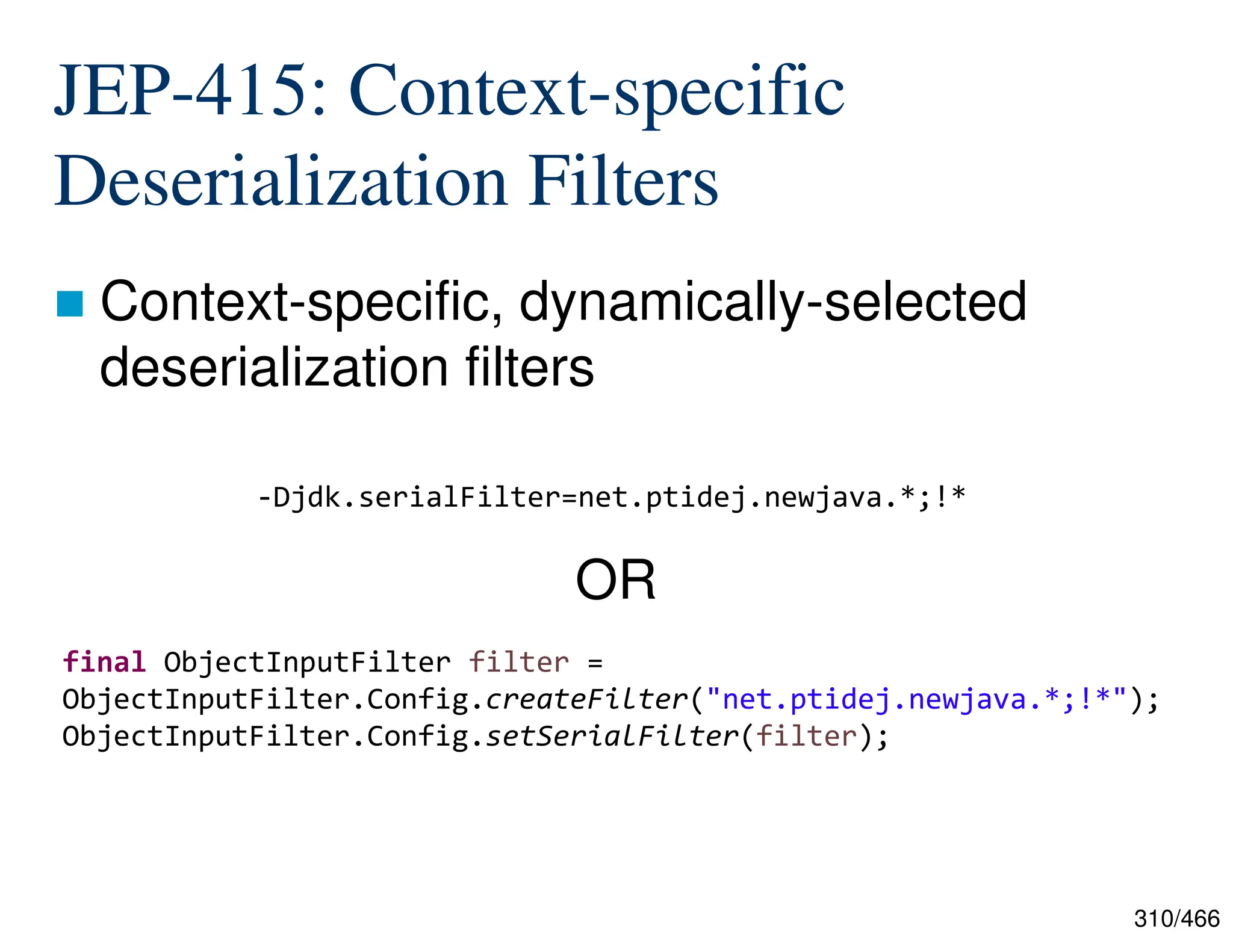


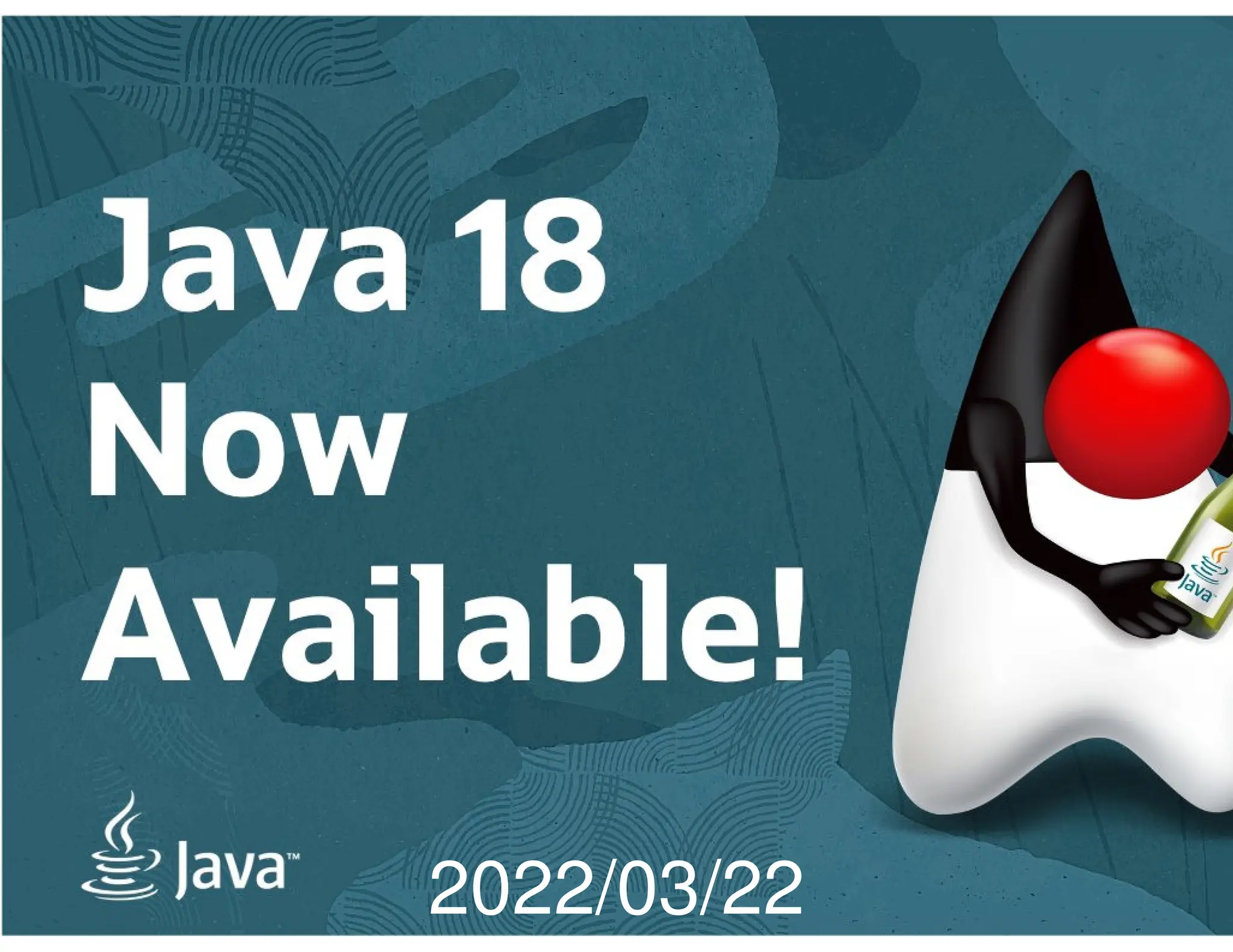

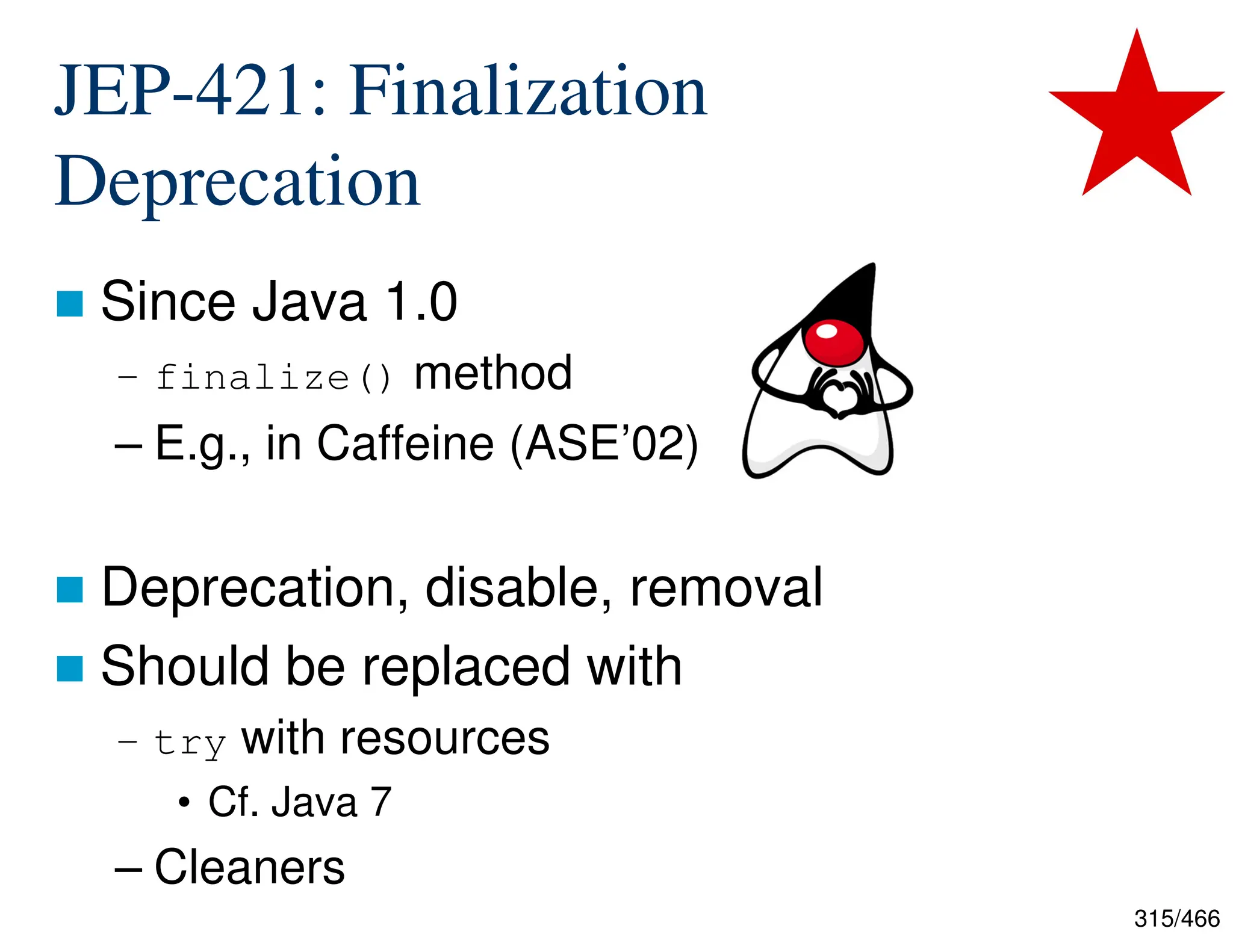
![316/466 JEP-421: Finalization Deprecation Since Java 9 – java.lang.ref.Cleaner – Cleanup actions for groups of objects https://howtodoinjava.com/java/basics/java-cleaners/ public static void main(final String[] args) throws Exception { try (final ResourceAccessingClass o = new ResourceAccessingClass()) { // Safely use the resource o.businessOperation1(); o.businessOperation2(); } }](https://image.slidesharecdn.com/newjavav0-250327235127-ec555181/75/Evolution-and-Examples-of-Java-Features-from-Java-1-7-to-Java-24-316-2048.jpg)
![317/466 JEP-421: Finalization Deprecation Since Java 9 – java.lang.ref.Cleaner – Cleanup actions for groups of objects https://howtodoinjava.com/java/basics/java-cleaners/ public static void main(final String[] args) throws Exception { try (final ResourceAccessingClass o = new ResourceAccessingClass()) { // Safely use the resource o.businessOperation1(); o.businessOperation2(); } } Inside businessOperation1() with [...].Resource@65b54208 Inside businessOperation2() with [...].Resource@65b54208 Resource cleaned up](https://image.slidesharecdn.com/newjavav0-250327235127-ec555181/75/Evolution-and-Examples-of-Java-Features-from-Java-1-7-to-Java-24-317-2048.jpg)
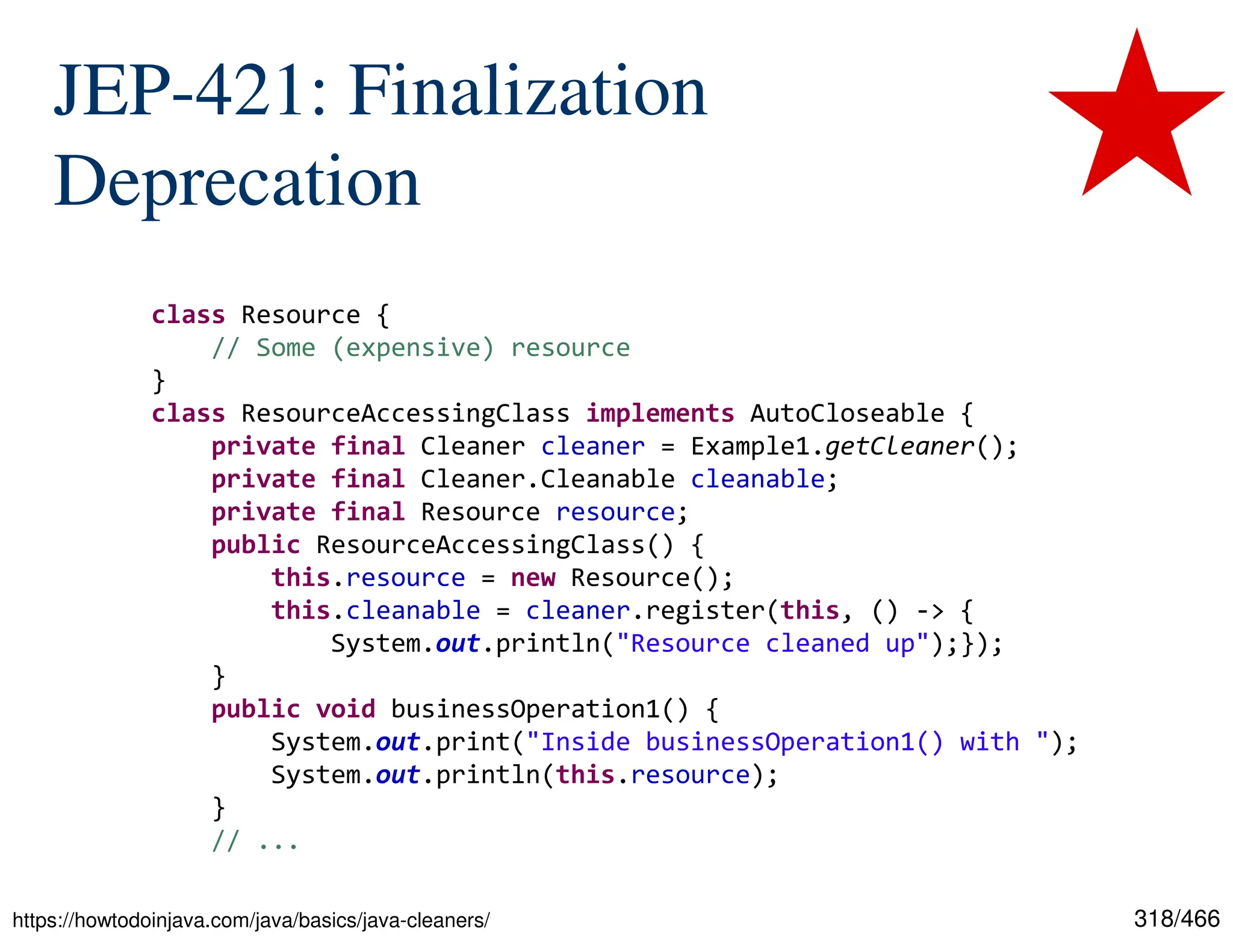
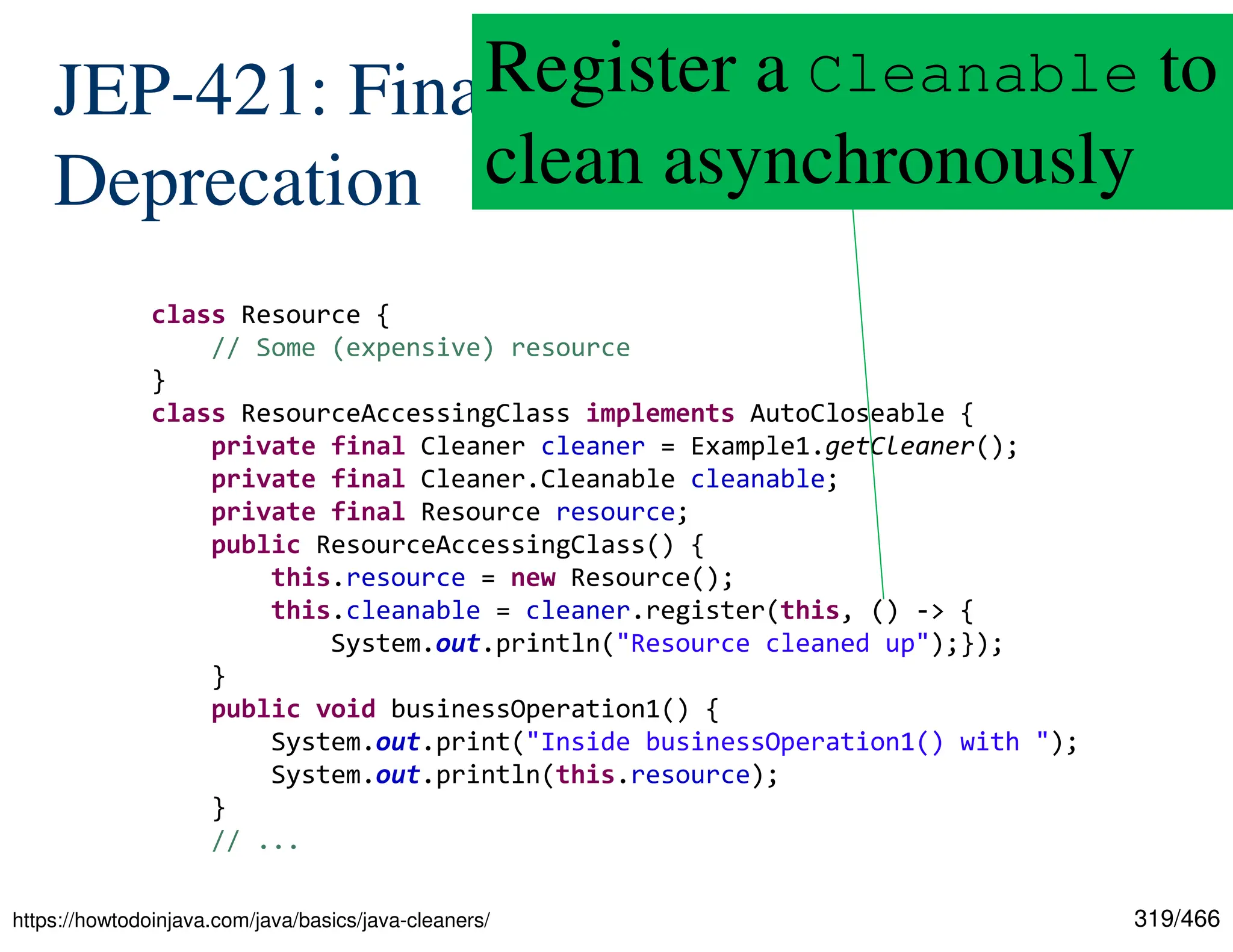



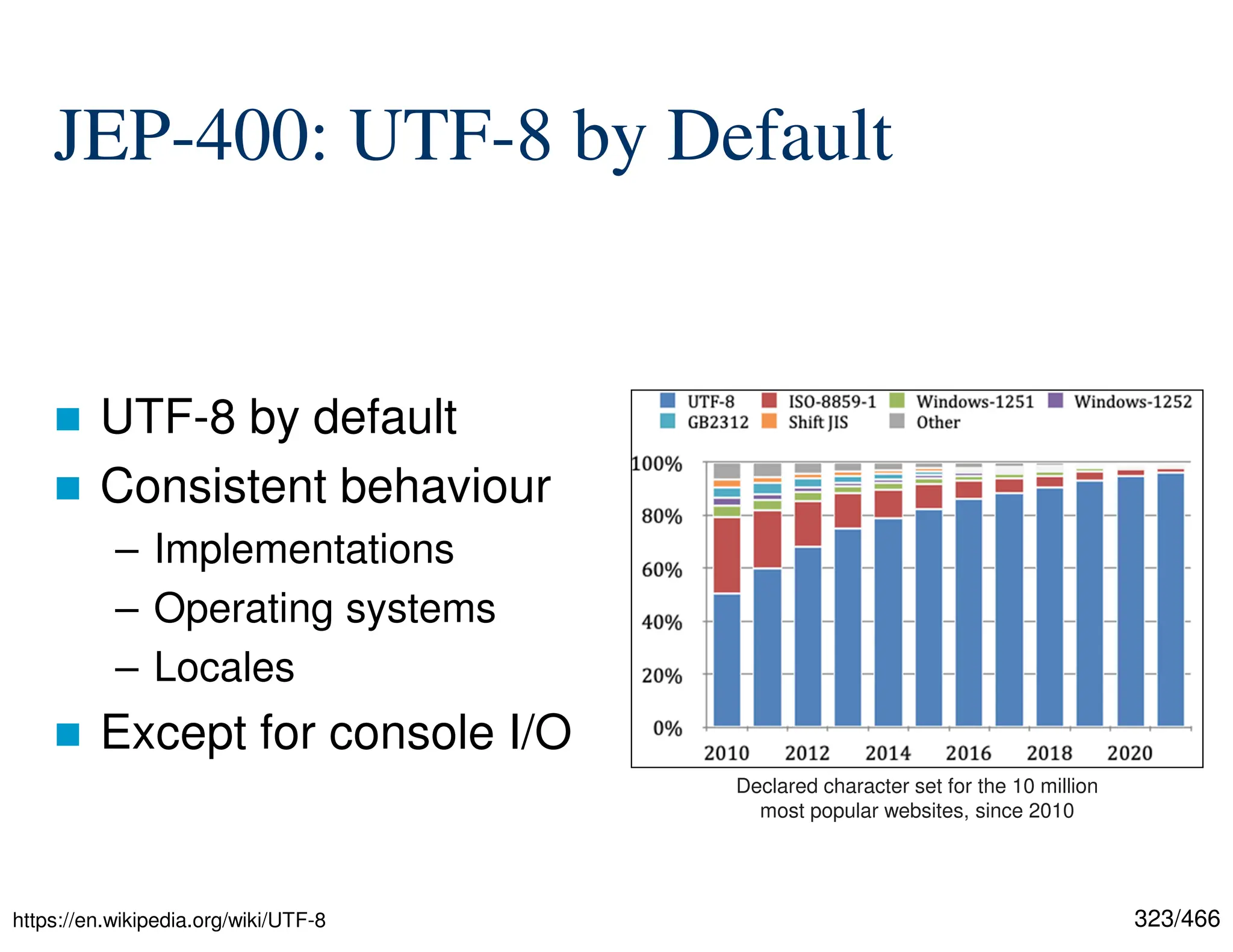
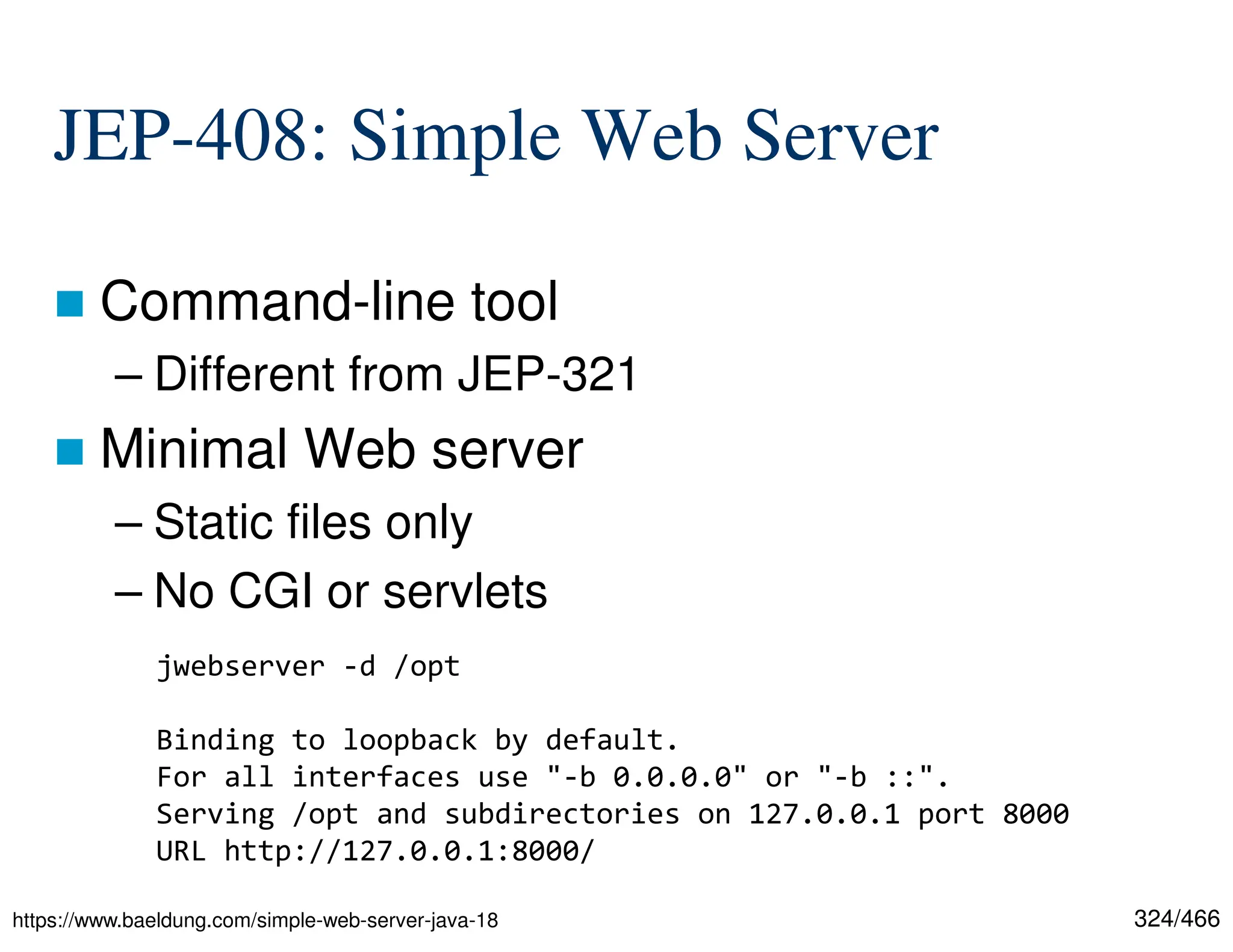
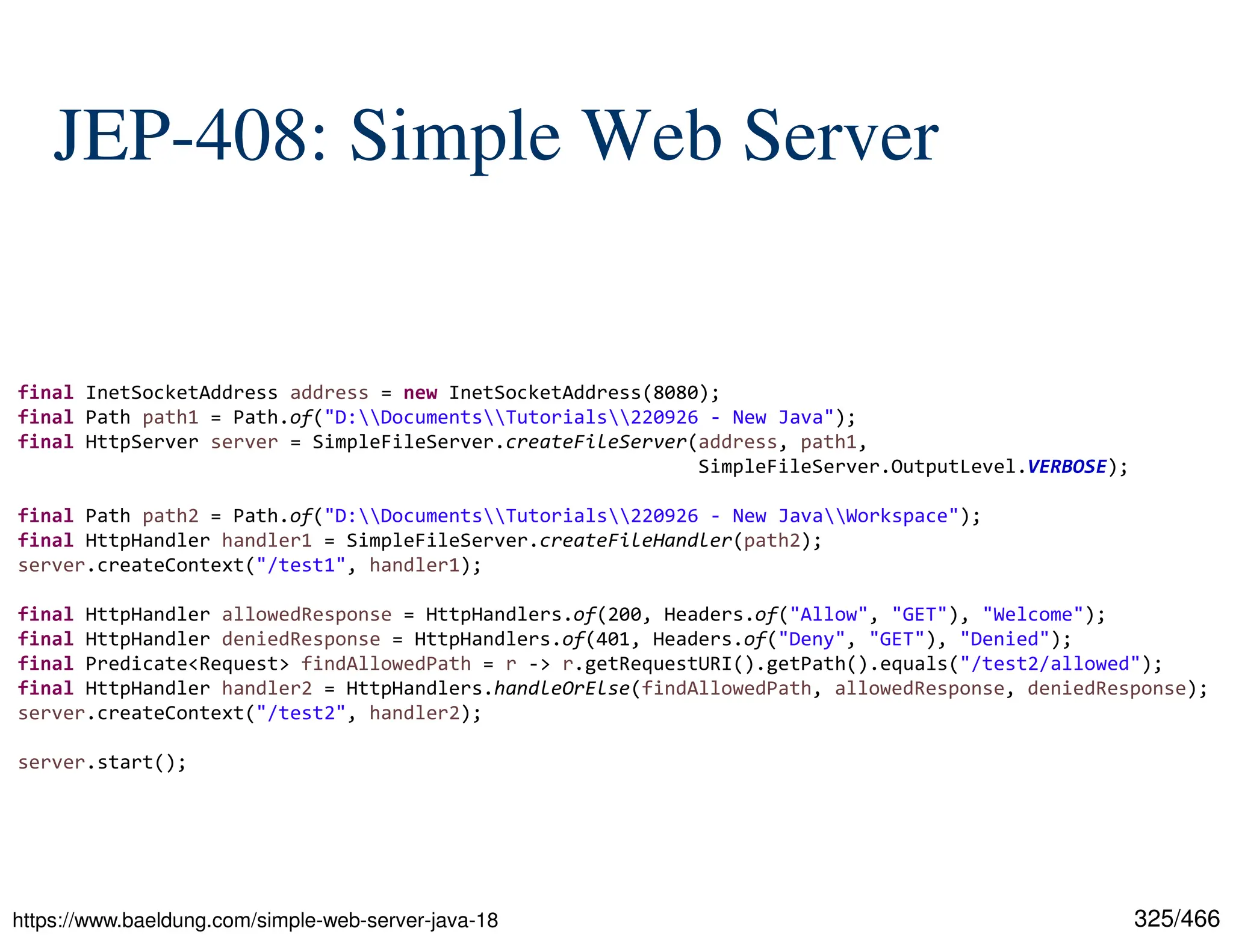
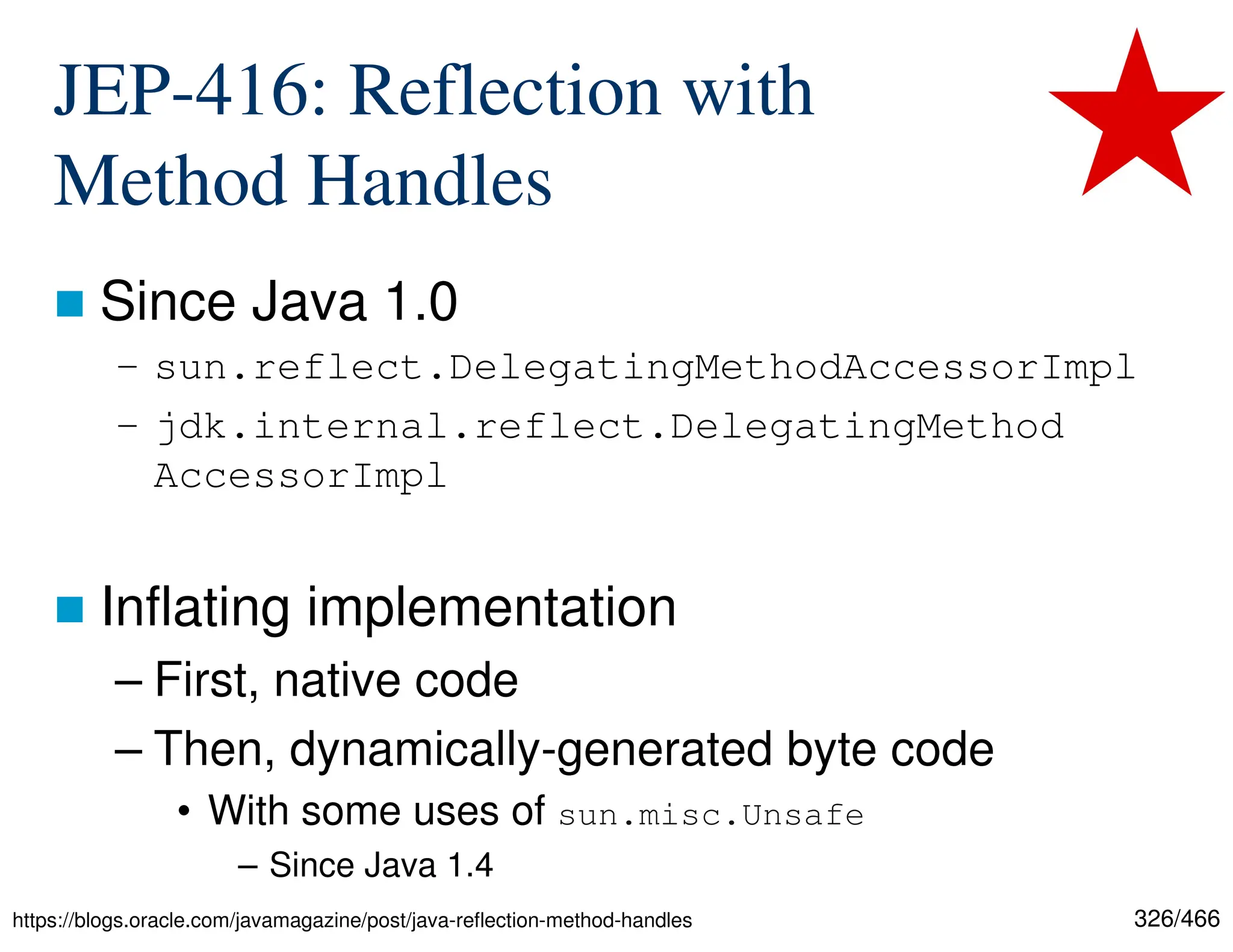
![327/466 JEP-416: Reflection with Method Handles Method handles ≈ Reflection API https://blogs.oracle.com/javamagazine/post/java-reflection-method-handles int compare(final String str1, final String str2) { return 42; } int compare(final String str, final int i) { return 24; } public static void main(final String[] args) throws Throwable { var lookup = MethodHandles.lookup(); var methodType1 = MethodType.methodType(int.class, String.class, String.class); System.out.println("MethodType : " + methodType1); var methodHandle1 = lookup.findVirtual(lookup.lookupClass(), "compare", methodType1); System.out.println("MethodHandle: " + methodHandle1.type()); System.out.println(methodHandle1.invoke(new Example1(), "Hello", "World!")); var methodType2 = MethodType.methodType(int.class, String.class, int.class); var methodHandle2 = lookup.findVirtual(lookup.lookupClass(), "compare", methodType2); System.out.println(methodHandle2.invoke(new Example1(), "Hello", 0)); }](https://image.slidesharecdn.com/newjavav0-250327235127-ec555181/75/Evolution-and-Examples-of-Java-Features-from-Java-1-7-to-Java-24-327-2048.jpg)
![328/466 JEP-416: Reflection with Method Handles Method handles ≈ Reflection API https://blogs.oracle.com/javamagazine/post/java-reflection-method-handles int compare(final String str1, final String str2) { return 42; } int compare(final String str, final int i) { return 24; } public static void main(final String[] args) throws Throwable { var lookup = MethodHandles.lookup(); var methodType1 = MethodType.methodType(int.class, String.class, String.class); System.out.println("MethodType : " + methodType1); var methodHandle1 = lookup.findVirtual(lookup.lookupClass(), "compare", methodType1); System.out.println("MethodHandle: " + methodHandle1.type()); System.out.println(methodHandle1.invoke(new Example1(), "Hello", "World!")); var methodType2 = MethodType.methodType(int.class, String.class, int.class); var methodHandle2 = lookup.findVirtual(lookup.lookupClass(), "compare", methodType2); System.out.println(methodHandle2.invoke(new Example1(), "Hello", 0)); } Introspection, really](https://image.slidesharecdn.com/newjavav0-250327235127-ec555181/75/Evolution-and-Examples-of-Java-Features-from-Java-1-7-to-Java-24-328-2048.jpg)
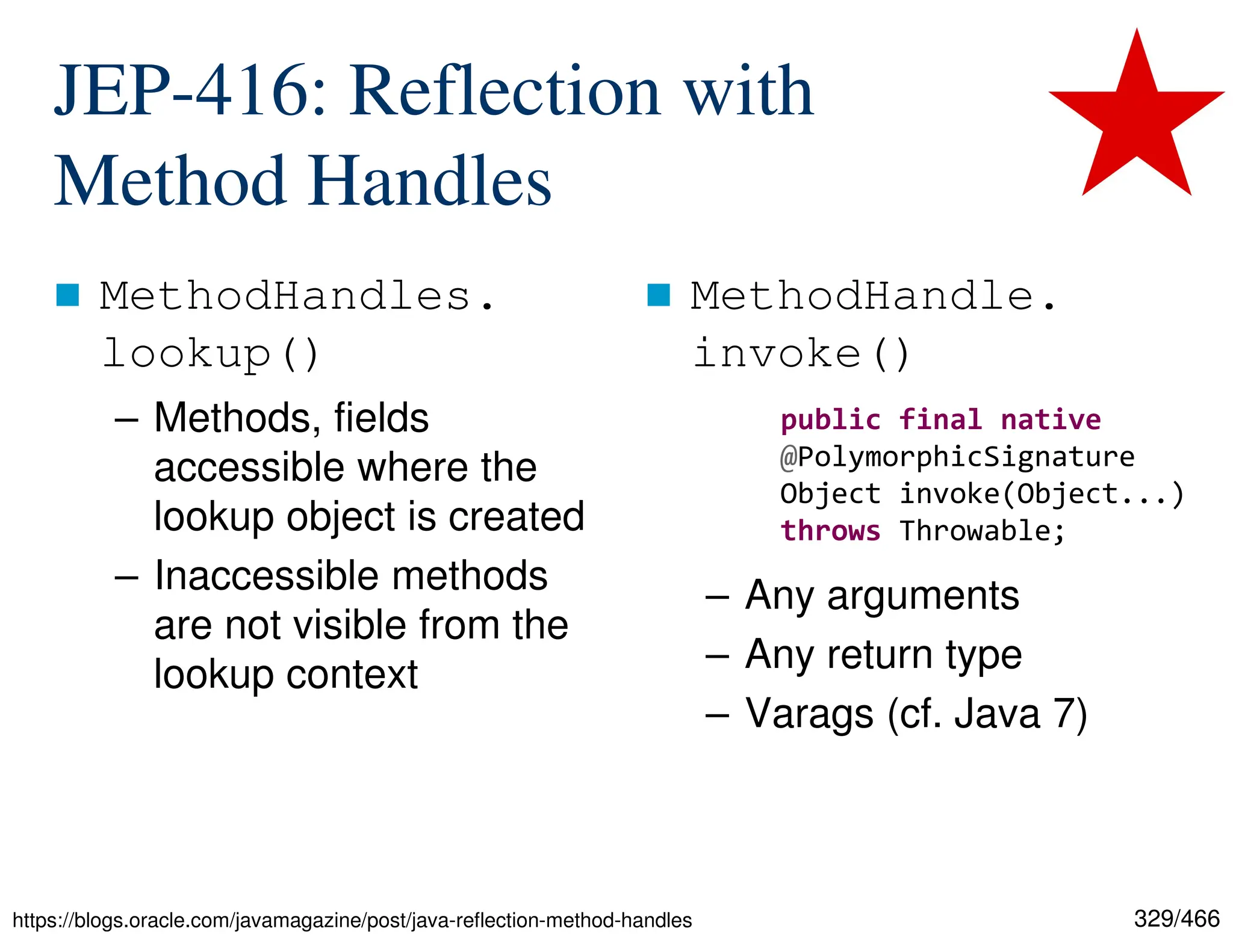
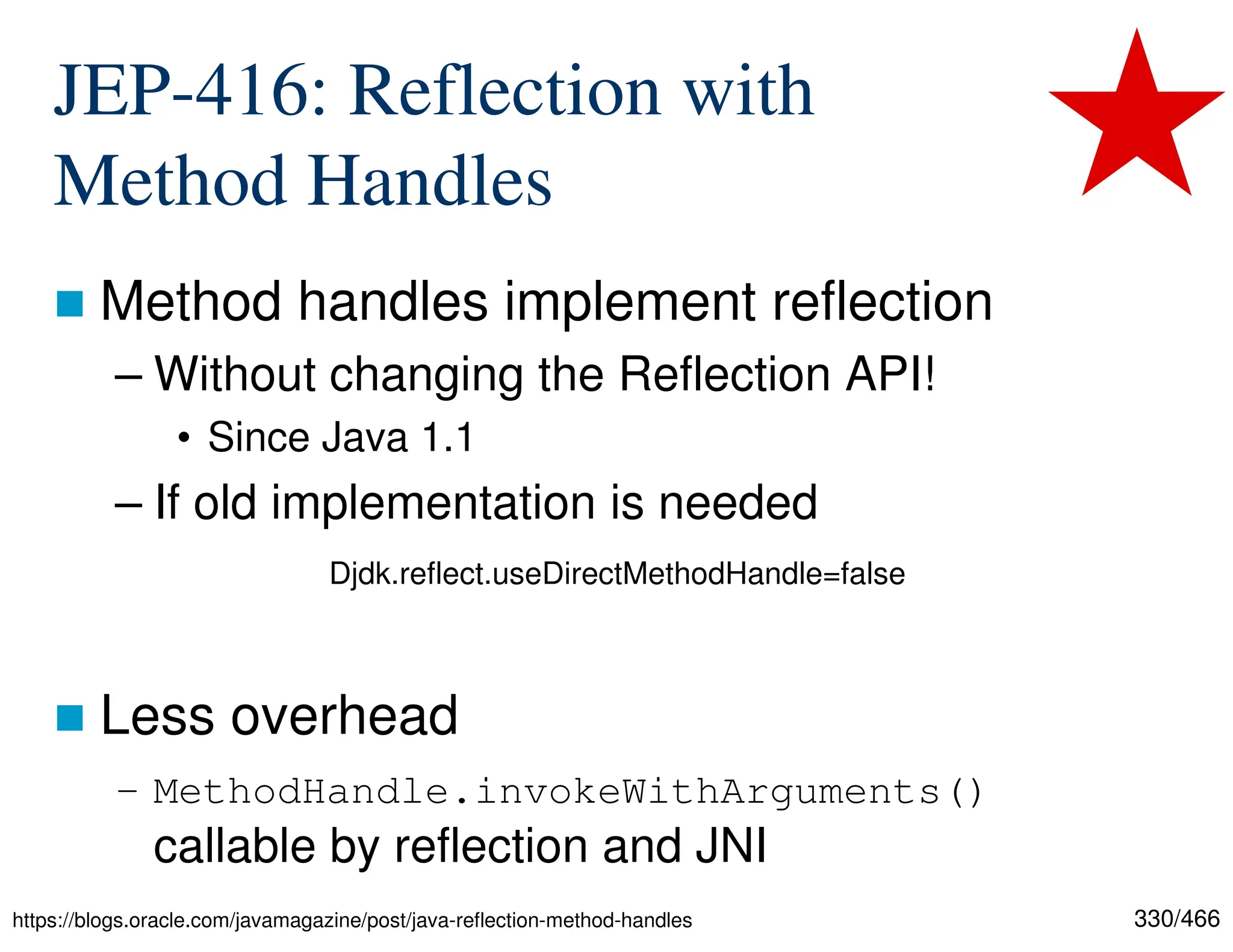
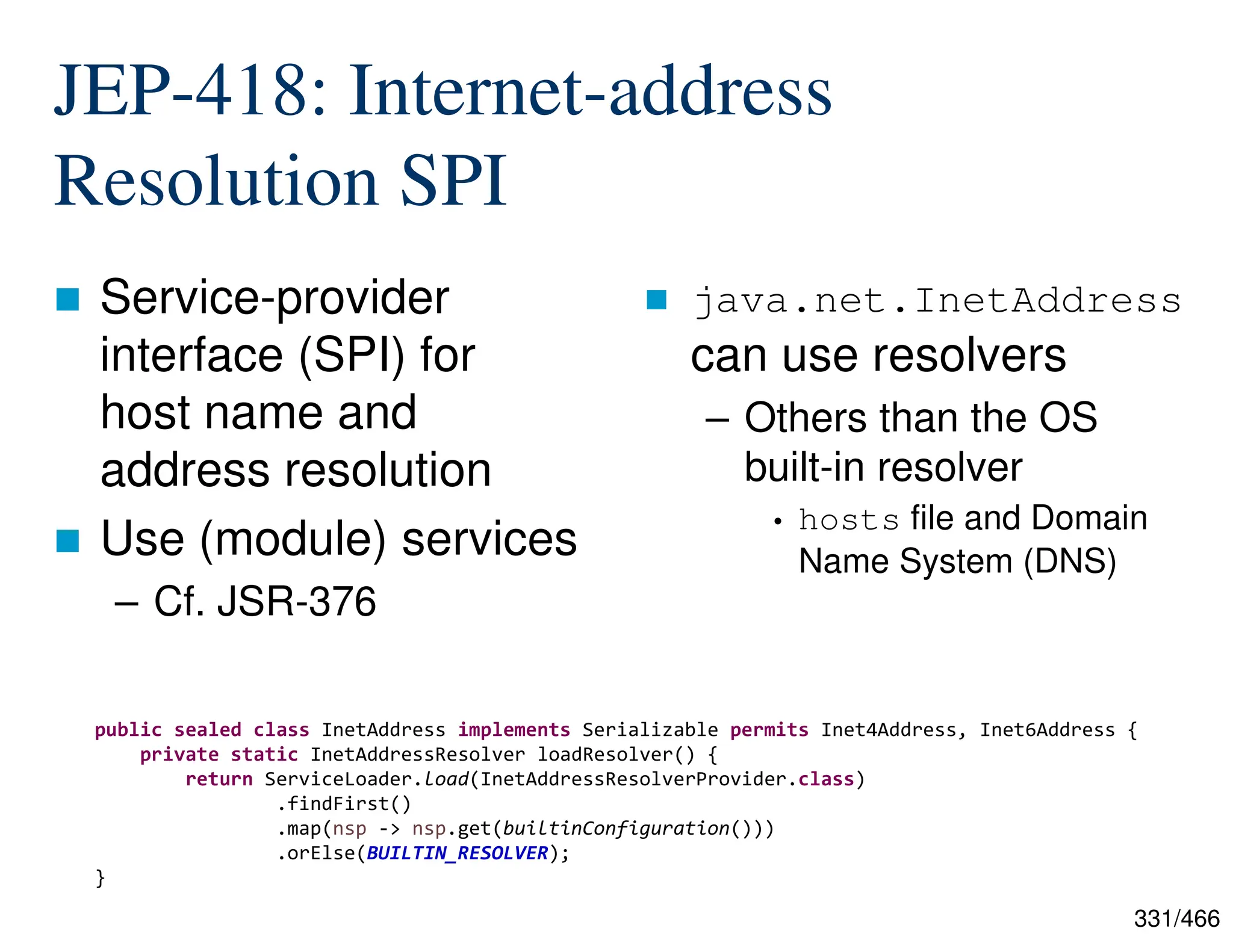
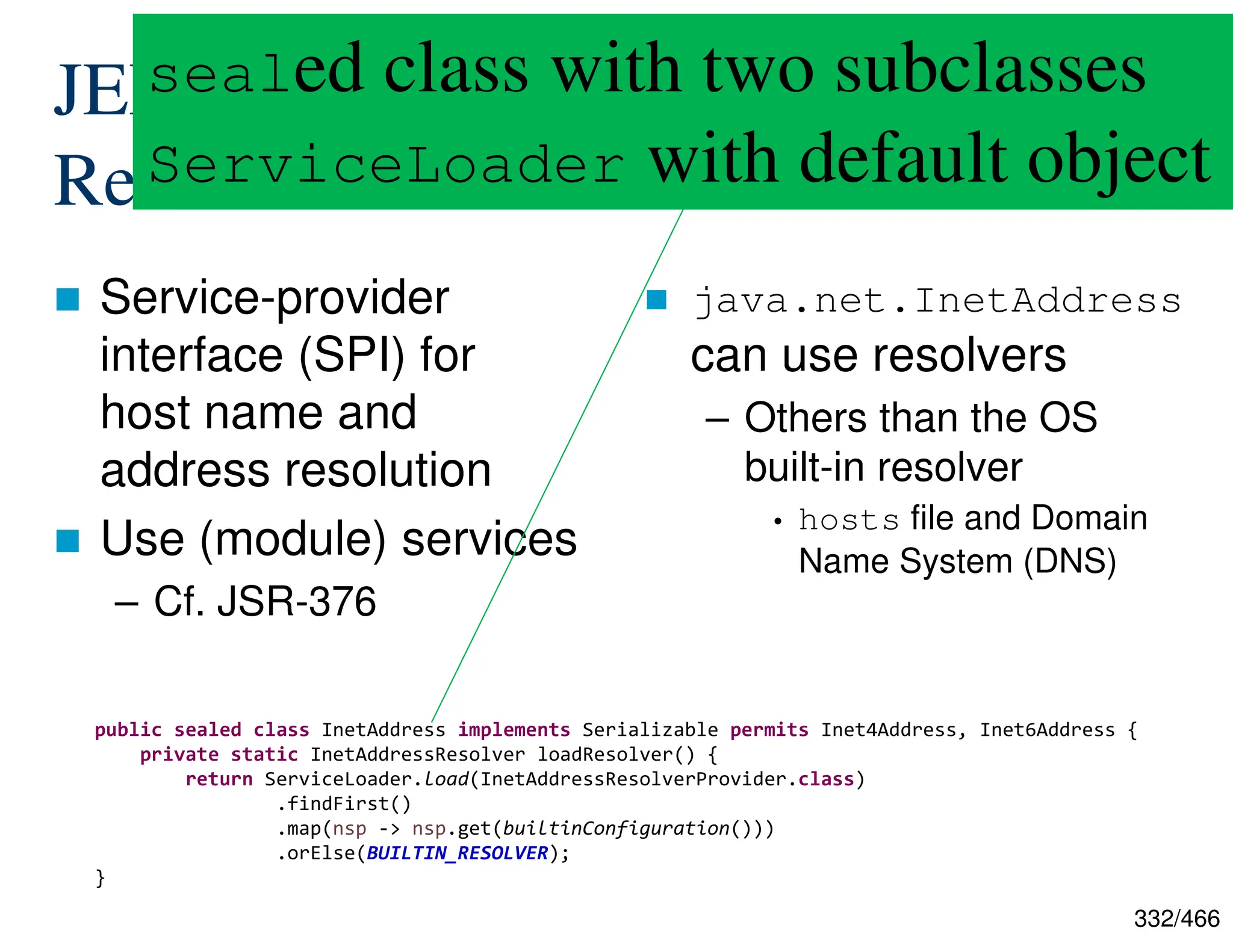


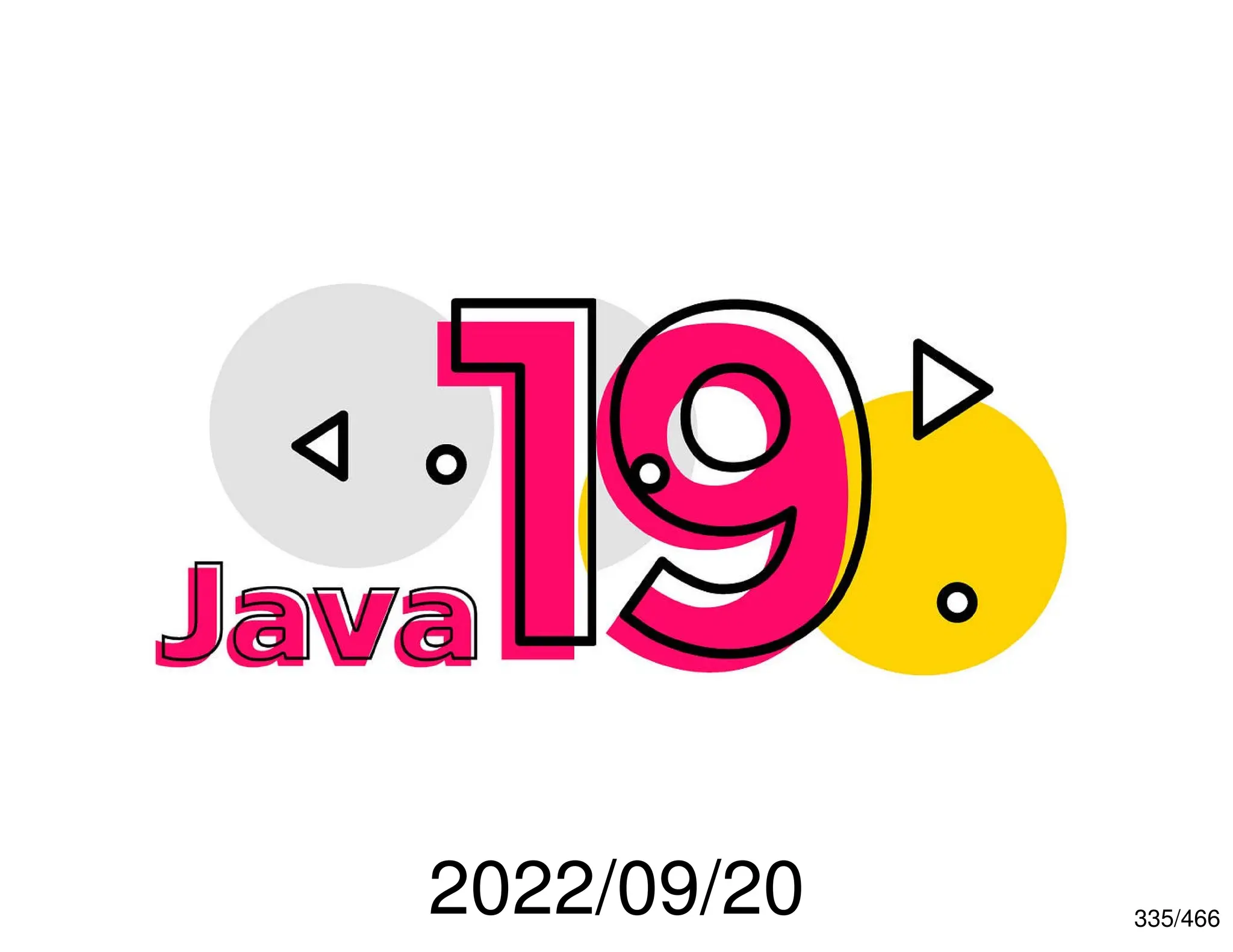

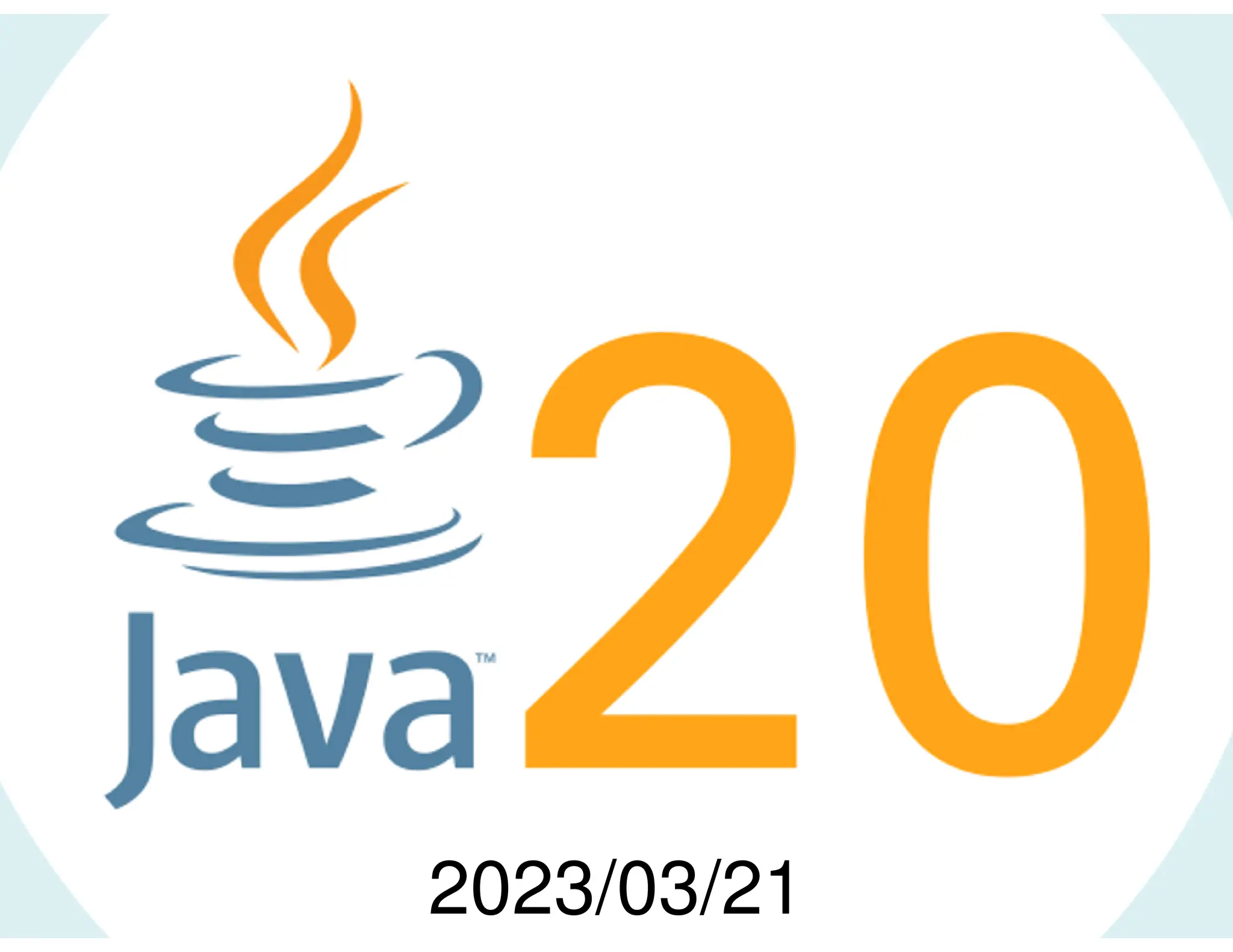

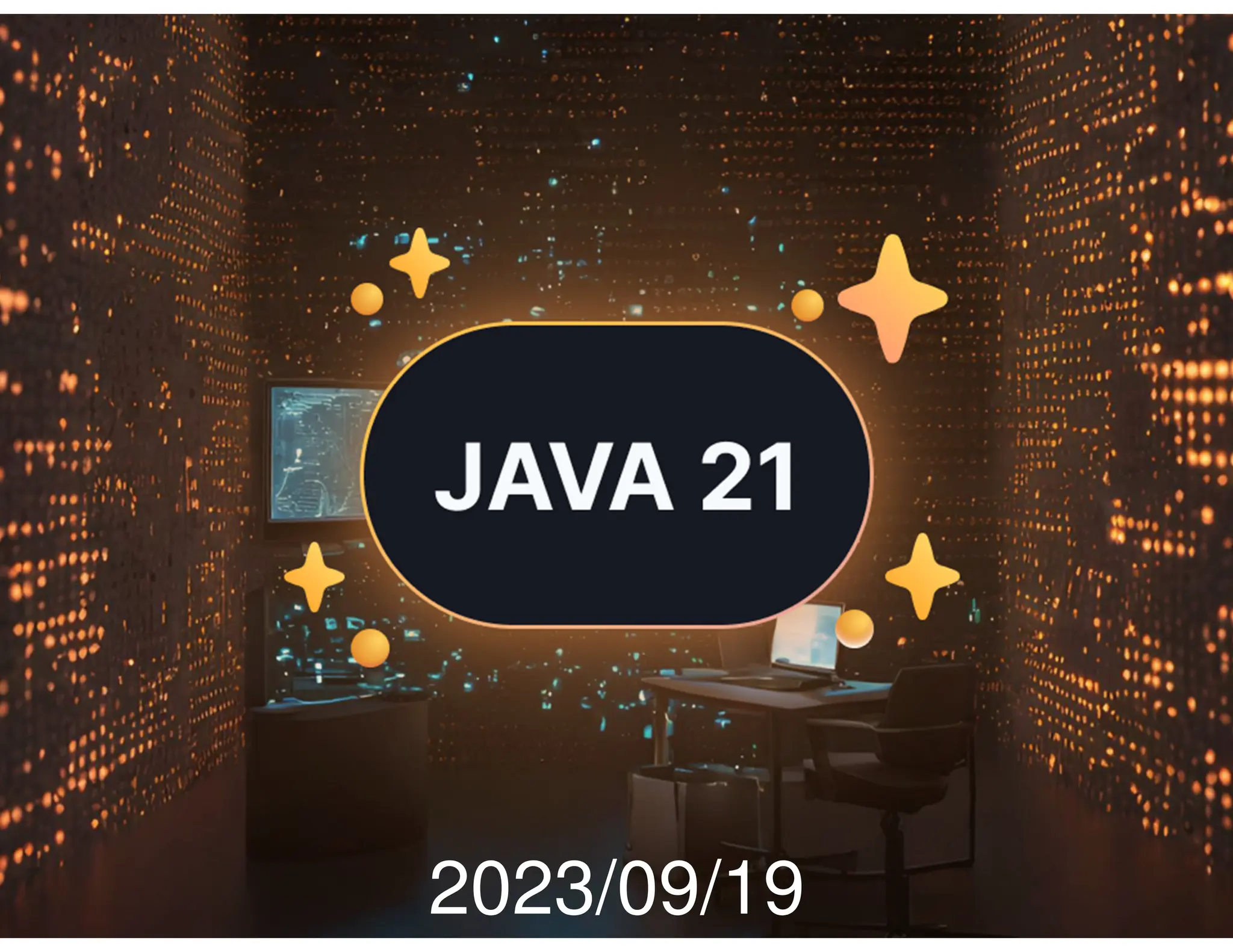

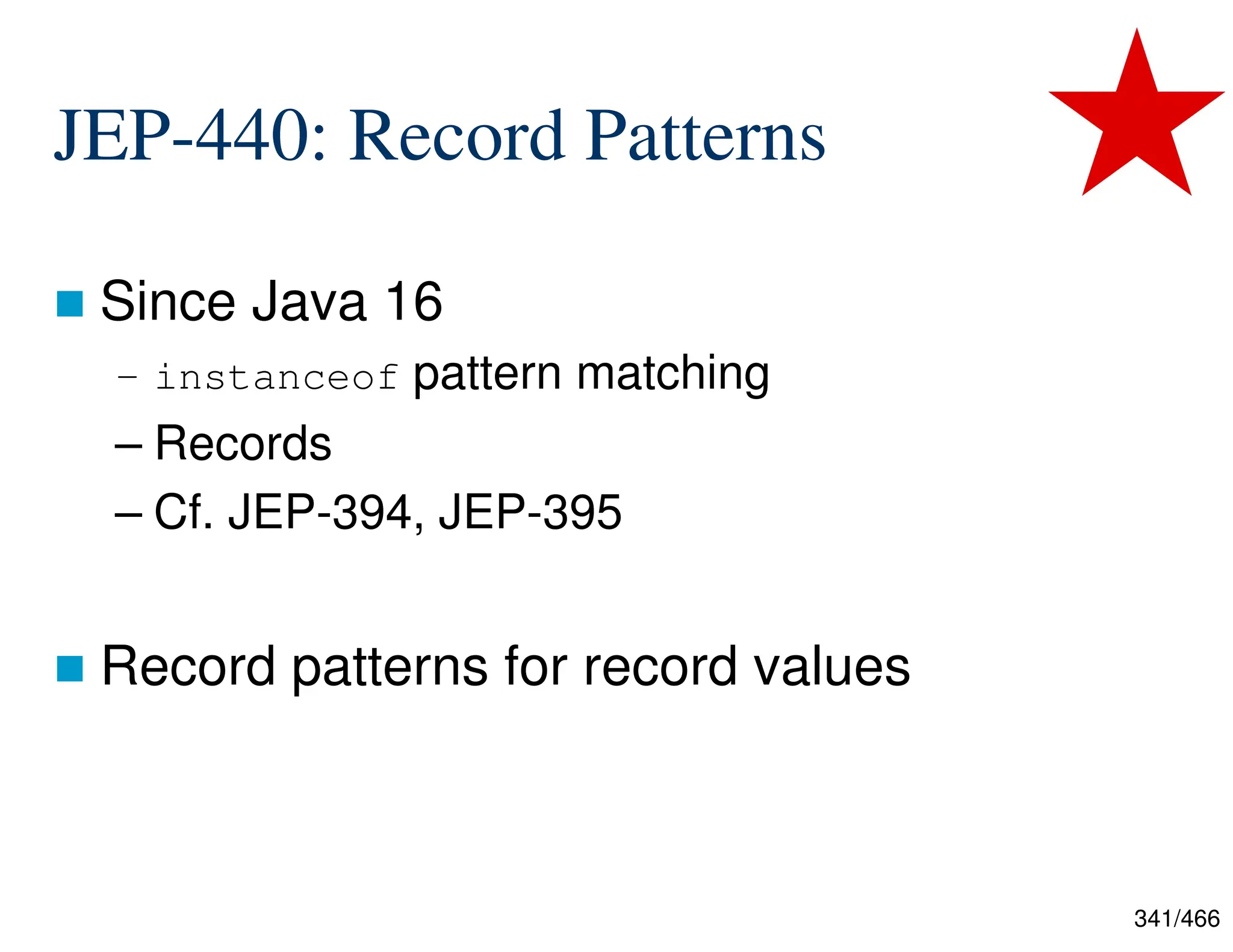
![342/466 JEP-440: Record Patterns record Person(String firstName, String lastName) { } public class Example1 { public static void main(final String[] args) { final Person person1 = new Person("Rick", "Deckard"); final Person person2 = new Person("Roy", "Batty"); final Object o1 = person1; if (o1 instanceof Person p) { System.out.println(p.firstName()); } final Object o2 = person2; if (o2 instanceof final Person(final String first, final String last)) { System.out.println(first); } } }](https://image.slidesharecdn.com/newjavav0-250327235127-ec555181/75/Evolution-and-Examples-of-Java-Features-from-Java-1-7-to-Java-24-342-2048.jpg)
![343/466 JEP-440: Record Patterns record Person(String firstName, String lastName) { } public class Example1 { public static void main(final String[] args) { final Person person1 = new Person("Rick", "Deckard"); final Person person2 = new Person("Roy", "Batty"); final Object o1 = person1; if (o1 instanceof Person p) { System.out.println(p.firstName()); } final Object o2 = person2; if (o2 instanceof final Person(final String first, final String last)) { System.out.println(first); } } } Rick Roy](https://image.slidesharecdn.com/newjavav0-250327235127-ec555181/75/Evolution-and-Examples-of-Java-Features-from-Java-1-7-to-Java-24-343-2048.jpg)
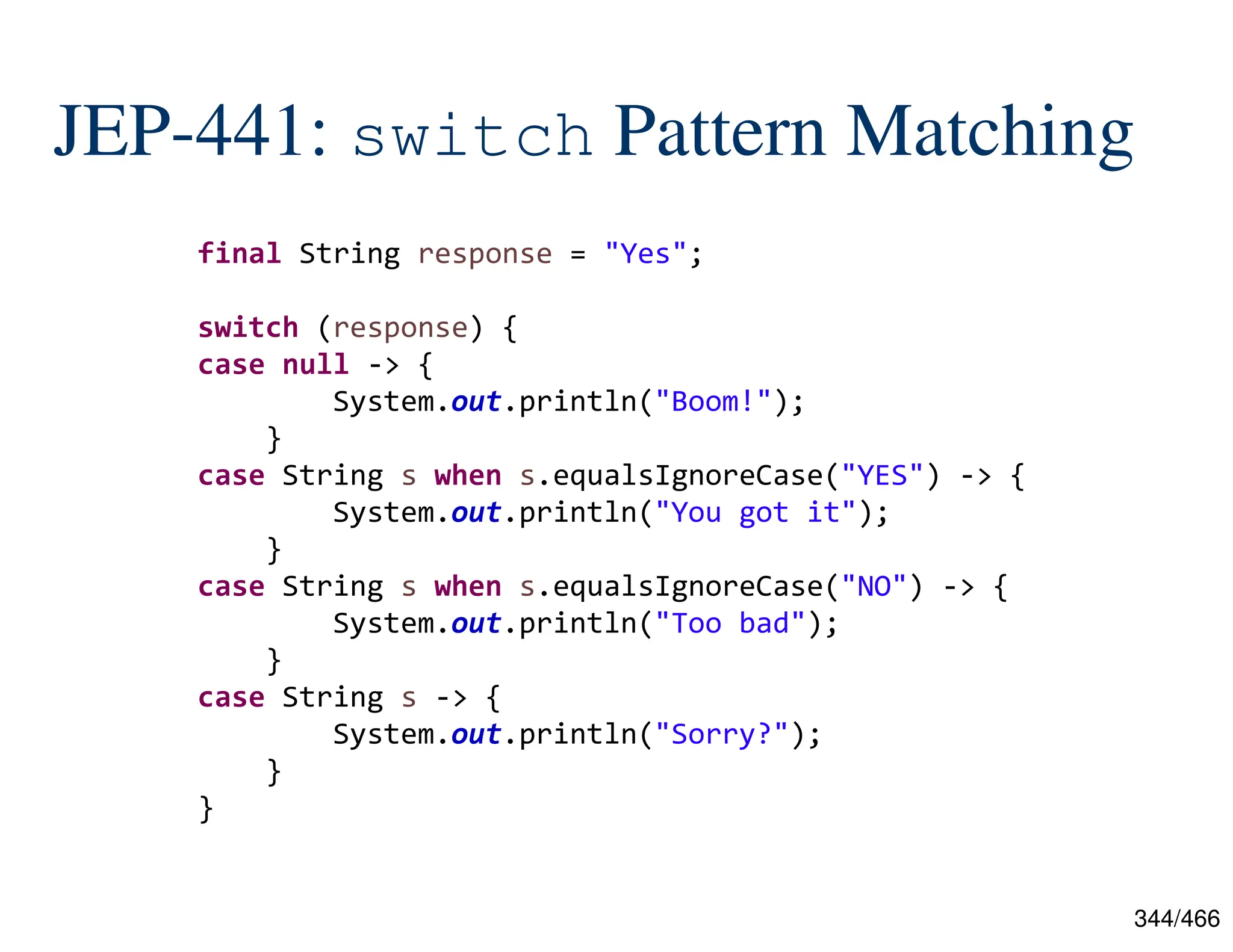
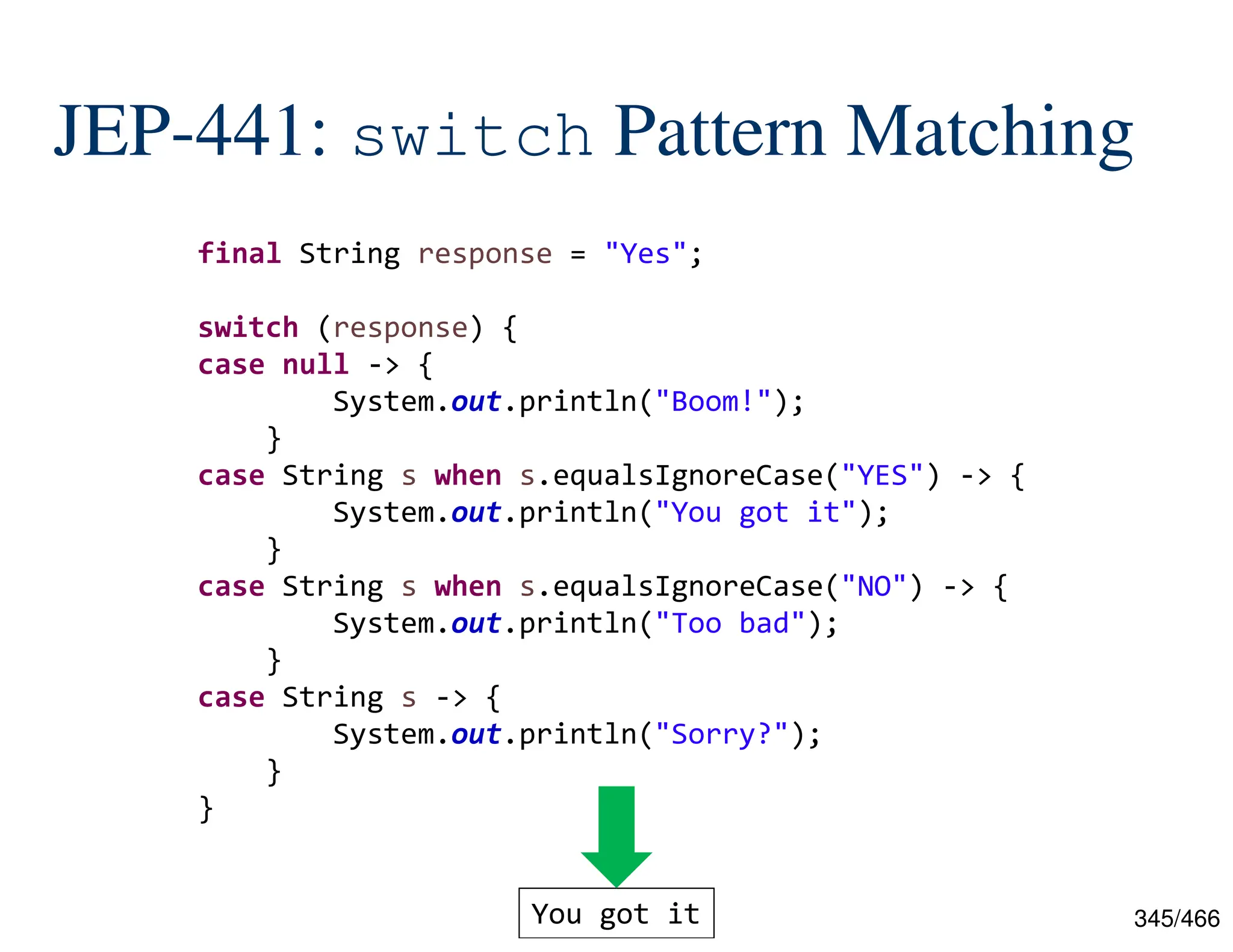

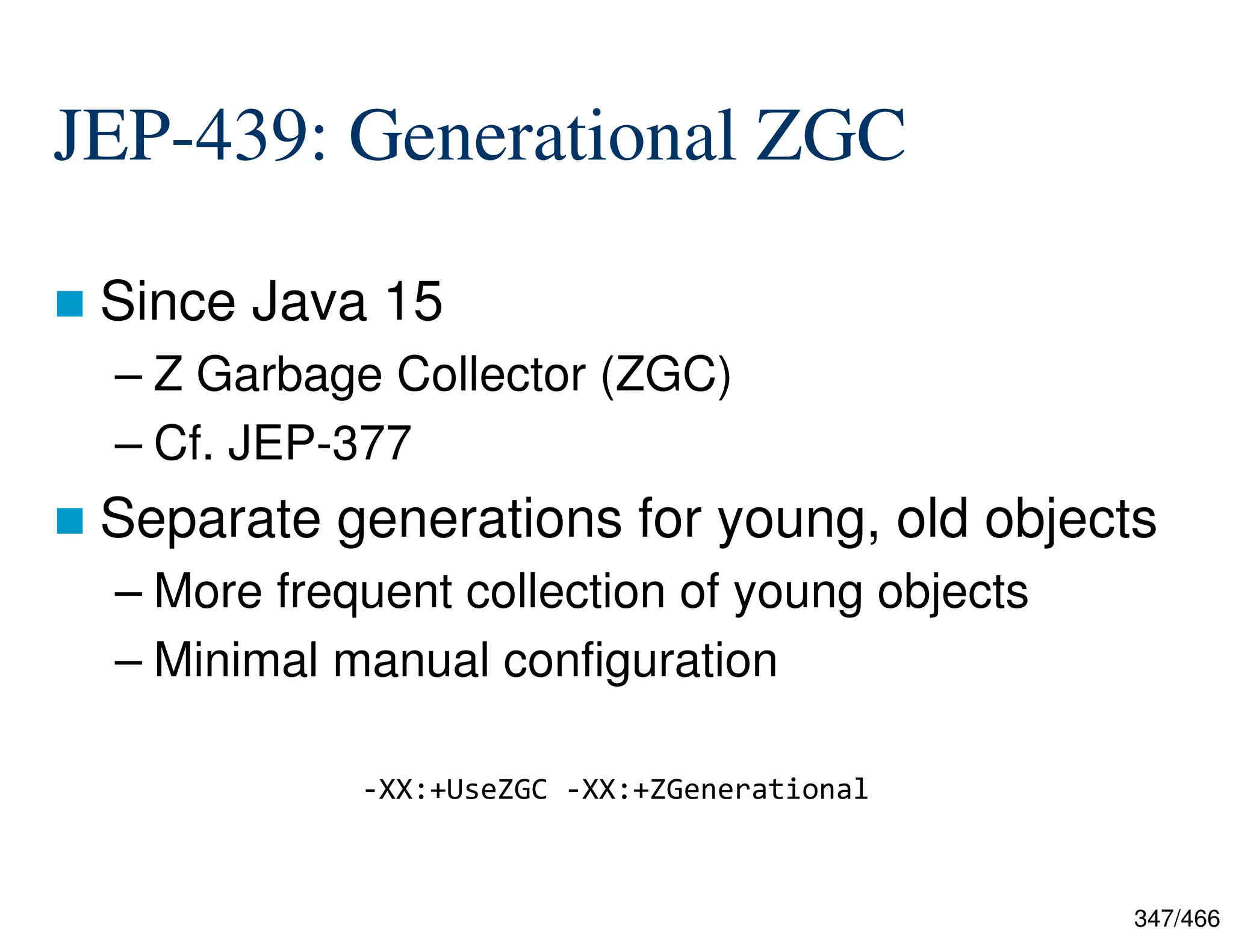

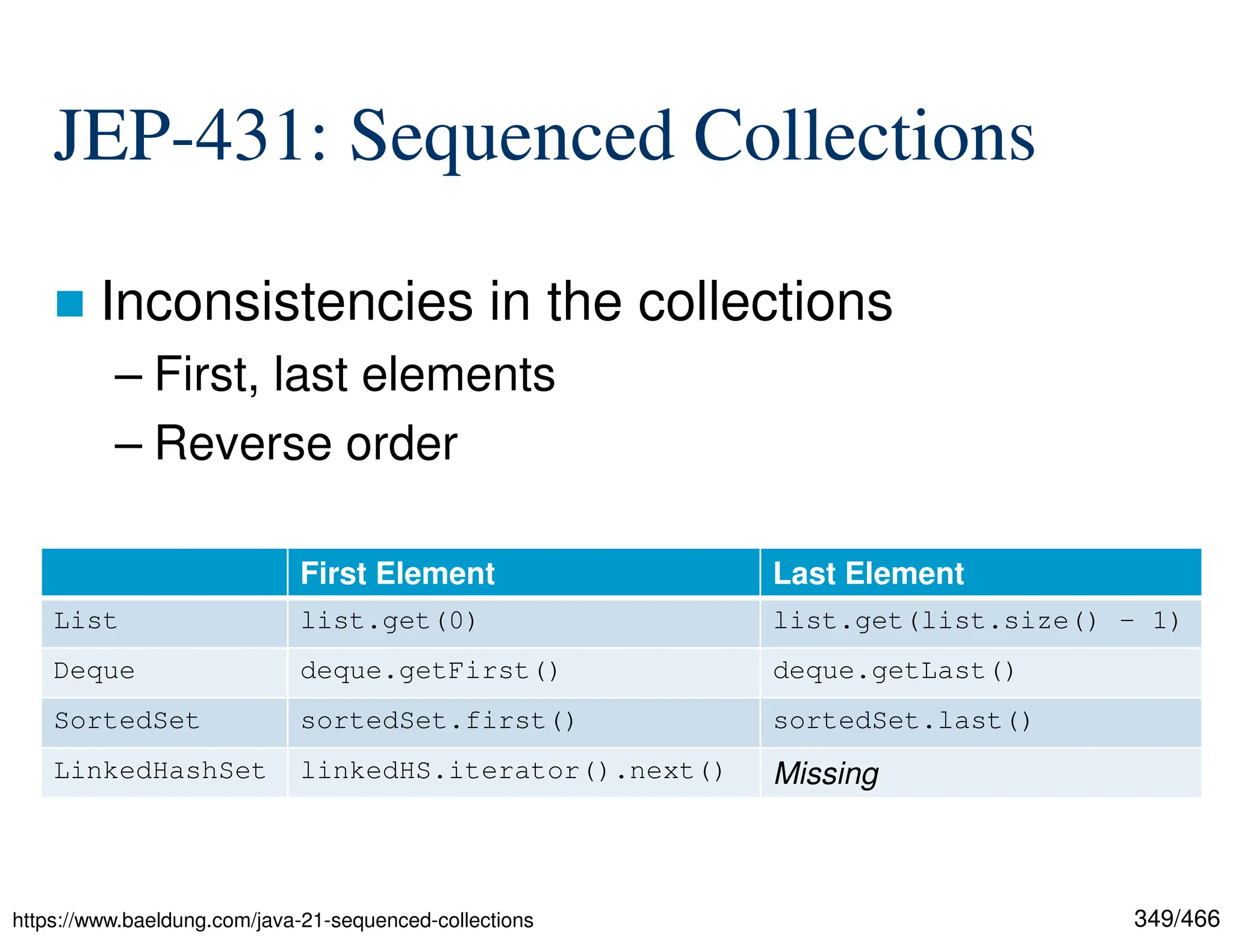
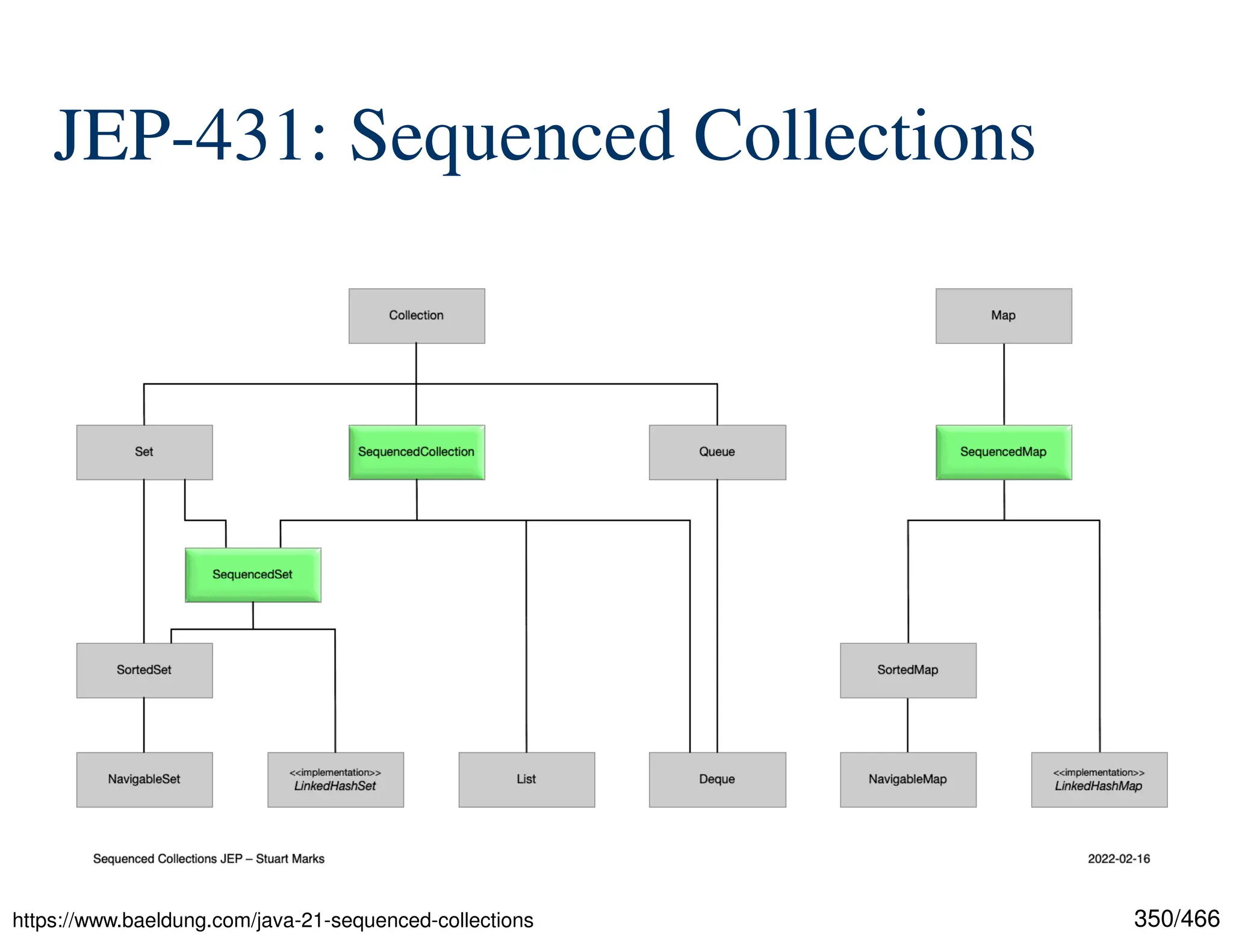
![351/466 JEP-431: Sequenced Collections https://www.baeldung.com/java-21-sequenced-collections public interface SequencedCollection<E> extends Collection<E> { SequencedCollection<E> reversed(); default void addFirst(E e) { throw new UnsupportedOperationException(); } default void addLast(E e) { throw new UnsupportedOperationException(); } default E getFirst() { return this.iterator().next(); } default E getLast() { return this.reversed().iterator().next(); } default E removeFirst() { var it = this.iterator(); E e = it.next(); it.remove(); return e; } default E removeLast() { var it = this.reversed().iterator(); E e = it.next(); it.remove(); return e; } } public static void main(final String[] args) { final List<String> list = List.of("Rick Deckard", "Roy Batty", "Harry Bryant", "Hannibal Chew", "Gaff", "Holden", "Leon Kowalski", "Taffey Lewis", "Pris", "Rachael", "J.F. Sebastian", "Dr. Eldon Tyrell", "Zhora", "Hodge", "Mary"); System.out.println(list.getFirst()); System.out.println(list.getLast()); }](https://image.slidesharecdn.com/newjavav0-250327235127-ec555181/75/Evolution-and-Examples-of-Java-Features-from-Java-1-7-to-Java-24-351-2048.jpg)
![352/466 JEP-431: Sequenced Collections https://www.baeldung.com/java-21-sequenced-collections public interface SequencedCollection<E> extends Collection<E> { SequencedCollection<E> reversed(); default void addFirst(E e) { throw new UnsupportedOperationException(); } default void addLast(E e) { throw new UnsupportedOperationException(); } default E getFirst() { return this.iterator().next(); } default E getLast() { return this.reversed().iterator().next(); } default E removeFirst() { var it = this.iterator(); E e = it.next(); it.remove(); return e; } default E removeLast() { var it = this.reversed().iterator(); E e = it.next(); it.remove(); return e; } } public static void main(final String[] args) { final List<String> list = List.of("Rick Deckard", "Roy Batty", "Harry Bryant", "Hannibal Chew", "Gaff", "Holden", "Leon Kowalski", "Taffey Lewis", "Pris", "Rachael", "J.F. Sebastian", "Dr. Eldon Tyrell", "Zhora", "Hodge", "Mary"); System.out.println(list.getFirst()); System.out.println(list.getLast()); } Neat use of default methods (cf. Java 8)](https://image.slidesharecdn.com/newjavav0-250327235127-ec555181/75/Evolution-and-Examples-of-Java-Features-from-Java-1-7-to-Java-24-352-2048.jpg)
![353/466 JEP-431: Sequenced Collections https://www.baeldung.com/java-21-sequenced-collections public interface SequencedCollection<E> extends Collection<E> { SequencedCollection<E> reversed(); default void addFirst(E e) { throw new UnsupportedOperationException(); } default void addLast(E e) { throw new UnsupportedOperationException(); } default E getFirst() { return this.iterator().next(); } default E getLast() { return this.reversed().iterator().next(); } default E removeFirst() { var it = this.iterator(); E e = it.next(); it.remove(); return e; } default E removeLast() { var it = this.reversed().iterator(); E e = it.next(); it.remove(); return e; } } public static void main(final String[] args) { final List<String> list = List.of("Rick Deckard", "Roy Batty", "Harry Bryant", "Hannibal Chew", "Gaff", "Holden", "Leon Kowalski", "Taffey Lewis", "Pris", "Rachael", "J.F. Sebastian", "Dr. Eldon Tyrell", "Zhora", "Hodge", "Mary"); System.out.println(list.getFirst()); System.out.println(list.getLast()); } Rick Deckard Mary Neat use of default methods (cf. Java 8)](https://image.slidesharecdn.com/newjavav0-250327235127-ec555181/75/Evolution-and-Examples-of-Java-Features-from-Java-1-7-to-Java-24-353-2048.jpg)
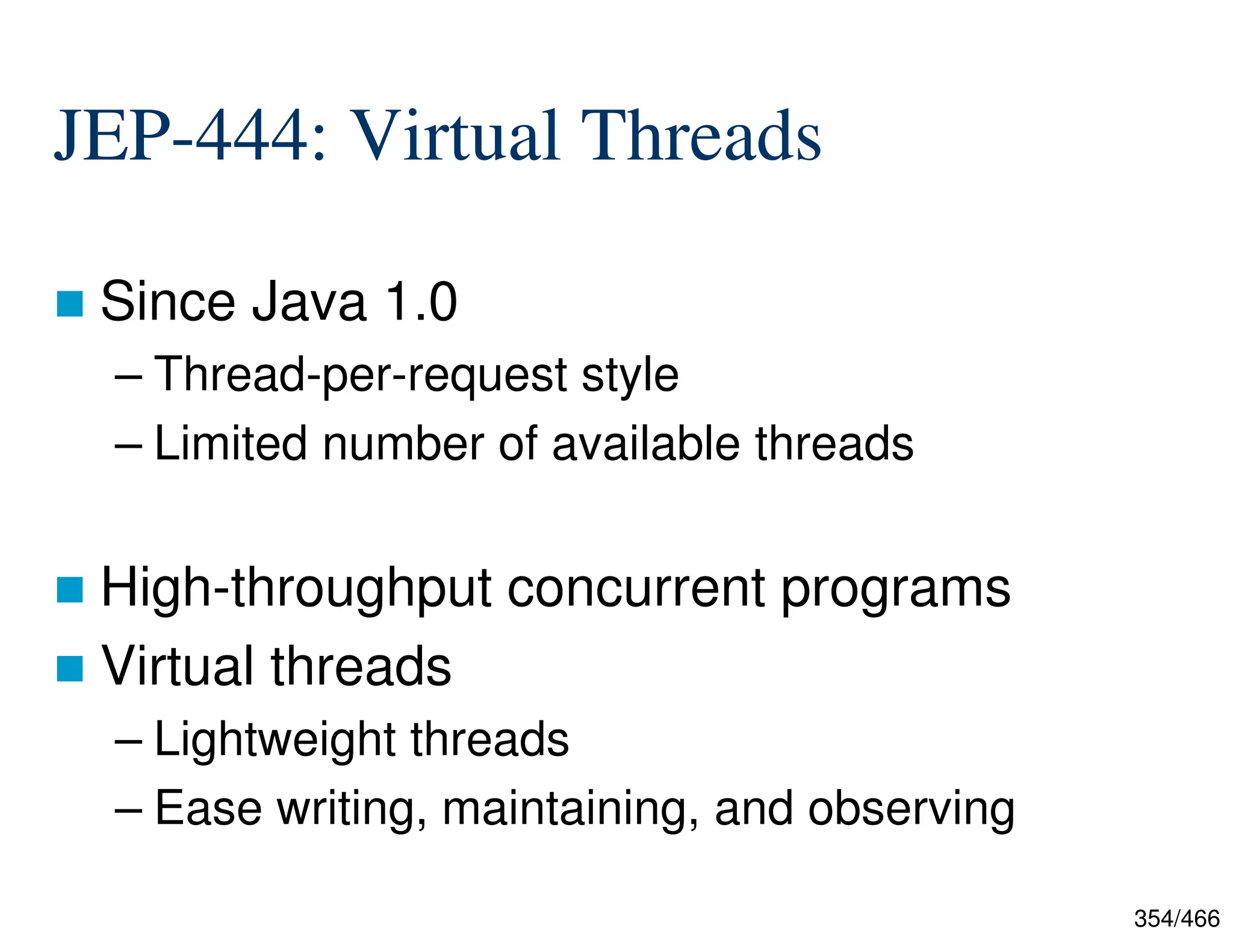
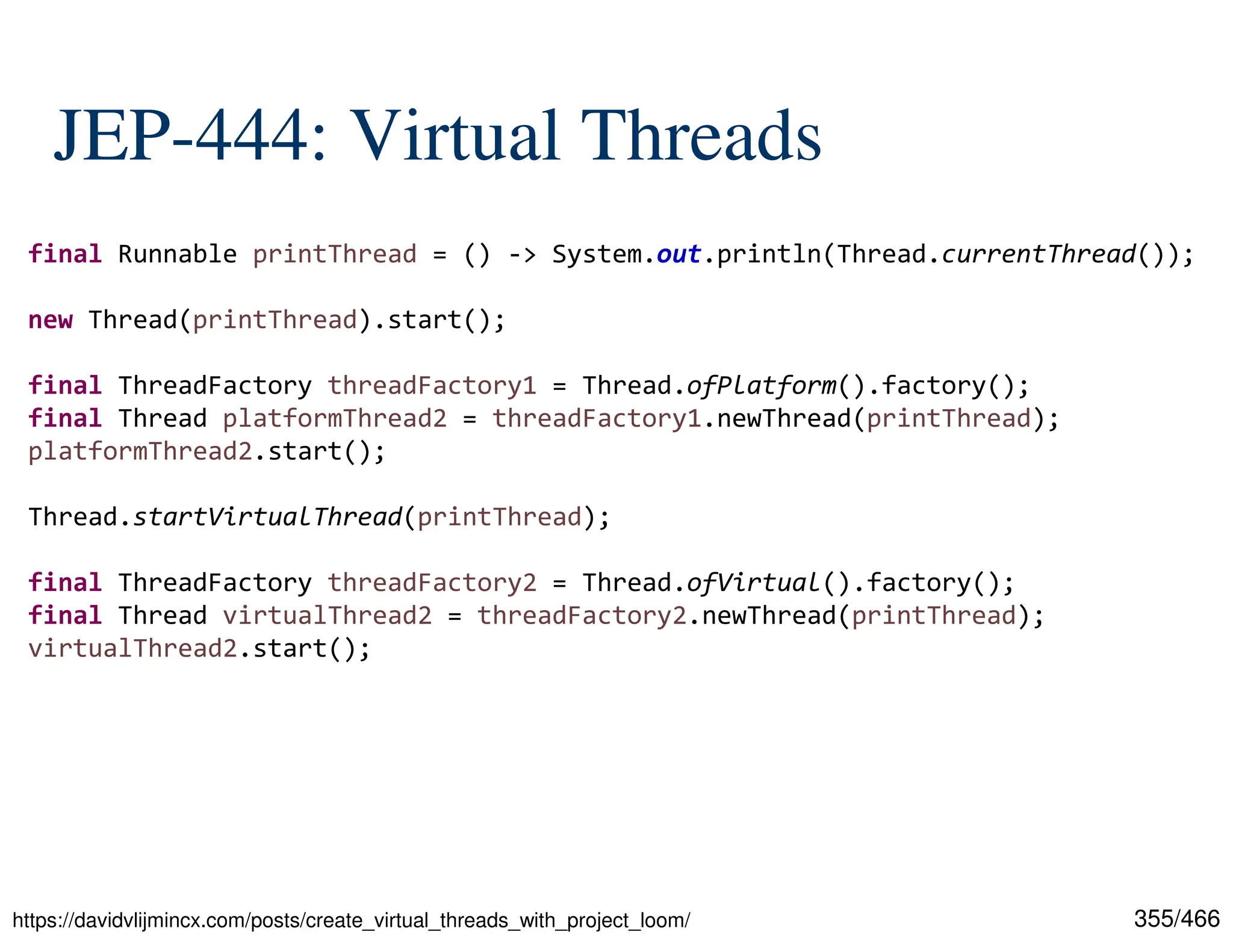
![356/466 JEP-444: Virtual Threads https://davidvlijmincx.com/posts/create_virtual_threads_with_project_loom/ final Runnable printThread = () -> System.out.println(Thread.currentThread()); new Thread(printThread).start(); final ThreadFactory threadFactory1 = Thread.ofPlatform().factory(); final Thread platformThread2 = threadFactory1.newThread(printThread); platformThread2.start(); Thread.startVirtualThread(printThread); final ThreadFactory threadFactory2 = Thread.ofVirtual().factory(); final Thread virtualThread2 = threadFactory2.newThread(printThread); virtualThread2.start(); Thread[#20,Thread-0,5,main] Thread[#21,Thread-1,5,main] VirtualThread[#22]/runnable@ForkJoinPool-1-worker-1 VirtualThread[#24]/runnable@ForkJoinPool-1-worker-2](https://image.slidesharecdn.com/newjavav0-250327235127-ec555181/75/Evolution-and-Examples-of-Java-Features-from-Java-1-7-to-Java-24-356-2048.jpg)
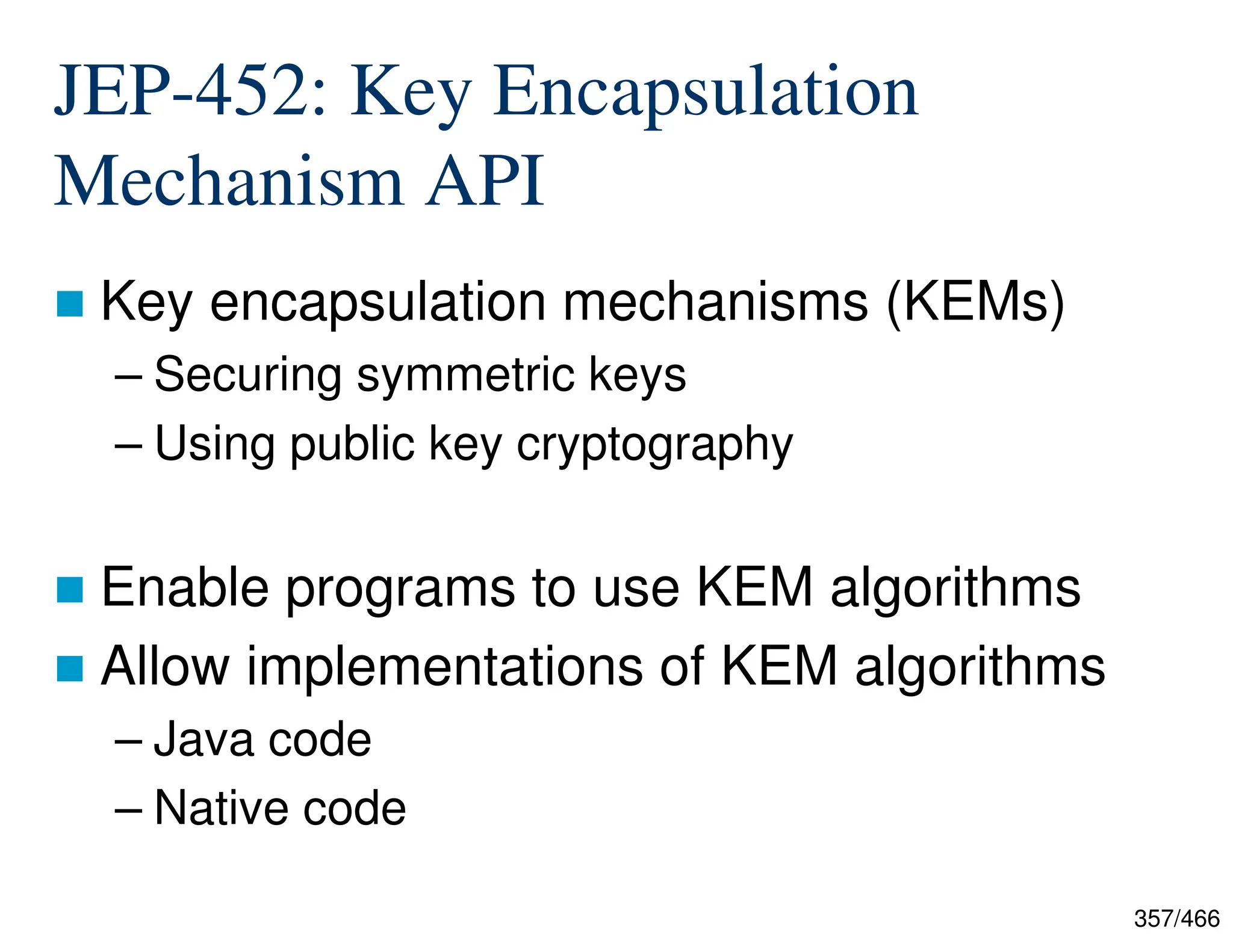

![359/466 JEP-445: Unnamed Classes and Instance Main Methods Reduce barrier to entry Mimic scripting languages public class Example1 { public static void main(final String[] args) { System.out.println("Hello, World!"); } }](https://image.slidesharecdn.com/newjavav0-250327235127-ec555181/75/Evolution-and-Examples-of-Java-Features-from-Java-1-7-to-Java-24-359-2048.jpg)
![360/466 JEP-445: Unnamed Classes and Instance Main Methods Reduce barrier to entry Mimic scripting languages public class Example1 { public static void main(final String[] args) { System.out.println("Hello, World!"); } } void main() { System.out.println("Hello, World!"); }](https://image.slidesharecdn.com/newjavav0-250327235127-ec555181/75/Evolution-and-Examples-of-Java-Features-from-Java-1-7-to-Java-24-360-2048.jpg)
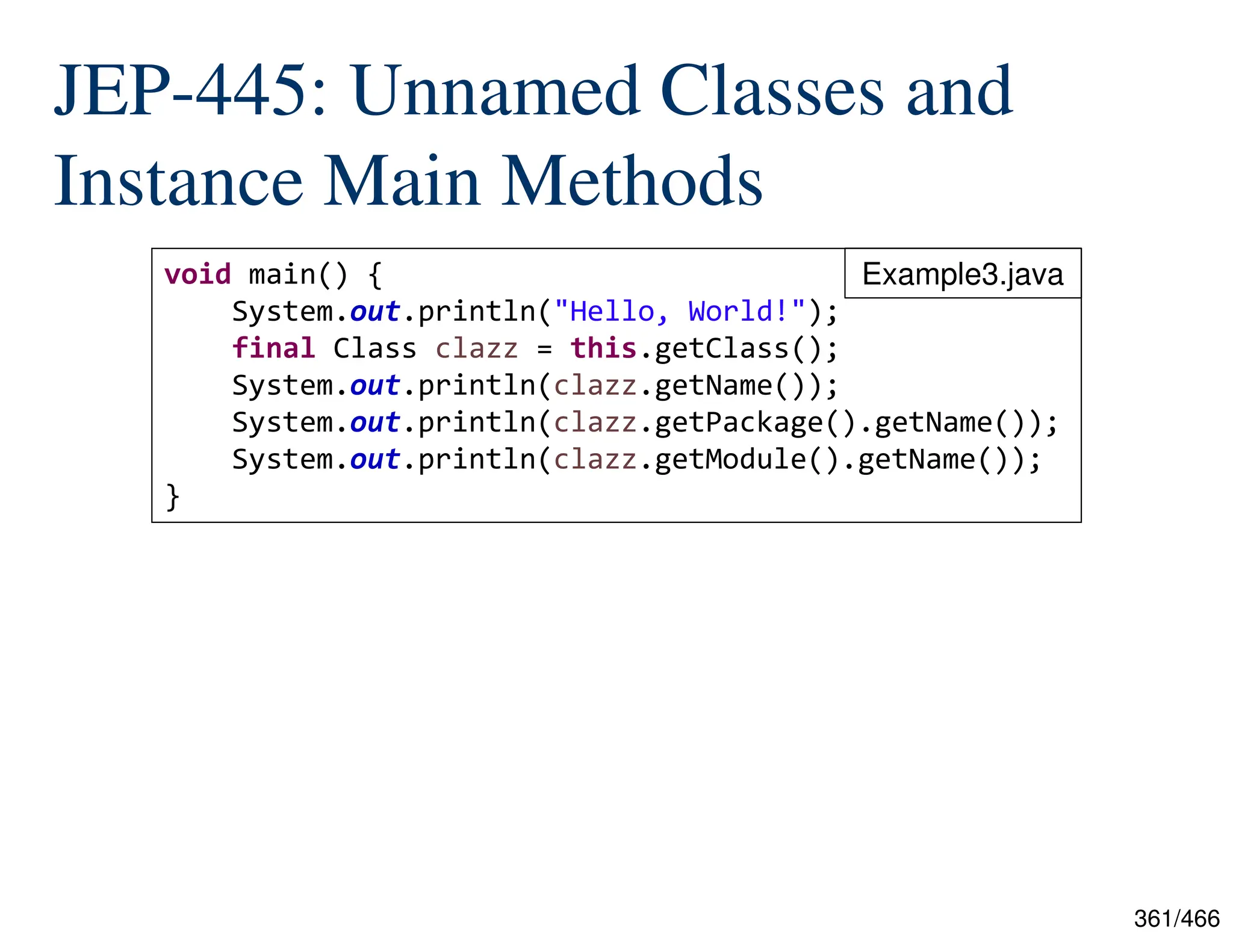
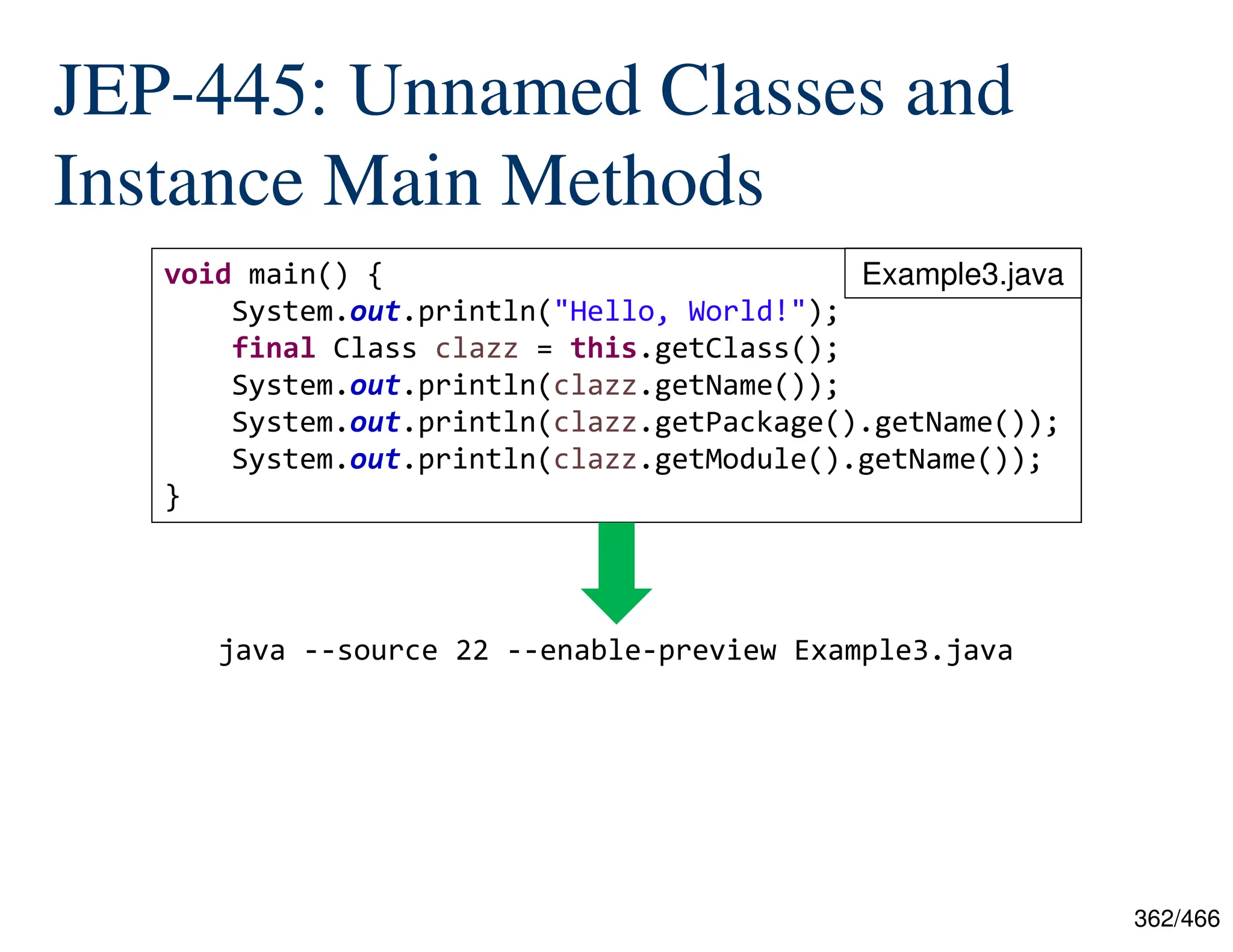
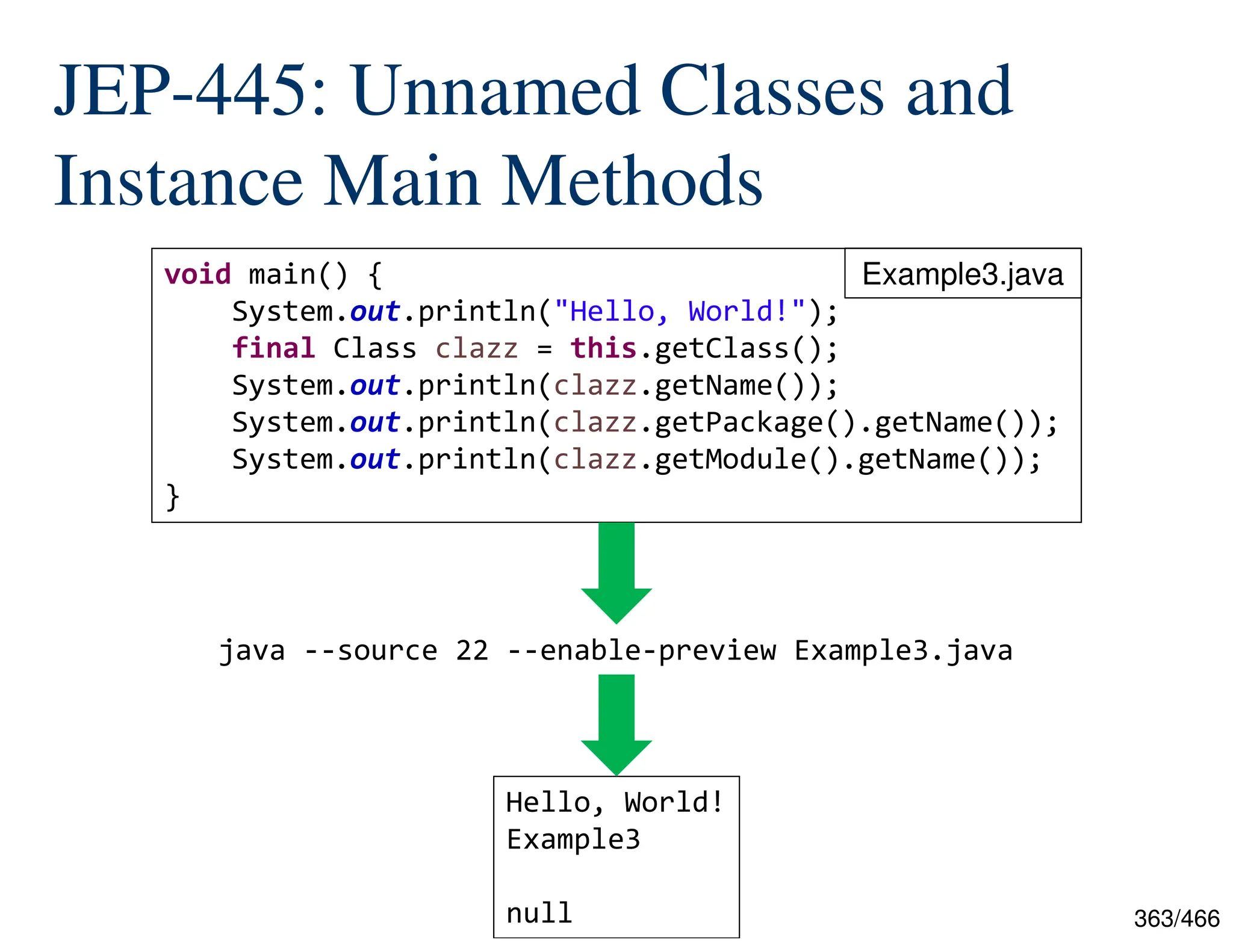
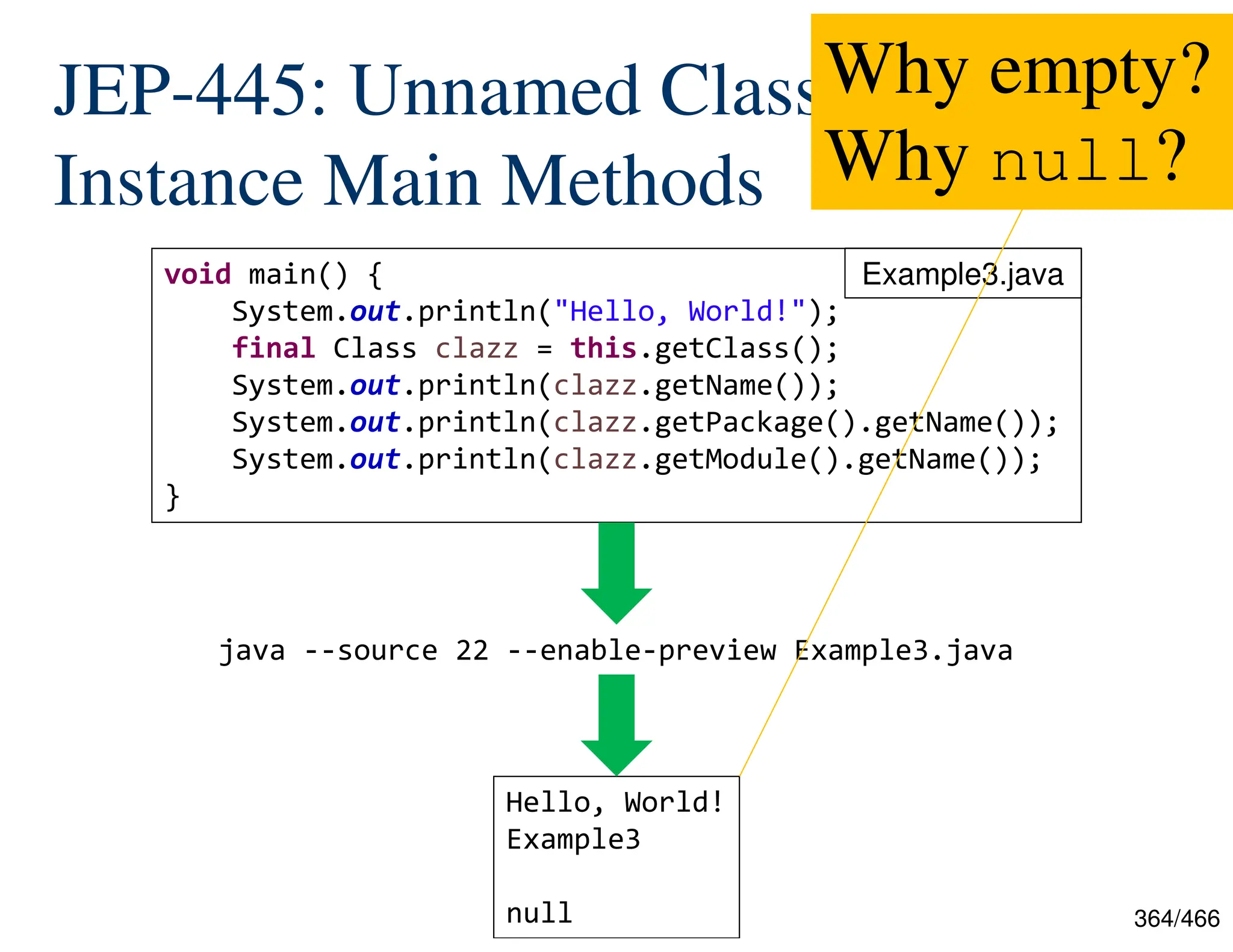
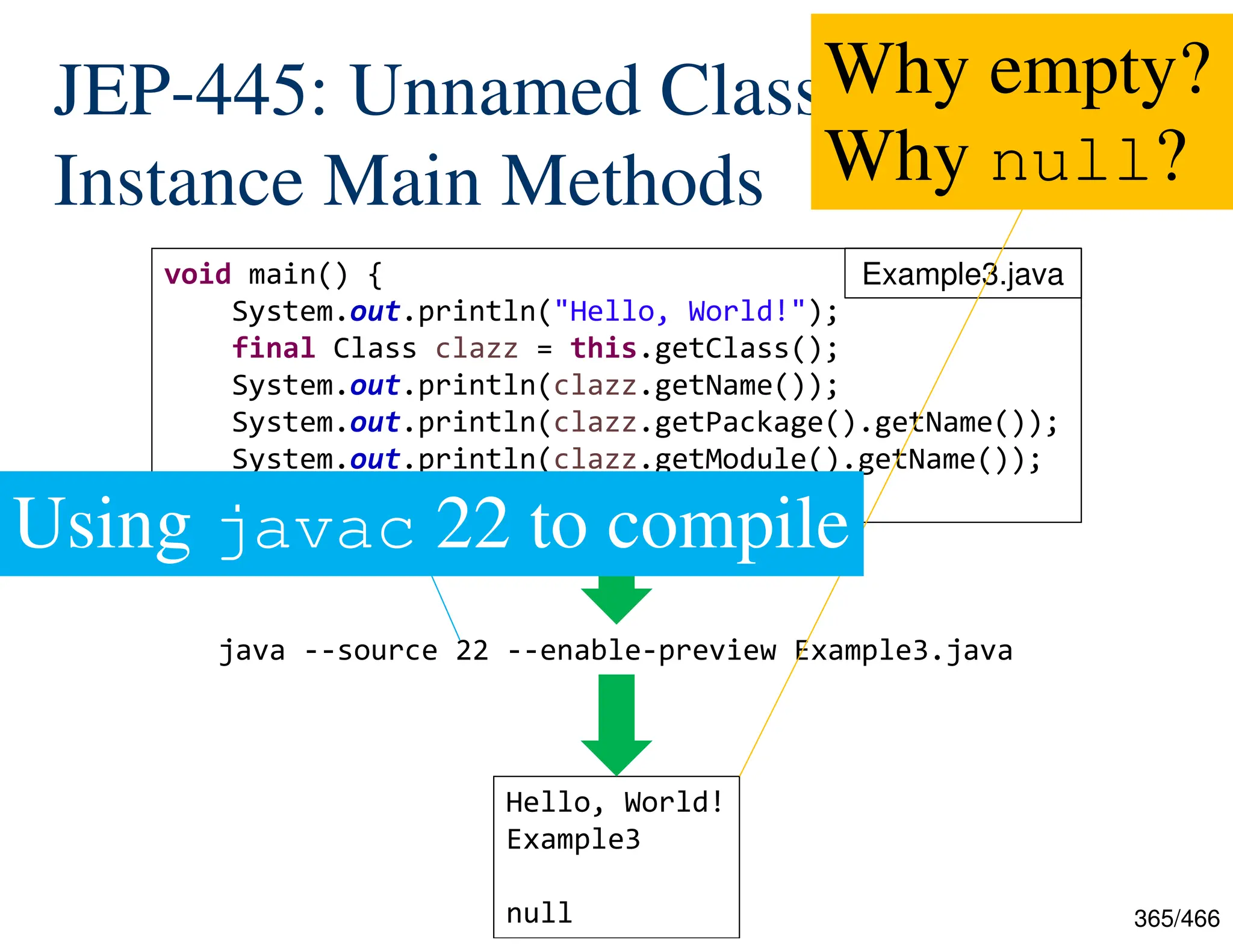
![366/466 JEP-445: Unnamed Classes and Instance Main Methods Without main() // Compiled from Example3.java (version 22 : 66.65535, super bit) final class Example3 { // Method descriptor #6 ()V // Stack: 1, Locals: 1 Example3(); 0 aload_0 [this] 1 invokespecial java.lang.Object() 4 return Line numbers: [pc: 0, line: 7] // Method descriptor #6 ()V // Stack: 2, Locals: 2 void main(); 0 getstatic java.lang.System.out : java.io.PrintStream 3 ldc <String "Hello, World!"> 5 invokevirtual java.io.PrintStream.println(java.lang.String) : void [...] 49 return [...] } Example3.java:7: error: implicitly declared class does not have main method in the form of void main() or void main(String[] args)](https://image.slidesharecdn.com/newjavav0-250327235127-ec555181/75/Evolution-and-Examples-of-Java-Features-from-Java-1-7-to-Java-24-366-2048.jpg)
![367/466 JEP-445: Unnamed Classes and Instance Main Methods Without main() // Compiled from Example3.java (version 22 : 66.65535, super bit) final class Example3 { // Method descriptor #6 ()V // Stack: 1, Locals: 1 Example3(); 0 aload_0 [this] 1 invokespecial java.lang.Object() 4 return Line numbers: [pc: 0, line: 7] // Method descriptor #6 ()V // Stack: 2, Locals: 2 void main(); 0 getstatic java.lang.System.out : java.io.PrintStream 3 ldc <String "Hello, World!"> 5 invokevirtual java.io.PrintStream.println(java.lang.String) : void [...] 49 return [...] } Example3.java:7: error: implicitly declared class does not have main method in the form of void main() or void main(String[] args) Autogenerated](https://image.slidesharecdn.com/newjavav0-250327235127-ec555181/75/Evolution-and-Examples-of-Java-Features-from-Java-1-7-to-Java-24-367-2048.jpg)
![368/466 JEP-445: Unnamed Classes and Instance Main Methods Without main() // Compiled from Example3.java (version 22 : 66.65535, super bit) final class Example3 { // Method descriptor #6 ()V // Stack: 1, Locals: 1 Example3(); 0 aload_0 [this] 1 invokespecial java.lang.Object() 4 return Line numbers: [pc: 0, line: 7] // Method descriptor #6 ()V // Stack: 2, Locals: 2 void main(); 0 getstatic java.lang.System.out : java.io.PrintStream 3 ldc <String "Hello, World!"> 5 invokevirtual java.io.PrintStream.println(java.lang.String) : void [...] 49 return [...] } Example3.java:7: error: implicitly declared class does not have main method in the form of void main() or void main(String[] args) Autogenerated Known by the JVM](https://image.slidesharecdn.com/newjavav0-250327235127-ec555181/75/Evolution-and-Examples-of-Java-Features-from-Java-1-7-to-Java-24-368-2048.jpg)
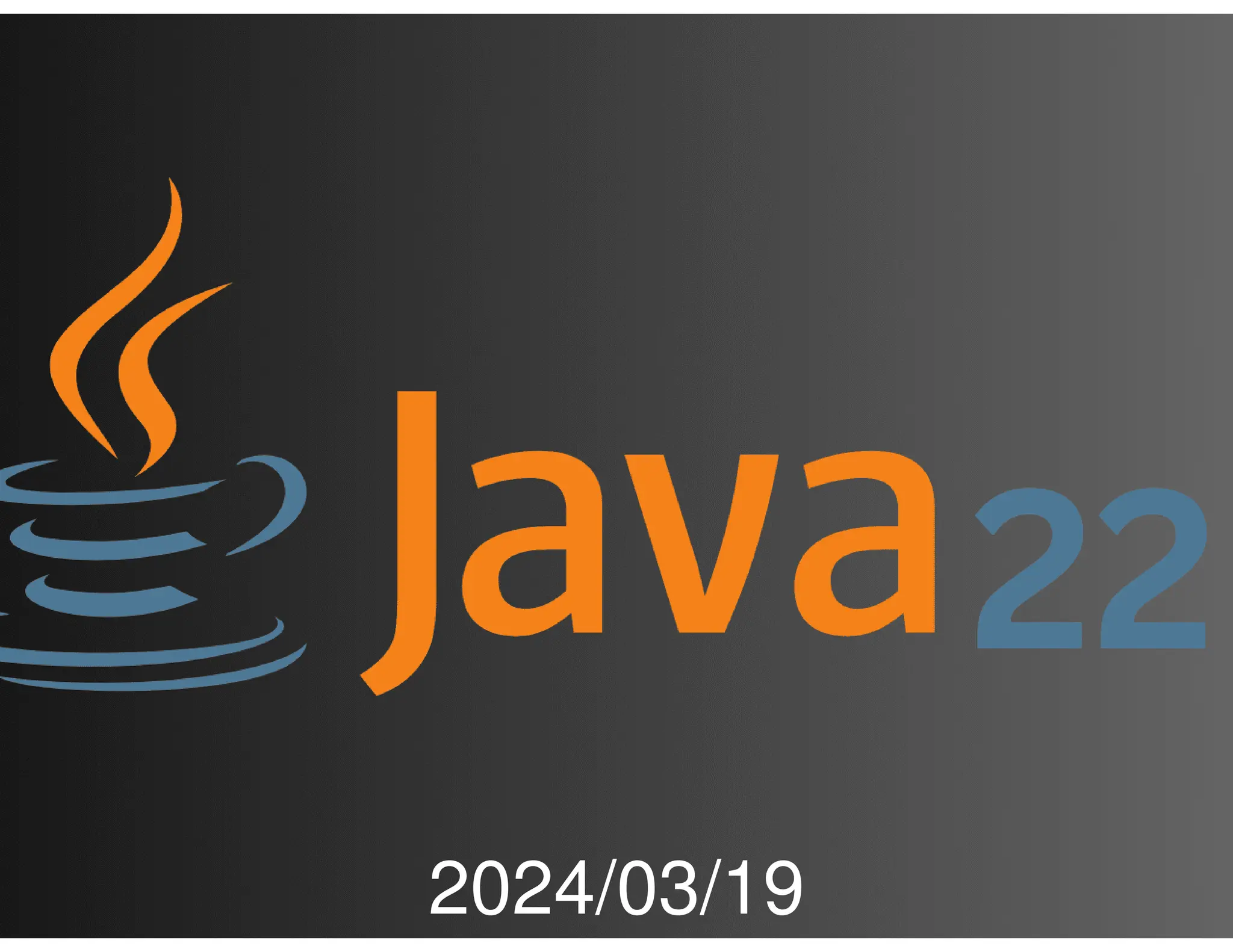

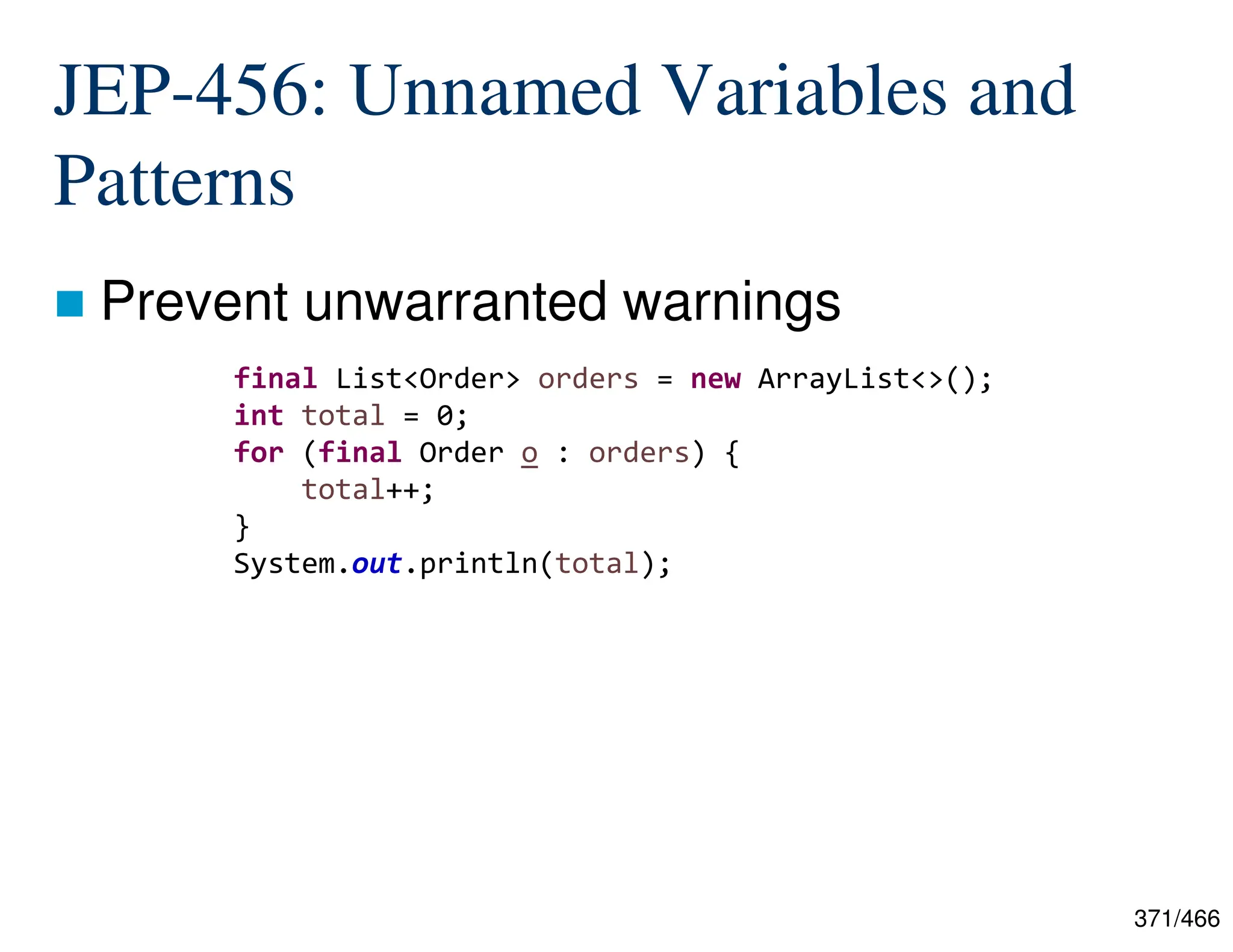
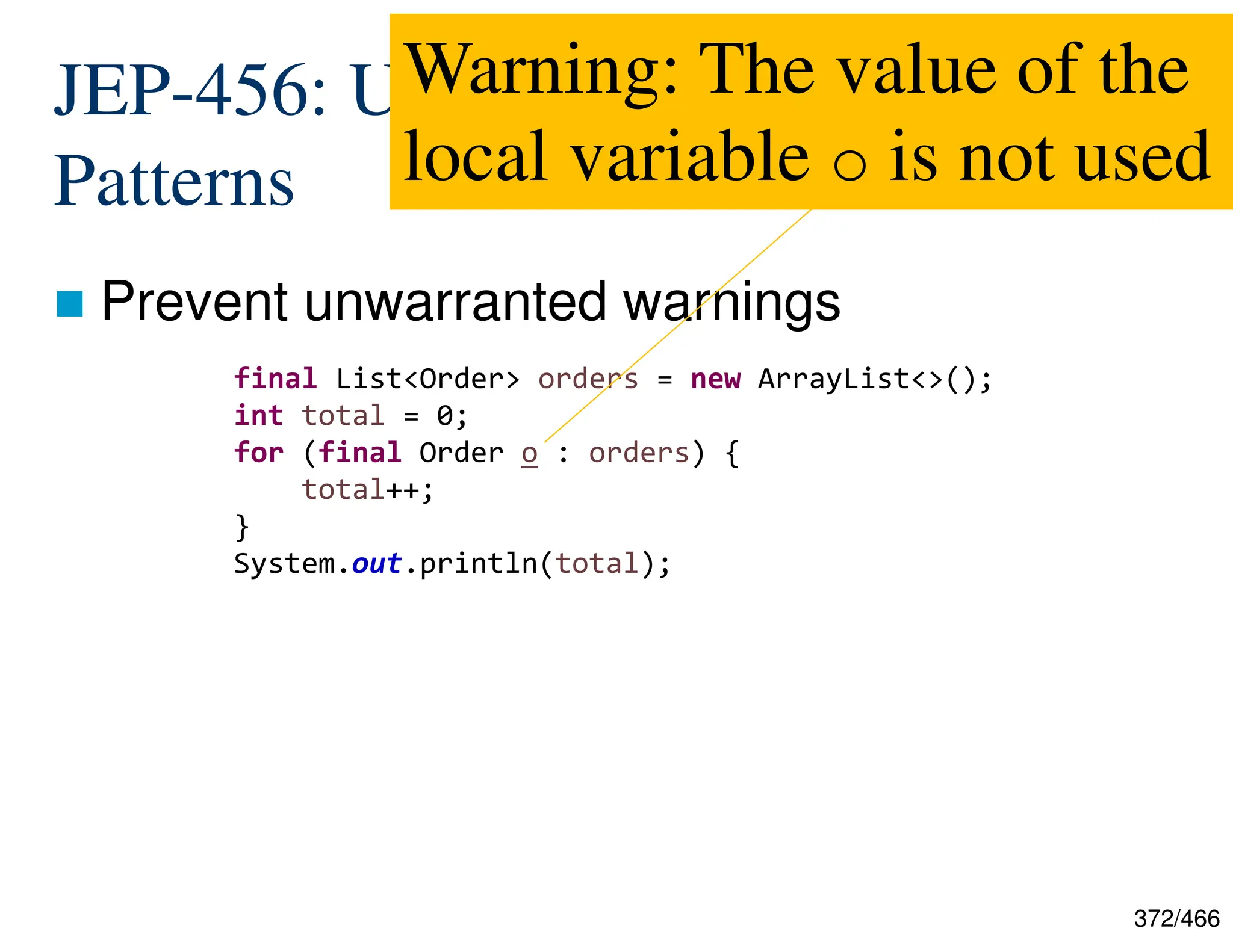
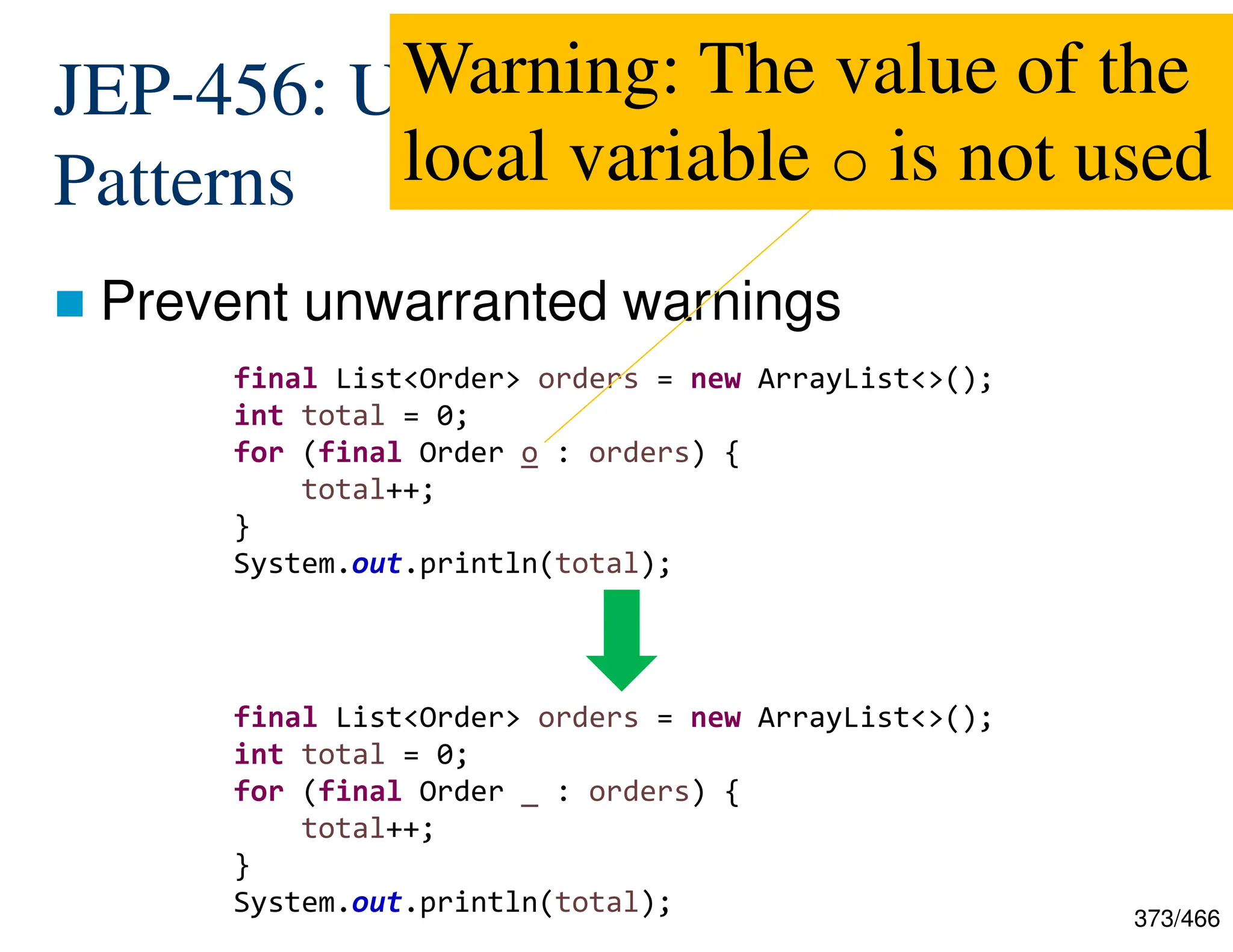
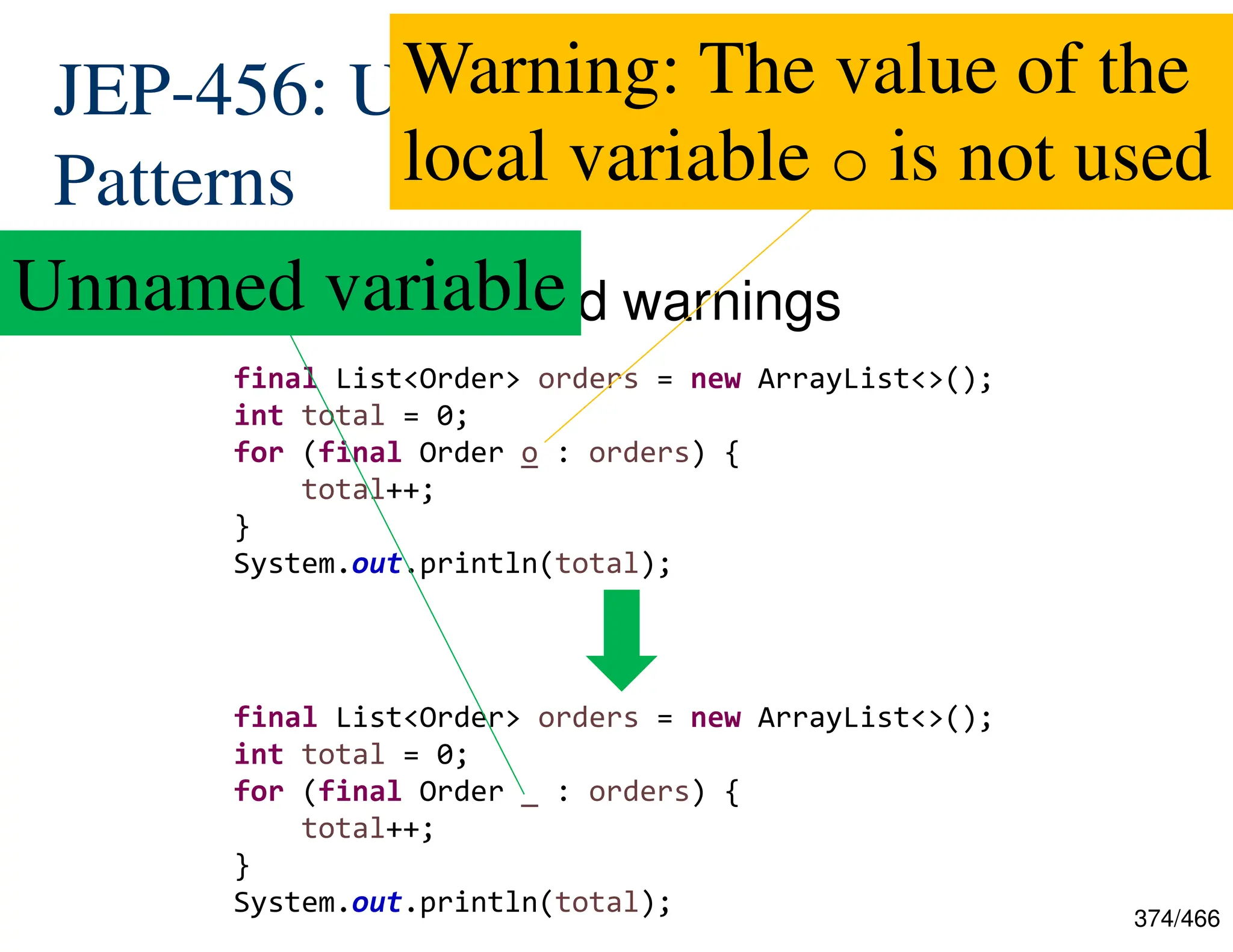

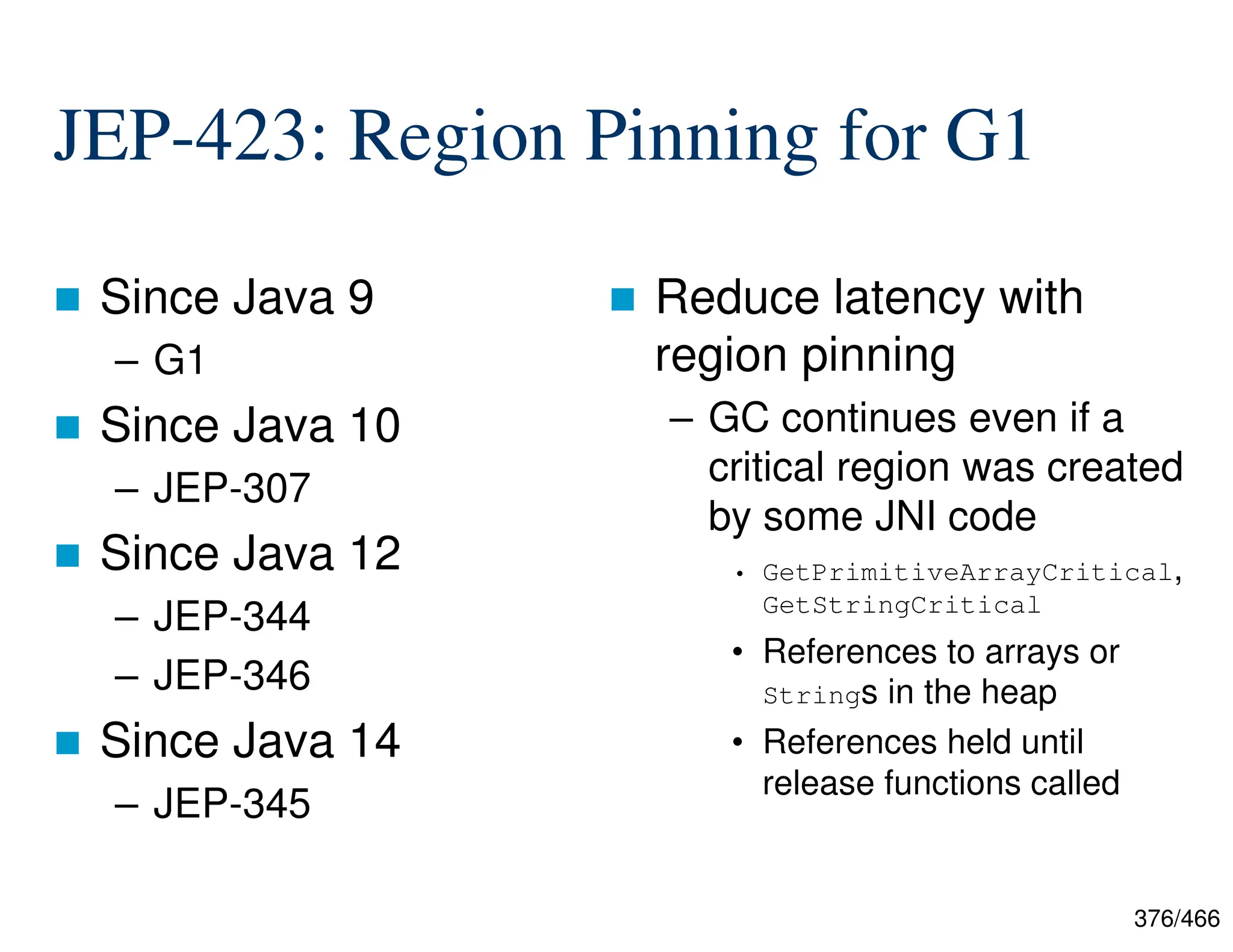
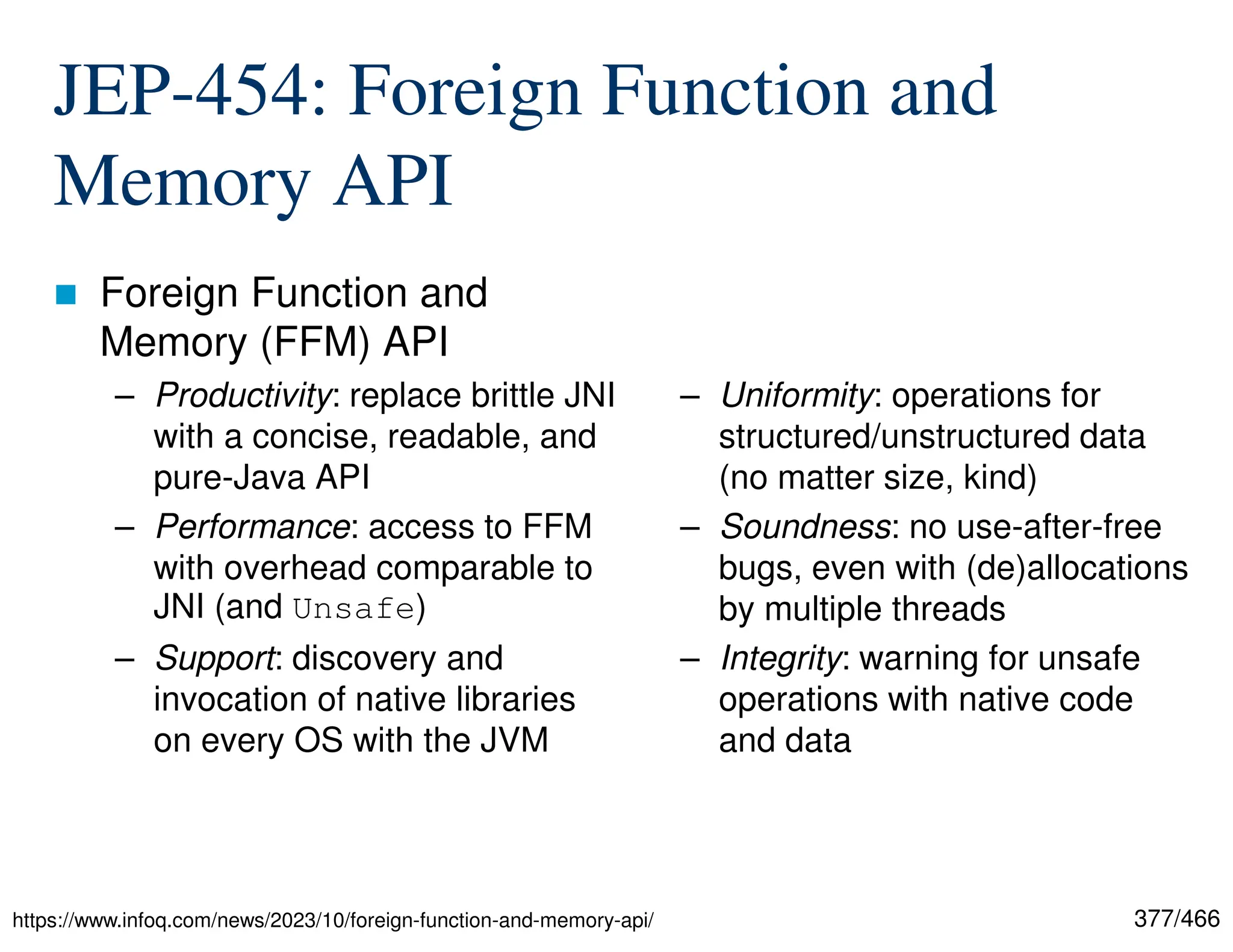
![378/466 JEP-454: Foreign Function and Memory API https://www.infoq.com/news/2023/10/foreign-function-and-memory-api/ private String[] sort(final String[] strings) { final Linker linker = Linker.nativeLinker(); final SymbolLookup stdlib = linker.defaultLookup(); final MemorySegment radixSort = stdlib.find("radixsort").orElseThrow(); final MethodHandle methodHandle = linker.downcallHandle(radixSort, FunctionDescriptor.ofVoid(ValueLayout.ADDRESS, ValueLayout.JAVA_INT, ValueLayout.ADDRESS, ValueLayout.JAVA_CHAR)); try (final Arena arena = Arena.ofConfined()) { final MemorySegment pointers = arena.allocateArray(ValueLayout.ADDRESS, strings.length); for (int i = 0; i < strings.length; i++) { final MemorySegment cString = arena.allocateUtf8String(strings[i]); pointers.setAtIndex(ValueLayout.ADDRESS, i, cString); } methodHandle.invoke(pointers, strings.length, MemorySegment.NULL, '0’); for (int i = 0; i < strings.length; i++) { MemorySegment cString = pointers.getAtIndex(ValueLayout.ADDRESS, i); cString = cString.reinterpret(Long.MAX_VALUE); strings[i] = cString.getUtf8String(0); } } catch (final Throwable e) { throw new RuntimeException(e); } return strings; }](https://image.slidesharecdn.com/newjavav0-250327235127-ec555181/75/Evolution-and-Examples-of-Java-Features-from-Java-1-7-to-Java-24-378-2048.jpg)



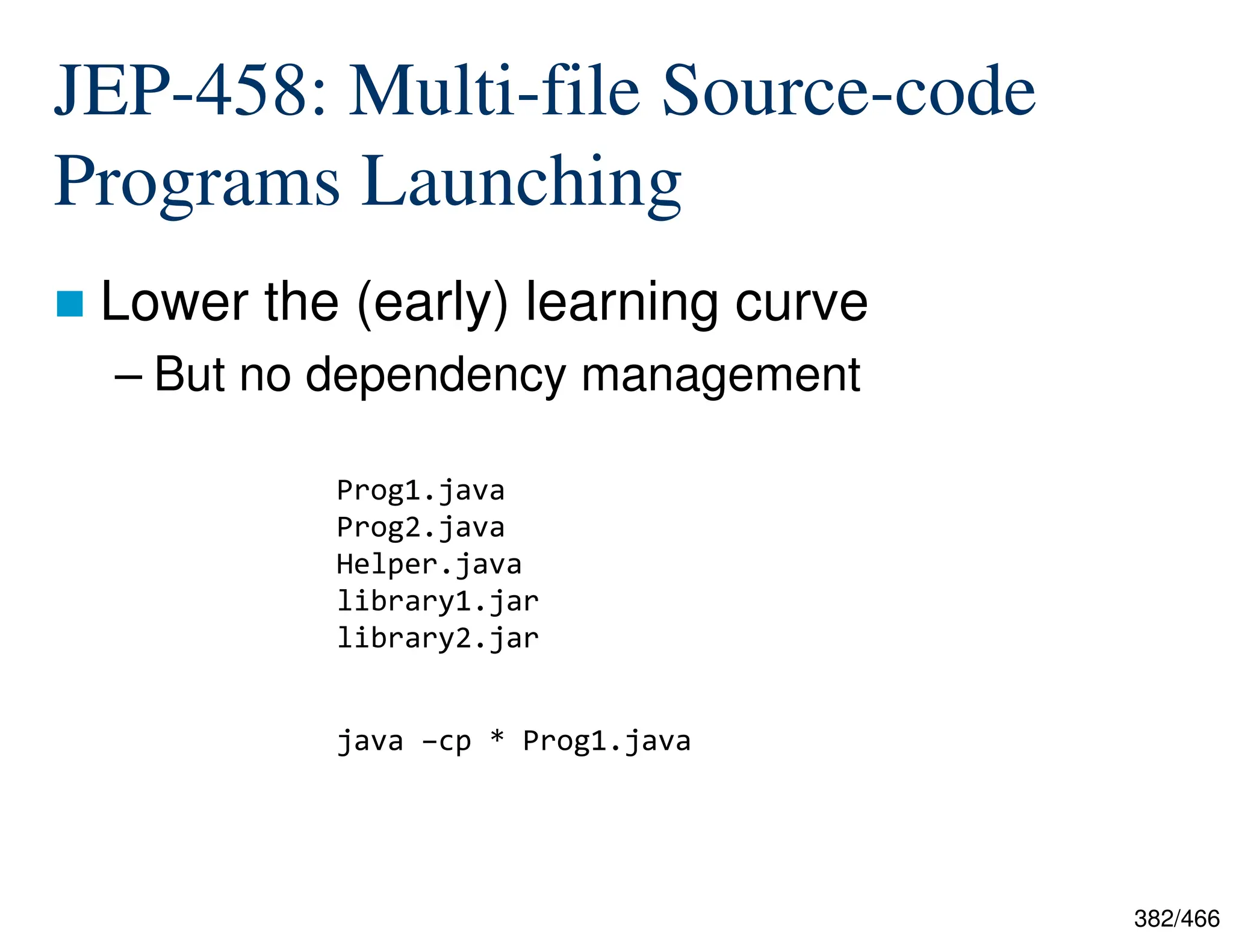

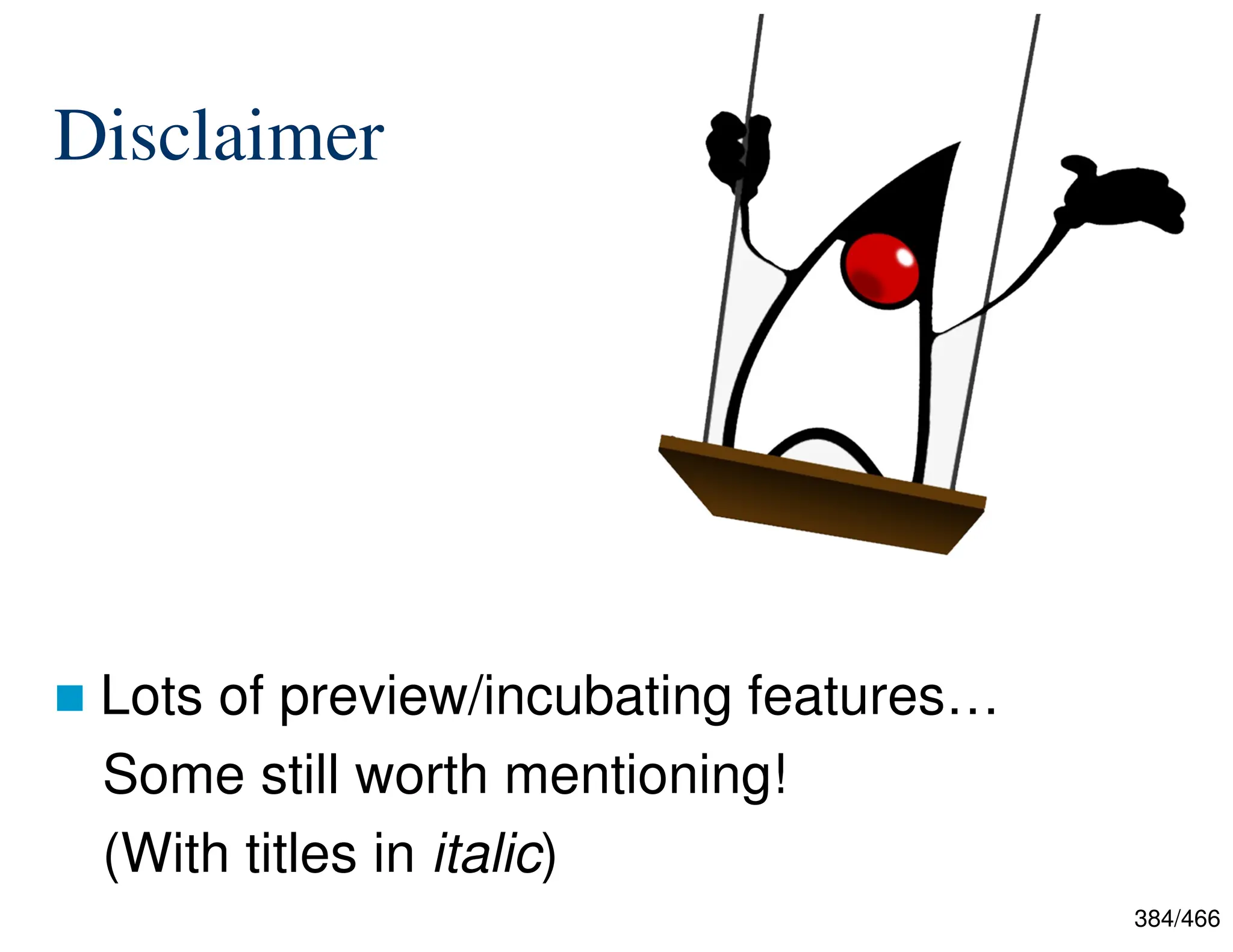

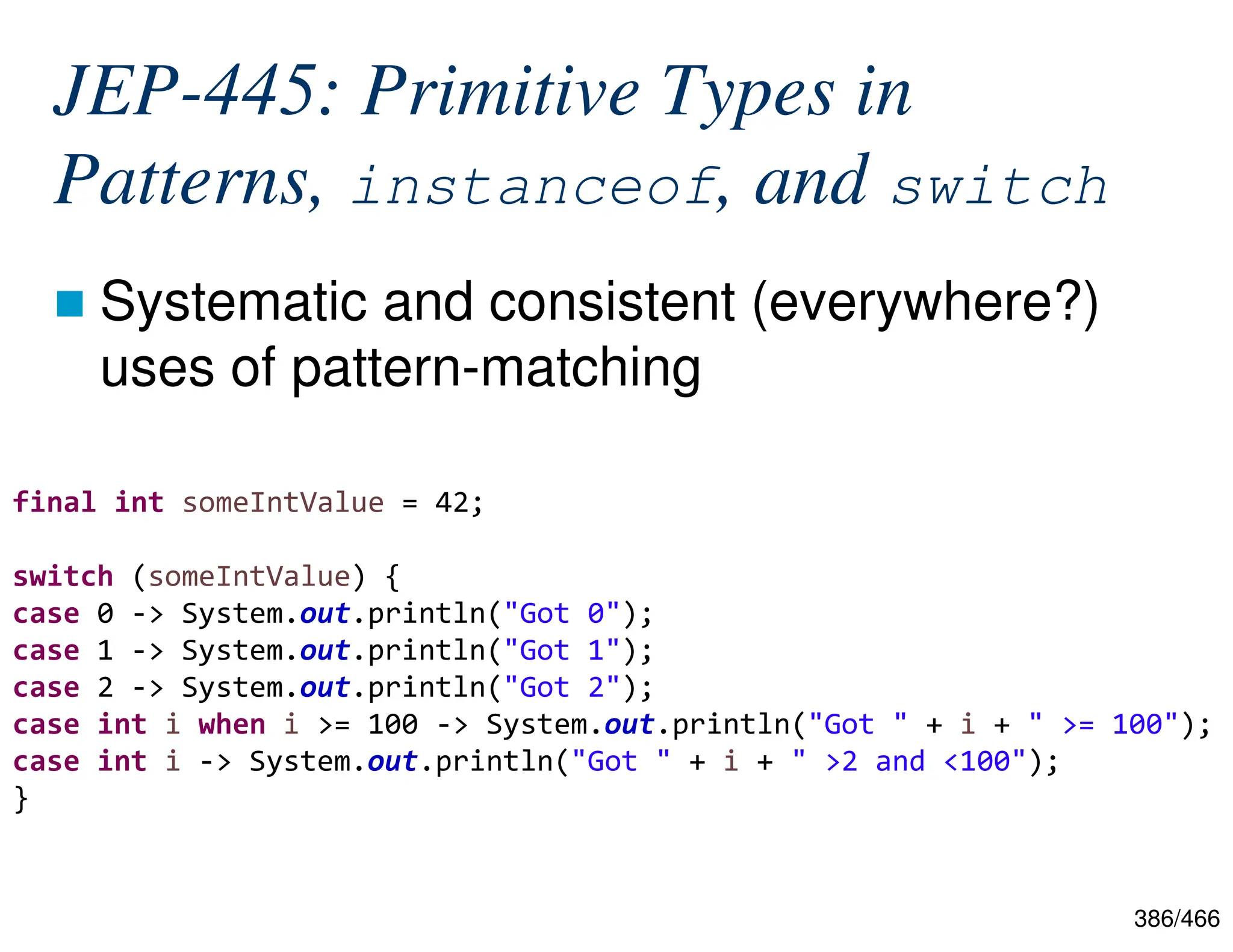
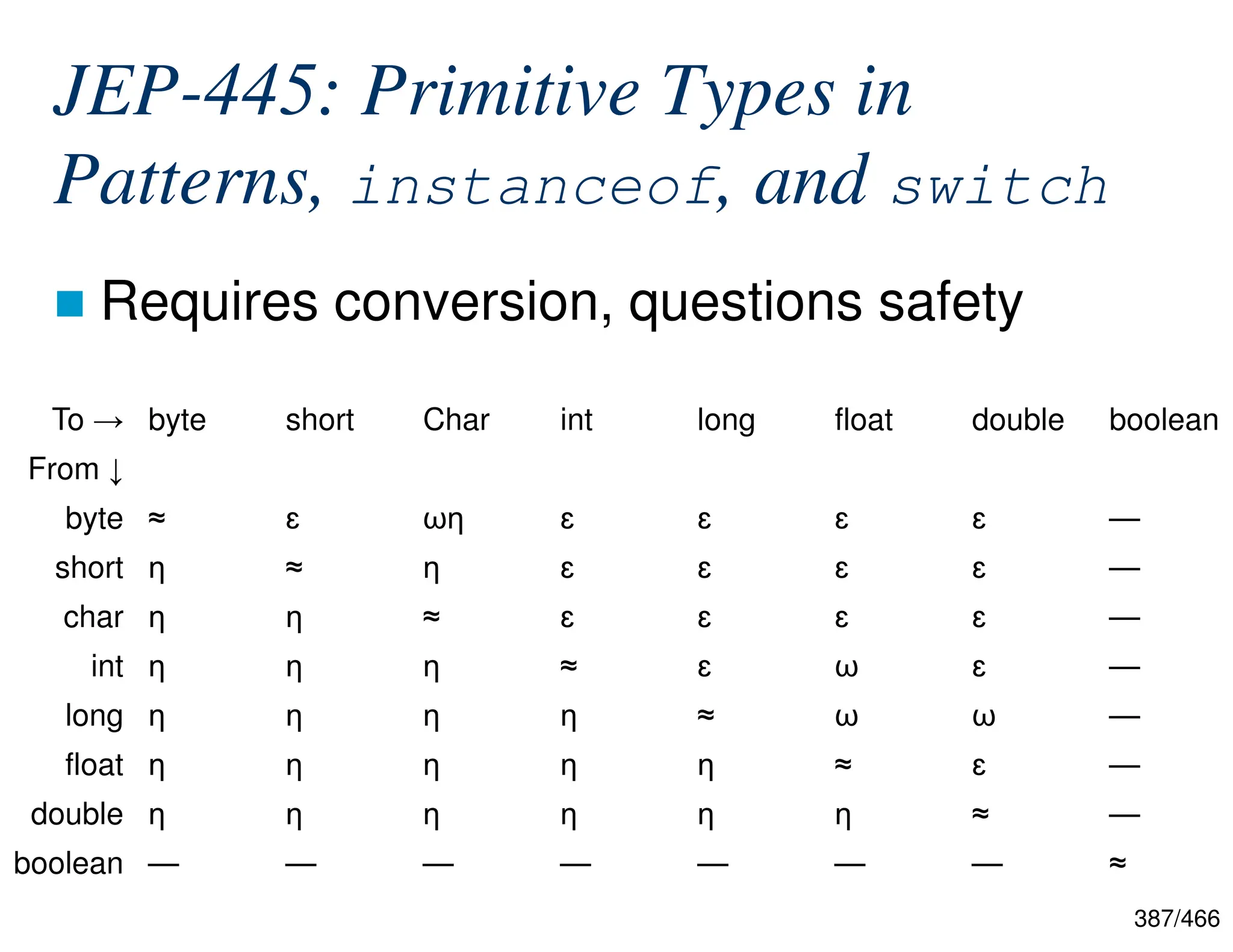
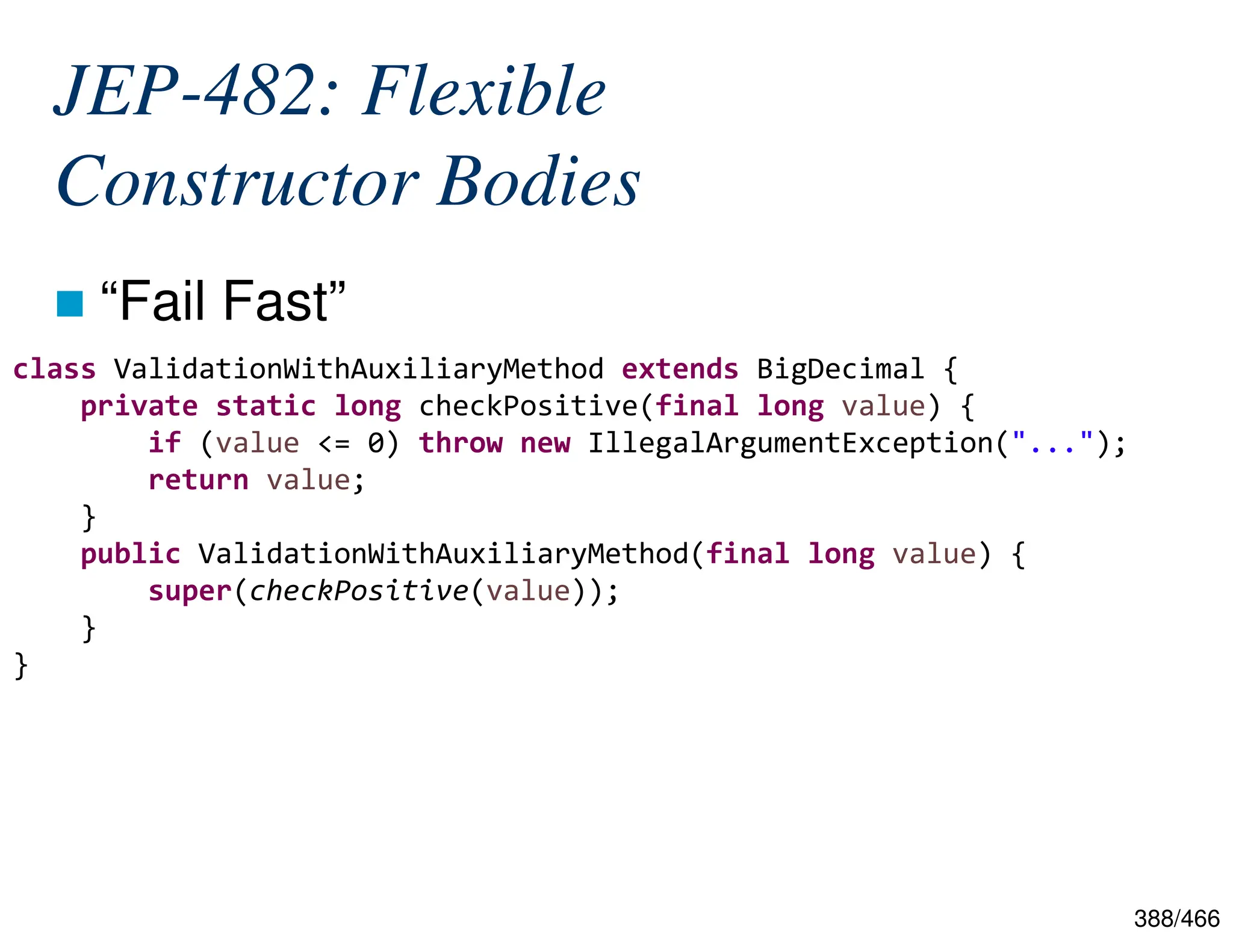
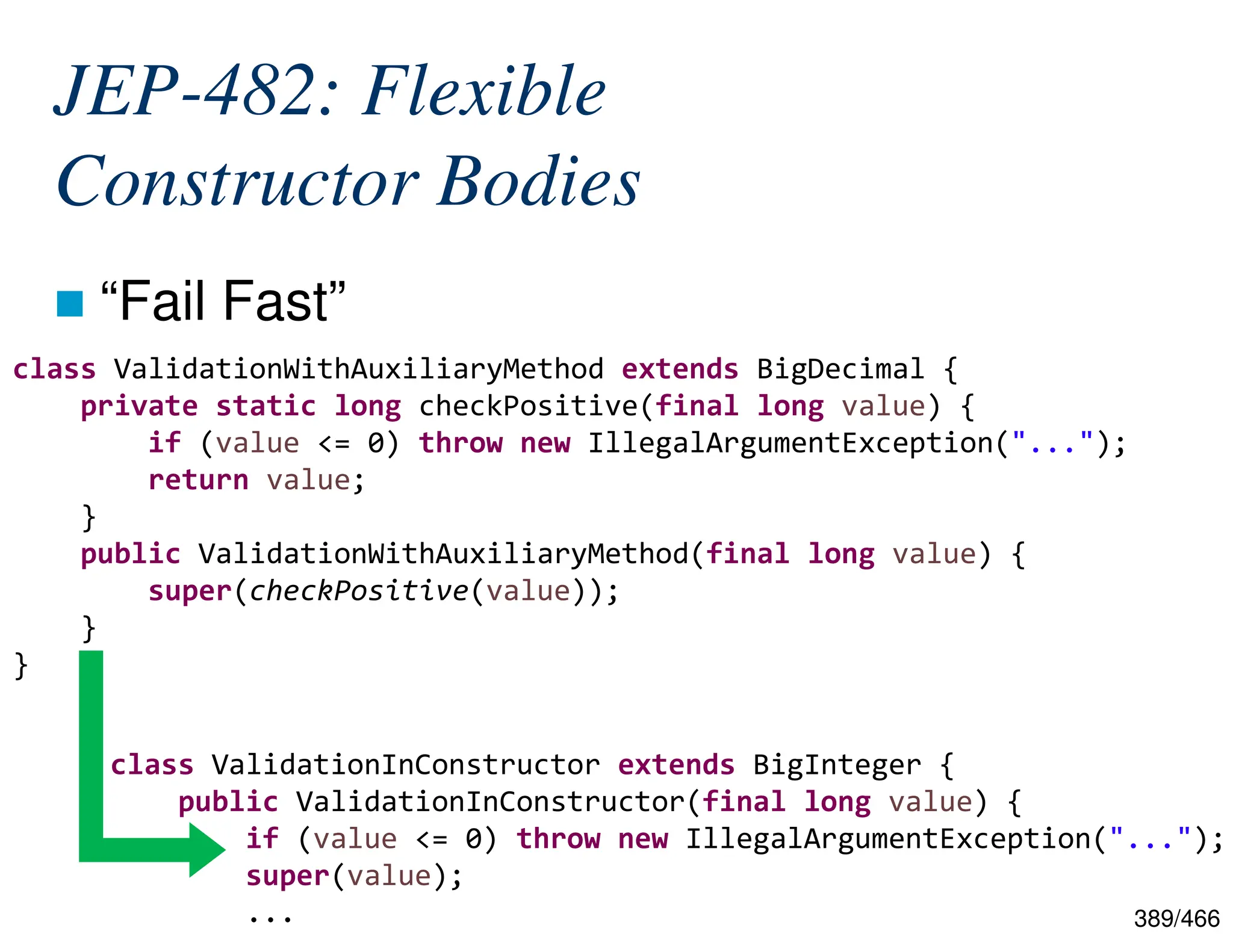

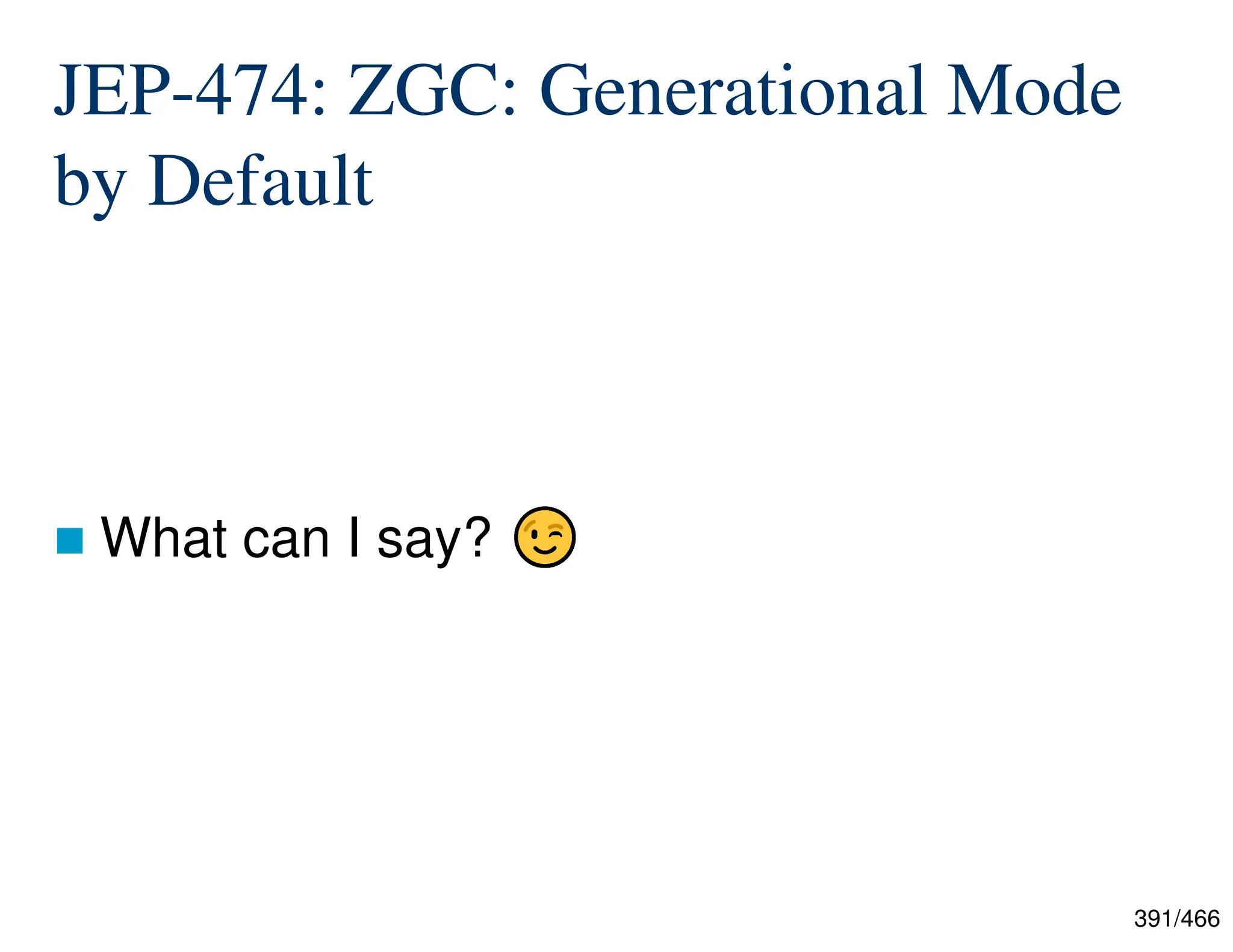

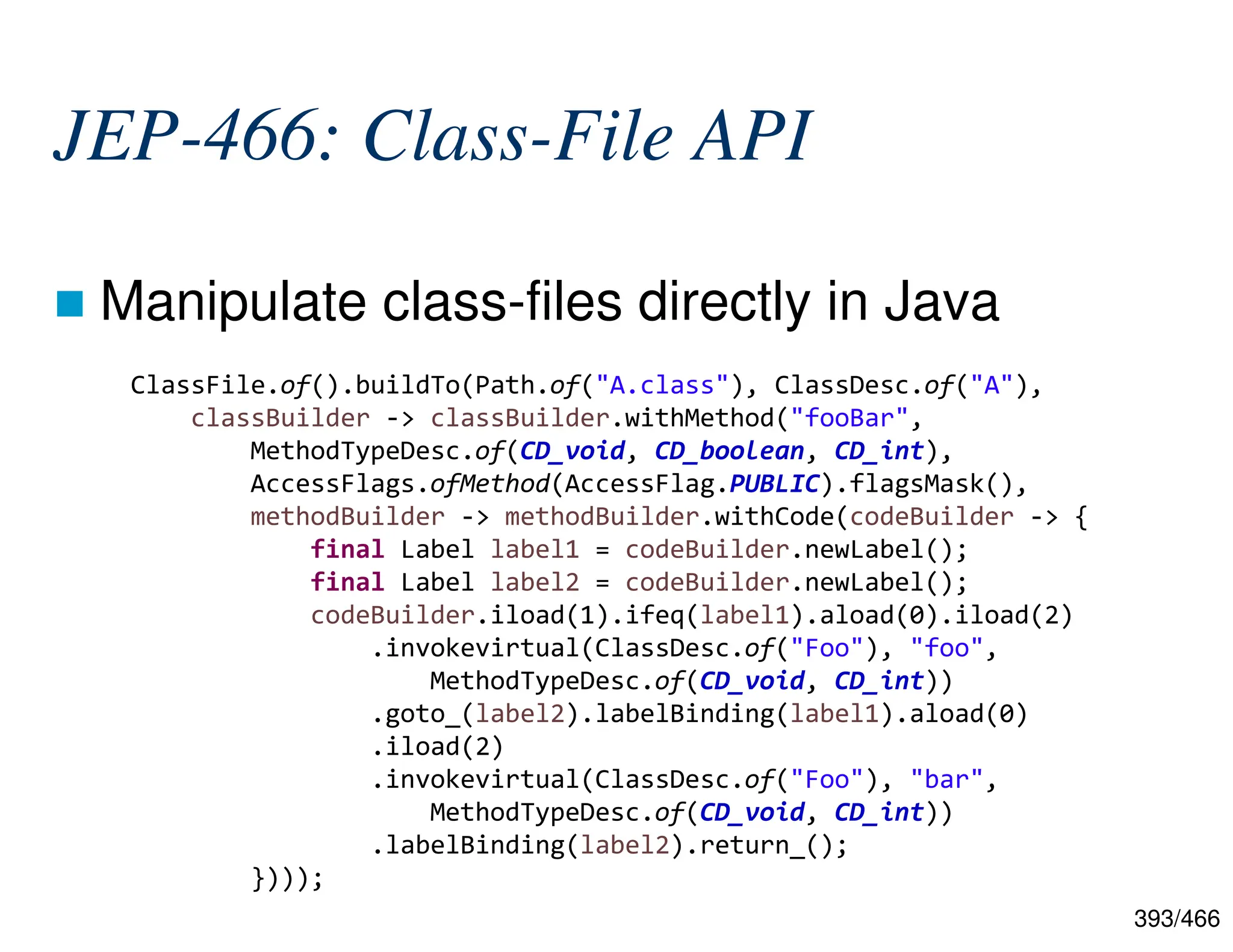
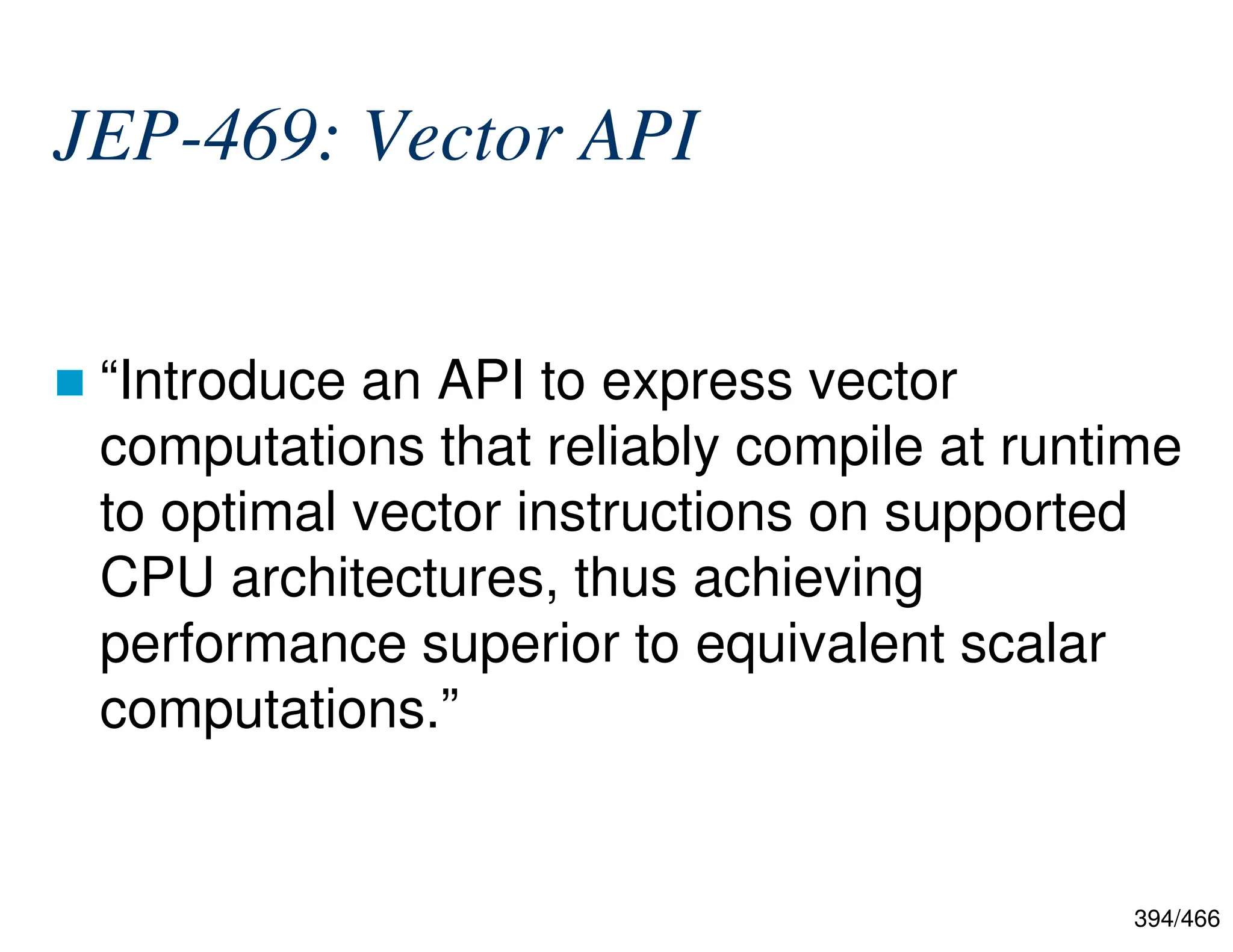
![395/466 JEP-469: Vector API static final VectorSpecies<Float> SPECIES = FloatVector.SPECIES_PREFERRED; void vectorComputation(float[] a, float[] b, float[] c) { int i = 0; int upperBound = SPECIES.loopBound(a.length); for (; i < upperBound; i += SPECIES.length()) { // FloatVector va, vb, vc; var va = FloatVector.fromArray(SPECIES, a, i); var vb = FloatVector.fromArray(SPECIES, b, i); var vc = va.mul(va).add(vb.mul(vb)).neg(); vc.intoArray(c, i); } for (; i < a.length; i++) { c[i] = (a[i] * a[i] + b[i] * b[i]) * -1.0f; } }](https://image.slidesharecdn.com/newjavav0-250327235127-ec555181/75/Evolution-and-Examples-of-Java-Features-from-Java-1-7-to-Java-24-395-2048.jpg)
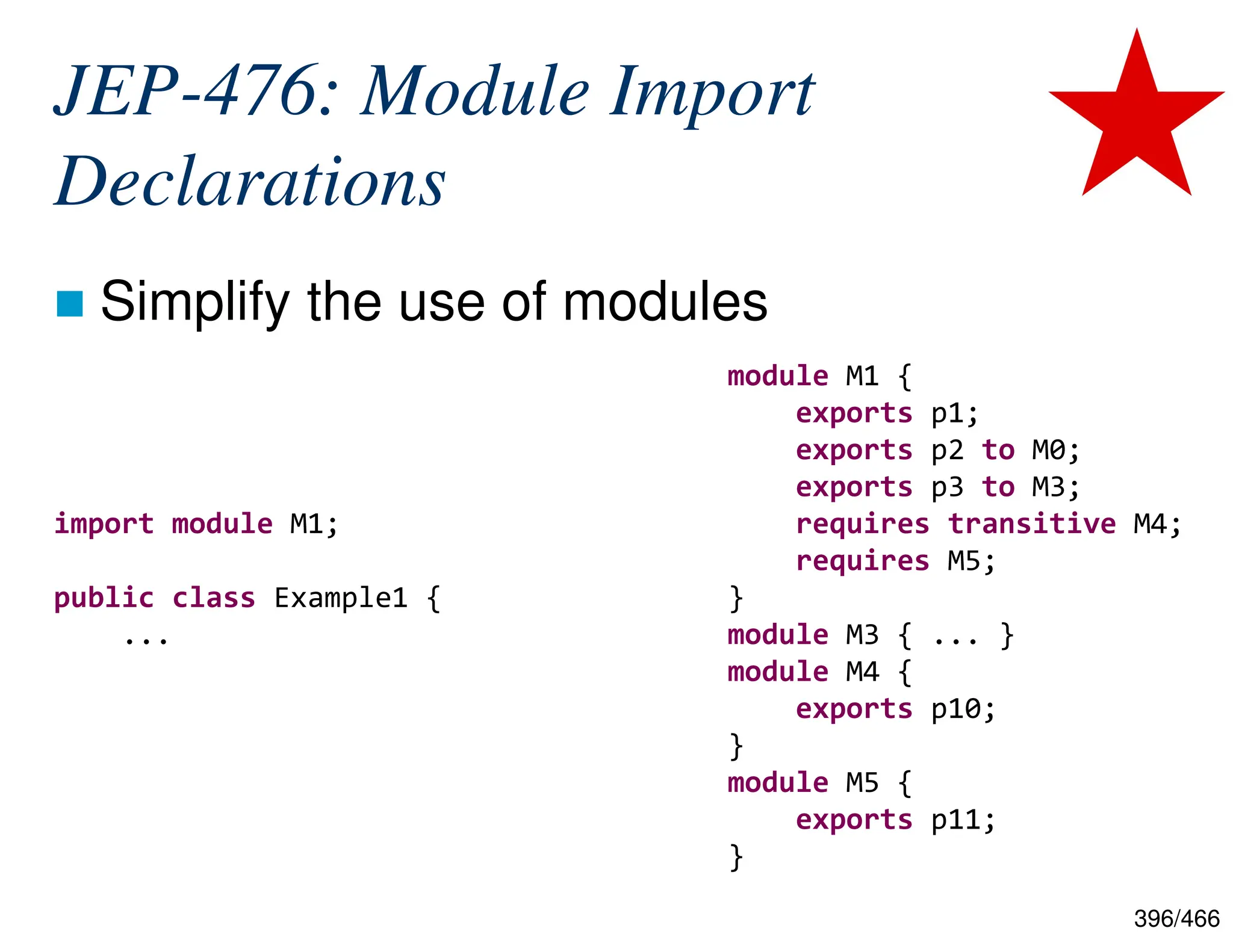
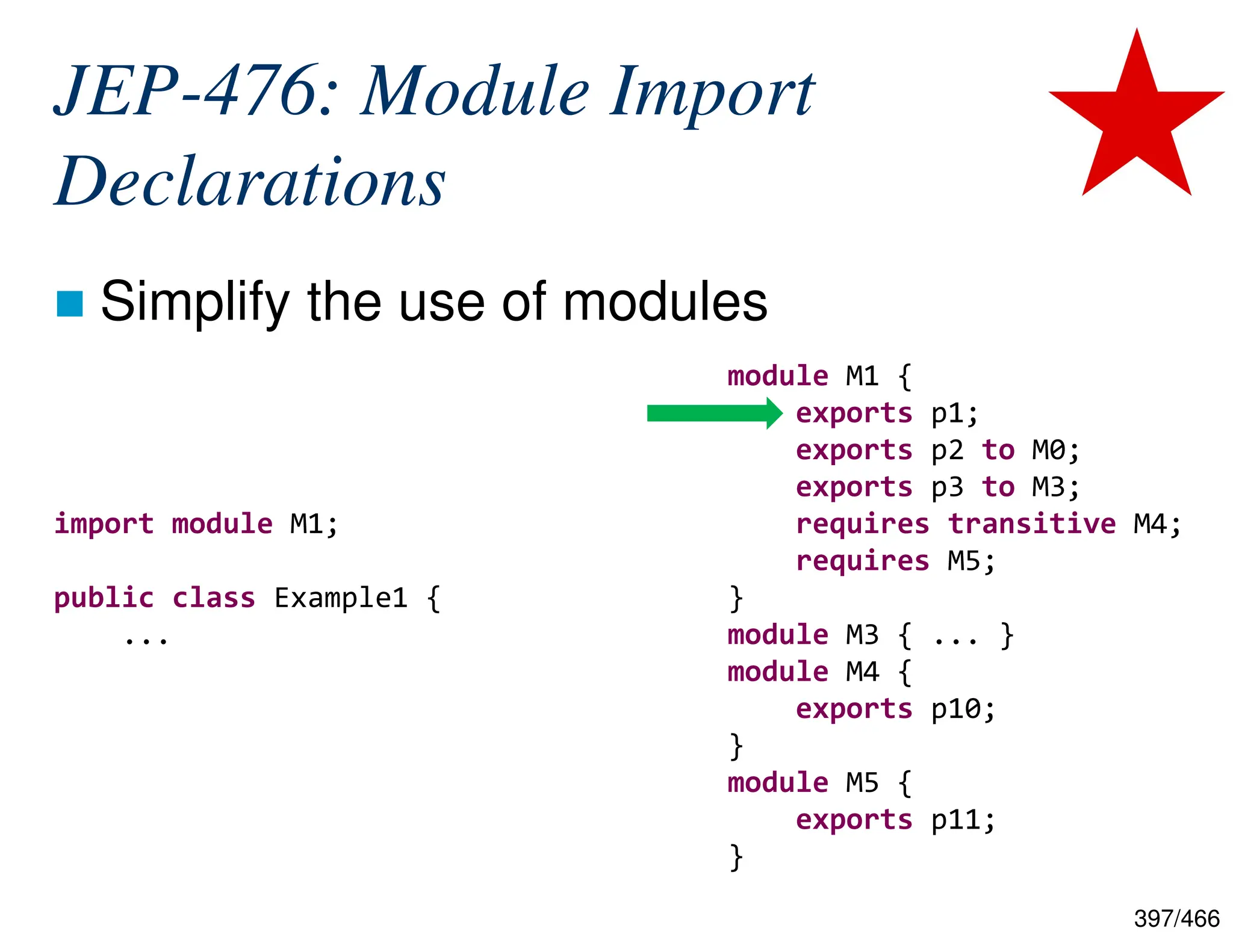
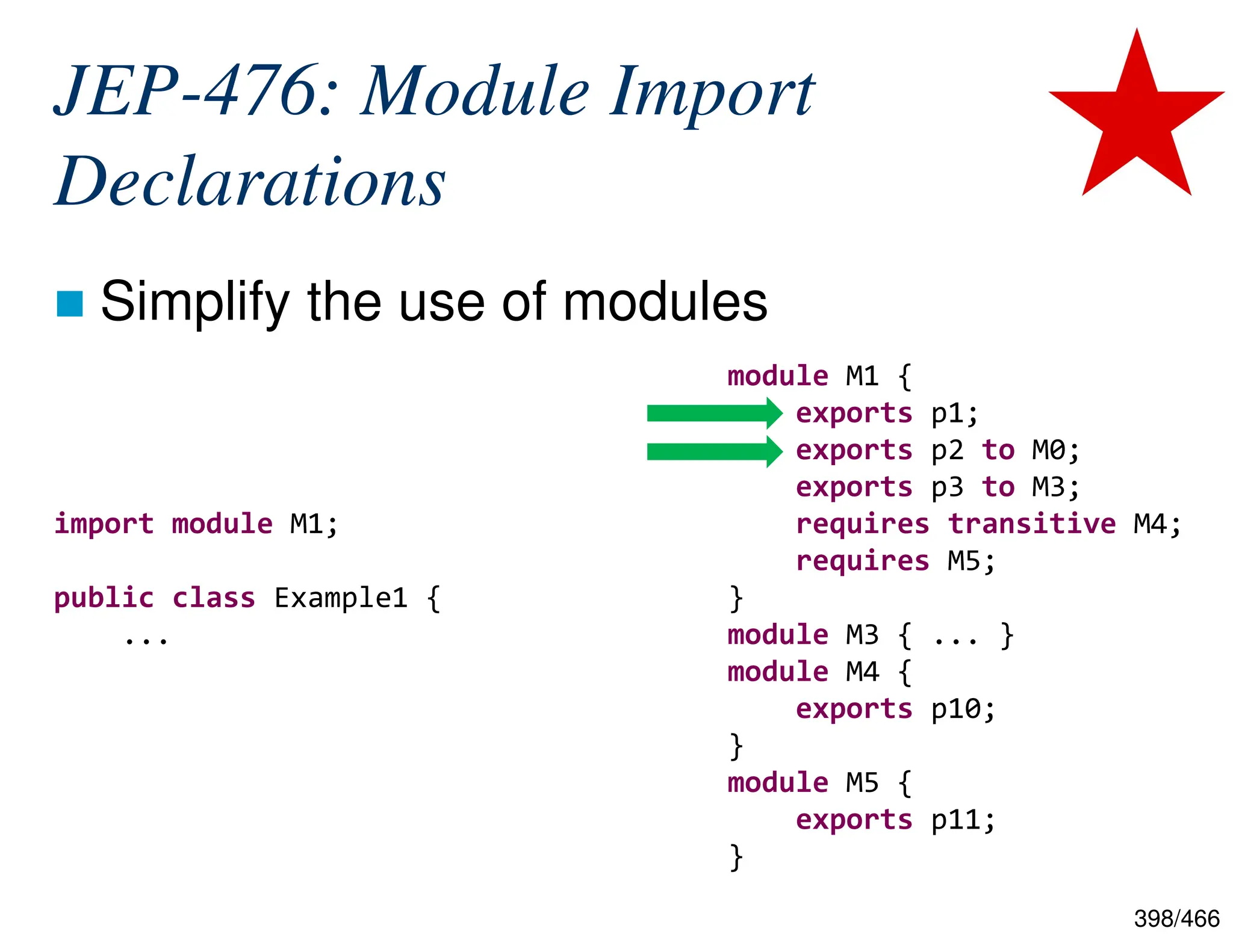
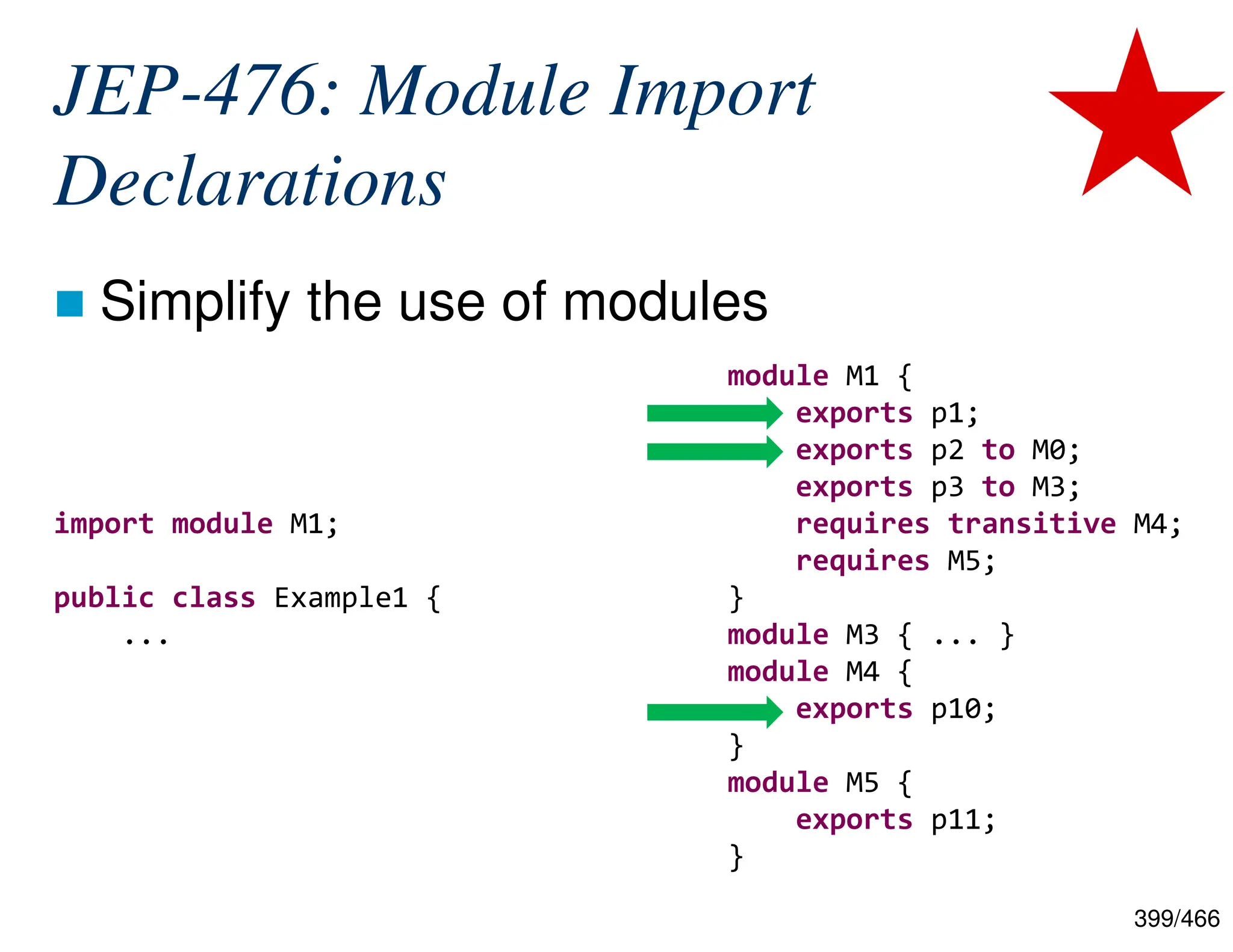
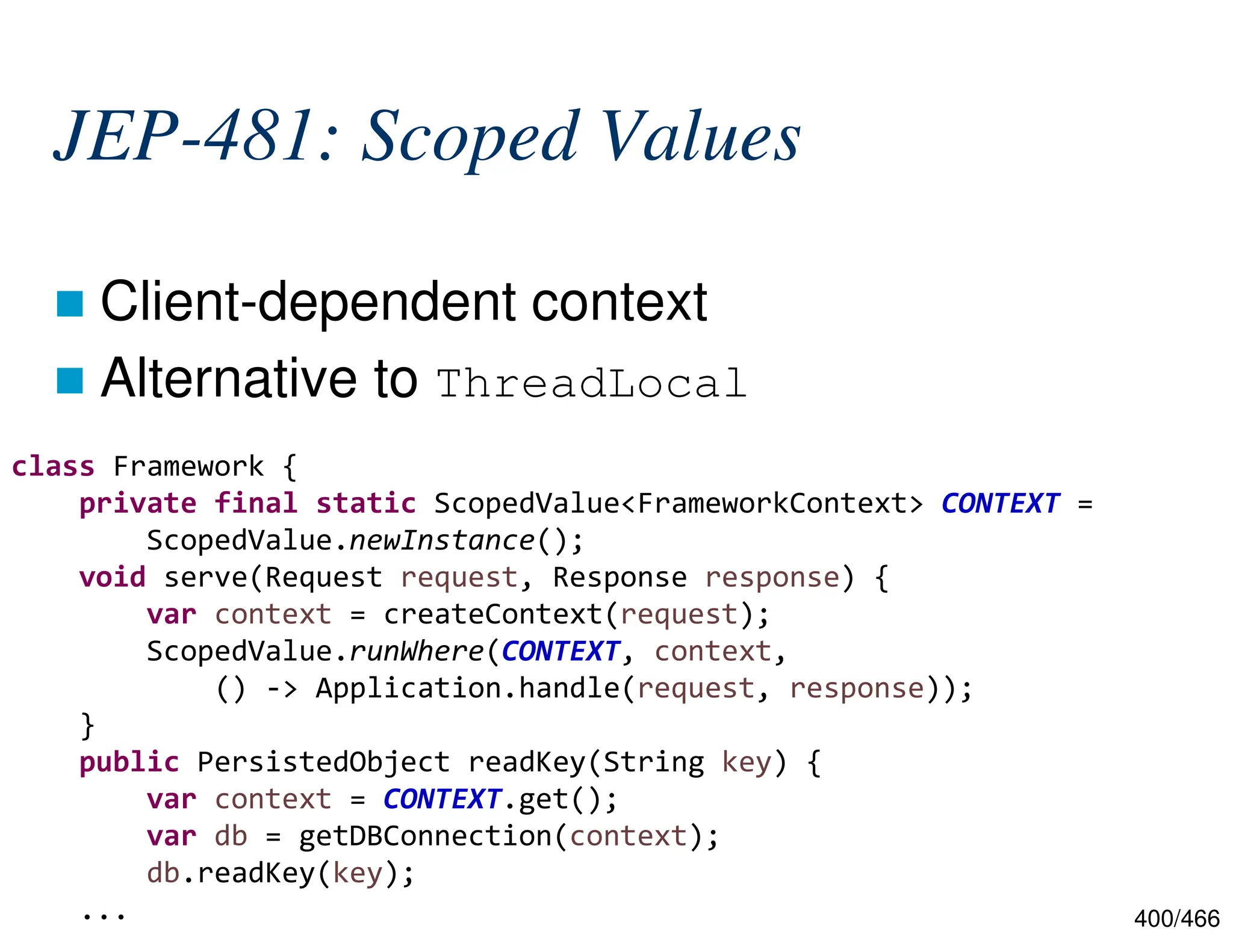

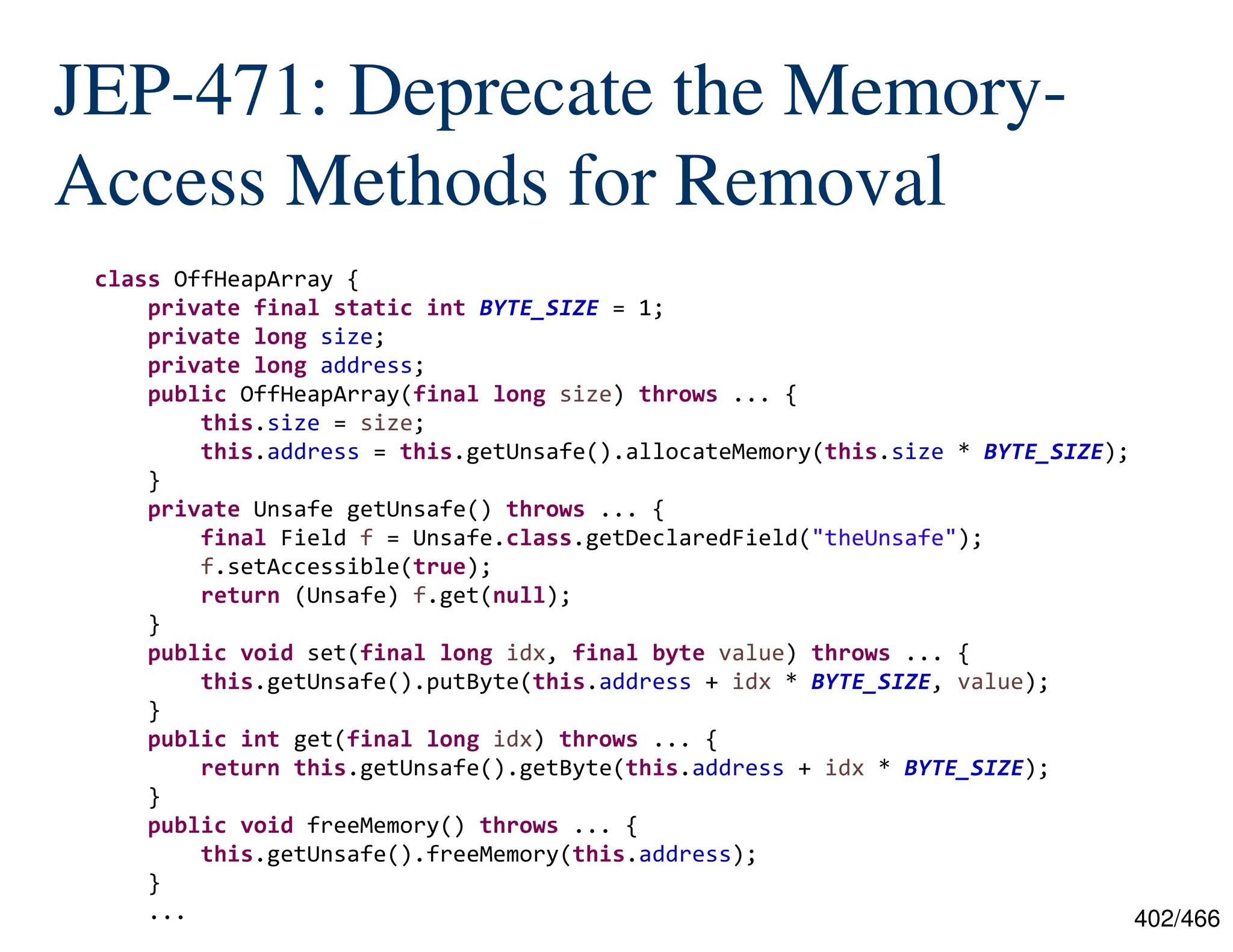
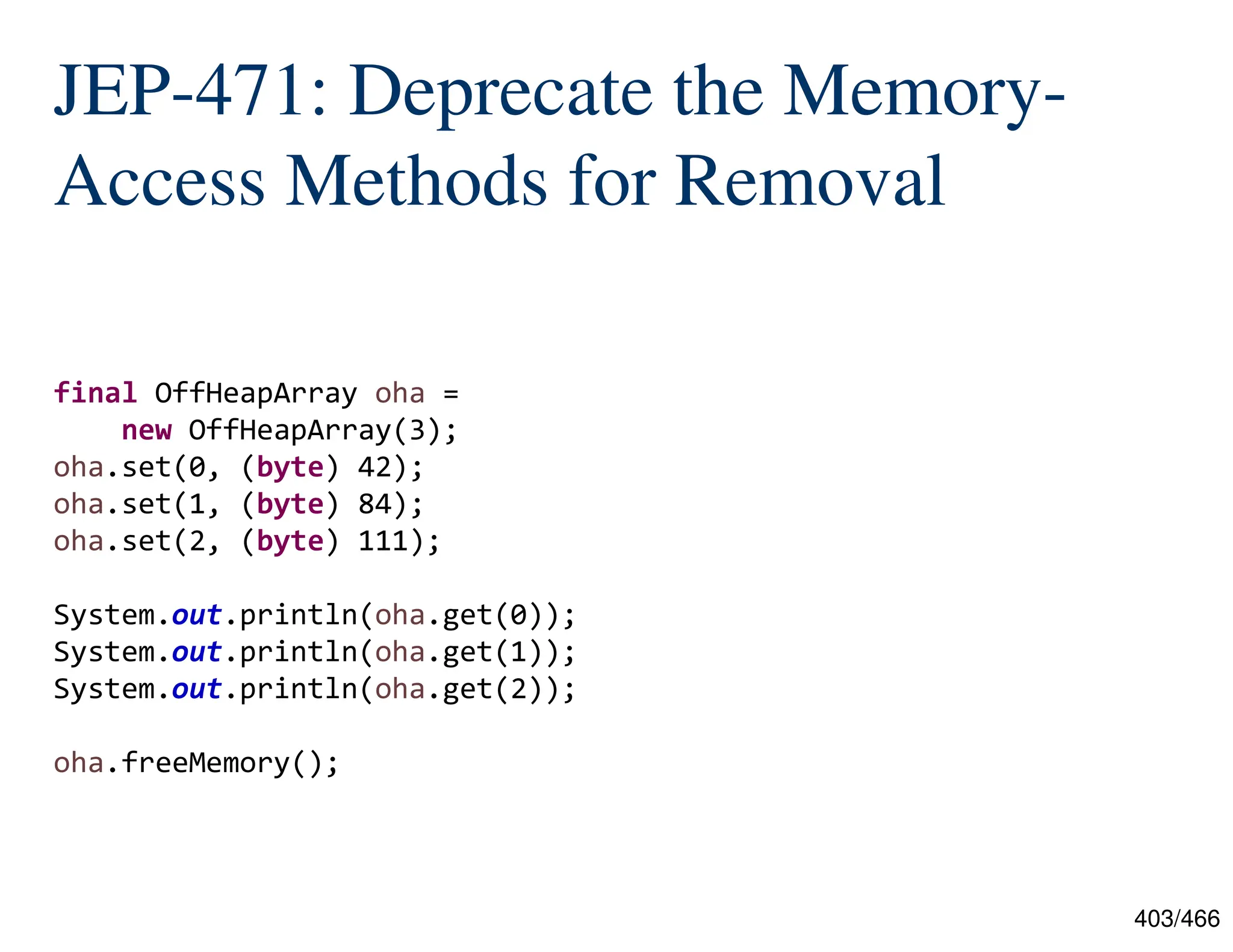
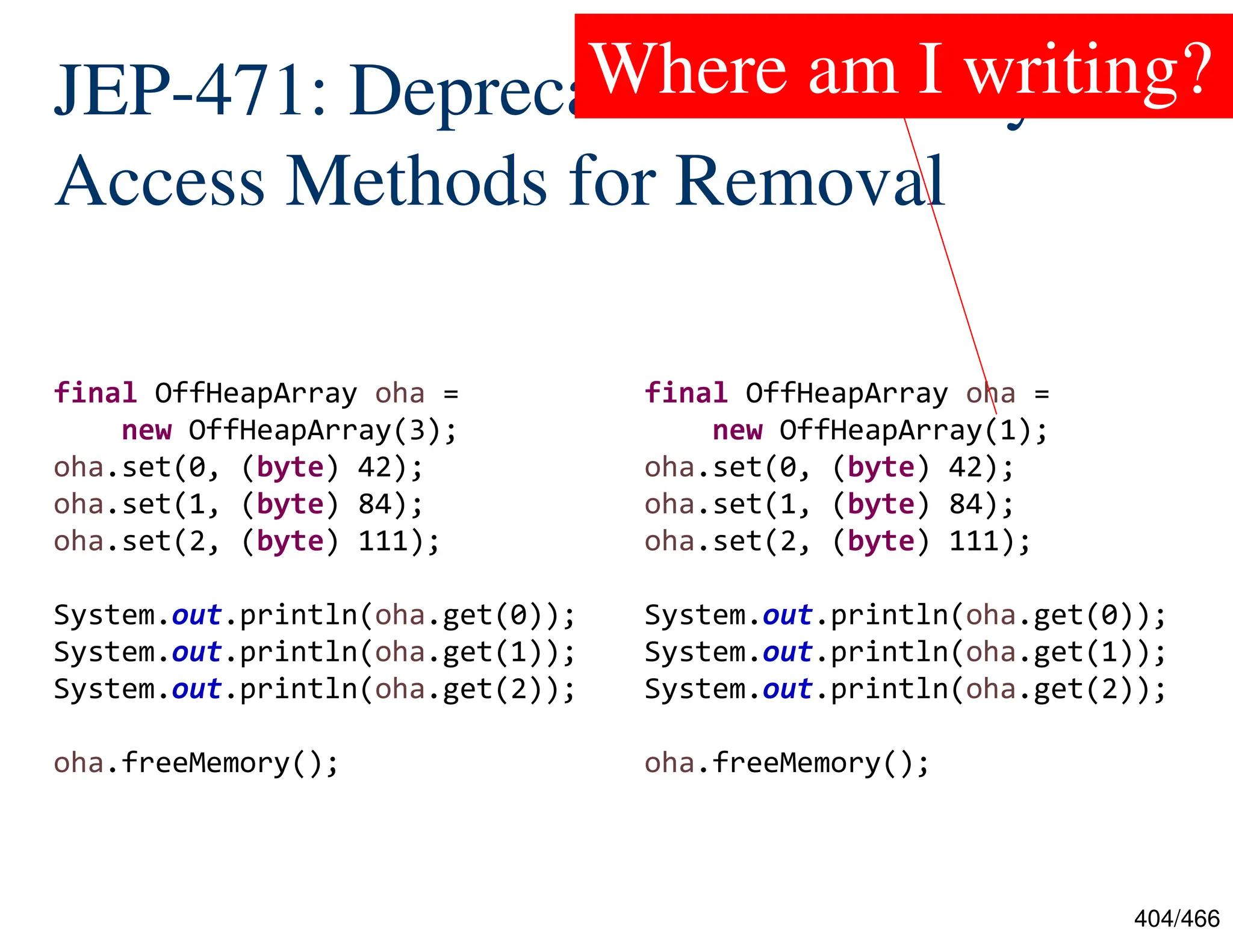
![405/466 JEP-477: Implicitly Declared Classes and Instance Main Methods Java Python-isation continues… – “thereby avoiding the mysterious System.out.println” public class HelloWorld { public static void main(String[] args) { System.out.println("Hello, World!"); } }](https://image.slidesharecdn.com/newjavav0-250327235127-ec555181/75/Evolution-and-Examples-of-Java-Features-from-Java-1-7-to-Java-24-405-2048.jpg)
![406/466 JEP-477: Implicitly Declared Classes and Instance Main Methods Java Python-isation continues… – “thereby avoiding the mysterious System.out.println” public class HelloWorld { public static void main(String[] args) { System.out.println("Hello, World!"); } } class HelloWorld { void main() { System.out.println("Hello, World!"); } }](https://image.slidesharecdn.com/newjavav0-250327235127-ec555181/75/Evolution-and-Examples-of-Java-Features-from-Java-1-7-to-Java-24-406-2048.jpg)
![407/466 JEP-477: Implicitly Declared Classes and Instance Main Methods Java Python-isation continues… – “thereby avoiding the mysterious System.out.println” public class HelloWorld { public static void main(String[] args) { System.out.println("Hello, World!"); } } class HelloWorld { void main() { System.out.println("Hello, World!"); } } void main() { System.out.println("Hello, World!"); }](https://image.slidesharecdn.com/newjavav0-250327235127-ec555181/75/Evolution-and-Examples-of-Java-Features-from-Java-1-7-to-Java-24-407-2048.jpg)
![408/466 JEP-477: Implicitly Declared Classes and Instance Main Methods Java Python-isation continues… – “thereby avoiding the mysterious System.out.println” public class HelloWorld { public static void main(String[] args) { System.out.println("Hello, World!"); } } class HelloWorld { void main() { System.out.println("Hello, World!"); } } void main() { println("Hello, World!"); } void main() { System.out.println("Hello, World!"); }](https://image.slidesharecdn.com/newjavav0-250327235127-ec555181/75/Evolution-and-Examples-of-Java-Features-from-Java-1-7-to-Java-24-408-2048.jpg)



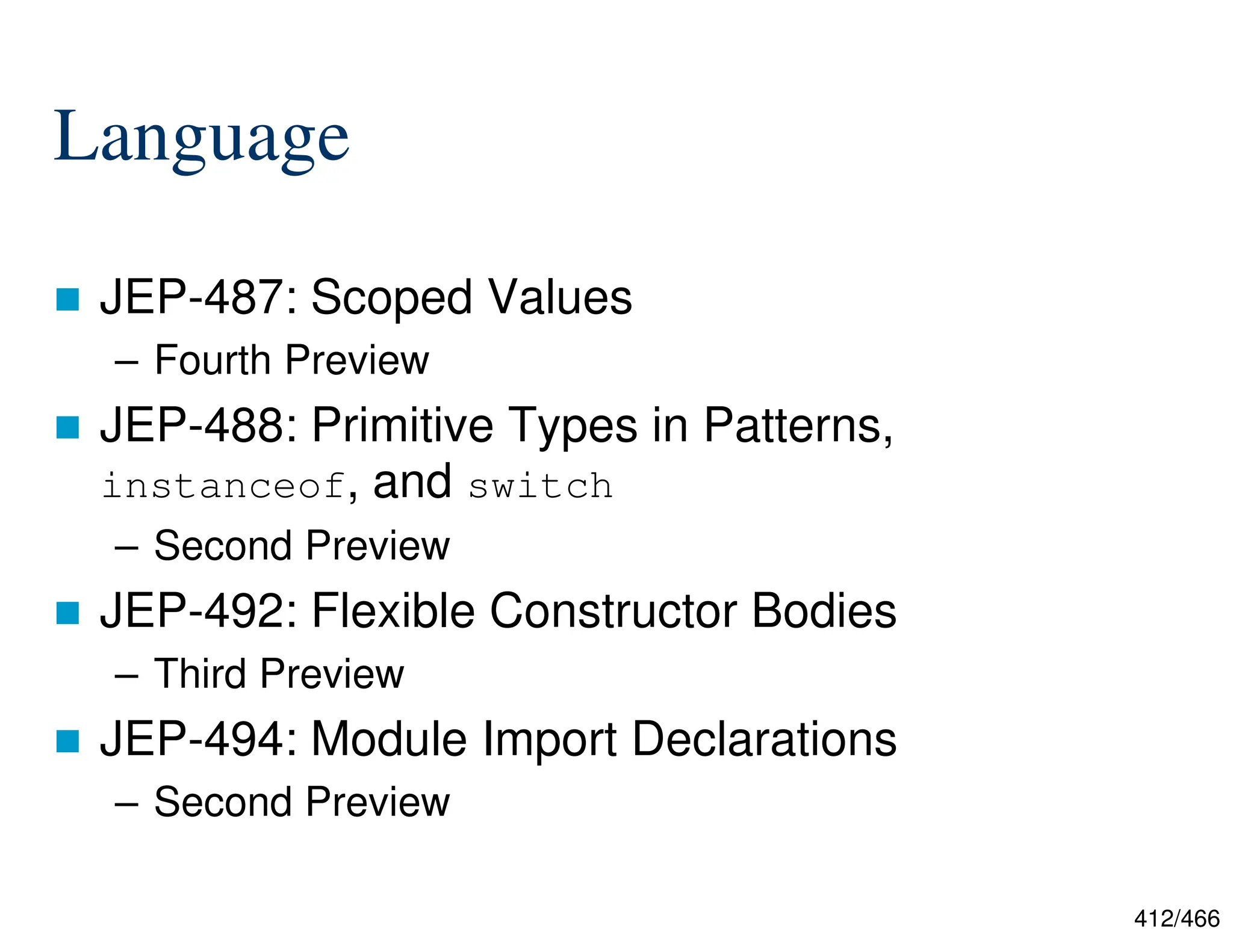

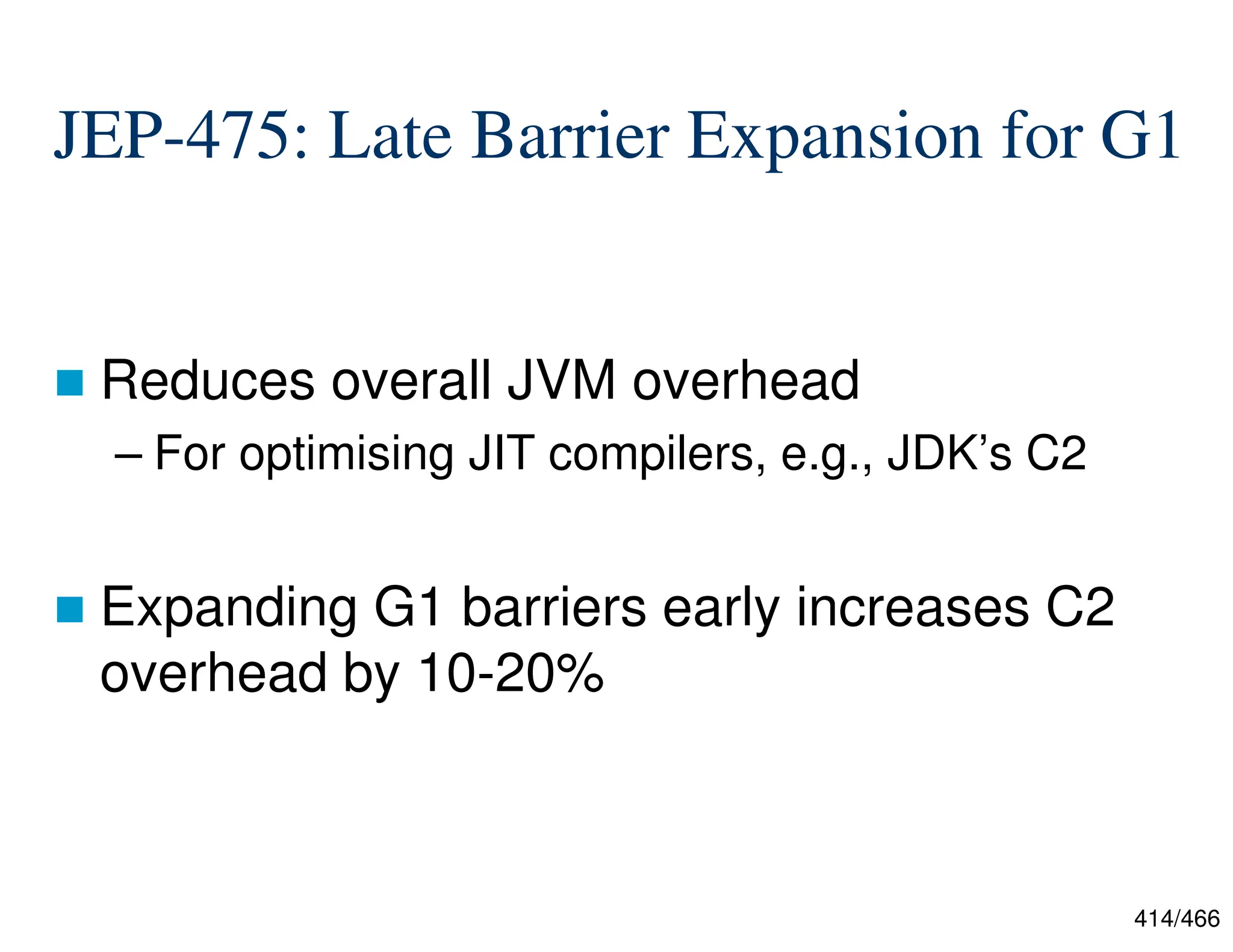
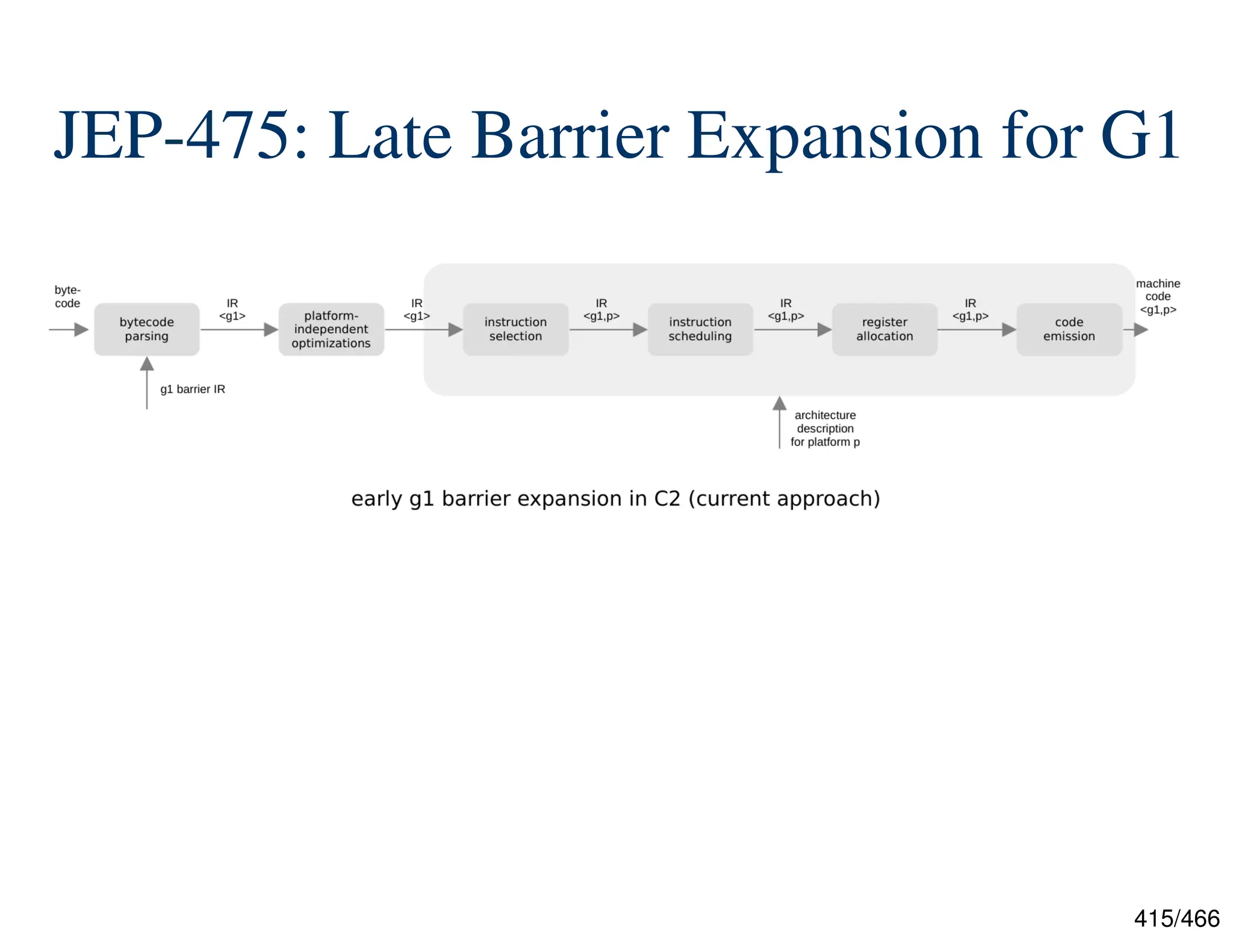
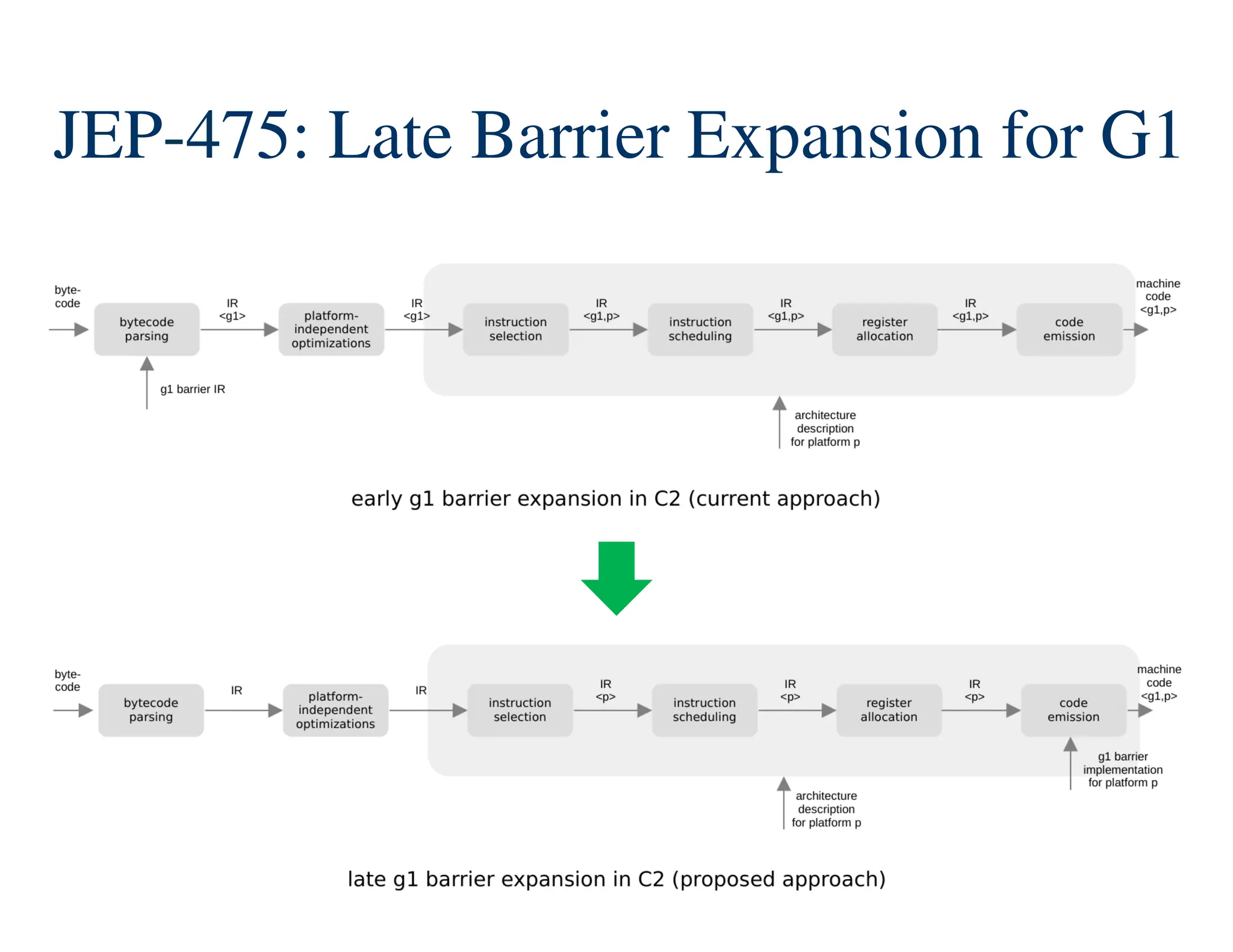
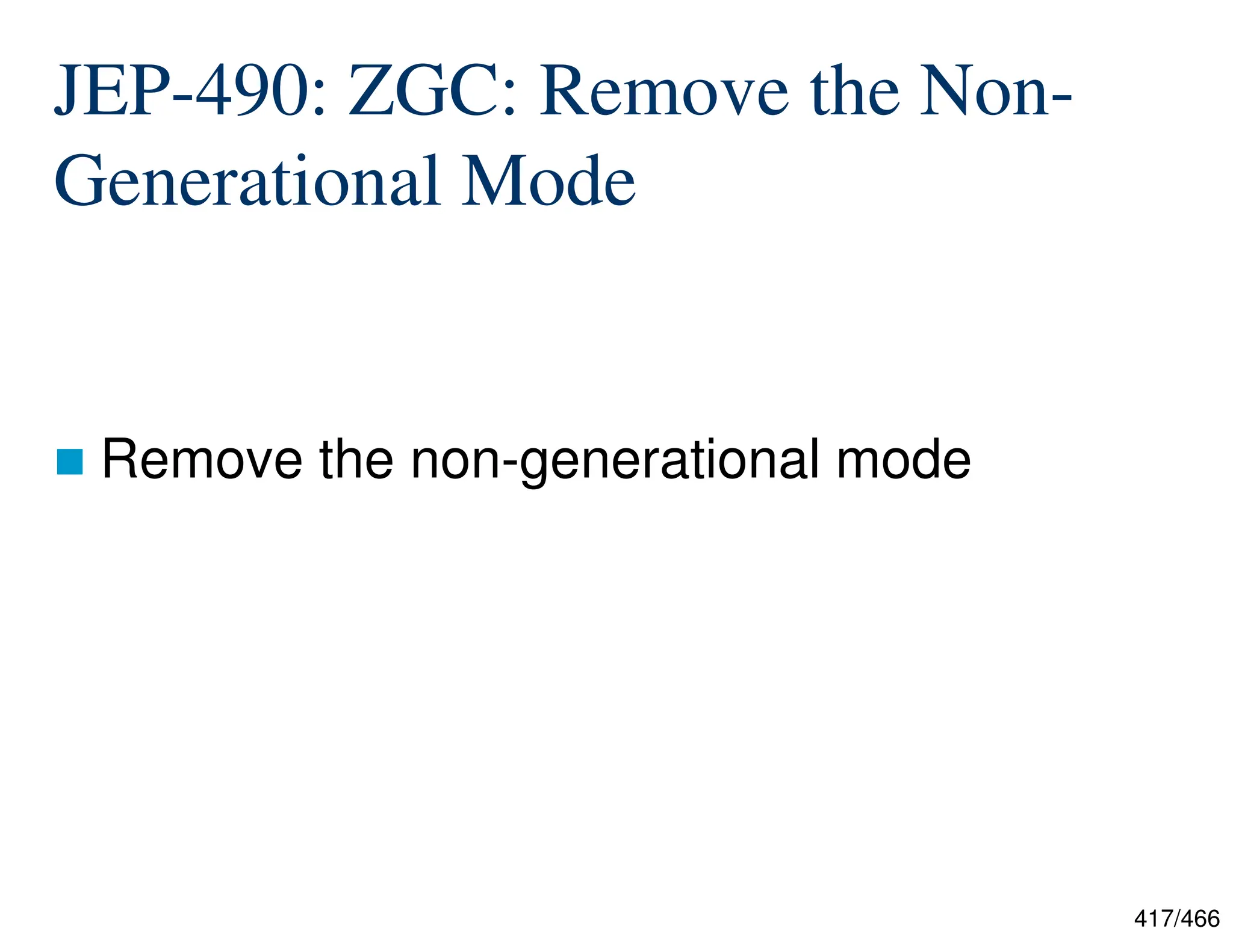
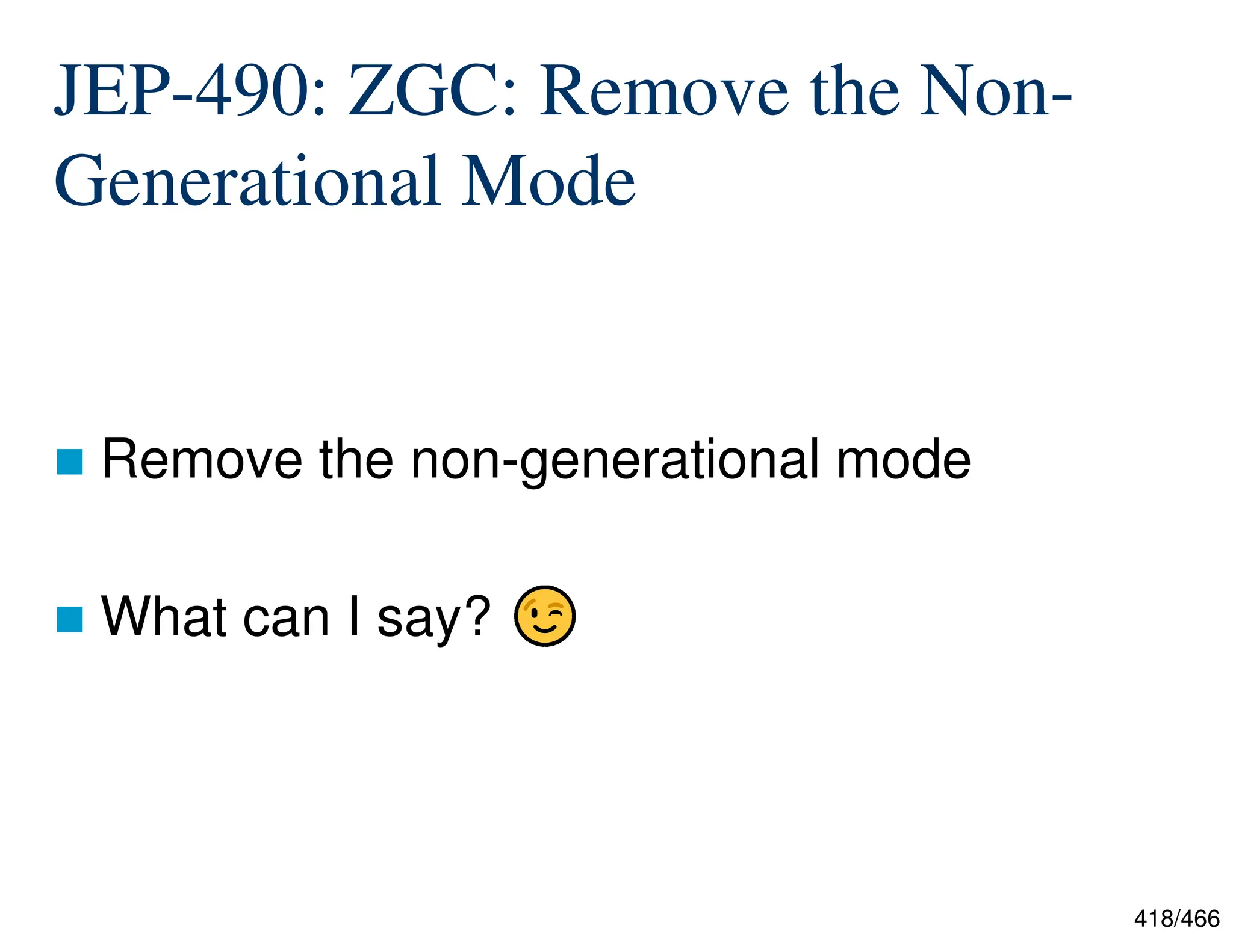
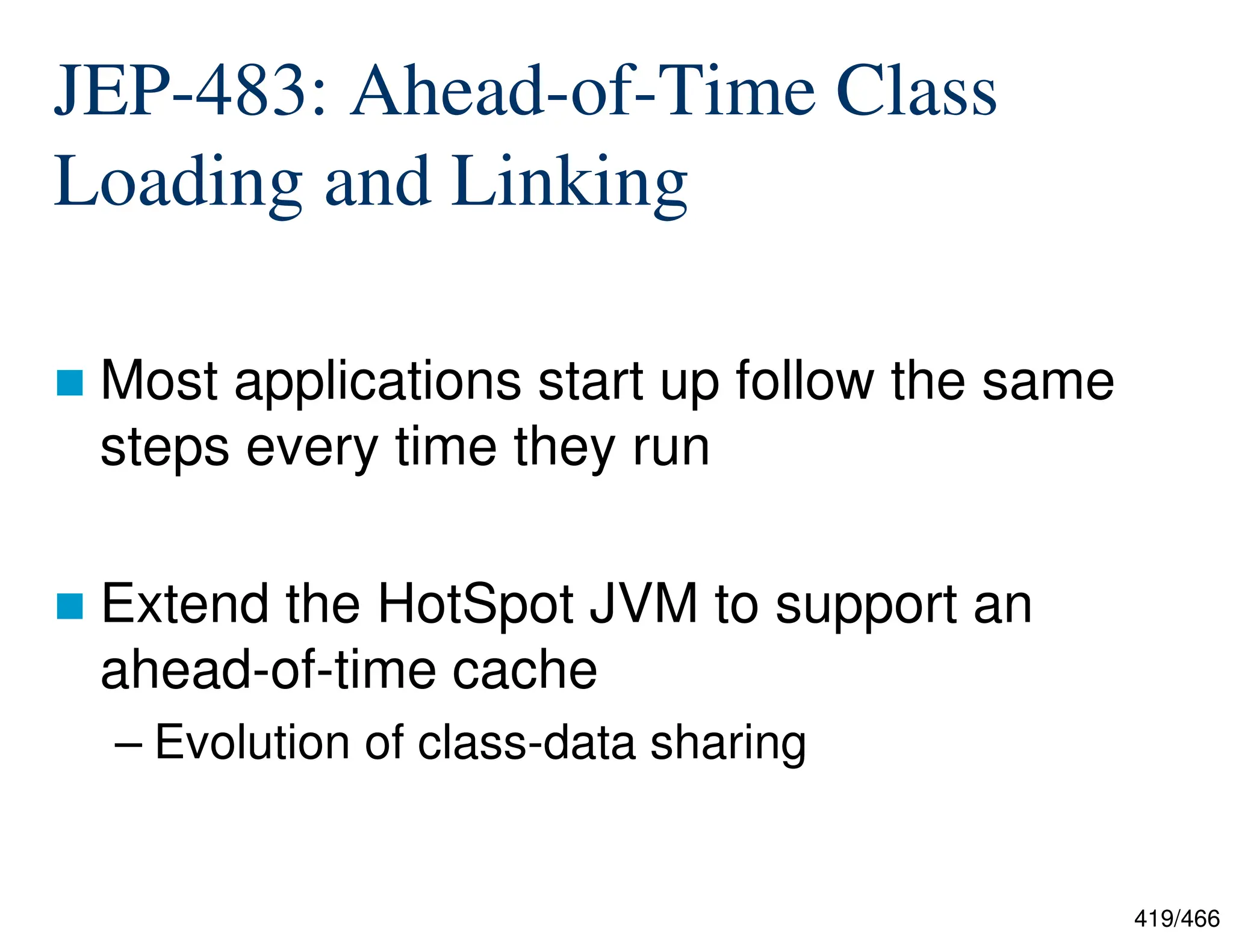
![420/466 JEP-483: Ahead-of-Time Class Loading and Linking Requires three steps – Training run – Cache creation – Cache utilisation $ java -cp bin/ net.ptidej.newjava.aotcache.Main Some application doing lots of things at start up... $ java - - - -XX:AOTMode=record XX:AOTMode=record XX:AOTMode=record XX:AOTMode=record - - - -XX:AOTConfiguration=app.aotconf XX:AOTConfiguration=app.aotconf XX:AOTConfiguration=app.aotconf XX:AOTConfiguration=app.aotconf -cp bin/ net.ptidej.newjava.aotcache.Main Some application doing lots of things at start up... $ java - - - -XX:AOTMode=create XX:AOTMode=create XX:AOTMode=create XX:AOTMode=create - - - -XX:AOTConfiguration=app.aotconf XX:AOTConfiguration=app.aotconf XX:AOTConfiguration=app.aotconf XX:AOTConfiguration=app.aotconf - - - -XX:AOTCache=app.aot XX:AOTCache=app.aot XX:AOTCache=app.aot XX:AOTCache=app.aot -cp bin/ net.ptidej.newjava.aotcache.Main [0.237s][warning][cds] Skipping net/.../Main: Unsupported location AOTCache creation is complete: app.aot $ java - - - -XX:AOTCache=app.aot XX:AOTCache=app.aot XX:AOTCache=app.aot XX:AOTCache=app.aot -cp bin/ net.ptidej.newjava.aotcache.Main Some application doing lots of things at start up...](https://image.slidesharecdn.com/newjavav0-250327235127-ec555181/75/Evolution-and-Examples-of-Java-Features-from-Java-1-7-to-Java-24-420-2048.jpg)
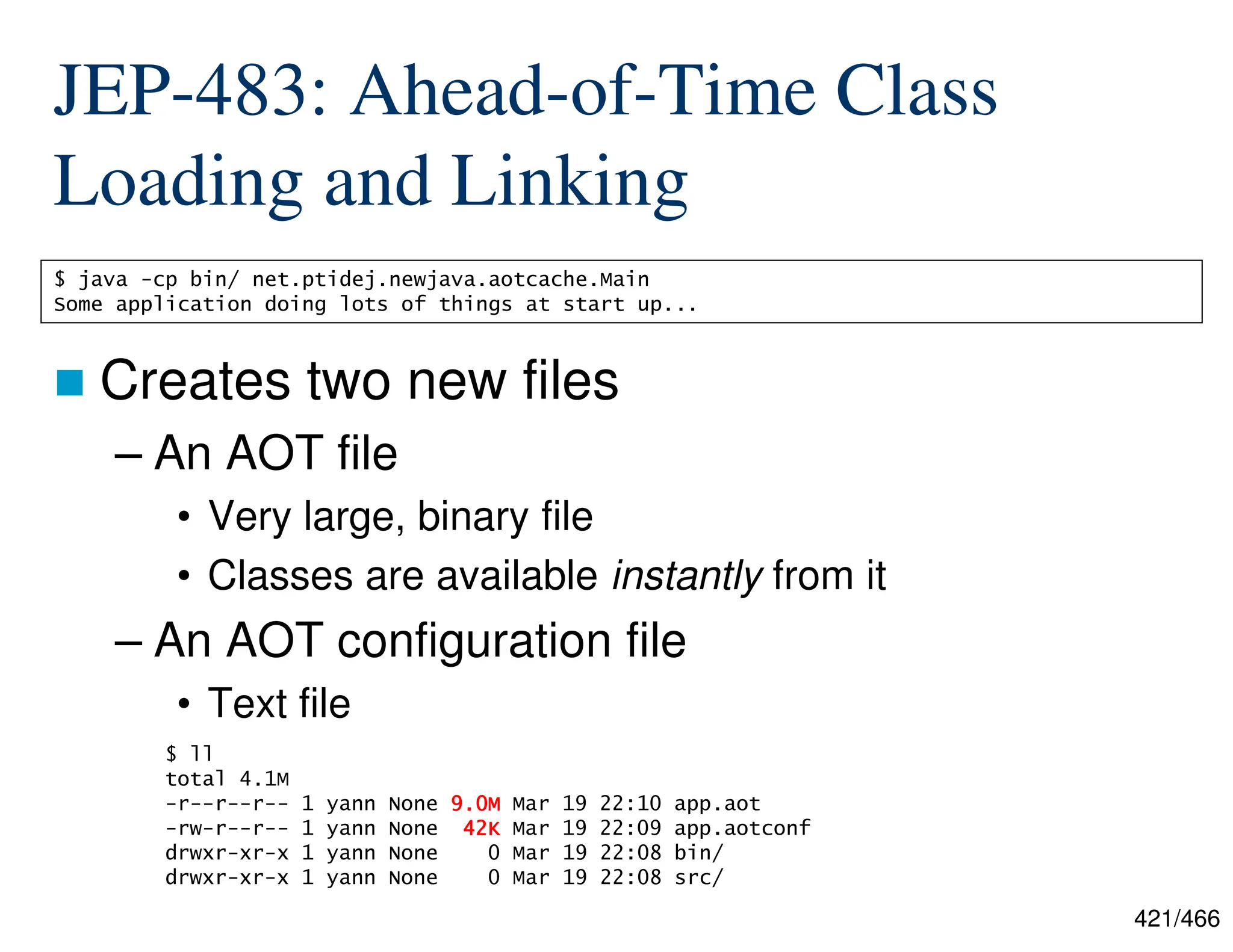
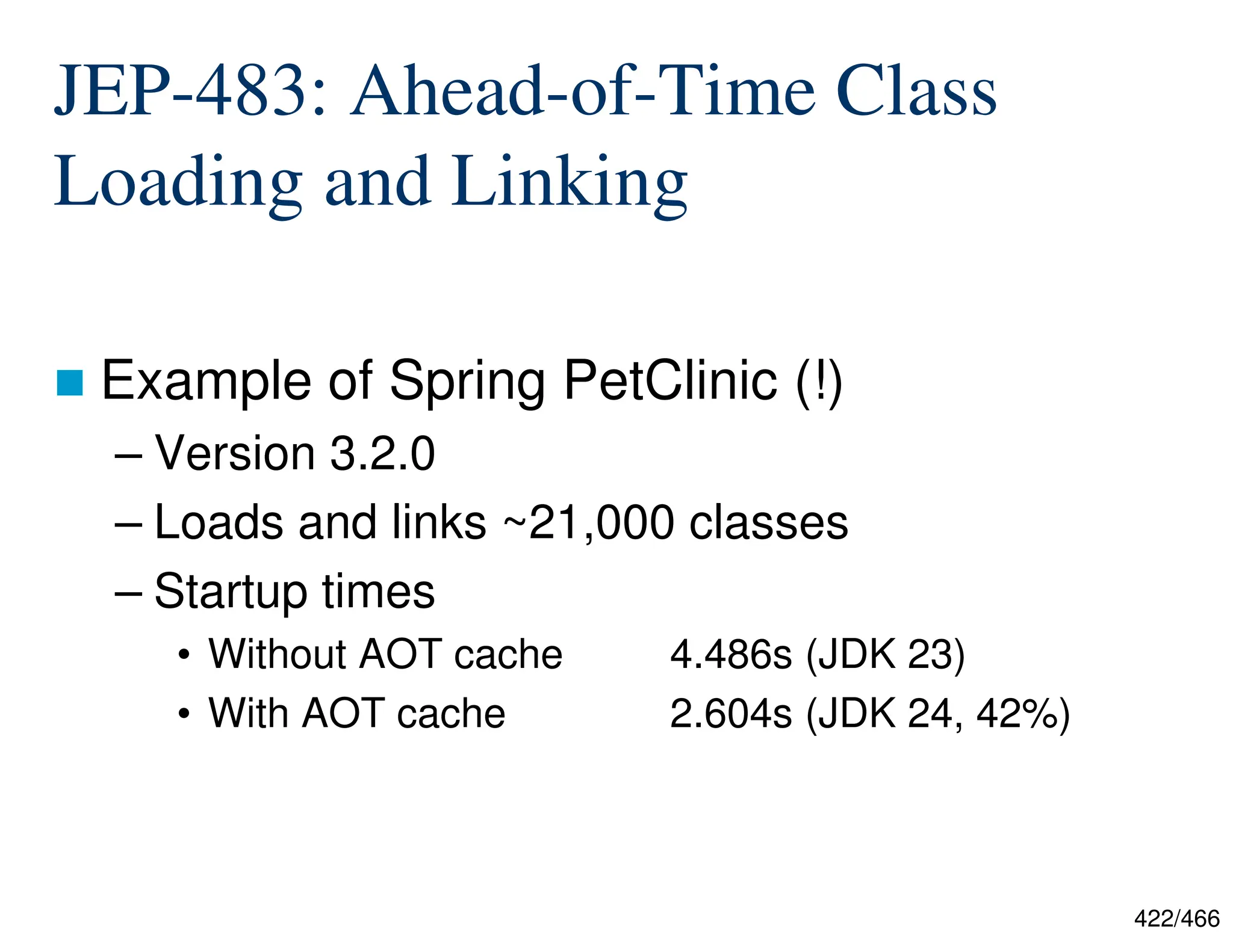
![423/466 JEP-491: Synchronize Virtual Threads without Pinning Virtual threads Platform threads Arrange “for virtual threads that block in [synchronized methods and blocks] to release their underlying platform threads”](https://image.slidesharecdn.com/newjavav0-250327235127-ec555181/75/Evolution-and-Examples-of-Java-Features-from-Java-1-7-to-Java-24-423-2048.jpg)

![425/466 JEP-484: Class-File API Non-goals – “[O]bsolete existing libraries [for] class files” • Apache BCEL • IBM CFParse – “[E]xtend the Core Reflection API to give access to the bytecode of loaded classes.” • Would require changes to the JVM – “[P]rovide code analysis functionality” • Should be provided by third-party libraries](https://image.slidesharecdn.com/newjavav0-250327235127-ec555181/75/Evolution-and-Examples-of-Java-Features-from-Java-1-7-to-Java-24-425-2048.jpg)
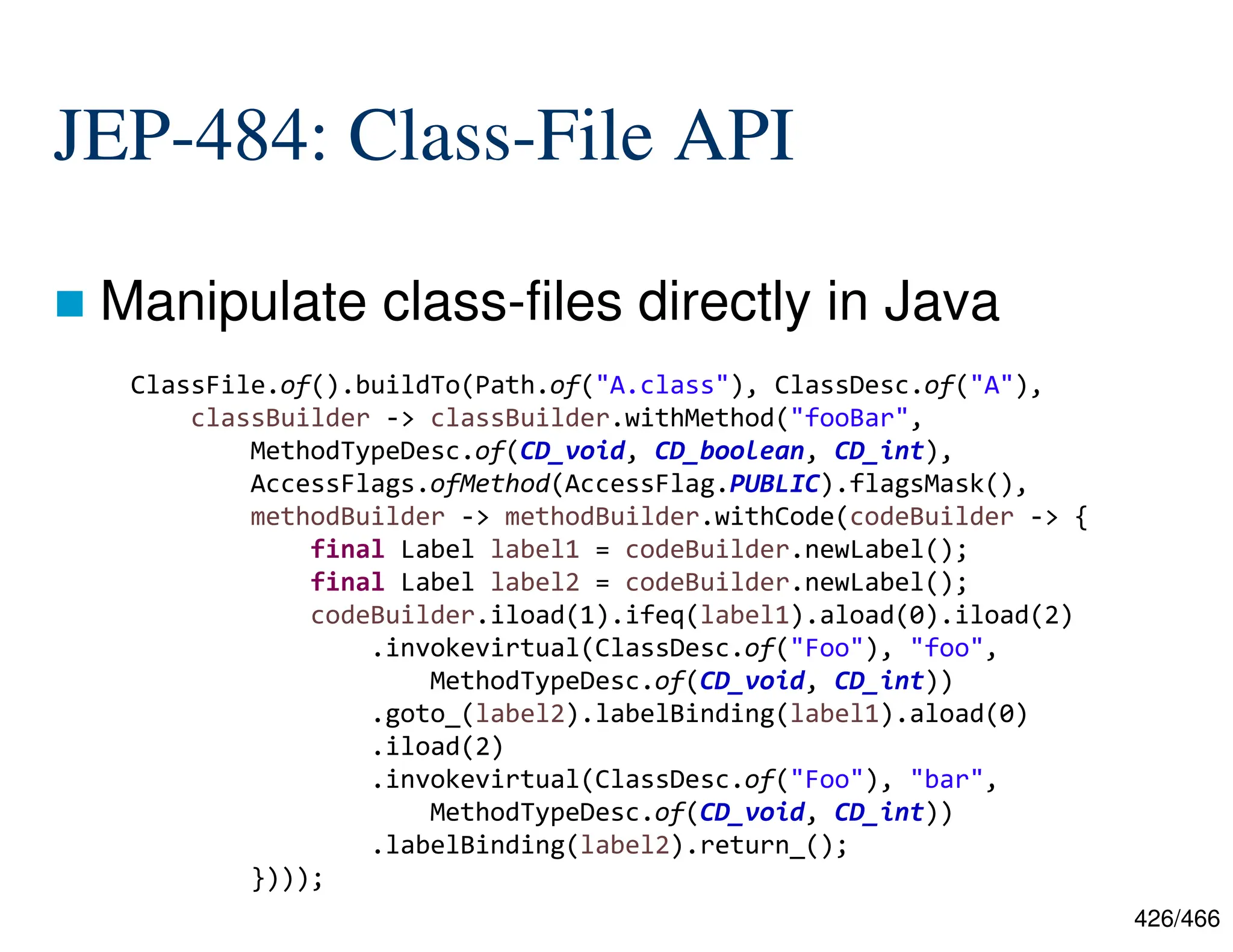
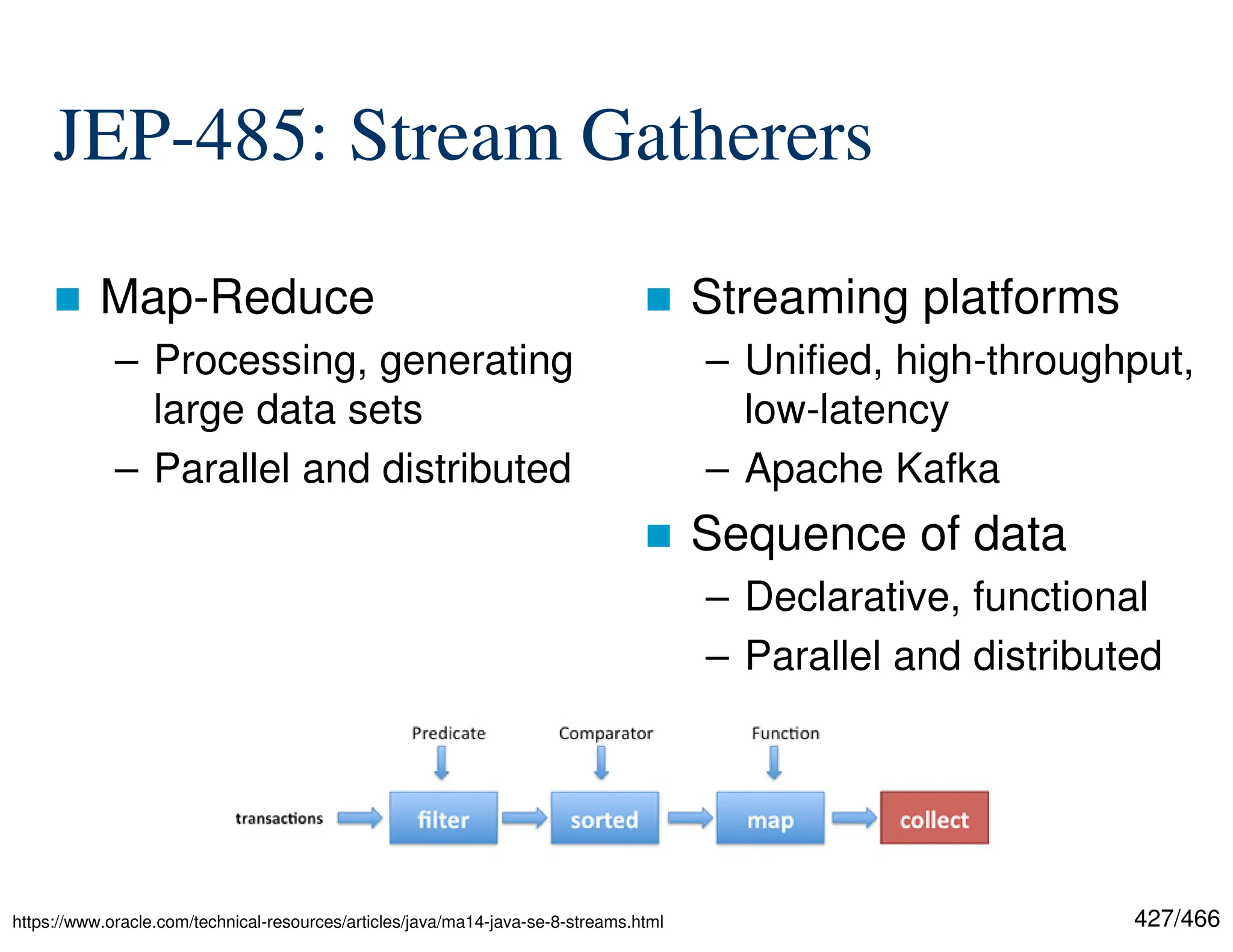
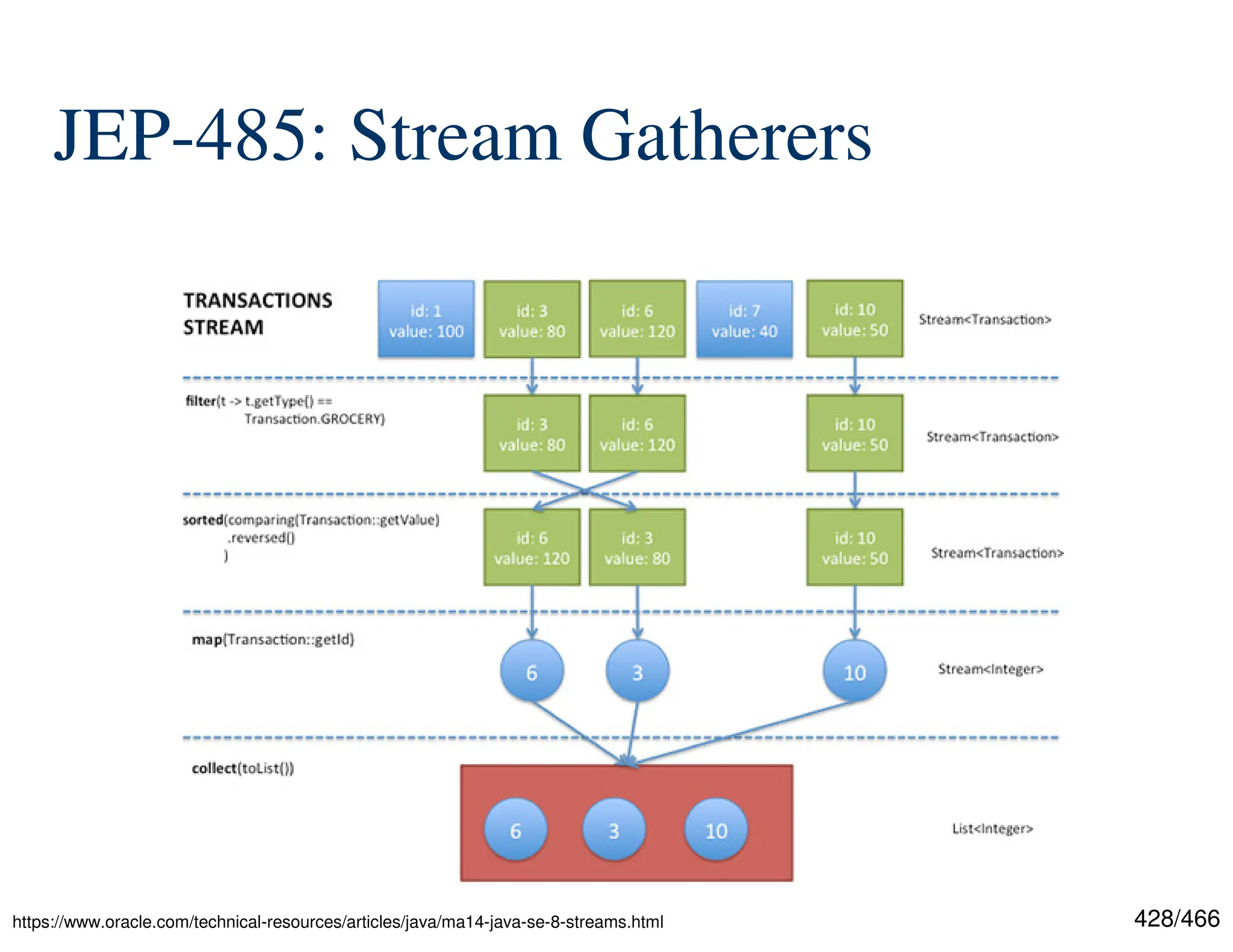
![429/466 JEP-485: Stream Gatherers private static final record Transaction(Type type, int id, int value) { enum Type { GROCERY, ENTERTAINMENT; } public Type getType() { return this.type; } public int getValue() { return this.value; } public int getId() { return this.id; } } public static void main(final String[] args) { final List<Transaction> transactions = List.of( new Transaction(Transaction.Type.ENTERTAINMENT, 1, 100), new Transaction(Transaction.Type.GROCERY, 3, 80), new Transaction(Transaction.Type.GROCERY, 6, 120), new Transaction(Transaction.Type.ENTERTAINMENT, 7, 40), new Transaction(Transaction.Type.GROCERY, 10, 50)); final List<Integer> transactionsIds = transactions.parallelStream() .filter(t -> t.getType() == Transaction.Type.GROCERY) .sorted(Comparator.comparing(Transaction::getValue).reversed()) .map(Transaction::getId).collect(Collectors.toList()); System.out.println(transactionsIds); }](https://image.slidesharecdn.com/newjavav0-250327235127-ec555181/75/Evolution-and-Examples-of-Java-Features-from-Java-1-7-to-Java-24-429-2048.jpg)
![430/466 JEP-485: Stream Gatherers private static final record Transaction(Type type, int id, int value) { enum Type { GROCERY, ENTERTAINMENT; } public Type getType() { return this.type; } public int getValue() { return this.value; } public int getId() { return this.id; } } public static void main(final String[] args) { final List<Transaction> transactions = List.of( new Transaction(Transaction.Type.ENTERTAINMENT, 1, 100), new Transaction(Transaction.Type.GROCERY, 3, 80), new Transaction(Transaction.Type.GROCERY, 6, 120), new Transaction(Transaction.Type.ENTERTAINMENT, 7, 40), new Transaction(Transaction.Type.GROCERY, 10, 50)); final List<Integer> transactionsIds = transactions.parallelStream() .filter(t -> t.getType() == Transaction.Type.GROCERY) .sorted(Comparator.comparing(Transaction::getValue).reversed()) .map(Transaction::getId).collect(Collectors.toList()); System.out.println(transactionsIds); } [6, 3, 10]](https://image.slidesharecdn.com/newjavav0-250327235127-ec555181/75/Evolution-and-Examples-of-Java-Features-from-Java-1-7-to-Java-24-430-2048.jpg)
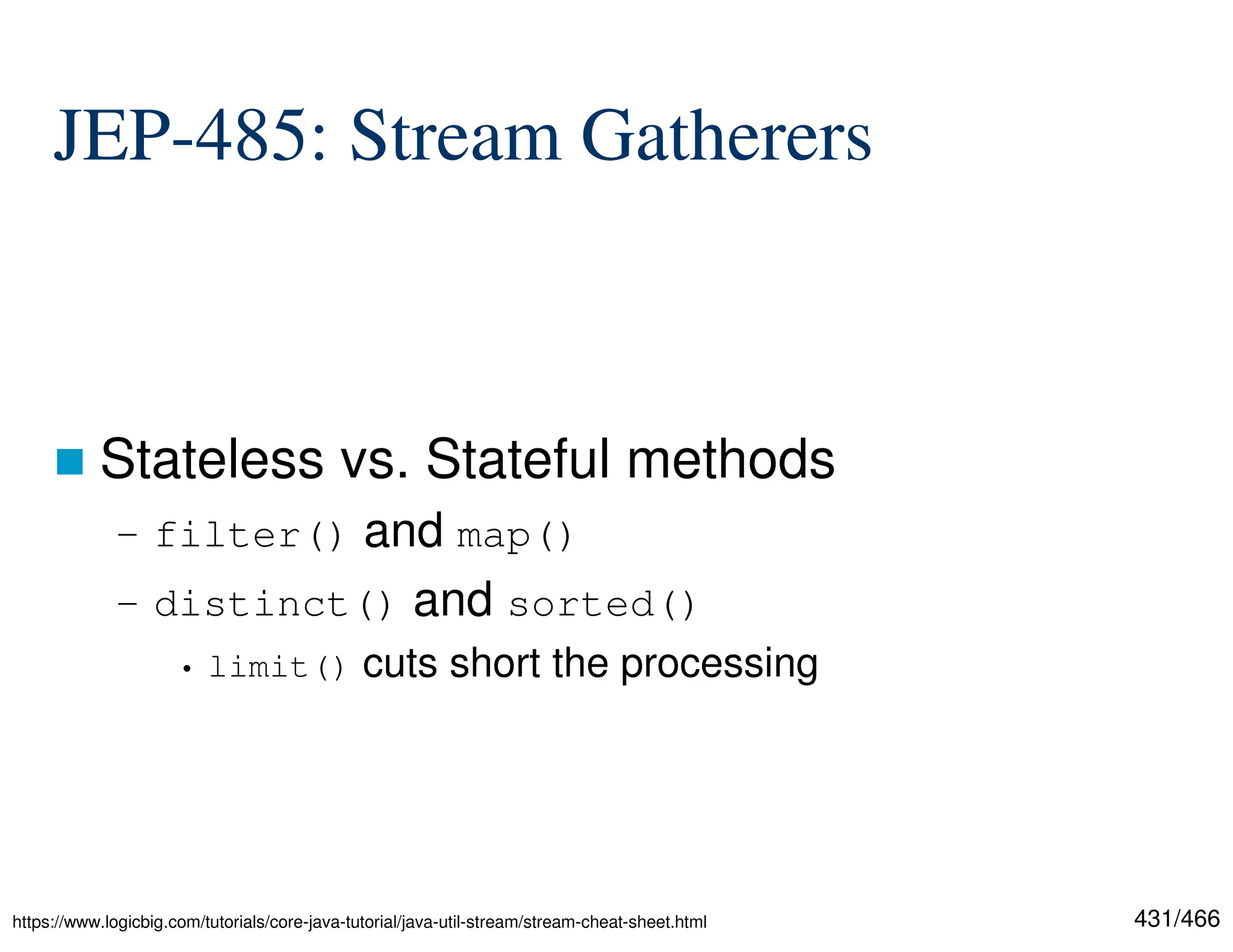
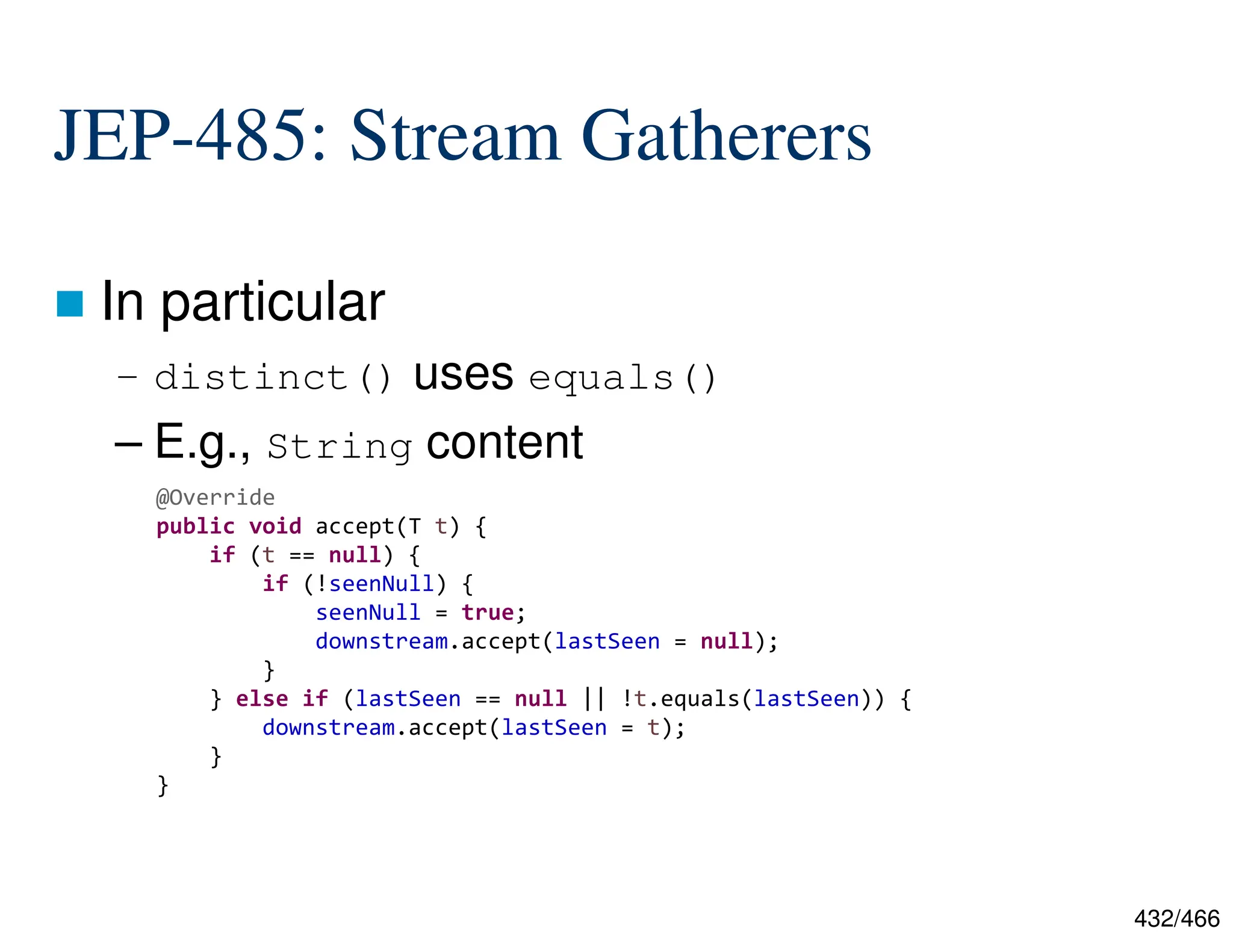
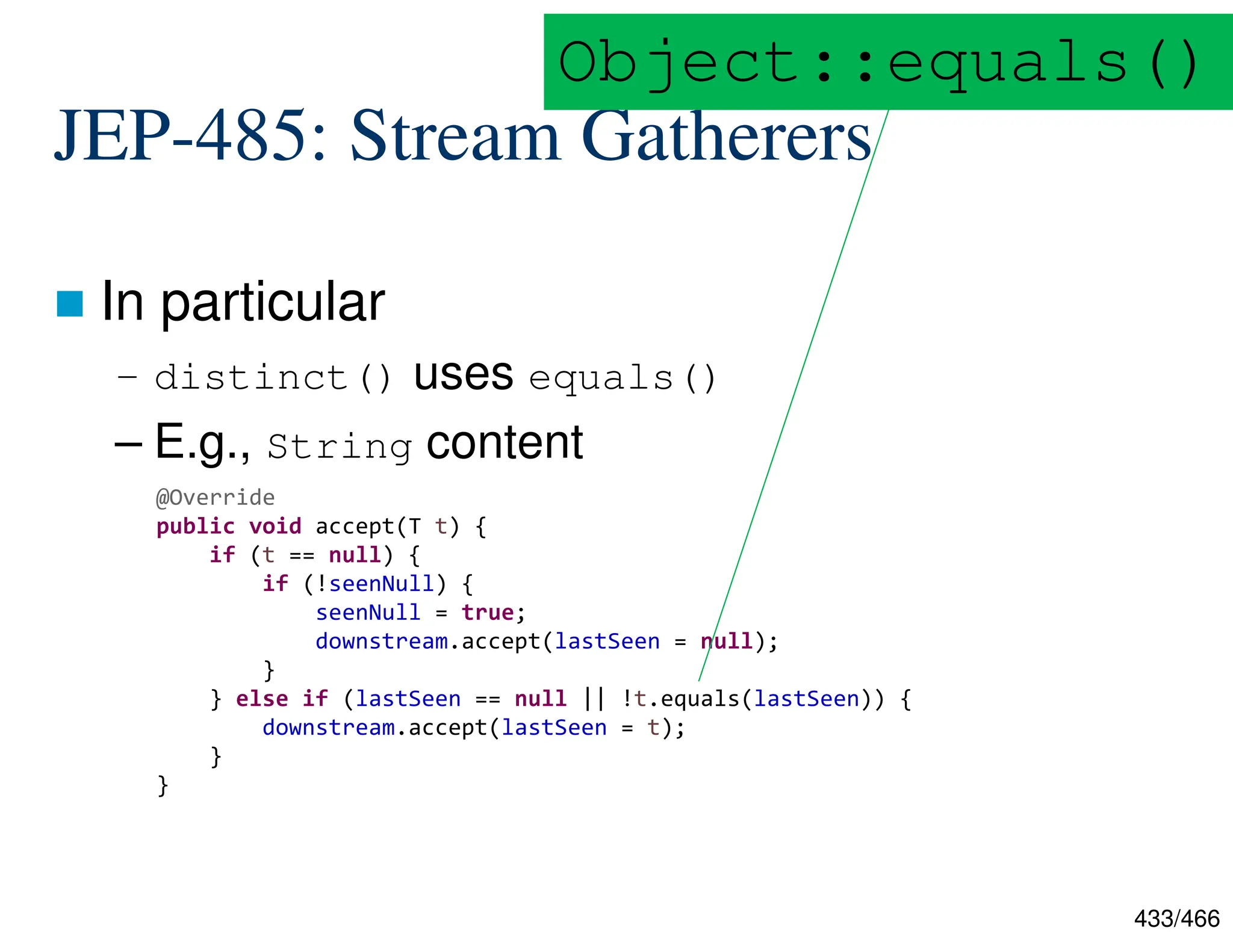
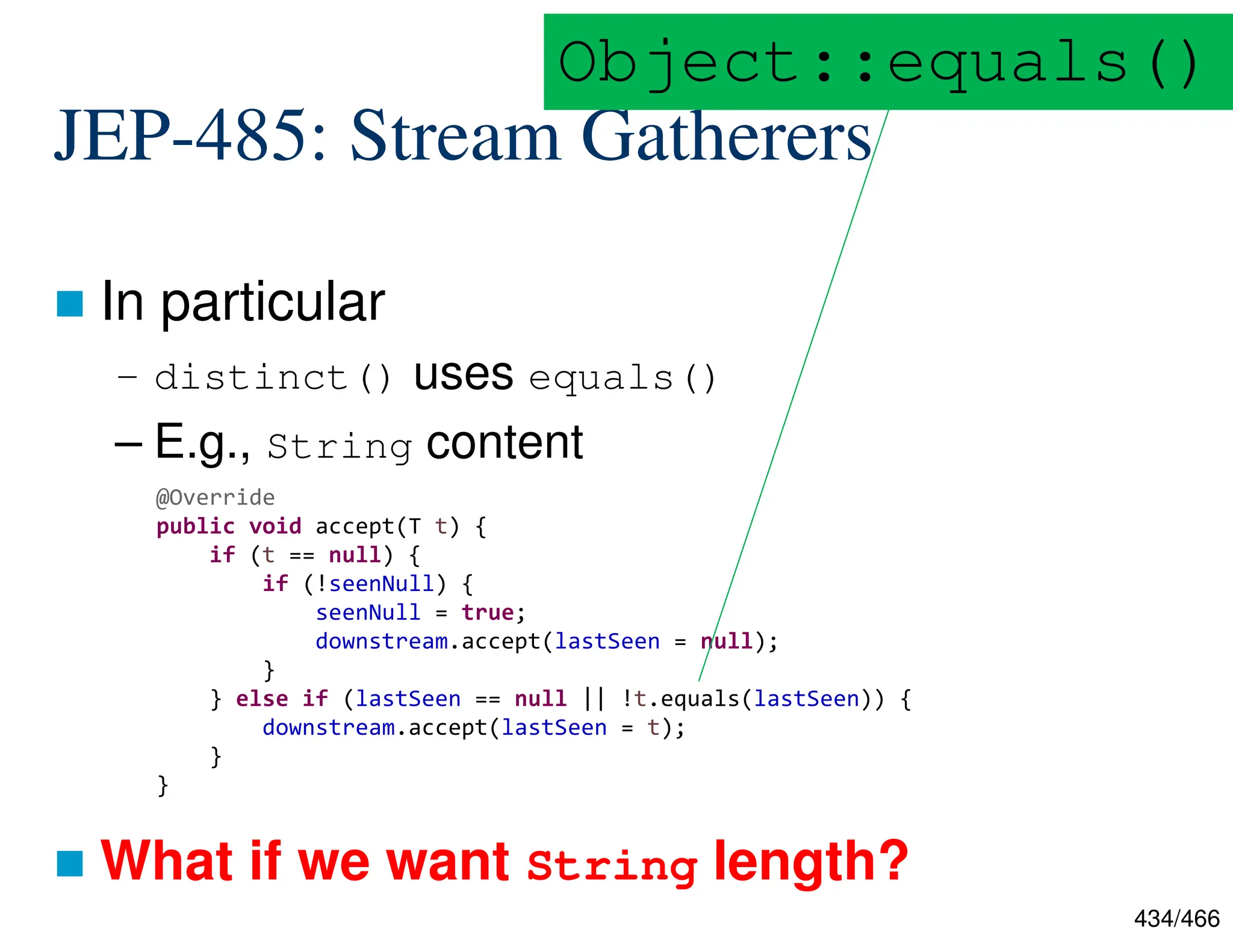
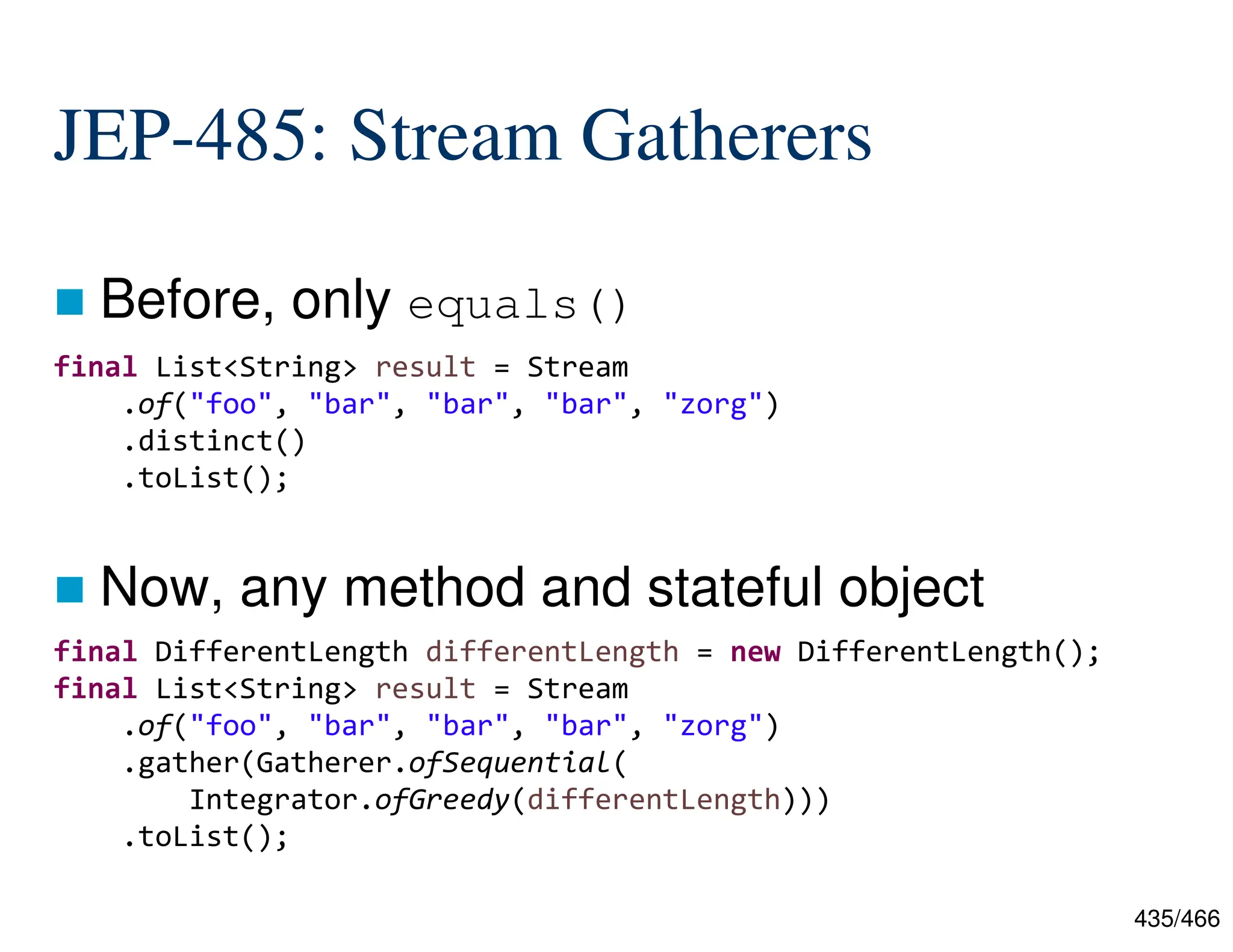
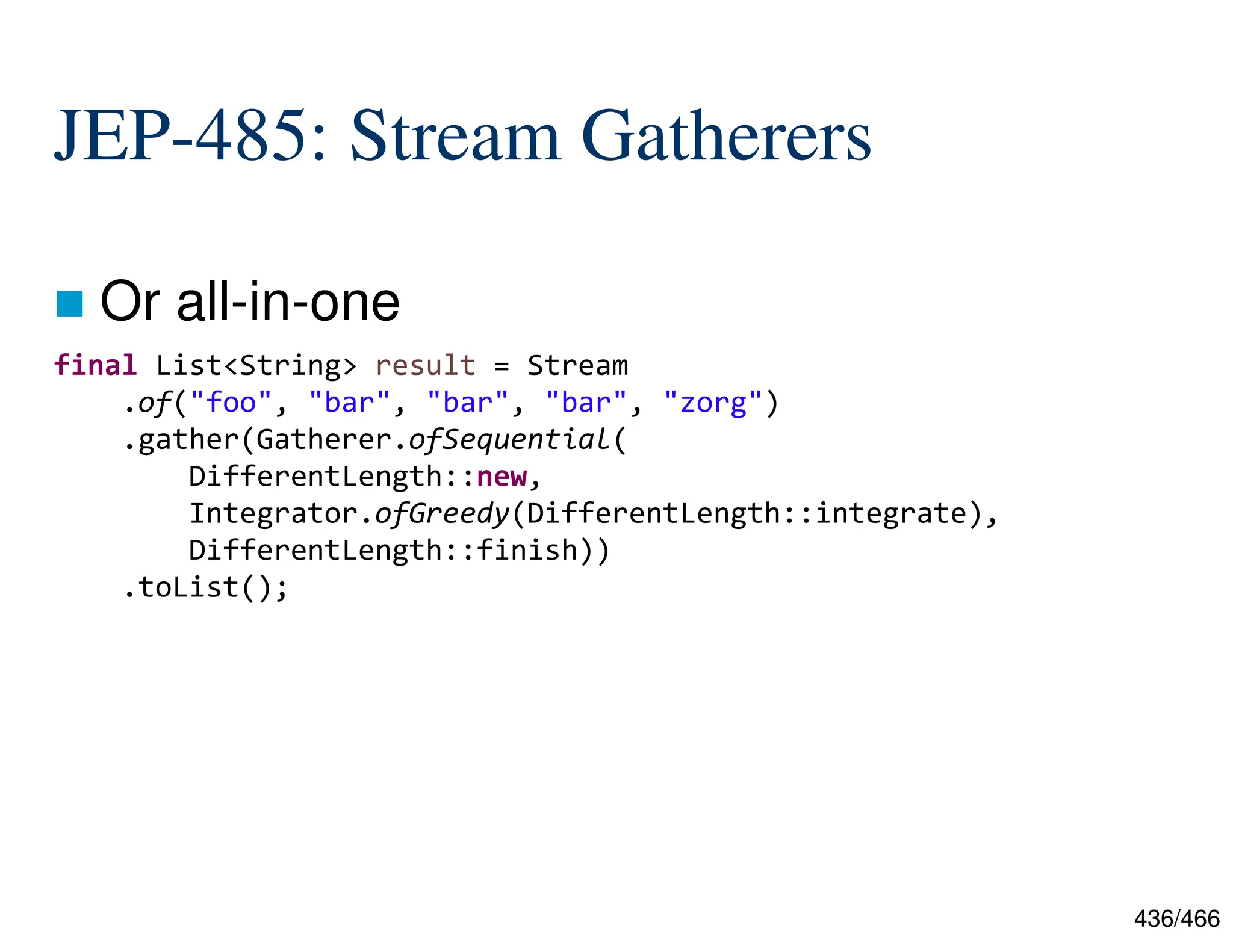
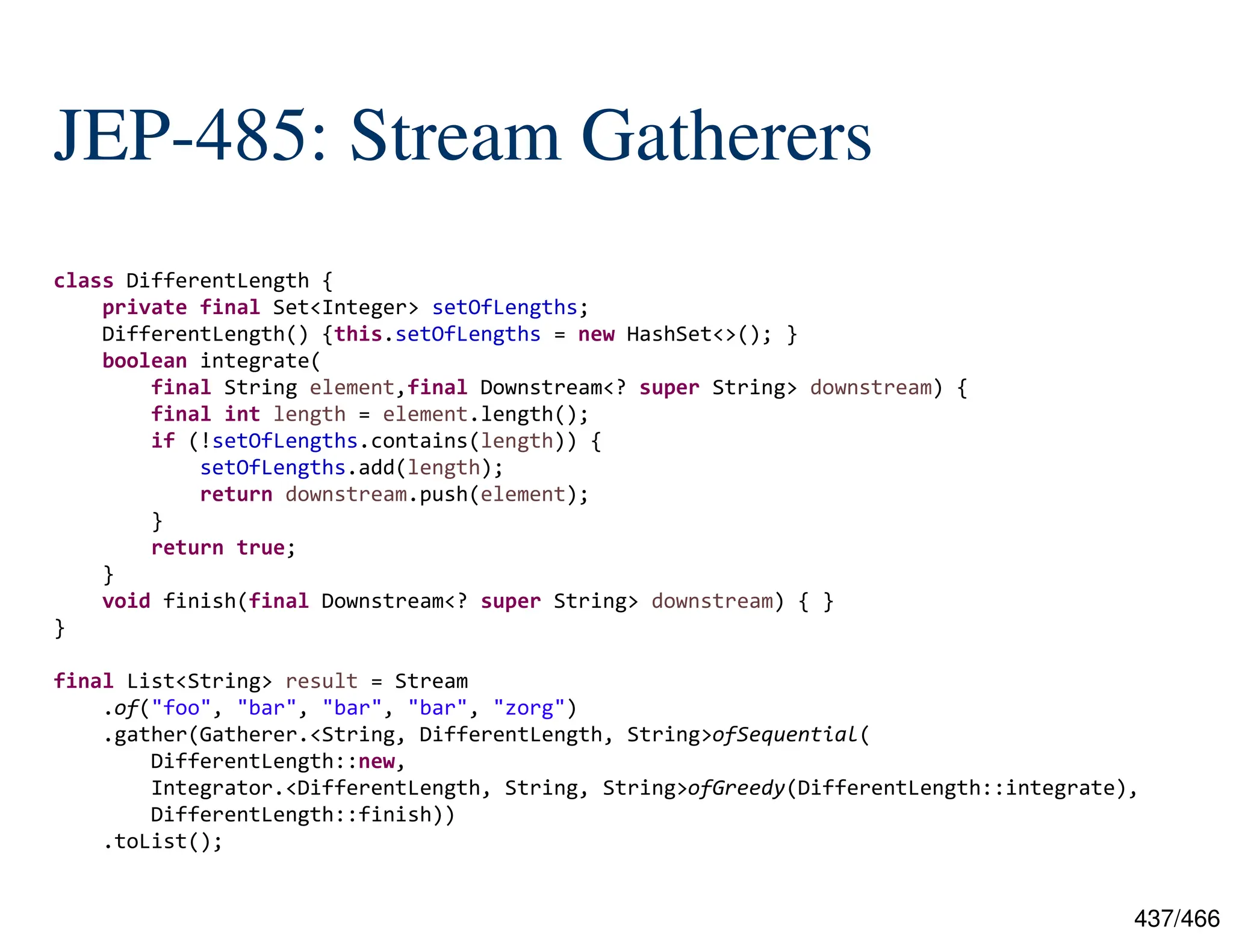
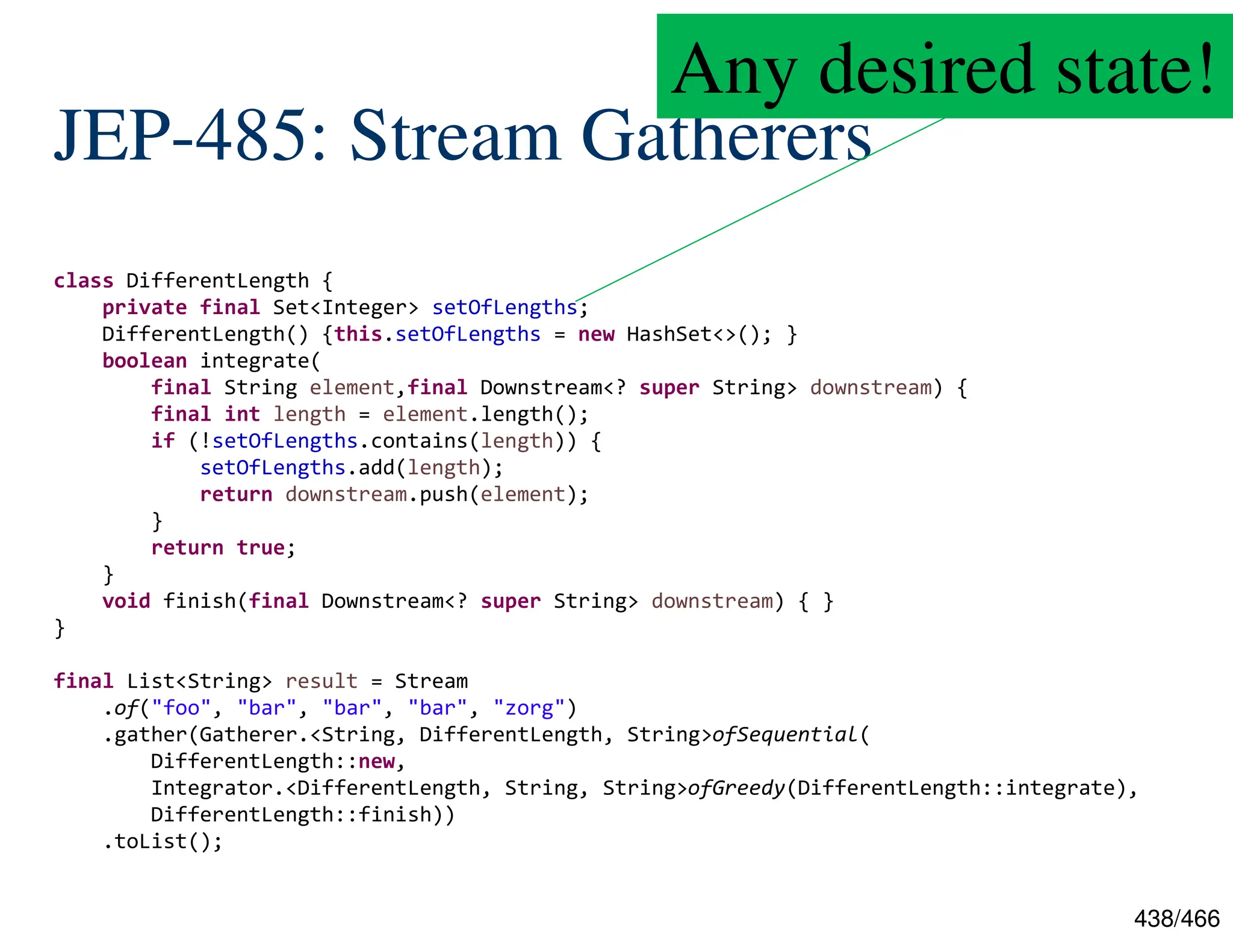
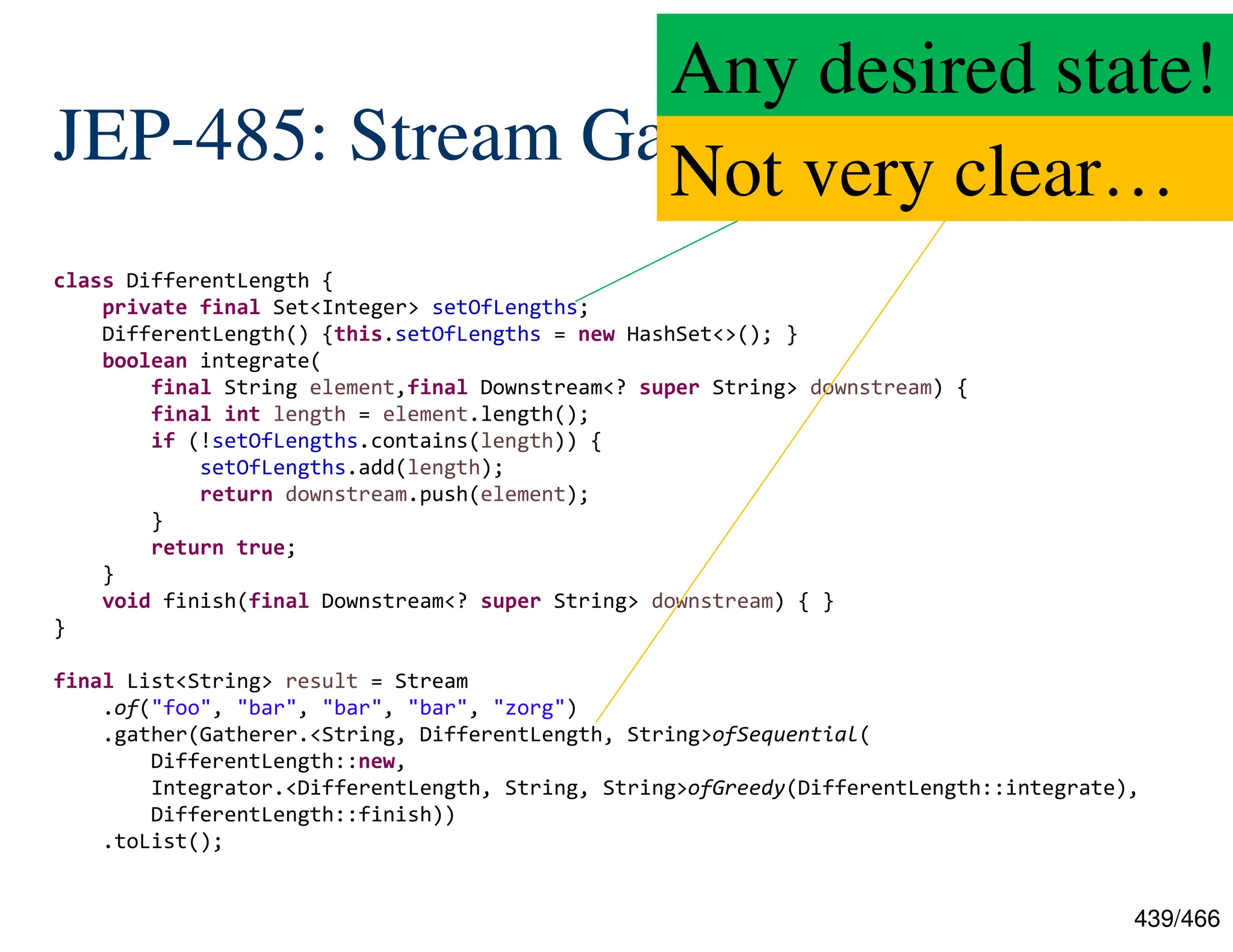
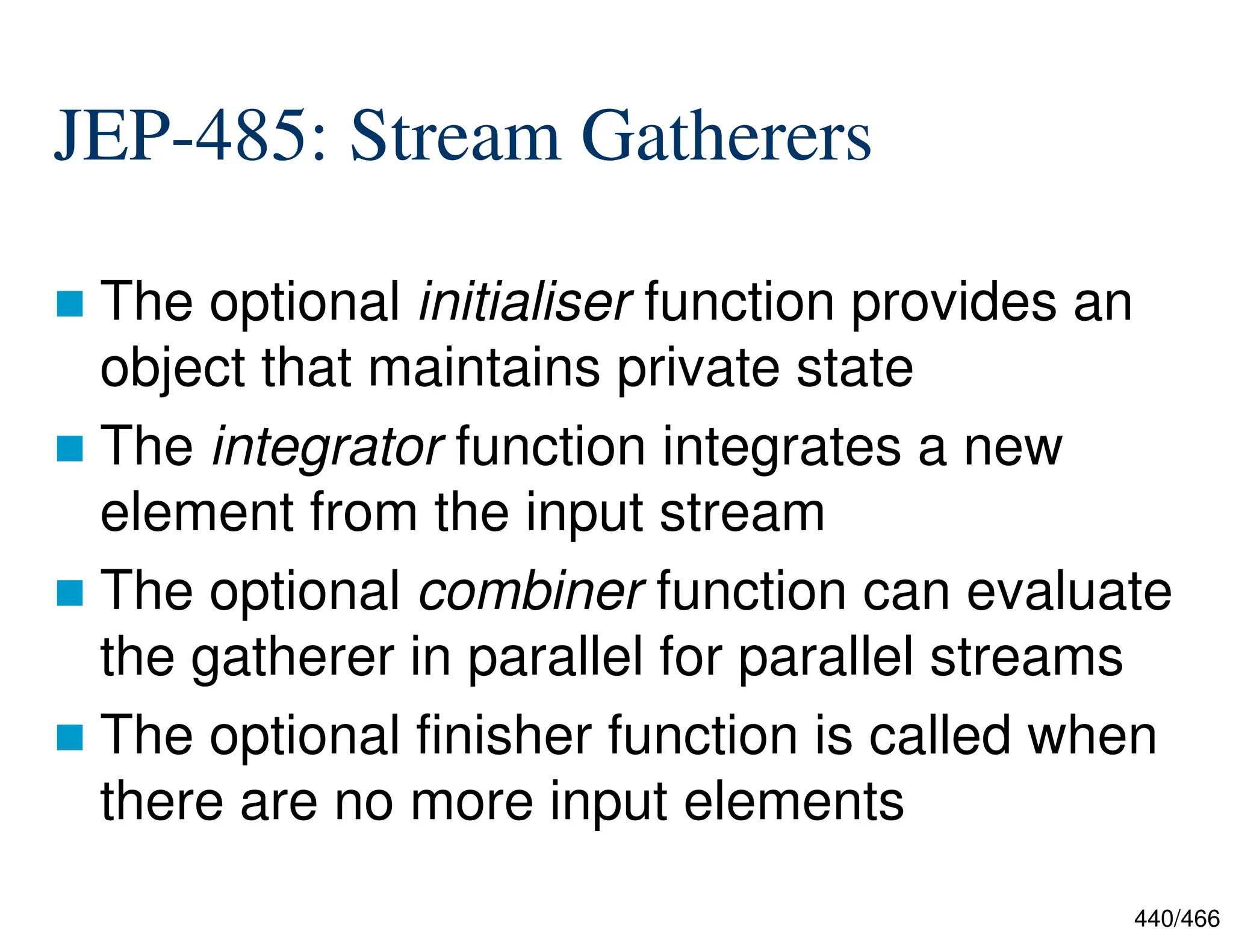
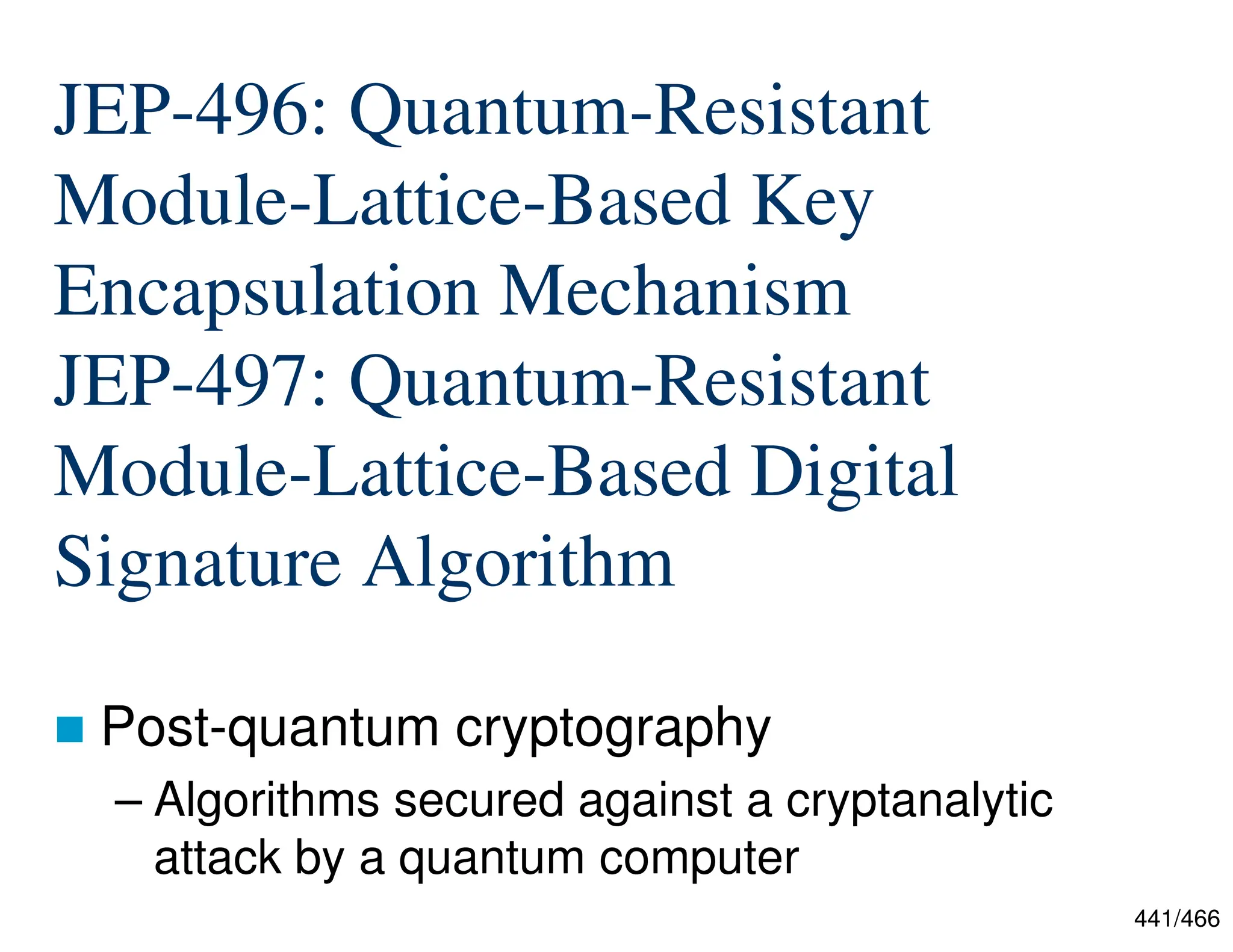
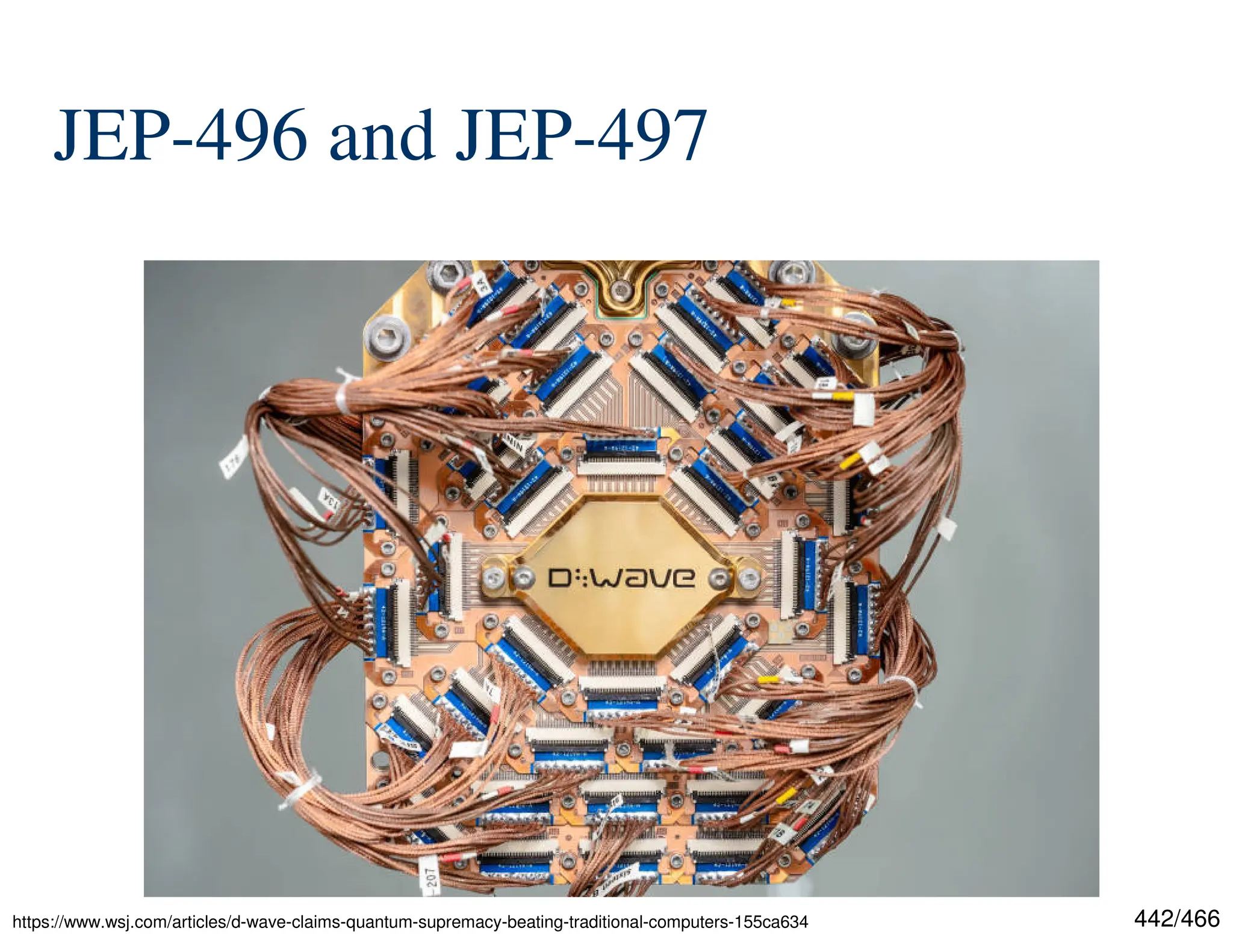
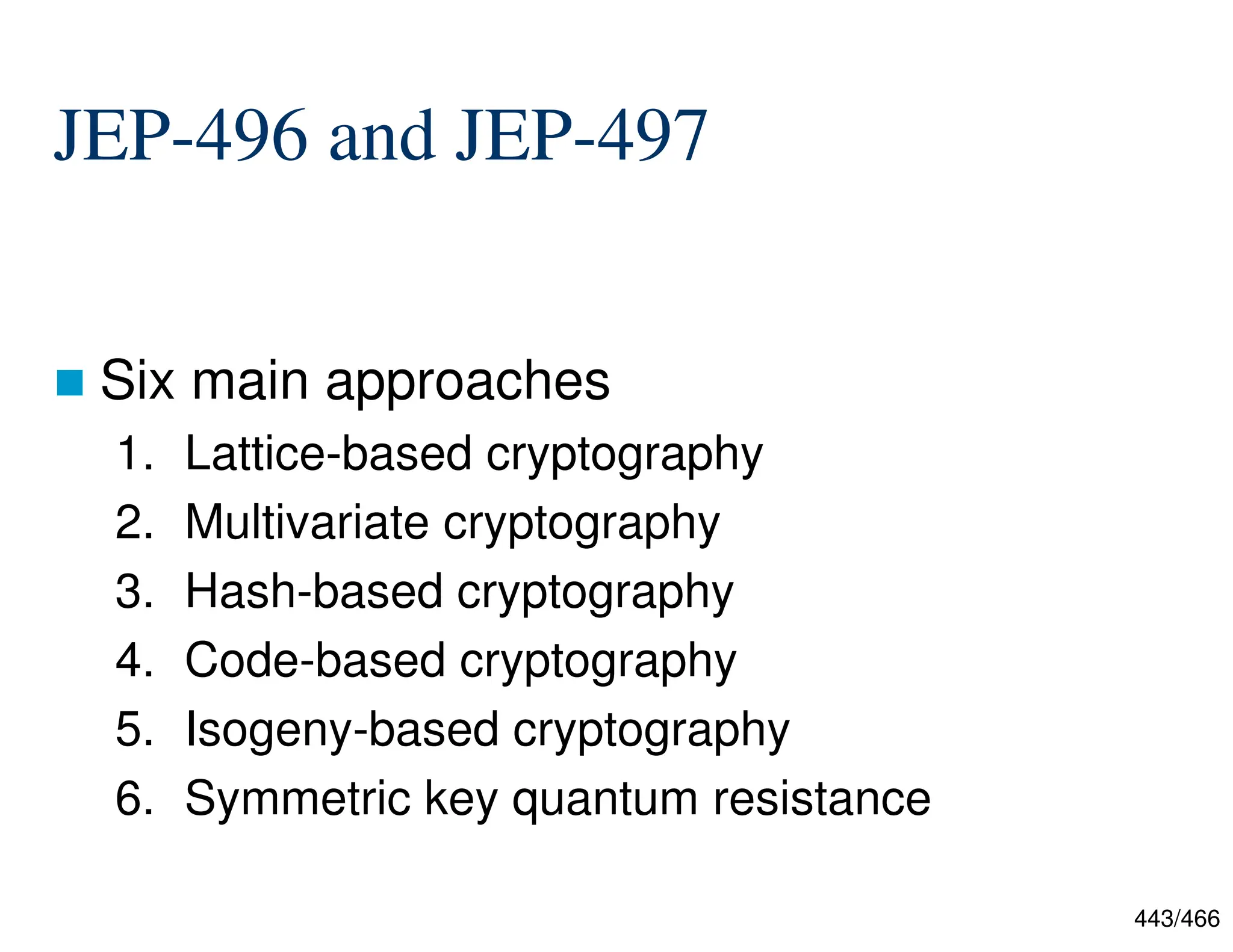
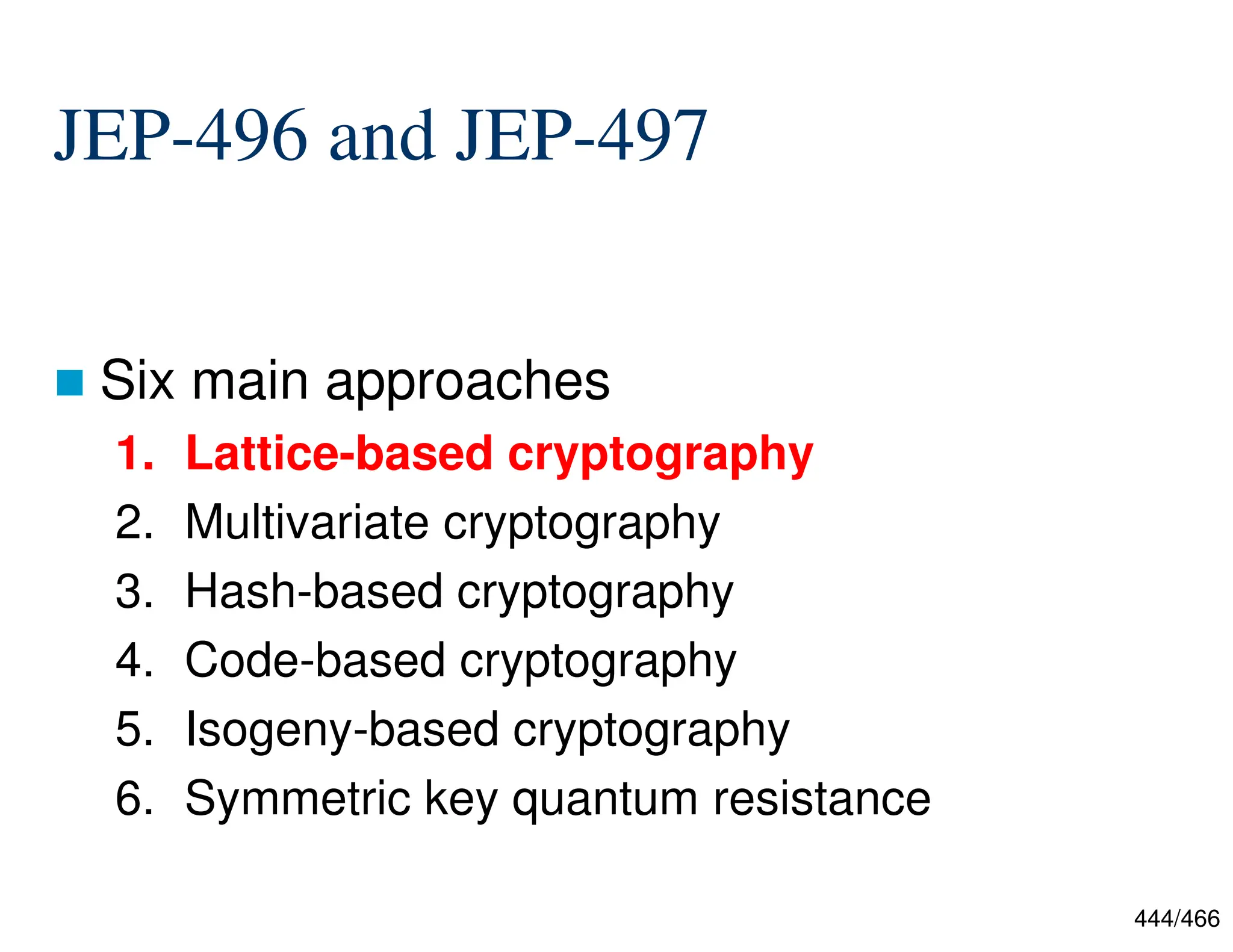
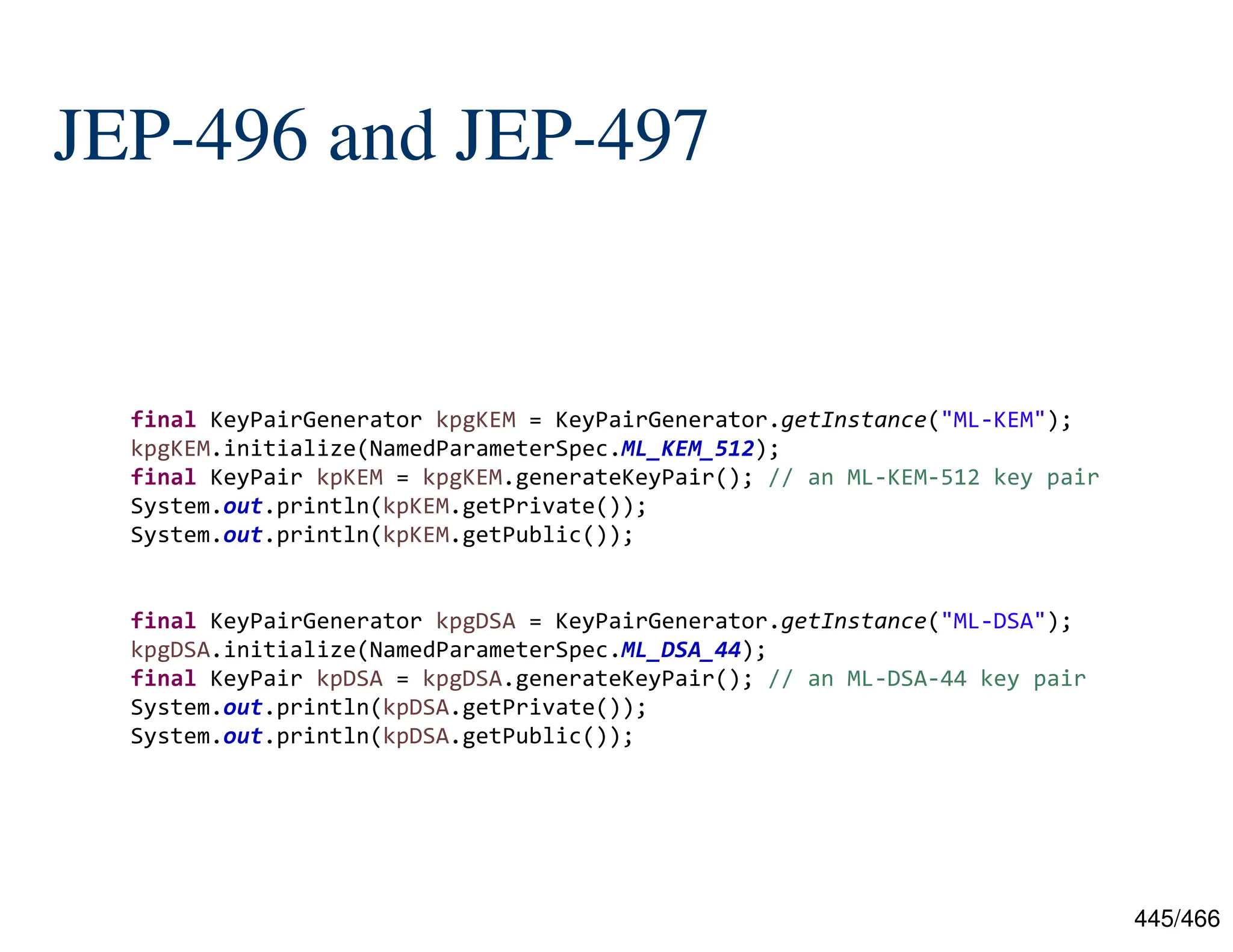
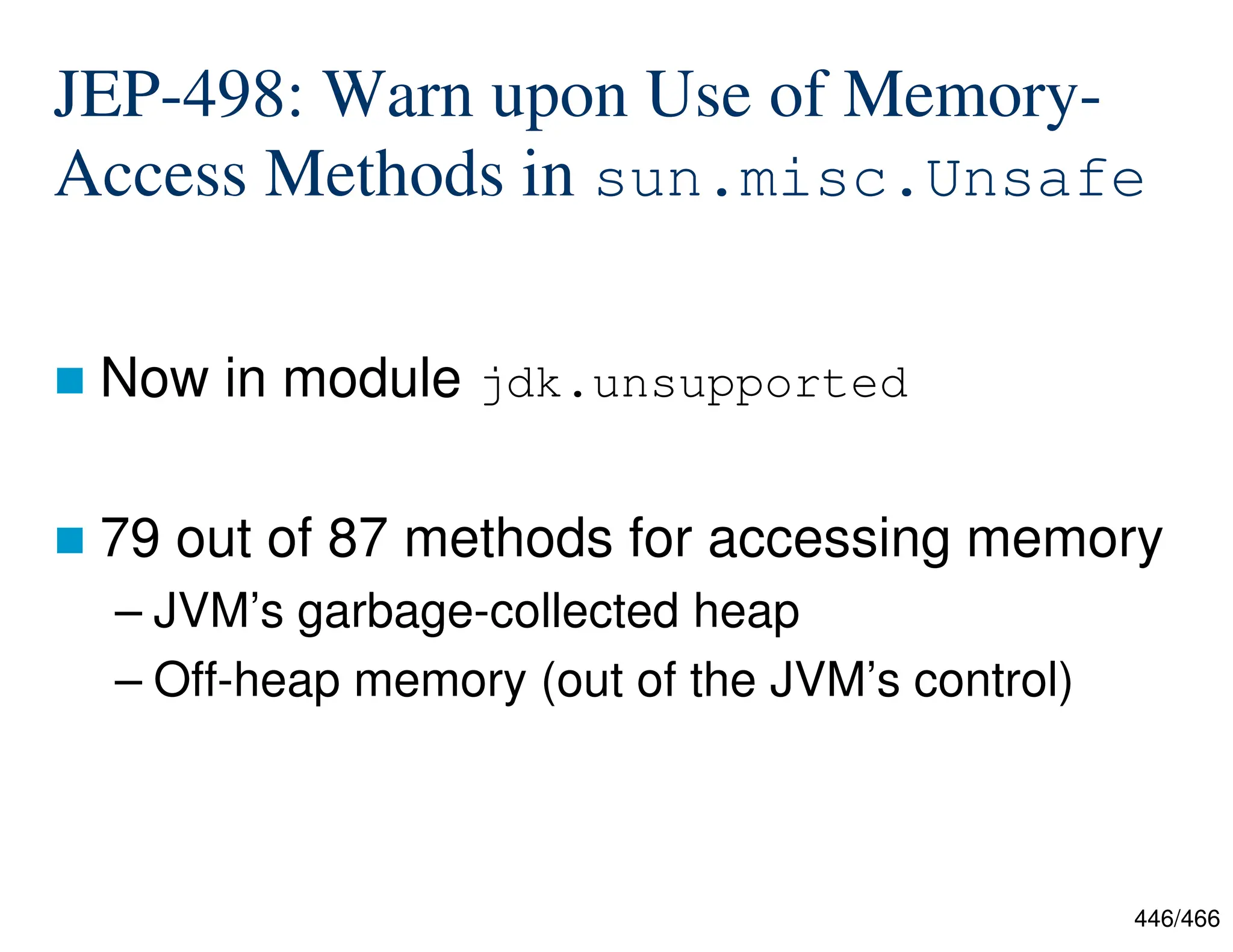
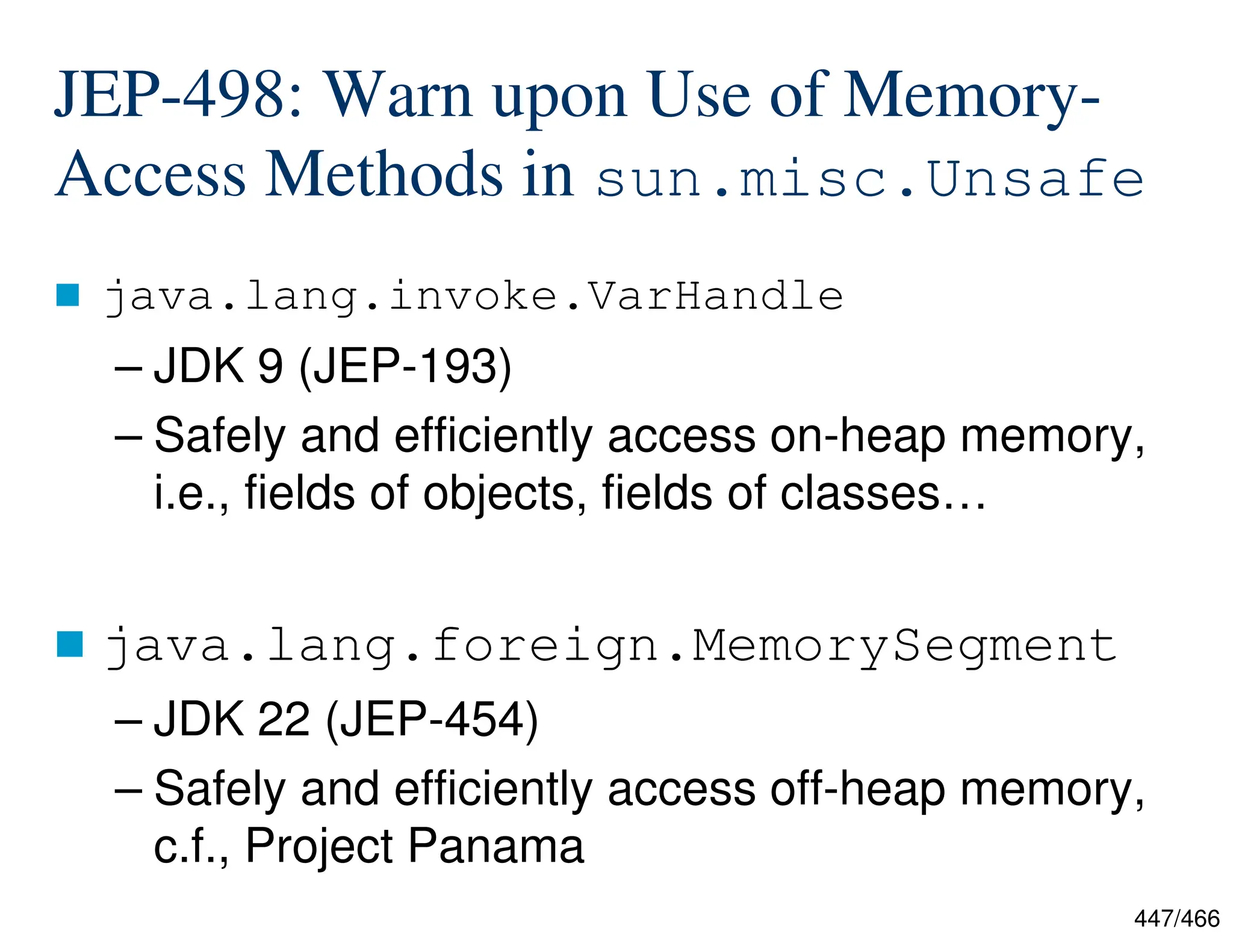
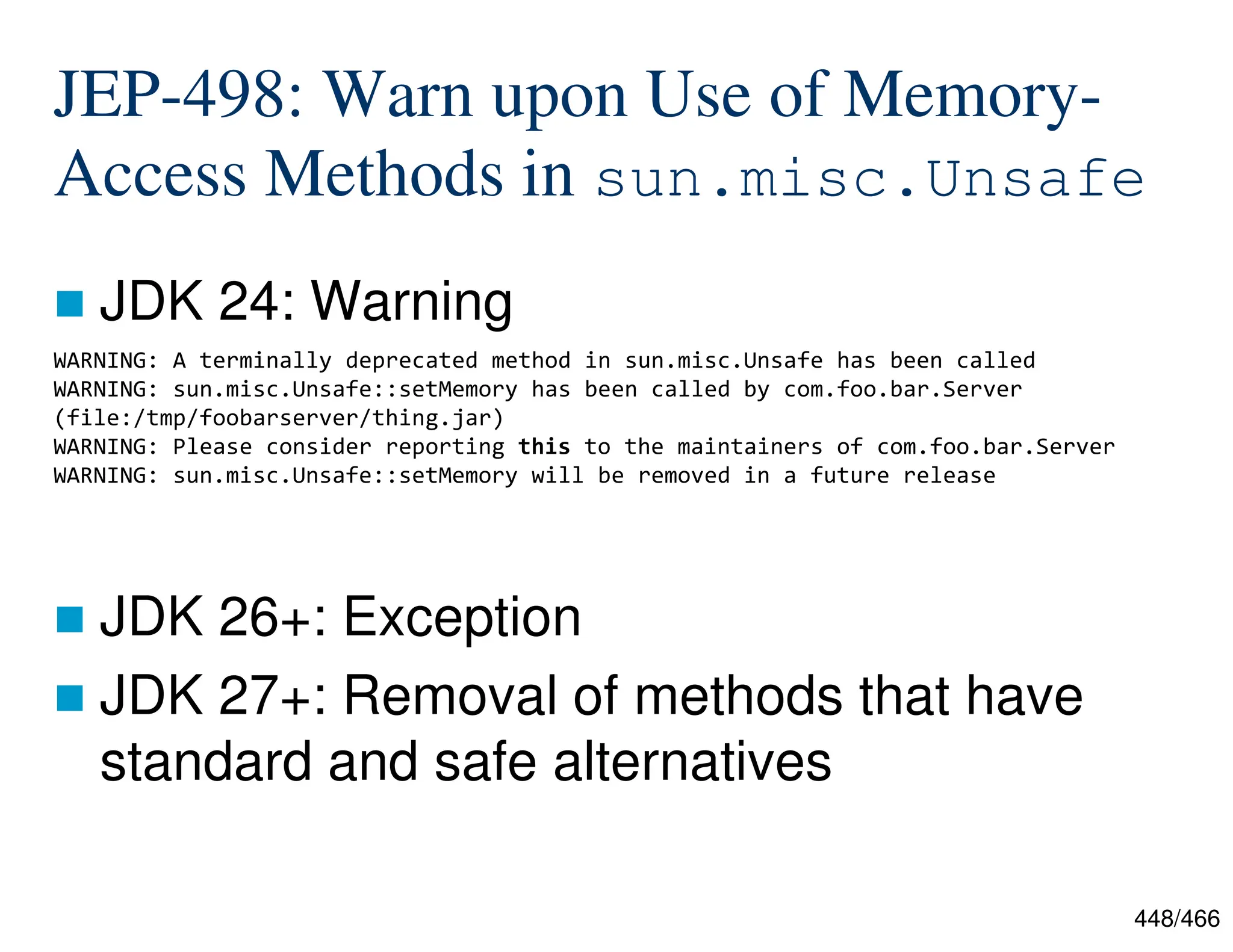

![450/466 JEP-472: Prepare to Restrict the Use of JNI Want integrity by default – “[A]ll JDK features that are capable of breaking integrity must obtain explicit approval from the application's developer.”](https://image.slidesharecdn.com/newjavav0-250327235127-ec555181/75/Evolution-and-Examples-of-Java-Features-from-Java-1-7-to-Java-24-450-2048.jpg)
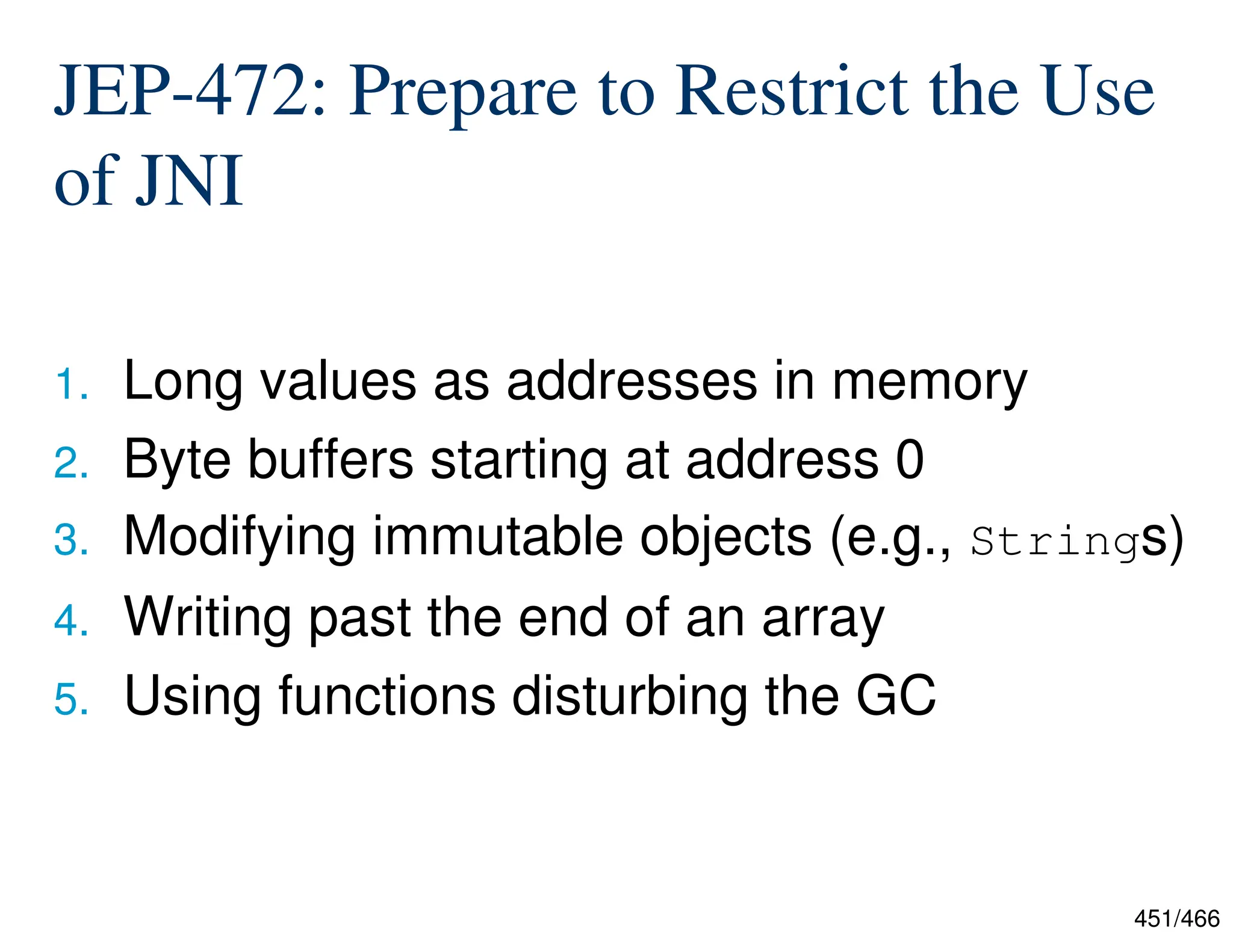
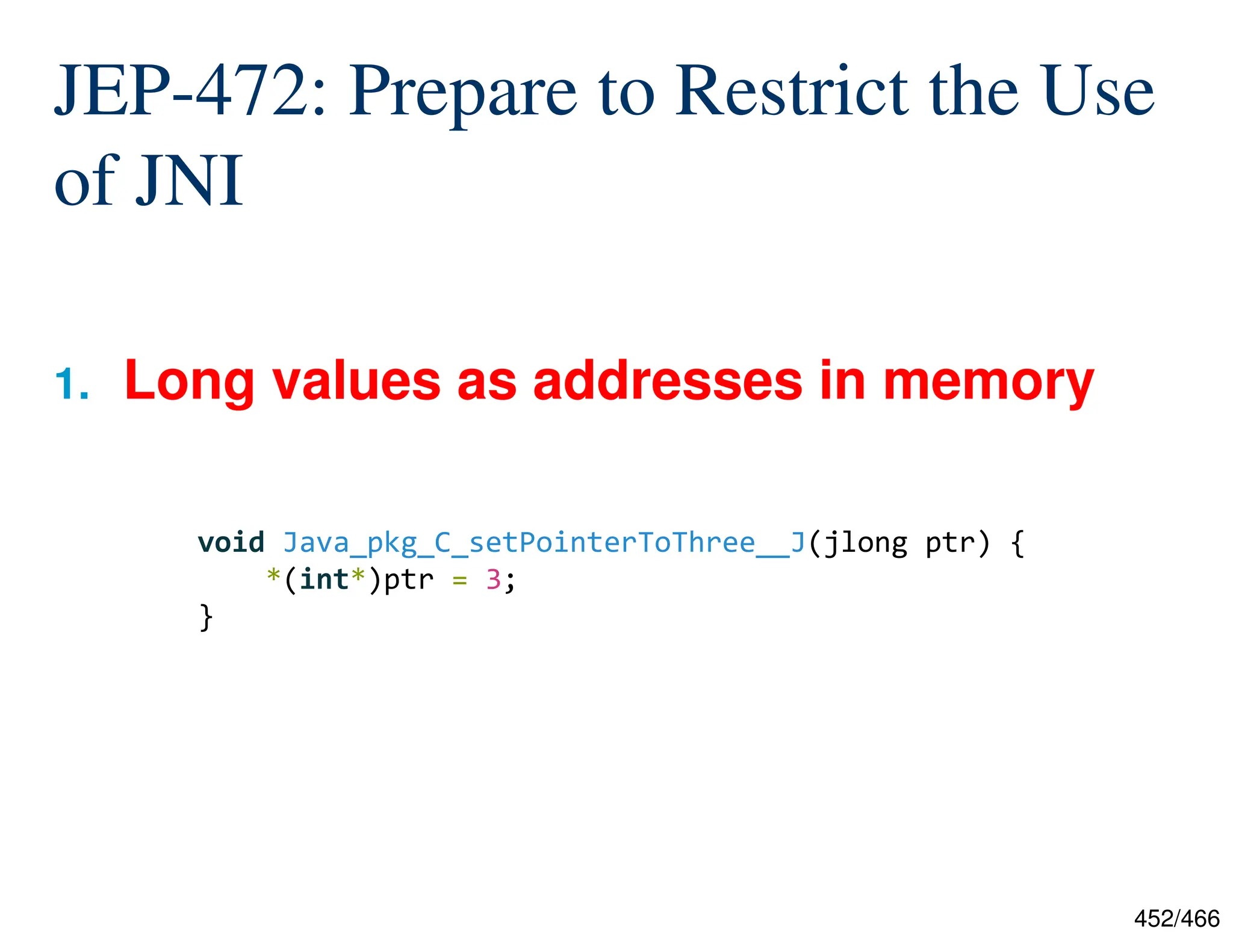
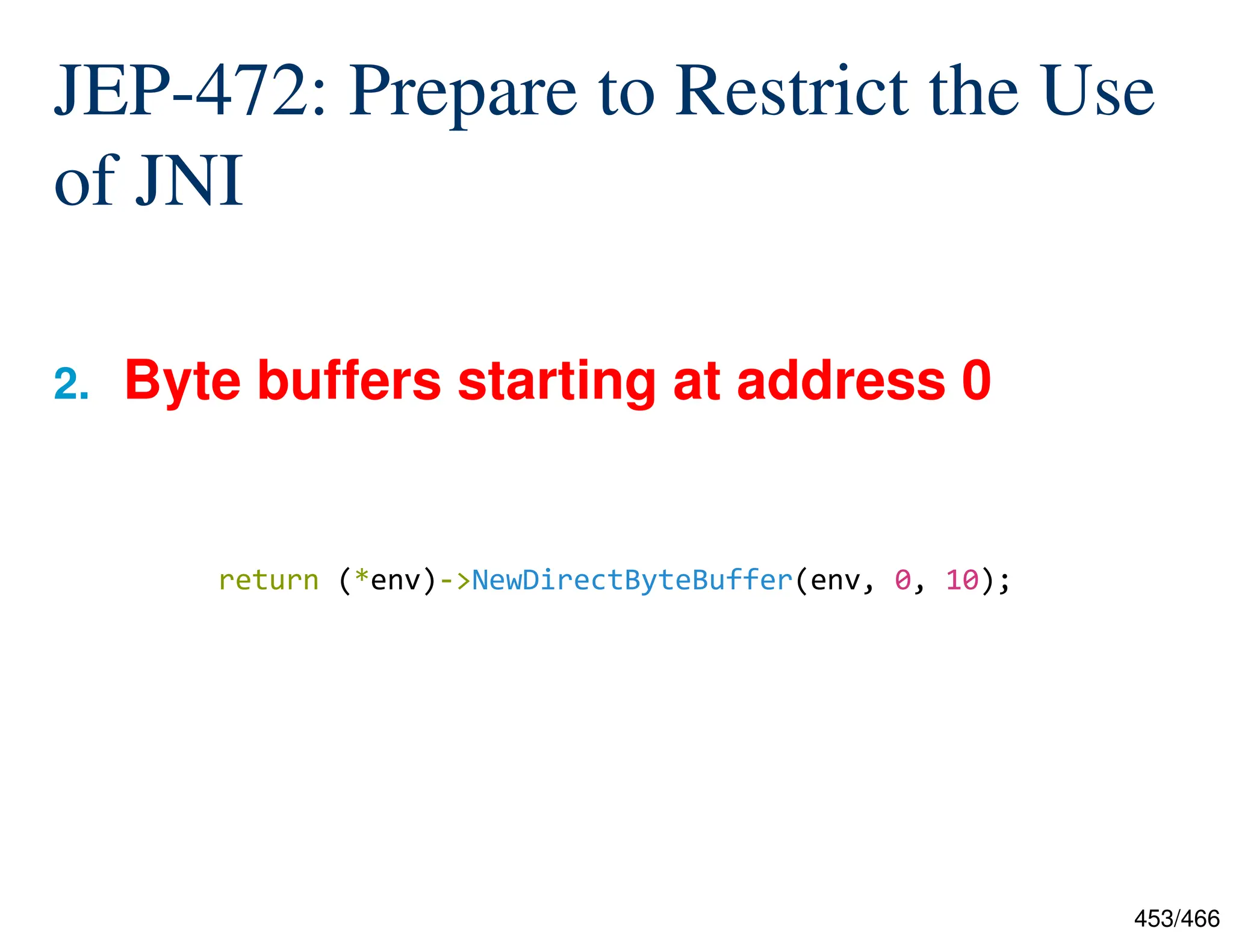
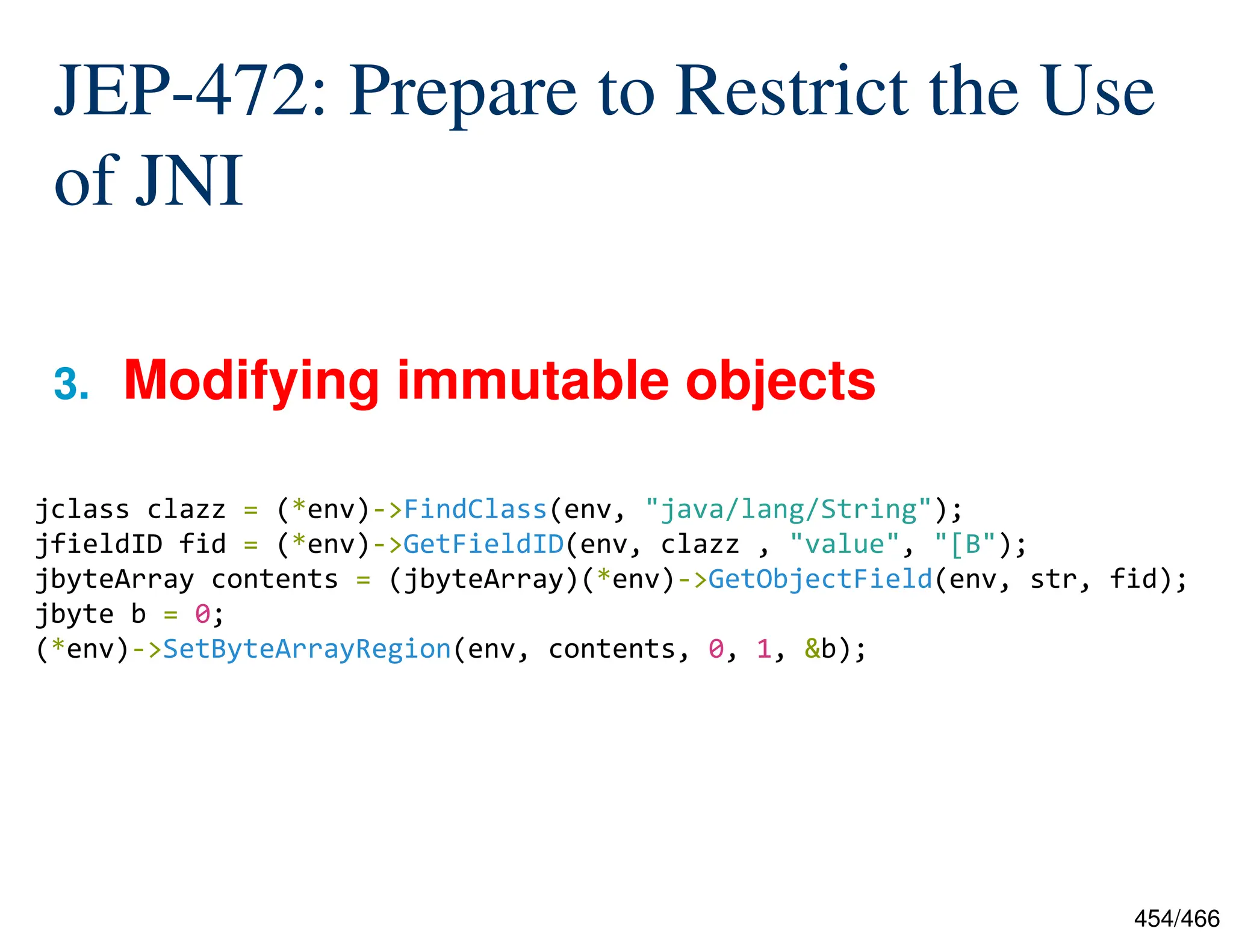
![455/466 JEP-472: Prepare to Restrict the Use of JNI 4. Writing past the end of an array jbyte *a = (*env)->GetPrimitiveArrayCritical(env, arr, 0); a[500] = 3; // May be out of bounds (*env)->ReleasePrimitiveArrayCritical(env, arr, a, 0);](https://image.slidesharecdn.com/newjavav0-250327235127-ec555181/75/Evolution-and-Examples-of-Java-Features-from-Java-1-7-to-Java-24-455-2048.jpg)
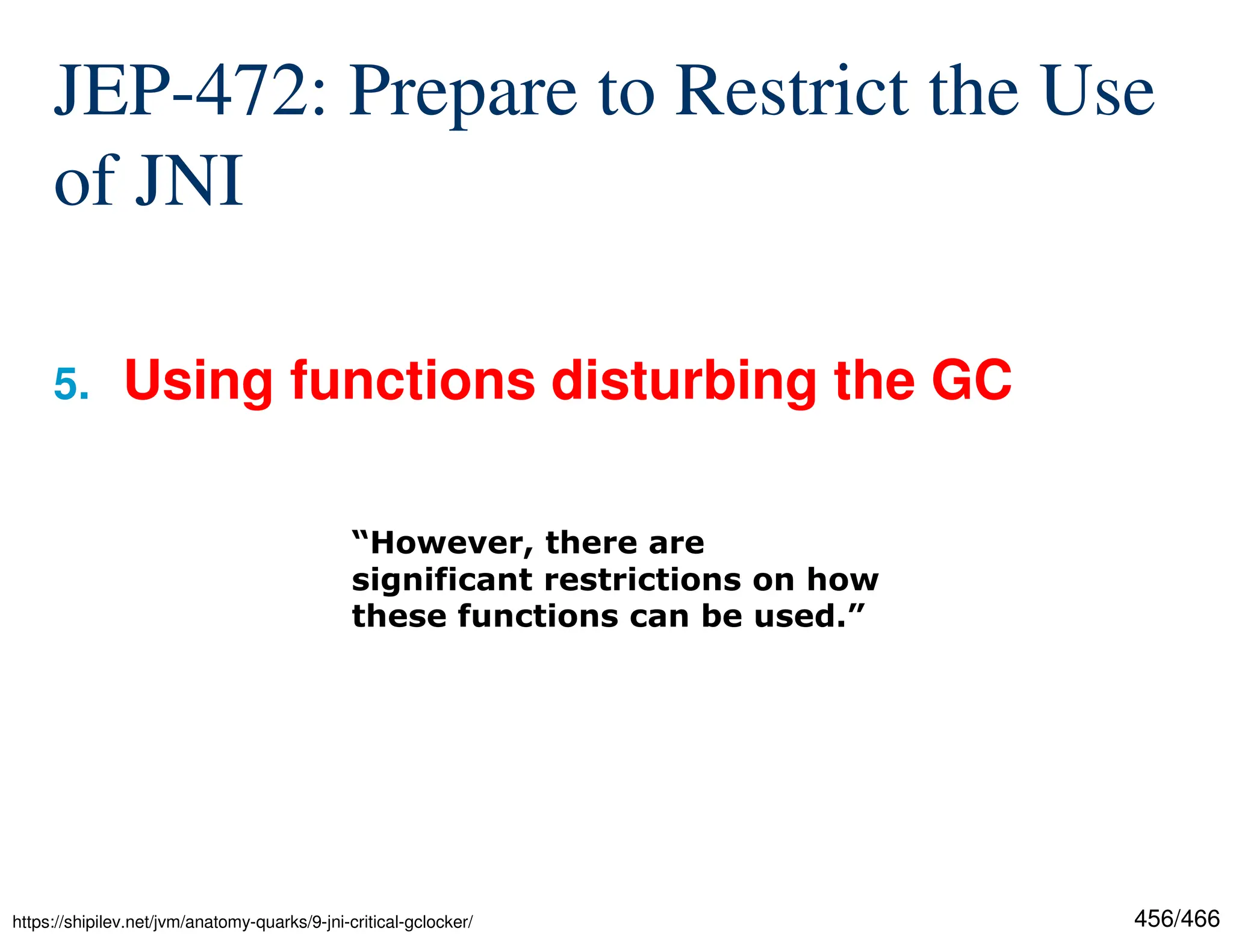
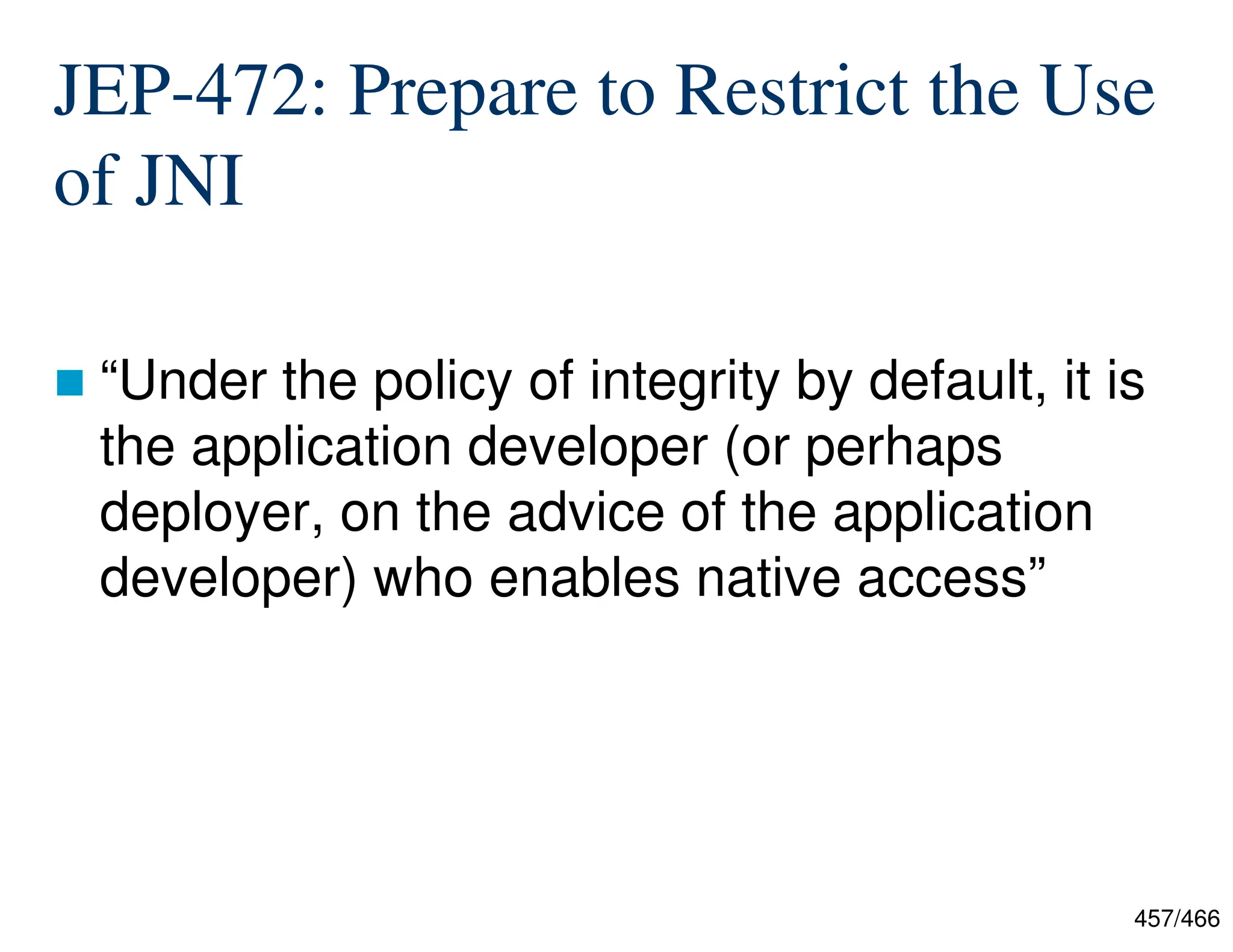
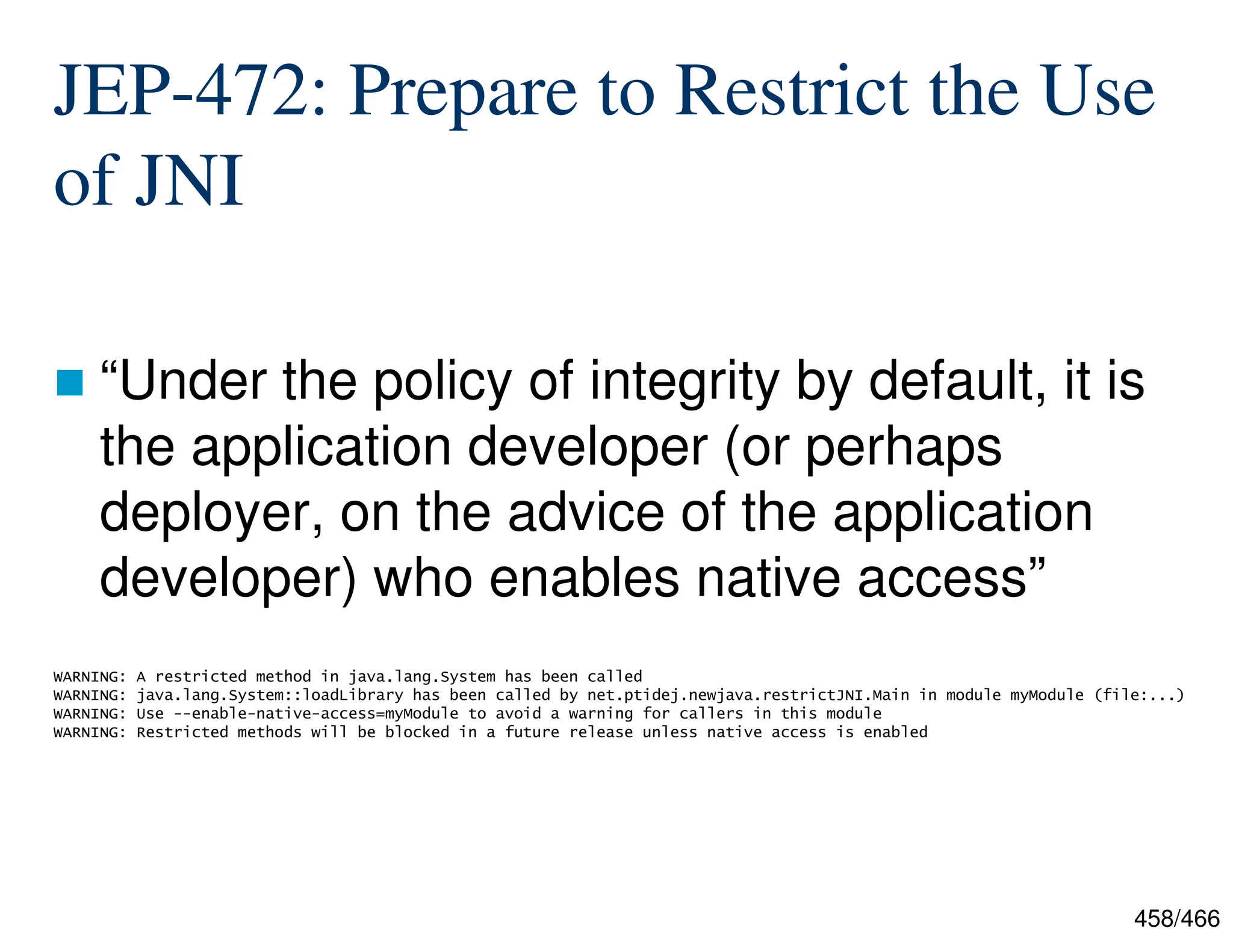
![459/466 JEP-479: Remove the Windows 32-bit x86 Port “Allow contributors in the OpenJDK Community to accelerate […] development” “JEP 436 (Virtual Threads) for Windows x86- 32 falls back [on] kernel threads [removing the] benefits of Project Loom.” “Windows 10, the last Windows operating system to support 32-bit operation, will reach End of Life in October 2025.”](https://image.slidesharecdn.com/newjavav0-250327235127-ec555181/75/Evolution-and-Examples-of-Java-Features-from-Java-1-7-to-Java-24-459-2048.jpg)
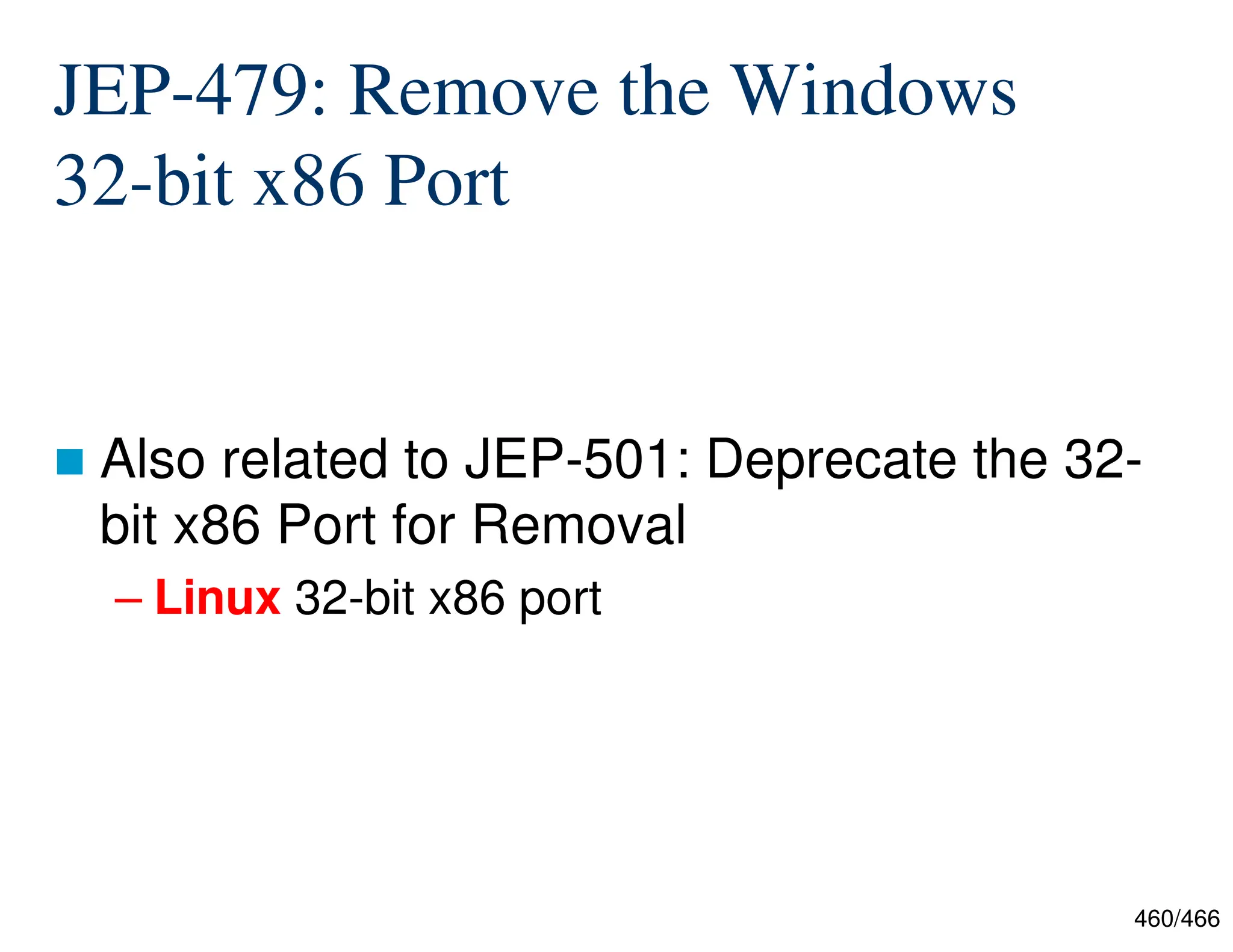
![461/466 JEP-486: Permanently Disable the Security Manager “[T]he permission scheme is so complex that the Security Manager has always been disabled by default, and its use is […] rare.” “From networking, I/O, and JDBC, to XML, AWT, and Swing, the libraries must implement the least-privilege model in case the Security Manager is enabled” Emphasis mine](https://image.slidesharecdn.com/newjavav0-250327235127-ec555181/75/Evolution-and-Examples-of-Java-Features-from-Java-1-7-to-Java-24-461-2048.jpg)
![462/466 JEP-486: Permanently Disable the Security Manager “[T]he permission scheme is so complex that the Security Manager has always been disabled by default, and its use is […] rare.” “From networking, I/O, and JDBC, to XML, AWT, and Swing, the libraries must implement the least-privilege model in case the Security Manager is enabled” Emphasis mine](https://image.slidesharecdn.com/newjavav0-250327235127-ec555181/75/Evolution-and-Examples-of-Java-Features-from-Java-1-7-to-Java-24-462-2048.jpg)
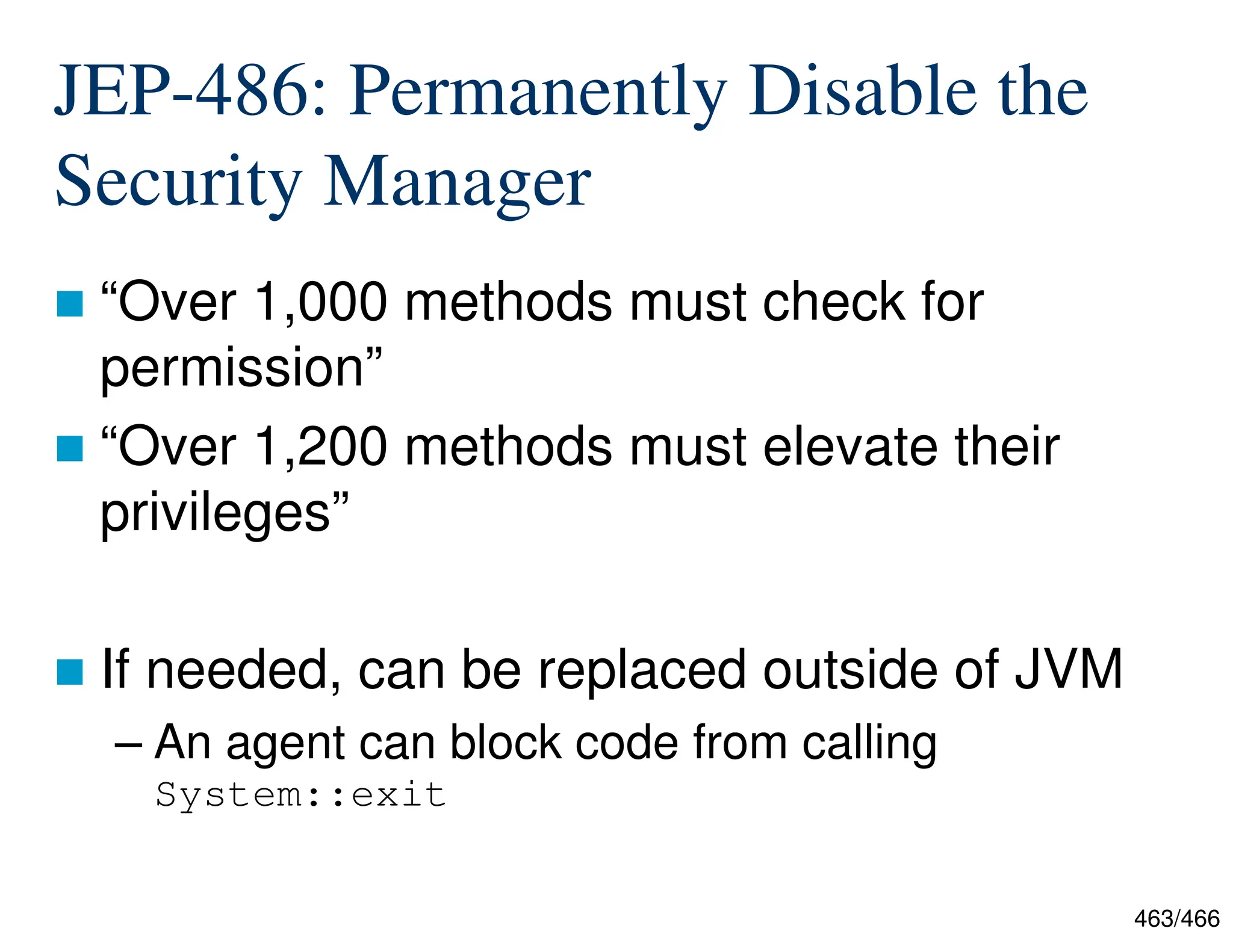
![464/466 JEP-493: Linking Run-Time Images without JMODs “Reduce the size of the JDK by […] 25% by enabling the jlink tool to create custom run-time images without using the JDK's JMOD files.” – JMOD is JAR with native code, configuration files, and other kinds of data](https://image.slidesharecdn.com/newjavav0-250327235127-ec555181/75/Evolution-and-Examples-of-Java-Features-from-Java-1-7-to-Java-24-464-2048.jpg)

